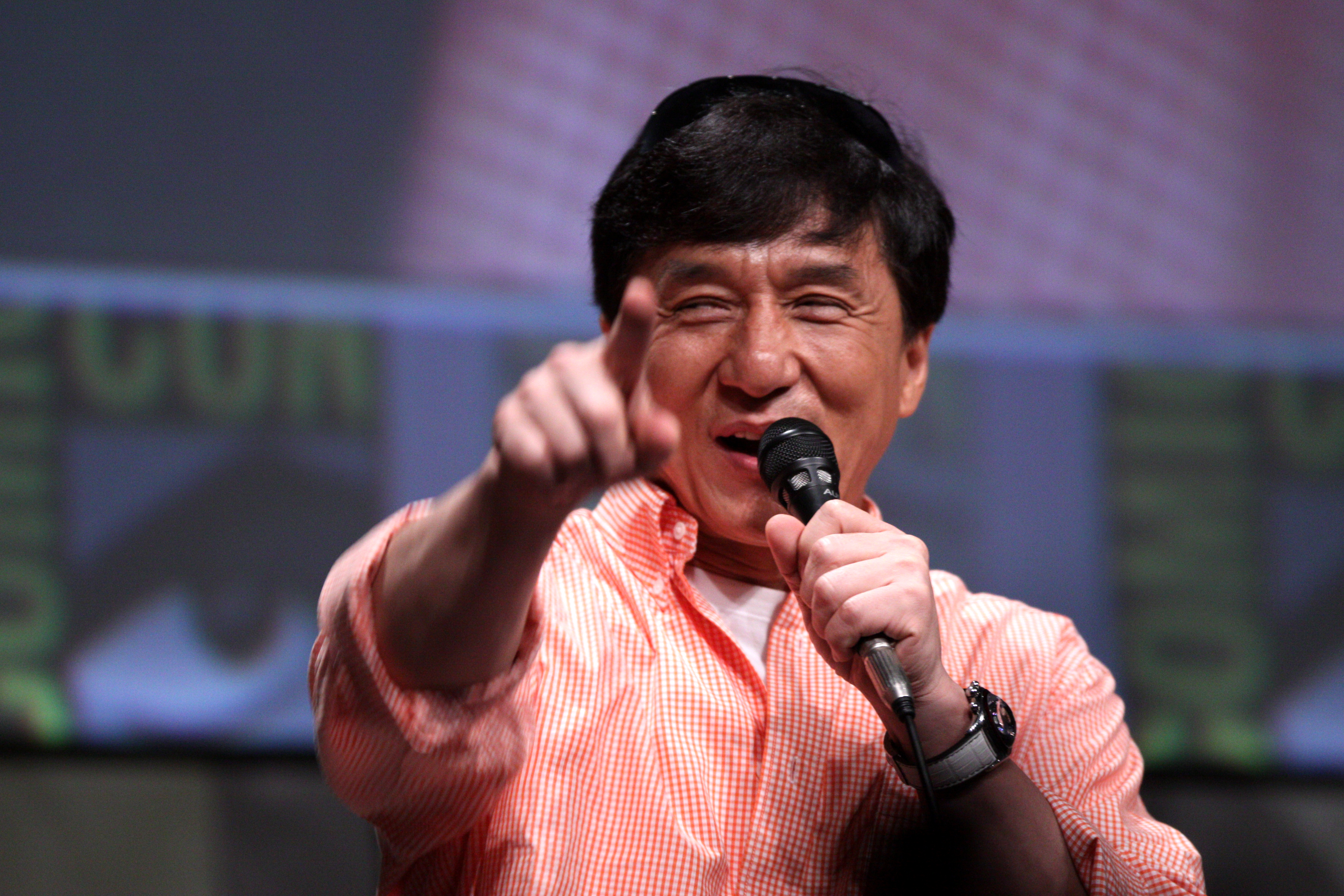Political Motivations for the Execution of Subway Killer Cheng Chieh?
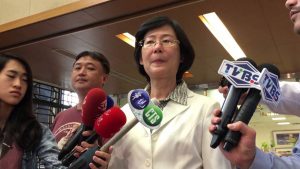 The execution of MRT subway killer Cheng Chieh has provoked strong feelings in Taiwan. Cheng Chieh was the perpetrator of the subway stabbing attack in May 2014 which left 4 dead and injured 24. Cheng was 23 years old at the time of his execution. Not only has the execution led to renewed controversy over the place of capital punishment in Taiwan’s justice system, but many question whether the timing of the execution was politically motivated.
The execution of MRT subway killer Cheng Chieh has provoked strong feelings in Taiwan. Cheng Chieh was the perpetrator of the subway stabbing attack in May 2014 which left 4 dead and injured 24. Cheng was 23 years old at the time of his execution. Not only has the execution led to renewed controversy over the place of capital punishment in Taiwan’s justice system, but many question whether the timing of the execution was politically motivated.
The WHO Debacle and Implications for the Upcoming Tsai Presidency
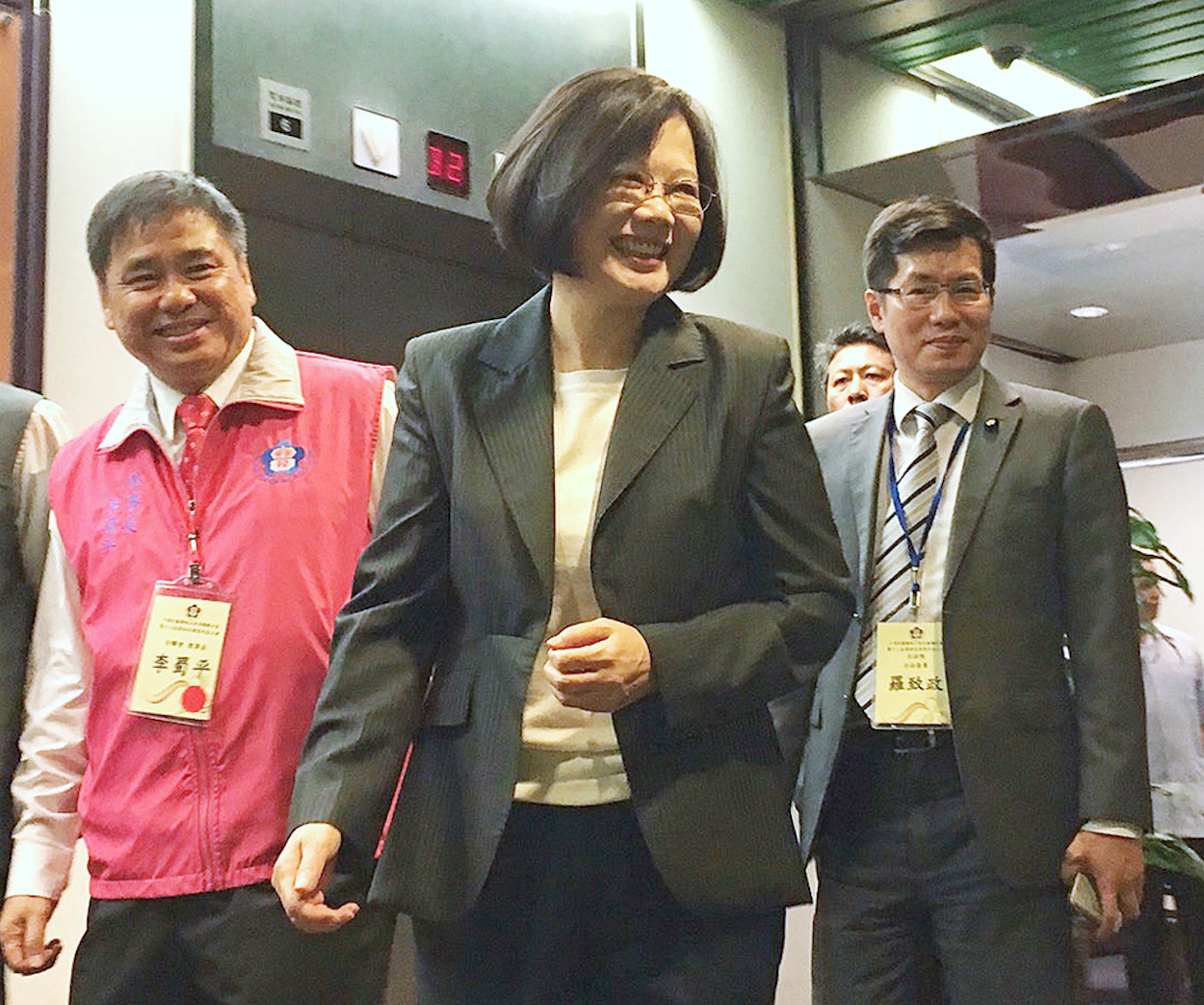 There is nothing particularly new about the WHO debacle in regards to what it means for Taiwan’s international status in the world, except recapitulating the same issues which have plagued Taiwan for decades regarding Taiwan’s lack of acknowledgement in the world and will continue to do so as long as Taiwan is yoked to the Republic of China framework. The WHO debacle, however, marks Tsai Ing-Wen’s first substantial engagement with issues concerning Taiwan’s lack of recognition in the lead-up to her presidential inauguration.
There is nothing particularly new about the WHO debacle in regards to what it means for Taiwan’s international status in the world, except recapitulating the same issues which have plagued Taiwan for decades regarding Taiwan’s lack of acknowledgement in the world and will continue to do so as long as Taiwan is yoked to the Republic of China framework. The WHO debacle, however, marks Tsai Ing-Wen’s first substantial engagement with issues concerning Taiwan’s lack of recognition in the lead-up to her presidential inauguration.
What Would An Expansion in the Definition of ‘Chinese’ Citizenship To Be Ethnic in Nature Mean?
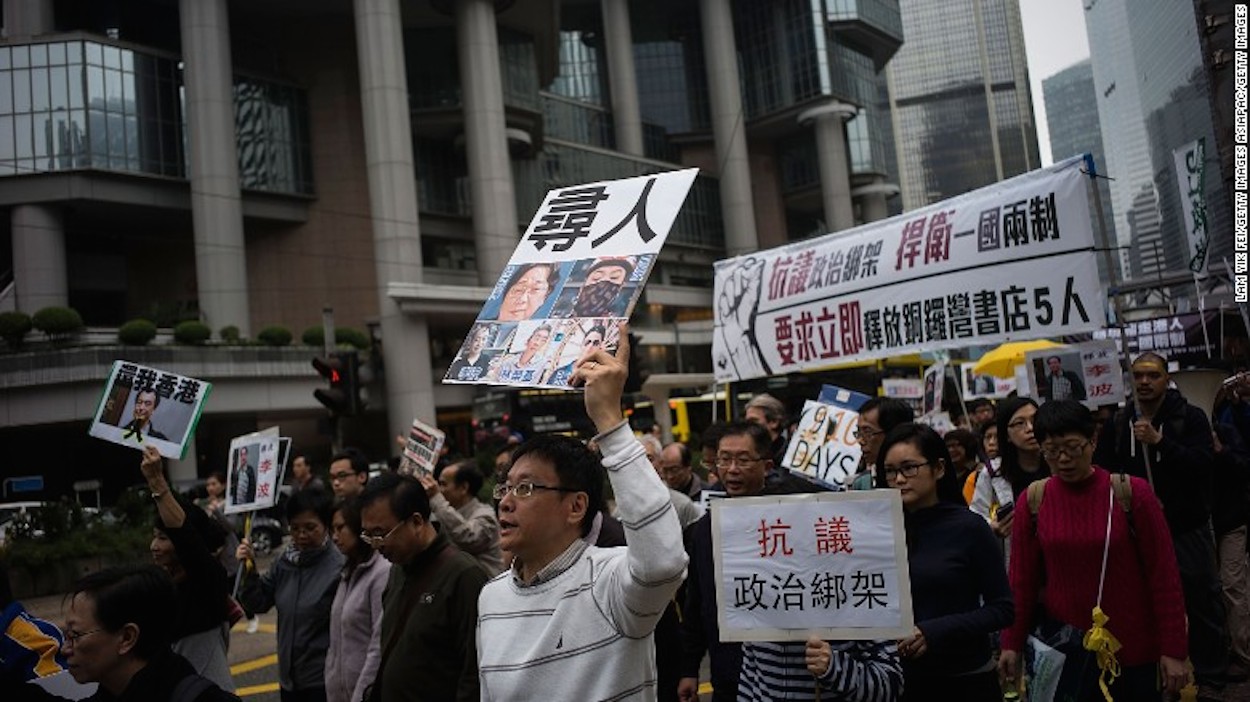 Some have interpreted the recent arrests of Chinese with foreign citizenship to signal a shift in the Chinese government calling for loyalty to China on the basis of ethnicity, trumping all else. This would not be particularly surprising. In particular, Chinese citizens who obtain foreign citizenships actually automatically lose their Chinese citizenship. But this has been disregarded in the recent arrests of former Chinese citizens for political dissent, with the insistence that because they were once Chinese citizens, they can still be prosecuted under Chinese law.
Some have interpreted the recent arrests of Chinese with foreign citizenship to signal a shift in the Chinese government calling for loyalty to China on the basis of ethnicity, trumping all else. This would not be particularly surprising. In particular, Chinese citizens who obtain foreign citizenships actually automatically lose their Chinese citizenship. But this has been disregarded in the recent arrests of former Chinese citizens for political dissent, with the insistence that because they were once Chinese citizens, they can still be prosecuted under Chinese law.
Restrictions on Foreign NGOs in China To Target Domestic Chinese Civil Society?
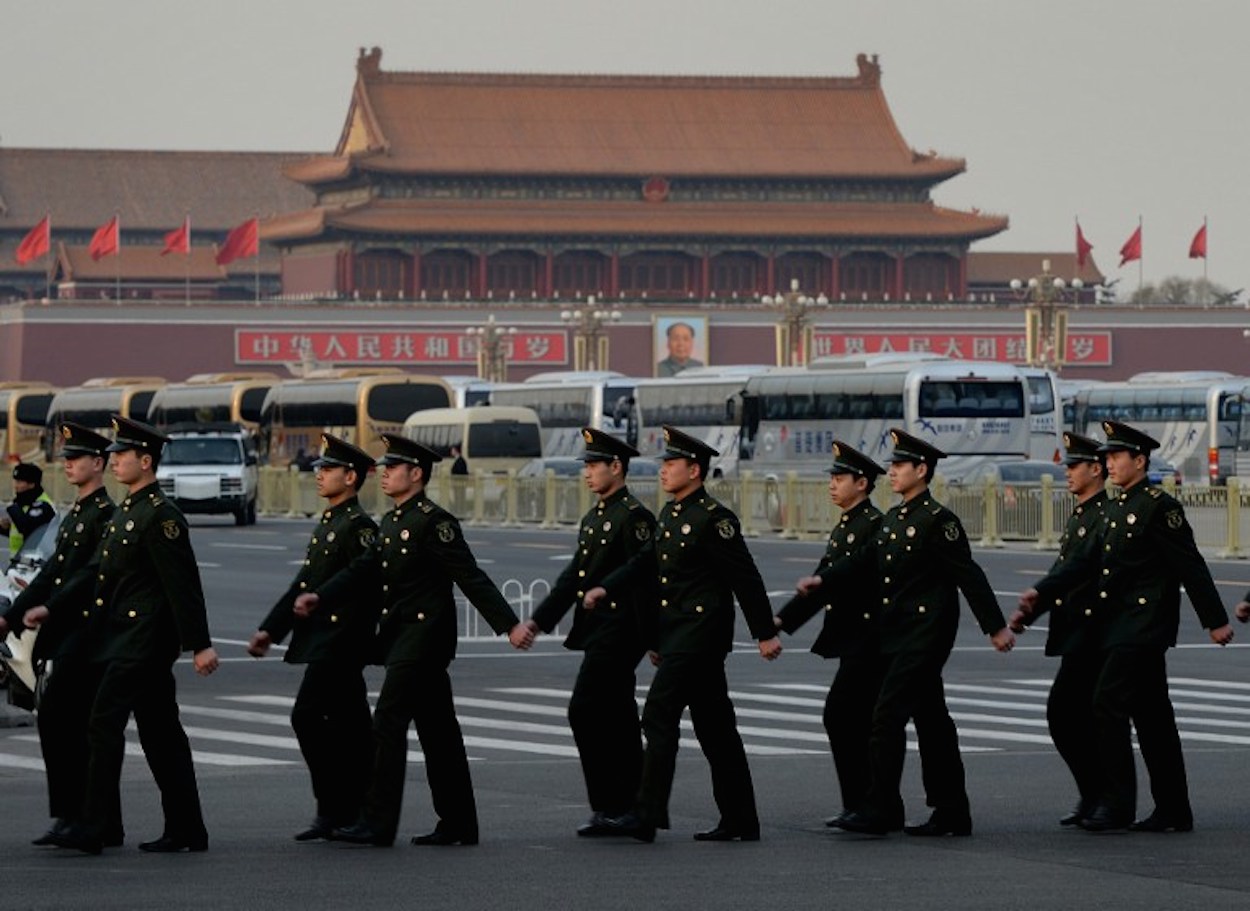 If a recent law passed in China to regulate foreign NGOs have provoked much anxiety, this would only be the expansion of efforts by the Chinese government to control Chinese civil society. Of course, it is that Chinese civil society has seen increasingly restrictive measures under the Xi Jinping administration. The Chinese party-state has a general fear of -restrictionscivil society groups in China becoming a threat to its power. But in particular, the targeting of foreign NGOs also likely is aimed at clamping down on domestic NGOs.
If a recent law passed in China to regulate foreign NGOs have provoked much anxiety, this would only be the expansion of efforts by the Chinese government to control Chinese civil society. Of course, it is that Chinese civil society has seen increasingly restrictive measures under the Xi Jinping administration. The Chinese party-state has a general fear of -restrictionscivil society groups in China becoming a threat to its power. But in particular, the targeting of foreign NGOs also likely is aimed at clamping down on domestic NGOs.
A Decline In Pan-Green Media?
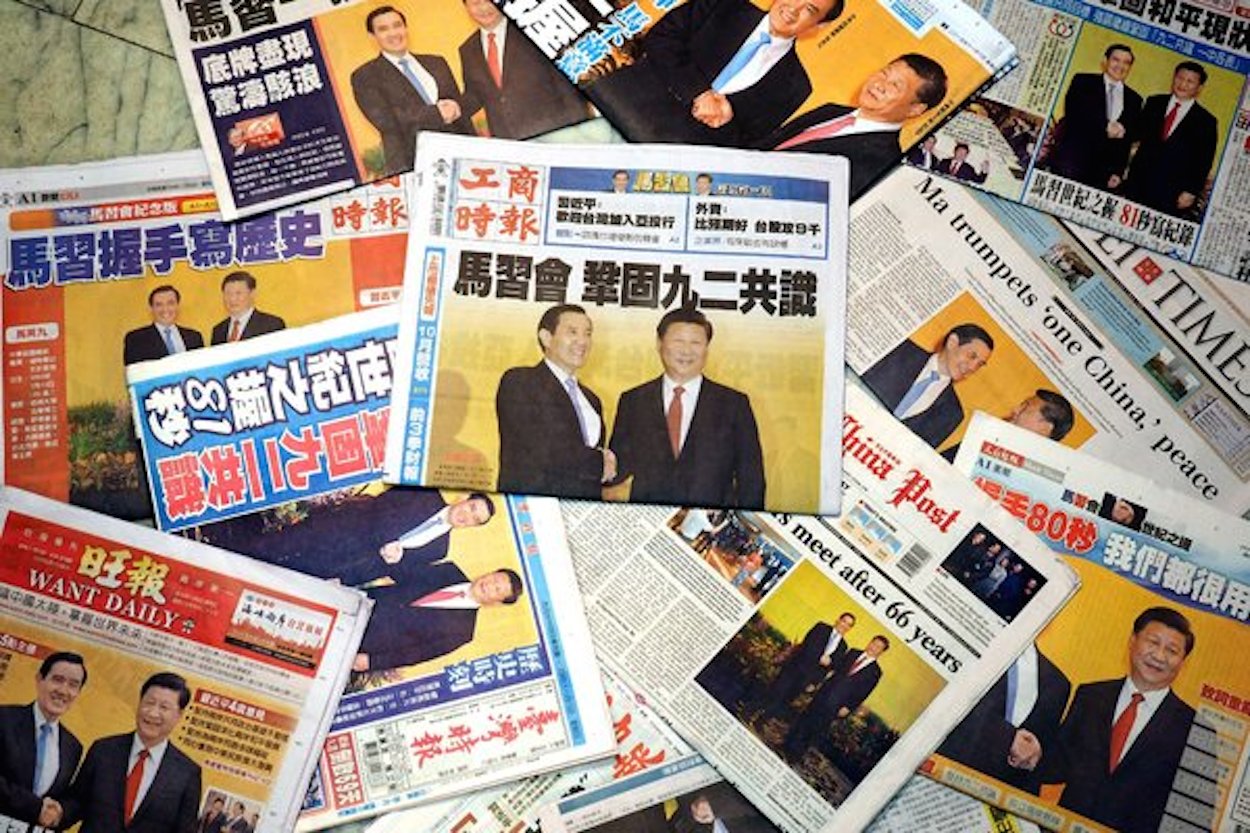 With the recent closing down of Thinking Taiwan and Taiwan Communique, English-language media outlets covering Taiwan have seen a blow. English language coverage of Taiwan is vital to Taiwan given English’s status as the world lingua franca. It is, however, that pan-Green media outlets in general face challenges regarding how to position themselves relative to the upcoming Tsai administration.
With the recent closing down of Thinking Taiwan and Taiwan Communique, English-language media outlets covering Taiwan have seen a blow. English language coverage of Taiwan is vital to Taiwan given English’s status as the world lingua franca. It is, however, that pan-Green media outlets in general face challenges regarding how to position themselves relative to the upcoming Tsai administration.
Continued Provocations by Ma Ying-Jeou Regarding Disputed Island Territories
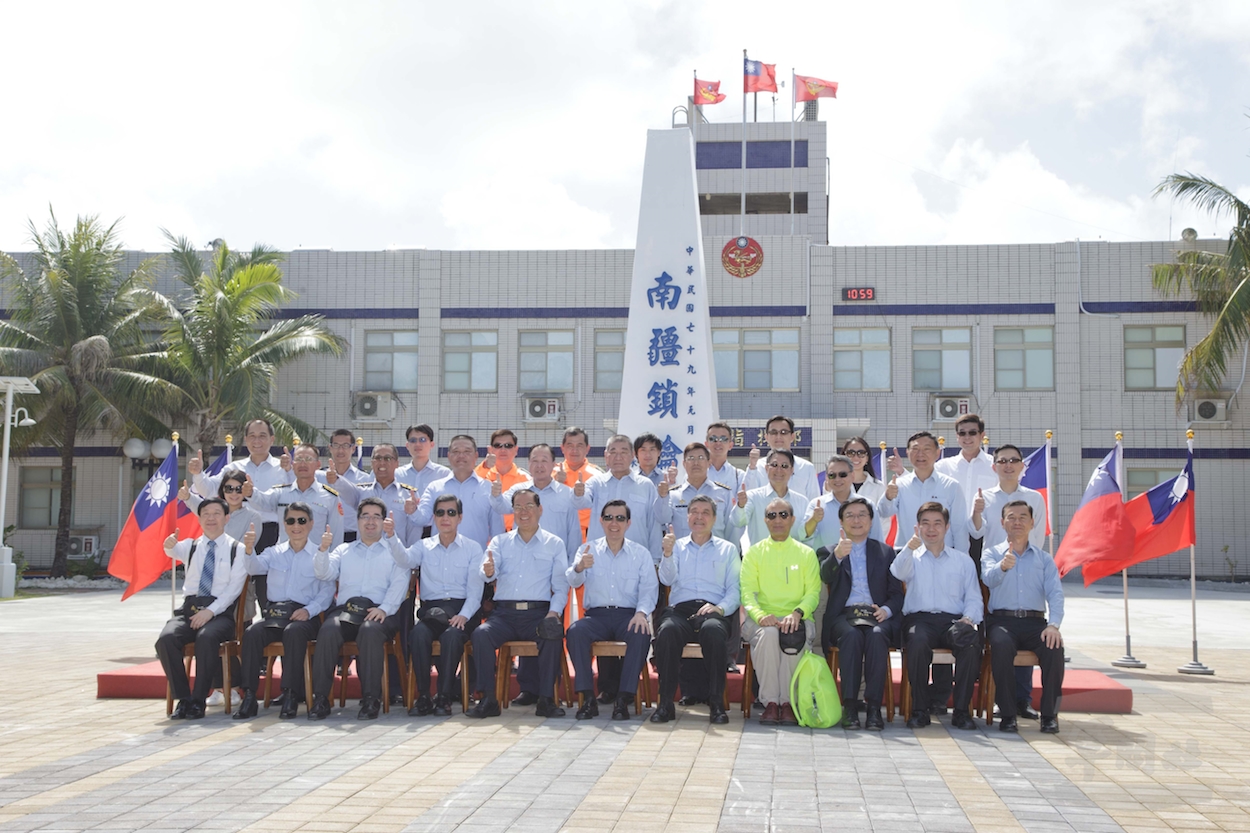 Why is Ma Ying-Jeou is making disputed South China Seas islands such an issue as of late, at risk of provoking tensions with neighboring countries? Ma’s actions regarding disputed South China Seas island territories as of late would seem to be beyond rhyme or reason. Ma’s actions may be wholly motivated by KMT ideology at this point.
Why is Ma Ying-Jeou is making disputed South China Seas islands such an issue as of late, at risk of provoking tensions with neighboring countries? Ma’s actions regarding disputed South China Seas island territories as of late would seem to be beyond rhyme or reason. Ma’s actions may be wholly motivated by KMT ideology at this point.
Okinawa, Taiwan, and Japan
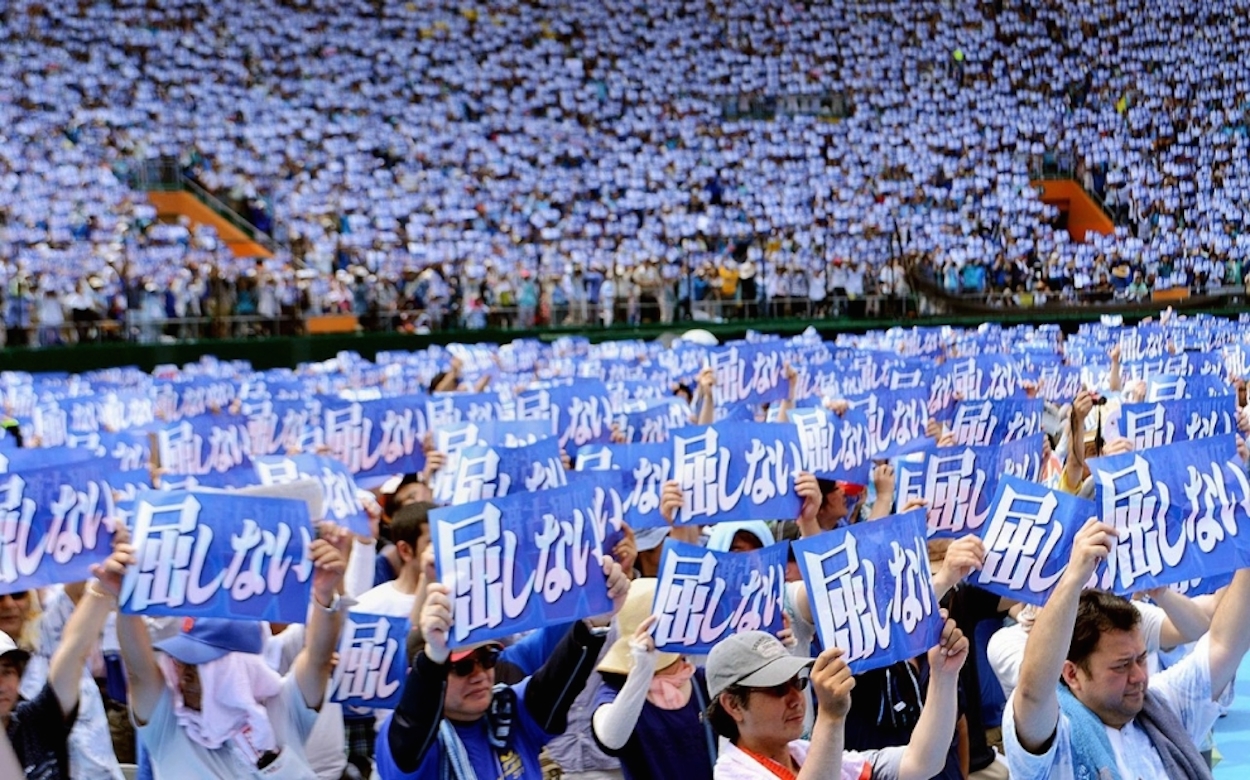 With recent attention paid to Chinese claims of sovereignty over Okinawa according to Chinese state-run media dating from 2013, we might examine the backdrop of these claims. A Japanese territory, containing American bases with over 25,000 servicemen, Chinese claims over Okinawa would be a provocation not only against Japan but also America. But what would the relation to Taiwan be?
With recent attention paid to Chinese claims of sovereignty over Okinawa according to Chinese state-run media dating from 2013, we might examine the backdrop of these claims. A Japanese territory, containing American bases with over 25,000 servicemen, Chinese claims over Okinawa would be a provocation not only against Japan but also America. But what would the relation to Taiwan be?
What Happens Once Ma Ying-Jeou’s Presidential Term Ends?
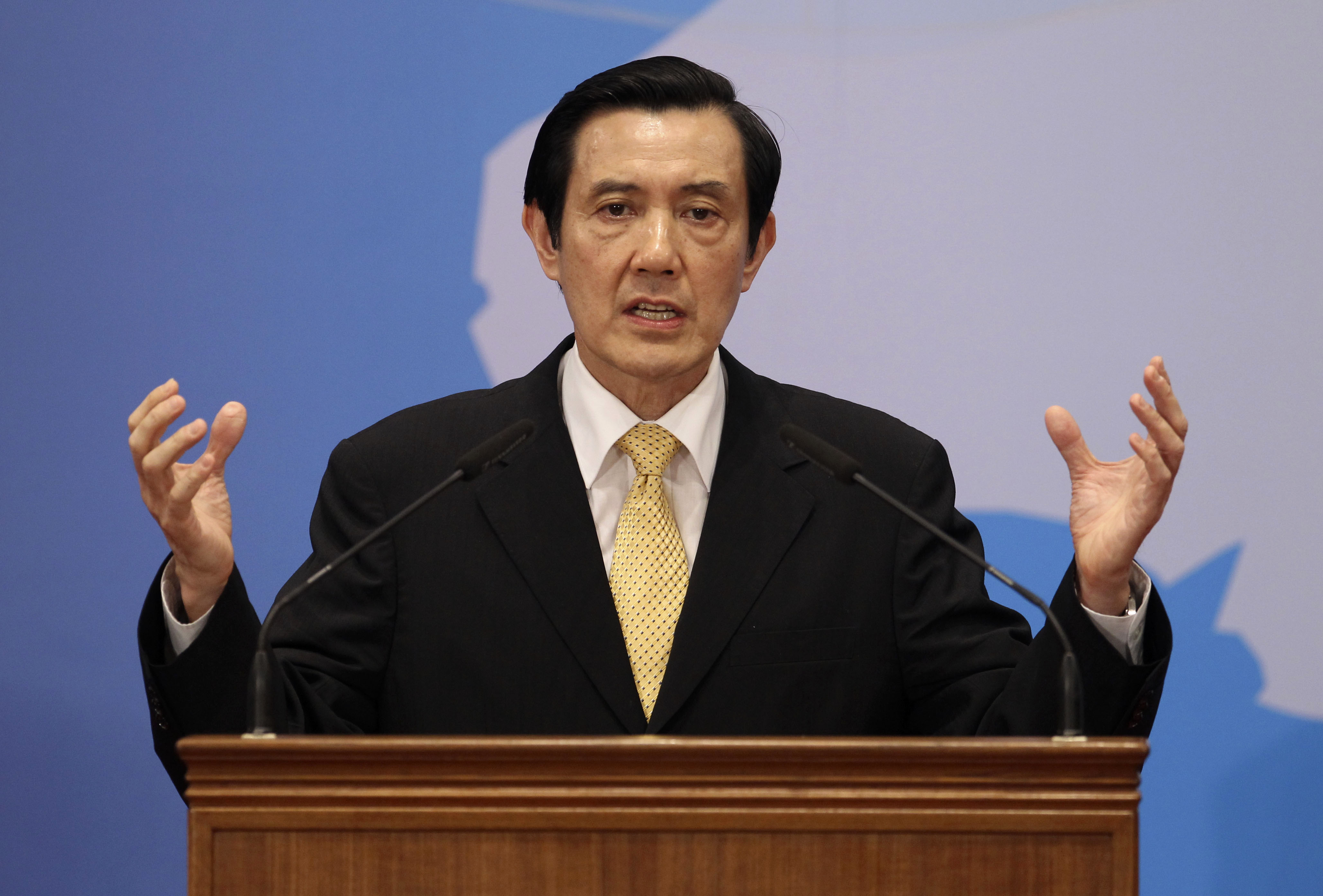 What happens once Ma Ying-Jeou’s presidential term ends? With less than a month before Tsai Ing-Wen’s inauguration, what lies next for Ma Ying-Jeou? Obviously in a “normal” nation-state, transitions of power between ruling parties occur peacefully. Former presidents usually retire peacefully, though they may continue to weigh in on politics in varying functions. But the debate about what should be done with Ma Ying-Jeou after his term ends is reflective of how Taiwan is far from a fully democratized country.
What happens once Ma Ying-Jeou’s presidential term ends? With less than a month before Tsai Ing-Wen’s inauguration, what lies next for Ma Ying-Jeou? Obviously in a “normal” nation-state, transitions of power between ruling parties occur peacefully. Former presidents usually retire peacefully, though they may continue to weigh in on politics in varying functions. But the debate about what should be done with Ma Ying-Jeou after his term ends is reflective of how Taiwan is far from a fully democratized country.
The Real Black Box?: Taiwan and the TPP
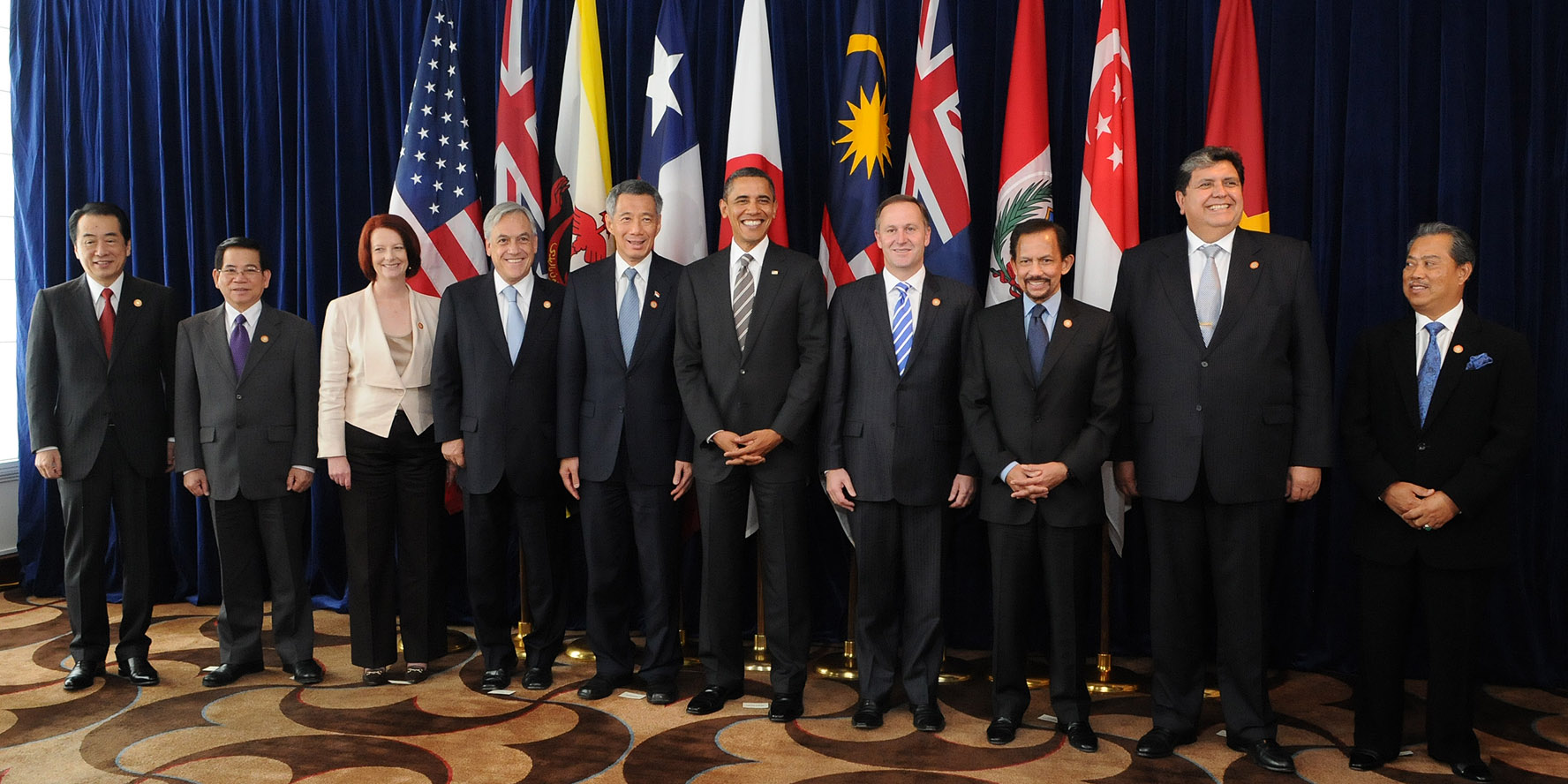 Based on policy statements during presidential elections, the strategy of Tsai Ing-Wen’s incoming administration would seem to be highly focused on signing free trade agreements in order to improve Taiwan’s international standing. This includes signing free trade agreements with China and America alike, as well as with Southeast Asian nations and Europe. If opposition against signing the RCEP with China is to be expected, given that it is a free trade agreement with China and would likely serve as a means for China to diminish Taiwanese sovereignty through economic means, the question of whether to sign the TPP or not is a bigger question for some. Yet if the CSSTA provoked such blowback in 2014 as a “Black Box” pushed through legislature without discussion, the TPP may be no less of a black box.
Based on policy statements during presidential elections, the strategy of Tsai Ing-Wen’s incoming administration would seem to be highly focused on signing free trade agreements in order to improve Taiwan’s international standing. This includes signing free trade agreements with China and America alike, as well as with Southeast Asian nations and Europe. If opposition against signing the RCEP with China is to be expected, given that it is a free trade agreement with China and would likely serve as a means for China to diminish Taiwanese sovereignty through economic means, the question of whether to sign the TPP or not is a bigger question for some. Yet if the CSSTA provoked such blowback in 2014 as a “Black Box” pushed through legislature without discussion, the TPP may be no less of a black box.
The TPP, American Pork Imports, And The Geopolitical Realities Of Free Trade
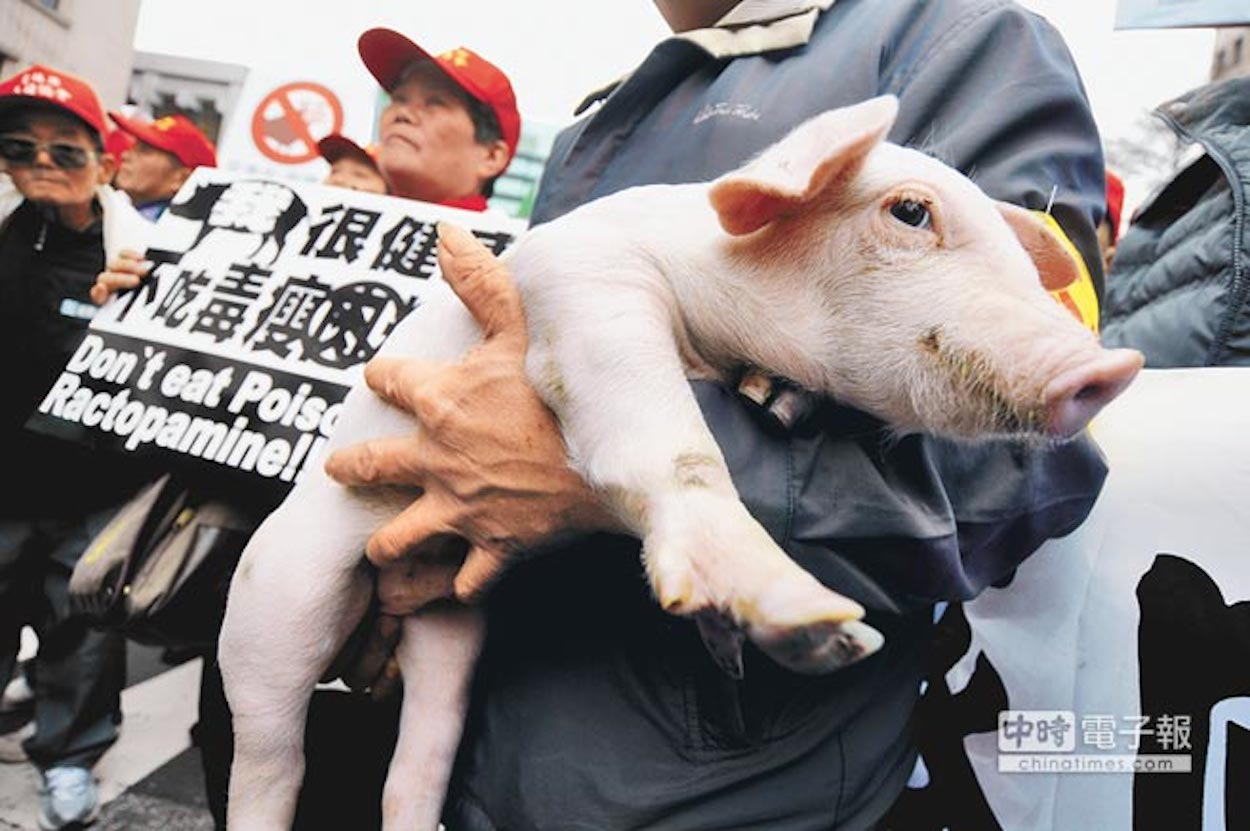 Political opposition to American pork imports is shaping up to be a divisive issue concerning TPP ratification in Taiwan. What is at stake regarding American pork imports is the prospects of a bid from Taiwan to join the TPP. We might take a deeper look at the issue.
Political opposition to American pork imports is shaping up to be a divisive issue concerning TPP ratification in Taiwan. What is at stake regarding American pork imports is the prospects of a bid from Taiwan to join the TPP. We might take a deeper look at the issue.
A Sign Of Future Attitudes From The DPP Towards Taiwanese Activists?
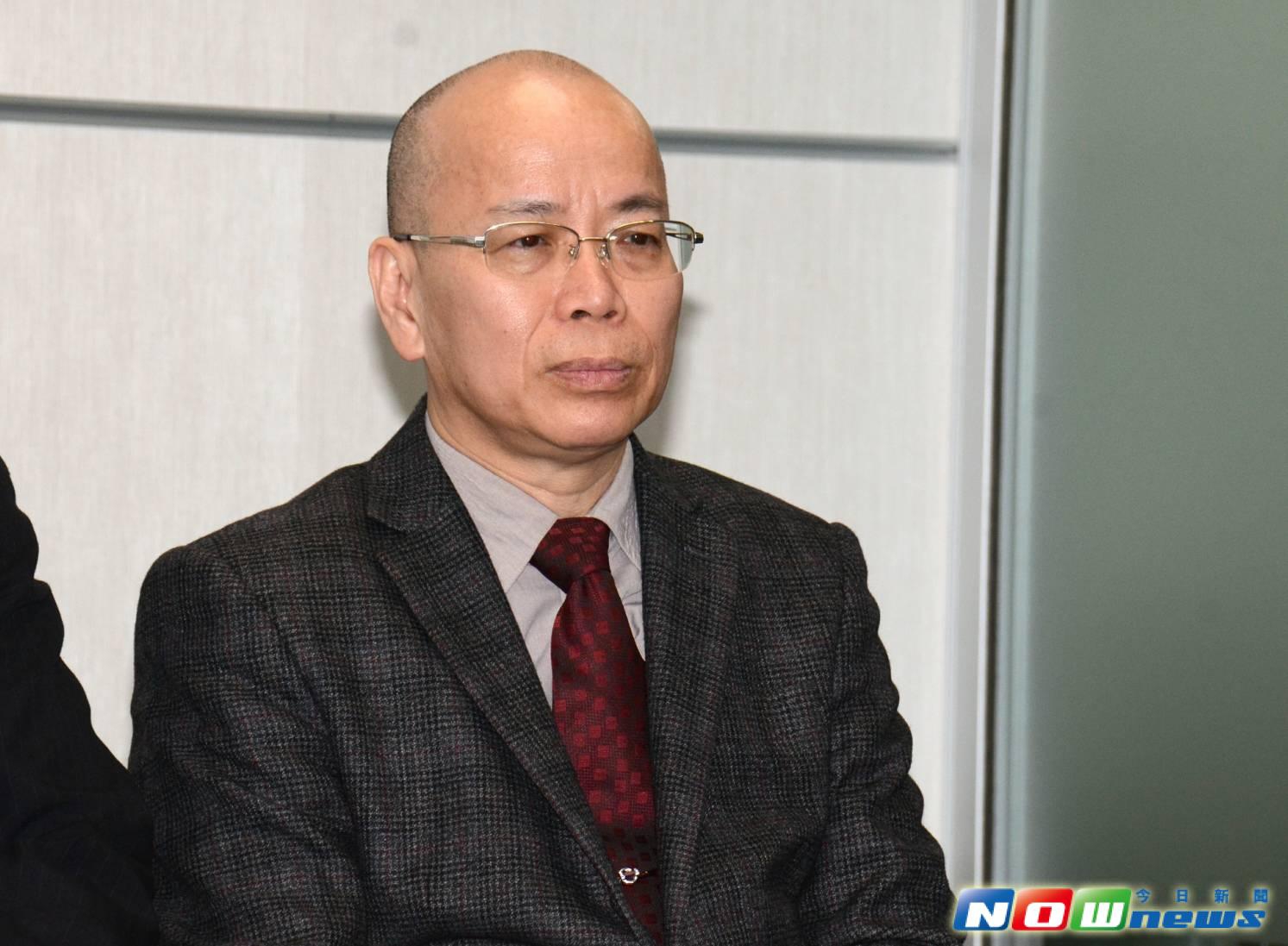 If recent comments by incoming DPP minister without portfolio Chang Ching-sen have drawn fire for their disdain of student protestors, perhaps this is a sign of what the DPP’s future attitudes towards Taiwan’s student protestors will be. Chang’s comments are revealing about the possible future for relations between activists and members of the Tsai administration.
If recent comments by incoming DPP minister without portfolio Chang Ching-sen have drawn fire for their disdain of student protestors, perhaps this is a sign of what the DPP’s future attitudes towards Taiwan’s student protestors will be. Chang’s comments are revealing about the possible future for relations between activists and members of the Tsai administration.
Interview: Joshua Wong (黃之鋒)
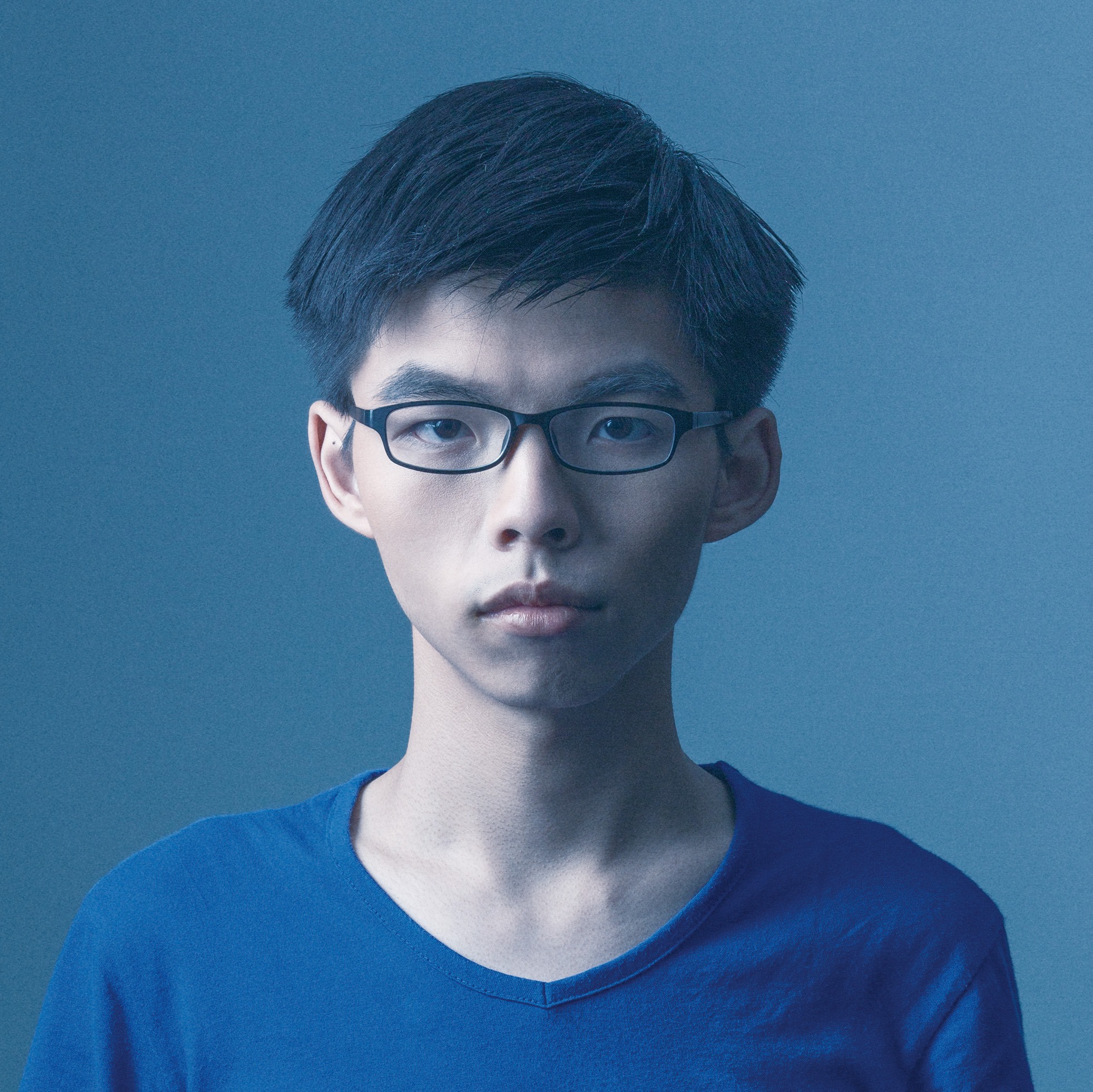 New Bloom editor Brian Hioe, along with friends and associates, interviewed Joshua Wong in New York, during a visit to the US by Wong in late April. Joshua Wong is most well known as a leading figure of the 2014 Umbrella Movement and for being the founder of Scholarism. Wong recently announced the formation of a new political party, Demosistō.
New Bloom editor Brian Hioe, along with friends and associates, interviewed Joshua Wong in New York, during a visit to the US by Wong in late April. Joshua Wong is most well known as a leading figure of the 2014 Umbrella Movement and for being the founder of Scholarism. Wong recently announced the formation of a new political party, Demosistō.
Is Taiwan A Third World Country?
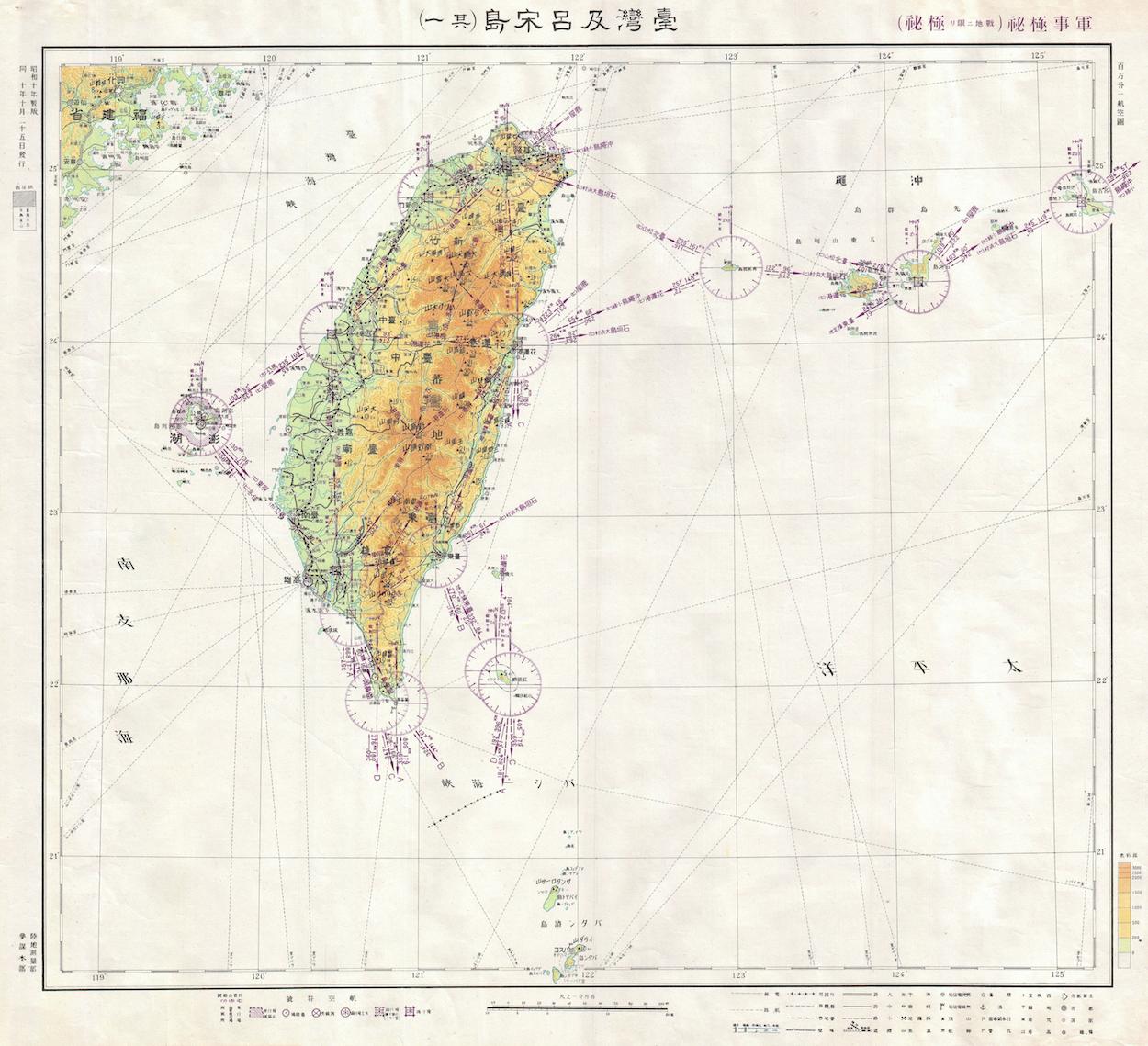 Is Taiwan a third world country? There exists complications in asking this question, in the sense that there were two different versions of “three worlds” theory asserted during the Cold War. But the question has broader implications for Taiwan’s status as a country caught between the two superpowers of the United States and China.
Is Taiwan a third world country? There exists complications in asking this question, in the sense that there were two different versions of “three worlds” theory asserted during the Cold War. But the question has broader implications for Taiwan’s status as a country caught between the two superpowers of the United States and China.
Review: Green Island
 Green Island is not only a well-researched and informative work, but also a well-written one. Spanning a period in Taiwanese history from the 228 Massacre to the 2003 SARS crisis as told through the lens of the protagonist’s personal experience, Green Island ably tells the story of Taiwan’s authoritarian period.
Green Island is not only a well-researched and informative work, but also a well-written one. Spanning a period in Taiwanese history from the 228 Massacre to the 2003 SARS crisis as told through the lens of the protagonist’s personal experience, Green Island ably tells the story of Taiwan’s authoritarian period.
Backlash Against The Cross Straits Oversight Bill From Activists
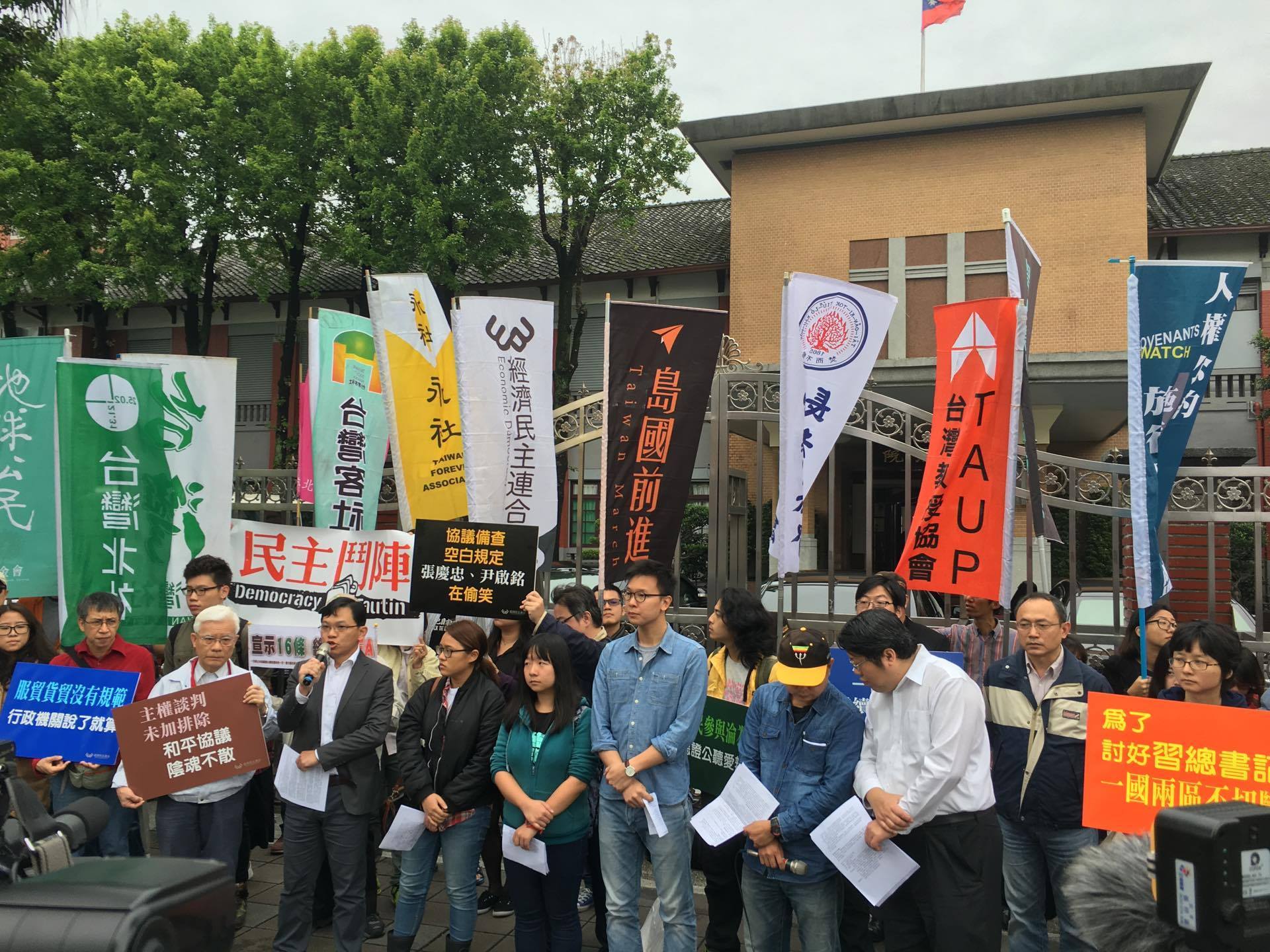 Controversy over the cross-straits oversight bill continues, with Sunflower activists criticizing the DPP’s version of the bill as insufficient in its ability to safeguard relations between Taiwan and China and demonstrating outside the Legislative Yuan on April 15th. The bill was originally proposed as a means to prevent a recurrence of the situation of a trade agreement with China being passed with little discussion of the measure in legislature, but the DPP under Tsai Ing-Wen still intends to pass the CSSTA trade bill which was what prompted the student occupation of the Legislative Yuan in 2014.
Controversy over the cross-straits oversight bill continues, with Sunflower activists criticizing the DPP’s version of the bill as insufficient in its ability to safeguard relations between Taiwan and China and demonstrating outside the Legislative Yuan on April 15th. The bill was originally proposed as a means to prevent a recurrence of the situation of a trade agreement with China being passed with little discussion of the measure in legislature, but the DPP under Tsai Ing-Wen still intends to pass the CSSTA trade bill which was what prompted the student occupation of the Legislative Yuan in 2014.
Bipartisan Politics and Conflicts of Interests for the Tsai Administration
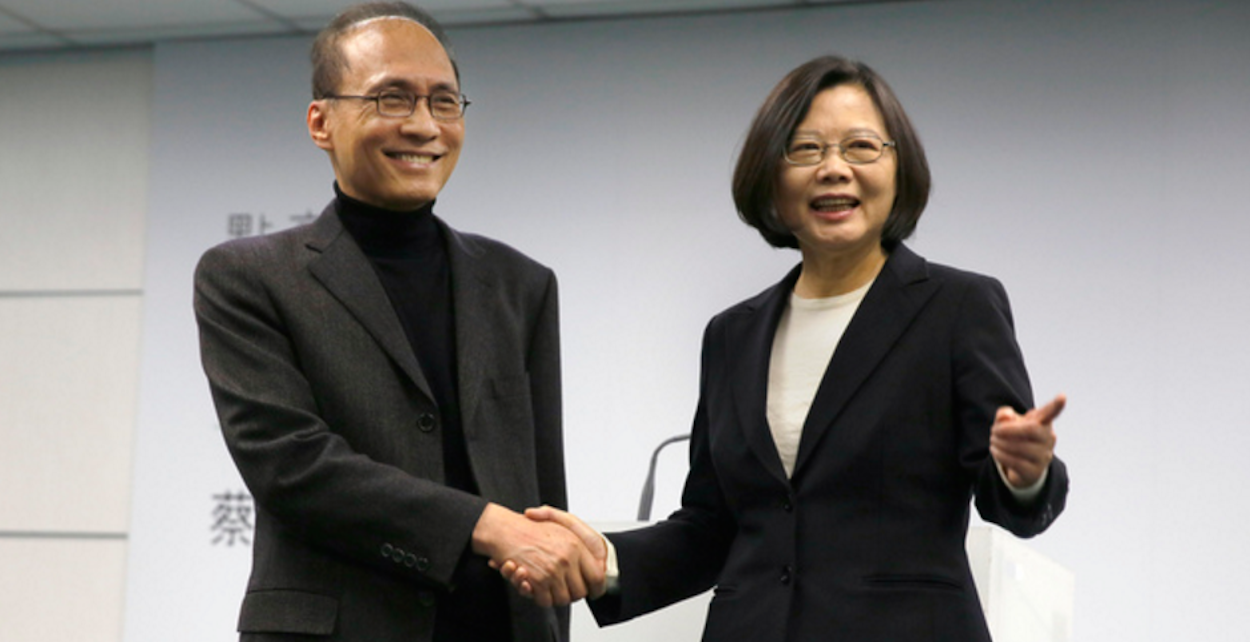 Given the prominence of entrenched political and business interests in Taiwanese politics and that this is well-known by the public, it is not surprising that the upcoming Tsai Ing-Wen administration is attempting to make a show of differing from political norms. We see this in current efforts to show that the Tsai administration will go beyond party lines in its political appointments and will not allow business interests to unduly influence it. But will this be successful?
Given the prominence of entrenched political and business interests in Taiwanese politics and that this is well-known by the public, it is not surprising that the upcoming Tsai Ing-Wen administration is attempting to make a show of differing from political norms. We see this in current efforts to show that the Tsai administration will go beyond party lines in its political appointments and will not allow business interests to unduly influence it. But will this be successful?
Questions of Justice in the Kenya Deportations?
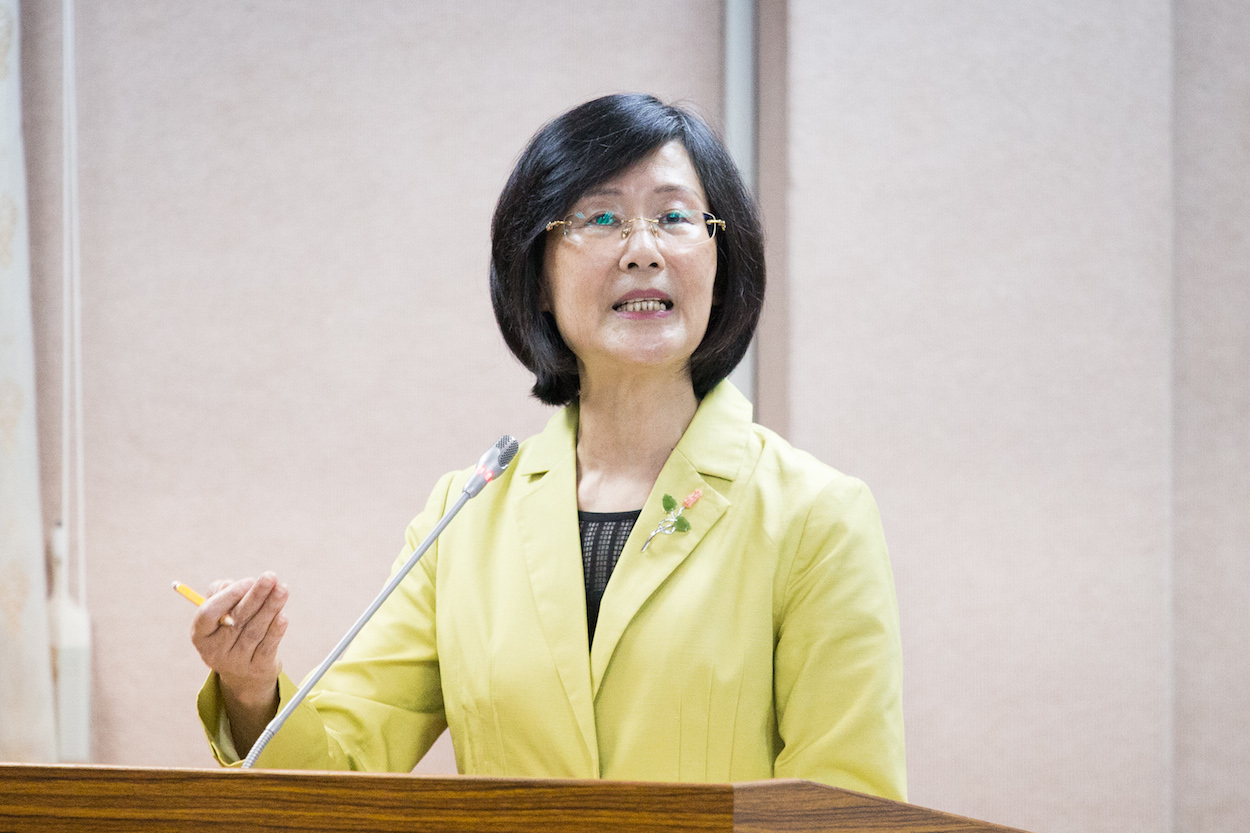 Questions of justice and the law have been a constant in discussions of the case of Kenyan deportations of Taiwanese citizens to China. Although it is legal to deport individuals who have broken the law to a third country, it remains a question as to the proper legal actions in this case, and what would be the just solution. If it seems likely that Taiwanese criminals would get off without punishment had they been deported to Taiwan, the flipside of this is that legal punishment from China is likely to be overly severe and beyond the pale of justice.
Questions of justice and the law have been a constant in discussions of the case of Kenyan deportations of Taiwanese citizens to China. Although it is legal to deport individuals who have broken the law to a third country, it remains a question as to the proper legal actions in this case, and what would be the just solution. If it seems likely that Taiwanese criminals would get off without punishment had they been deported to Taiwan, the flipside of this is that legal punishment from China is likely to be overly severe and beyond the pale of justice.
A Pardon for Chen Shui-Bian?
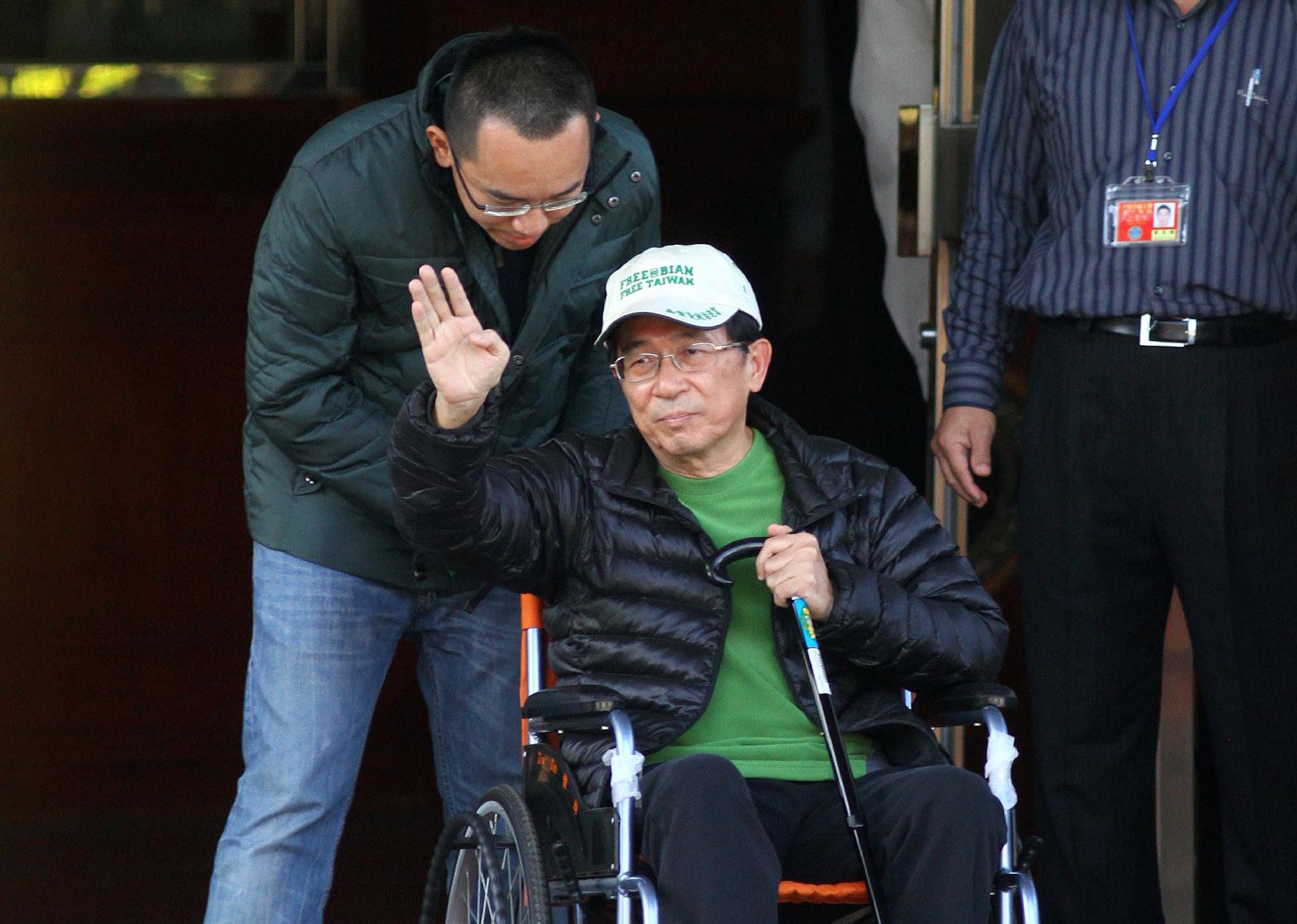 With the second DPP administration under Tsai Ing-Wen incoming, the question of Chen Shui-Bian, the first DPP president and the only previous non-KMT in Taiwanese history, has once again become a political issue. The possibility of a presidential pardon for former president Chen Shui-Bian remains a divisive issue.
With the second DPP administration under Tsai Ing-Wen incoming, the question of Chen Shui-Bian, the first DPP president and the only previous non-KMT in Taiwanese history, has once again become a political issue. The possibility of a presidential pardon for former president Chen Shui-Bian remains a divisive issue.
Mysteries Remain in Kenya Deportations
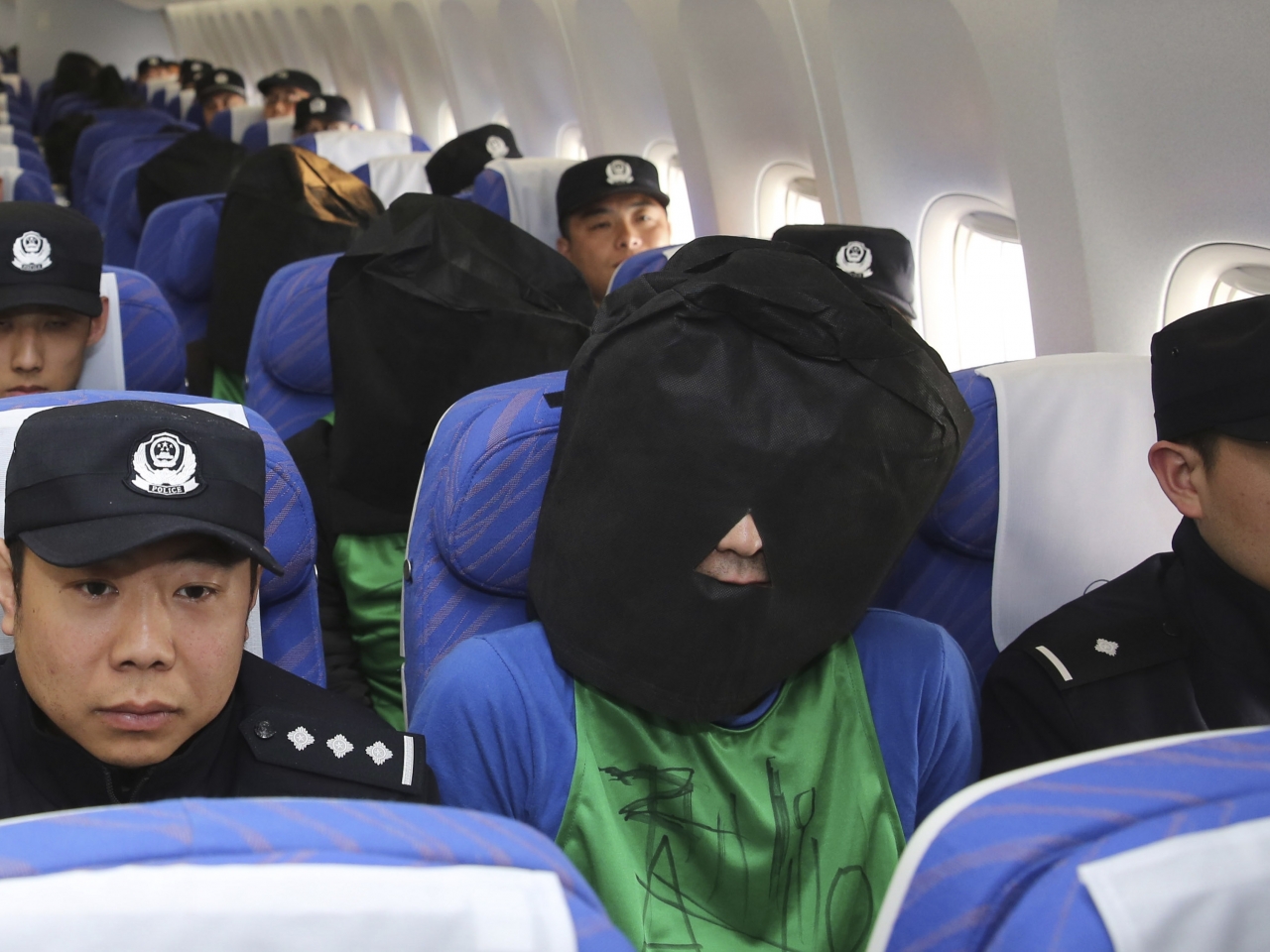 Mysteries continue to abound regarding the deportation of 45 Taiwanese from Kenya to China, with the overall circumstances of the deportation remaining unclear. The situation has become further complicated with televised confessions of guilt from suspects in Chinese state-run media and attempts by China to deport Taiwanese suspects to China from Malaysia. We might take a look.
Mysteries continue to abound regarding the deportation of 45 Taiwanese from Kenya to China, with the overall circumstances of the deportation remaining unclear. The situation has become further complicated with televised confessions of guilt from suspects in Chinese state-run media and attempts by China to deport Taiwanese suspects to China from Malaysia. We might take a look.
From Populism to Localism
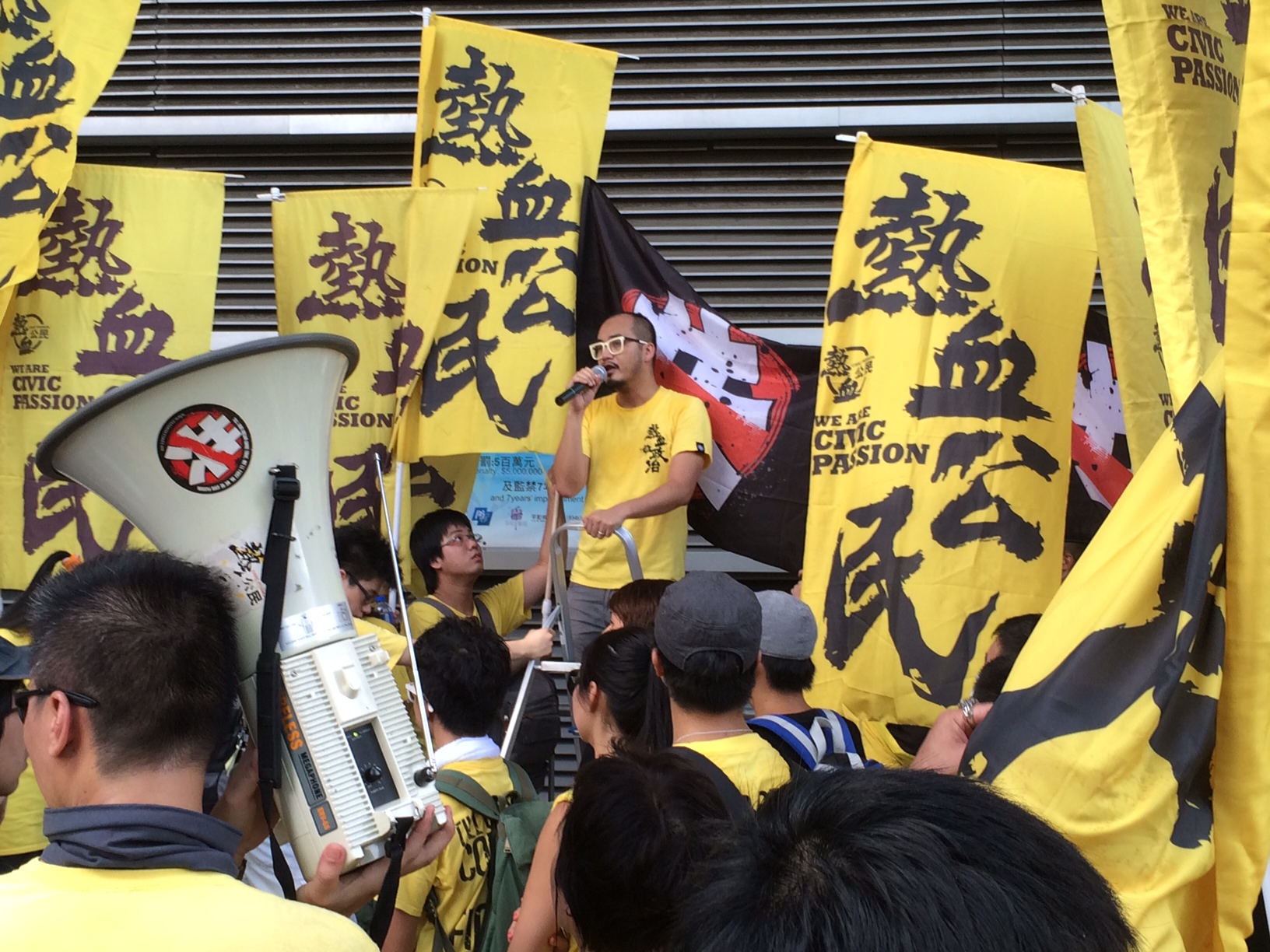 The talk on Hong Kong identity has rattled for so long in the political realm, marking the fact that the rise of localism, together with the rhetorical style it makes fashionable, has unfortunately crowded out the conversations on other more important institutional issues.
The talk on Hong Kong identity has rattled for so long in the political realm, marking the fact that the rise of localism, together with the rhetorical style it makes fashionable, has unfortunately crowded out the conversations on other more important institutional issues.
Chinese Media in Revolt?
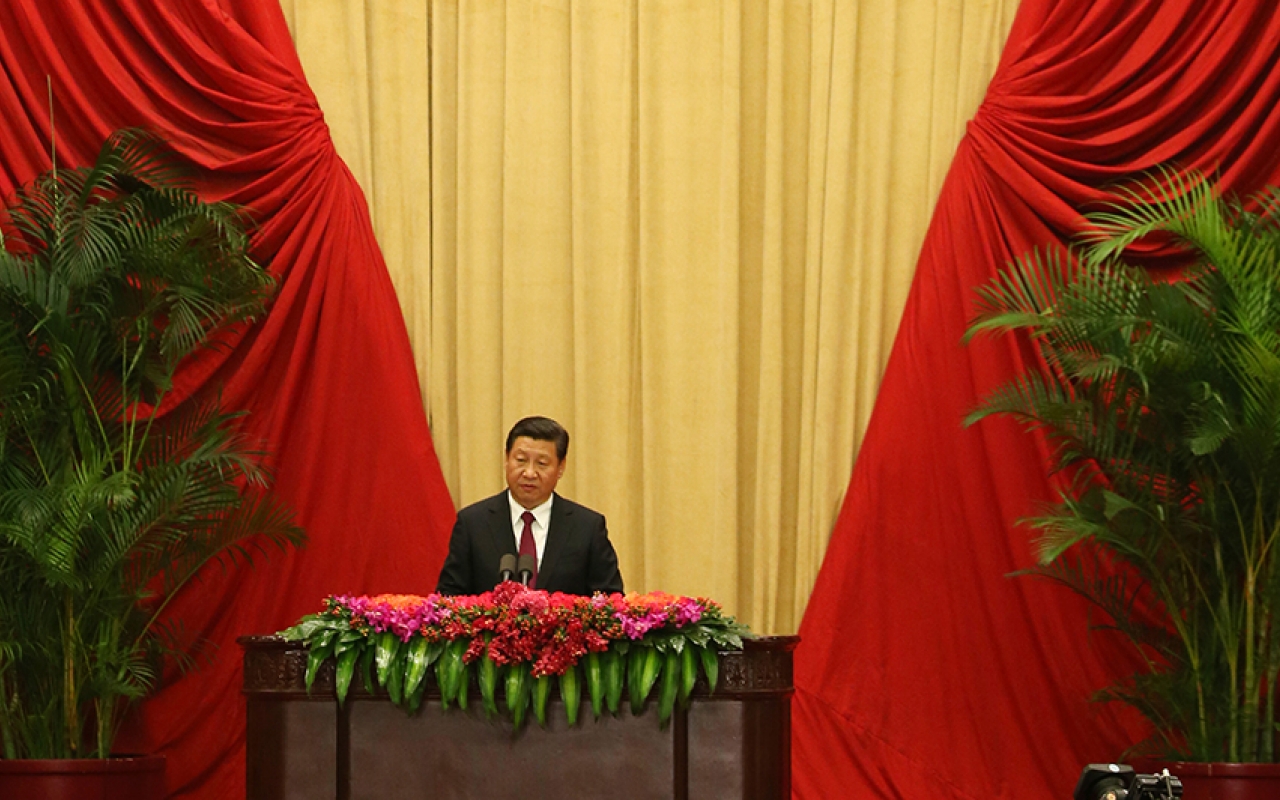 Although always already precarious, press freedoms in China have seen a further downward spiral under the Xi Jinping administration as of late, recent events having raised fears regarding Xi’s incipient cult of personality and controls on media. Namely, a string of over 20 arrests have been made regarding a letter published on the partly state-backed Wujie News calling for Xi to resign.
Although always already precarious, press freedoms in China have seen a further downward spiral under the Xi Jinping administration as of late, recent events having raised fears regarding Xi’s incipient cult of personality and controls on media. Namely, a string of over 20 arrests have been made regarding a letter published on the partly state-backed Wujie News calling for Xi to resign.
The Formation of Demosistō in Hong Kong and Comparisons to 2016 Elections in Taiwan
 Questions of activists entering electoral politics are back on the table in Hong Kong with the formation of the Demosistō political party from Umbrella Movement student leaders such as Joshua Wong and Agnes Chow. The formation of Demosistō occurs after the dissolution of the Scholarism, the student group which played a key role in the 2014 Umbrella Movement. We might draw comparison to the entrance of post-Sunflower groups into electoral politics in 2016 elections in Taiwan.
Questions of activists entering electoral politics are back on the table in Hong Kong with the formation of the Demosistō political party from Umbrella Movement student leaders such as Joshua Wong and Agnes Chow. The formation of Demosistō occurs after the dissolution of the Scholarism, the student group which played a key role in the 2014 Umbrella Movement. We might draw comparison to the entrance of post-Sunflower groups into electoral politics in 2016 elections in Taiwan.
Chinese Kidnappings of Taiwanese Nationals in Kenya Provoke Fears, Outrage, Questions
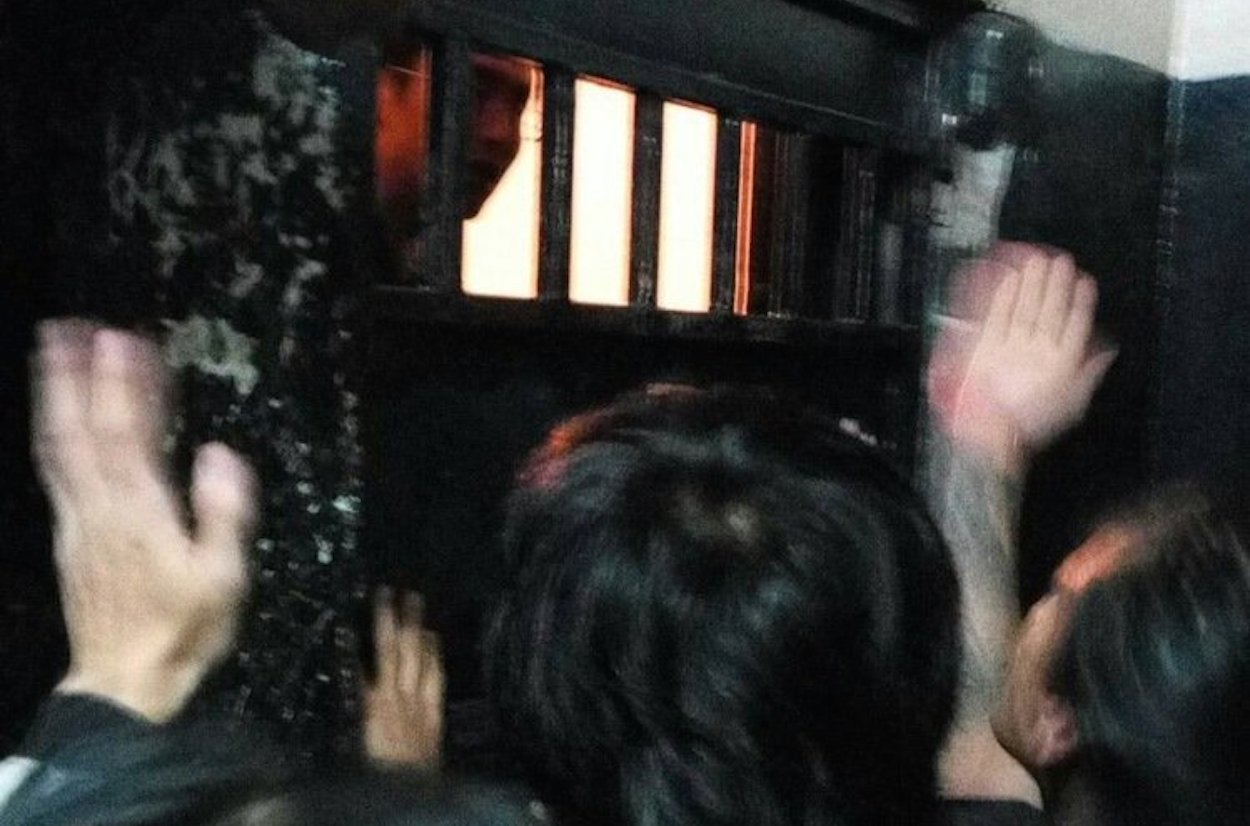 Deportation of Taiwanese nationals from Kenya to China, rather than Taiwan, provokes anger. The Taiwanese nationals were arrested on charges of telecoms fraud, along with 54 Chinese. Originally ordered to leave the country within 21 days, despite having previously been acquitted, eight of the arrested Taiwanese were then deported to China rather than Taiwan after pressure from the Chinese government. After a period of time in which their fate was unclear, the other 37 subsequently were also deported to China. Though many mysteries remain to be clarified, we might take a look at the overall context of the incident.
Deportation of Taiwanese nationals from Kenya to China, rather than Taiwan, provokes anger. The Taiwanese nationals were arrested on charges of telecoms fraud, along with 54 Chinese. Originally ordered to leave the country within 21 days, despite having previously been acquitted, eight of the arrested Taiwanese were then deported to China rather than Taiwan after pressure from the Chinese government. After a period of time in which their fate was unclear, the other 37 subsequently were also deported to China. Though many mysteries remain to be clarified, we might take a look at the overall context of the incident.
The Possibilities for Multiparty Politics in Taiwan
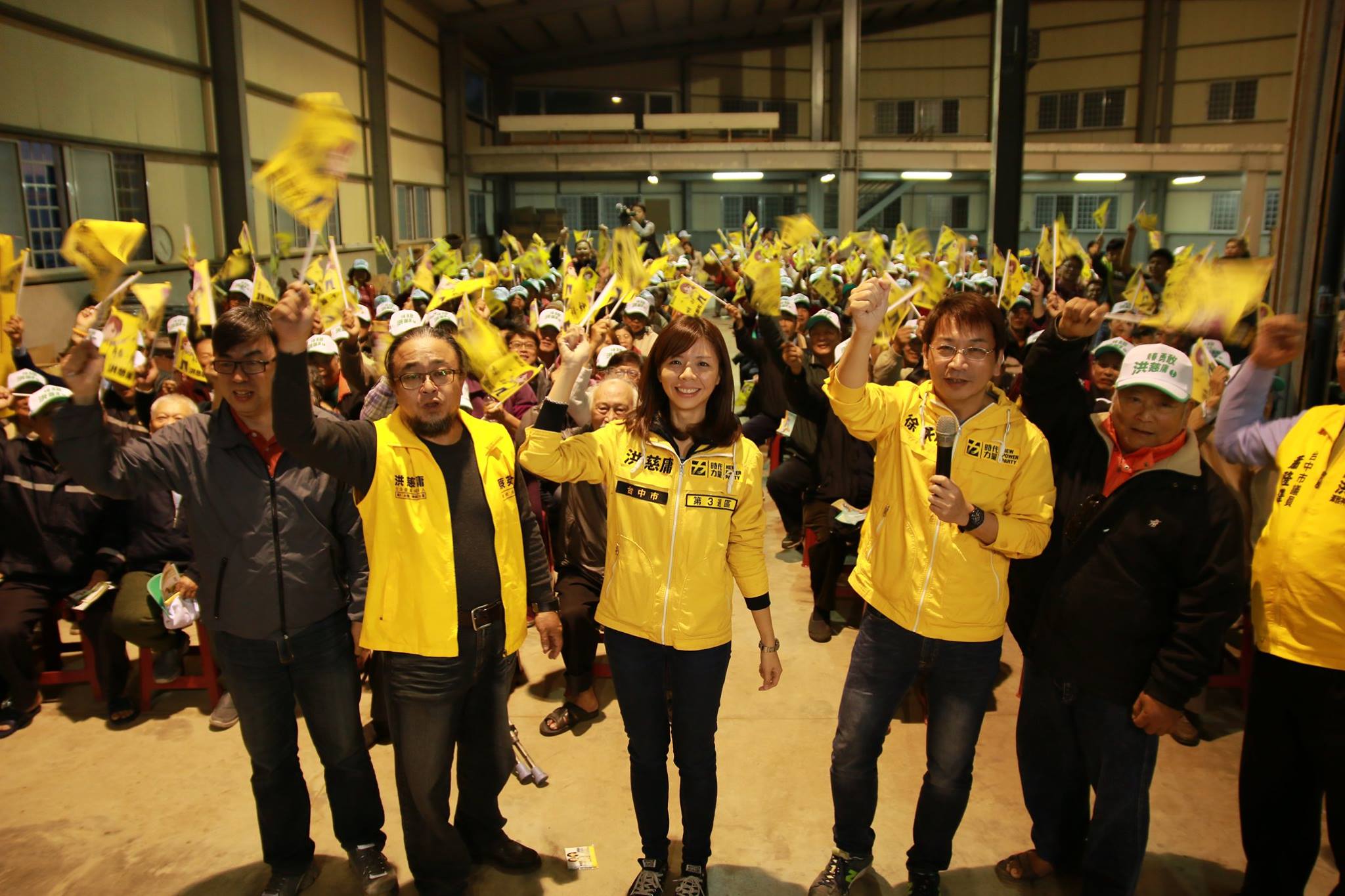 Of these three newly formed parties which ran in 2016 elections, only the New Power Party would be victorious in getting a representative into legislature. However, during the period in time in which the New Power Party, Social Democratic Party, and Free Taiwan Party seemed like viable third parties that would get into legislature, we may note that there was in fact much anxiety raised from western observers of Taiwanese politics that this would result in an upset to stable two party politics in Taiwan. Despite the failure of other political parties to get into legislature apart from the New Power Party, questions about the possibility for multiparty politics in Taiwan remain salient. Is it possible for there to be multiparty politics in Taiwan?
Of these three newly formed parties which ran in 2016 elections, only the New Power Party would be victorious in getting a representative into legislature. However, during the period in time in which the New Power Party, Social Democratic Party, and Free Taiwan Party seemed like viable third parties that would get into legislature, we may note that there was in fact much anxiety raised from western observers of Taiwanese politics that this would result in an upset to stable two party politics in Taiwan. Despite the failure of other political parties to get into legislature apart from the New Power Party, questions about the possibility for multiparty politics in Taiwan remain salient. Is it possible for there to be multiparty politics in Taiwan?
Questions of Art and Politics In The Controversy Over Ten Years
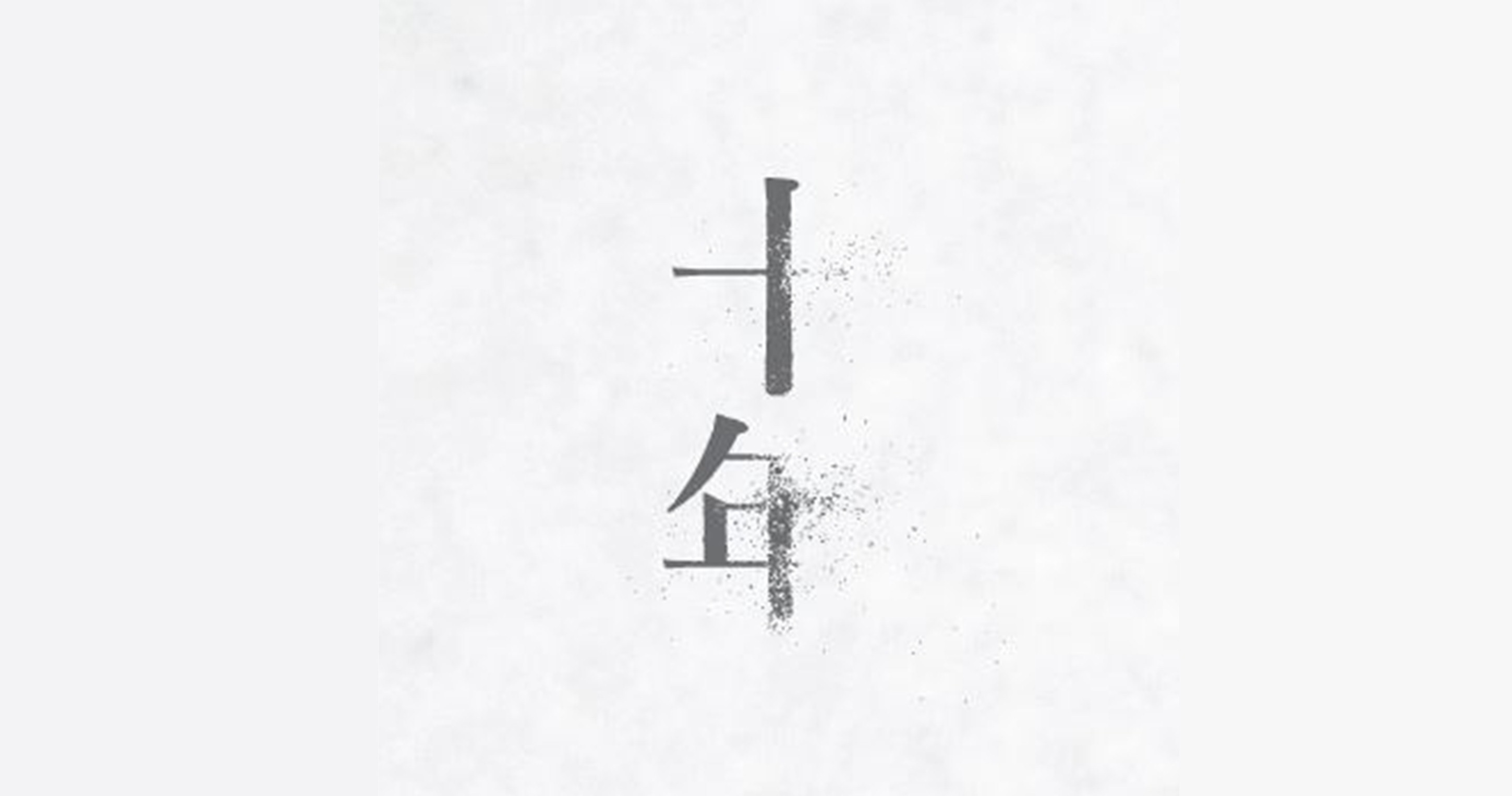 Hong Kong film Ten Years would have come to the world’s attention after unexpectedly winning best film at the Hong Kong Film Awards. A dystopian speculative fiction film about Hong Kong in the near future under Chinese rule, the win has provoked controversy. What is controversial is the unorthodox nature of its victory and the questions of art and politics which are at stake.
Hong Kong film Ten Years would have come to the world’s attention after unexpectedly winning best film at the Hong Kong Film Awards. A dystopian speculative fiction film about Hong Kong in the near future under Chinese rule, the win has provoked controversy. What is controversial is the unorthodox nature of its victory and the questions of art and politics which are at stake.
Why Has Ko Wen-Je Seen a Drop in Popularity As Of Late?
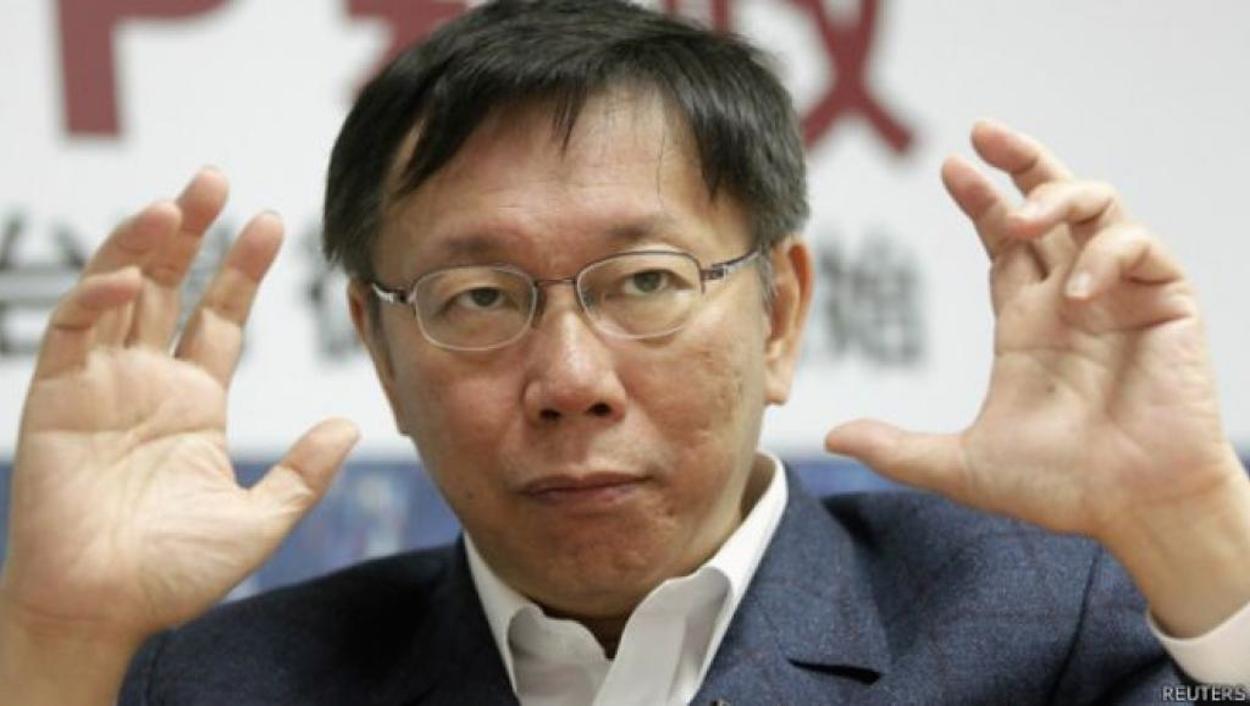 Voted in during nine-in-one elections in 2014, Taipei mayor Ko Wen-Je came to the mayorship with a surge of popularity. But in recent weeks, Ko’s popularity has dropped to 30% and out of Taiwan’s mayors, he is ranked last in popularity. It would be that at a certain point, the Ko honeymoon came to an end. Why has Ko Wen-Je’s popularity suffered decline in recent weeks? We might take a look.
Voted in during nine-in-one elections in 2014, Taipei mayor Ko Wen-Je came to the mayorship with a surge of popularity. But in recent weeks, Ko’s popularity has dropped to 30% and out of Taiwan’s mayors, he is ranked last in popularity. It would be that at a certain point, the Ko honeymoon came to an end. Why has Ko Wen-Je’s popularity suffered decline in recent weeks? We might take a look.
The Panama Papers and China’s Power Elite
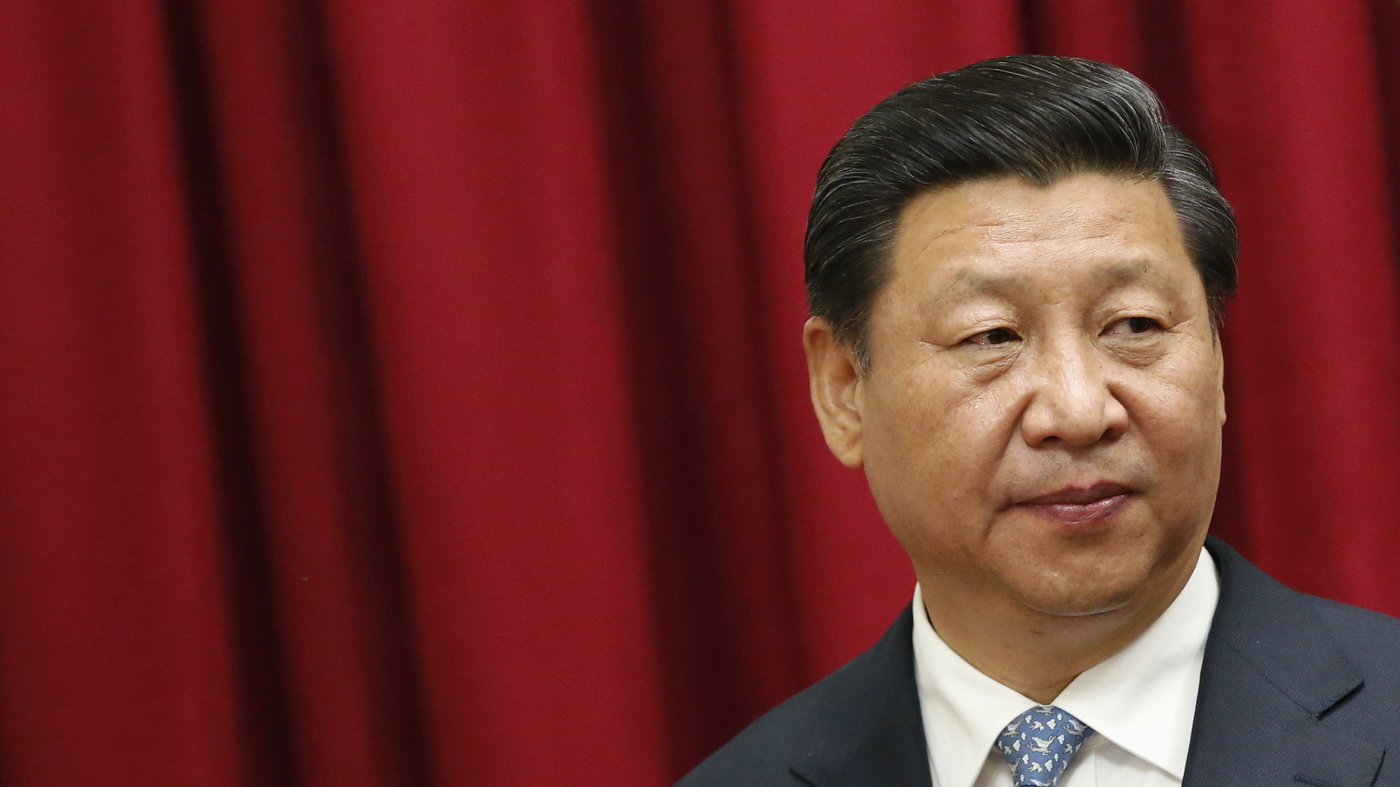 What do the Panama Papers reveal about China’s power elite? And what possible implications could this have? What the Panama Papers would pose a challenge for is China’s current ongoing anti-corruption campaign. In the name of rooting out corruption, Xi Jinping has pursued the deposing of numerous powerful CCP leaders. Although it had been long rumored that the Xi family had substantial wealth of its own, Xi was aided in this by a reputation for being incorruptible, and some were willing to take Xi as being a genuine reformer. Certainly, the Panama Paper revelations would deal a blow to the credibility of Xi’s anti-corruption campaign, with Xi himself being implicated.
What do the Panama Papers reveal about China’s power elite? And what possible implications could this have? What the Panama Papers would pose a challenge for is China’s current ongoing anti-corruption campaign. In the name of rooting out corruption, Xi Jinping has pursued the deposing of numerous powerful CCP leaders. Although it had been long rumored that the Xi family had substantial wealth of its own, Xi was aided in this by a reputation for being incorruptible, and some were willing to take Xi as being a genuine reformer. Certainly, the Panama Paper revelations would deal a blow to the credibility of Xi’s anti-corruption campaign, with Xi himself being implicated.
Why Does Everyone in Taiwan Want To Be Chinese After A Massacre Happens?
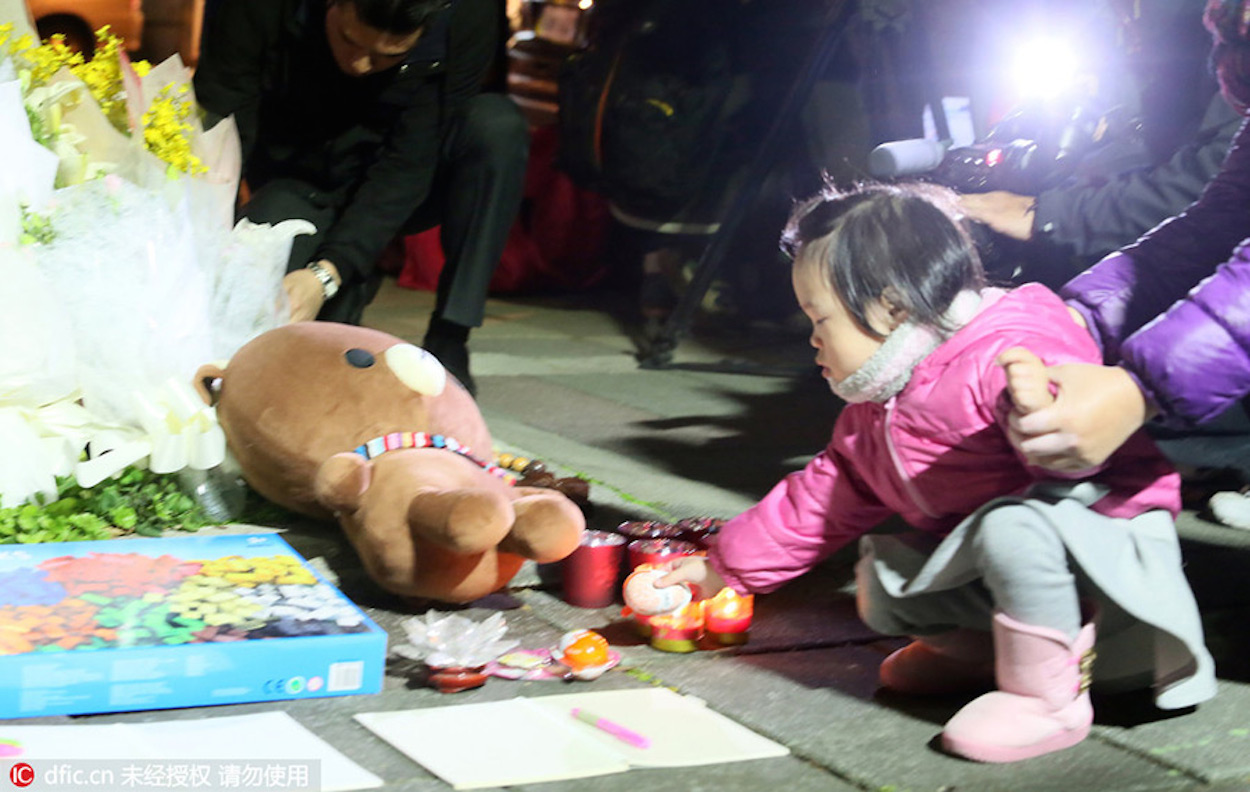 On March 28th, a child was ruthlessly murdered, leading to a tremendous panic in Taiwan. All kinds of methods to deal with the crime have been suggested, including: Requiring an identity card to purchase kitchen knives and everyday cutting tools. Reviving “guilt by association” from Taiwan’s martial law period, and make the parents of adult offenders also assume criminal responsibility. Strengthen police authority, and allow them the ability to force treatment on people affected with psychological disorders. Set up the death penalty as the only criminal punishment for child killers. Etc, etc. As for the reasons why these kinds of stabbing incidents have abruptly emerged in Taiwan over the last few years, both the local media and netizens have remained largely silent, and seldom discuss the issue.
On March 28th, a child was ruthlessly murdered, leading to a tremendous panic in Taiwan. All kinds of methods to deal with the crime have been suggested, including: Requiring an identity card to purchase kitchen knives and everyday cutting tools. Reviving “guilt by association” from Taiwan’s martial law period, and make the parents of adult offenders also assume criminal responsibility. Strengthen police authority, and allow them the ability to force treatment on people affected with psychological disorders. Set up the death penalty as the only criminal punishment for child killers. Etc, etc. As for the reasons why these kinds of stabbing incidents have abruptly emerged in Taiwan over the last few years, both the local media and netizens have remained largely silent, and seldom discuss the issue.
The Controversy Over the Cross-Strait Oversight Bill
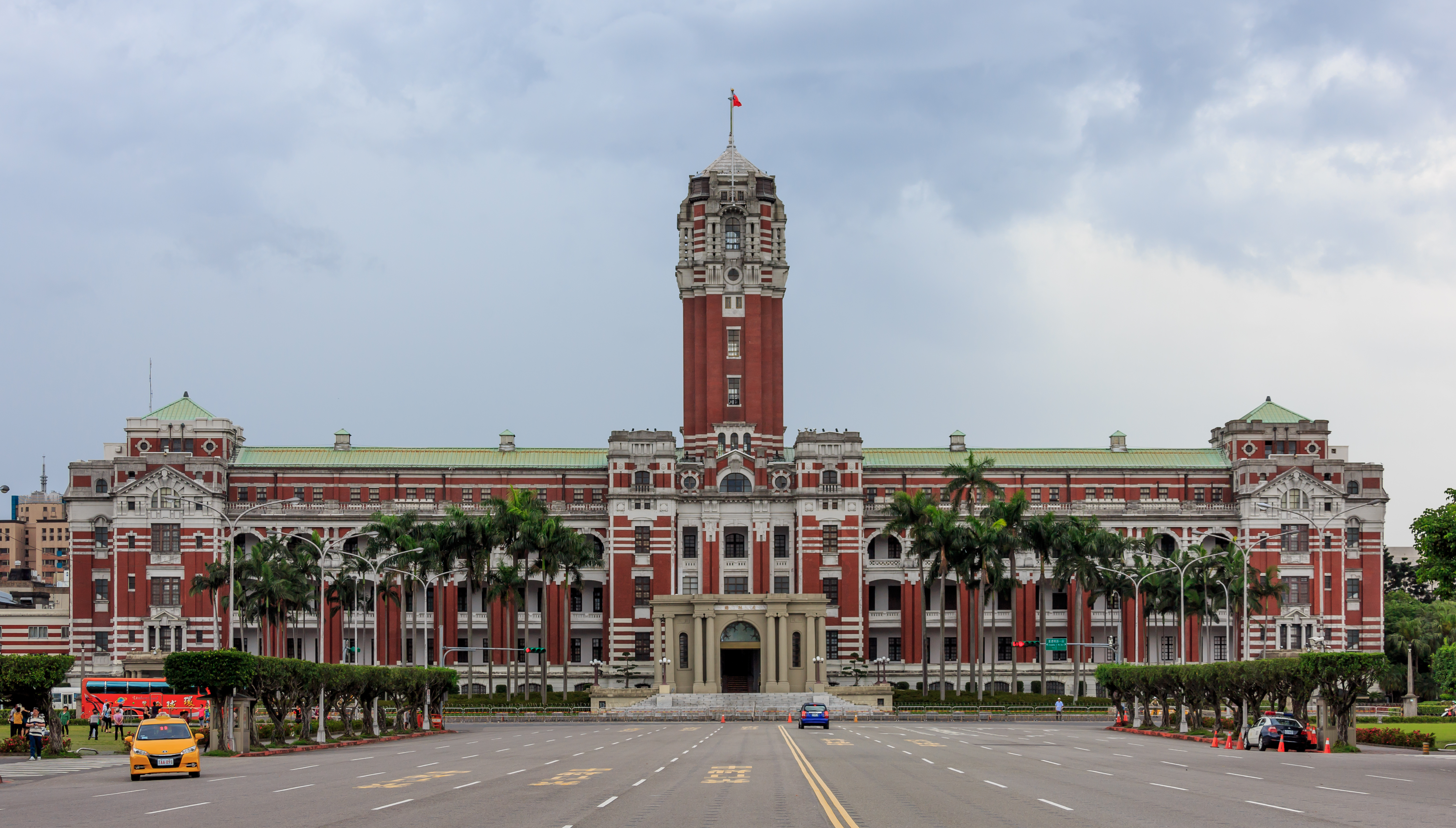 With the incoming Tsai administration less than fifty days away from office, it is now to be seen as to whether the DPP lives up to its campaign promises. Of course, concerning cross-strait relations, it will be seen as to whether the DPP fulfills the demand of Taiwanese civil society from 2014’s Sunflower Movement to the present calling for transparency and openness in cross-strait relations conducted between Taiwan and China. A draft bill to provide oversight regarding cross-strait relations is likely to be passed in the coming week, given the DPP-controlled legislature.
With the incoming Tsai administration less than fifty days away from office, it is now to be seen as to whether the DPP lives up to its campaign promises. Of course, concerning cross-strait relations, it will be seen as to whether the DPP fulfills the demand of Taiwanese civil society from 2014’s Sunflower Movement to the present calling for transparency and openness in cross-strait relations conducted between Taiwan and China. A draft bill to provide oversight regarding cross-strait relations is likely to be passed in the coming week, given the DPP-controlled legislature.
Why is Taiwan Thought of as a Small Country?
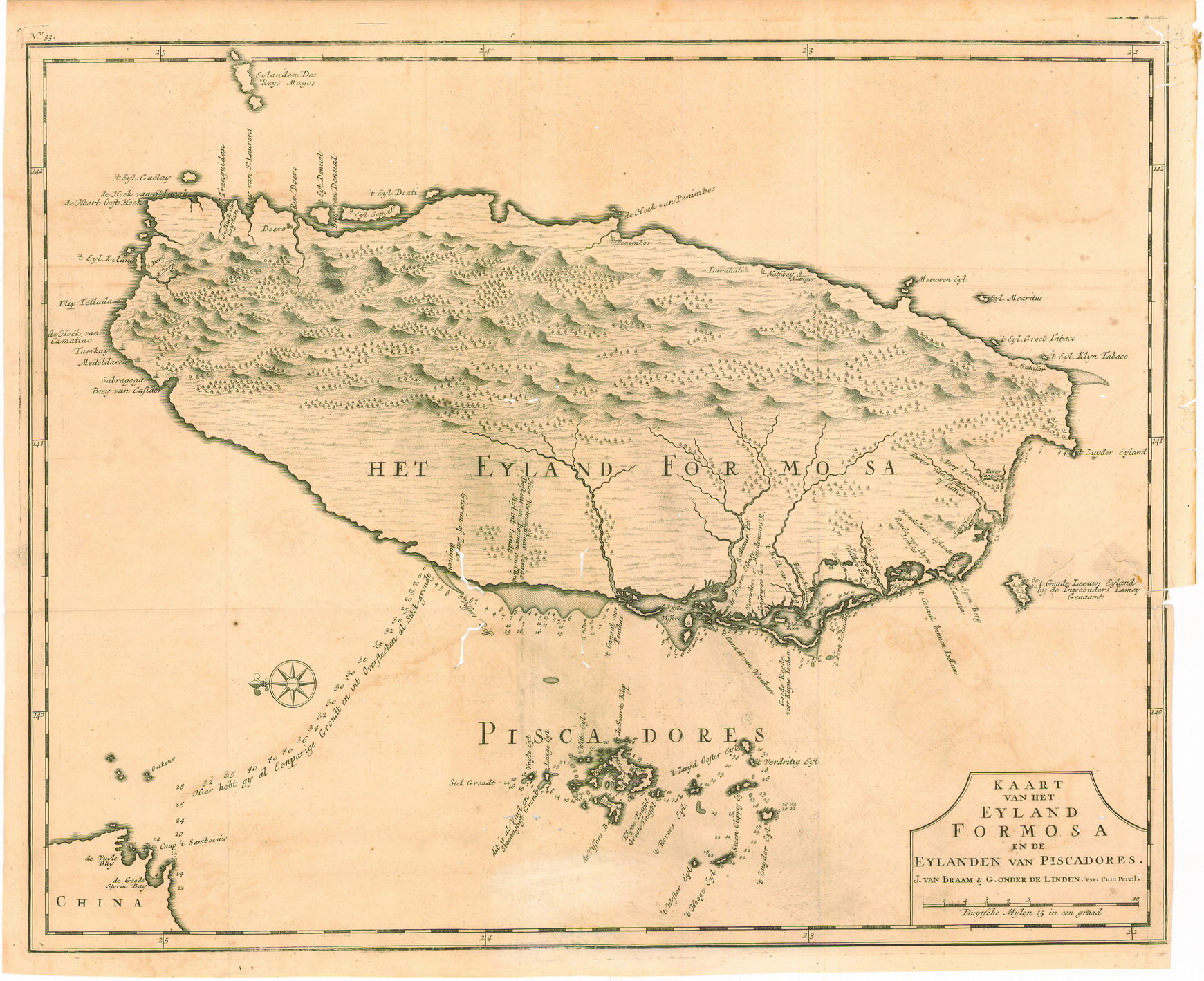 It is interesting to note that however counterintuitive it is to say, by the numbers, Taiwan is by no means a small country. For example, out of the world’s 200 or so countries, Taiwan has the 54th largest population and the 21st largest GDP in 2015. That, of course, means that the majority of countries in the world are less populated and have smaller economies than Taiwan. But why is Taiwan thought of as a small country? A useful conceptual tool here may be anthropologist Anna Tsing’s concept of “scale making”. What is thought to be large or small quite often reflects globalization, rather than their actual relative relation of size.
It is interesting to note that however counterintuitive it is to say, by the numbers, Taiwan is by no means a small country. For example, out of the world’s 200 or so countries, Taiwan has the 54th largest population and the 21st largest GDP in 2015. That, of course, means that the majority of countries in the world are less populated and have smaller economies than Taiwan. But why is Taiwan thought of as a small country? A useful conceptual tool here may be anthropologist Anna Tsing’s concept of “scale making”. What is thought to be large or small quite often reflects globalization, rather than their actual relative relation of size.
Questions of Political Transition of Power in Taiwan During the Ma-Tsai Meeting
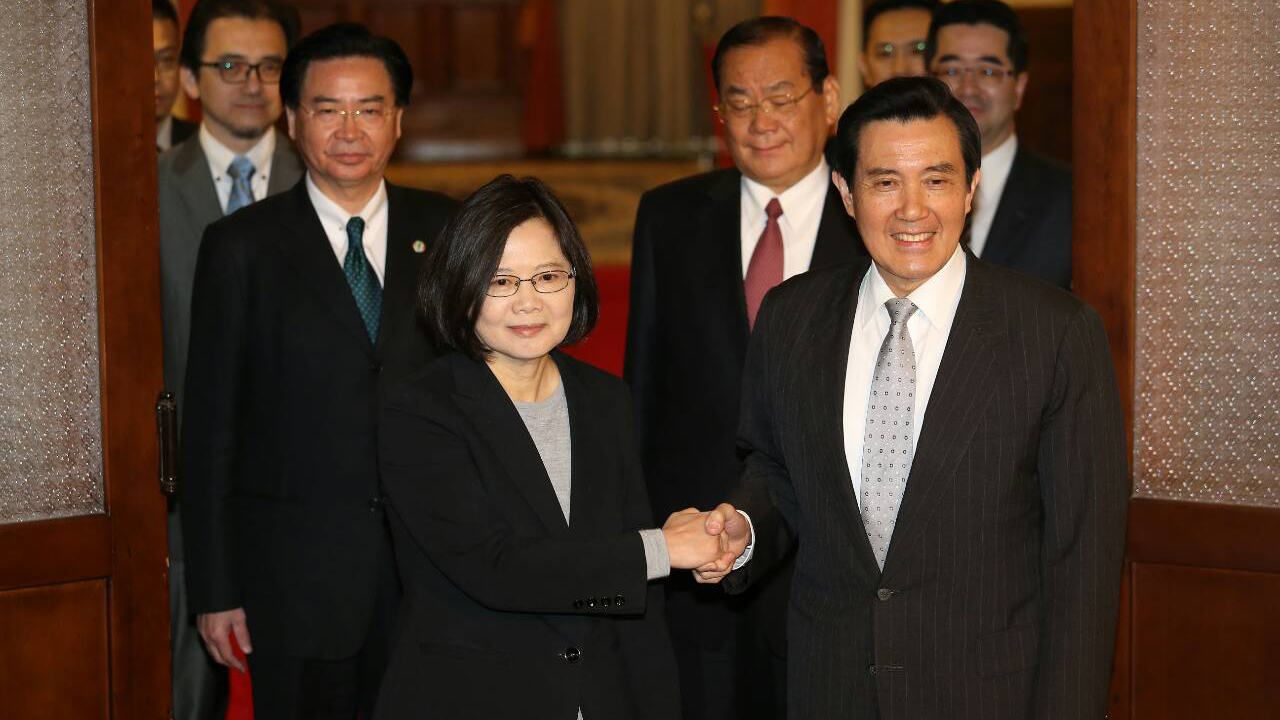 Outgoing Taiwanese president Ma Ying-Jeou and incoming president-elect Tsai Ing-Wen met in Taipei on Wednesday in order to discuss the upcoming transition of power between a KMT and DPP presidency. This will be the third presidential transition of power between parties in Taiwanese history, the first being the transfer of power from KMT to DPP with the victory of Chen Shui-Bian as the first non-KMT president in Taiwanese history in 2000, and the second being the transfer of power back to KMT hands with the victory of Ma Ying-Jeou in 2008.
Outgoing Taiwanese president Ma Ying-Jeou and incoming president-elect Tsai Ing-Wen met in Taipei on Wednesday in order to discuss the upcoming transition of power between a KMT and DPP presidency. This will be the third presidential transition of power between parties in Taiwanese history, the first being the transfer of power from KMT to DPP with the victory of Chen Shui-Bian as the first non-KMT president in Taiwanese history in 2000, and the second being the transfer of power back to KMT hands with the victory of Ma Ying-Jeou in 2008.
Chicken or Egg?
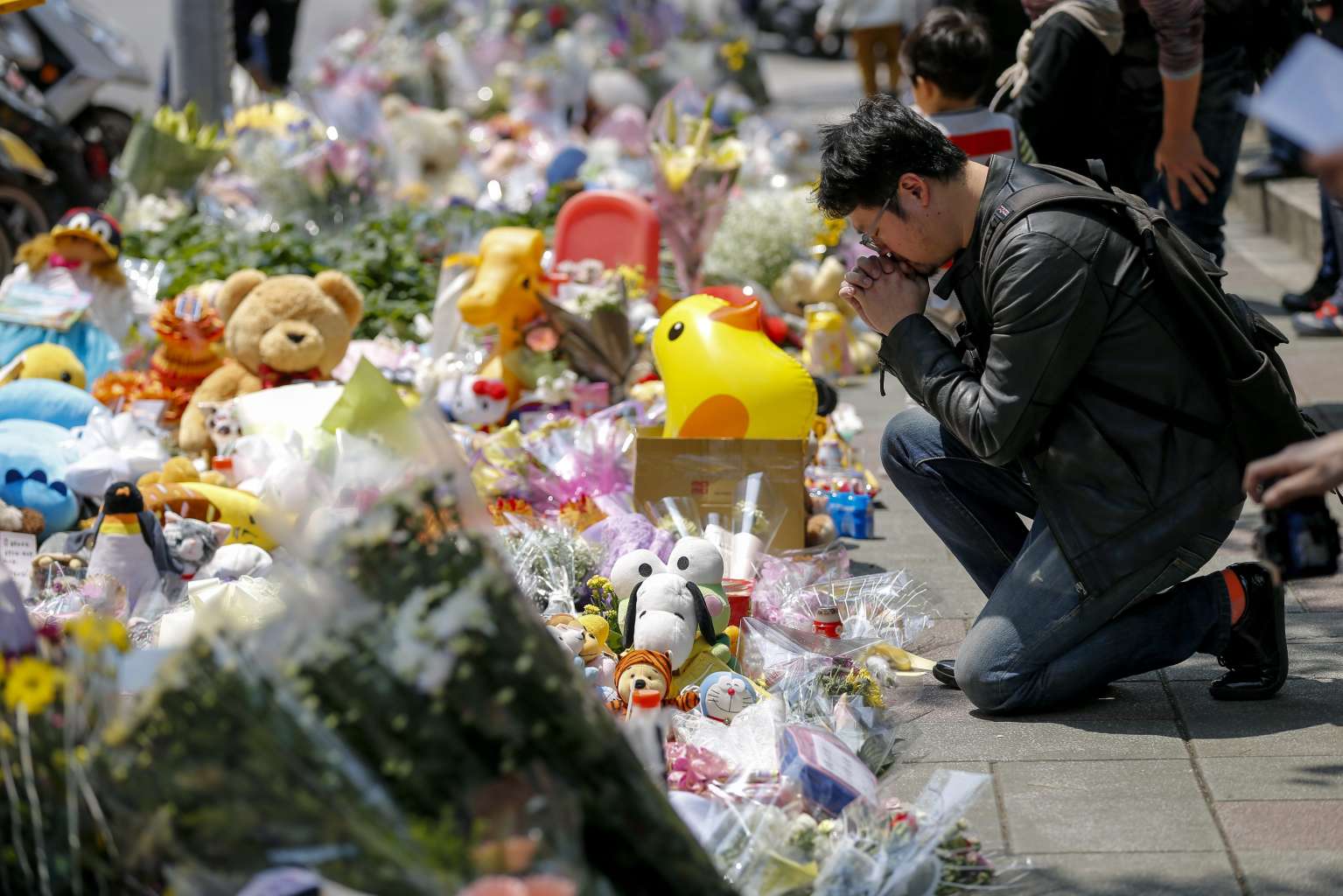 The recent murder case of a four year old girl in Taiwan has brought the capital punishment debate back on stage. It seems that such ethical debates only seem to appear in the case of “shocking” news that provides opportunities for sensationalist journalism. As mass media rides the wave of clickbait streaming into their sites, the phony argumentation only proves to breed generation of nonchalant and passive individuals. We might consider the role of the media in the debate.
The recent murder case of a four year old girl in Taiwan has brought the capital punishment debate back on stage. It seems that such ethical debates only seem to appear in the case of “shocking” news that provides opportunities for sensationalist journalism. As mass media rides the wave of clickbait streaming into their sites, the phony argumentation only proves to breed generation of nonchalant and passive individuals. We might consider the role of the media in the debate.
There Will Be Blood: Taiwan’s Rancorous Discourse On Capital Punishment
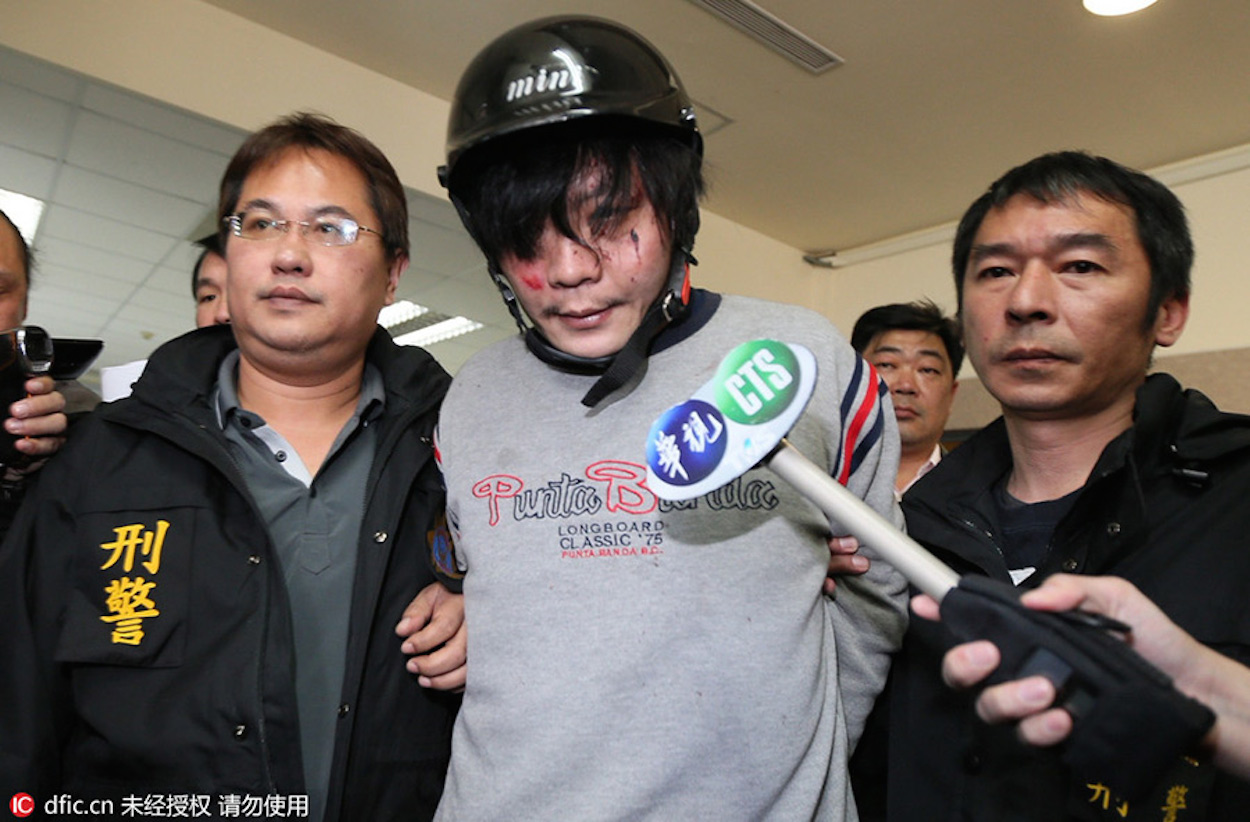 The ghastly random killing of a four-year-old girl in Neihu, Taipei on Monday has garnered widespread attention, nationally and internationally. What has almost simultaneously been triggered is a reinvigoration of the debate over the abolition of capital punishment in Taiwan. However, it is to be noted that this is hardly a real exchange of ideas, even by the standard of the Wild West that is the Internet, but more like a campaign of persecution against social activists who advocate the abolition of death penalty.
The ghastly random killing of a four-year-old girl in Neihu, Taipei on Monday has garnered widespread attention, nationally and internationally. What has almost simultaneously been triggered is a reinvigoration of the debate over the abolition of capital punishment in Taiwan. However, it is to be noted that this is hardly a real exchange of ideas, even by the standard of the Wild West that is the Internet, but more like a campaign of persecution against social activists who advocate the abolition of death penalty.
Does Taiwan Need a Founding Father?
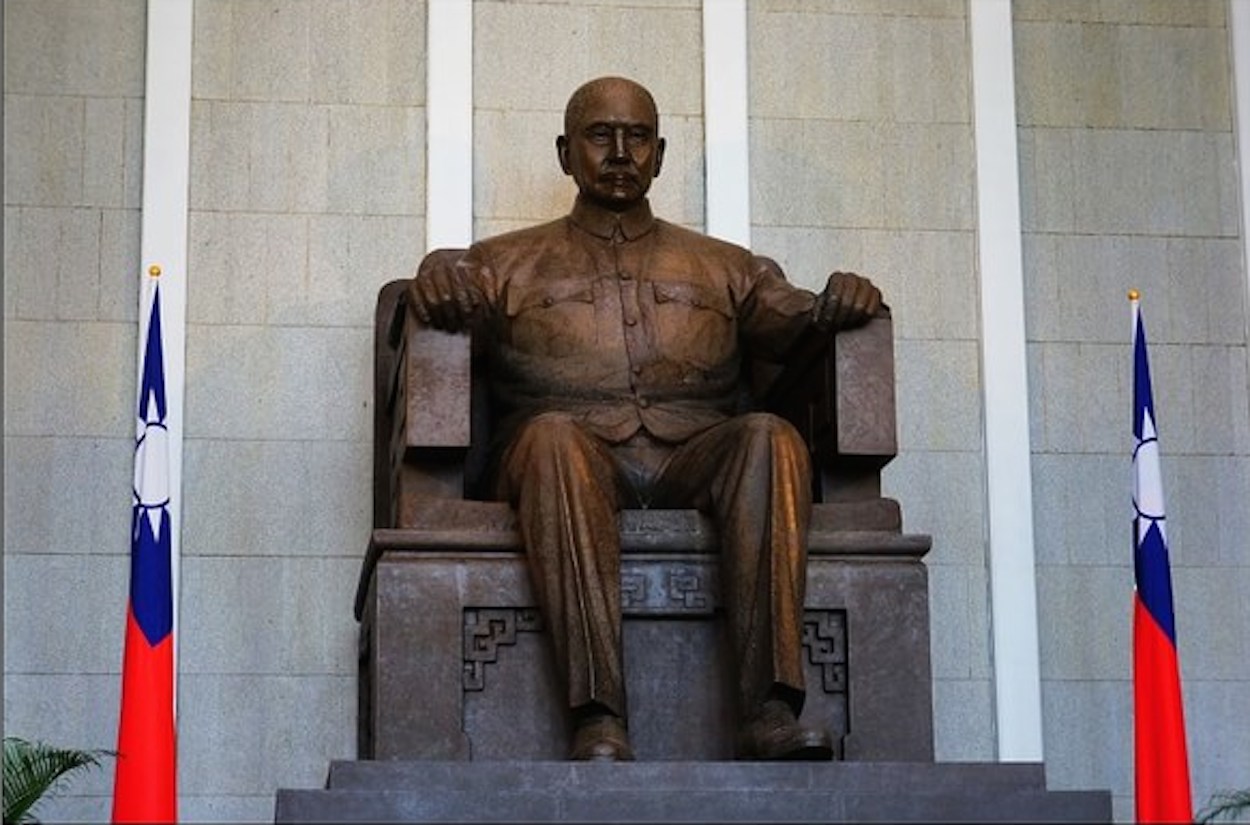 Concerning debates about whether Sun Yat-Sen is Taiwan’s founding father or not, we might revisit the question of who exactly is Taiwan’s founding father. The notion of a founding father would be to point to a singular, historical figure as the originator of a nation-state. As part of nationalist discourse, a founding father is usually seen as a figure possessed of extraordinary, even superhuman qualities. The qualities of a founding father are to be reflective of the values of the nation-state.
Concerning debates about whether Sun Yat-Sen is Taiwan’s founding father or not, we might revisit the question of who exactly is Taiwan’s founding father. The notion of a founding father would be to point to a singular, historical figure as the originator of a nation-state. As part of nationalist discourse, a founding father is usually seen as a figure possessed of extraordinary, even superhuman qualities. The qualities of a founding father are to be reflective of the values of the nation-state.
Hung Hsiu-Chu Strikes Back
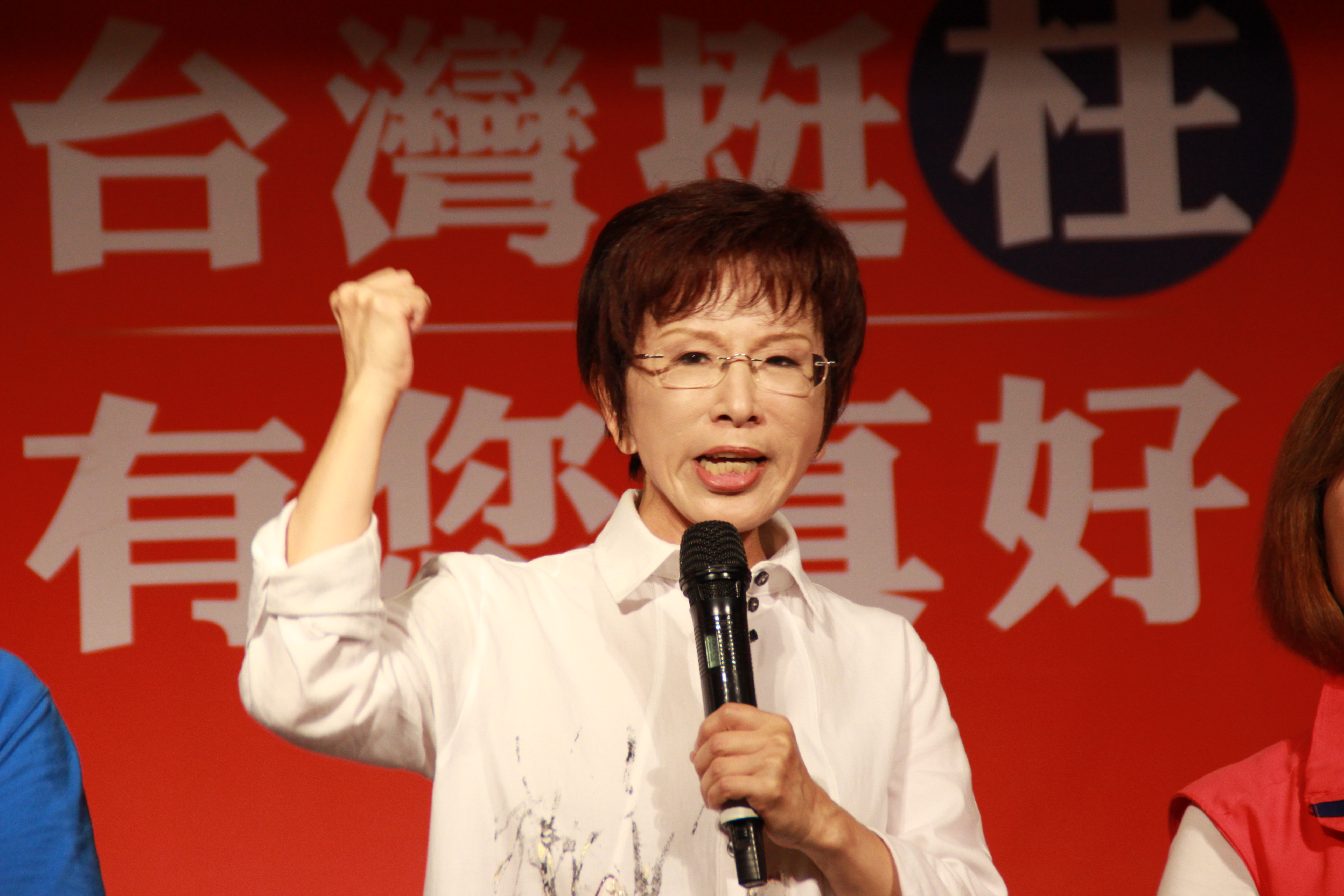 Hung Hsiu-Chu, former KMT presidential candidate, was elected party chairperson of the KMT this past Saturday. Hung’s victory was expected, seeing she was the frontrunner of the candidates running for party chairperson. But will Hung Hsiu-Chu be able to turn the KMT around? Probably not.
Hung Hsiu-Chu, former KMT presidential candidate, was elected party chairperson of the KMT this past Saturday. Hung’s victory was expected, seeing she was the frontrunner of the candidates running for party chairperson. But will Hung Hsiu-Chu be able to turn the KMT around? Probably not.
Although His Years Are Now Withered, Continuing to Struggle
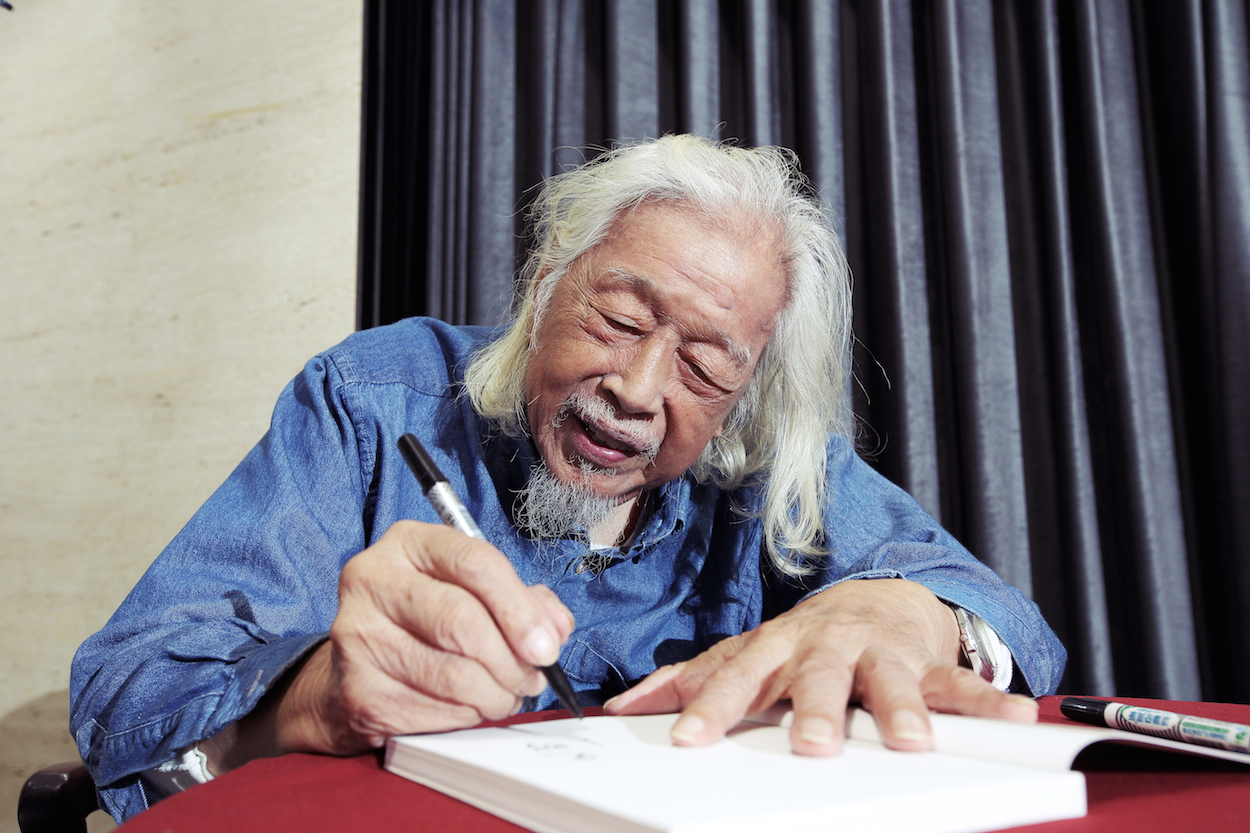 Su Beng is to this day one of the few people in Taiwan to have experienced over two centuries of historic changes and multiple colonial regimes as a left-wing revolutionary.
Su Beng is to this day one of the few people in Taiwan to have experienced over two centuries of historic changes and multiple colonial regimes as a left-wing revolutionary.
The DPP and ROC Independence
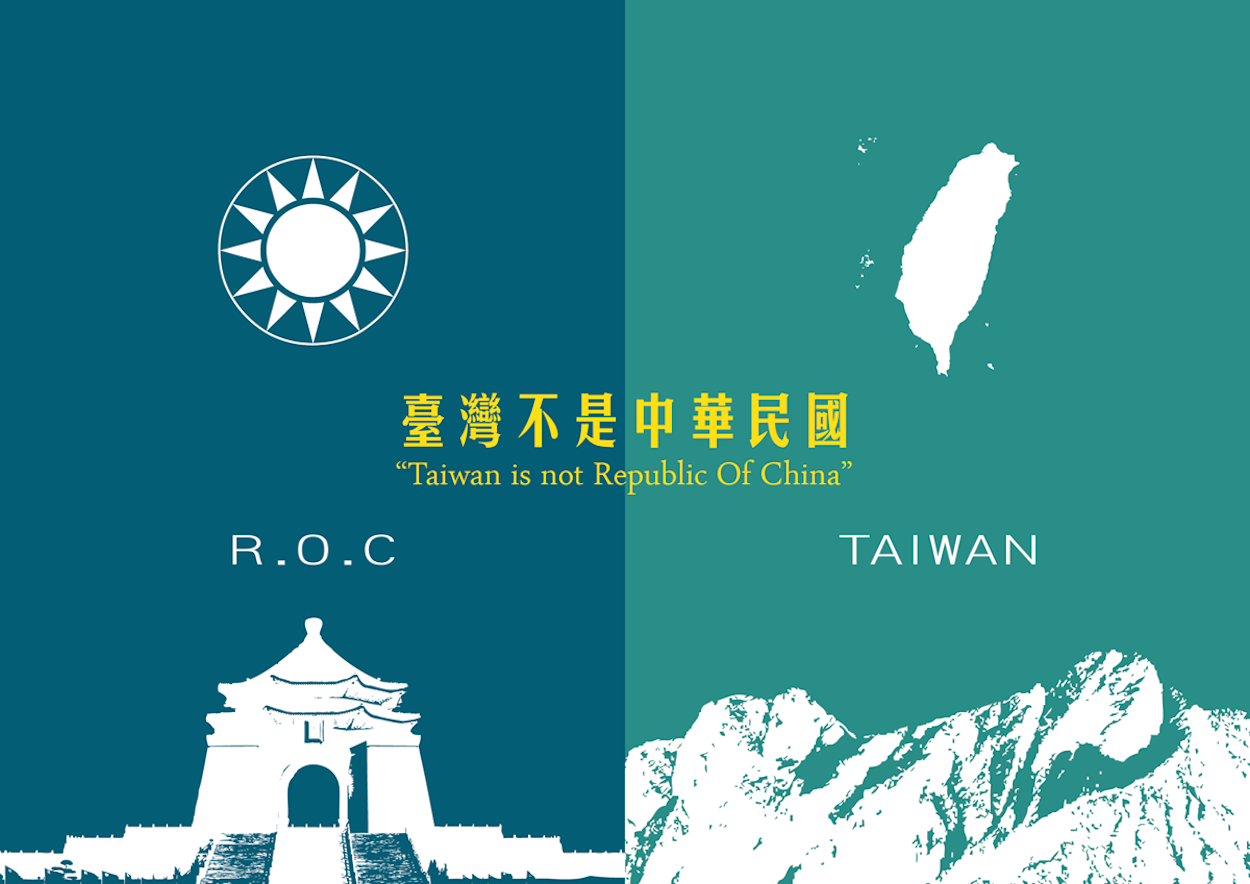 Can we label the DPP’s present actions as hewing closer to the course of ROC independence than Taiwanese independence? Historically, the DPP was the party of Taiwanese independence. But the DPP’s consideration at present under Tsai Ing-Wen would seem to be that pushing for Taiwanese independence is too dangerous and possibly disruptive of cross-strait relations. At present, then, the DPP seems to wish to shrug off the historical baggage of its Taiwanese independence platform, which is written into the party’s constitution, without suggesting to party supporters that it is betraying the history of the party. We might take a look at attempts to deflect this criticism.
Can we label the DPP’s present actions as hewing closer to the course of ROC independence than Taiwanese independence? Historically, the DPP was the party of Taiwanese independence. But the DPP’s consideration at present under Tsai Ing-Wen would seem to be that pushing for Taiwanese independence is too dangerous and possibly disruptive of cross-strait relations. At present, then, the DPP seems to wish to shrug off the historical baggage of its Taiwanese independence platform, which is written into the party’s constitution, without suggesting to party supporters that it is betraying the history of the party. We might take a look at attempts to deflect this criticism.
Open Letter from Hertencia Petersen Regarding Peter Liang
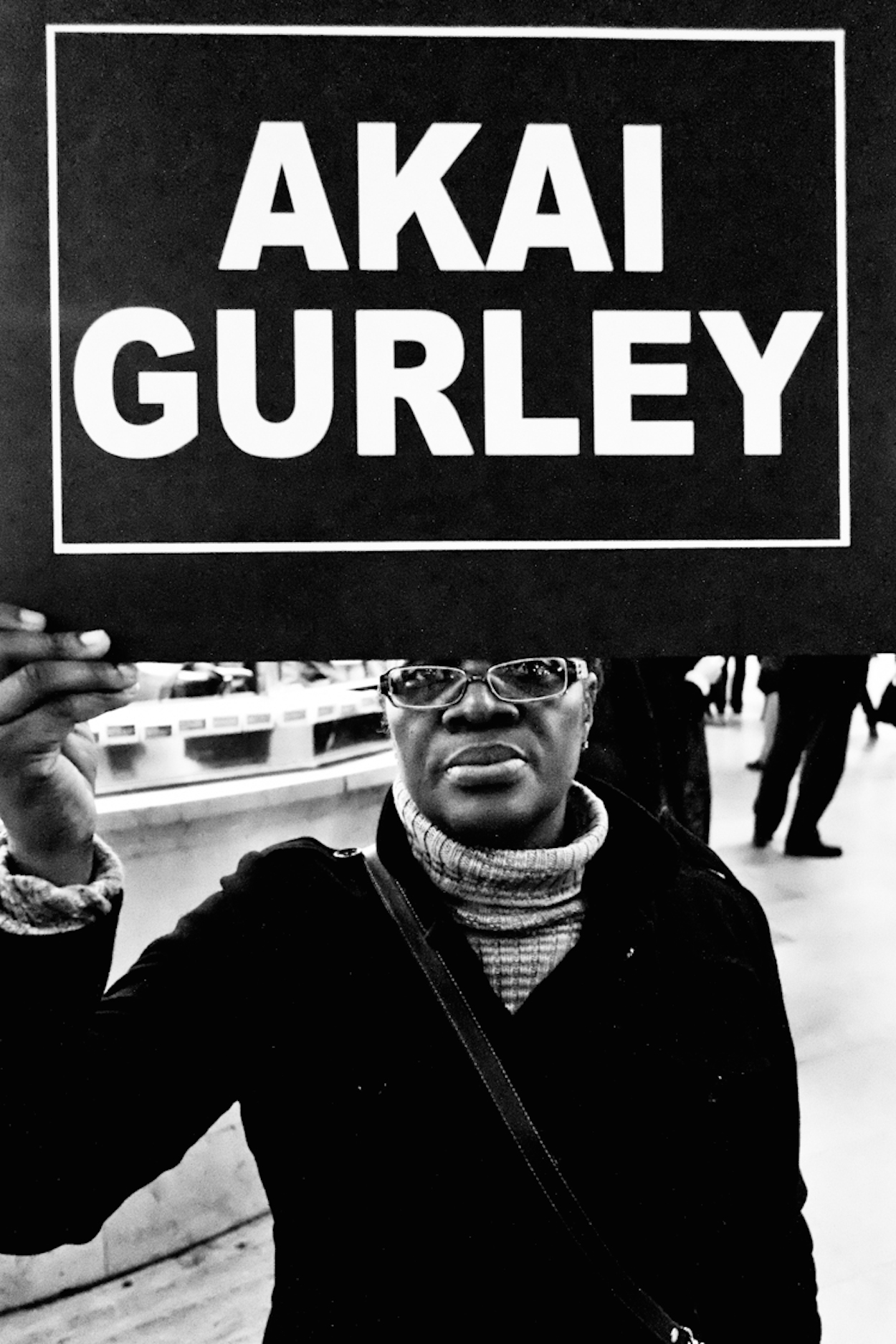 New Bloom presents an open letter from Hertencia Petersen, the aunt of Akai Gurley, regarding Gurley’s killing by Chinese-American NYPD officer Peter Liang, which has been much discussed in the Asian-American community.
New Bloom presents an open letter from Hertencia Petersen, the aunt of Akai Gurley, regarding Gurley’s killing by Chinese-American NYPD officer Peter Liang, which has been much discussed in the Asian-American community.
What Do Recent Shifts in Taiwanese Identification Mean?
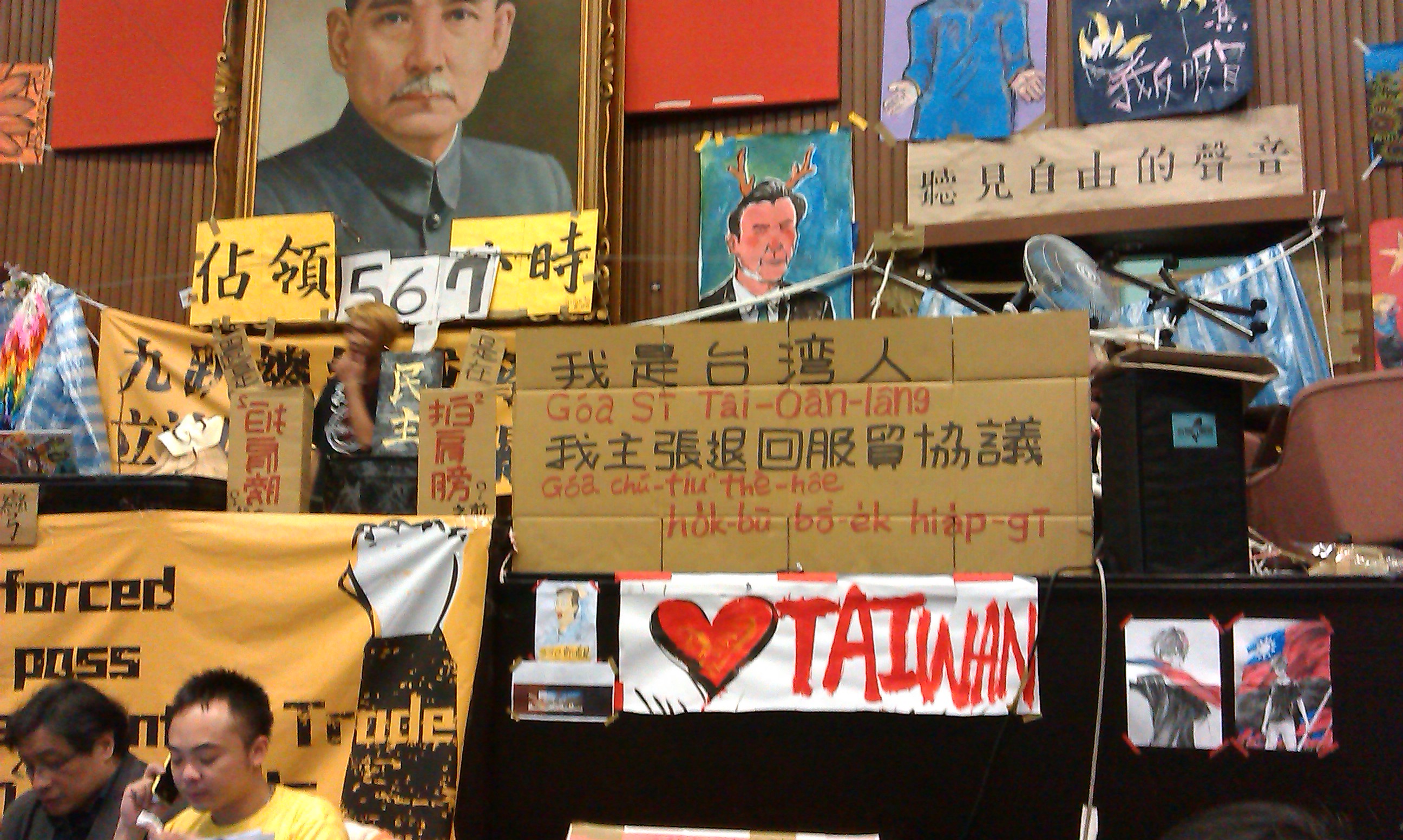 If recent polling from the United Daily News have indicated a significant increase in Taiwanese identification, probably this should not come as a surprise to anyone who has been keeping track of politics in Taiwan in the last year. What is a surprise, seemingly indicative of the probable accuracy of this polling, is that the results of this poll come from the pro-China and pro-KMT leaning press of the United Daily News. And it is that those who have not been attentive to Taiwanese politics in the last year are still playing catch-up regarding these recent shifts in identification. We might take a closer examination.
If recent polling from the United Daily News have indicated a significant increase in Taiwanese identification, probably this should not come as a surprise to anyone who has been keeping track of politics in Taiwan in the last year. What is a surprise, seemingly indicative of the probable accuracy of this polling, is that the results of this poll come from the pro-China and pro-KMT leaning press of the United Daily News. And it is that those who have not been attentive to Taiwanese politics in the last year are still playing catch-up regarding these recent shifts in identification. We might take a closer examination.
Lu Su-ling’s Political and Legal Gaffes
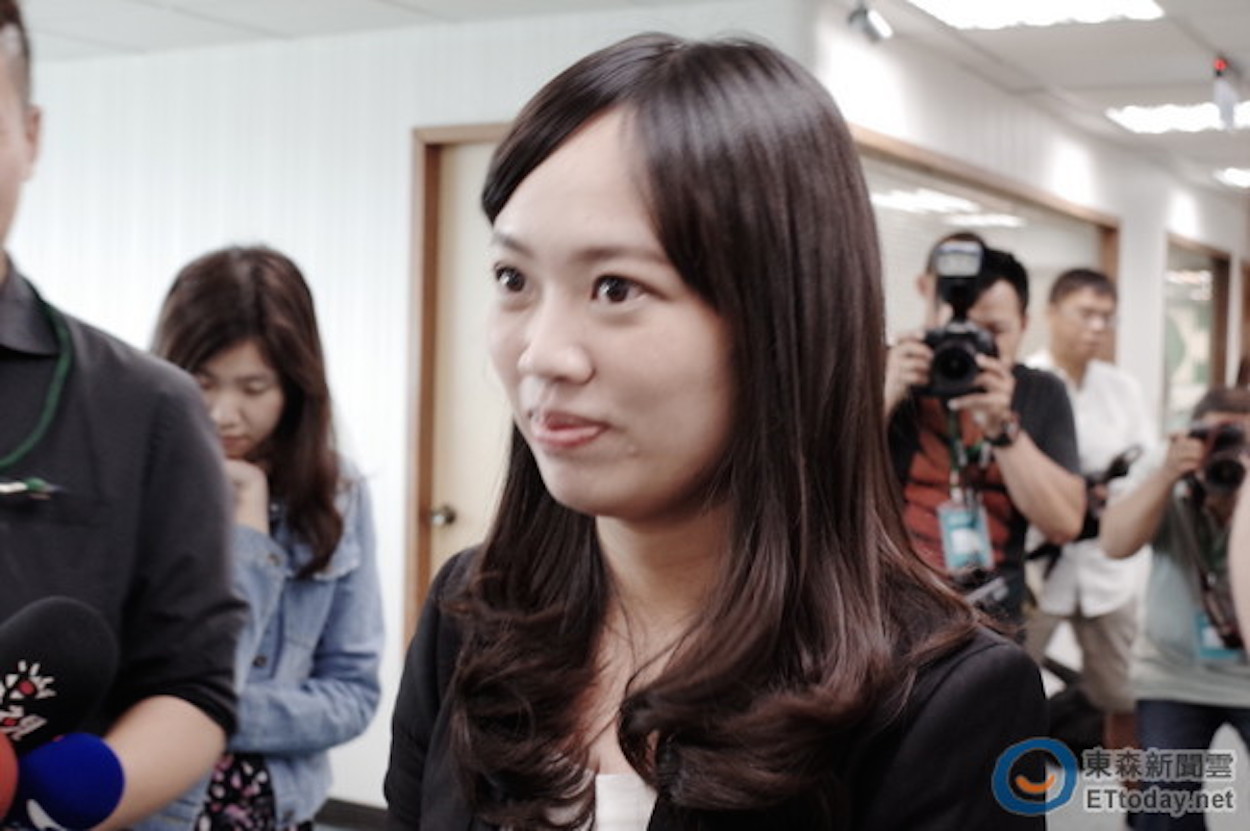 DPP Legislator Lu Su-ling was ridiculed online last week for what was reported by the mainstream media as her confusion between the Ministry of National Defense with the National Security Bureau in the Legislative Yuan. During her questioning session with NSB Director-General Yang Kuo-chiang, her inquiries about the illegal military police search and seizure incident was repeatedly met with denials of jurisdiction, as the military police is under the MND and not the NSB. The media took Yang’s side and due to the way the story was framed, netizens immediately raised their pitchforks against her. Though Lu explained her reasoning on Facebook later—saying she understood the difference between the MND and NSB but believed NSB also has the power over this matter—it was too little too late.
DPP Legislator Lu Su-ling was ridiculed online last week for what was reported by the mainstream media as her confusion between the Ministry of National Defense with the National Security Bureau in the Legislative Yuan. During her questioning session with NSB Director-General Yang Kuo-chiang, her inquiries about the illegal military police search and seizure incident was repeatedly met with denials of jurisdiction, as the military police is under the MND and not the NSB. The media took Yang’s side and due to the way the story was framed, netizens immediately raised their pitchforks against her. Though Lu explained her reasoning on Facebook later—saying she understood the difference between the MND and NSB but believed NSB also has the power over this matter—it was too little too late.
Taiwan and India
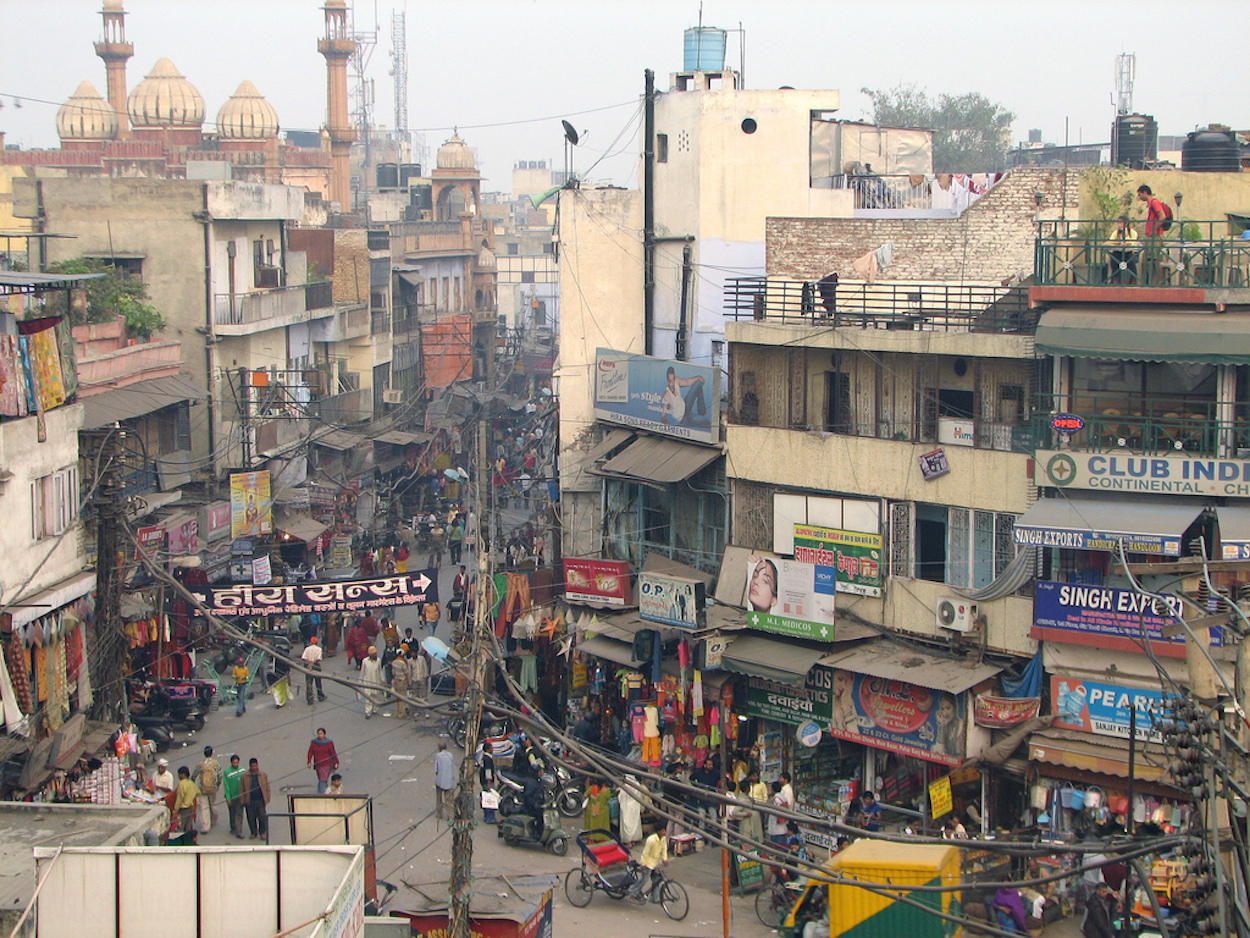 On the surface, it would appear that Taiwan and India share very little in common; although their governments both espouse democratic principles and invest heavily in the technology and telecommunications industries, they come from vastly different cultural and linguistic backgrounds and have not had a particularly long or noteworthy period of friendship or exchange. But could the rise of South Asia lead to a new direction in Taiwanese foreign policy?
On the surface, it would appear that Taiwan and India share very little in common; although their governments both espouse democratic principles and invest heavily in the technology and telecommunications industries, they come from vastly different cultural and linguistic backgrounds and have not had a particularly long or noteworthy period of friendship or exchange. But could the rise of South Asia lead to a new direction in Taiwanese foreign policy?
The Sino-Thai Rail: Conveying of Chinese Hegemony?
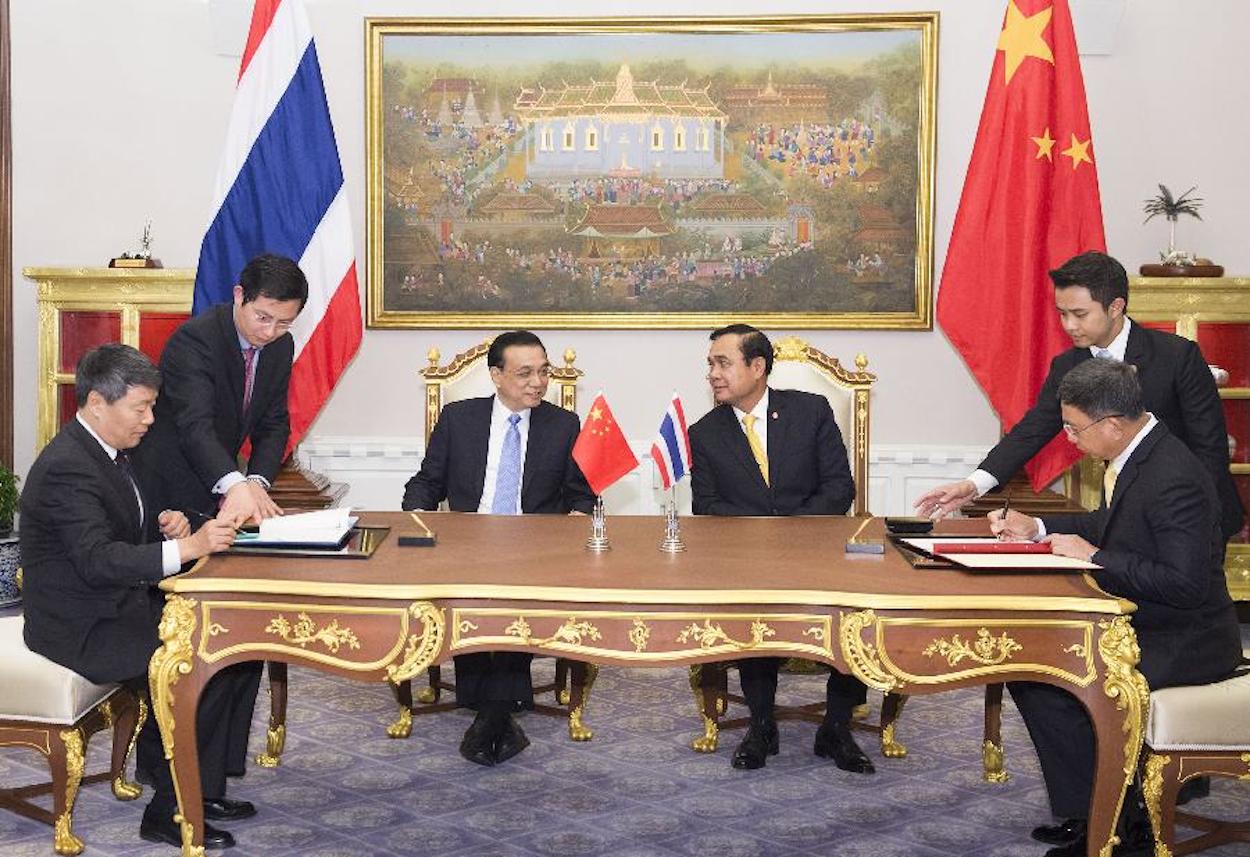 Infrastructure development projects in Laos set a precedent for what may happen to Thailand in the future. Namely, China lends a helping hand to Thailand at the cost of Thai sovereignty.
Infrastructure development projects in Laos set a precedent for what may happen to Thailand in the future. Namely, China lends a helping hand to Thailand at the cost of Thai sovereignty.
318 Two Years On
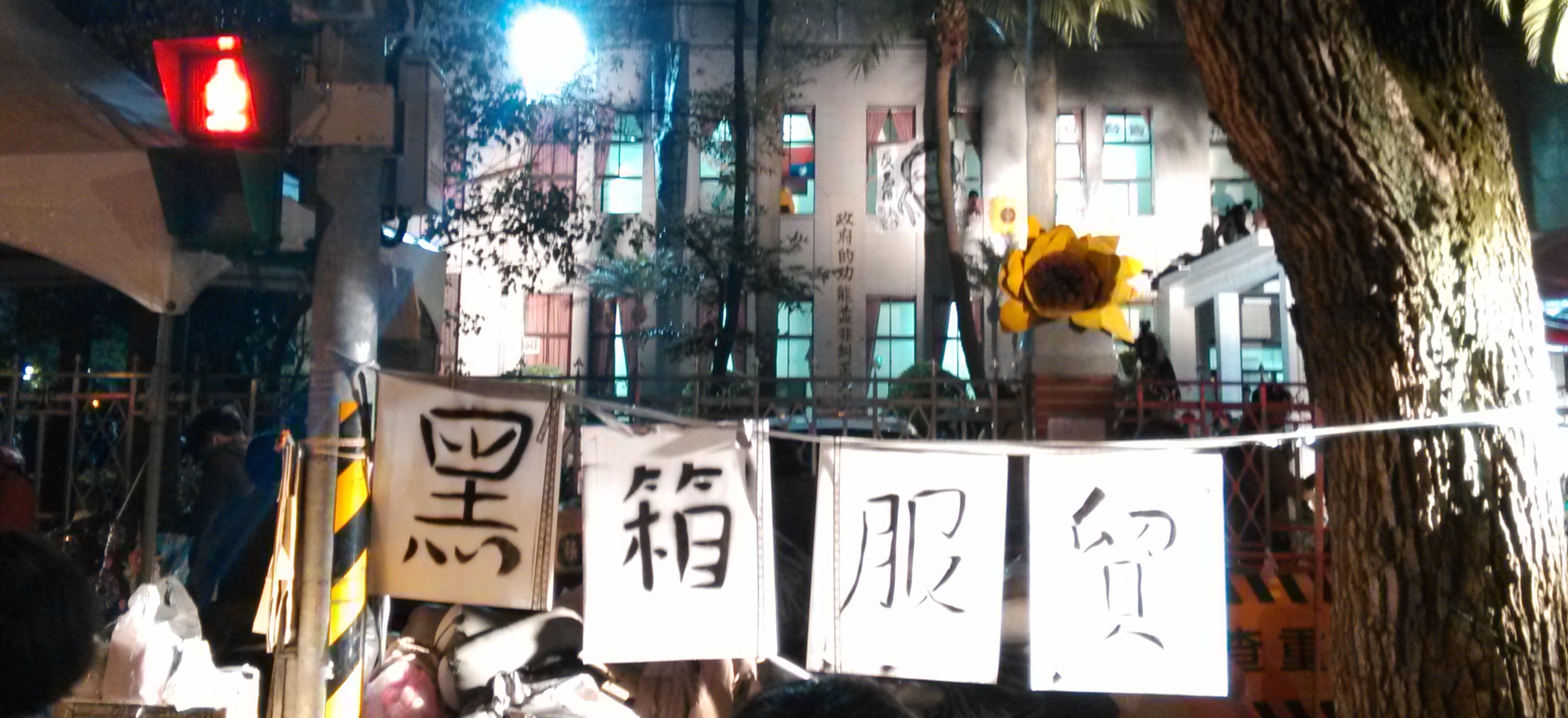 Looking back on the Sunflower Movement two years later, what can we say? It is, of course, that in some sense the sea-change in Taiwanese politics we have seen in past 2016 elections and nine-in-one elections began with the Sunflower Movement. But what remains to be done?
Looking back on the Sunflower Movement two years later, what can we say? It is, of course, that in some sense the sea-change in Taiwanese politics we have seen in past 2016 elections and nine-in-one elections began with the Sunflower Movement. But what remains to be done?
That Day, On the Beach
 Along with the In Our Time omnibus released in 1982—to which Edward Yang contributed a short, That Day, On the Beach set the groundwork for much of the Taiwanese New Wave of films to come. The early years of the 1980s were a time of rapid technological development in Taiwan, particularly Taipei. While his contemporary and fellow pioneer, Hou Hsiao-hsien zeroed in on the plights found in the countryside, Edward Yang held a fascination with the lives of affluent city-dwellers—one that would span his entire filmography.
Along with the In Our Time omnibus released in 1982—to which Edward Yang contributed a short, That Day, On the Beach set the groundwork for much of the Taiwanese New Wave of films to come. The early years of the 1980s were a time of rapid technological development in Taiwan, particularly Taipei. While his contemporary and fellow pioneer, Hou Hsiao-hsien zeroed in on the plights found in the countryside, Edward Yang held a fascination with the lives of affluent city-dwellers—one that would span his entire filmography.
Why The Ban on Depictions of Homosexuality in Chinese Media And Silence from Critical Voices?
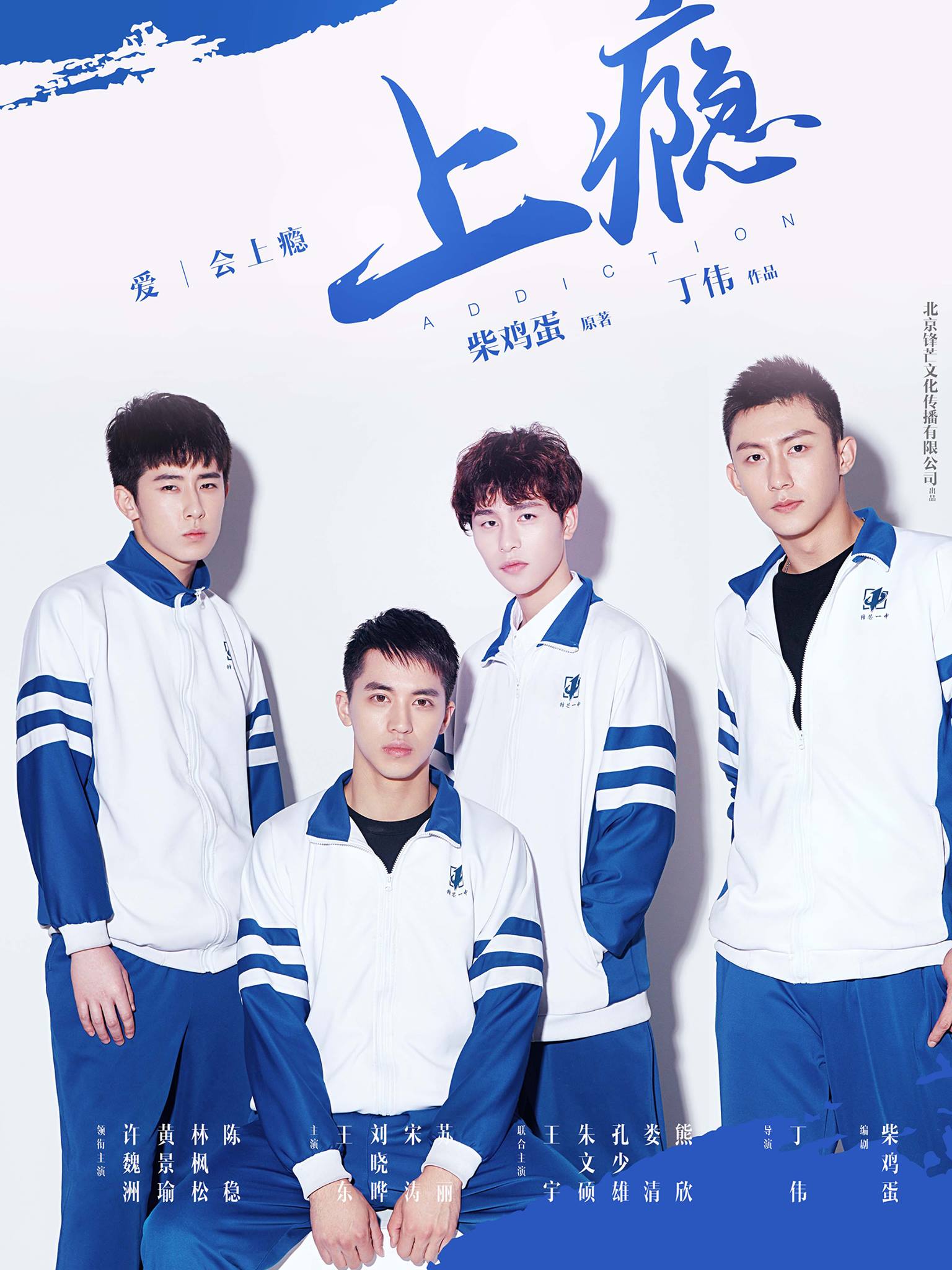 The latest sign of increasing restrictions on media in Xi Jinping’s China would appear to be the recent ban on depictions of homosexuality on television, along with depictions of underage relationships, one night stands, and extramarital affairs. Why is there such interest in regulating sexuality in contemporary China?
The latest sign of increasing restrictions on media in Xi Jinping’s China would appear to be the recent ban on depictions of homosexuality on television, along with depictions of underage relationships, one night stands, and extramarital affairs. Why is there such interest in regulating sexuality in contemporary China?
Mass Mining Workers’ Demonstration in Heilongjiang Coal Mine Town
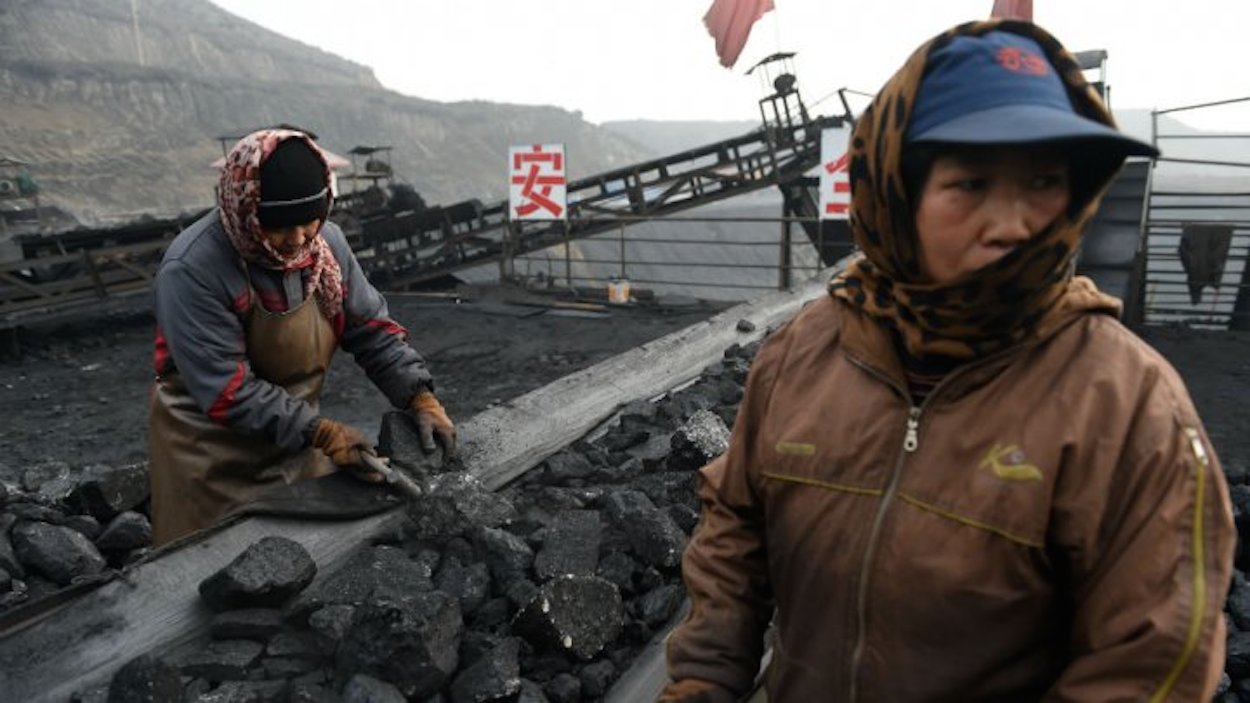 Tens of thousands of mining workers in Shuangyashan city of Heilongjiang province in China have clashed with the police after four days of demonstrations, demanding the state-owned mining company to distribute wages owed to workers.
Tens of thousands of mining workers in Shuangyashan city of Heilongjiang province in China have clashed with the police after four days of demonstrations, demanding the state-owned mining company to distribute wages owed to workers.
The Chinese New Left: Anti-Capitalist Within China, Imperialist Outside of China?
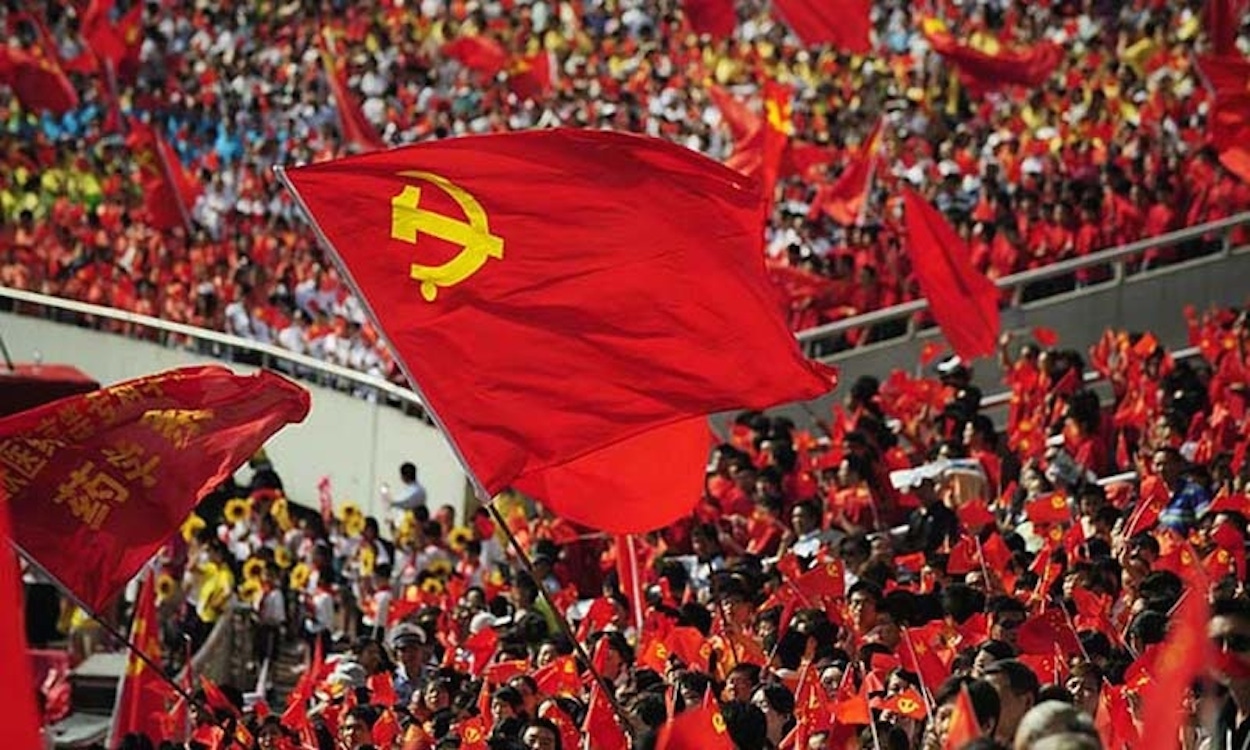 If the New Left’s nationalism trumps Leftism, it is because of the New Left’s view that the China model, however flawed, is still superior to the West. It is such that the New Left suggests that the China model can and should be exported outside of China, hence where they become apologists for Chinese imperialism.
If the New Left’s nationalism trumps Leftism, it is because of the New Left’s view that the China model, however flawed, is still superior to the West. It is such that the New Left suggests that the China model can and should be exported outside of China, hence where they become apologists for Chinese imperialism.
What is the Chinese New Left?: Between Leftism and Nationalism?
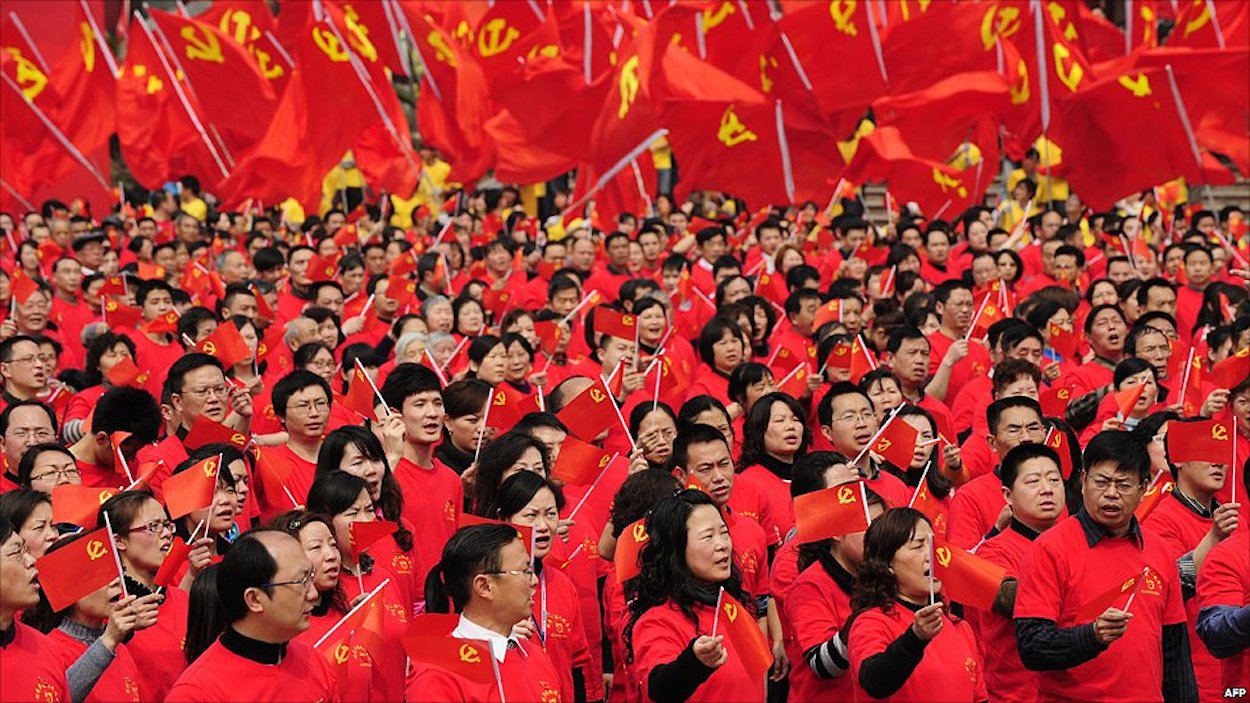 Perhaps one of the most significant intellectual formations operating in today’s world, China’s New Left arose in the 1990s in opposition to the turn of China away from a centrally planned economy and a return to free market principles after the Deng Xiaoping period. More broadly, the New Left project emphasizes the growing disparities between rural and urban areas in post-Deng China, the sacrifice of principles of equality in order to drive toward development, and calls for a critical revaluation of China’s Maoist legacy in light of China’s present—inclusive of the Great Leap Forward and the Cultural Revolution.
Perhaps one of the most significant intellectual formations operating in today’s world, China’s New Left arose in the 1990s in opposition to the turn of China away from a centrally planned economy and a return to free market principles after the Deng Xiaoping period. More broadly, the New Left project emphasizes the growing disparities between rural and urban areas in post-Deng China, the sacrifice of principles of equality in order to drive toward development, and calls for a critical revaluation of China’s Maoist legacy in light of China’s present—inclusive of the Great Leap Forward and the Cultural Revolution.
Who’s Afraid of Taiwanese Independence, Anyway?
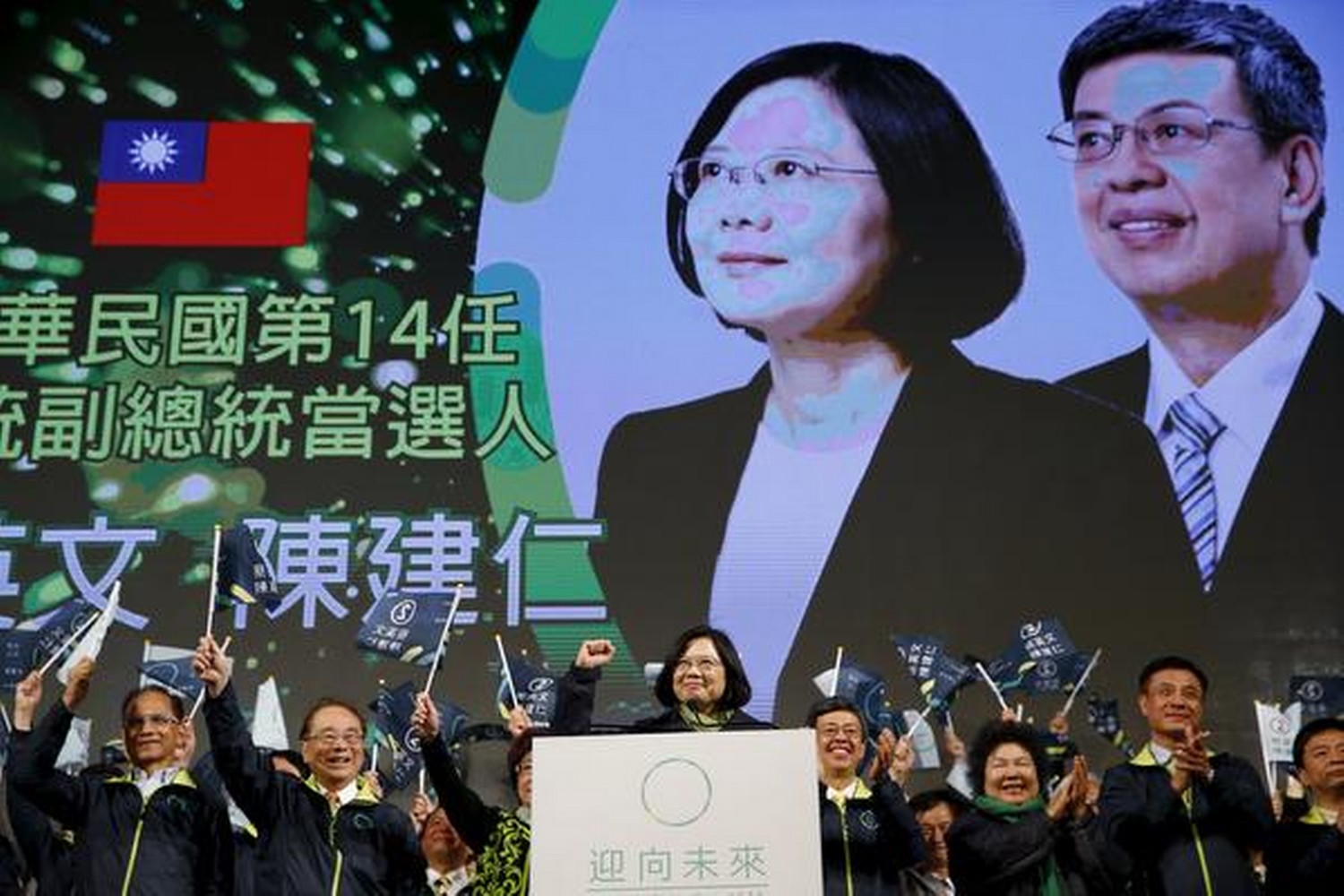 The political spectrum is changing in Taiwan again, after the victory of the DPP in 2016 elections. With the split which has emerged between the positions of ROC independence and Taiwanese independence, perhaps we are seeing the early indications of a shift in the central dividing issue of the Taiwanese political spectrum. This would be the shift from the central dividing issue being independence versus unification to ROC independence versus Taiwanese independence. But what do recent attempts to eliminate Taiwanese independence as a political position in favor of ROC independence tell us? We might take a look, ultimately concluding that it may be overly hasty to consign Taiwanese independence to the dustbin of history in the name of political realism, as some have attempted recently.
The political spectrum is changing in Taiwan again, after the victory of the DPP in 2016 elections. With the split which has emerged between the positions of ROC independence and Taiwanese independence, perhaps we are seeing the early indications of a shift in the central dividing issue of the Taiwanese political spectrum. This would be the shift from the central dividing issue being independence versus unification to ROC independence versus Taiwanese independence. But what do recent attempts to eliminate Taiwanese independence as a political position in favor of ROC independence tell us? We might take a look, ultimately concluding that it may be overly hasty to consign Taiwanese independence to the dustbin of history in the name of political realism, as some have attempted recently.
The Keelung Massacre: The Day the KMT Occupied Taiwan
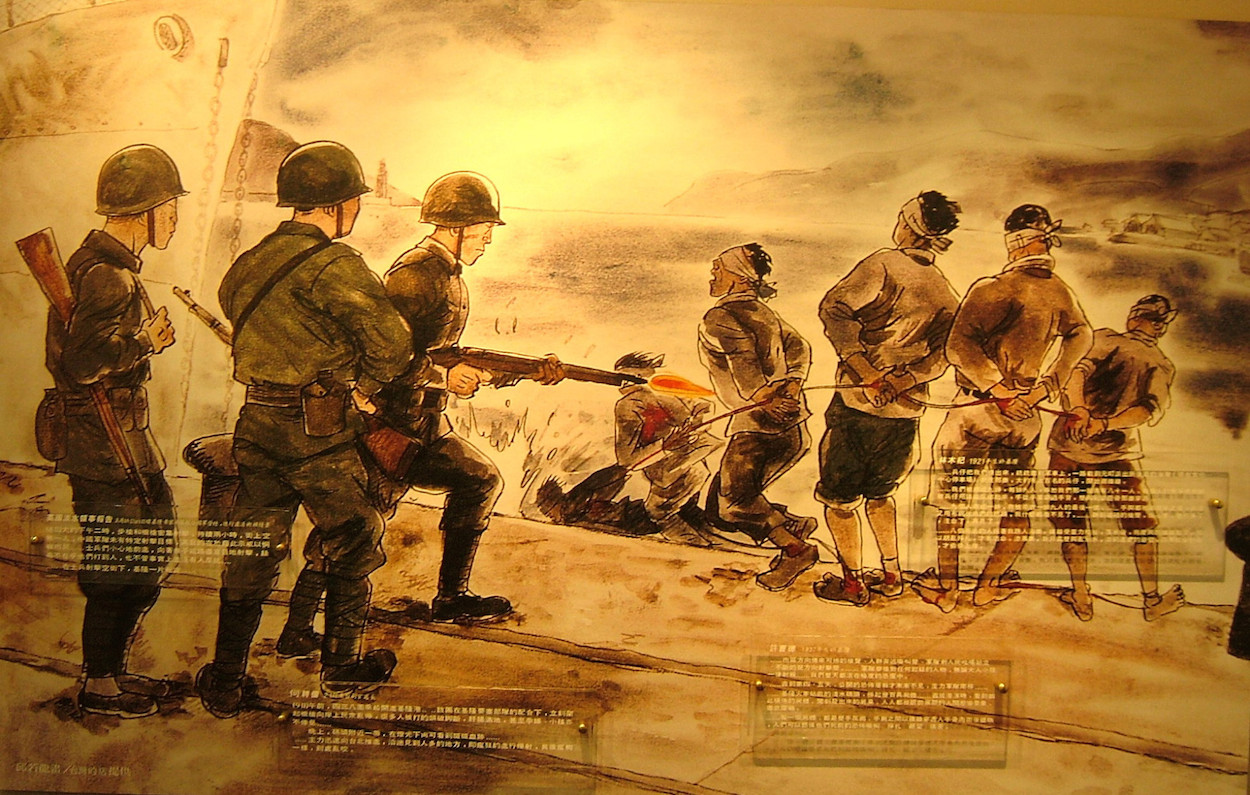 Last year, for the first time since 1947, the city government of Keelung planned a memorial with NGO groups to hold a memorial service for the Keelung Massacre which occurred on March 8, 1947, several days after the nation slipped into chaos over the 228 Massacre. The Keelung Massacre is less well-known than the 228 Massacre, but is among the major crimes committed by the KMT, or rather, the Republic of China government which was synonymous with the KMT at the time.
Last year, for the first time since 1947, the city government of Keelung planned a memorial with NGO groups to hold a memorial service for the Keelung Massacre which occurred on March 8, 1947, several days after the nation slipped into chaos over the 228 Massacre. The Keelung Massacre is less well-known than the 228 Massacre, but is among the major crimes committed by the KMT, or rather, the Republic of China government which was synonymous with the KMT at the time.
Eagles of Revolution: A Tribute to Women in Marxism
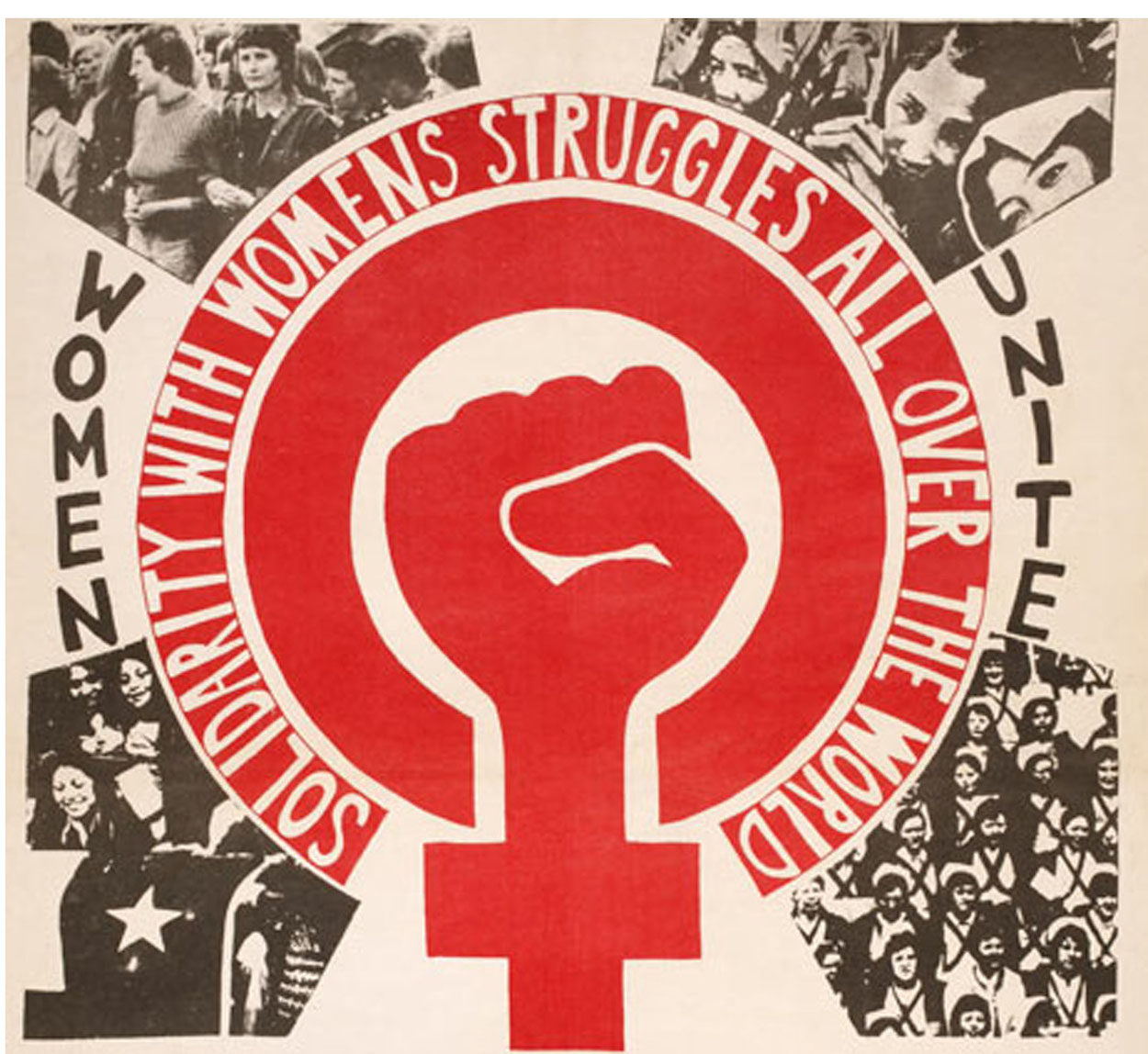 International Women’s Day, now celebrated all over the world and adopted by the United Nations, has a Marxist origin. Originally, the labor movement in the United States and the Socialist Party of America started the holiday. It was first called the International Working Women’s Day, and its inaugural celebration was organized by Clara Zetkin, a prominent German Marxist and later a member of the Communist Party of Germany, on March 19th, 1911. The liberation of women from oppression under capitalist society has always been one of the top priorities of the Marxist revolutionary program, and past revolutionary struggles sent shock waves throughout the world, which substantially contributed to the progression of women’s rights across the globe.
International Women’s Day, now celebrated all over the world and adopted by the United Nations, has a Marxist origin. Originally, the labor movement in the United States and the Socialist Party of America started the holiday. It was first called the International Working Women’s Day, and its inaugural celebration was organized by Clara Zetkin, a prominent German Marxist and later a member of the Communist Party of Germany, on March 19th, 1911. The liberation of women from oppression under capitalist society has always been one of the top priorities of the Marxist revolutionary program, and past revolutionary struggles sent shock waves throughout the world, which substantially contributed to the progression of women’s rights across the globe.
Perhaps There’s A Third Narrative on the Death of Akai Gurley and Conviction of Peter Liang
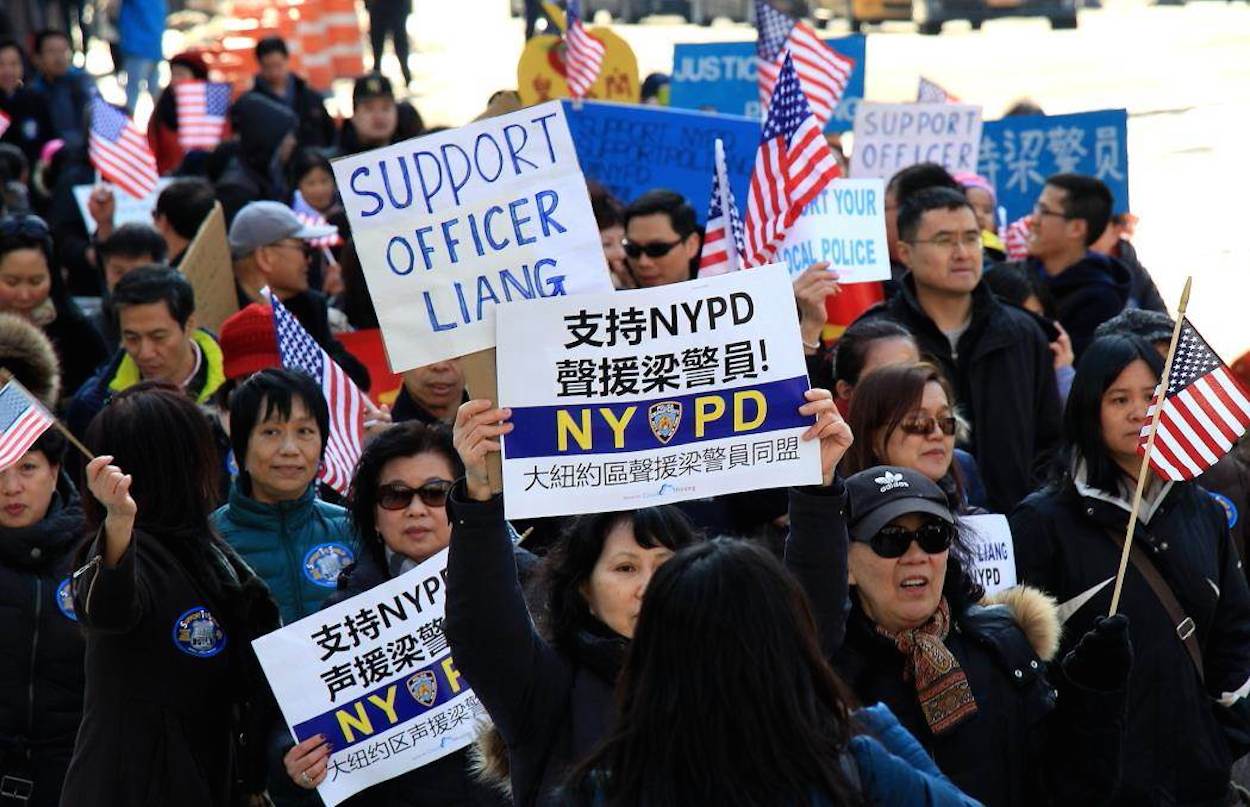 Instead of stopping at “Let’s hold police officers accountable,” we should be more vocal about policing. We should try to draw connections with the #freeliang camp on questioning policing techniques. We could be critical about the legal resources Liang has from the police as an Asian-American. We could be angry about why police academy does not train police in CPR very well. Then when we listen to, rather than dismiss, the anger from the #freeliang protesters, perhaps there’s chance to keep the dialogue going.
Instead of stopping at “Let’s hold police officers accountable,” we should be more vocal about policing. We should try to draw connections with the #freeliang camp on questioning policing techniques. We could be critical about the legal resources Liang has from the police as an Asian-American. We could be angry about why police academy does not train police in CPR very well. Then when we listen to, rather than dismiss, the anger from the #freeliang protesters, perhaps there’s chance to keep the dialogue going.
Peter Liang in China
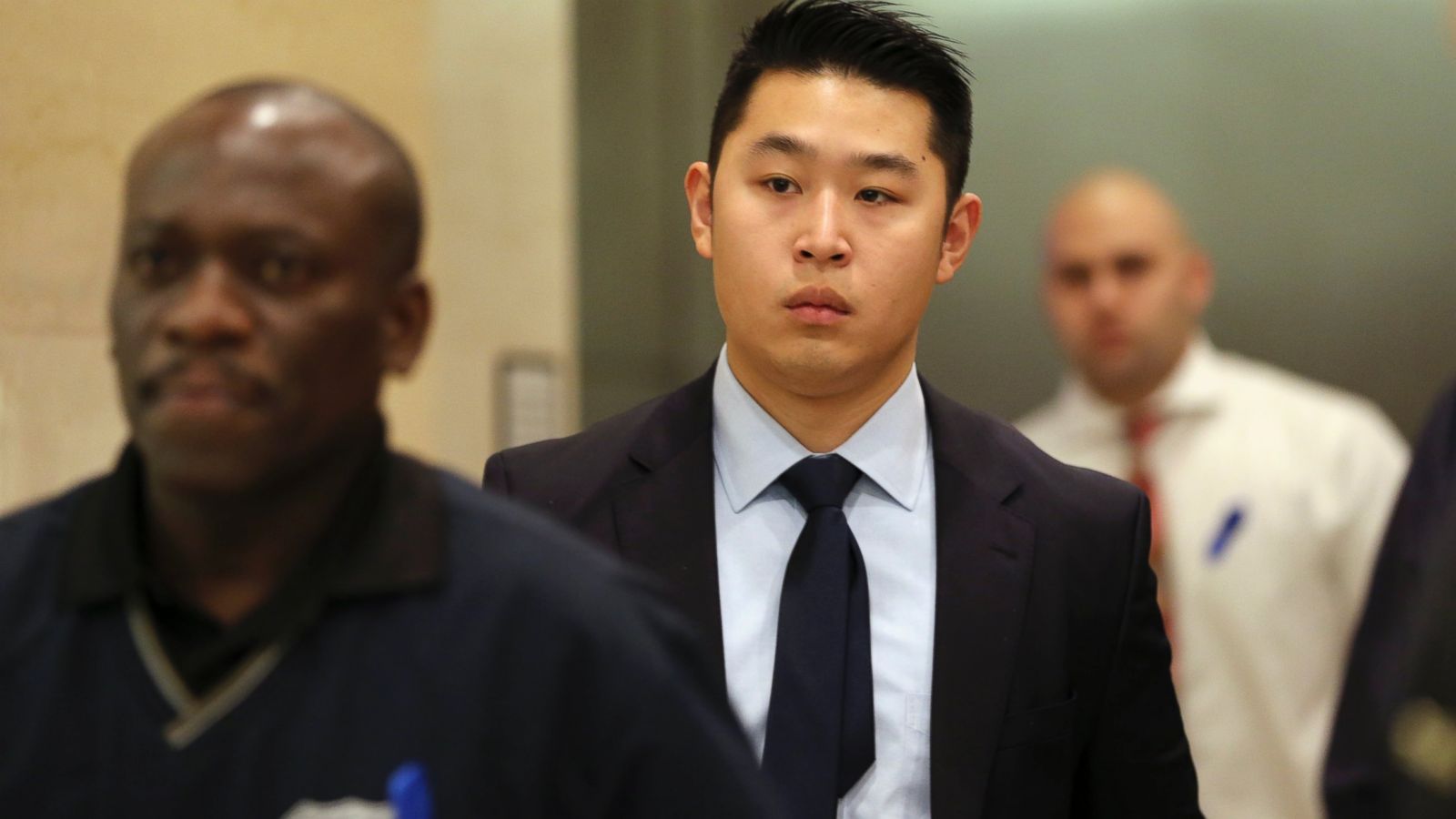 Probably one of the stranger afterlives of the Peter Liang case would be the case having taken on a life of its own in China. We might examine responses from Chinese state-run media in relation to the broader political context of China.
Probably one of the stranger afterlives of the Peter Liang case would be the case having taken on a life of its own in China. We might examine responses from Chinese state-run media in relation to the broader political context of China.
What Would Transitional Justice in Taiwan Mean?
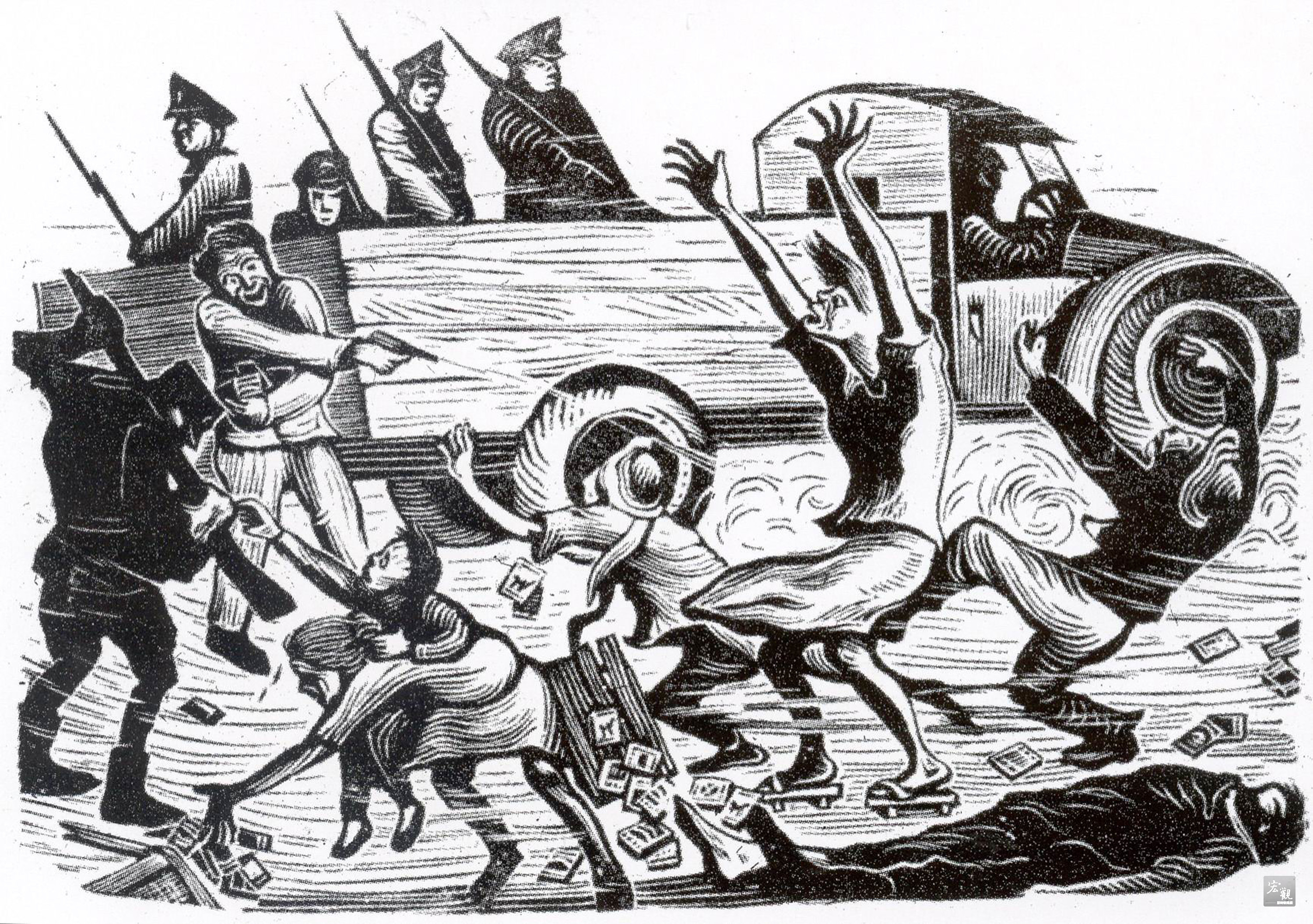 Why the need for transitional justice in Taiwan, anyway? Is it not that Taiwan is already “post-authoritarian”? Certainly, that would be what much of western commentary regarding Taiwan assumes, that Taiwan is unequivocally “post-authoritarian”. But the paradoxes of so-called Taiwanese democracy are many and the crimes of the authoritarian period have not been settled.
Why the need for transitional justice in Taiwan, anyway? Is it not that Taiwan is already “post-authoritarian”? Certainly, that would be what much of western commentary regarding Taiwan assumes, that Taiwan is unequivocally “post-authoritarian”. But the paradoxes of so-called Taiwanese democracy are many and the crimes of the authoritarian period have not been settled.
The 228 Massacre, The New Legislature, and Unresolved Issues of Transitional Justice in Taiwan
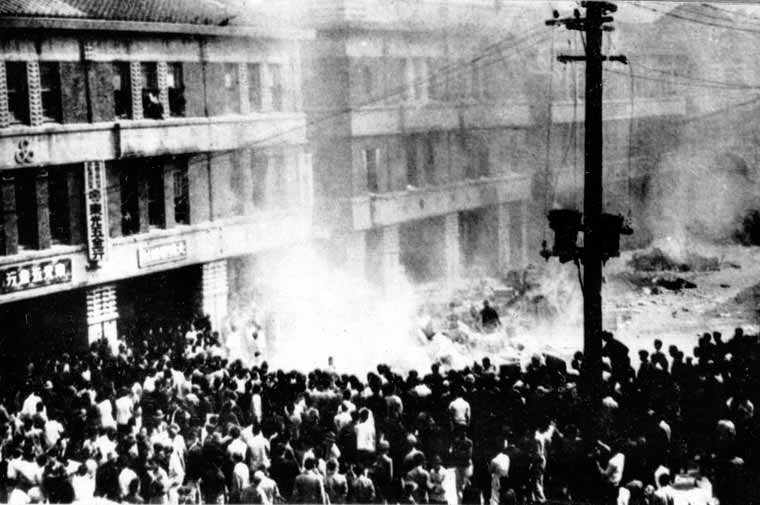 Transitional justice is a term increasingly used among Taiwanese since the explosion of civic awareness after the Sunflower movement. In the new political scene after the January 16th elections, calls for transitional justice are ever louder and bolder, as the new legislature is thought to be more capable of exerting political force regarding the issue of transitional justice.
Transitional justice is a term increasingly used among Taiwanese since the explosion of civic awareness after the Sunflower movement. In the new political scene after the January 16th elections, calls for transitional justice are ever louder and bolder, as the new legislature is thought to be more capable of exerting political force regarding the issue of transitional justice.
Accusations of Fascism Against Hong Kong from the Pro-Unification Left?
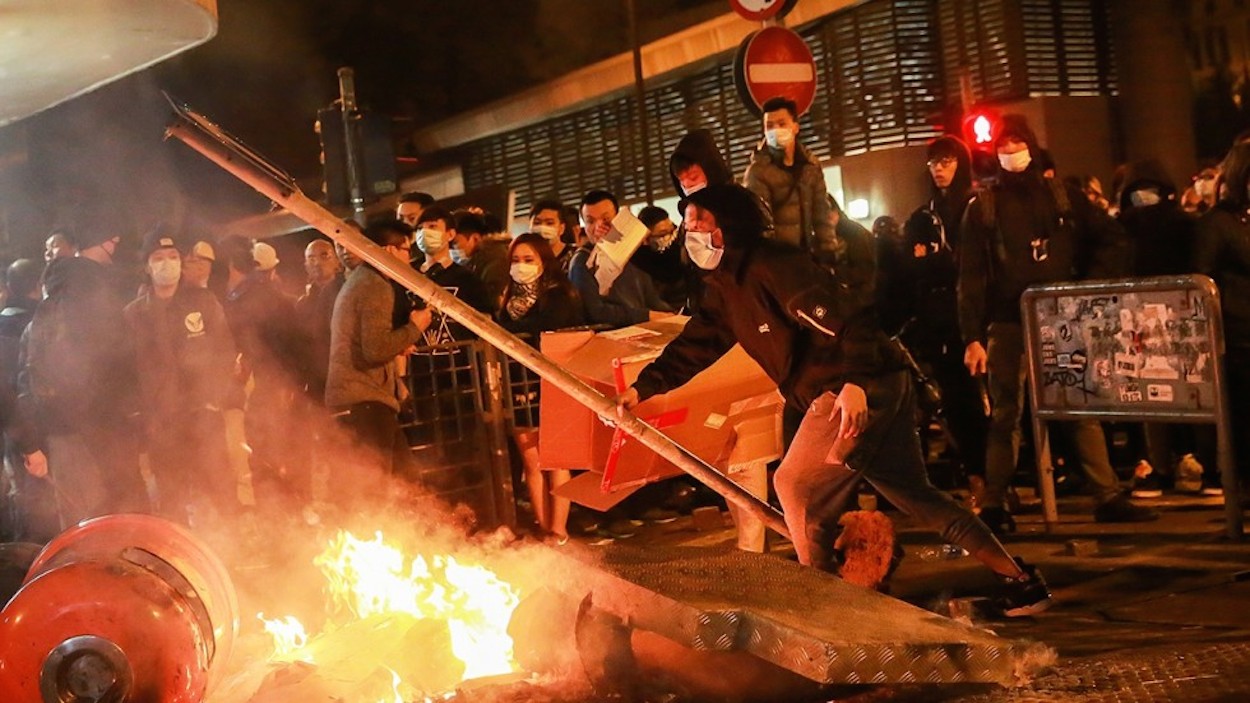 Recent attempts to claim the Mong Kok riots were fascistic are just the pro-unification Left up to its old tricks. One suspects that they lack any real sense of what fascism is. Instead, as members of the pro-unification Left in Hong Kong or Taiwan do quite frequently, at the core, anything which resists China is deemed to be “fascistic” or “populist” in their eyes.
Recent attempts to claim the Mong Kok riots were fascistic are just the pro-unification Left up to its old tricks. One suspects that they lack any real sense of what fascism is. Instead, as members of the pro-unification Left in Hong Kong or Taiwan do quite frequently, at the core, anything which resists China is deemed to be “fascistic” or “populist” in their eyes.
Lee Teng-Hui, Tsai Ing-Wen, and Questions About the ROC Framework
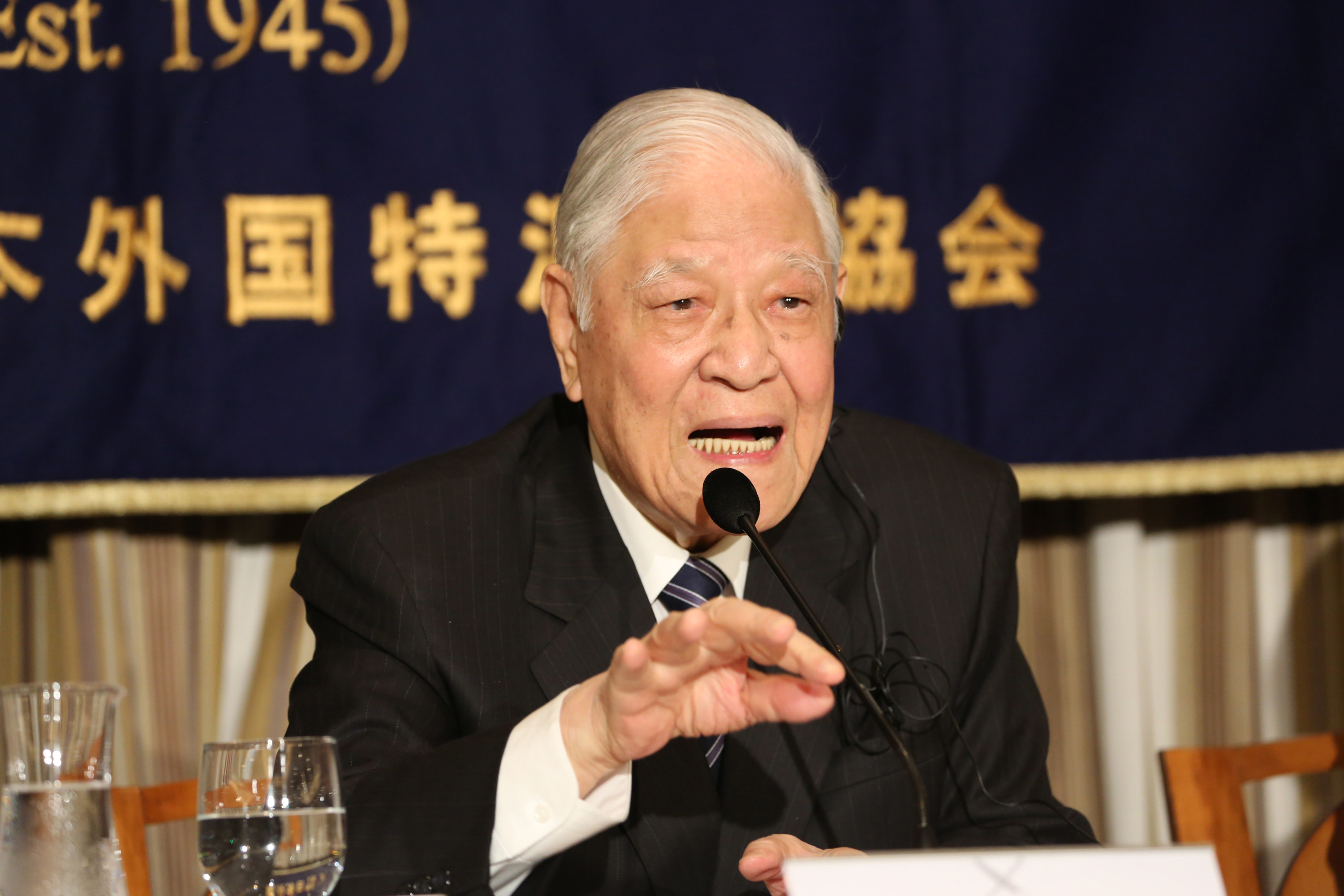 Lee Teng-Hui recently drew fire for calling for the localization and Taiwanization of the Republic of China, but claiming that there is no explicit need for Taiwanese independence in a recently published book. Do we see shifts in the discourse about independence/unification as reflected in Lee’s statements? And can we relate this to Tsai Ing-Wen’s political position about preserving the ROC framework? Namely, some of Tsai’s current platforms seem reminiscent of Lee’s past policies.
Lee Teng-Hui recently drew fire for calling for the localization and Taiwanization of the Republic of China, but claiming that there is no explicit need for Taiwanese independence in a recently published book. Do we see shifts in the discourse about independence/unification as reflected in Lee’s statements? And can we relate this to Tsai Ing-Wen’s political position about preserving the ROC framework? Namely, some of Tsai’s current platforms seem reminiscent of Lee’s past policies.
The Peter Liang Trial and Questions of Race and Politics in America
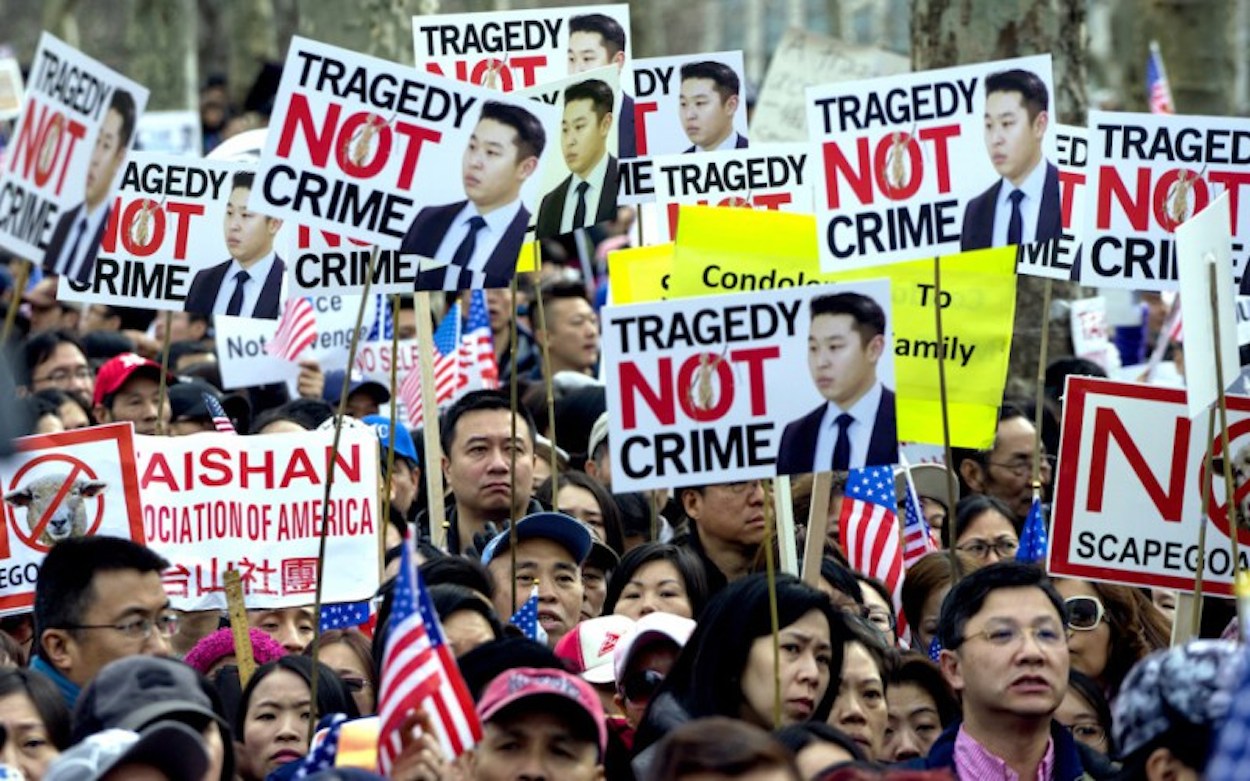 The past week has seen rallies across the country in protest of the arraignment of NYPD officer Peter Liang on charges of manslaughter and official misconduct. Liang, a Chinese-American police officer, shot and killed 28-year-old Akai Gurley in the dark stairwell of a Brooklyn housing project when his drawn gun went off. However, the Liang verdict has been divisive of the Asian-American community, raising broader issues of racial justice in the United States. We might examine and engage with some of the issues at hand.
The past week has seen rallies across the country in protest of the arraignment of NYPD officer Peter Liang on charges of manslaughter and official misconduct. Liang, a Chinese-American police officer, shot and killed 28-year-old Akai Gurley in the dark stairwell of a Brooklyn housing project when his drawn gun went off. However, the Liang verdict has been divisive of the Asian-American community, raising broader issues of racial justice in the United States. We might examine and engage with some of the issues at hand.
Will China’s Upcoming Ban on Foreign Press Backfire?
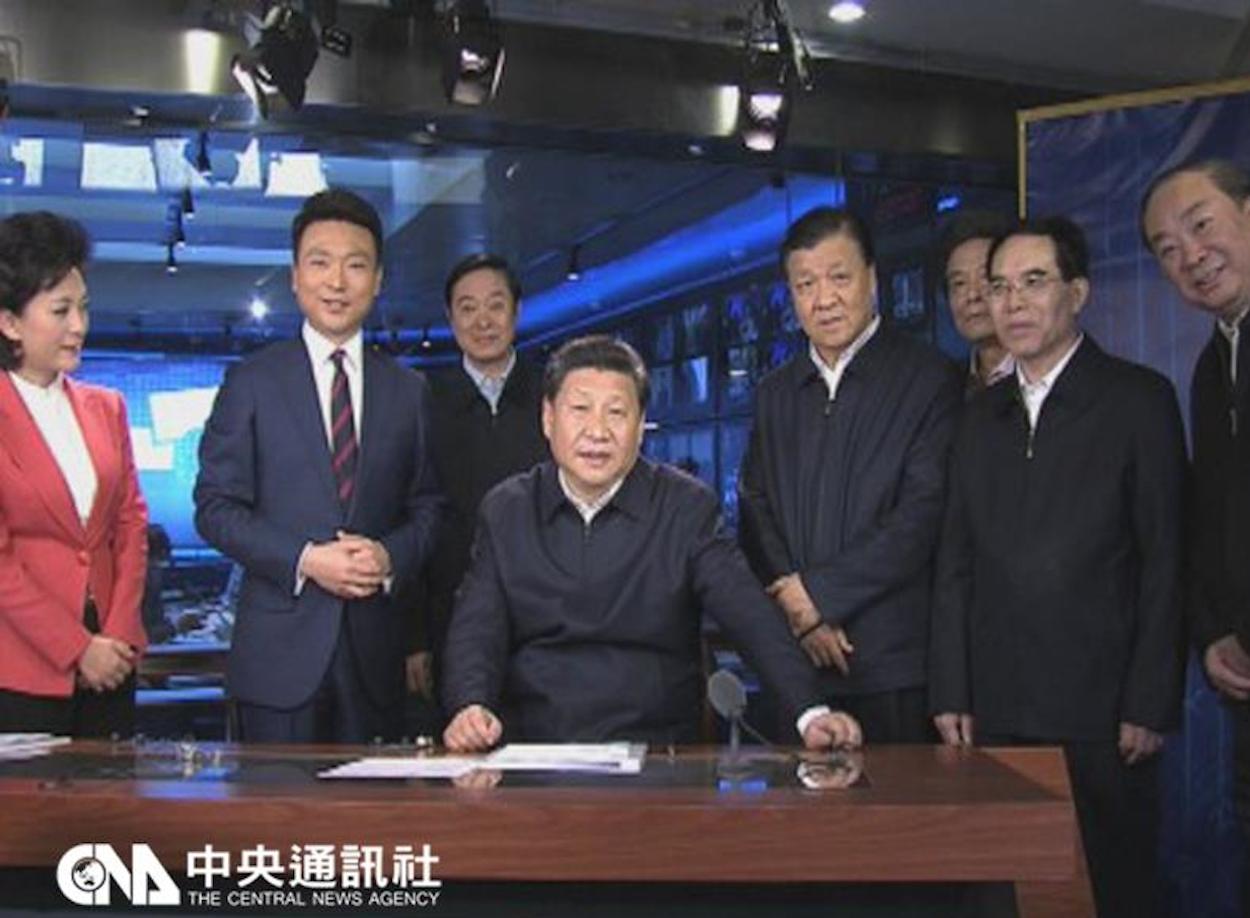 In a year which has already seen unprecedented crackdowns on the press, China recently announced a ban on foreign media publishing online in China. The ban was announced on February 14th and is set to take effect starting from next month.
In a year which has already seen unprecedented crackdowns on the press, China recently announced a ban on foreign media publishing online in China. The ban was announced on February 14th and is set to take effect starting from next month.
A Game of Thrones?
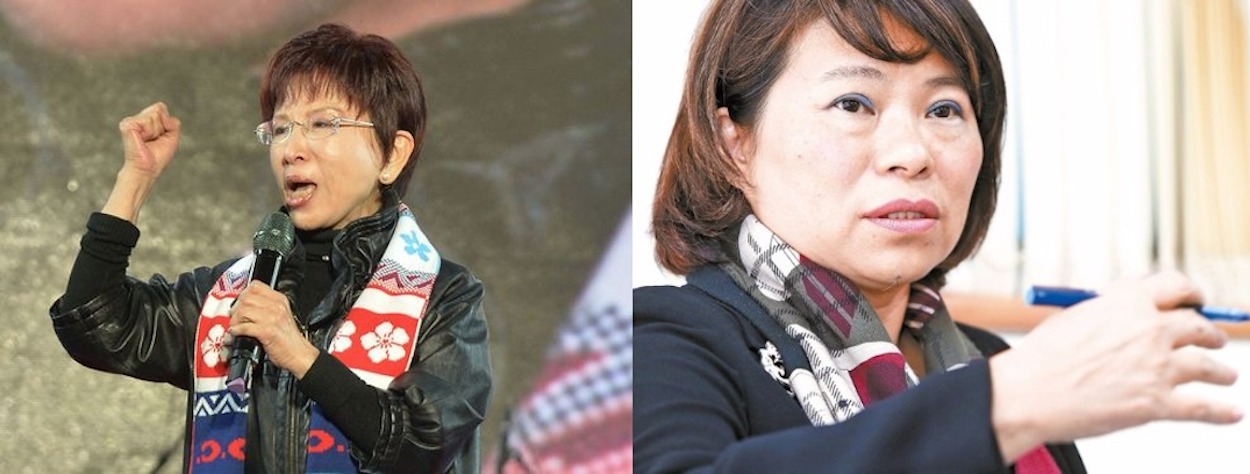 Factional conflict continues within the KMT, with the struggle for party chairmanship. In a surprise turn, we now see two women struggling for chairmanship, namely Huang Min-Hui and Hung Hsiu-Chu. What does this tell us about factional conflict within the KMT?
Factional conflict continues within the KMT, with the struggle for party chairmanship. In a surprise turn, we now see two women struggling for chairmanship, namely Huang Min-Hui and Hung Hsiu-Chu. What does this tell us about factional conflict within the KMT?
Seeds: Japanese Volunteers at the Tainan Earthquake Site
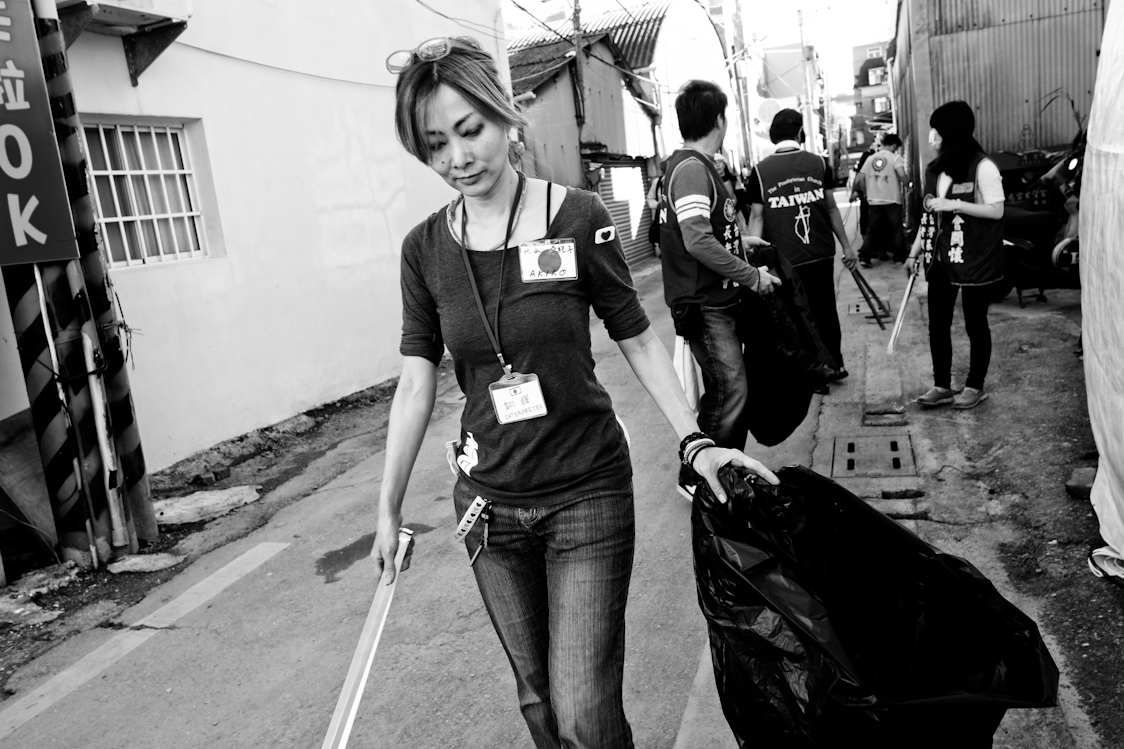 On February 13th, at the Tainan earthquake disaster site, I saw about 20 Japanese volunteers wearing Taiwan Presbyterian Church vests with Japanese flags displayed on their clothes or badges. In the supply section, the Japanese volunteers outnumbered the Taiwanese volunteers. I spoke to a few of them, and the common sentiment among the Japanese volunteers was that the felt compelled to help with the rescue effort, since Taiwan donated the most money out of all the nations in the aftermath of 3.11 earthquake that ravaged Japan back in 2011.
On February 13th, at the Tainan earthquake disaster site, I saw about 20 Japanese volunteers wearing Taiwan Presbyterian Church vests with Japanese flags displayed on their clothes or badges. In the supply section, the Japanese volunteers outnumbered the Taiwanese volunteers. I spoke to a few of them, and the common sentiment among the Japanese volunteers was that the felt compelled to help with the rescue effort, since Taiwan donated the most money out of all the nations in the aftermath of 3.11 earthquake that ravaged Japan back in 2011.
Interview: Tuhi Martukaw (洪簡廷卉)
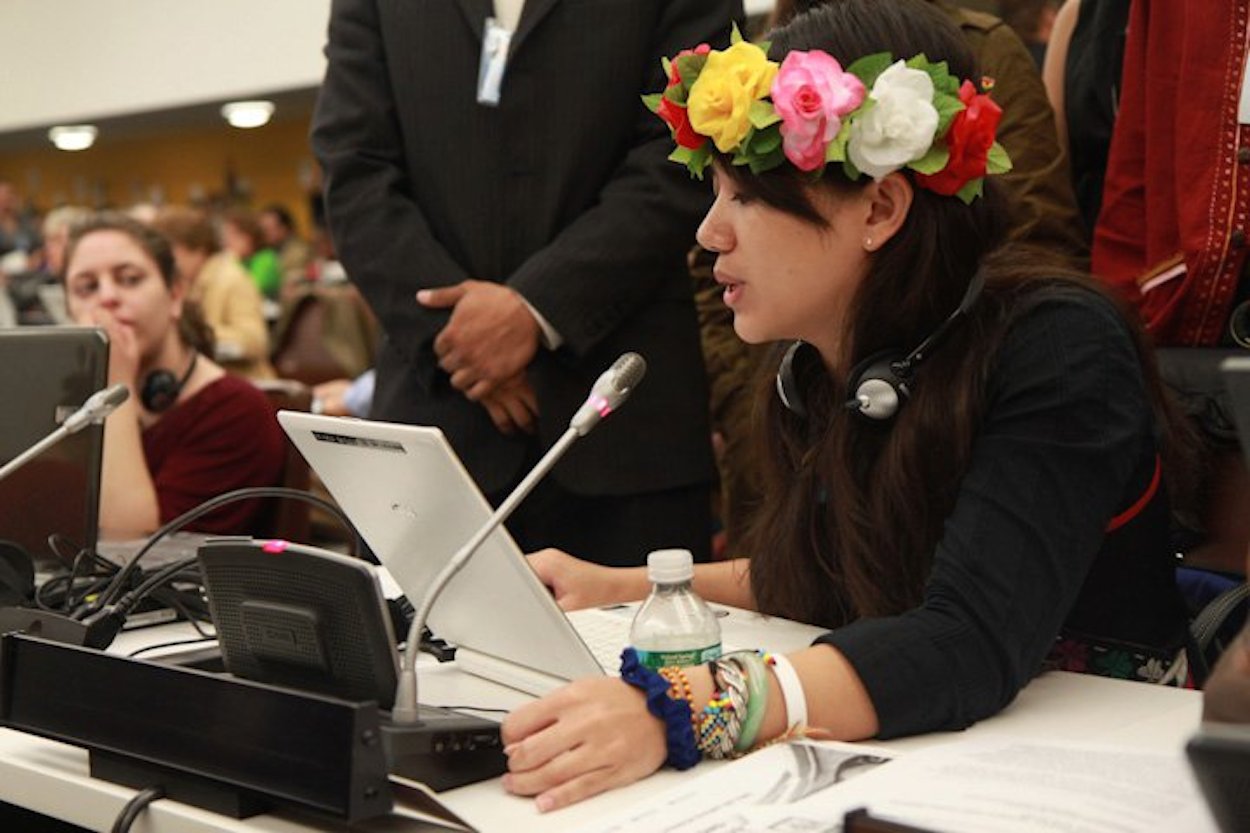 Tuhi Martukaw (Jocelyn Ting-Hui Hung Chien) is an anchor and translator on Taiwan Indigenous Television Network (TITV) as well as coordinator and founder of the LIMA Taiwan Indigenous Youth Working Group. Parson Young and Brian Hioe of New Bloom interviewed her in December 2015 in New York City about her experiences with UN delegations of Taiwanese indigenous peoples and at the UN Permanent Forum on Indigenous Issues.
Tuhi Martukaw (Jocelyn Ting-Hui Hung Chien) is an anchor and translator on Taiwan Indigenous Television Network (TITV) as well as coordinator and founder of the LIMA Taiwan Indigenous Youth Working Group. Parson Young and Brian Hioe of New Bloom interviewed her in December 2015 in New York City about her experiences with UN delegations of Taiwanese indigenous peoples and at the UN Permanent Forum on Indigenous Issues.
Seeds: Notes from Earthquake Relief Efforts At the Site of the Disaster on February 12th
 The relief workers and volunteers came from all over Taiwan. Some came from as far as Japan and Korea. Many had not slept for days. Some slept on the floor. One could easily fall asleep due to exhaustion. Survivors had not been found for more than a day. At around 2 AM, we heard that a survivor was found. Everyone was emotional and many cried. We eventually found out that the information was wrong, but a puppy was rescued. Christians. Daoists. Buddhists. Police officers. Firefighters. Rescue workers. Nurses. Volunteers. Monks. Activists. Soldiers. All working, resting, or standing by.
The relief workers and volunteers came from all over Taiwan. Some came from as far as Japan and Korea. Many had not slept for days. Some slept on the floor. One could easily fall asleep due to exhaustion. Survivors had not been found for more than a day. At around 2 AM, we heard that a survivor was found. Everyone was emotional and many cried. We eventually found out that the information was wrong, but a puppy was rescued. Christians. Daoists. Buddhists. Police officers. Firefighters. Rescue workers. Nurses. Volunteers. Monks. Activists. Soldiers. All working, resting, or standing by.
Tsai Ing-Wen and Taiwan’s Year of the Female Politician?
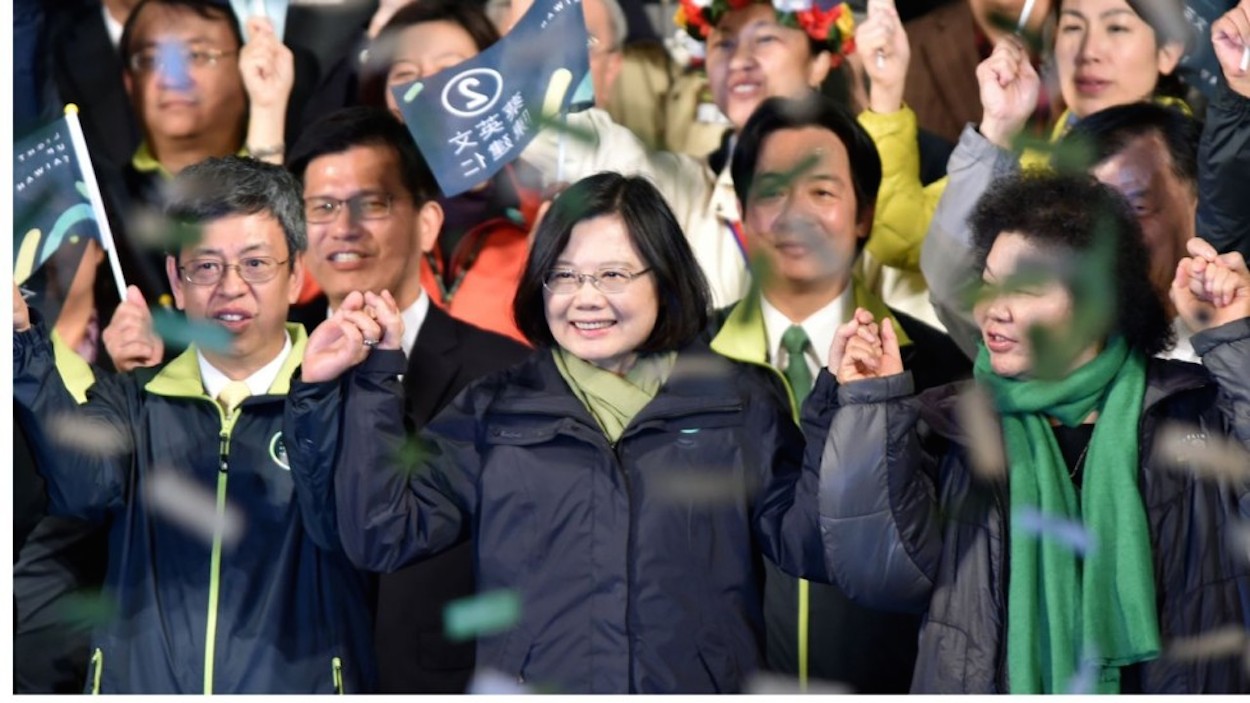 As we all know by now, Taiwan’s next president will be a woman. But what does this mean politically? For one, Tsai Ing-Wen being elected as a female president of Taiwan hardly means that all problems of sexual or gender discrimination have been solved in Taiwan. And Tsai being a female politician does not mean she will be inherently more progressive as president of Taiwan.
As we all know by now, Taiwan’s next president will be a woman. But what does this mean politically? For one, Tsai Ing-Wen being elected as a female president of Taiwan hardly means that all problems of sexual or gender discrimination have been solved in Taiwan. And Tsai being a female politician does not mean she will be inherently more progressive as president of Taiwan.
What Are the Questions We Should Be Asking After the Tainan Earthquake?
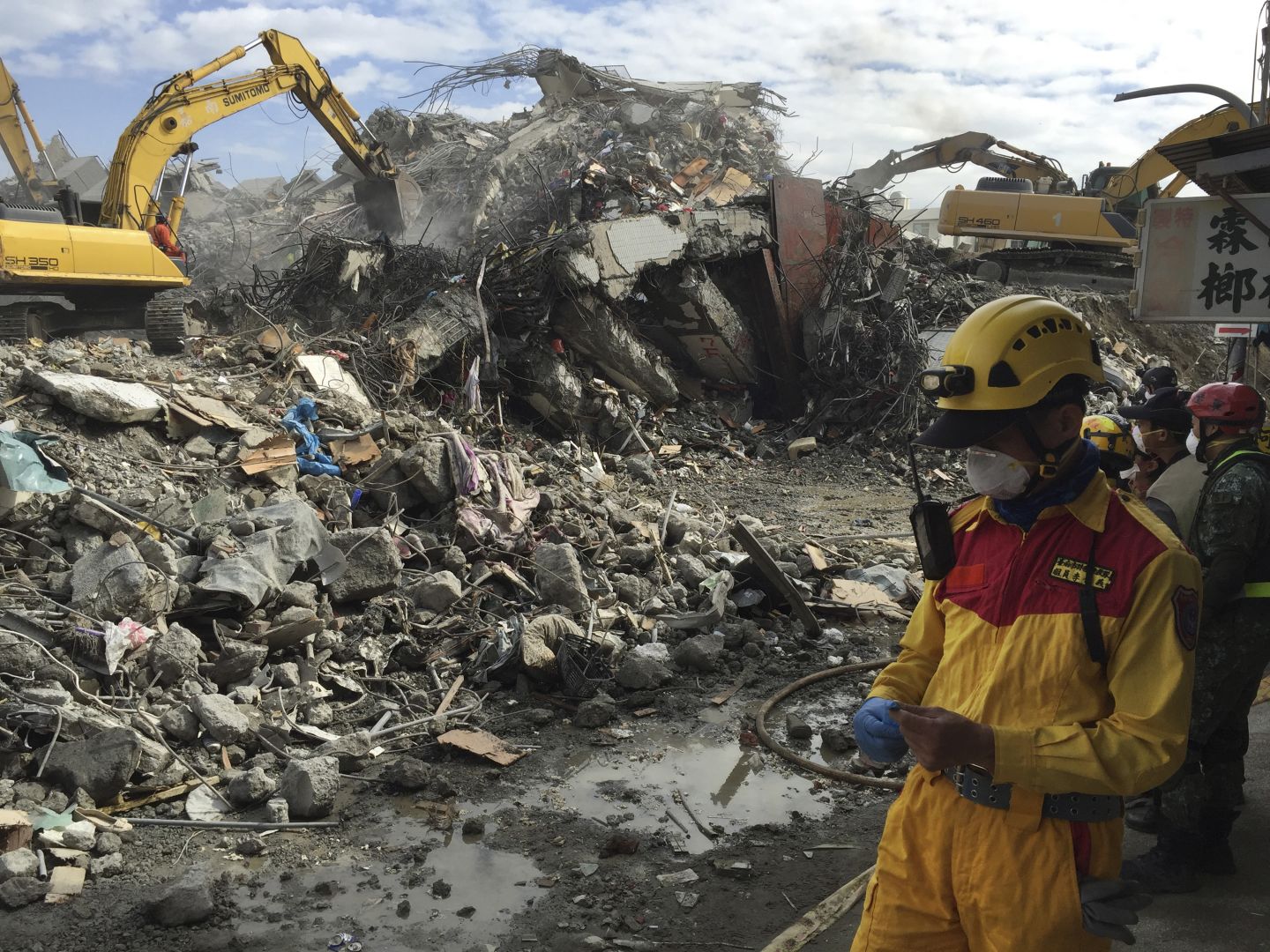 What are we to make of the Tainan earthquake, six days later? The disaster has been an object of public spectacle in international media, with the human drama of searching for survivors in the some 12 buildings that collapsed during the earthquake. But can we also point to manmade, structural causes to the Tainan earthquake disaster rather than simply natural ones?
What are we to make of the Tainan earthquake, six days later? The disaster has been an object of public spectacle in international media, with the human drama of searching for survivors in the some 12 buildings that collapsed during the earthquake. But can we also point to manmade, structural causes to the Tainan earthquake disaster rather than simply natural ones?
What Was The Fishball Revolution About?
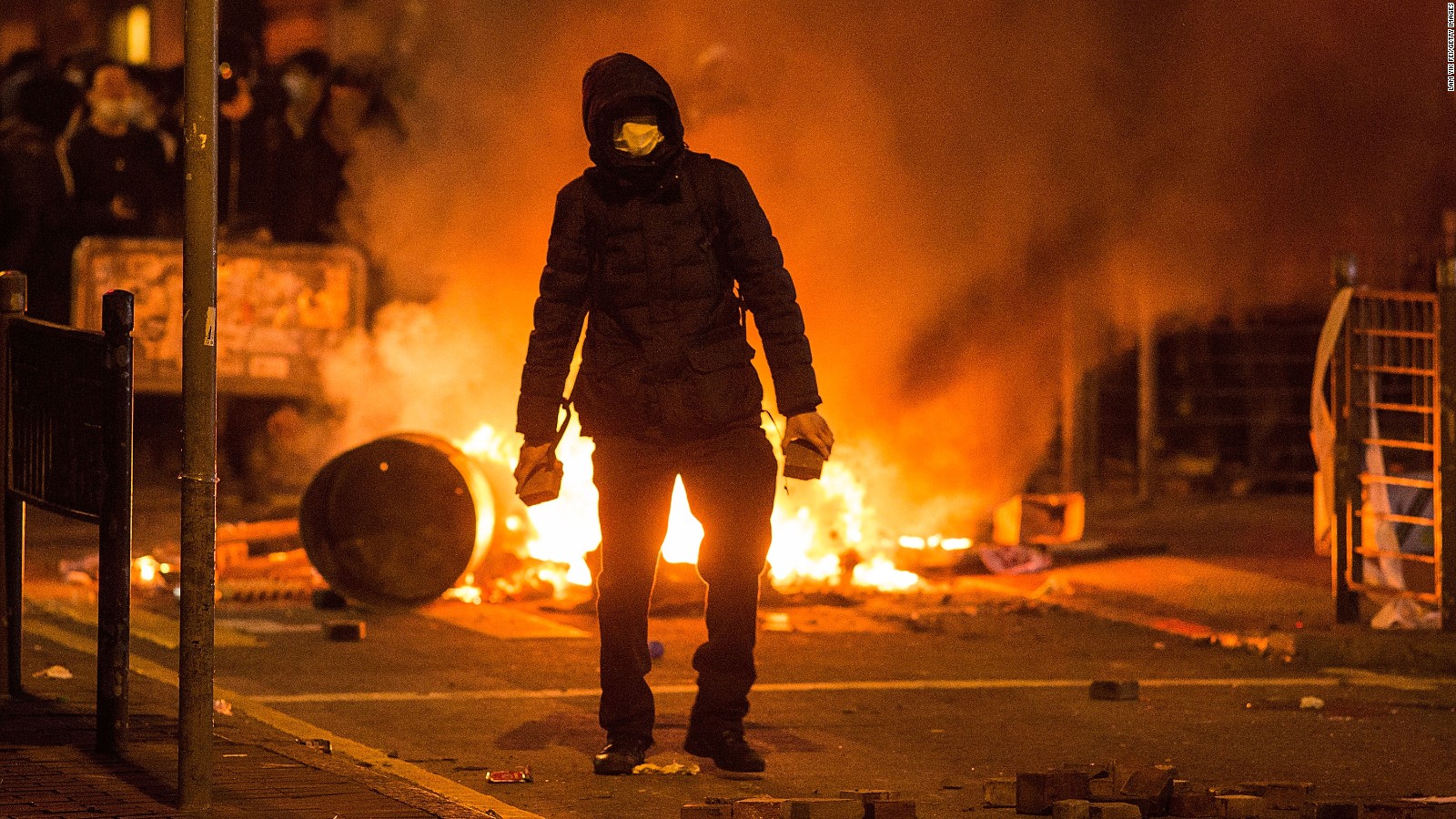 Over 60 were arrested and over 120 were injured during the riot which broke out Monday in Mong Kok, Hong Kong. But the so-called “Fishball Revolution” was hardly about just fishballs, or even food hawkers. What was it that led up to Monday’s events? And what does this mean for Hong Kong going forward? Will this be, as some have claimed, the beginning of a year of resistance?
Over 60 were arrested and over 120 were injured during the riot which broke out Monday in Mong Kok, Hong Kong. But the so-called “Fishball Revolution” was hardly about just fishballs, or even food hawkers. What was it that led up to Monday’s events? And what does this mean for Hong Kong going forward? Will this be, as some have claimed, the beginning of a year of resistance?
China’s Recent Attempts to Crack Down on Press Freedoms
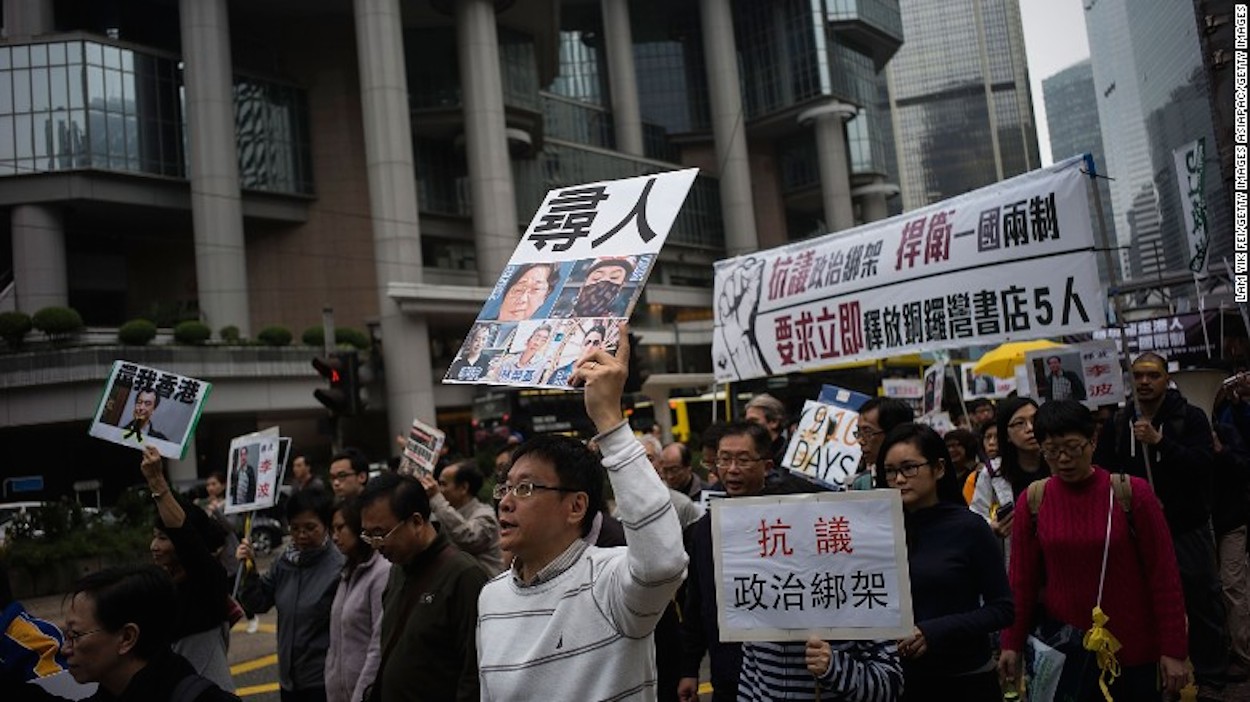 With critics of wrongdoing in China increasingly disappearing, who is it that will dare speak out against China in the future? No one, nowhere seems off limits anymore. Present events trace back to the disappearance of five booksellers from Hong Kong, who worked in a bookstore that sold books banned in China. But we can point to a renewed offensive on press freedom in China, including renewed attempts at “Media Monopoly” and crackdowns on foreign journalists.
With critics of wrongdoing in China increasingly disappearing, who is it that will dare speak out against China in the future? No one, nowhere seems off limits anymore. Present events trace back to the disappearance of five booksellers from Hong Kong, who worked in a bookstore that sold books banned in China. But we can point to a renewed offensive on press freedom in China, including renewed attempts at “Media Monopoly” and crackdowns on foreign journalists.
Interview: Linda Gail Arrigo (艾琳達)
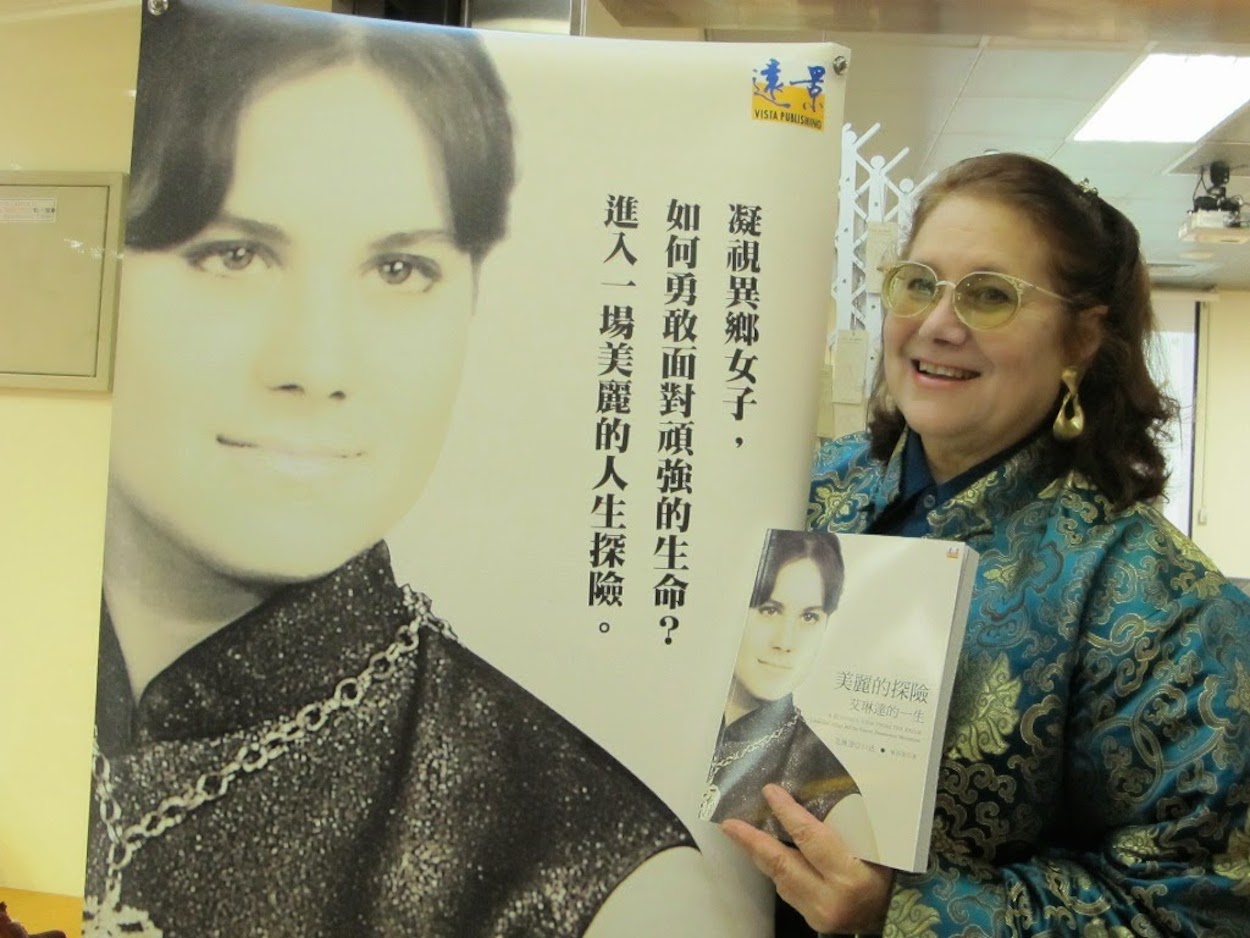 Linda Gail Arrigo, who first came to Taiwan in the early 1960s as a teenager, is a veteran of the Taiwan democracy movement in the 1970s and 1980s. Though banned from entering Taiwan after the events of the Kaohsiung Incident, she continued to advocate for Taiwanese democracy afterwards outside of Taiwan and has continued to be a participant in social movements after eventually being able to return to Taiwan in 1990.
Linda Gail Arrigo, who first came to Taiwan in the early 1960s as a teenager, is a veteran of the Taiwan democracy movement in the 1970s and 1980s. Though banned from entering Taiwan after the events of the Kaohsiung Incident, she continued to advocate for Taiwanese democracy afterwards outside of Taiwan and has continued to be a participant in social movements after eventually being able to return to Taiwan in 1990.
‘Open Data = Transparency?’: Ma’s Ludicrous Statement on Open Data
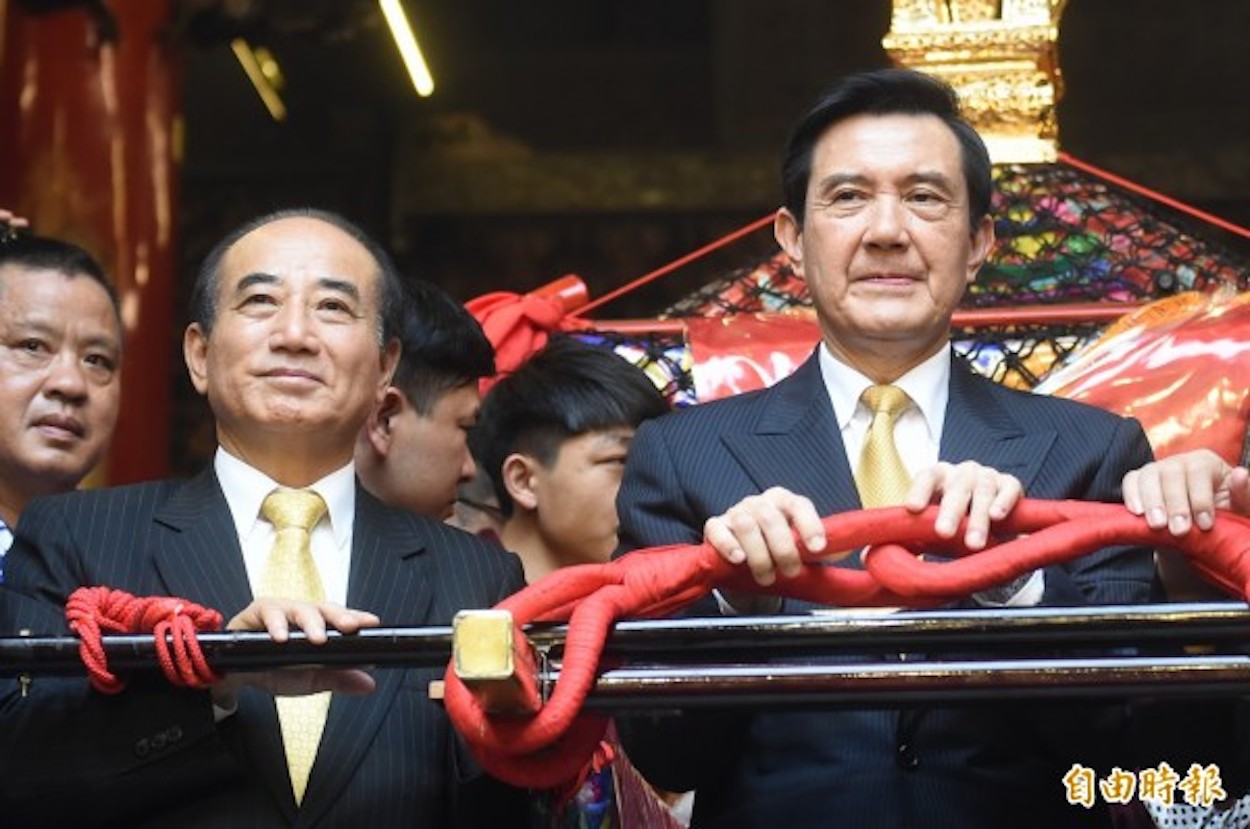 Recently, President Ma Ying-jeou has made a number of erroneous statements about open data, claiming that Taiwan’s number-one ranking on the Open Knowledge Foundation’s open data index is proof of his administration’s overall transparency. In response, Billy Lin, a prominent member of the civic-tech community “g0v” wrote an editorial response to Taiwan’s Apple Daily editorial board. We have translated the original editorial with the author’s permission.
Recently, President Ma Ying-jeou has made a number of erroneous statements about open data, claiming that Taiwan’s number-one ranking on the Open Knowledge Foundation’s open data index is proof of his administration’s overall transparency. In response, Billy Lin, a prominent member of the civic-tech community “g0v” wrote an editorial response to Taiwan’s Apple Daily editorial board. We have translated the original editorial with the author’s permission.
What is ROC Independence versus Taiwanese Independence?
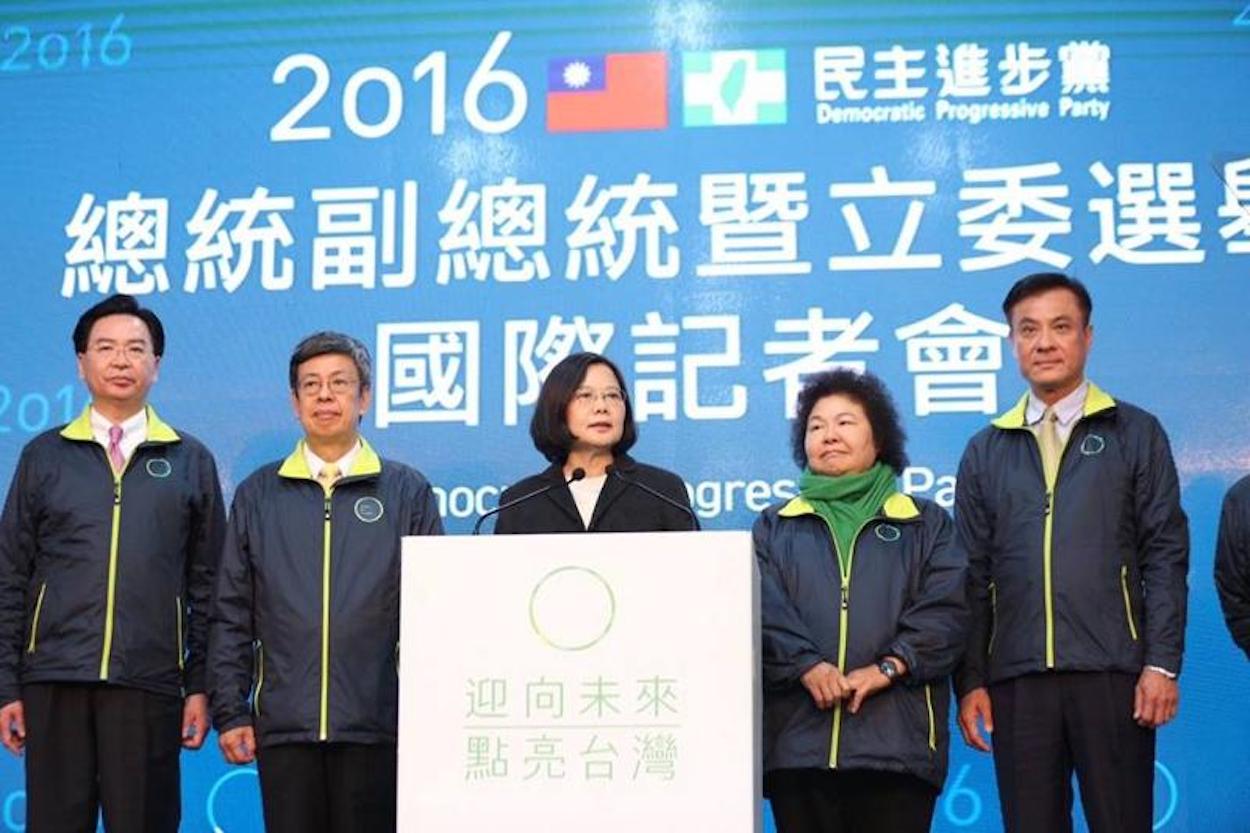 With reports of the victory of the “independence-leaning” or even “pro-independence” Democratic Progressive Party in international media reports on 2016 presidential elections, it may be worth revisiting what is discussed as “independence”. Namely, international media has a tendency of failing to make sufficient distinctions in regards to what is referred to as “Taiwanese independence.” Sometimes what is referred to as being “Taiwanese independence” in English language discourse is not actually Taiwanese independence at all.
With reports of the victory of the “independence-leaning” or even “pro-independence” Democratic Progressive Party in international media reports on 2016 presidential elections, it may be worth revisiting what is discussed as “independence”. Namely, international media has a tendency of failing to make sufficient distinctions in regards to what is referred to as “Taiwanese independence.” Sometimes what is referred to as being “Taiwanese independence” in English language discourse is not actually Taiwanese independence at all.
Calls for Reform by Young People Within the KMT?
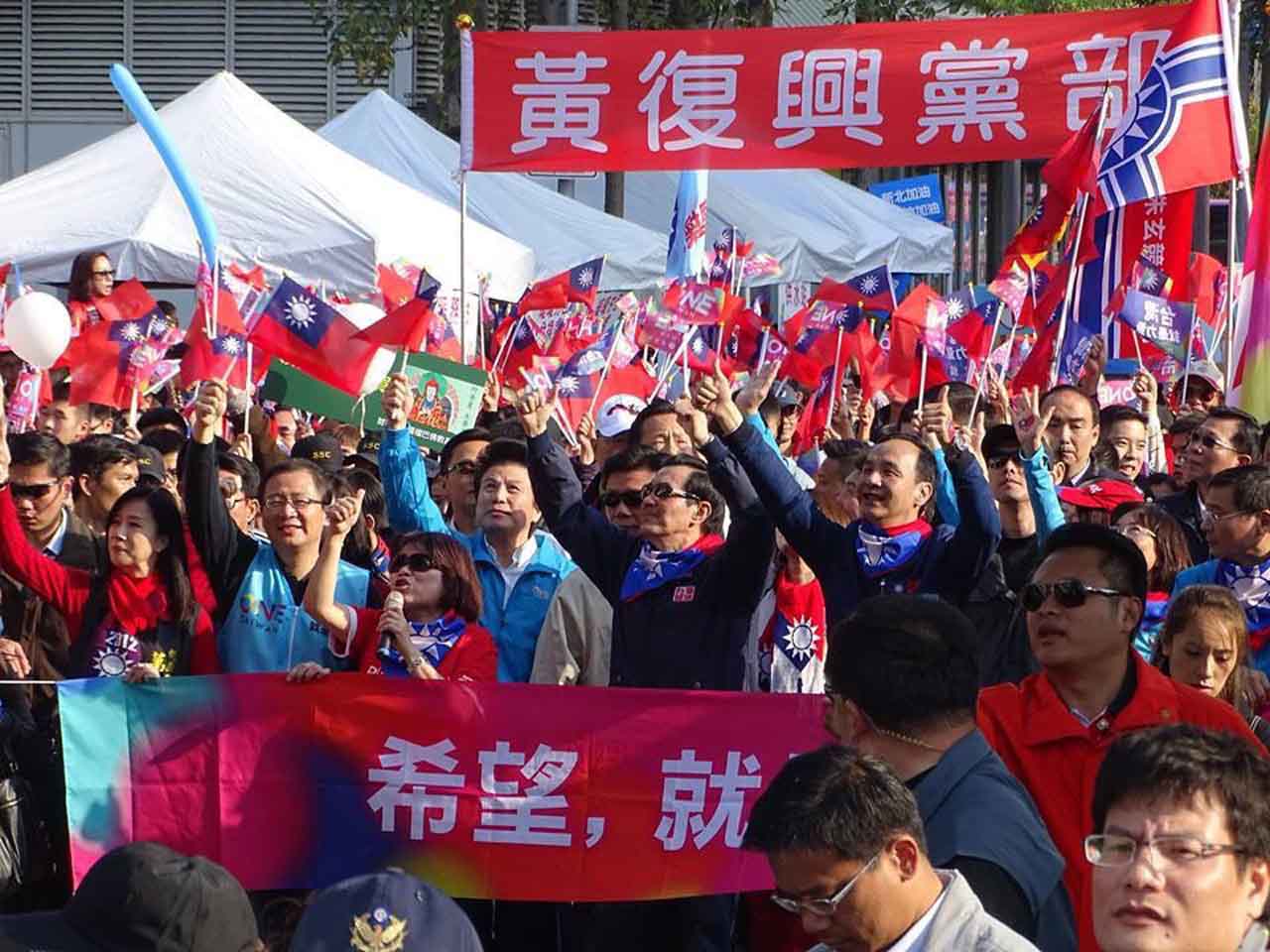 As the quip often goes, the KMT no longer has young people within the party. This would be another factor behind the crisis of the KMT, with the party’s actions in recent years having alienated much of Taiwan’s young. This has been a product of the KMT’s attempts to draw Taiwan too close to China than many find comfortable or on the basis of perceived corruption through the KMT’s sizable party assets or KMT politicians who have made themselves wealthy through using their political connections. But, surprisingly, there are some young people within the KMT calling for internal reform.
As the quip often goes, the KMT no longer has young people within the party. This would be another factor behind the crisis of the KMT, with the party’s actions in recent years having alienated much of Taiwan’s young. This has been a product of the KMT’s attempts to draw Taiwan too close to China than many find comfortable or on the basis of perceived corruption through the KMT’s sizable party assets or KMT politicians who have made themselves wealthy through using their political connections. But, surprisingly, there are some young people within the KMT calling for internal reform.
Why Would Ma Ying-Jeou Visit Taiping Island?
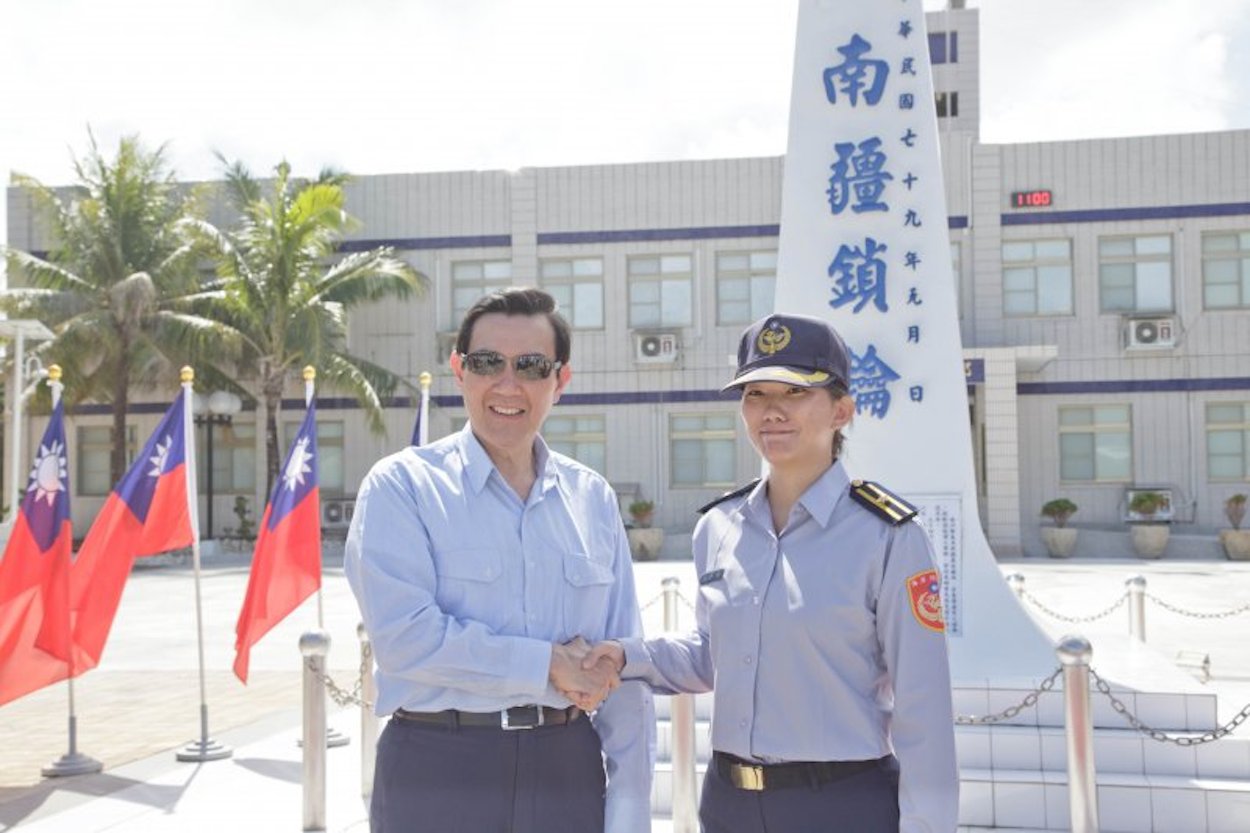 A recent visit by Taiwanese president Ma Ying-Jeou to disputed island of Itu Aba, also known as Taiping Island, has made waves because of the potential to incite territorial disputes over islands in the South China Seas. Itu Aba is the largest of the Spratly Islands chain. Is it that Ma’s actions here, seemingly illogical in nature, are wholly motivated by KMT ideology?
A recent visit by Taiwanese president Ma Ying-Jeou to disputed island of Itu Aba, also known as Taiping Island, has made waves because of the potential to incite territorial disputes over islands in the South China Seas. Itu Aba is the largest of the Spratly Islands chain. Is it that Ma’s actions here, seemingly illogical in nature, are wholly motivated by KMT ideology?
Marxist Basics with Parson: What Does the “Dictatorship of the Proletariat” Actually Mean?
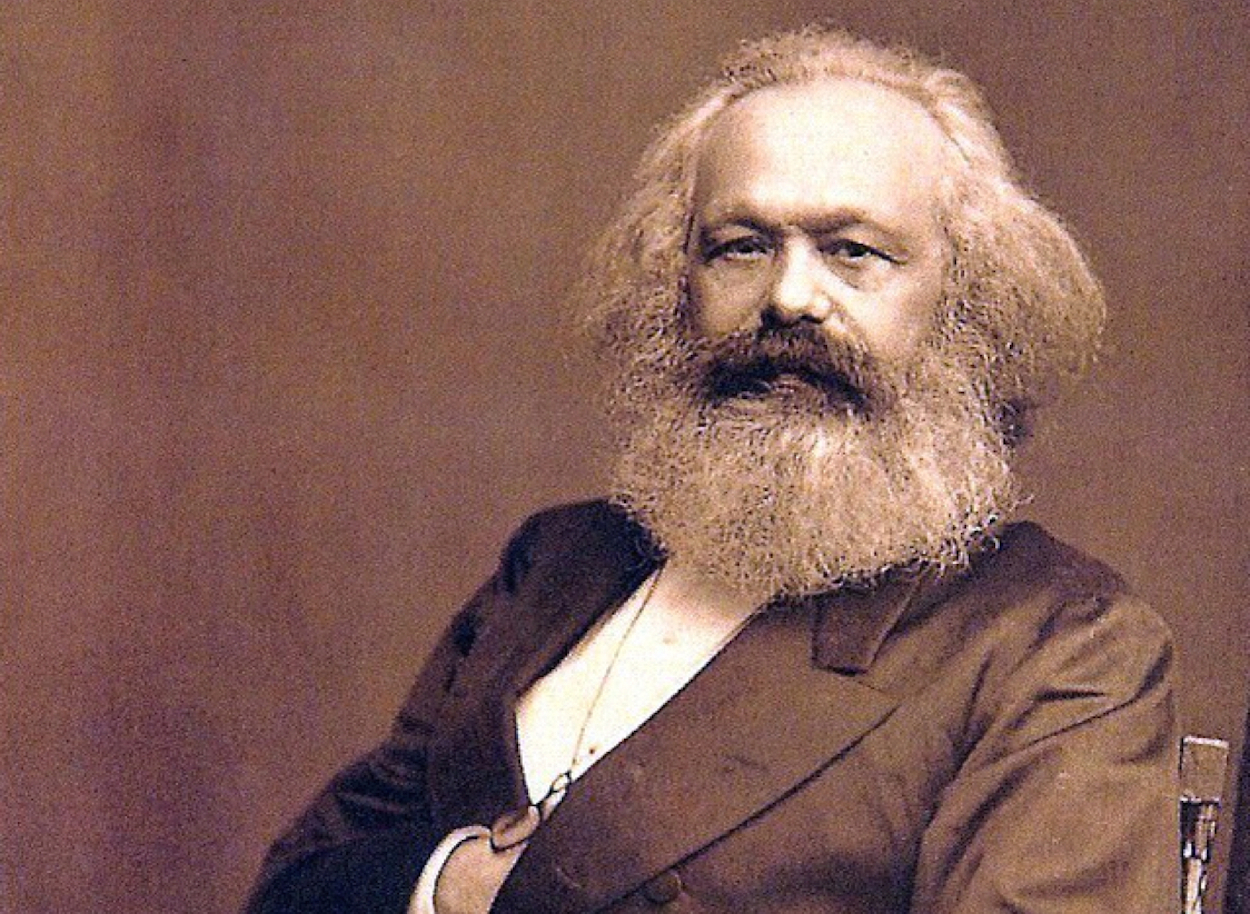 One of the most common accusations against Marxism has been that its implementation inevitably leads to an authoritarian government like that of Stalinism or Maoism. Most point to the term “dictatorship of the proletariat,” a term used by Marx himself, as evidence that Marxism itself has theoretical basis in authoritarianism. In reality, this concept has been purposely distorted, misrepresented and taken out of context and analyzed through a bourgeois understanding of human society. These caricatures of the term, and Marxism in general, formed a strong ideological cult in capitalist society today. It is therefore prudent to peel away the layers of lies surrounding the term, and to examine what Marxists actually have to say about establishment of a worker’s state.k.
One of the most common accusations against Marxism has been that its implementation inevitably leads to an authoritarian government like that of Stalinism or Maoism. Most point to the term “dictatorship of the proletariat,” a term used by Marx himself, as evidence that Marxism itself has theoretical basis in authoritarianism. In reality, this concept has been purposely distorted, misrepresented and taken out of context and analyzed through a bourgeois understanding of human society. These caricatures of the term, and Marxism in general, formed a strong ideological cult in capitalist society today. It is therefore prudent to peel away the layers of lies surrounding the term, and to examine what Marxists actually have to say about establishment of a worker’s state.k.
Why are Students at Hong Kong University On Strike?
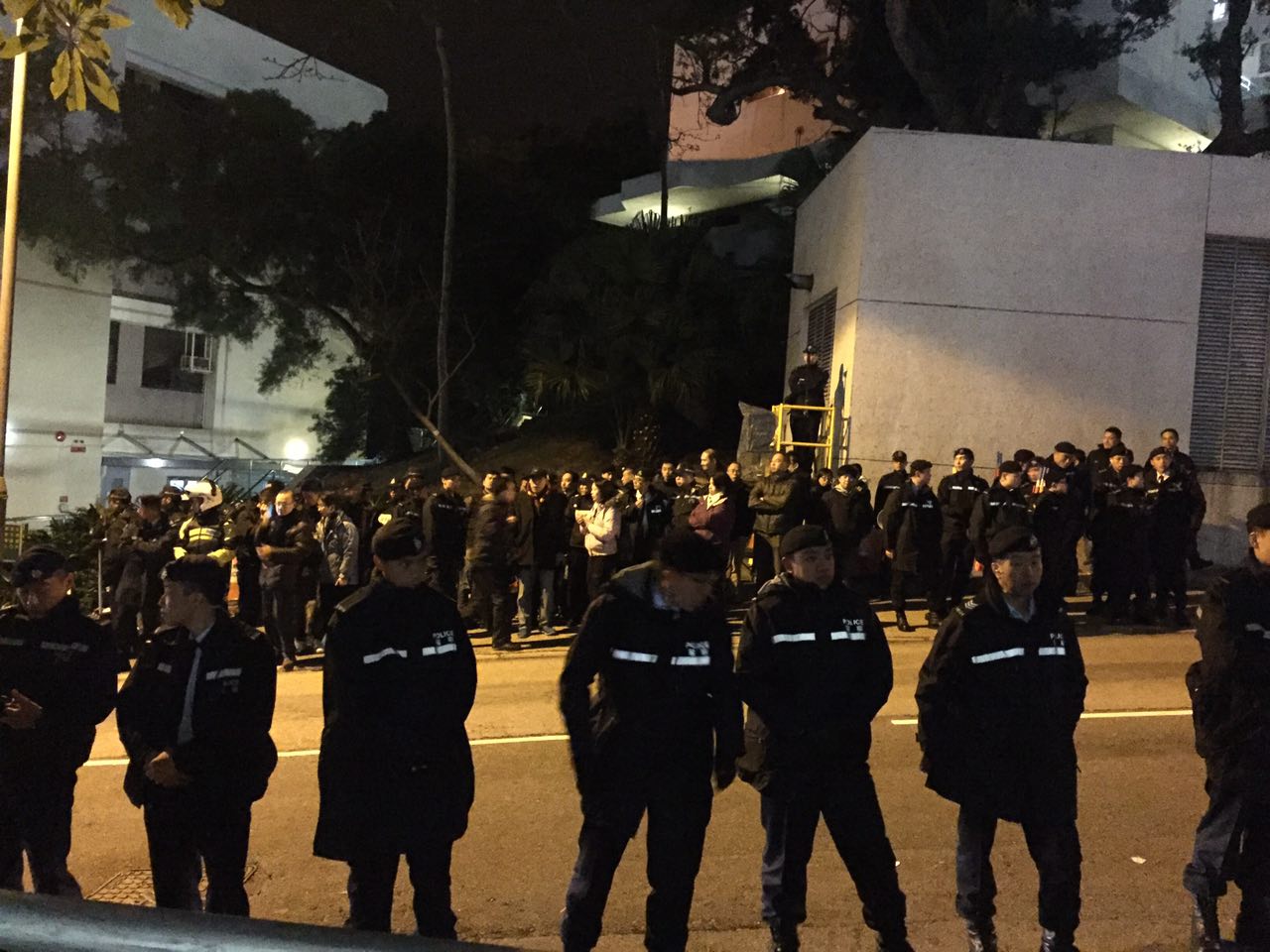 Students at the University of Hong Kong are on strike, with demonstration against the appointment of Arthur Li as head of HKU’s governing Council. Demonstrations have included struggles with the police during an incident last night in which students surrounded a meeting of the Council chaired by Li. There are unconfirmed reports that pepper spray was used during these demonstrations. The student strike is scheduled to last the week.
Students at the University of Hong Kong are on strike, with demonstration against the appointment of Arthur Li as head of HKU’s governing Council. Demonstrations have included struggles with the police during an incident last night in which students surrounded a meeting of the Council chaired by Li. There are unconfirmed reports that pepper spray was used during these demonstrations. The student strike is scheduled to last the week.
The Issue of Comfort Women and the Formation of an East Asian Bloc
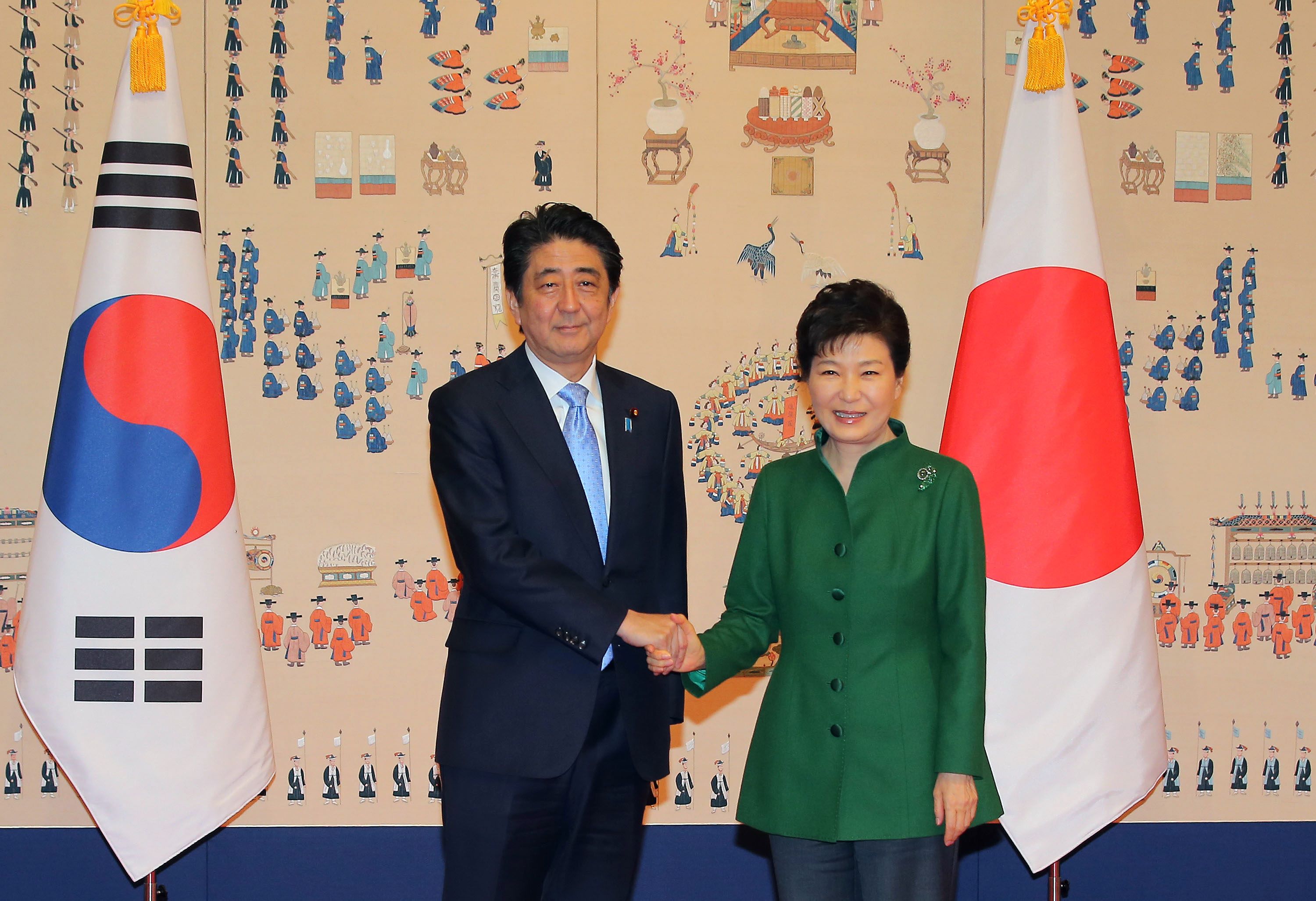 The December 28 agreement reached between the governments of Japan and South Korea on the issue of comfort women, sees the Japanese government willing to offer the victims a compensation of 1 billion yen in a fund stated to be set up to help restore their dignity and repair their psychological wounds. The intentions behind the sudden close of this historically contentious issue, as well as the implications such a deal has for the international politics of the Asia-Pacific region, however, have fallen under criticism by several parties, among them Taiwan and the People’s Republic of China.
The December 28 agreement reached between the governments of Japan and South Korea on the issue of comfort women, sees the Japanese government willing to offer the victims a compensation of 1 billion yen in a fund stated to be set up to help restore their dignity and repair their psychological wounds. The intentions behind the sudden close of this historically contentious issue, as well as the implications such a deal has for the international politics of the Asia-Pacific region, however, have fallen under criticism by several parties, among them Taiwan and the People’s Republic of China.
2016 Taiwan Elections in Public Dialogue on BBC Thai
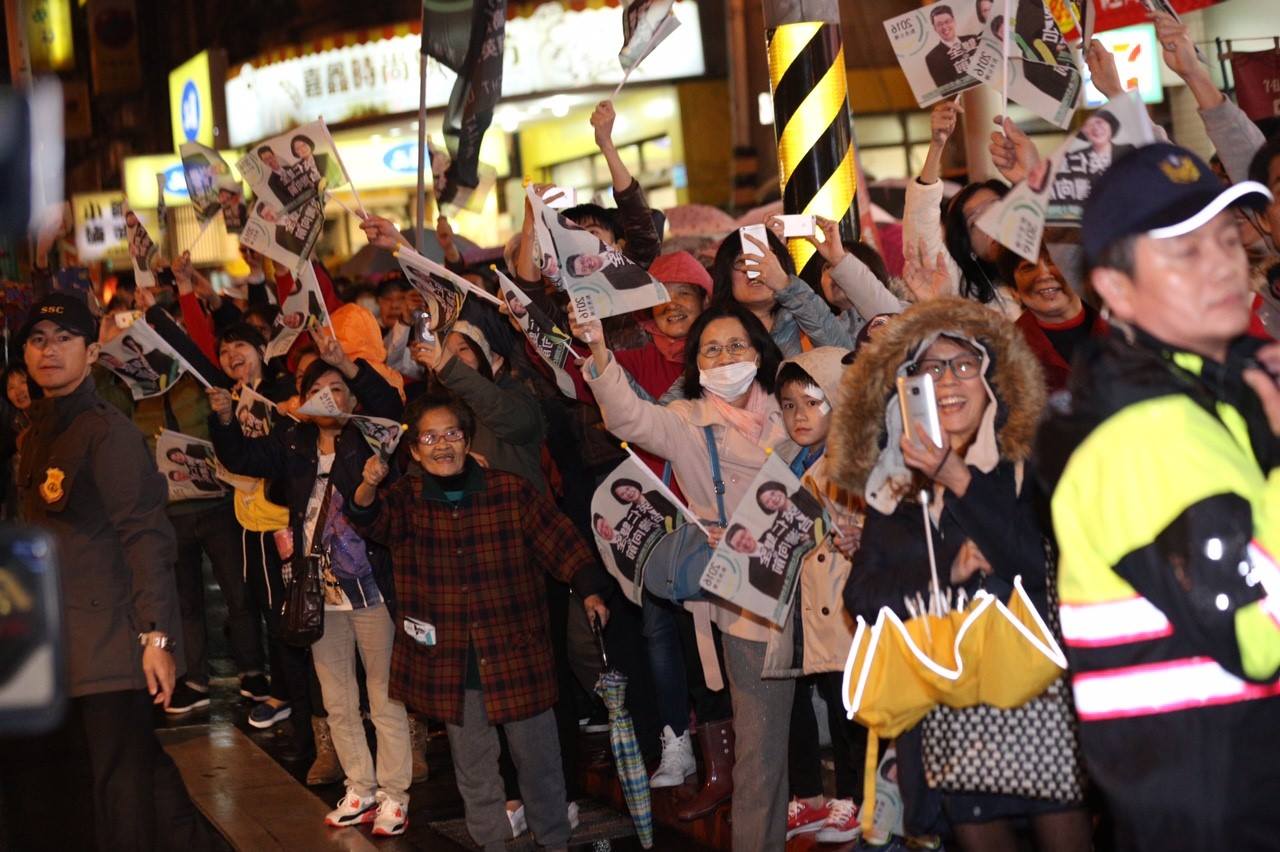 2016 elections in Taiwan drew attention in Thailand even from the first announcement. Interestingly, in Thai cyberspace, netizens converse about Taiwan politics in relation to the current Thai politics. The Facebook fanpage of BBC Thai, resuming service since the military coup in 2014, often serves a productive space for discussion. The page posted a number of threads following the unofficial Taiwanese presidential result which indicated that Tsai would be going to win. As expected, netizens posted comments which reflected not simply their attitude towards Taiwan, but towards Thailand as well.
2016 elections in Taiwan drew attention in Thailand even from the first announcement. Interestingly, in Thai cyberspace, netizens converse about Taiwan politics in relation to the current Thai politics. The Facebook fanpage of BBC Thai, resuming service since the military coup in 2014, often serves a productive space for discussion. The page posted a number of threads following the unofficial Taiwanese presidential result which indicated that Tsai would be going to win. As expected, netizens posted comments which reflected not simply their attitude towards Taiwan, but towards Thailand as well.
From the KMT’s ’1992 Consensus’ to the DPP’s ’Spirit of the 1992 Consensus’?
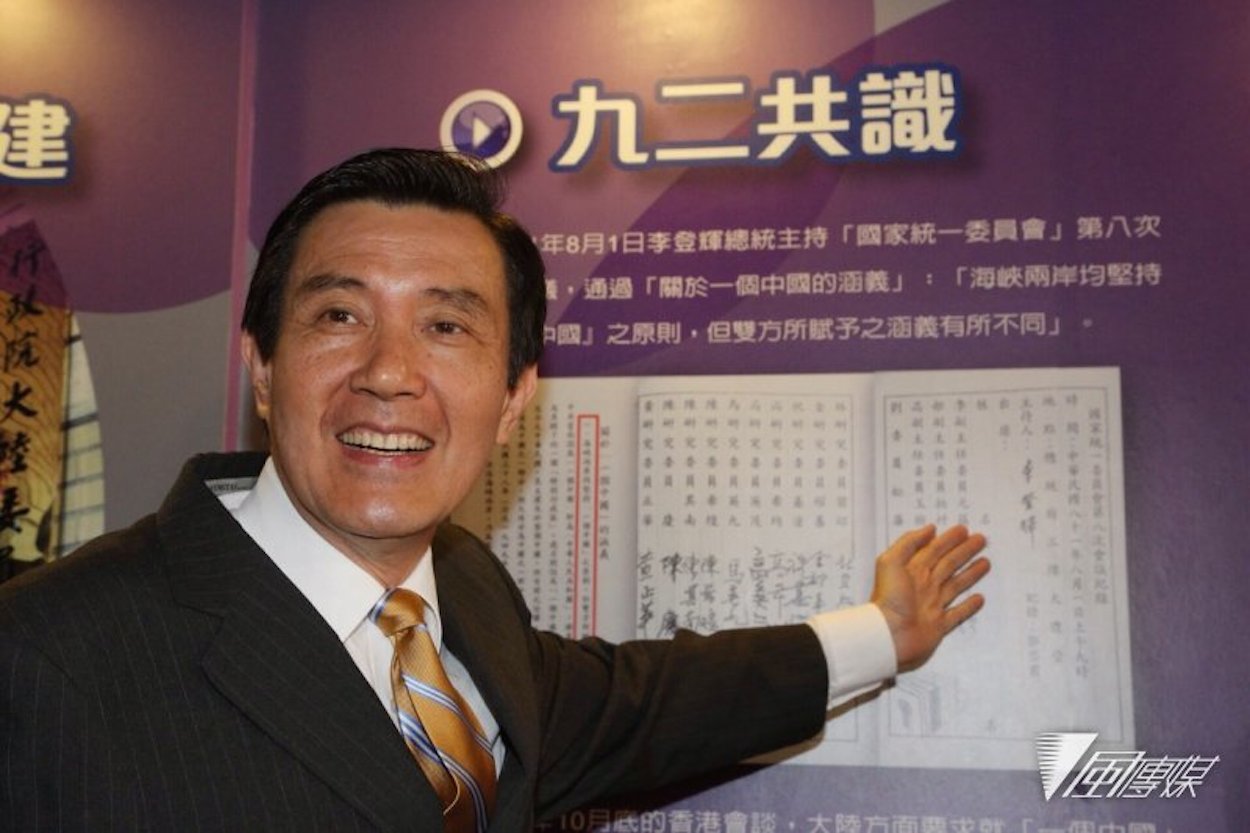 Recent comments by current DPP general-secretary Joseph Wu recently stirred waves. Wu stated the incoming DPP government under Tsai Ing-Wen will preserve the spirit of cooperation of the 1992 Consensus. What is surprising about Wu’s comments is that the DPP has in the past never acknowledged the existence of the 1992 Consensus.
Recent comments by current DPP general-secretary Joseph Wu recently stirred waves. Wu stated the incoming DPP government under Tsai Ing-Wen will preserve the spirit of cooperation of the 1992 Consensus. What is surprising about Wu’s comments is that the DPP has in the past never acknowledged the existence of the 1992 Consensus.
In Taiwan, Dreams Change
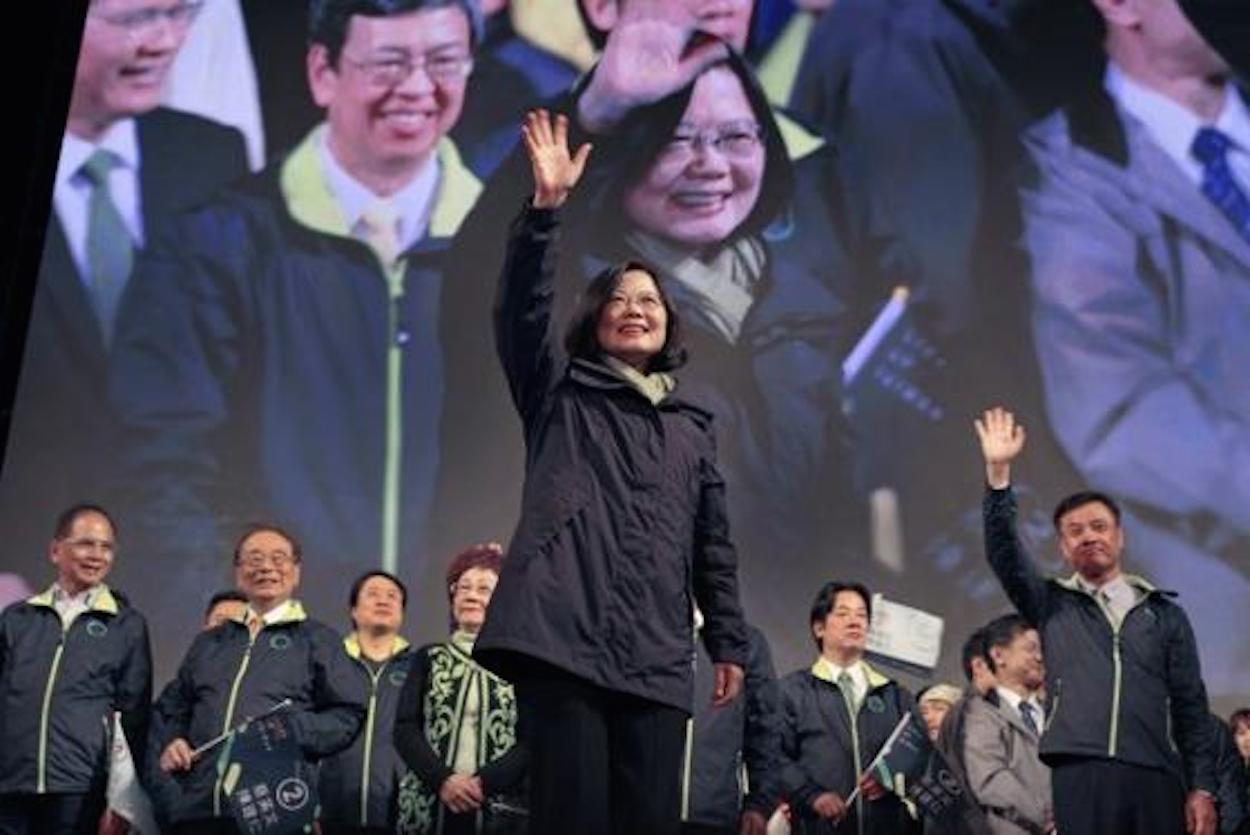 Last week’s monumental elections represent a major historical moment for Taiwan: the nation’s first female president, the first majority in parliament for the democratic opposition, and a broad outpouring of civic engagement that shows democracy is alive and well. The striking results have come about not only because of “regular” rumblings of economic discontent or the “traditional cleavages” of identity politics. More importantly, the narrative of Taiwanese society has changed, redrawing the bounds for what is possible, and revealing novel sources of inspiration.
Last week’s monumental elections represent a major historical moment for Taiwan: the nation’s first female president, the first majority in parliament for the democratic opposition, and a broad outpouring of civic engagement that shows democracy is alive and well. The striking results have come about not only because of “regular” rumblings of economic discontent or the “traditional cleavages” of identity politics. More importantly, the narrative of Taiwanese society has changed, redrawing the bounds for what is possible, and revealing novel sources of inspiration.
Mass Cyber-Trolling and Cross-Strait Relations
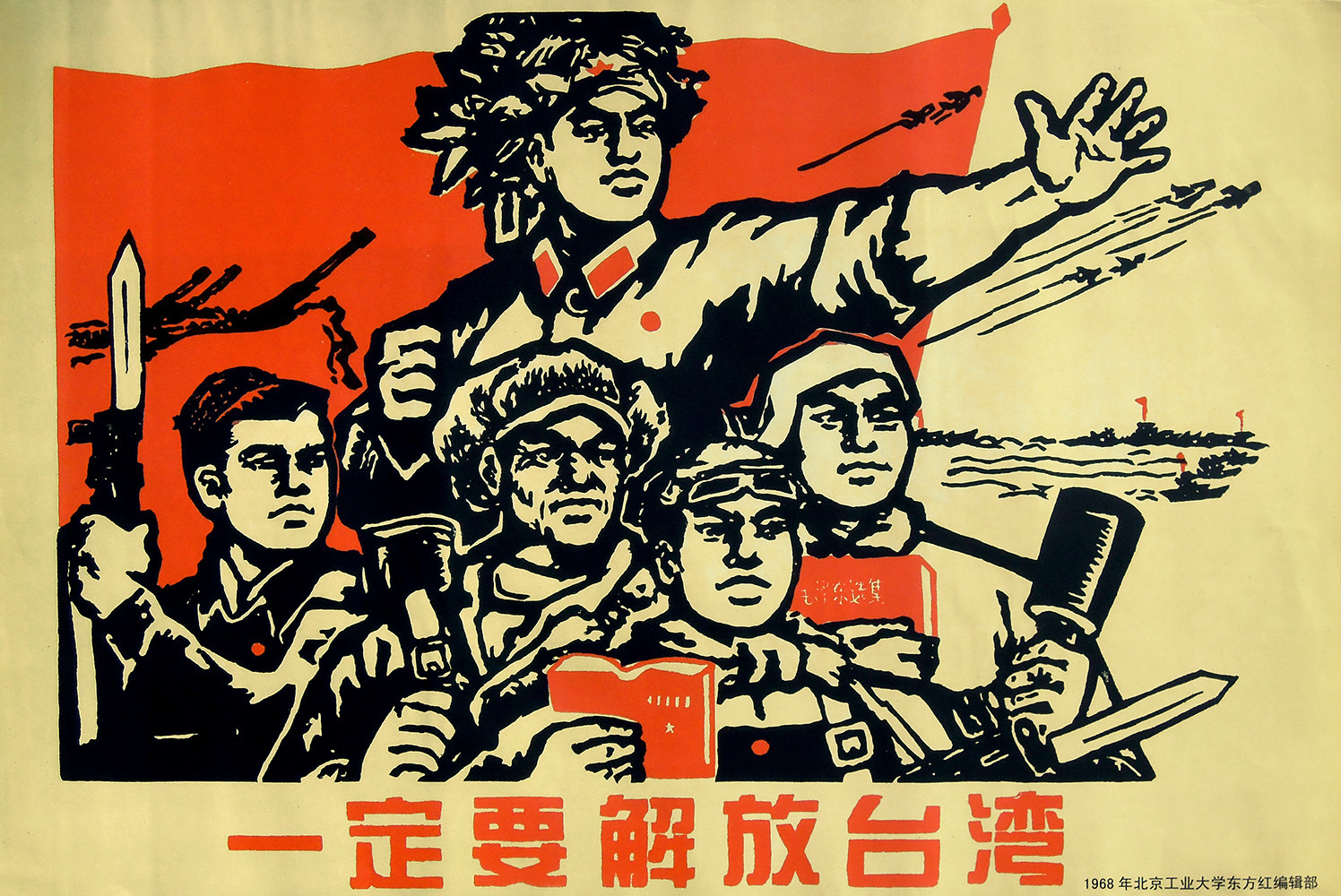 On January 20th, 7 PM, Taipei time, a massive wave of Facebook traffic sourced to China began to systematically “attack” any and all politicians, public figures, and media outlets that were identified as pro-Taiwanese independence. Instantly filling the comment section of these Facebook pages with pro-China patriotic sentiments, images, and arguments against all pro-independence comments, all of which procured “likes” in the thousands to allow them to be the “top” comments of the posts they attacked.
On January 20th, 7 PM, Taipei time, a massive wave of Facebook traffic sourced to China began to systematically “attack” any and all politicians, public figures, and media outlets that were identified as pro-Taiwanese independence. Instantly filling the comment section of these Facebook pages with pro-China patriotic sentiments, images, and arguments against all pro-independence comments, all of which procured “likes” in the thousands to allow them to be the “top” comments of the posts they attacked.
What To Do With The KMT’s Party Assets?
 What to do with the KMT’s party assets? This has been a question which has persisted from the first DPP administration under Chen Shui-Bian up until the present. And that no satisfactory method of resolving the question of what do about KMT party assets reflects that there is still no satisfactory answer of how to resolve questions of lingering authoritarianism by the KMT.
What to do with the KMT’s party assets? This has been a question which has persisted from the first DPP administration under Chen Shui-Bian up until the present. And that no satisfactory method of resolving the question of what do about KMT party assets reflects that there is still no satisfactory answer of how to resolve questions of lingering authoritarianism by the KMT.
The Chou Tzuyu Incident and Entertainment as a Site of Conflict About National Identity
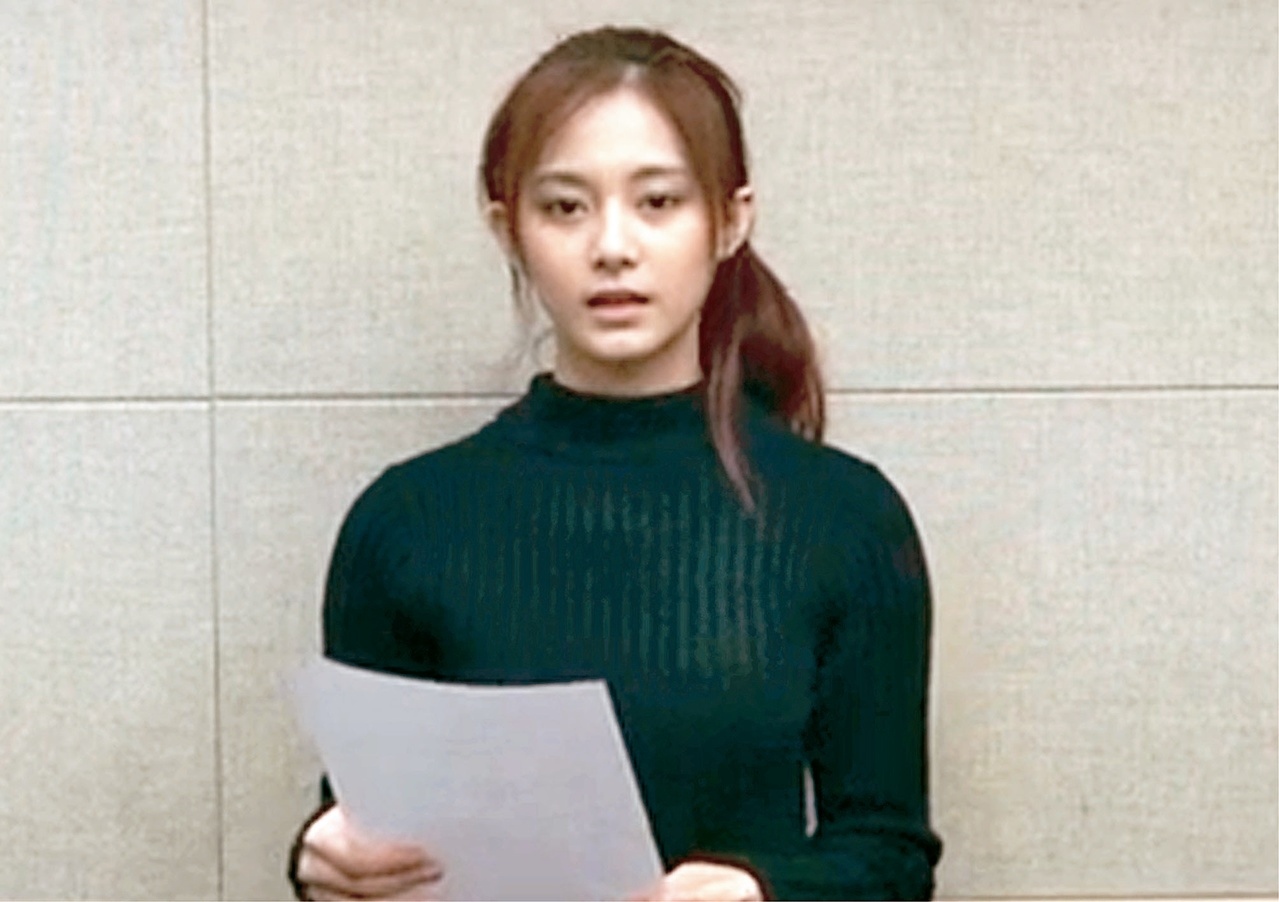 A video of 16-year-old Taiwanese K-pop performer Chou Tzuyu unexpectedly went viral in Taiwan the day before 2016 presidential elections. In the video, Chou apologized for a previous online video in which Chou held the flag of the Republic of China—the name by which Taiwan is internationally known. In the video, Chou apologized for her transgressions, stressed that she was Chinese as well as the unity of a singular China. The video was released on January 15th, the day before 2016 presidential elections in Taiwan on January 16th.
A video of 16-year-old Taiwanese K-pop performer Chou Tzuyu unexpectedly went viral in Taiwan the day before 2016 presidential elections. In the video, Chou apologized for a previous online video in which Chou held the flag of the Republic of China—the name by which Taiwan is internationally known. In the video, Chou apologized for her transgressions, stressed that she was Chinese as well as the unity of a singular China. The video was released on January 15th, the day before 2016 presidential elections in Taiwan on January 16th.
How Will the US and China React to a Tsai Presidency?
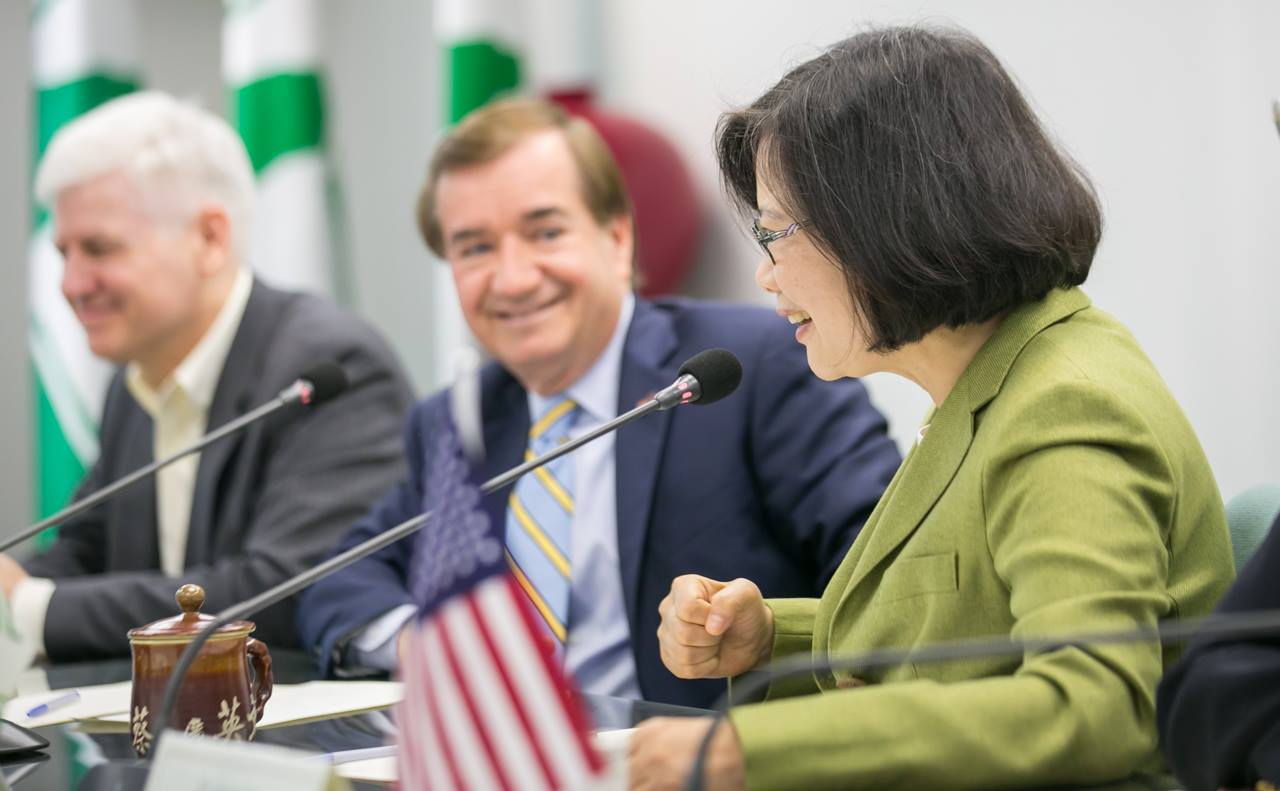 How are we to understand Chinese and American reactions to Tsai Ing-Wen’s election as president of Taiwan? Is it that America will perceive Tsai as a dangerous pro-independence ideologue? And despite its invectives against Tsai, does China really perceive Tsai as bent on Taiwanese independence?
How are we to understand Chinese and American reactions to Tsai Ing-Wen’s election as president of Taiwan? Is it that America will perceive Tsai as a dangerous pro-independence ideologue? And despite its invectives against Tsai, does China really perceive Tsai as bent on Taiwanese independence?
Tsai and the Sunflower Generation
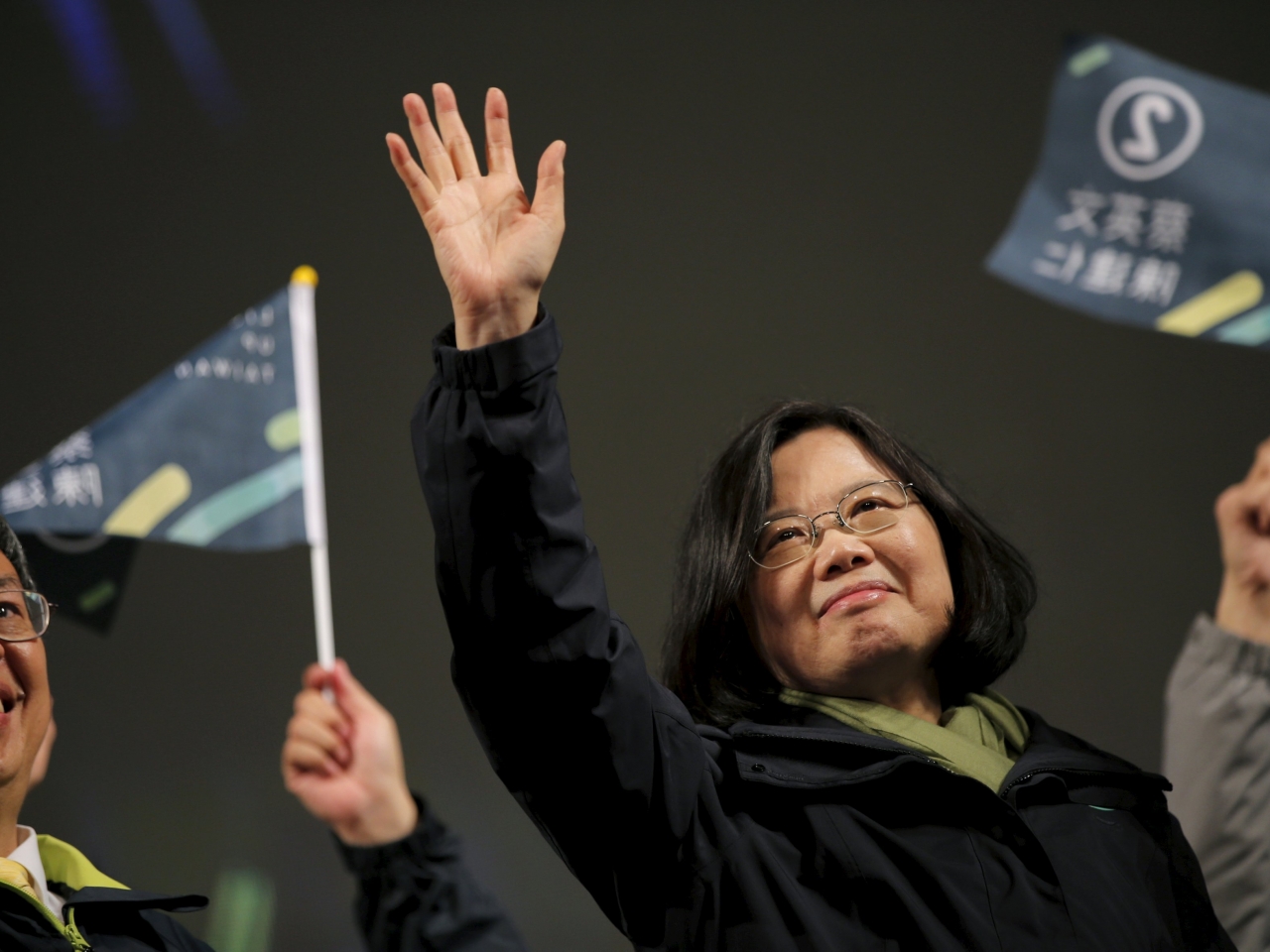 Can we trace the victory of Tsai Ing-Wen for president and the overwhelming victory of the DPP in legislature back to the Sunflower Movement? Both yes and no. Tsai invoked the abstract idealism of the Sunflower generation in her campaign quite often, but where the views of civil society can sometimes be inchoate or not totally thought out, this offered a convenient way of masking Tsai’s own lack of concrete policy. Yet if Tsai then turns her back on what youth activists of the Sunflower generation stand for, they would understandably feel betrayed.
Can we trace the victory of Tsai Ing-Wen for president and the overwhelming victory of the DPP in legislature back to the Sunflower Movement? Both yes and no. Tsai invoked the abstract idealism of the Sunflower generation in her campaign quite often, but where the views of civil society can sometimes be inchoate or not totally thought out, this offered a convenient way of masking Tsai’s own lack of concrete policy. Yet if Tsai then turns her back on what youth activists of the Sunflower generation stand for, they would understandably feel betrayed.
The Fall of the KMT?
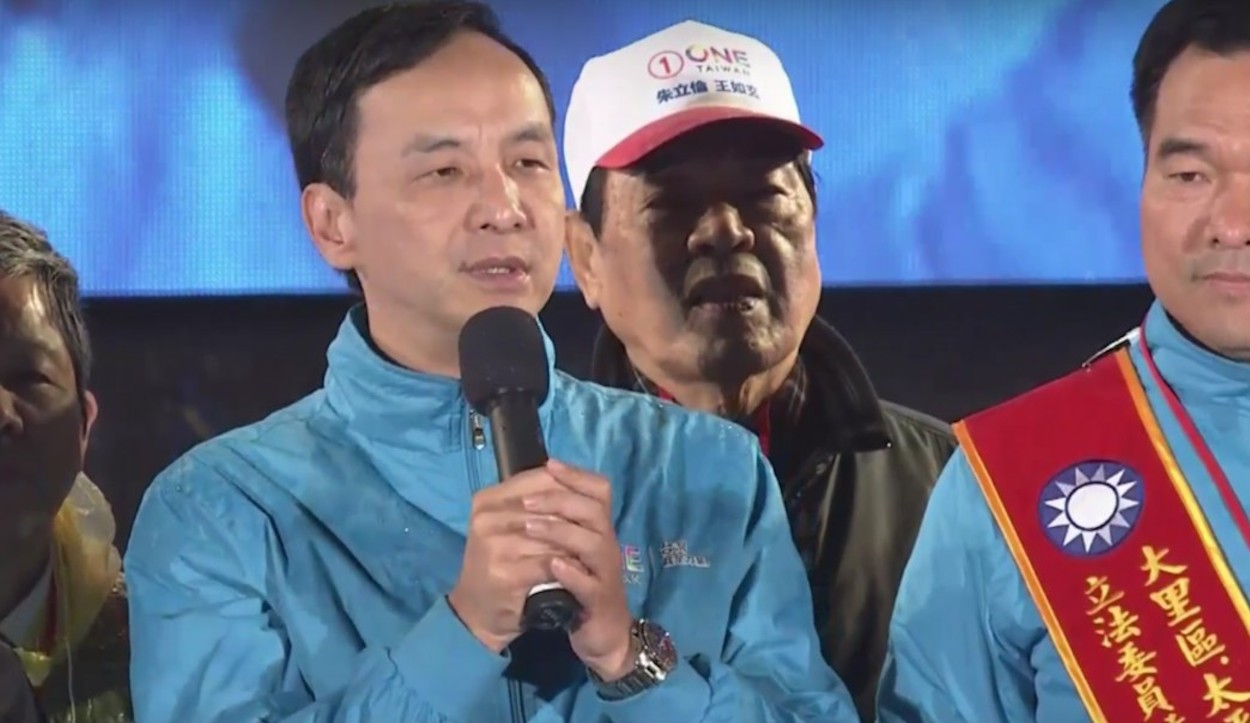 The recent defeat of the KMT was unprecedented, seeing as the KMT has never lost control of the legislature, if the KMT lost control of the presidency during the eight years of Chen Shui-Bian’s presidency. Now it has lost both the presidency and legislature. And the KMT remains only in control of 35 out 113 legislative seats and six out of twenty-two of Taiwan’s counties and cities. What will happen now with the KMT? Maybe, as Nietzsche said, when you see something about to fall, you should give it a push.
The recent defeat of the KMT was unprecedented, seeing as the KMT has never lost control of the legislature, if the KMT lost control of the presidency during the eight years of Chen Shui-Bian’s presidency. Now it has lost both the presidency and legislature. And the KMT remains only in control of 35 out 113 legislative seats and six out of twenty-two of Taiwan’s counties and cities. What will happen now with the KMT? Maybe, as Nietzsche said, when you see something about to fall, you should give it a push.
Is the Narrative About Taiwan Changing After Tsai Ing-Wen’s Presidential Victory?
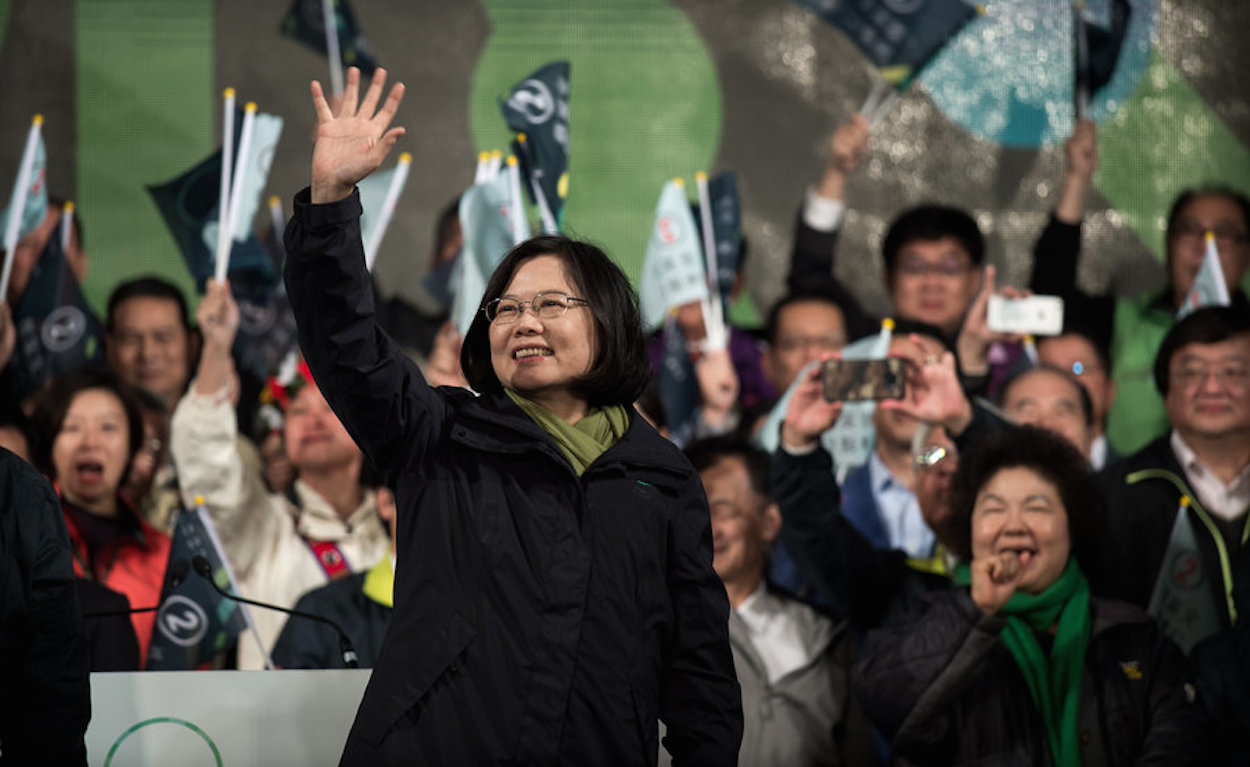 Is the narrative about Taiwan changing after Tsai Ing-Wen’s presidential victory? We might note that, to date, there have at least not been very many foreboding warnings about Tsai guiding Taiwan in the direction of Taiwanese-independence and possibly provoking cross-strait conflict. Rather, news coverage to date has focused largely on Tsai as the first female president of Taiwan, that Tsai pledges to maintain cross-straits stability and is an unorthodox politician, a “female academic who loves cats and supports gay rights” as the title of a recent article stated.
Is the narrative about Taiwan changing after Tsai Ing-Wen’s presidential victory? We might note that, to date, there have at least not been very many foreboding warnings about Tsai guiding Taiwan in the direction of Taiwanese-independence and possibly provoking cross-strait conflict. Rather, news coverage to date has focused largely on Tsai as the first female president of Taiwan, that Tsai pledges to maintain cross-straits stability and is an unorthodox politician, a “female academic who loves cats and supports gay rights” as the title of a recent article stated.
Seeds: Su Beng
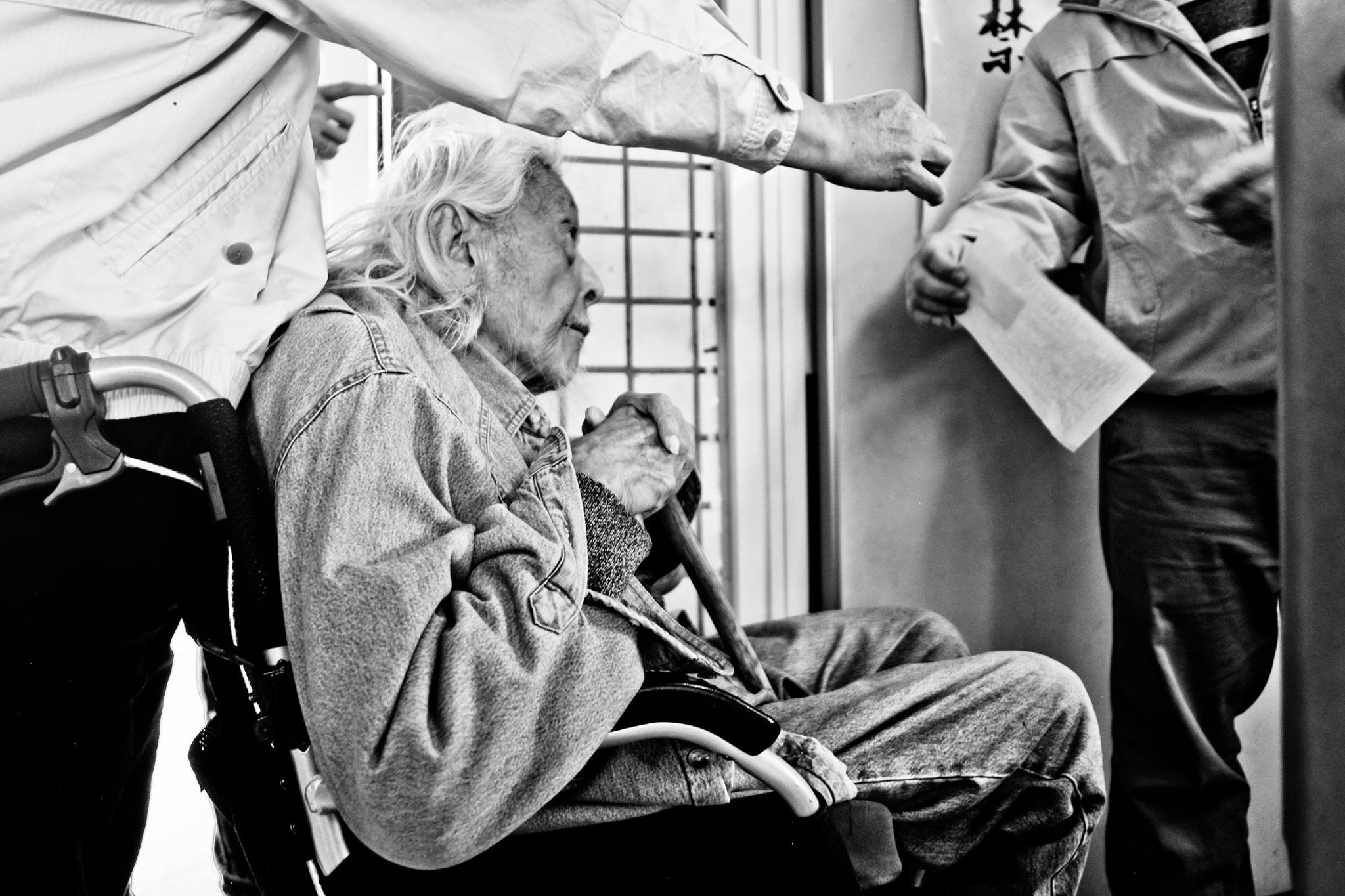 Su Beng. 97 years young. Full of life. Went to the polls today. I met him while he’s on his exercising bike, exercising. Knowing I went there to photograph him, greeted me with, xing kuo le, a Taiwanese expression for gratitude. He sat down and spoke with me. I was very happy to hear his knowledge. And wisdom. And his expertise in history. Generous with his time, he patiently explained what it means to be Taiwanese, how our history is different from that of China. A leftist revolutionary who also worked for the the Chinese Communists. Asked about them, he remarked that they’re authoritarians. People wanted freedom, and they killed them. Tens of millions. Dead. Threat from China coming from Su Beng, become real, as he personally witnessed the atrocities. Hence an ardent supporter of the DPP.
Su Beng. 97 years young. Full of life. Went to the polls today. I met him while he’s on his exercising bike, exercising. Knowing I went there to photograph him, greeted me with, xing kuo le, a Taiwanese expression for gratitude. He sat down and spoke with me. I was very happy to hear his knowledge. And wisdom. And his expertise in history. Generous with his time, he patiently explained what it means to be Taiwanese, how our history is different from that of China. A leftist revolutionary who also worked for the the Chinese Communists. Asked about them, he remarked that they’re authoritarians. People wanted freedom, and they killed them. Tens of millions. Dead. Threat from China coming from Su Beng, become real, as he personally witnessed the atrocities. Hence an ardent supporter of the DPP.
Hard Choices for Tsai on Foreign Affairs
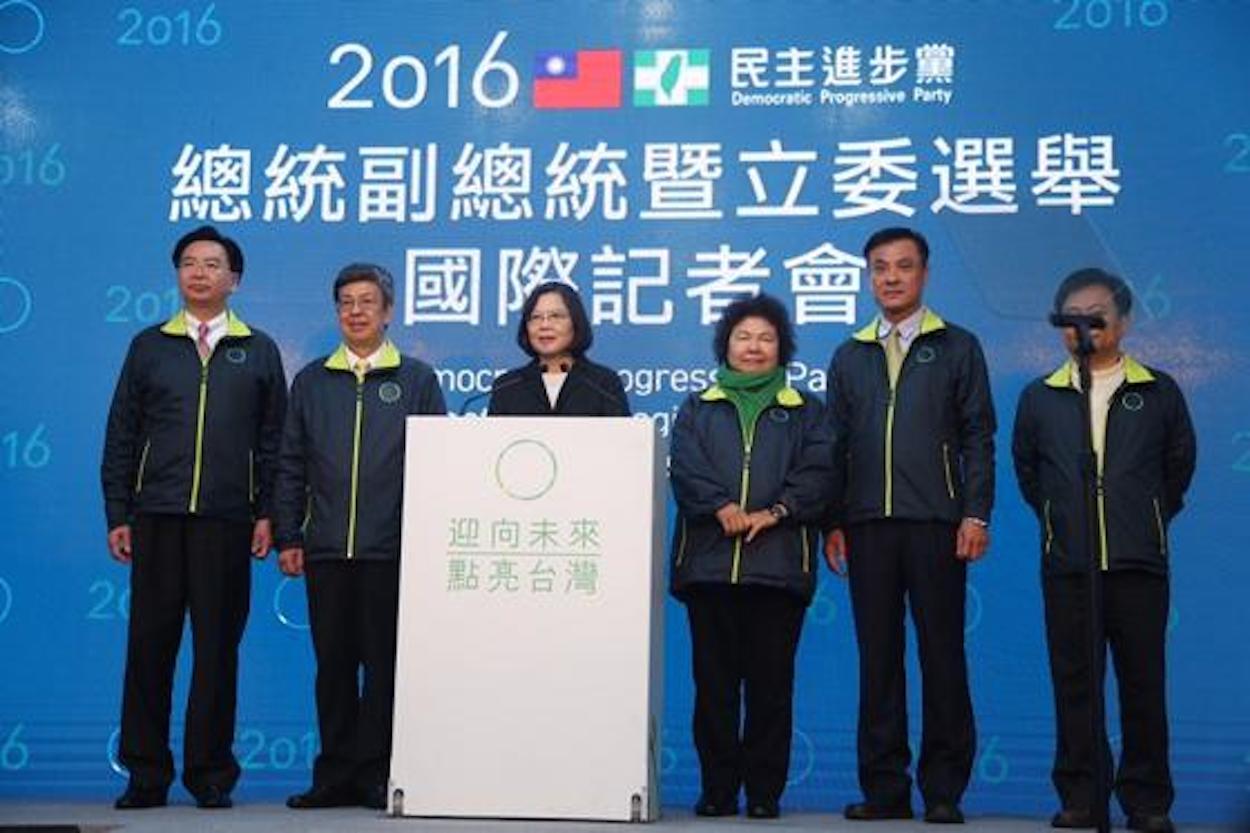 It is time to start looking ahead to the impact that the Tsai presidency will have upon Taiwan’s international relationships with nations in the Asia Pacific, as well as how her administration will figure into larger geopolitical trends.
It is time to start looking ahead to the impact that the Tsai presidency will have upon Taiwan’s international relationships with nations in the Asia Pacific, as well as how her administration will figure into larger geopolitical trends.
What Happens Now That Tsai Ing-Wen Is President?
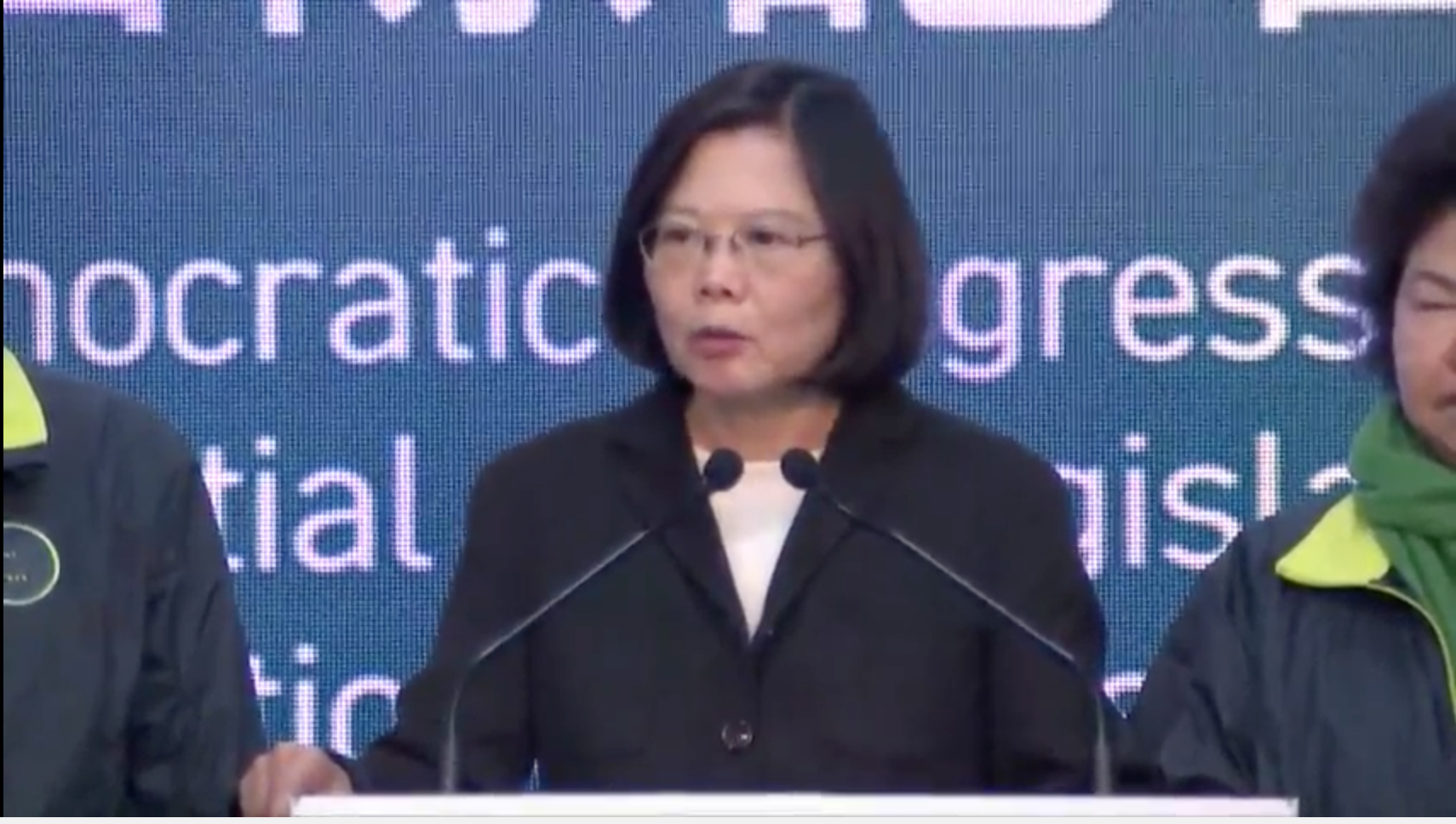 What should we we expect from a Tsai presidency, now that Tsai Ing-Wen is president of Taiwan? Now may be a time of celebration and rightly so, but perhaps we should not hope for too much?
What should we we expect from a Tsai presidency, now that Tsai Ing-Wen is president of Taiwan? Now may be a time of celebration and rightly so, but perhaps we should not hope for too much?
Last Words on 2016 Elections
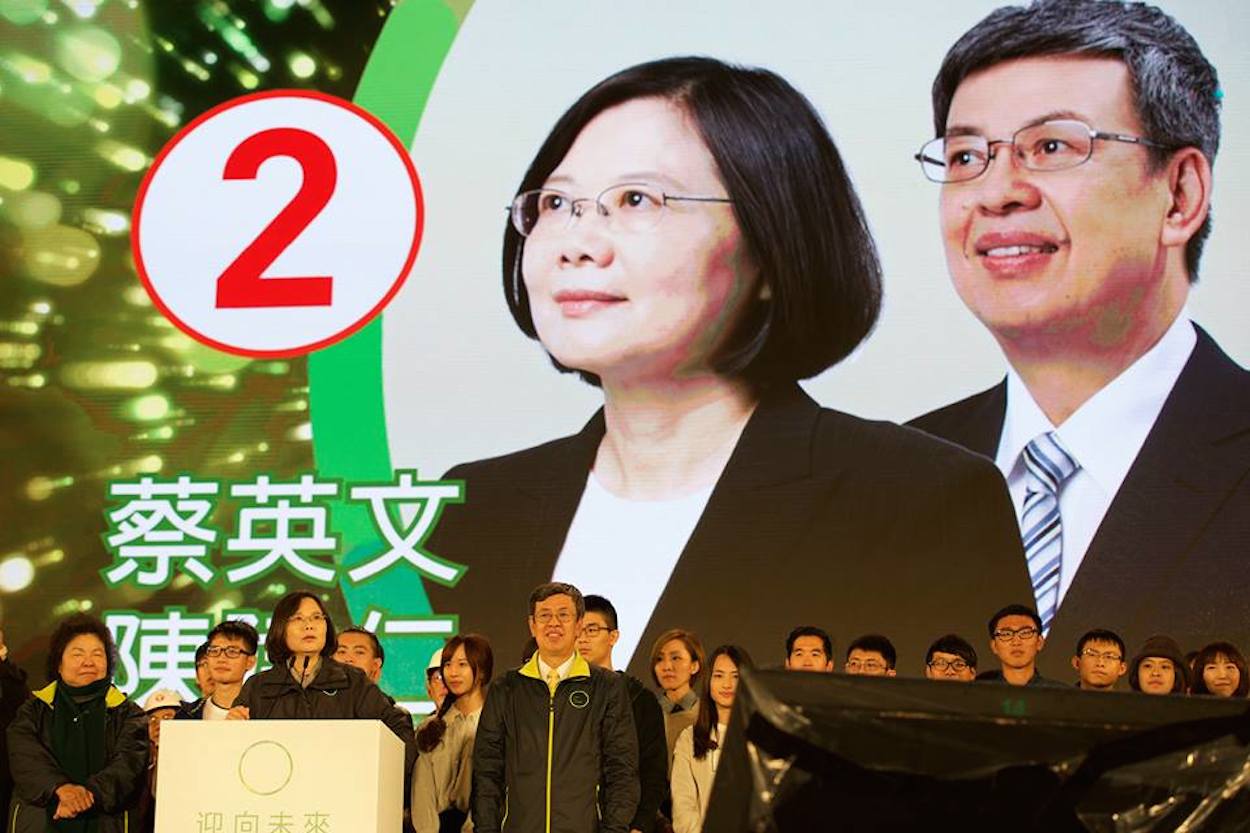 When we look back on 2016 elections, will we find that it in the end it was just a choice between Pepsi and Coca-Cola, between two brands, in choosing between the KMT and DPP? Today, on the day of elections, we might think deeply on this fact.
When we look back on 2016 elections, will we find that it in the end it was just a choice between Pepsi and Coca-Cola, between two brands, in choosing between the KMT and DPP? Today, on the day of elections, we might think deeply on this fact.
Policy Comparison Between Tsai Ing-Wen and Eric Chu
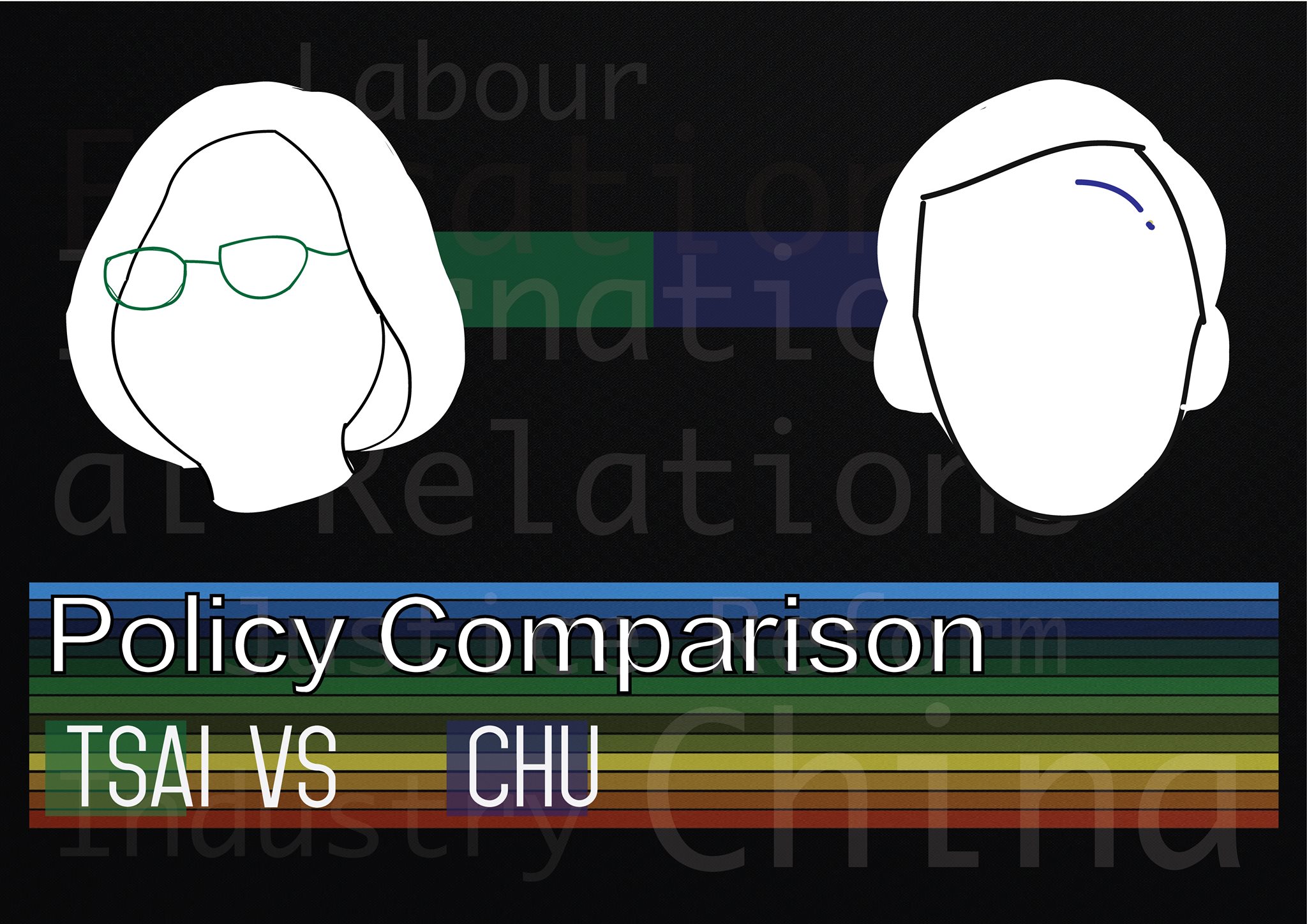 The day before elections, New Bloom presents a policy comparison of the policies between Tsai Ing-Wen and Eric Chu. Check it out!
The day before elections, New Bloom presents a policy comparison of the policies between Tsai Ing-Wen and Eric Chu. Check it out!
SDP’s Chen Shang-chih Election Ads Go Viral
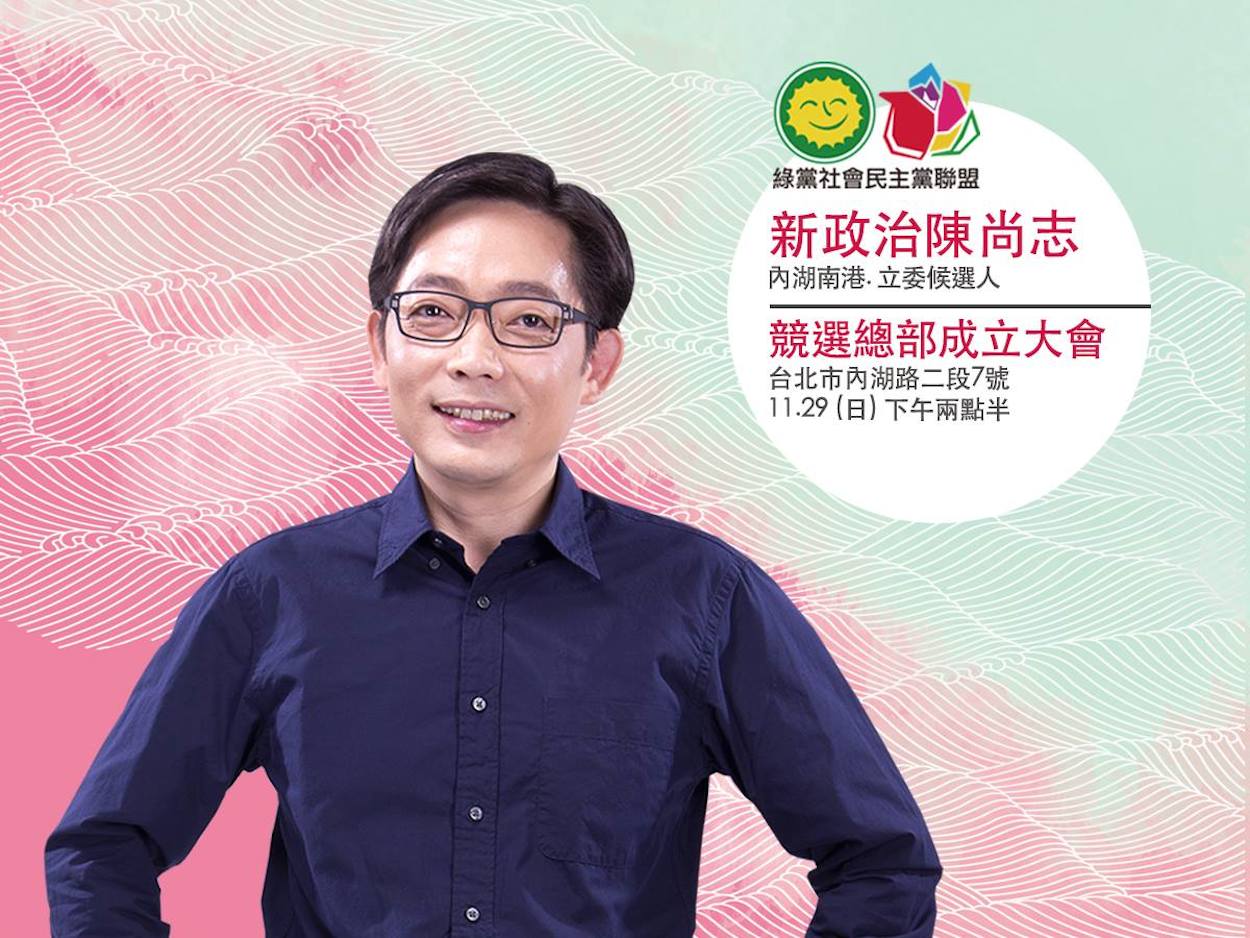 By all appearances, Taipei Legislative candidate Chen Shang-chih is a mild-mannered, bookish professor. He has a deliberative speaking style that seems more suited to a life of academia, than for a candidate running for a seat in Taiwan’s Legislative Yuan formerly owned by notorious rumour-mongering KMT legislator Alex Tsai. But a series of new Facebook campaign videos has put Chen in the media spotlight by cutting through his seemingly shy demeanour to reveal a gift for deadpan comic delivery that is unique for a legislative candidate.
By all appearances, Taipei Legislative candidate Chen Shang-chih is a mild-mannered, bookish professor. He has a deliberative speaking style that seems more suited to a life of academia, than for a candidate running for a seat in Taiwan’s Legislative Yuan formerly owned by notorious rumour-mongering KMT legislator Alex Tsai. But a series of new Facebook campaign videos has put Chen in the media spotlight by cutting through his seemingly shy demeanour to reveal a gift for deadpan comic delivery that is unique for a legislative candidate.
The Time is Now
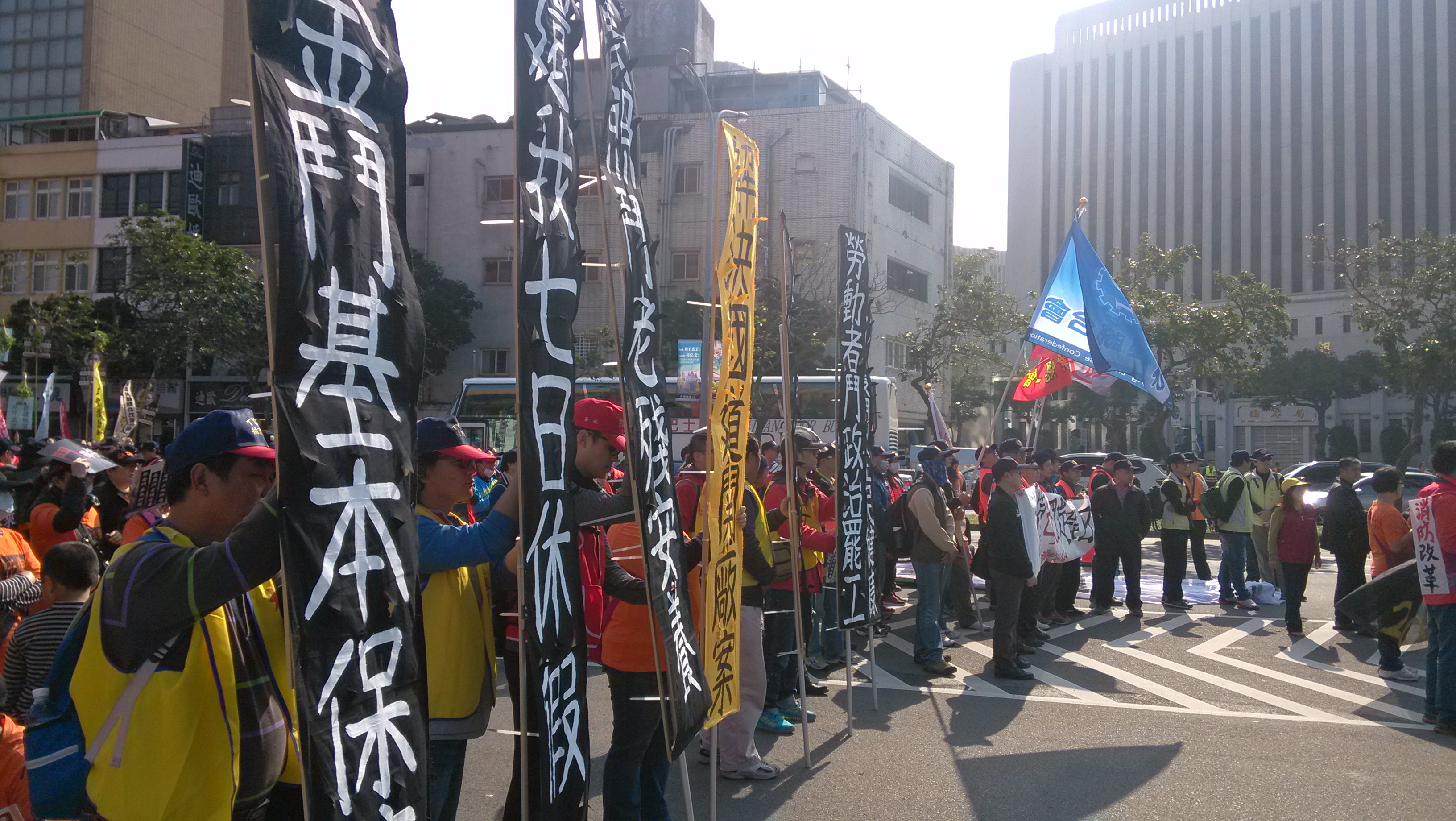 This weekend, the Taiwanese working class will once again find itself in the midst of a tremendous change without playing any role in it. The presidential election of 2016 will mark another pivotal point in Taiwanese history, not as a victory of the working class, but as a turn in the bourgeois politics of Taiwan. While the defeat of the KMT in both the presidential in the parliamentary election is exciting to imagine, a DPP victory would make very little difference to the working people of Taiwan.
This weekend, the Taiwanese working class will once again find itself in the midst of a tremendous change without playing any role in it. The presidential election of 2016 will mark another pivotal point in Taiwanese history, not as a victory of the working class, but as a turn in the bourgeois politics of Taiwan. While the defeat of the KMT in both the presidential in the parliamentary election is exciting to imagine, a DPP victory would make very little difference to the working people of Taiwan.
Leftism First or Independence First in 2016 Elections?
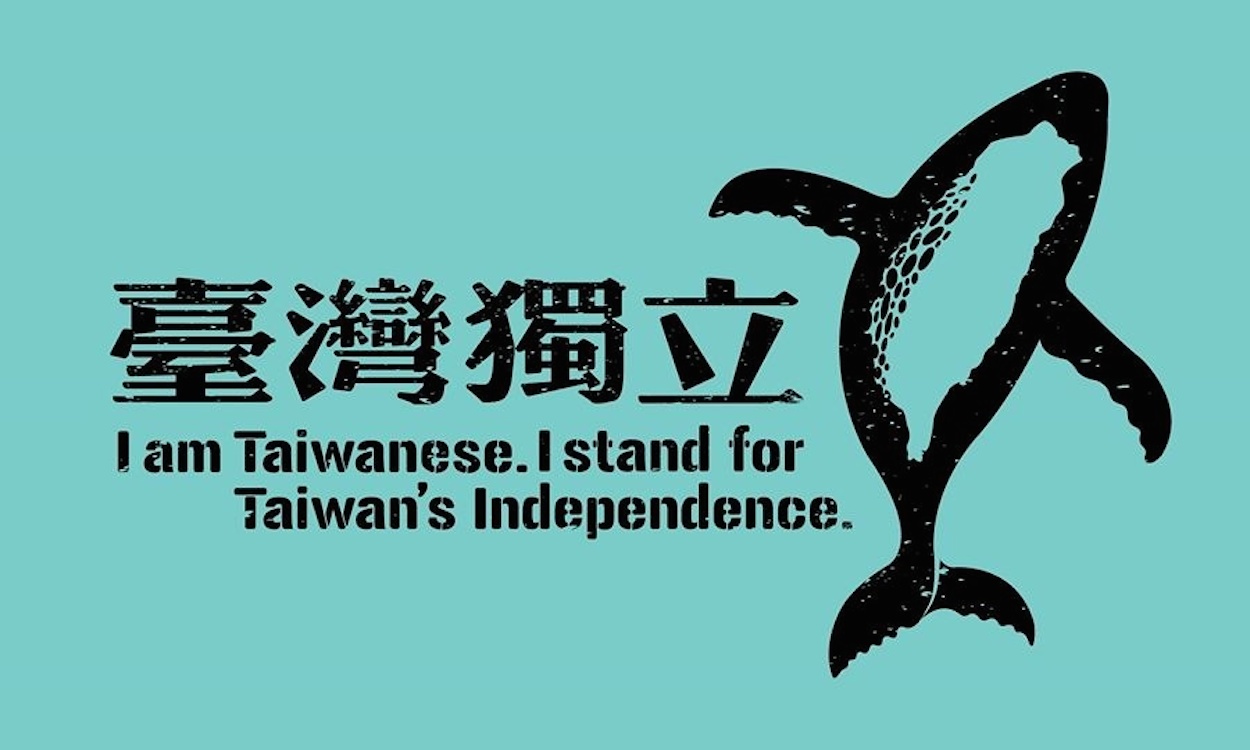 As we approach elections, currently a debate is raging among Taiwanese activists. What is at stake is the question of whether Taiwan should first aim at “Independence” then leftist aspirations or first aim to be “Left” before aspiring towards independence. In part, this debate reflects that present elections are different from past elections, with the rise of numerous “Third Force” parties that originate in civil society and provide a variety of political choices for activists. This would certainly differ from past elections in which there would seem to be few choices besides KMT and DPP and smaller parties offering different shades of pan-Green and pan-Blue.
As we approach elections, currently a debate is raging among Taiwanese activists. What is at stake is the question of whether Taiwan should first aim at “Independence” then leftist aspirations or first aim to be “Left” before aspiring towards independence. In part, this debate reflects that present elections are different from past elections, with the rise of numerous “Third Force” parties that originate in civil society and provide a variety of political choices for activists. This would certainly differ from past elections in which there would seem to be few choices besides KMT and DPP and smaller parties offering different shades of pan-Green and pan-Blue.
Where Did Identity Politics Go in the 2016 Presidential Elections?
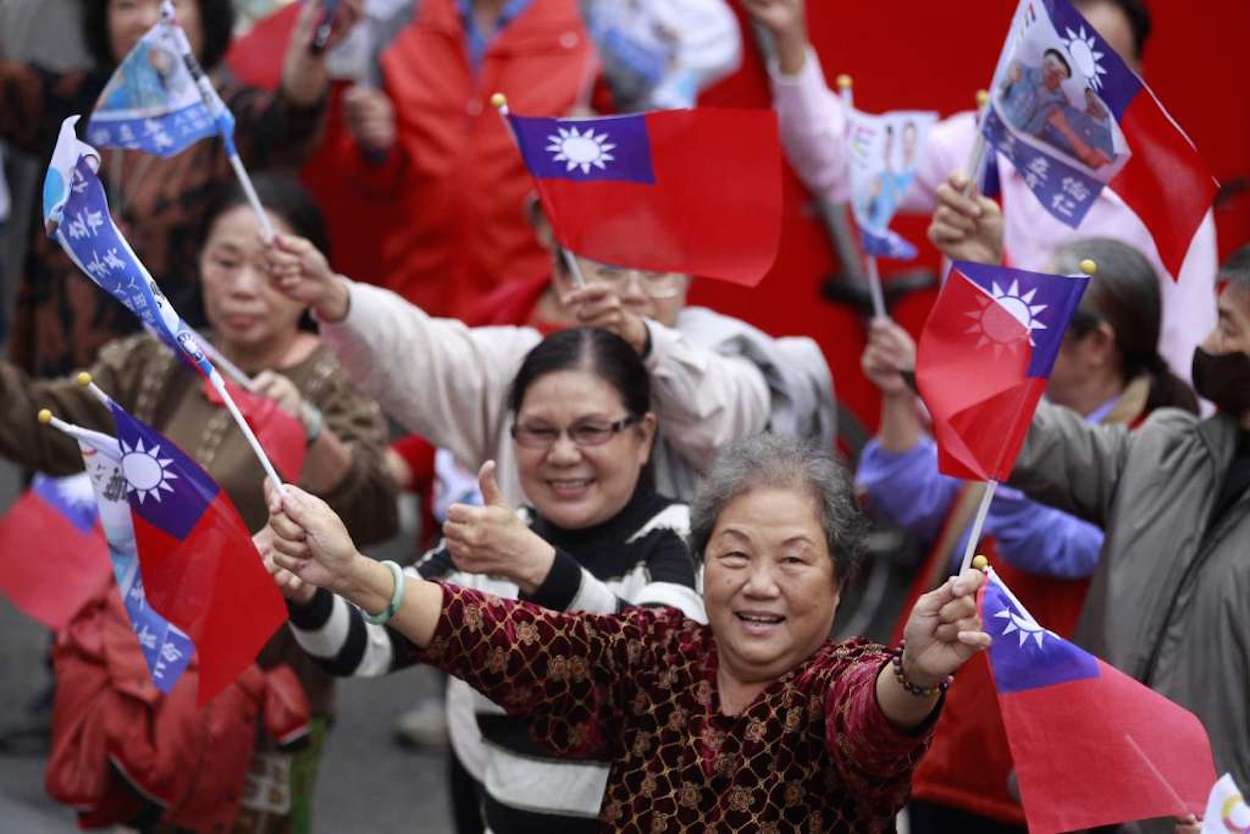 Did identity politics simply disappear in 2016 elections? Not so. But we do see a change in Taiwan’s political landscape as reflected in the lack of overt forms of identity politics in elections. But, interestingly, it is the KMT now which attempts to raise older identity politics in order to disguise its class interest.
Did identity politics simply disappear in 2016 elections? Not so. But we do see a change in Taiwan’s political landscape as reflected in the lack of overt forms of identity politics in elections. But, interestingly, it is the KMT now which attempts to raise older identity politics in order to disguise its class interest.
Aesthetic and Political Experimentalism in 2016 Election Campaigning by the DPP and Third Force Parties
 It may be interesting to note the biggest winners of 2016 elections will probably be those political parties who were most aesthetically effective, as well as inventive, in their approaches to political campaigning. As should obvious at this point, it will be the DPP that takes the presidency under Tsai Ing-Wen. Moreover, of the Third Force parties, it will likely be the New Power Party which wins the most.
It may be interesting to note the biggest winners of 2016 elections will probably be those political parties who were most aesthetically effective, as well as inventive, in their approaches to political campaigning. As should obvious at this point, it will be the DPP that takes the presidency under Tsai Ing-Wen. Moreover, of the Third Force parties, it will likely be the New Power Party which wins the most.
The Race for Party Votes
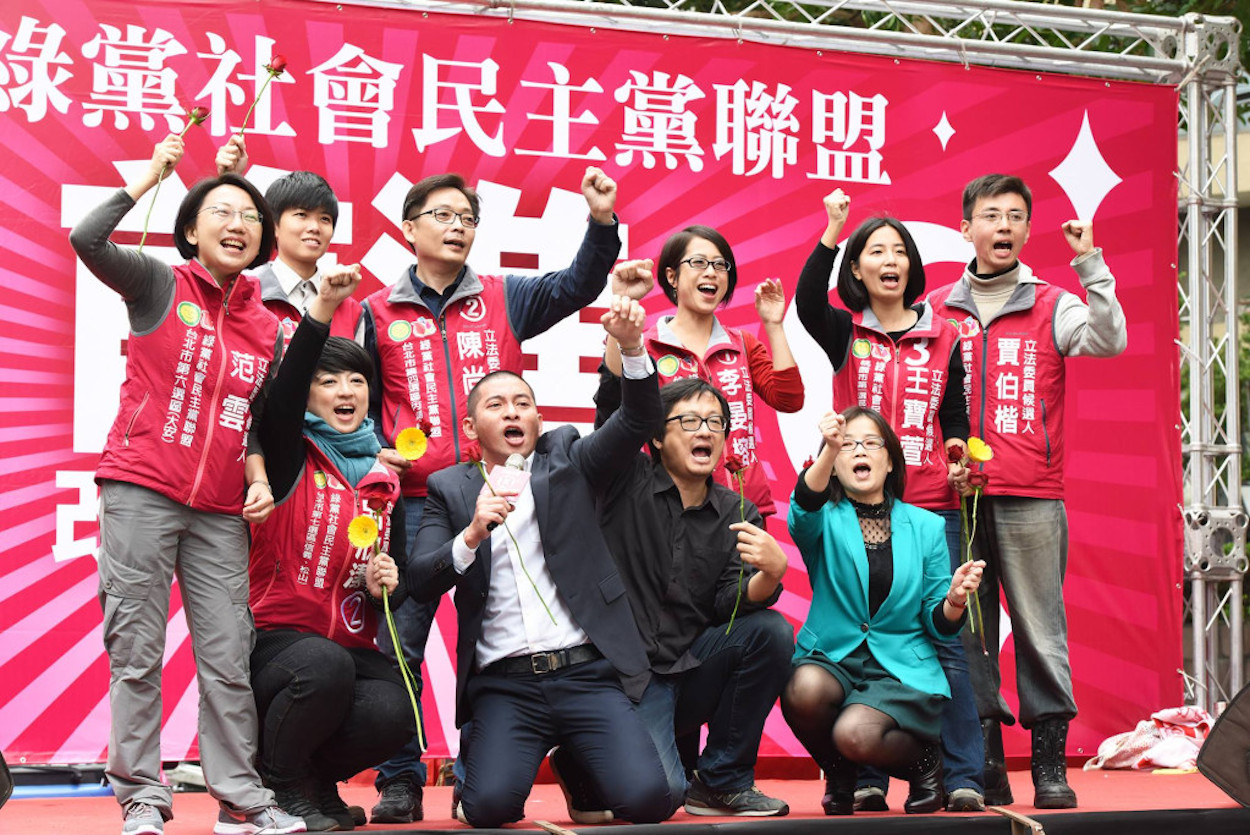 In this upcoming election, voters will be entitled three votes, namely the presidential, district, and the party vote. The presidential vote and district vote usually took precedence in past elections, but in this upcoming election, party votes seem to have taken the spotlight. What exactly then is the party vote? The party vote largely decides the total number of seats each political party gets in the legislative.
In this upcoming election, voters will be entitled three votes, namely the presidential, district, and the party vote. The presidential vote and district vote usually took precedence in past elections, but in this upcoming election, party votes seem to have taken the spotlight. What exactly then is the party vote? The party vote largely decides the total number of seats each political party gets in the legislative.
Which Way Forward for the Third Force?
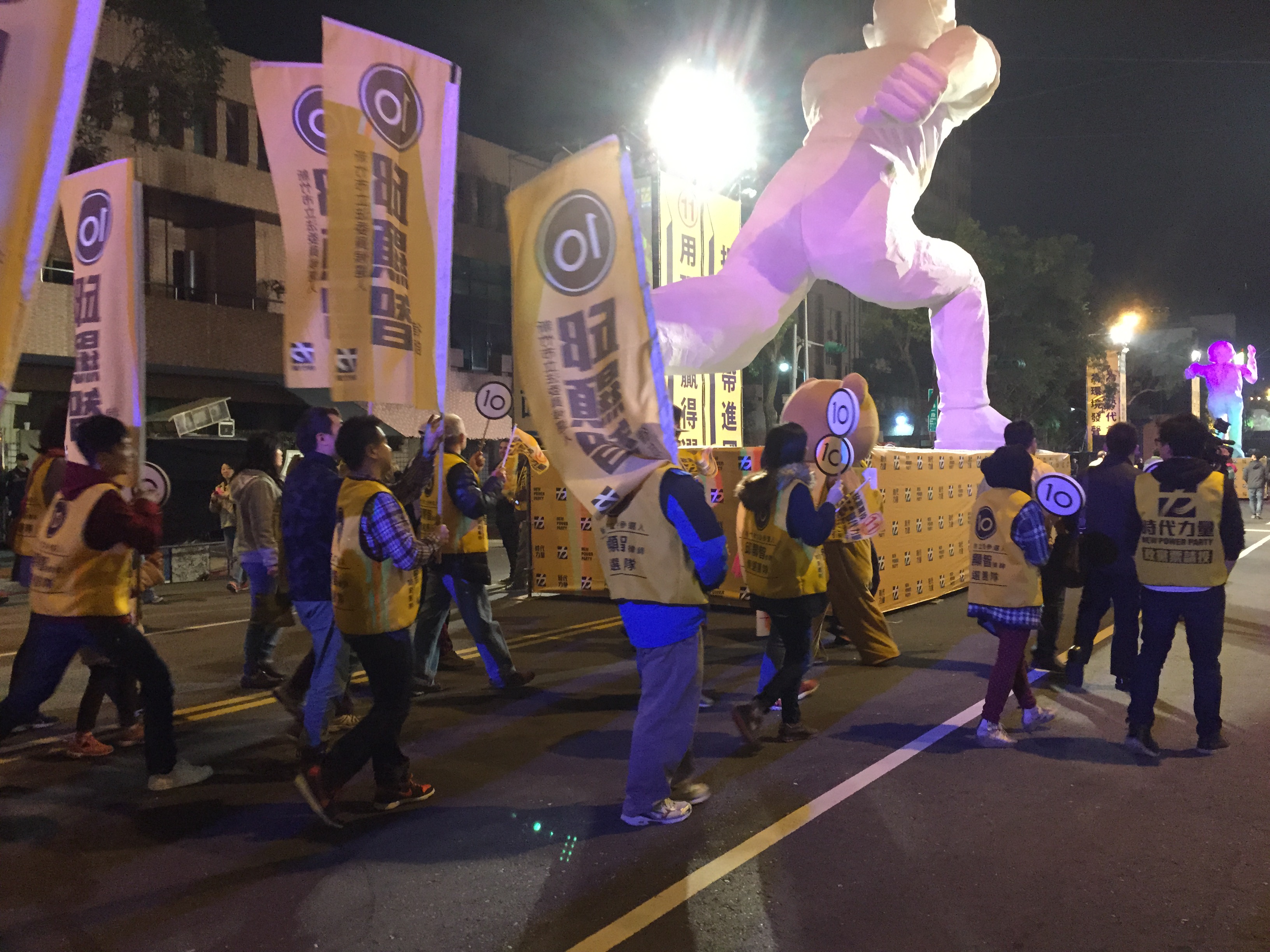 The Third Force adopted an electoral strategy which did not seek to directly challenge the DPP. But despite some parties vowing to avoid cooperation with the DPP, in the end this happened. What does this mean for the Third Force? Is there the possibility that the Third Force might turn on the DPP in the future?
The Third Force adopted an electoral strategy which did not seek to directly challenge the DPP. But despite some parties vowing to avoid cooperation with the DPP, in the end this happened. What does this mean for the Third Force? Is there the possibility that the Third Force might turn on the DPP in the future?
Why Is the Voting Age in Taiwan So High?
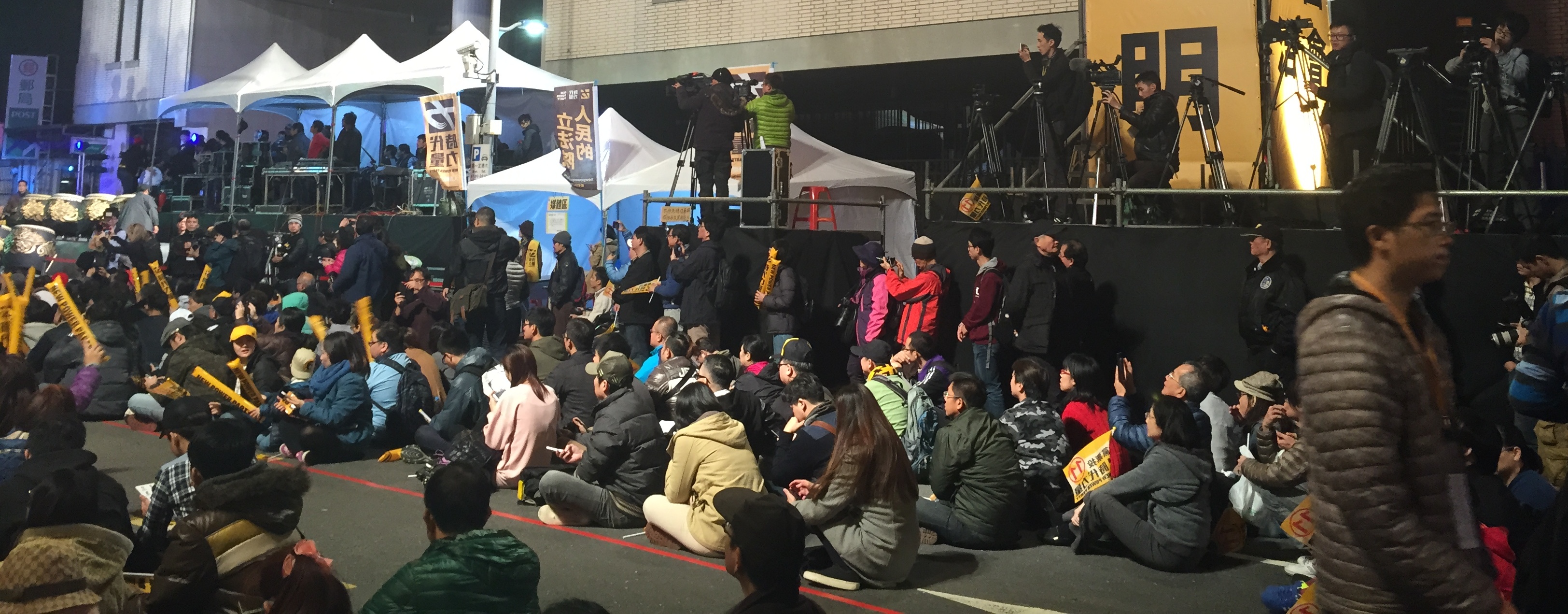 After reform measures passed in Japan this summer to lower the voting age to eighteen, among Asia-Pacific countries, Taiwan will remain as having a relatively high voting age. Like Japan’s voting age before recent reform measures, Taiwan’s voting age is twenty. Taiwan’s voting age of twenty compares to a voting age of eighteen in 90% of 190 countries. Why is voting age so high in Taiwan and why have efforts at reform been stymied?
After reform measures passed in Japan this summer to lower the voting age to eighteen, among Asia-Pacific countries, Taiwan will remain as having a relatively high voting age. Like Japan’s voting age before recent reform measures, Taiwan’s voting age is twenty. Taiwan’s voting age of twenty compares to a voting age of eighteen in 90% of 190 countries. Why is voting age so high in Taiwan and why have efforts at reform been stymied?
The Last Presidential Debate
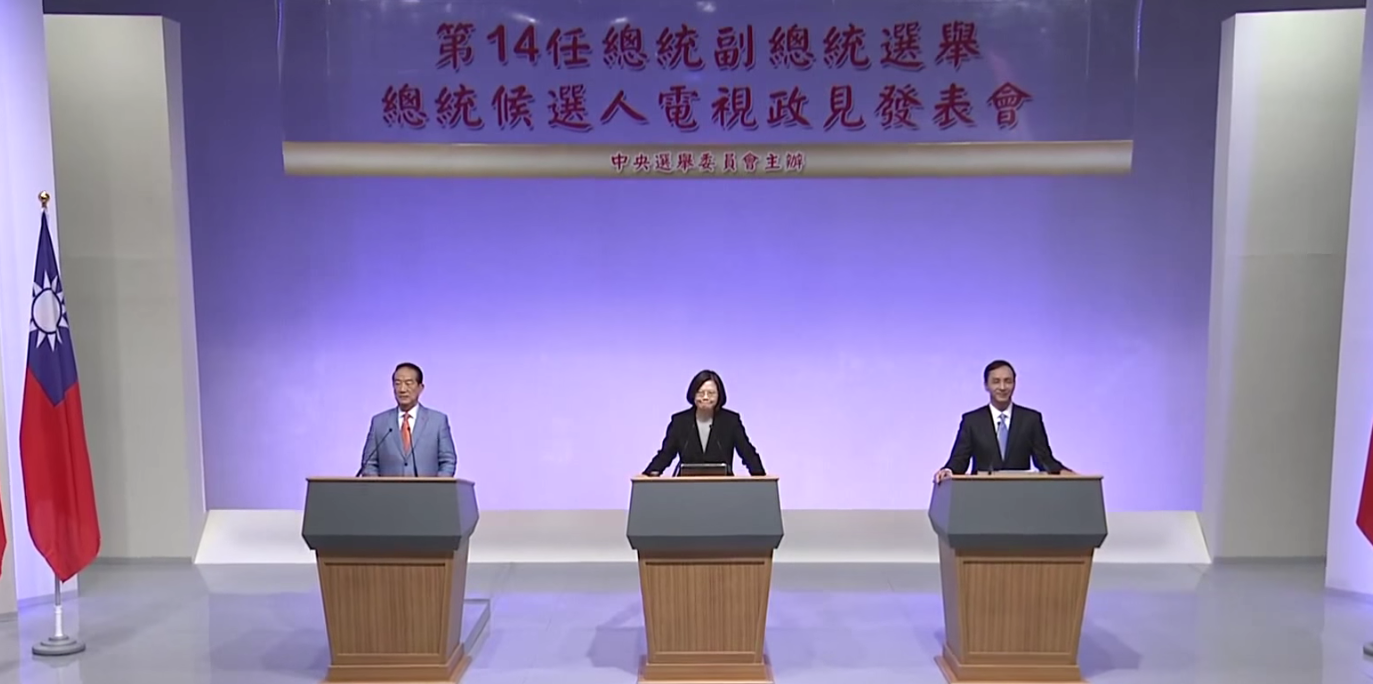 The third and final presidential debate, like the first two, was largely a non-event. The debate serves as the last parting shot between the three presidential candidates before election day itself, but the race is not a close enough one that the debate has any way of changing the outcome of the election. Although a Tsai presidency seems all but certain, what Chu and Soong are capable of doing at this point is eroding away Tsai Ing-Wen’s support base. Thus, it may be logical to focus primarily on Tsai’s comments during the debate.
The third and final presidential debate, like the first two, was largely a non-event. The debate serves as the last parting shot between the three presidential candidates before election day itself, but the race is not a close enough one that the debate has any way of changing the outcome of the election. Although a Tsai presidency seems all but certain, what Chu and Soong are capable of doing at this point is eroding away Tsai Ing-Wen’s support base. Thus, it may be logical to focus primarily on Tsai’s comments during the debate.
Ma Ying-jeou Stickers are Ruining the KMT’s 2016 Election Campaign
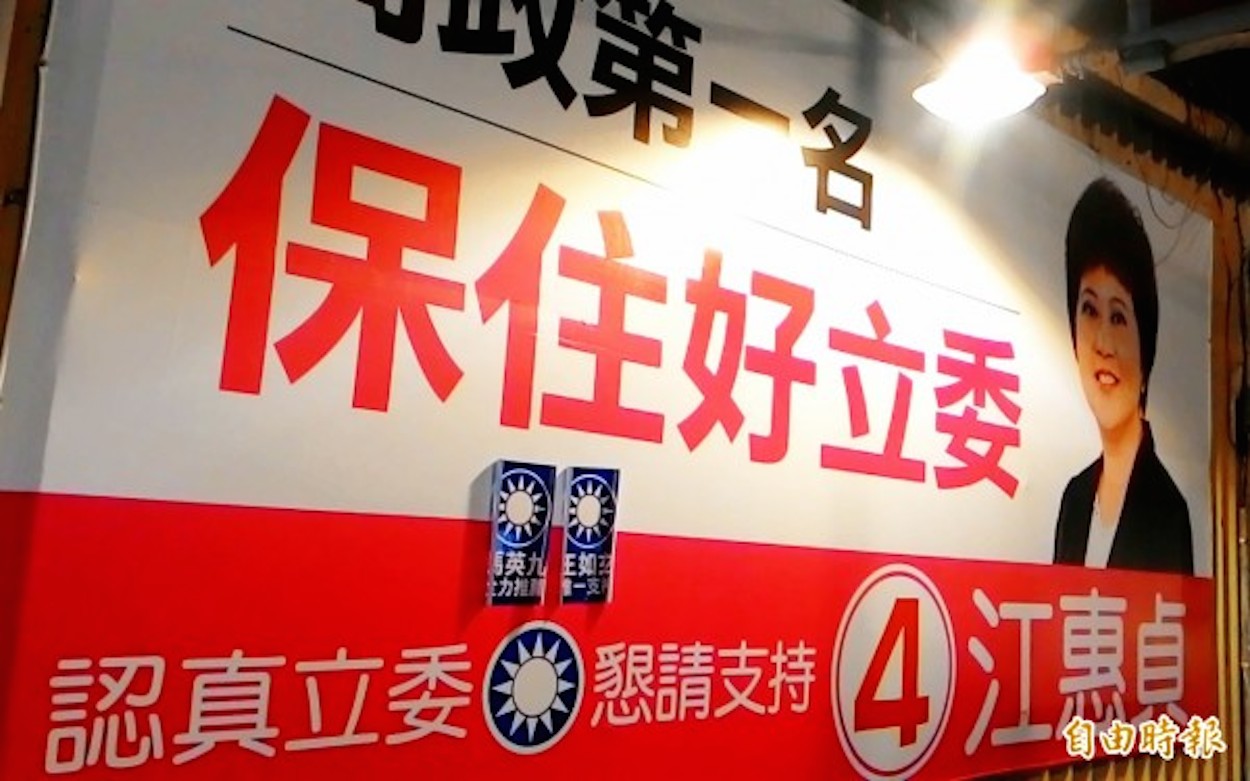 A sticker campaign has become the scourge of the KMT, with KMT legislative candidates having already reported dozens of citizens to the police for “defacing” their campaign material with the new stickers. The sticker consists merely of an endorsement from current President Ma Ying-jeou, and from Jennifer Wang, the KMT Vice-presidential candidate. As KMT legislators are facing their toughest re-election battles in Taiwan’s democratic history, KMT legislative candidates are doing everything they can to ensure their victory, including disassociating themselves from Taiwan’s lame-duck president, Ma Ying-jeou, and Eric Chu’s VP choice, Jennifer Wang, who has been embroiled in a housing speculation scandal for over a month.
A sticker campaign has become the scourge of the KMT, with KMT legislative candidates having already reported dozens of citizens to the police for “defacing” their campaign material with the new stickers. The sticker consists merely of an endorsement from current President Ma Ying-jeou, and from Jennifer Wang, the KMT Vice-presidential candidate. As KMT legislators are facing their toughest re-election battles in Taiwan’s democratic history, KMT legislative candidates are doing everything they can to ensure their victory, including disassociating themselves from Taiwan’s lame-duck president, Ma Ying-jeou, and Eric Chu’s VP choice, Jennifer Wang, who has been embroiled in a housing speculation scandal for over a month.
Lessons for Taiwan 2016 from Hong Kong’s “Umbrella Soldiers”?
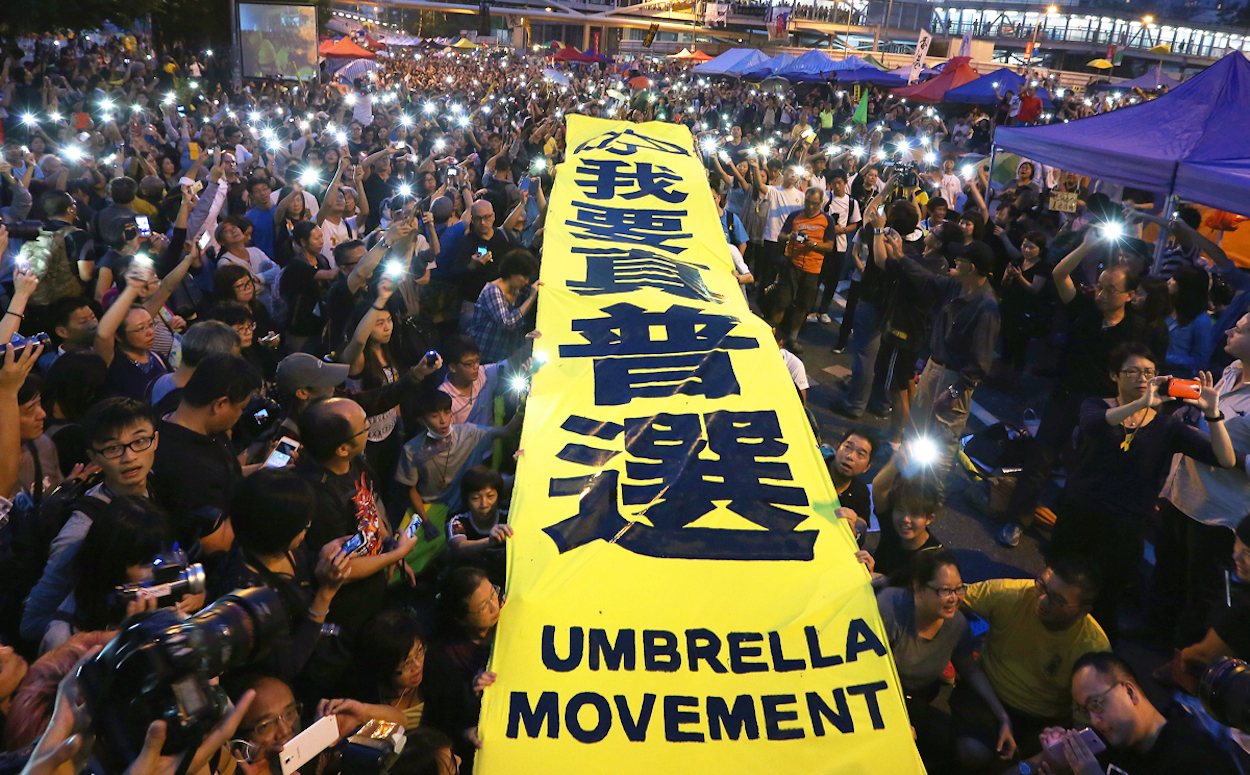 Many parallels have been drawn between Taiwan and Hong Kong by individuals have since the 2014 Sunflower and Umbrella Movements. But as we enter 2016 elections in Taiwan, we might draw further parallels between past November local elections in Hong Kong and Taiwan 2016 elections in regard to Taiwan’s “Third Force” and Hong Kong’s “Umbrella Soldiers.” Namely, both phenomena are elements of post-Sunflower movement civil society in Taiwan and post-Umbrella movement civil society in Hong Kong entering electoral politics. Do the “Umbrella Soldiers” offer any lessons for Taiwan’s “Third Force”?
Many parallels have been drawn between Taiwan and Hong Kong by individuals have since the 2014 Sunflower and Umbrella Movements. But as we enter 2016 elections in Taiwan, we might draw further parallels between past November local elections in Hong Kong and Taiwan 2016 elections in regard to Taiwan’s “Third Force” and Hong Kong’s “Umbrella Soldiers.” Namely, both phenomena are elements of post-Sunflower movement civil society in Taiwan and post-Umbrella movement civil society in Hong Kong entering electoral politics. Do the “Umbrella Soldiers” offer any lessons for Taiwan’s “Third Force”?
Aesthetics and Politics in 2016 Presidential Campaign Ads
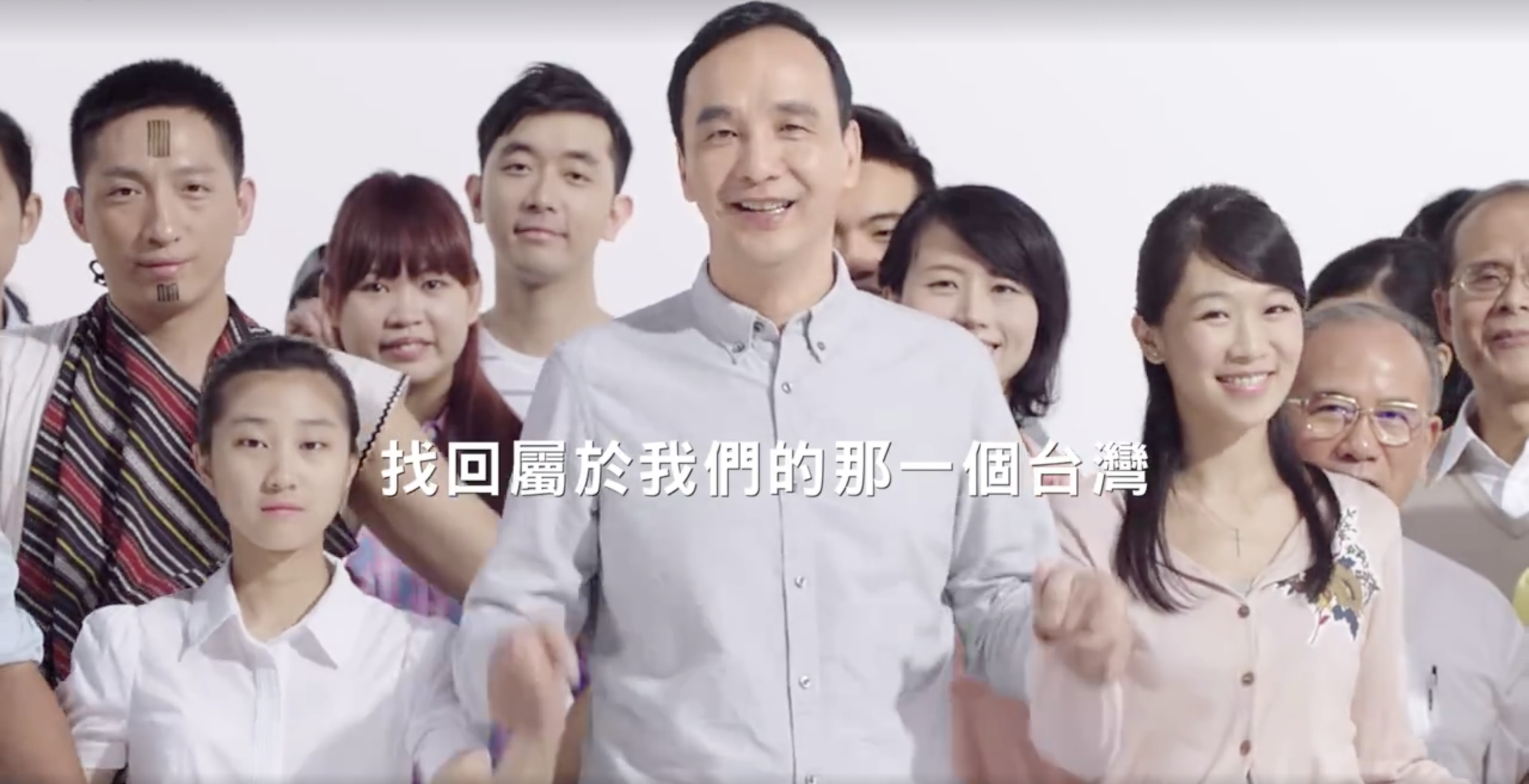 Recent campaign ads by Chu and Tsai are revealing of the priorities of the KMT and DPP in the current presidential election. In examining these ads, we can point to how both parties are aiming at appealing to certain target demographics, particularly young voters. The DPP has largely been more successful the KMT in this regard.
Recent campaign ads by Chu and Tsai are revealing of the priorities of the KMT and DPP in the current presidential election. In examining these ads, we can point to how both parties are aiming at appealing to certain target demographics, particularly young voters. The DPP has largely been more successful the KMT in this regard.
More Empty Rhetoric at the Second Presidential Debate
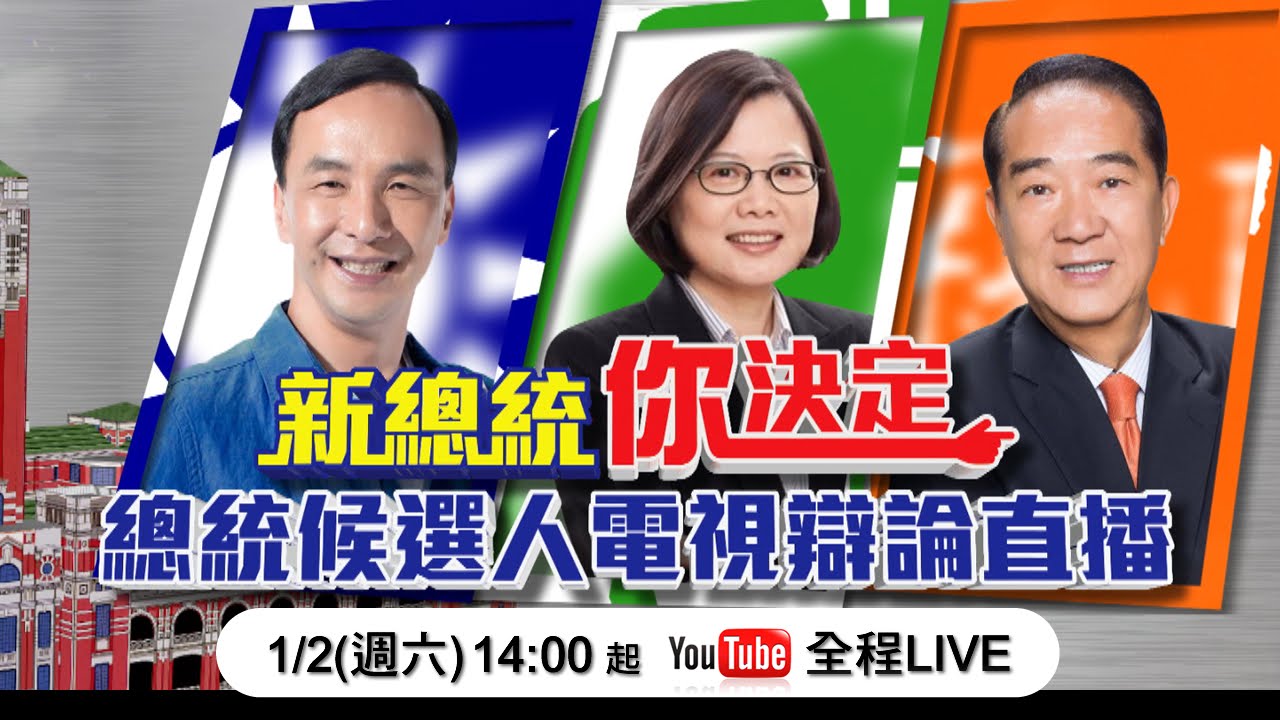 The second Taiwanese presidential debate took place on Saturday, January 2nd 2016, with Eric Chu, Tsai Ing-Wen, and James Soong once again squaring off, less than two weeks before elections. But, as with the first presidential debate, the occasion was largely an occasion for grandstanding and attacks. Given that a Tsai presidential victory seems all but certain, perhaps it is such that we can understand Chu and Soong’s behavior in the debate.
The second Taiwanese presidential debate took place on Saturday, January 2nd 2016, with Eric Chu, Tsai Ing-Wen, and James Soong once again squaring off, less than two weeks before elections. But, as with the first presidential debate, the occasion was largely an occasion for grandstanding and attacks. Given that a Tsai presidential victory seems all but certain, perhaps it is such that we can understand Chu and Soong’s behavior in the debate.
Three Things Western Commentators Have Missed About the KMT in 2016 Elections
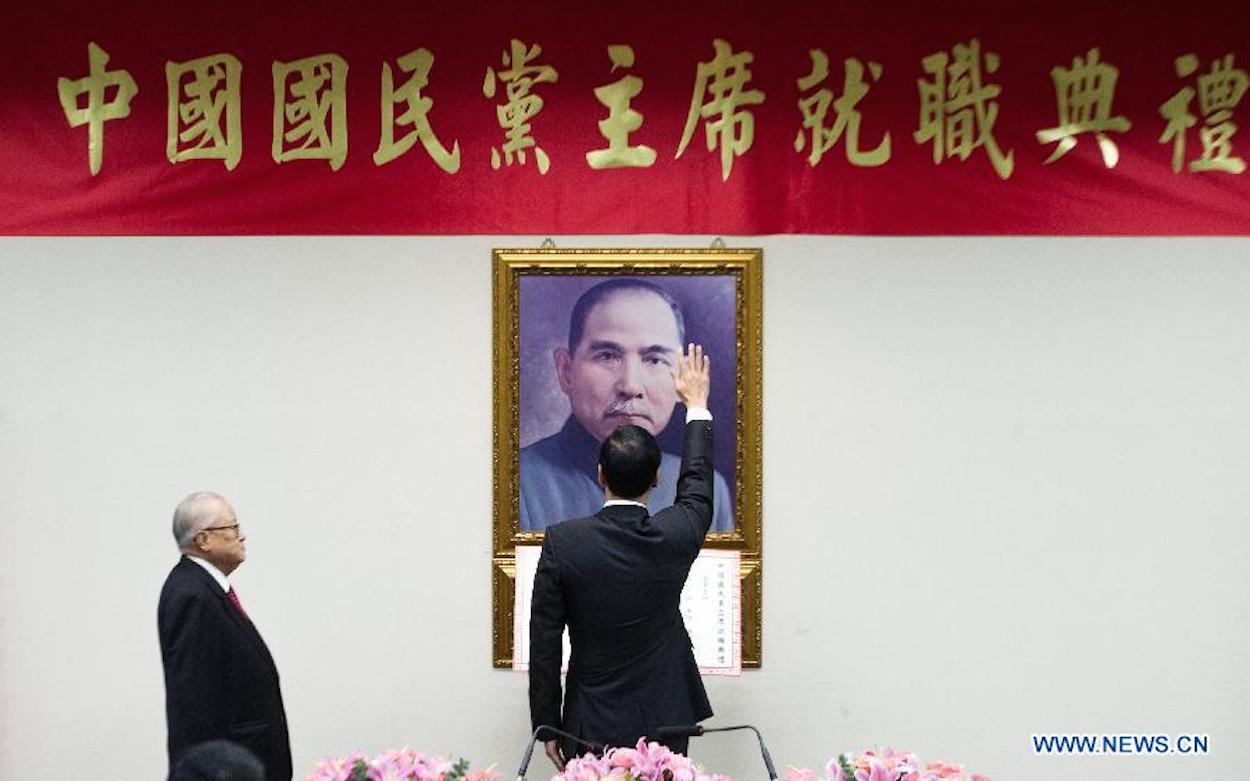 Is Taiwan a “democracy”? Certainly, few would deny that Taiwan is more democratic than it was in the past, as compared to the era of authoritarian rule by the KMT. Nevertheless, much has passed by western commentators in regards to the democratization of Taiwan. It is quite often assumed that post-democratization, the KMT has become a “normal” political party, analogous to any other party functioning in a two-party political system.
Is Taiwan a “democracy”? Certainly, few would deny that Taiwan is more democratic than it was in the past, as compared to the era of authoritarian rule by the KMT. Nevertheless, much has passed by western commentators in regards to the democratization of Taiwan. It is quite often assumed that post-democratization, the KMT has become a “normal” political party, analogous to any other party functioning in a two-party political system.
Three Things Western Commentators Have Missed About the KMT in 2016 Elections
 Is Taiwan a “democracy”? Certainly, few would deny that Taiwan is more democratic than it was in the past, as compared to the era of authoritarian rule by the KMT. Nevertheless, much has passed by western commentators in regards to the democratization of Taiwan. It is quite often assumed that post-democratization, the KMT has become a “normal” political party, analogous to any other party functioning in a two-party political system.
Is Taiwan a “democracy”? Certainly, few would deny that Taiwan is more democratic than it was in the past, as compared to the era of authoritarian rule by the KMT. Nevertheless, much has passed by western commentators in regards to the democratization of Taiwan. It is quite often assumed that post-democratization, the KMT has become a “normal” political party, analogous to any other party functioning in a two-party political system.
Why Has There Been an Upsurge of Labor Demonstrations Before 2016 Elections?
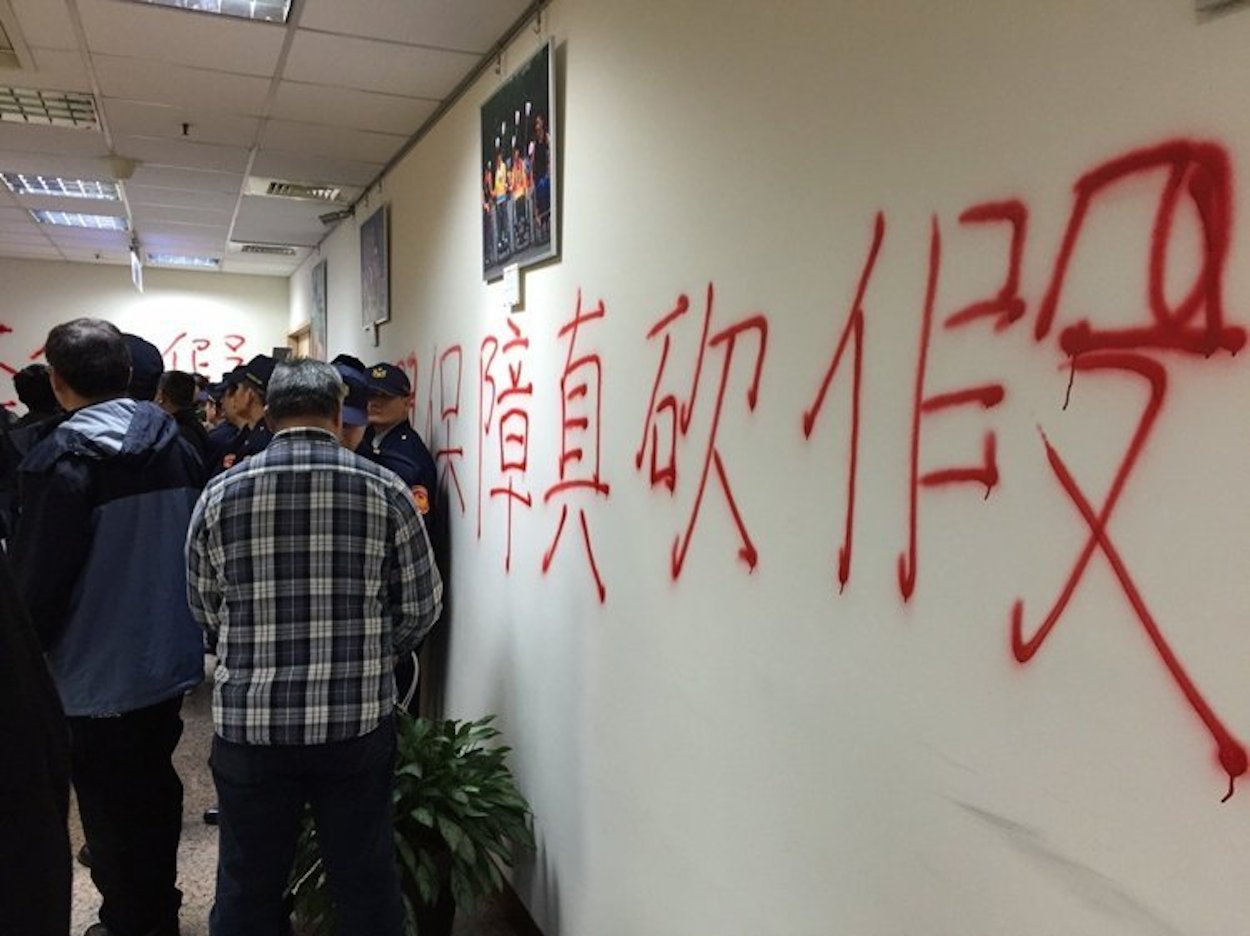 A recent wave of labor protests in Taipei seems to be timed to coincide with 2016 elections. Workers are quite deliberately demonstrating in Taipei before elections, in order to make the public pay attention. Workers’ voices are largely marginalized from mainstream politics—by KMT and DPP alike.
A recent wave of labor protests in Taipei seems to be timed to coincide with 2016 elections. Workers are quite deliberately demonstrating in Taipei before elections, in order to make the public pay attention. Workers’ voices are largely marginalized from mainstream politics—by KMT and DPP alike.
Tsai Ing-Wen and the Long Shadow of Chen Shui-Bian
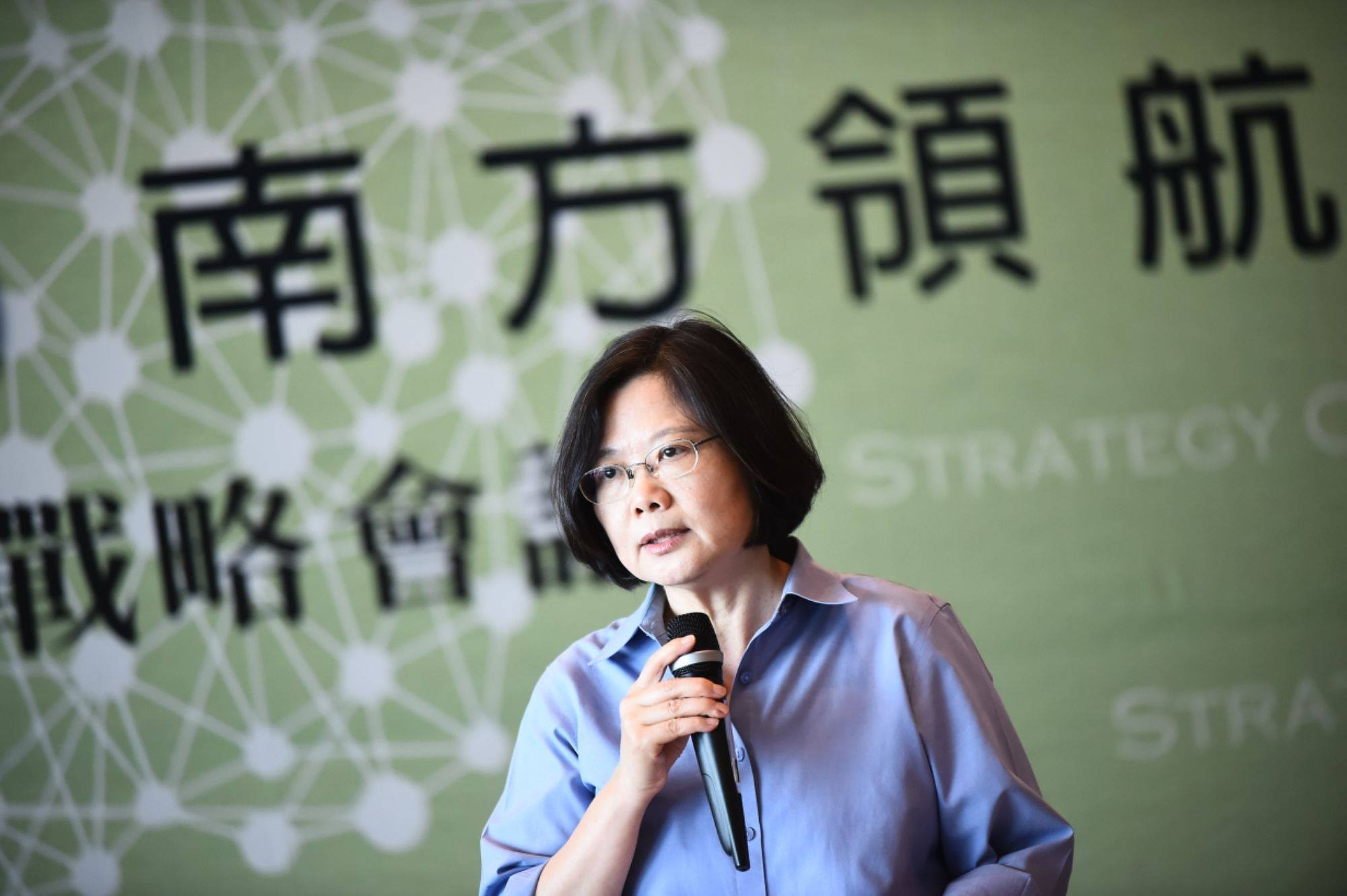 Even if it may be that Tsai’s victory in the present seems all but inevitable, Tsai faces certain uphill challenges once president. Such challenges ultimately stem from international perceptions of the first DPP presidency under Chen Shui-Bian. The DPP is still seen as a dangerous troublemaker that threatens to disrupt cross-strait relations on the basis of its ideological pro-independence fanaticism on the basis of Chen Shui-Bian’s presidency.
Even if it may be that Tsai’s victory in the present seems all but inevitable, Tsai faces certain uphill challenges once president. Such challenges ultimately stem from international perceptions of the first DPP presidency under Chen Shui-Bian. The DPP is still seen as a dangerous troublemaker that threatens to disrupt cross-strait relations on the basis of its ideological pro-independence fanaticism on the basis of Chen Shui-Bian’s presidency.
Empty Talk, Bad Rhetoric, Followed By a Social Media War
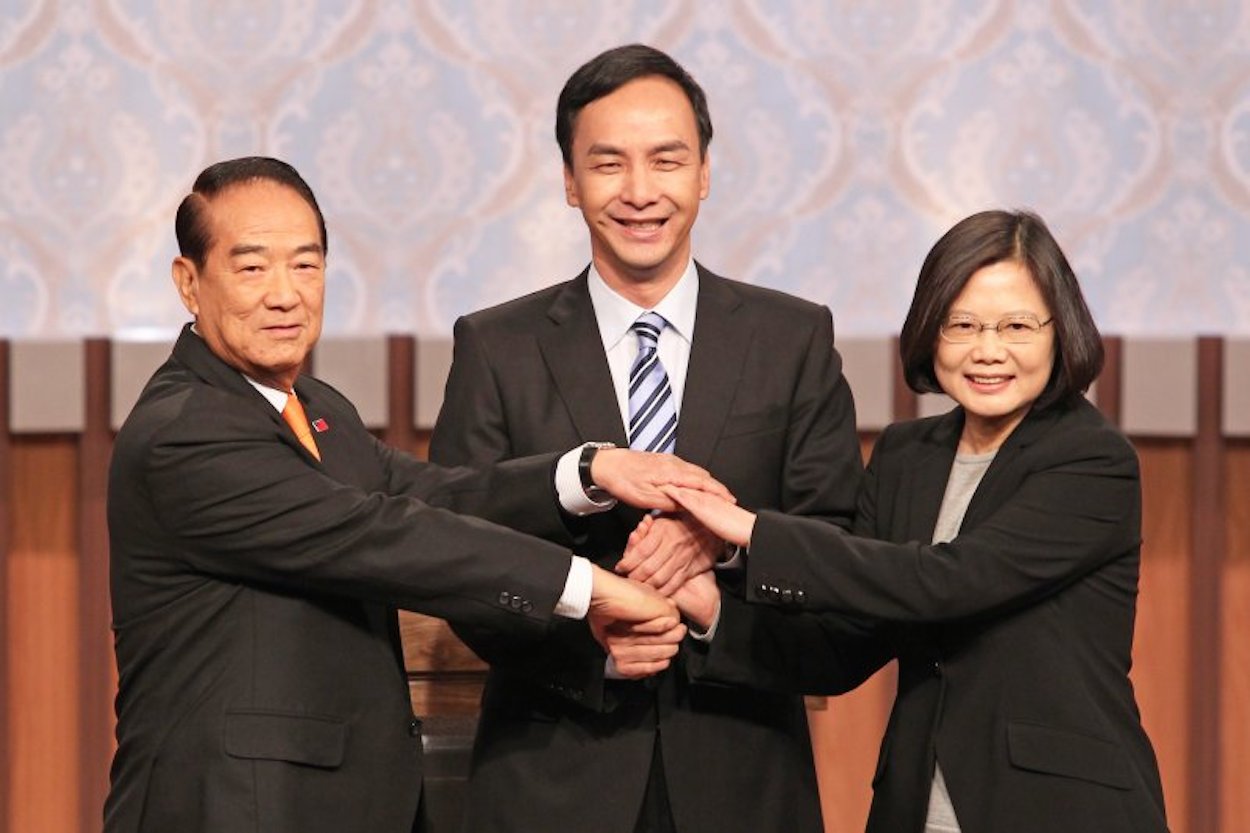 The two and a half hours of the first presidential candidate debate took place on December 27th. Given that polling shows Eric Chu and James Soong lag far behind Tsai Ing-wen, good faith and a miracle would be needed to assume the debate would turn the tables at all. So, unsurprisingly, this debate was largely empty talk.
The two and a half hours of the first presidential candidate debate took place on December 27th. Given that polling shows Eric Chu and James Soong lag far behind Tsai Ing-wen, good faith and a miracle would be needed to assume the debate would turn the tables at all. So, unsurprisingly, this debate was largely empty talk.
Hong Kong’s Sporting Rivalry Turned Political?
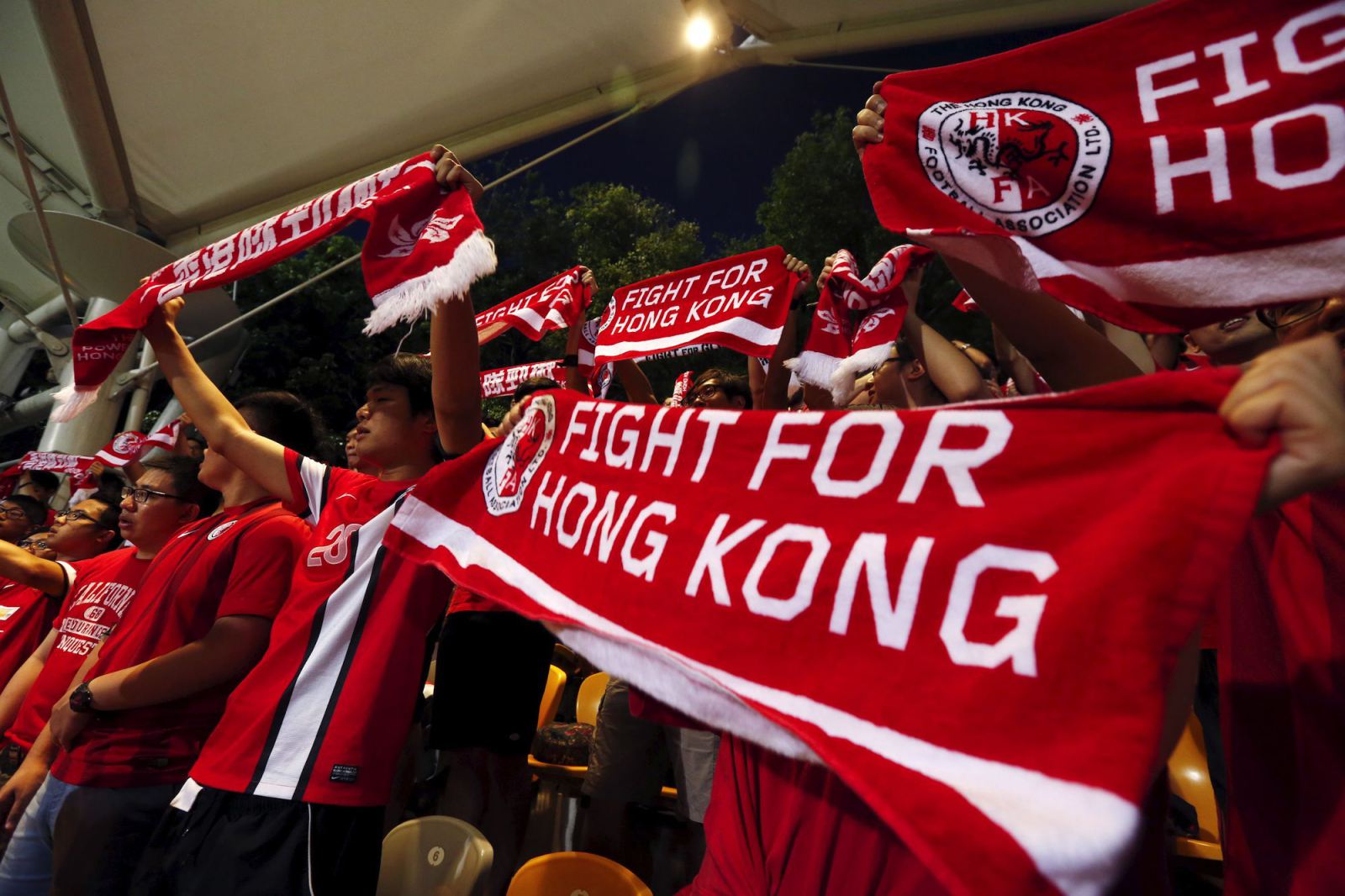 Although the display of nationalistic sentiments is not a new concept to the sporting world, recent sports matches in Hong Kong highlight the tense relationship between Hong Kong and China in light of changing political realities. But does this mean that Hong Kong people reject the notion of “Chineseness” in their own identity? We might take a look.
Although the display of nationalistic sentiments is not a new concept to the sporting world, recent sports matches in Hong Kong highlight the tense relationship between Hong Kong and China in light of changing political realities. But does this mean that Hong Kong people reject the notion of “Chineseness” in their own identity? We might take a look.
When Heavy Metal Meets Activist Politics
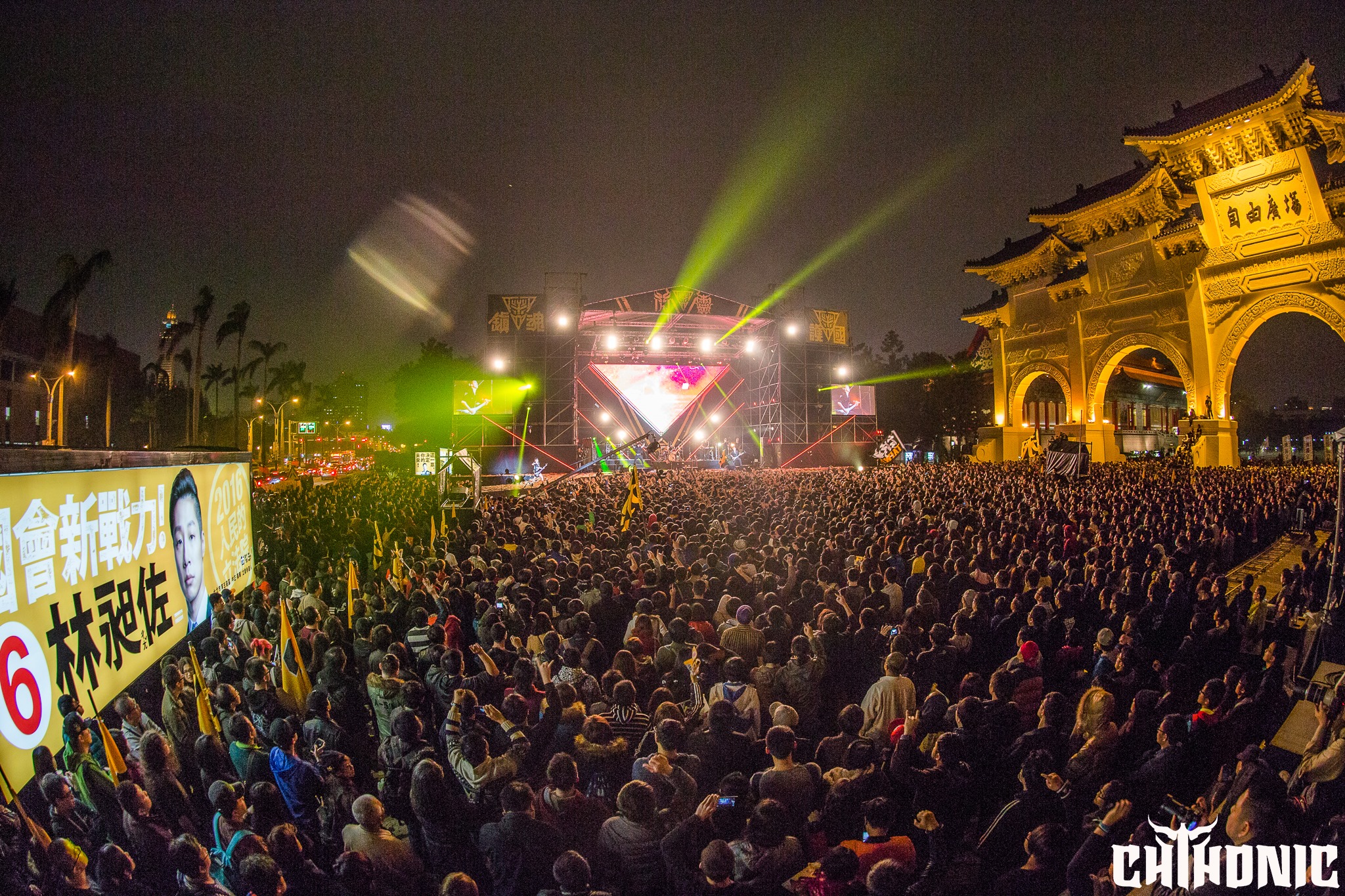 Freddy Lim’s concert held at Freedom Plaza in Taipei on December 26th has drawn international attention on the basis of the unusual nature of a political rally which was, in part, a concert by a heavy metal band. The concert was also to mark the twentieth anniversary of Chthonic. Though Freddy Lim is currently an electoral candidate of the New Power Party, Lim originally rose to fame as frontman of symphonic black metal band Chthonic. We may more broadly view this concert as expressive of the past two year’s development of youth culture, aesthetics, and politics.
Freddy Lim’s concert held at Freedom Plaza in Taipei on December 26th has drawn international attention on the basis of the unusual nature of a political rally which was, in part, a concert by a heavy metal band. The concert was also to mark the twentieth anniversary of Chthonic. Though Freddy Lim is currently an electoral candidate of the New Power Party, Lim originally rose to fame as frontman of symphonic black metal band Chthonic. We may more broadly view this concert as expressive of the past two year’s development of youth culture, aesthetics, and politics.
Shinsuke Ogawa and Kidlat Tahimik’s Confluence of Image
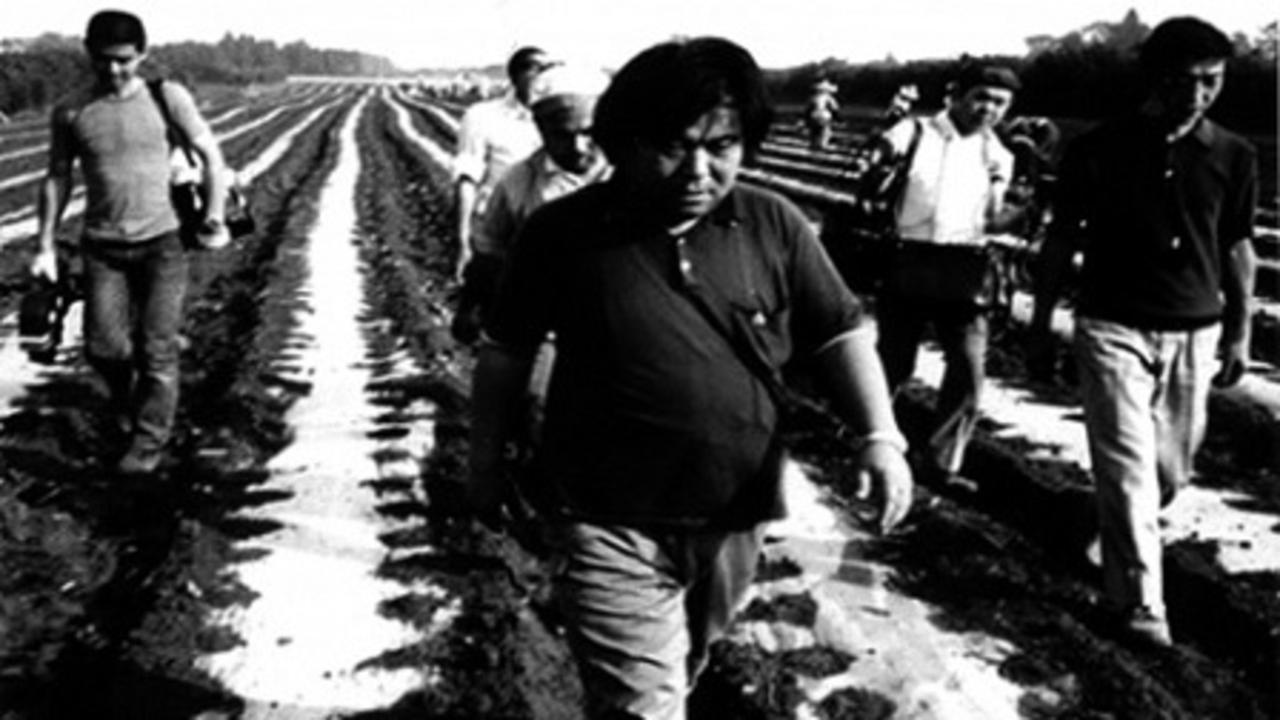 26 years ago, on October 15, 1989, a group of Asian filmmakers at the first Yamagata International Documentary Film Festival in Yamagata, Japan published the “Asian Documentary Filmmaker’s Manifesto”. This was far from the first public manifesto of Asian filmmakers, but it was the first manifesto of Asian documentary filmmakers which became well known internationally. It is hard to say how many still remember it, but the Manifesto is far from being a relic consigned to museums. The difficulties facing filmmakers described in the manifesto still exist today, and so the words of the Manifesto still have relevance to the present. Within the connections formed at the 1989 Yamagata International Documentary Film Festival, was that of Kidlat Tahimik and Shinsuke Ogawa, whose connection was particularly special.
26 years ago, on October 15, 1989, a group of Asian filmmakers at the first Yamagata International Documentary Film Festival in Yamagata, Japan published the “Asian Documentary Filmmaker’s Manifesto”. This was far from the first public manifesto of Asian filmmakers, but it was the first manifesto of Asian documentary filmmakers which became well known internationally. It is hard to say how many still remember it, but the Manifesto is far from being a relic consigned to museums. The difficulties facing filmmakers described in the manifesto still exist today, and so the words of the Manifesto still have relevance to the present. Within the connections formed at the 1989 Yamagata International Documentary Film Festival, was that of Kidlat Tahimik and Shinsuke Ogawa, whose connection was particularly special.
The Taiwanese Television Series Bao Qingtian in Context of Thailand’s (Un)Democracy
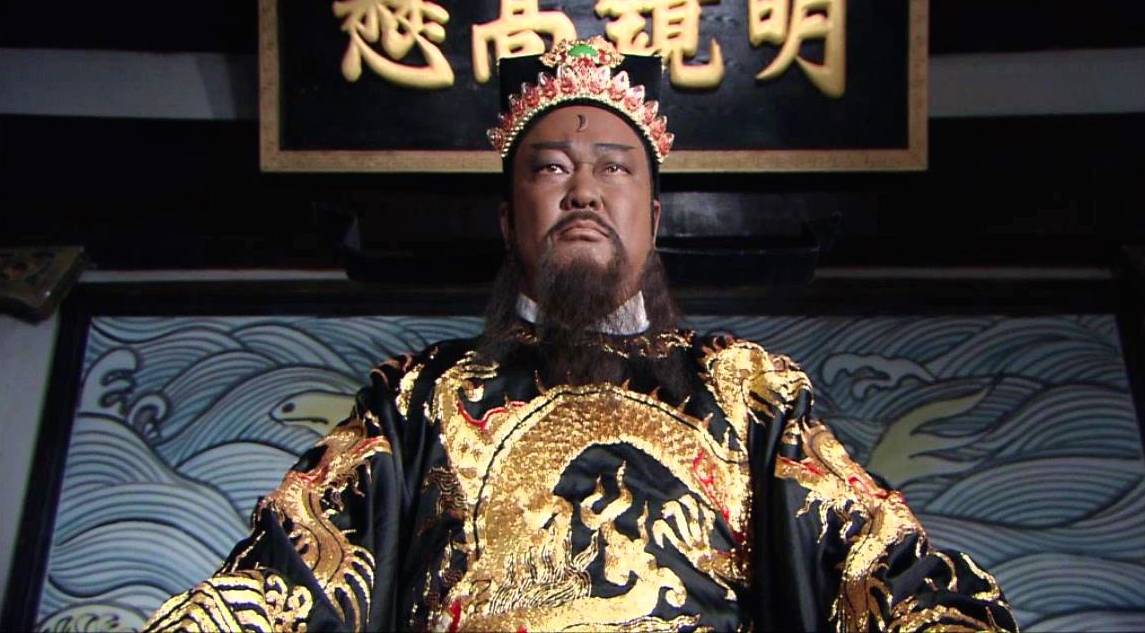 That the Thai government manages to bring Taiwanese television series Justice Bao to Thai screens again and again is revealing. The central ideals of Justice Bao are what the present military regime would like to instill within Thai citizens. The screening of the series Justice Bao is ideologically sound, since not only does the character Bao help the government in a favorable light, as upholding justice and rooting out corruption, but the series propagates the continuation of the class system nonetheless.
That the Thai government manages to bring Taiwanese television series Justice Bao to Thai screens again and again is revealing. The central ideals of Justice Bao are what the present military regime would like to instill within Thai citizens. The screening of the series Justice Bao is ideologically sound, since not only does the character Bao help the government in a favorable light, as upholding justice and rooting out corruption, but the series propagates the continuation of the class system nonetheless.
Will 2016 Elections Be The End of Taiwan’s Year of Protest?
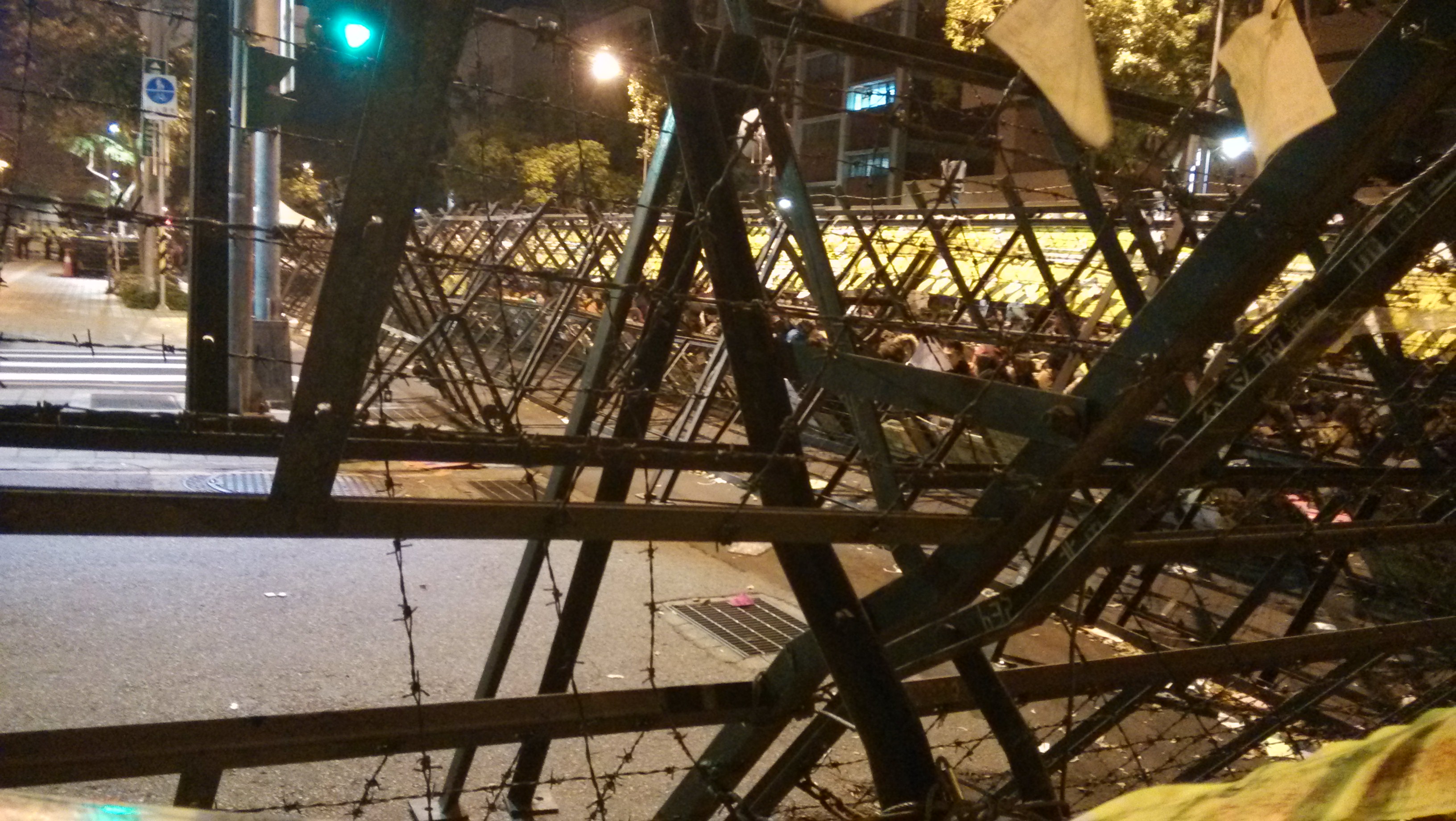 If the past year was the entrance of a generation of young people who had been previously thought to be politically indifferent into politics, it remains to be seen what the political role of Taiwan’s young will be going forward under Tsai’s presidency. Will we see continued resiliency of youth activism as we saw in the past year? Or is it that we will see a precipitous decline in activism once the Tsai honeymoon is over?
If the past year was the entrance of a generation of young people who had been previously thought to be politically indifferent into politics, it remains to be seen what the political role of Taiwan’s young will be going forward under Tsai’s presidency. Will we see continued resiliency of youth activism as we saw in the past year? Or is it that we will see a precipitous decline in activism once the Tsai honeymoon is over?
The Case of Talum and the Plight of Indigenous Peoples in Taiwan
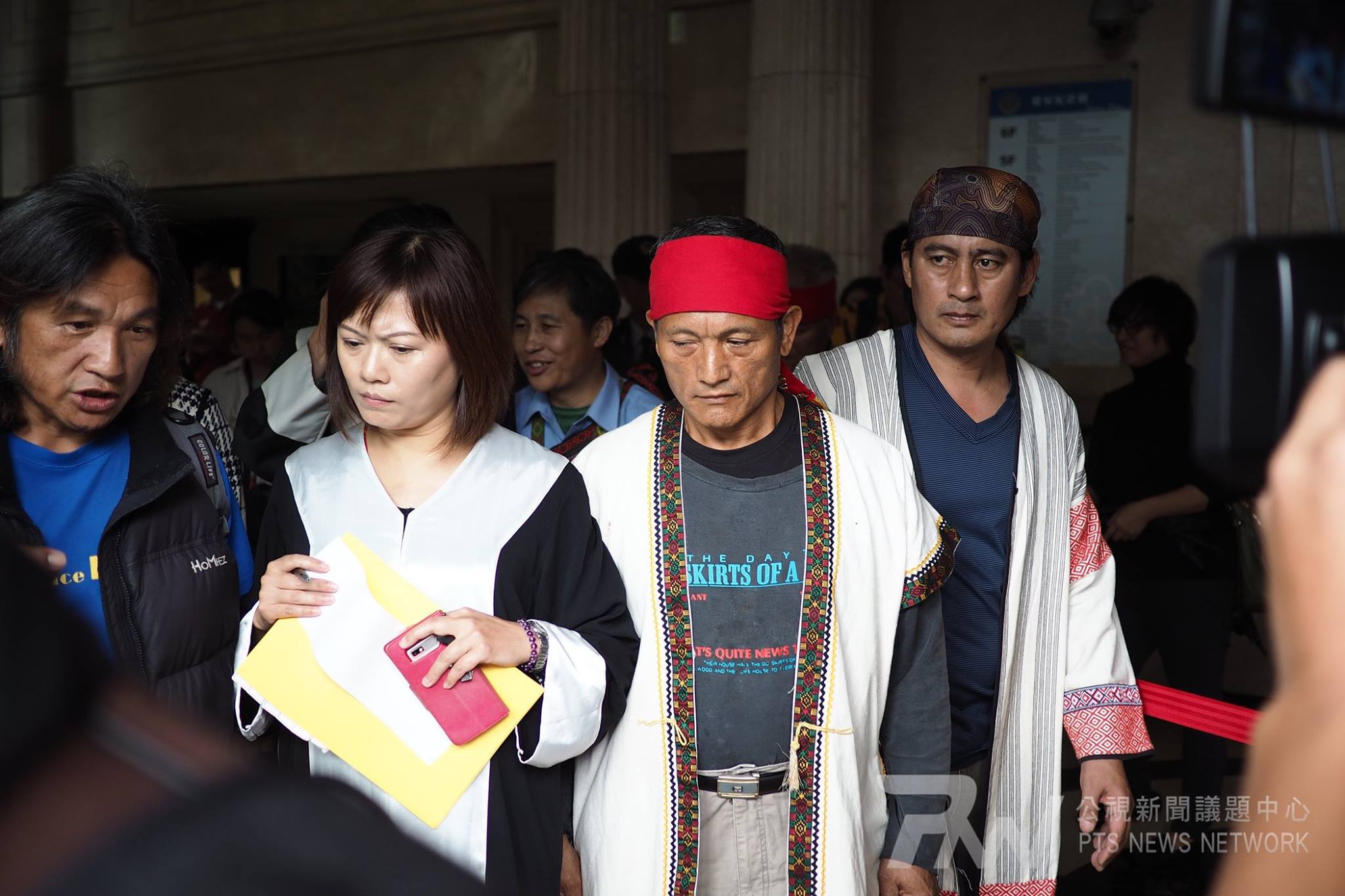 56-year-old Bunun man Tama Talum, also known as Wang Guanglu, was arrested for hunting with a shotgun to provide meat for his elderly mother. Talum was sentenced by a Taitung district court to three and a half years in prison as well as a fine of 70,000 NTD. The case has seen public demonstrations and criticisms by groups as the Legal Aid Foundation for unduly harsh nature of the ruling. But with the Talum case, we can point to broader issues of the status of indigenous peoples in Taiwan.
56-year-old Bunun man Tama Talum, also known as Wang Guanglu, was arrested for hunting with a shotgun to provide meat for his elderly mother. Talum was sentenced by a Taitung district court to three and a half years in prison as well as a fine of 70,000 NTD. The case has seen public demonstrations and criticisms by groups as the Legal Aid Foundation for unduly harsh nature of the ruling. But with the Talum case, we can point to broader issues of the status of indigenous peoples in Taiwan.
The Past Weekend’s Migrant Workers’ Demonstration and Broader Issues of Migrant Workers in Taiwan
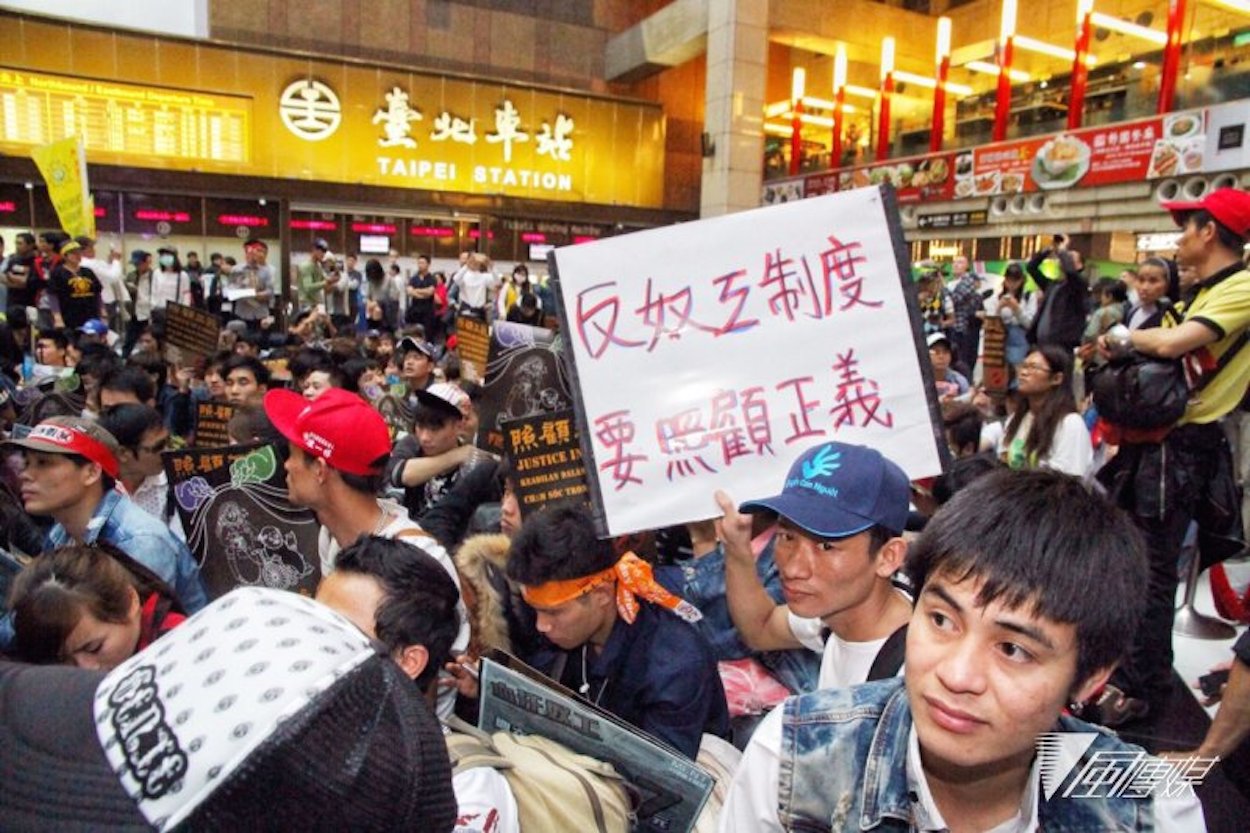 The rally for migrant workers’ rights which took place in Taipei this past Sunday points to how the role of migrant workers in Taiwan remains precarious. Yet it is that migrant workers have come to occupy an integral place in Taiwanese society. We might venture an examination.
The rally for migrant workers’ rights which took place in Taipei this past Sunday points to how the role of migrant workers in Taiwan remains precarious. Yet it is that migrant workers have come to occupy an integral place in Taiwanese society. We might venture an examination.
Is a General Strike in South Korea on the Horizon?
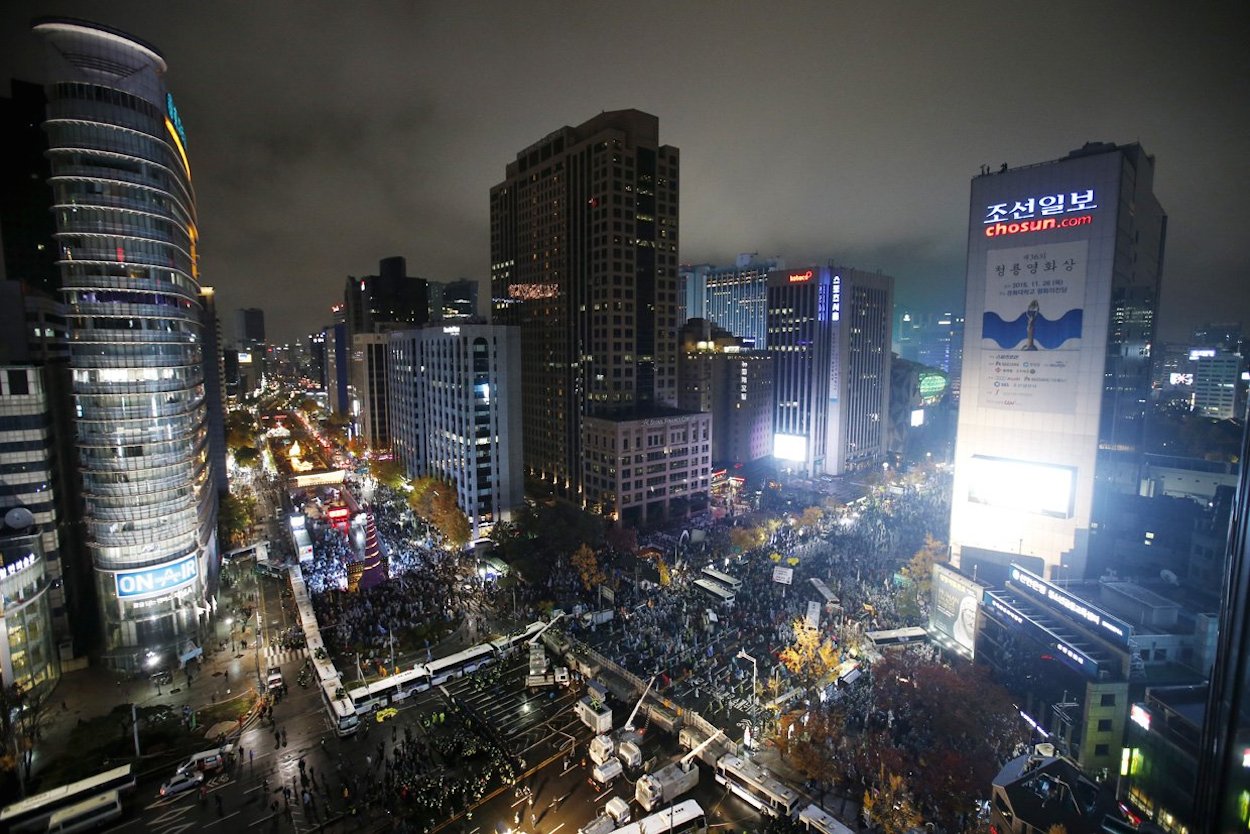 South Korea may be poised on the brink of a general strike, with a general strike called for December 16th. The weekend before last saw demonstrations of tens of thousands, after demonstrations in mid-November which brought over 60,000 onto the streets of Seoul. We can situate current events in South Korea within broader regional trends of labor activism and the actions of resurgent authoritarian governments in East Asia, as we can see with Asia’s past year of protest.
South Korea may be poised on the brink of a general strike, with a general strike called for December 16th. The weekend before last saw demonstrations of tens of thousands, after demonstrations in mid-November which brought over 60,000 onto the streets of Seoul. We can situate current events in South Korea within broader regional trends of labor activism and the actions of resurgent authoritarian governments in East Asia, as we can see with Asia’s past year of protest.
Interview: Chen Wei-Ting (陳為廷)
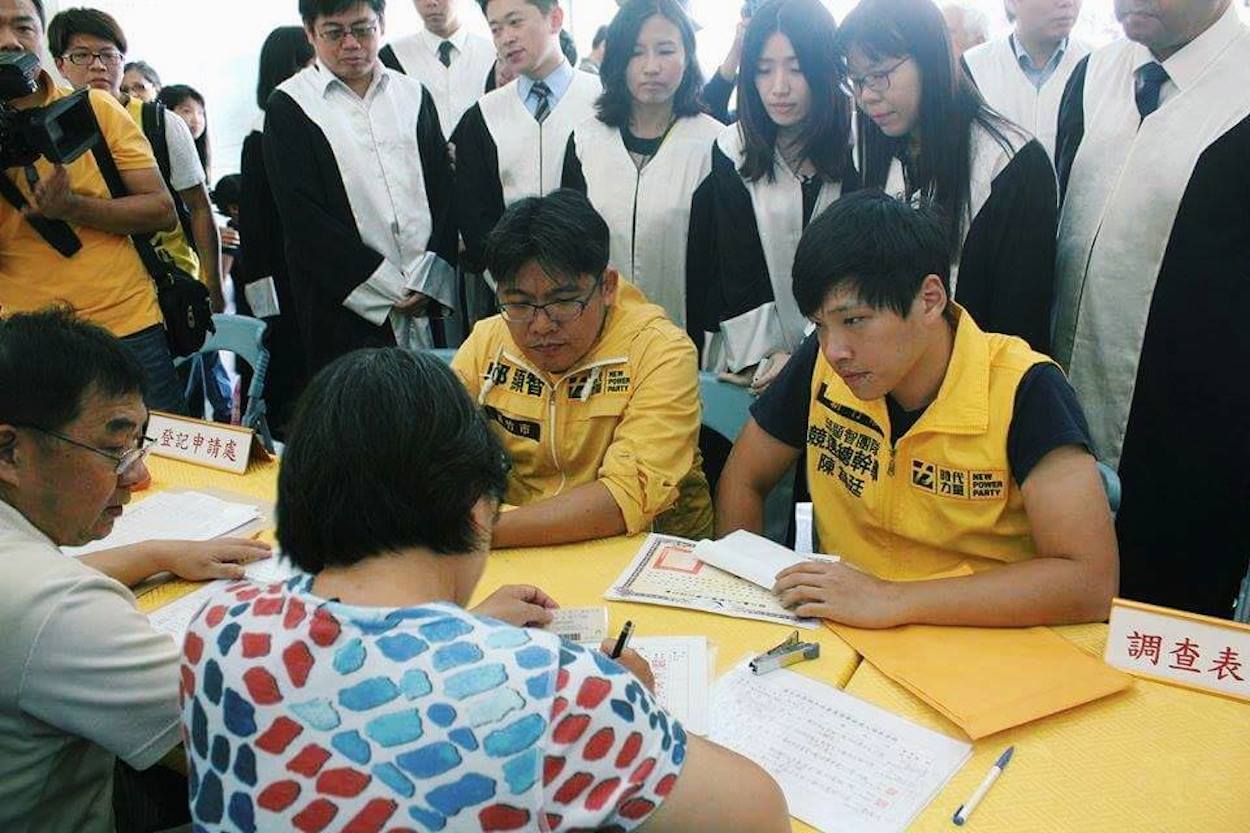 From the anti-media monopoly movement in 2012, through the Dapu incident in Miaoli, to the Sunflower Movement, Chen Wei-Ting has in many important social movements for the sake of society, participated in every activity. But even so, Chen Wei-Ting has been a controversial figure. In the middle of the battle for 2016 legislative elections, the famous Chen Wei-Ting of the Sunflower Movement was requested by Chiu Hsien-Chih to be his campaign manager. New Bloom took the opportunity to interview Chen during Chiu Hsien-Chih’s visit to the US on August 30th.
From the anti-media monopoly movement in 2012, through the Dapu incident in Miaoli, to the Sunflower Movement, Chen Wei-Ting has in many important social movements for the sake of society, participated in every activity. But even so, Chen Wei-Ting has been a controversial figure. In the middle of the battle for 2016 legislative elections, the famous Chen Wei-Ting of the Sunflower Movement was requested by Chiu Hsien-Chih to be his campaign manager. New Bloom took the opportunity to interview Chen during Chiu Hsien-Chih’s visit to the US on August 30th.
Interview: Chiu Hsien-Chih (邱顯智)
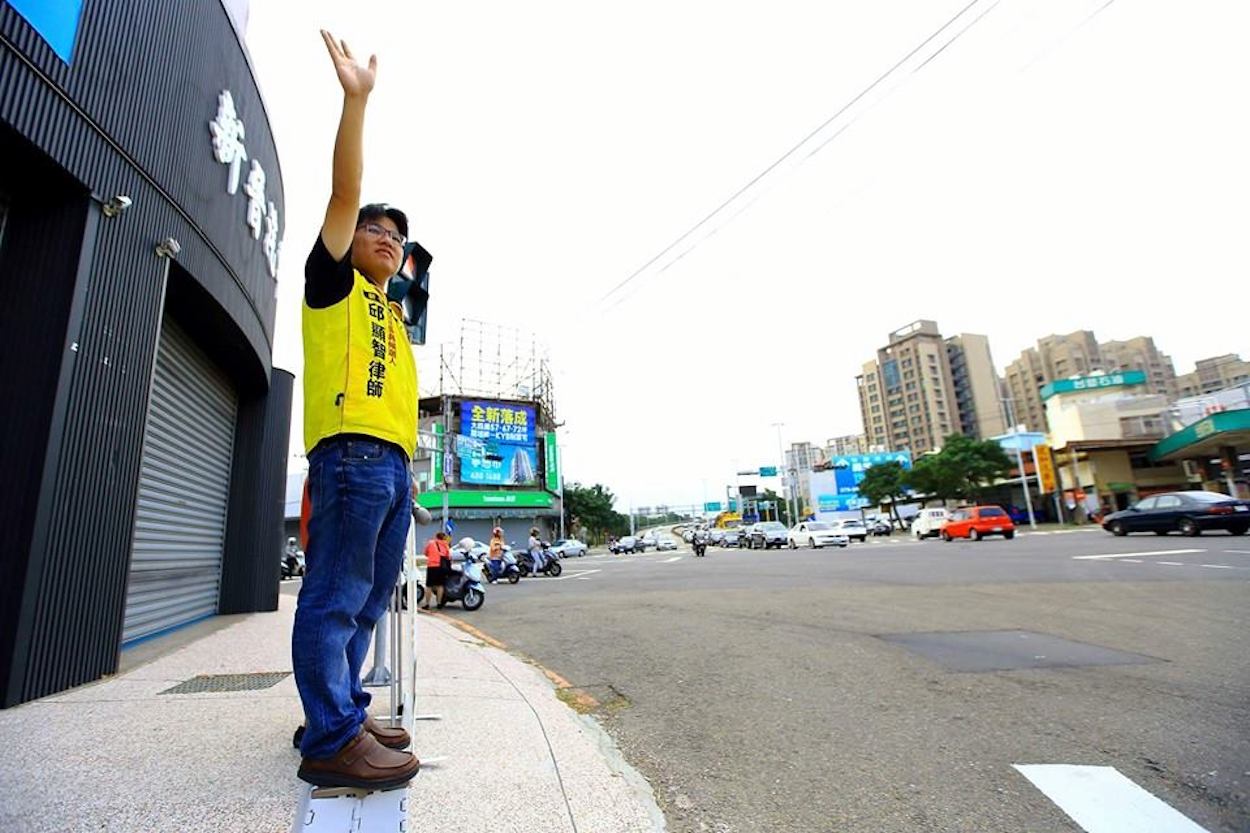 For 2016 legislative elections, DPP minority whip Ker Chien-Ming decided to return to Hsinchu to run for legislator, coming into conflict with the New Power Party candidate Chiu Hsien-Chih and his campaign team. As a result, Chiu Hsien-Chih’s campaign has been hotly discussed in the media as an occasion in which the Third Force runs up against the DPP. New Bloom interviewed Chiu during his speaking tour of America in late August.
For 2016 legislative elections, DPP minority whip Ker Chien-Ming decided to return to Hsinchu to run for legislator, coming into conflict with the New Power Party candidate Chiu Hsien-Chih and his campaign team. As a result, Chiu Hsien-Chih’s campaign has been hotly discussed in the media as an occasion in which the Third Force runs up against the DPP. New Bloom interviewed Chiu during his speaking tour of America in late August.
“Taiwan No. 1” Becomes a Symbol of National Pride for Taiwan Gamers
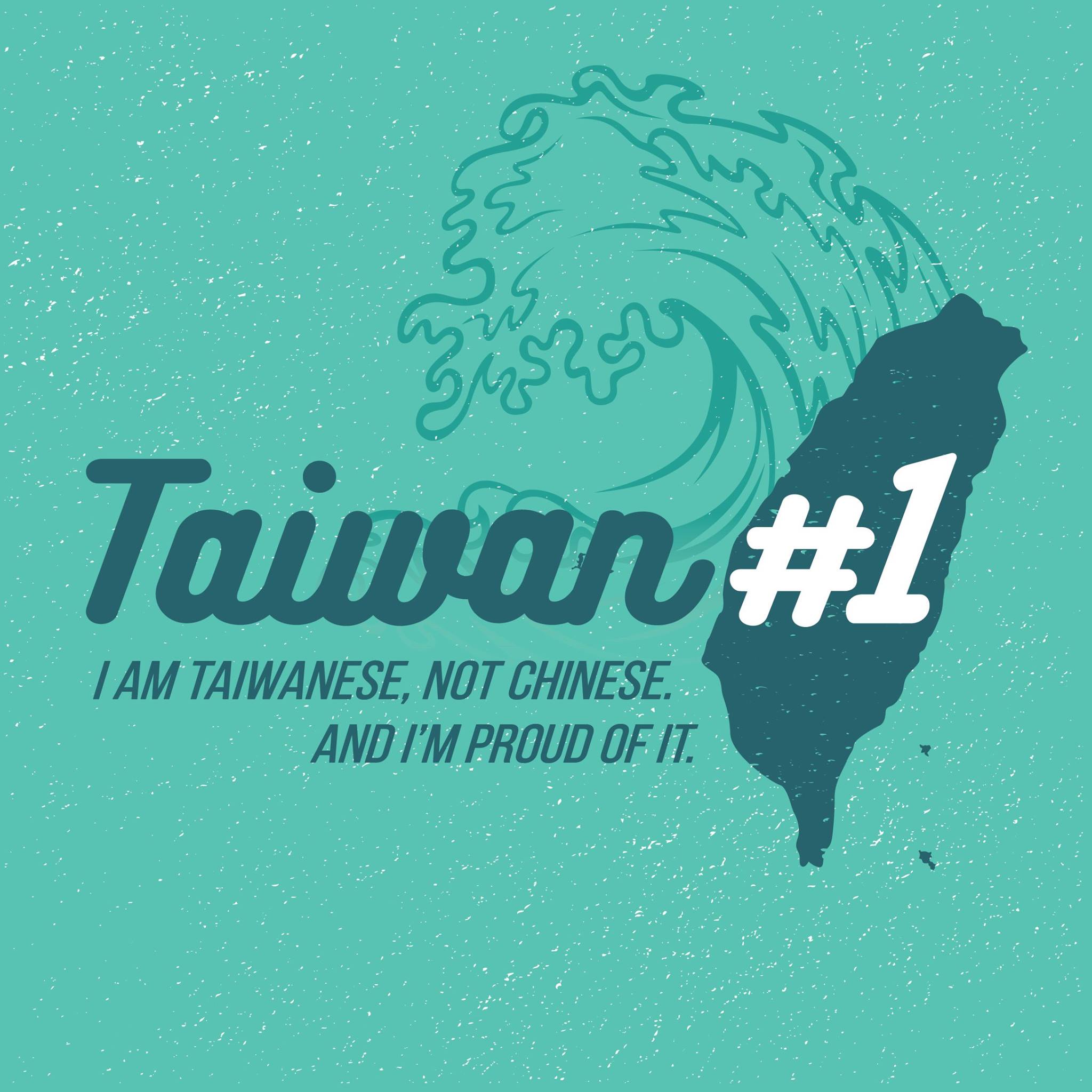 The videos of American streamer Angrypug playing the online game H1Z1 have become a Youtube sensation, clocking in over a million and half views. That a Youtube video about gaming has become such a smash hit in Taiwan should be no surprise to anyone familiar with the island’s obsession with video games. Taiwanese of all ages can be seen on Taipei’s MRT glued to their smart phones, mashing away at their screens. But the popularity of the video among gamers and netizens points to larger issues gaining prominence among the island’s youth. Taiwan’s Sunflower generation is more confident about expressing their identity, and bristles at being grouped nationally and culturally with China.
The videos of American streamer Angrypug playing the online game H1Z1 have become a Youtube sensation, clocking in over a million and half views. That a Youtube video about gaming has become such a smash hit in Taiwan should be no surprise to anyone familiar with the island’s obsession with video games. Taiwanese of all ages can be seen on Taipei’s MRT glued to their smart phones, mashing away at their screens. But the popularity of the video among gamers and netizens points to larger issues gaining prominence among the island’s youth. Taiwan’s Sunflower generation is more confident about expressing their identity, and bristles at being grouped nationally and culturally with China.
When the Pro-Unification Left Tries to Proselytize Abroad: Petrus Liu’s “Queer Marxism in Two Chinas”
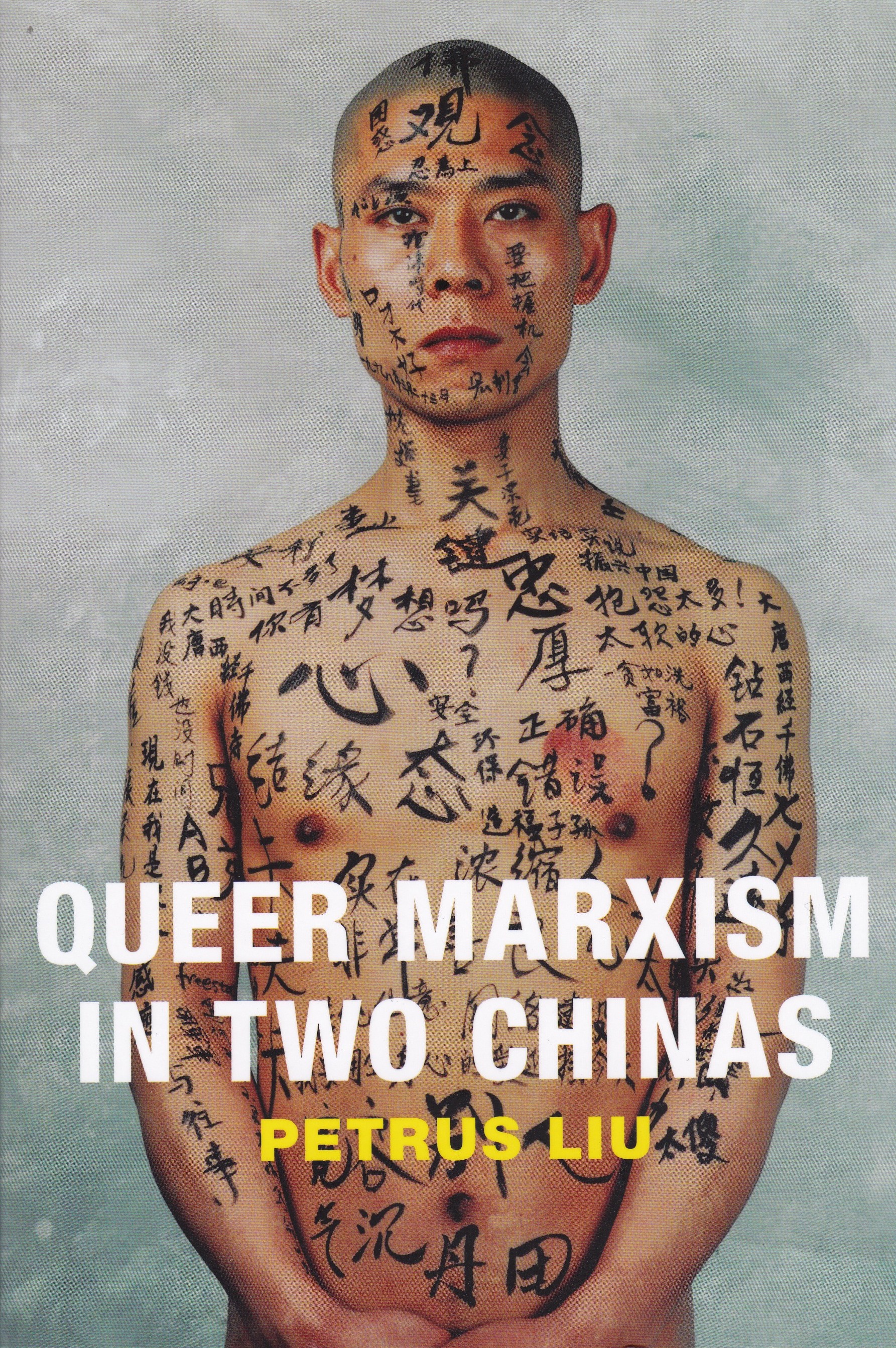 Queer Marxism in Two Chinas ultimately is the attempt to proselytize. In writing in English, Liu’s agenda is to proselytize about so-called Chinese “Queer Marxism”, in order that western academics would come to take up this thing called “Queer Marxism” as an authentic and original contribution of Chinese intellectuals to theoretical discourse. Of course, the theorists of Liu’s Chinese “Queer Marxism” are almost all Taiwanese—except that these are individuals who seem to culturally and politically identify with China. Liu is always attempting to insist on that these are unambiguously “Chinese” intellectuals. Obviously, China sells better. And probably it will be that the book is taken up by western, left-leaning academics to the degree that it caters to their Orientalist projections.
Queer Marxism in Two Chinas ultimately is the attempt to proselytize. In writing in English, Liu’s agenda is to proselytize about so-called Chinese “Queer Marxism”, in order that western academics would come to take up this thing called “Queer Marxism” as an authentic and original contribution of Chinese intellectuals to theoretical discourse. Of course, the theorists of Liu’s Chinese “Queer Marxism” are almost all Taiwanese—except that these are individuals who seem to culturally and politically identify with China. Liu is always attempting to insist on that these are unambiguously “Chinese” intellectuals. Obviously, China sells better. And probably it will be that the book is taken up by western, left-leaning academics to the degree that it caters to their Orientalist projections.
The Arrest of Guangzhou Labor Activists and the Chinese State’s Defense of Capital
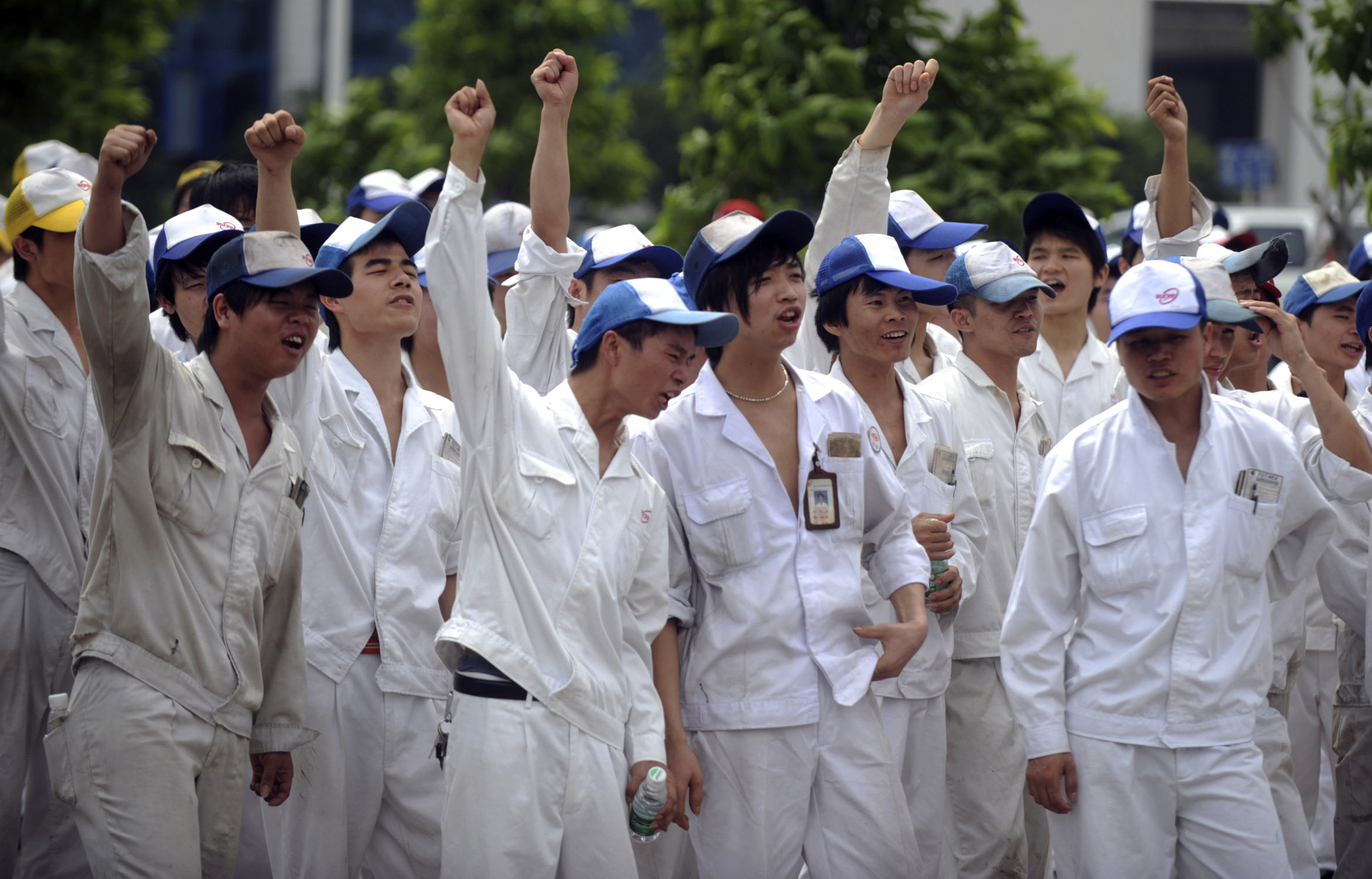 With the recent arrests of Guangzhou labor activists, we see where the authoritarian Chinese state acts in defense of capital, with workers thrown under the bus by a state which nonetheless claims an ideology centered around worker rule. For all talk about the economic and political “rise of China”, is it any mistake that this rise is concurrent with a renewed period of authoritarianism and repression against workers by the Chinese state?
With the recent arrests of Guangzhou labor activists, we see where the authoritarian Chinese state acts in defense of capital, with workers thrown under the bus by a state which nonetheless claims an ideology centered around worker rule. For all talk about the economic and political “rise of China”, is it any mistake that this rise is concurrent with a renewed period of authoritarianism and repression against workers by the Chinese state?
The Past Week of Smog in Beijing and Smog Conditions as an International Problem
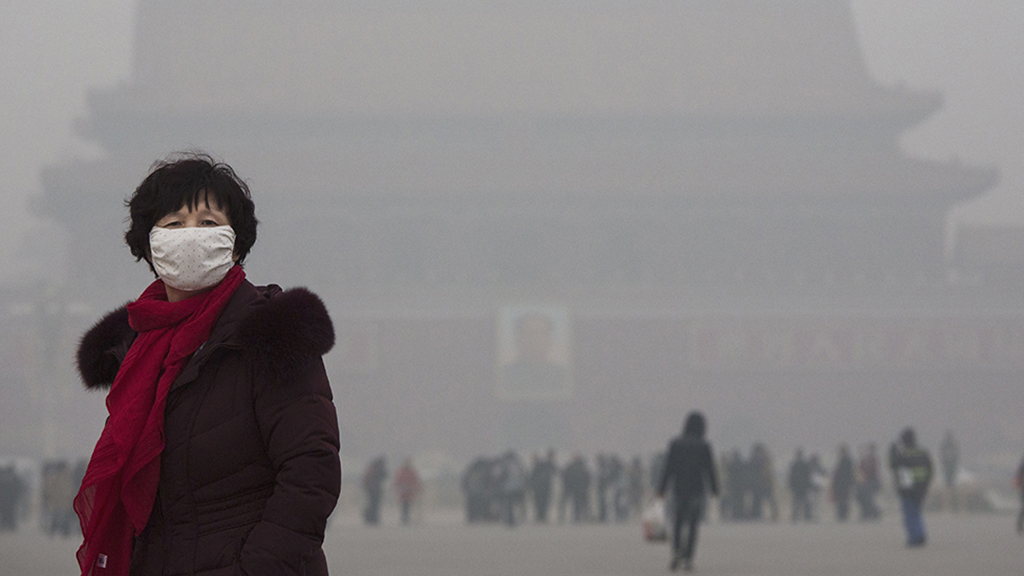 Persistent smog in Beijing for the past week has made international news, on account of the Chinese government declaring an “orange” alert for hazardous air pollution. Recently, we also see smog conditions in other parts of Asia, including Taiwan. As a product of polluting factories, perhaps we can more generally point to smog conditions as a problem which stems from unfettered capitalist growth, as a case in which people’s health and livelihood are sacrificed in favor of economic development.
Persistent smog in Beijing for the past week has made international news, on account of the Chinese government declaring an “orange” alert for hazardous air pollution. Recently, we also see smog conditions in other parts of Asia, including Taiwan. As a product of polluting factories, perhaps we can more generally point to smog conditions as a problem which stems from unfettered capitalist growth, as a case in which people’s health and livelihood are sacrificed in favor of economic development.
Interview: Miao Poya (苗博雅)
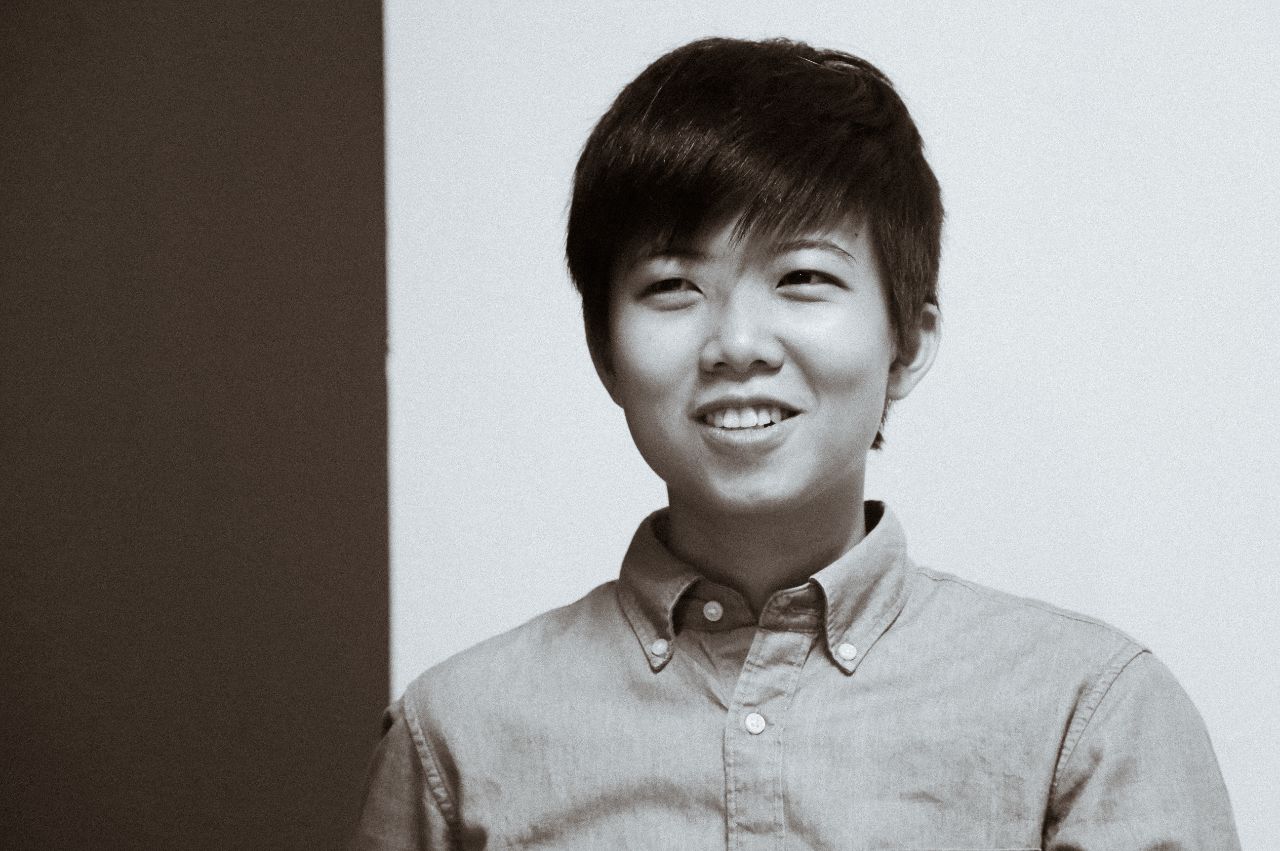 A familiar name in Taiwanese activist circles, Miao Poya has stood at the forefront of social movements, expounding her views on issues ranging from the Sunflower Movement, to marriage equality, or to the abolition of capital punishment. This year, Miao decided to throw her hat into the ring for the 2016 legislative elections, standing as a candidate for the newly-founded Social Democratic Party in Wenshan District in Taipei City, and aiming to become an alternative to the political establishment in the legislature.
A familiar name in Taiwanese activist circles, Miao Poya has stood at the forefront of social movements, expounding her views on issues ranging from the Sunflower Movement, to marriage equality, or to the abolition of capital punishment. This year, Miao decided to throw her hat into the ring for the 2016 legislative elections, standing as a candidate for the newly-founded Social Democratic Party in Wenshan District in Taipei City, and aiming to become an alternative to the political establishment in the legislature.
Imperialism with Chinese Characteristics?
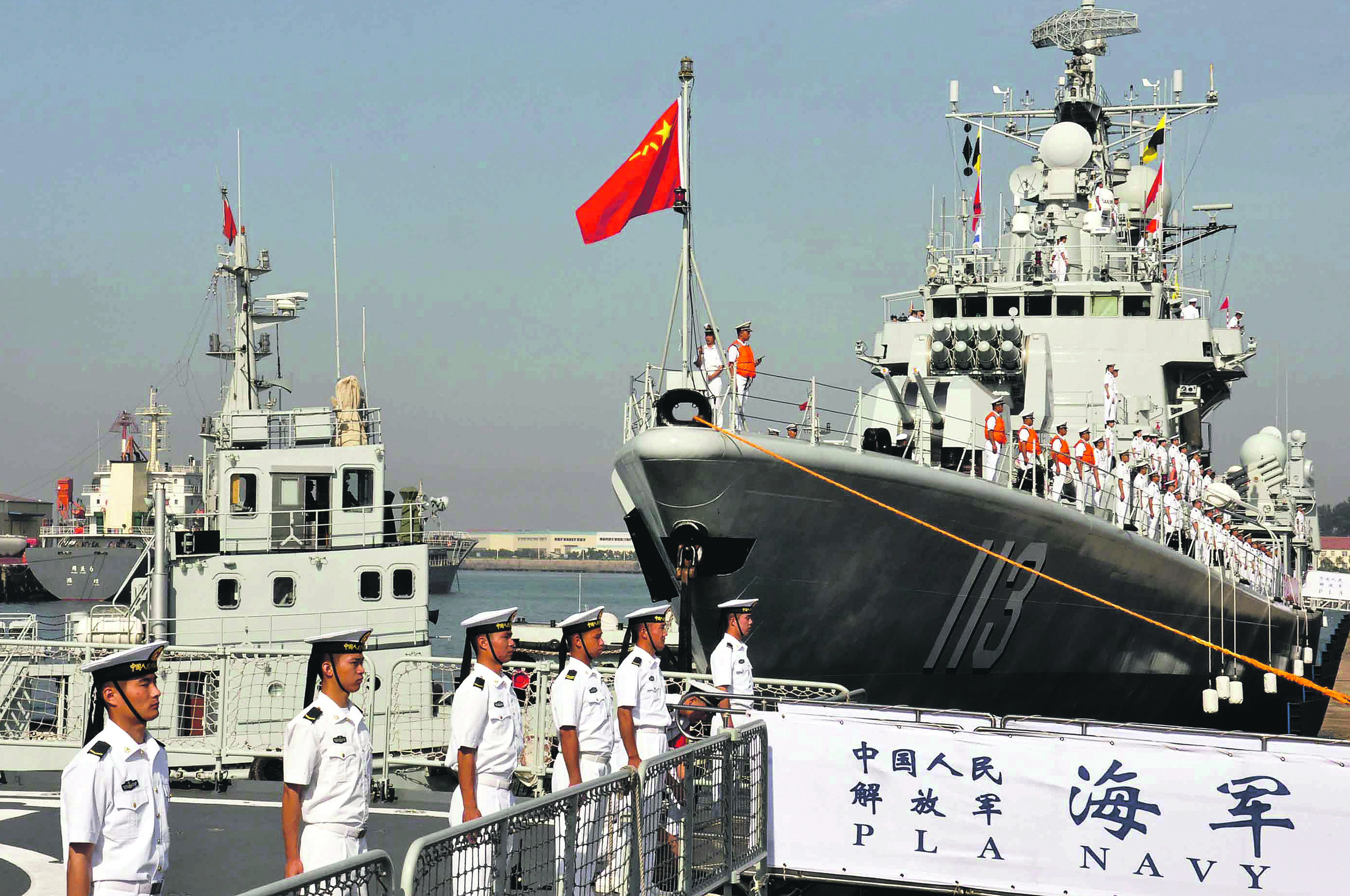 China’s establishment of its first overseas military base in Djibouti has provoked some anxiety. Is this beginnings of a world-spanning imperialist base-building project by China in the future? Although it is that at present the US has over 800 bases in 80 countries across the world, this will be China’s first overseas military base. Namely, it should not be a surprise if China wishes to become a global superpower, it is compelled in some sense to imitate America.
China’s establishment of its first overseas military base in Djibouti has provoked some anxiety. Is this beginnings of a world-spanning imperialist base-building project by China in the future? Although it is that at present the US has over 800 bases in 80 countries across the world, this will be China’s first overseas military base. Namely, it should not be a surprise if China wishes to become a global superpower, it is compelled in some sense to imitate America.
The Unexpected Recognition of Taiwan
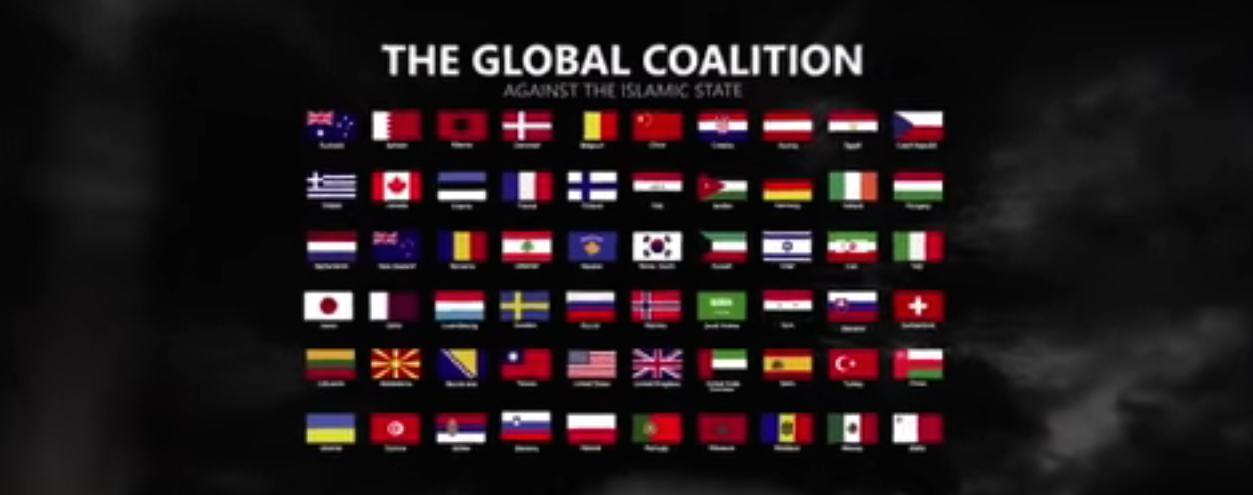 In an ironic twist, the inclusion of the ROC flag amongst the states ISIS considers its enemies constitutes, in the estimation of Beijing, a recognition of Taiwan as a separate state. For its part, the United States’ recognition of Taiwan as an element of the coalition to oppose ISIS in the Asia-Pacific region perhaps serves the goal of moving it farther away from the PRC and into a closer, though unofficial, partnership with the US and its allies in the region. Taiwan finds itself in the precarious situation of having been singled out by both the Islamic State and the United States as an ally in the Western-led coalition, worsening relations with the PRC while at the same time igniting considerable fear concerning the safety of the nation.
In an ironic twist, the inclusion of the ROC flag amongst the states ISIS considers its enemies constitutes, in the estimation of Beijing, a recognition of Taiwan as a separate state. For its part, the United States’ recognition of Taiwan as an element of the coalition to oppose ISIS in the Asia-Pacific region perhaps serves the goal of moving it farther away from the PRC and into a closer, though unofficial, partnership with the US and its allies in the region. Taiwan finds itself in the precarious situation of having been singled out by both the Islamic State and the United States as an ally in the Western-led coalition, worsening relations with the PRC while at the same time igniting considerable fear concerning the safety of the nation.
Interview with Orestis Doulos of Greece’s Popular Unity Party
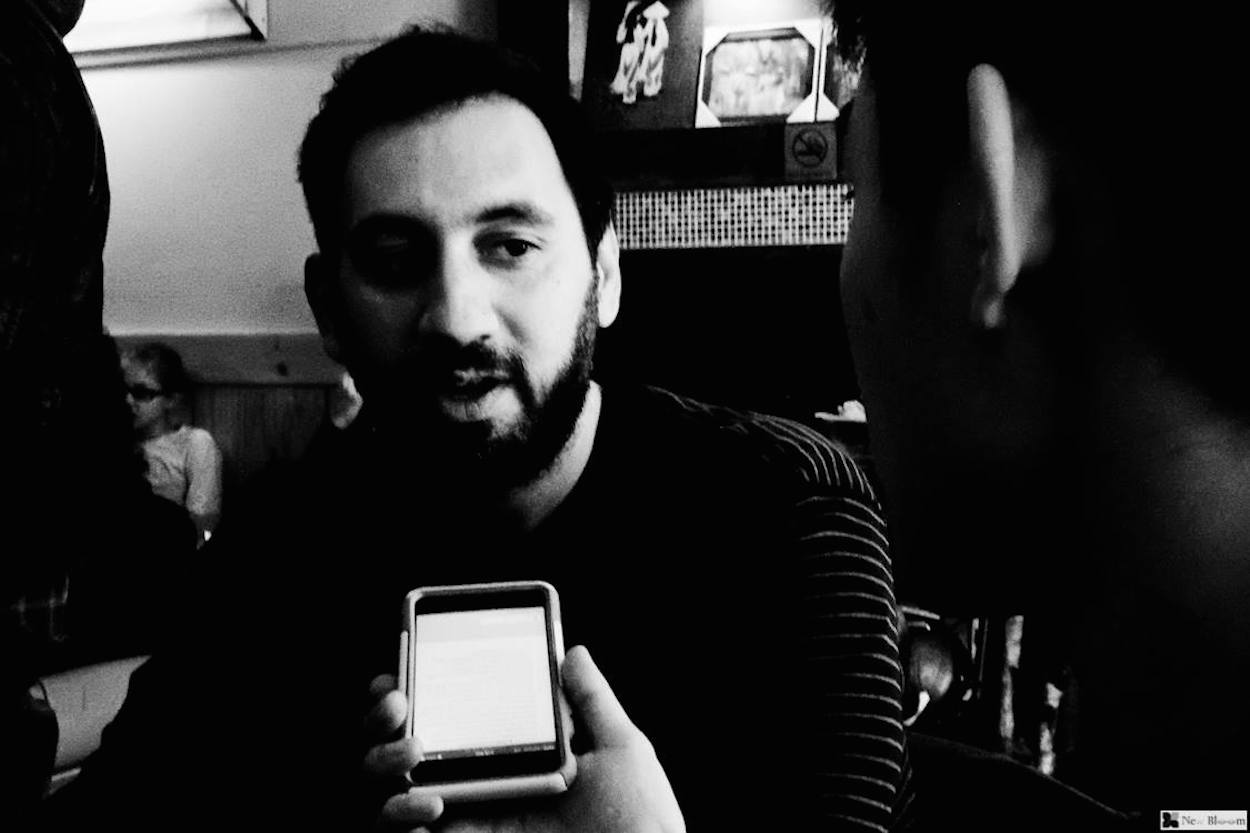 On November 8th, 2015, New Bloom interviewed Orestis Doulos of Greece’s Popular Unity Party, which was formed after a split from Syriza, regarding what lessons the Greek experience could have for Taiwan. Doulos was elected as an openly Marxist candidate as a councilor in New Philadelphia in Athens.
On November 8th, 2015, New Bloom interviewed Orestis Doulos of Greece’s Popular Unity Party, which was formed after a split from Syriza, regarding what lessons the Greek experience could have for Taiwan. Doulos was elected as an openly Marxist candidate as a councilor in New Philadelphia in Athens.
Recent Food Scandals and Taiwan’s Crony Capitalism Problem
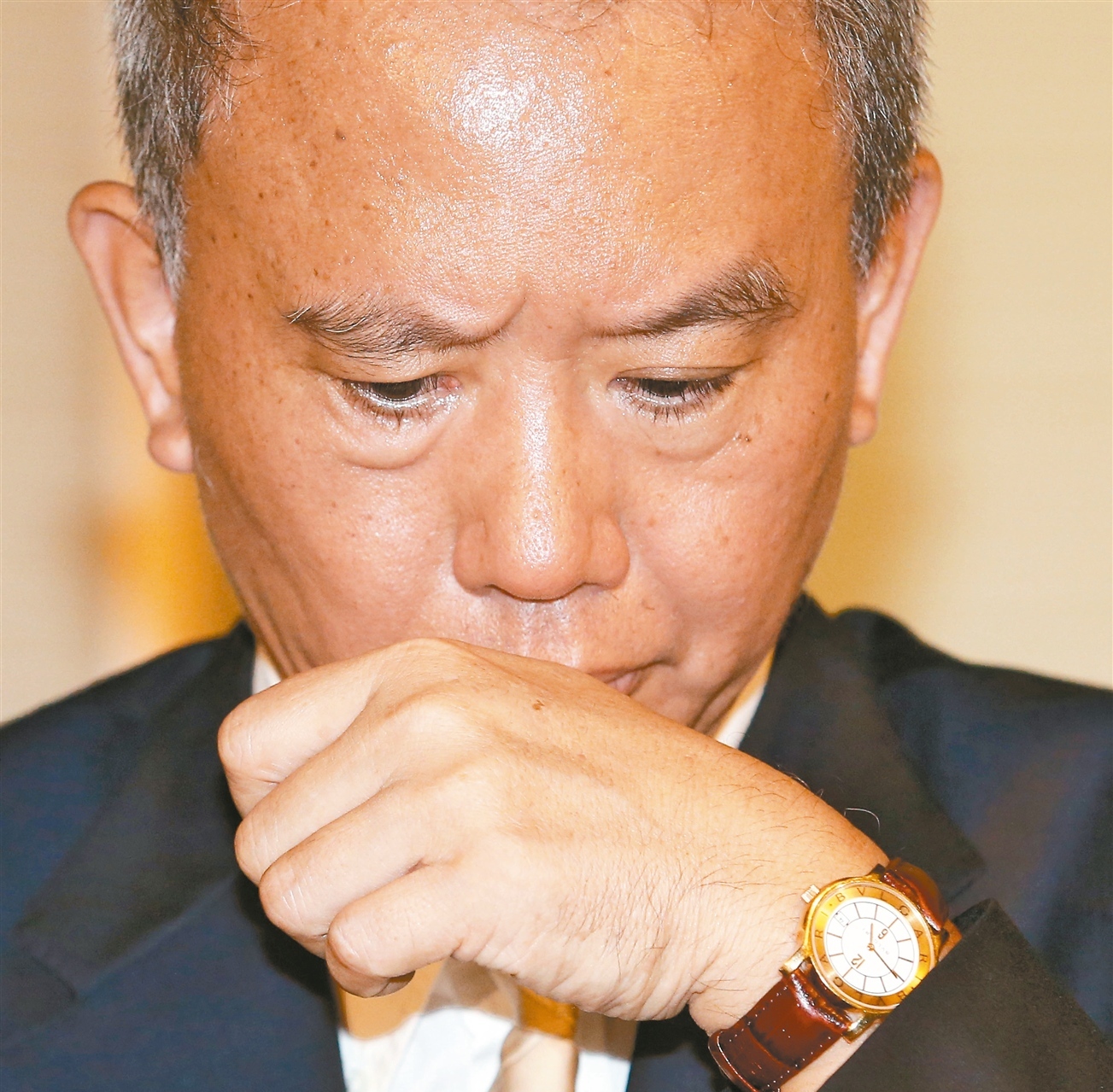 It is the collusion of the primarily KMT politicians with large, powerful corporations that allows for the repeated scandals such as the food scandals we have see in recent years. Namely, it would seem that Taiwan has a crony capitalism problem. Crony capitalism is defined as a form of capitalism in which close relations between businessmen and government officials is what allows for economic success.
It is the collusion of the primarily KMT politicians with large, powerful corporations that allows for the repeated scandals such as the food scandals we have see in recent years. Namely, it would seem that Taiwan has a crony capitalism problem. Crony capitalism is defined as a form of capitalism in which close relations between businessmen and government officials is what allows for economic success.
Hou Hsiao-Hsien’s “The Assassin” and The Pro-Unification Left
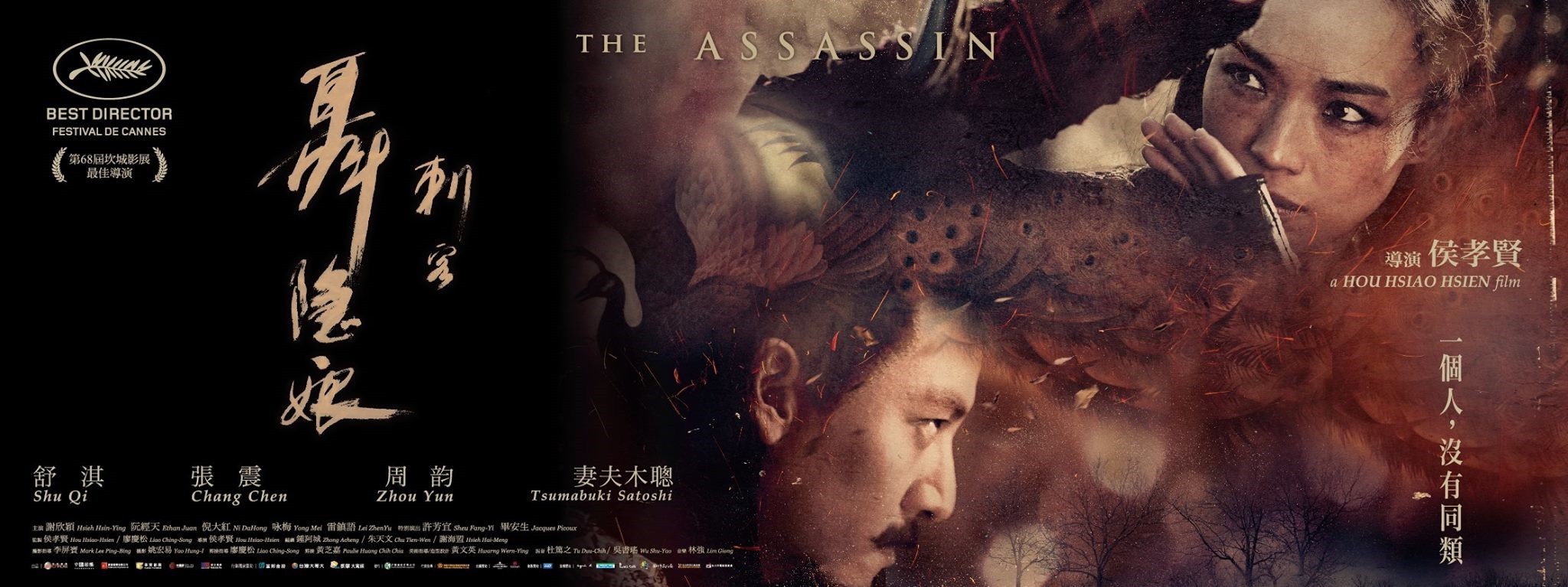 What are the politics that undergird Hou Hsiao-Hsien’s The Assassin, which has been much fêted on the film festival circuit? Are they ultimately the politics of Taiwan’s pro-unification Left? It is interesting to note that Hou Hsiao-Hsien first came to international attention because he was seen as a quintessentially “Taiwanese” film director, as the director of the first depiction of the White Terror in City of Sadness and in that way as an incisive critic of KMT authoritarianism. But in years since, Hou has gone from resisting the KMT to becoming a voice of the pro-unification Left.
What are the politics that undergird Hou Hsiao-Hsien’s The Assassin, which has been much fêted on the film festival circuit? Are they ultimately the politics of Taiwan’s pro-unification Left? It is interesting to note that Hou Hsiao-Hsien first came to international attention because he was seen as a quintessentially “Taiwanese” film director, as the director of the first depiction of the White Terror in City of Sadness and in that way as an incisive critic of KMT authoritarianism. But in years since, Hou has gone from resisting the KMT to becoming a voice of the pro-unification Left.
China, The End of One Child Policy, and the Demographic Trends of East Asian Capitalism
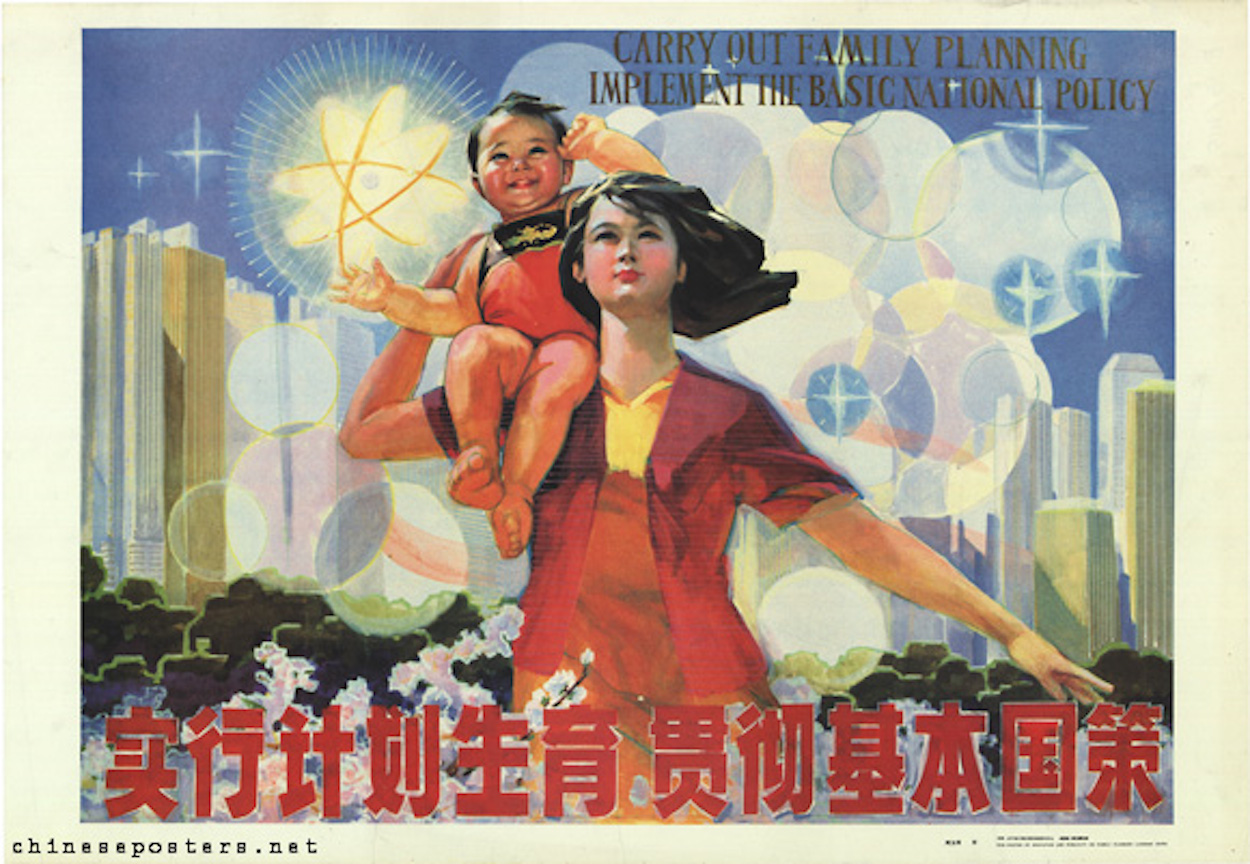 With the end of one child policy, we might note the slide of China into sociological phenomena which we see in countries which have followed the East Asian developmental model of capitalism. Though there are those who argue that the successes of the so-called “Chinese model” lay precisely in the social structures which have survived from the Maoist era into the present, but now we see that China is apparently facing social ills which result from the uneven overlap of its Maoist past and capitalist present.
With the end of one child policy, we might note the slide of China into sociological phenomena which we see in countries which have followed the East Asian developmental model of capitalism. Though there are those who argue that the successes of the so-called “Chinese model” lay precisely in the social structures which have survived from the Maoist era into the present, but now we see that China is apparently facing social ills which result from the uneven overlap of its Maoist past and capitalist present.
The Knight, the Fairy, and the Cult Leader
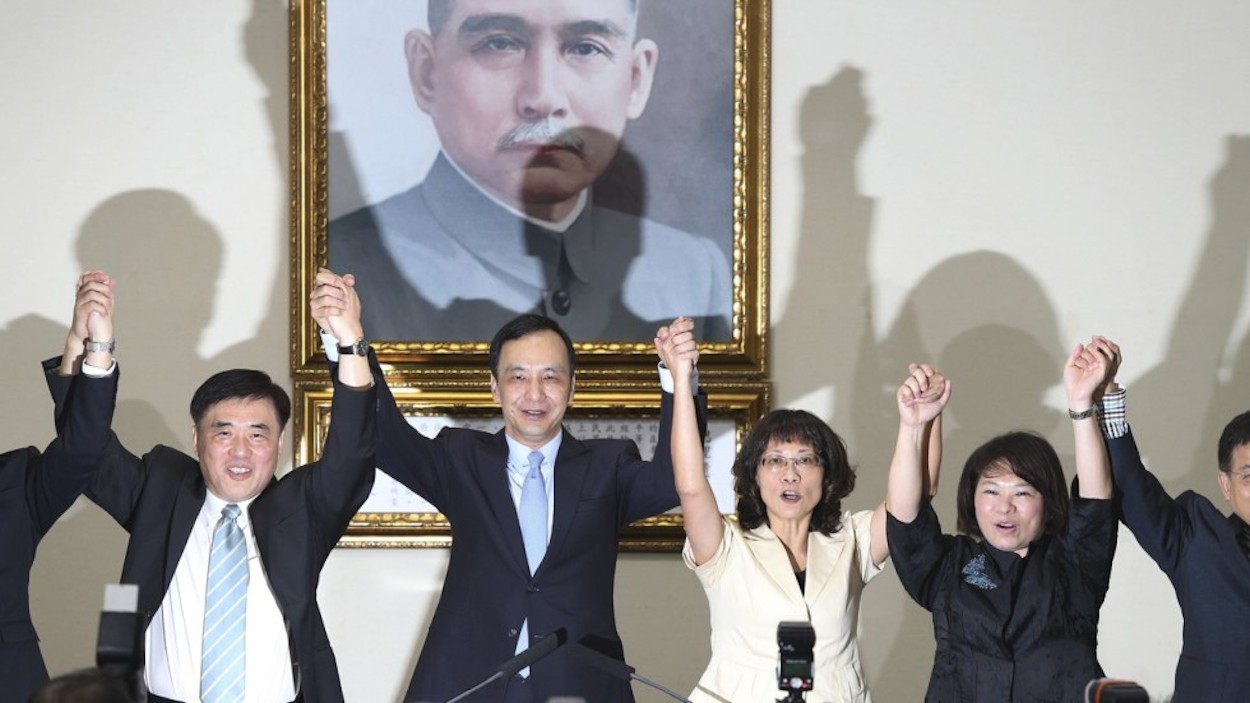 For those used to election cycles elsewhere, it may be surprising for Taiwan’s political parties to announce their respective vice presidential candidate so late into the 2016 election cycle. Yet, in consideration of that one would have thought the KMT would be more prudent with its choice given that Eric Chu is running at about 19% at the polls compared to Tsai at 45%, we might cross-examine the vice presidential candidates of the DPP, KMT, and PFP—who have been labelled by netizens as the “Knight”, the “Fairy”, and the “Cult Leader” respectively.
For those used to election cycles elsewhere, it may be surprising for Taiwan’s political parties to announce their respective vice presidential candidate so late into the 2016 election cycle. Yet, in consideration of that one would have thought the KMT would be more prudent with its choice given that Eric Chu is running at about 19% at the polls compared to Tsai at 45%, we might cross-examine the vice presidential candidates of the DPP, KMT, and PFP—who have been labelled by netizens as the “Knight”, the “Fairy”, and the “Cult Leader” respectively.
A Young Woman’s March Towards the Legislative Yuan: Interview with Hung Tzu-Yung (洪慈庸)
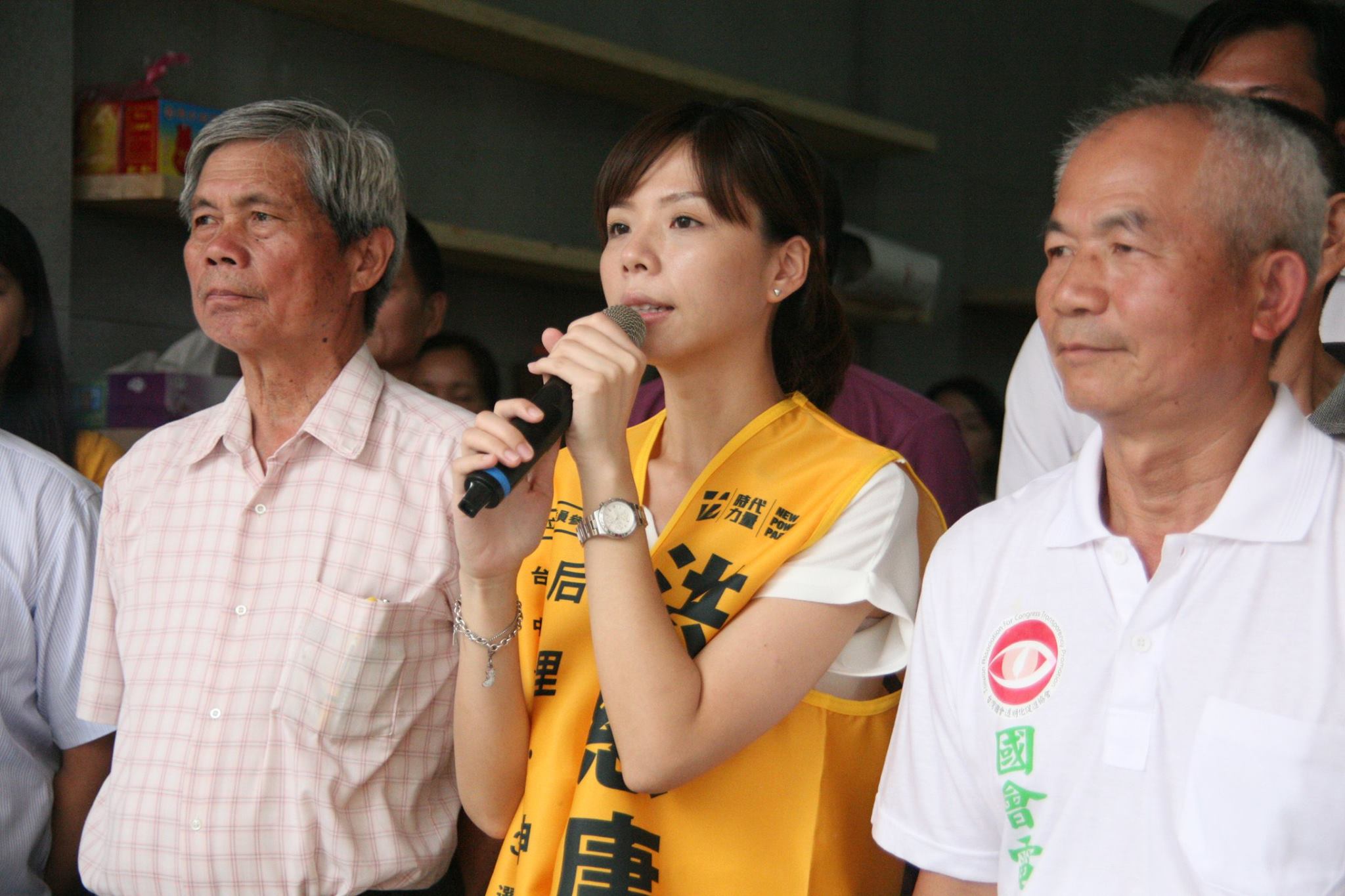 The Hung Chung-Chiu Incident changed Hung Tzu-Yung’s ’s life plans. After Freddy Lim’s tireless recruiting efforts, Hung decided to join the New Power Party. She hopes to avoid the the major parties’ regulations and work with her partners to create an ideal environment. She is running for legislator in Taichung District 3. The following interview was originally conducted in late October.
The Hung Chung-Chiu Incident changed Hung Tzu-Yung’s ’s life plans. After Freddy Lim’s tireless recruiting efforts, Hung decided to join the New Power Party. She hopes to avoid the the major parties’ regulations and work with her partners to create an ideal environment. She is running for legislator in Taichung District 3. The following interview was originally conducted in late October.
The Power of Anti-Ma Ying-jeou and KMT Facebook Fan Pages
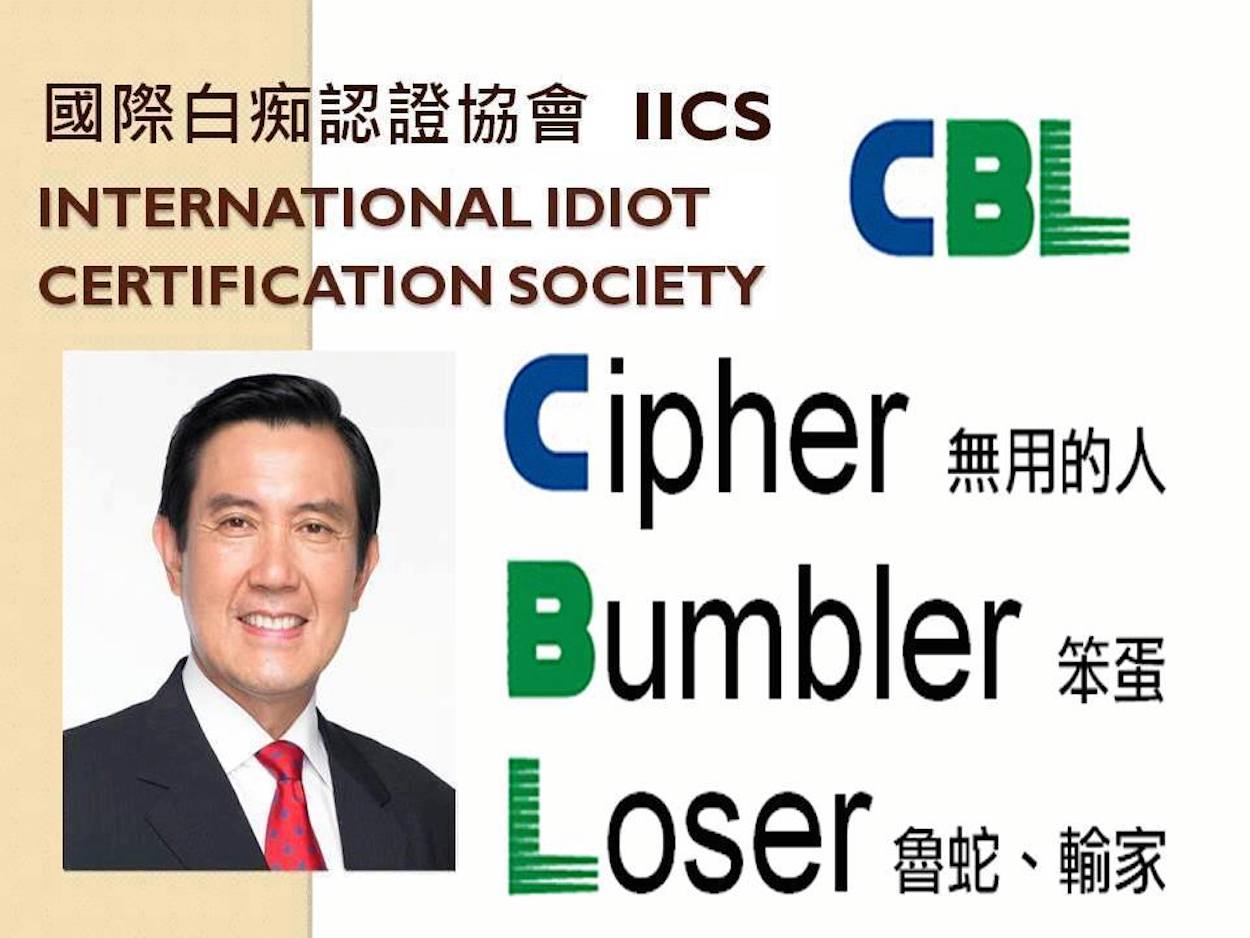 KMT Legislator Lu Shiow-yen’s remarks comparing violence in France and Syria to cross-strait relations has incurred the wrath of Taiwan’s powerful Anti-President Ma and Anti-KMT Facebook fan pages.
KMT Legislator Lu Shiow-yen’s remarks comparing violence in France and Syria to cross-strait relations has incurred the wrath of Taiwan’s powerful Anti-President Ma and Anti-KMT Facebook fan pages.
Interview: Tree Party (樹黨)
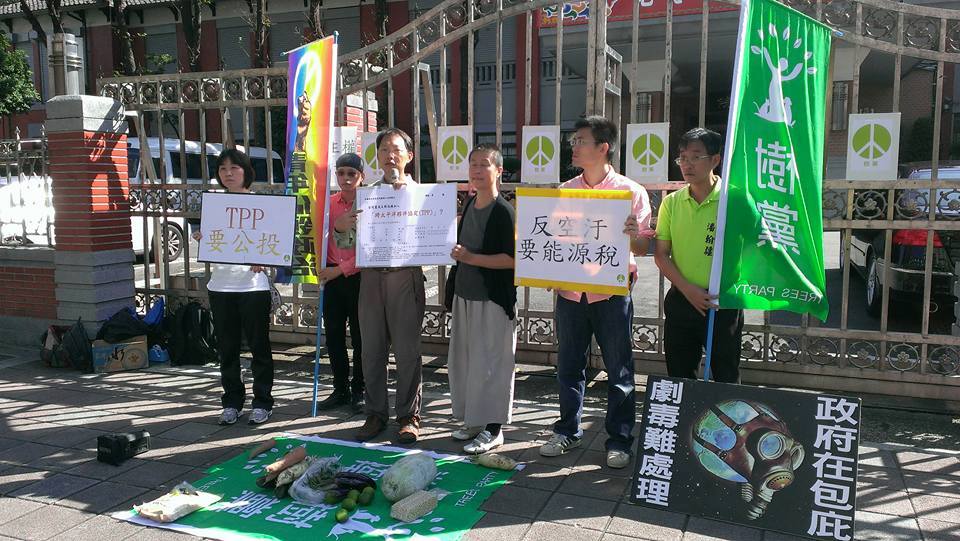 In early August, New Bloom editor Brian Hioe interviewed two candidates of the Tree Party, Laurence Chen and Pan Han-Sheng.
In early August, New Bloom editor Brian Hioe interviewed two candidates of the Tree Party, Laurence Chen and Pan Han-Sheng.
Current Demonstrations in South Korea and Asia’s Past Year of Protests
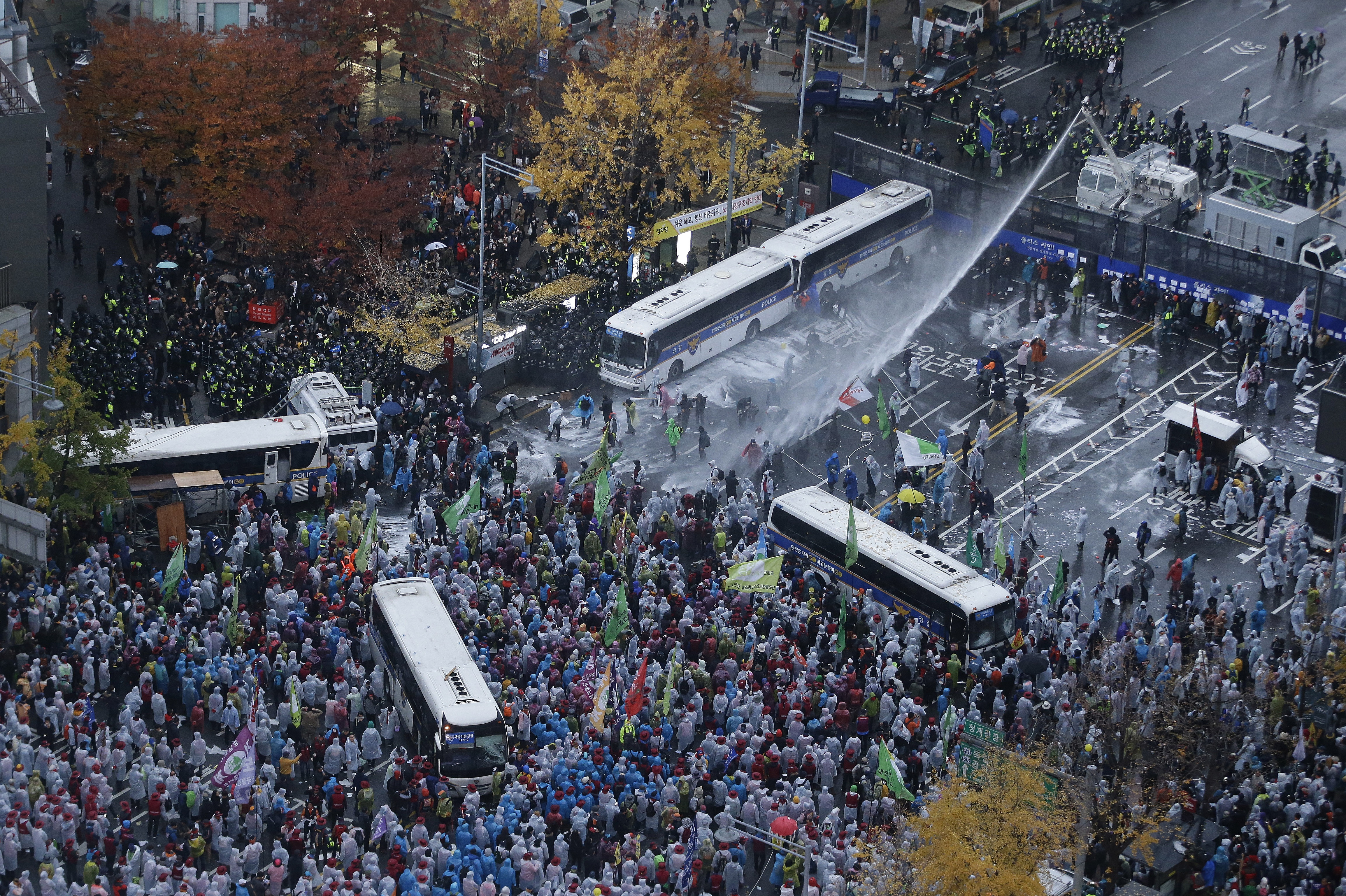 Current protests in South Korea cannot help but appear familiar for Taiwanese activists, with between 60,000 to 130,000 South Koreans taking to the streets to demonstrate the Park Geun-hye government on Saturday. What strikes as reminiscent are the set of issues motivating protestors to demonstrate; namely, a right-wing government with an authoritarian past seeking to whitewash its crimes through new high school textbooks. But Asia’s past year seems to have been a year of protest. And we see this now in South Korea. Are there deeper causes?
Current protests in South Korea cannot help but appear familiar for Taiwanese activists, with between 60,000 to 130,000 South Koreans taking to the streets to demonstrate the Park Geun-hye government on Saturday. What strikes as reminiscent are the set of issues motivating protestors to demonstrate; namely, a right-wing government with an authoritarian past seeking to whitewash its crimes through new high school textbooks. But Asia’s past year seems to have been a year of protest. And we see this now in South Korea. Are there deeper causes?
The “Subway Racist” Viral Video and Questions of the “Other” in Taiwan
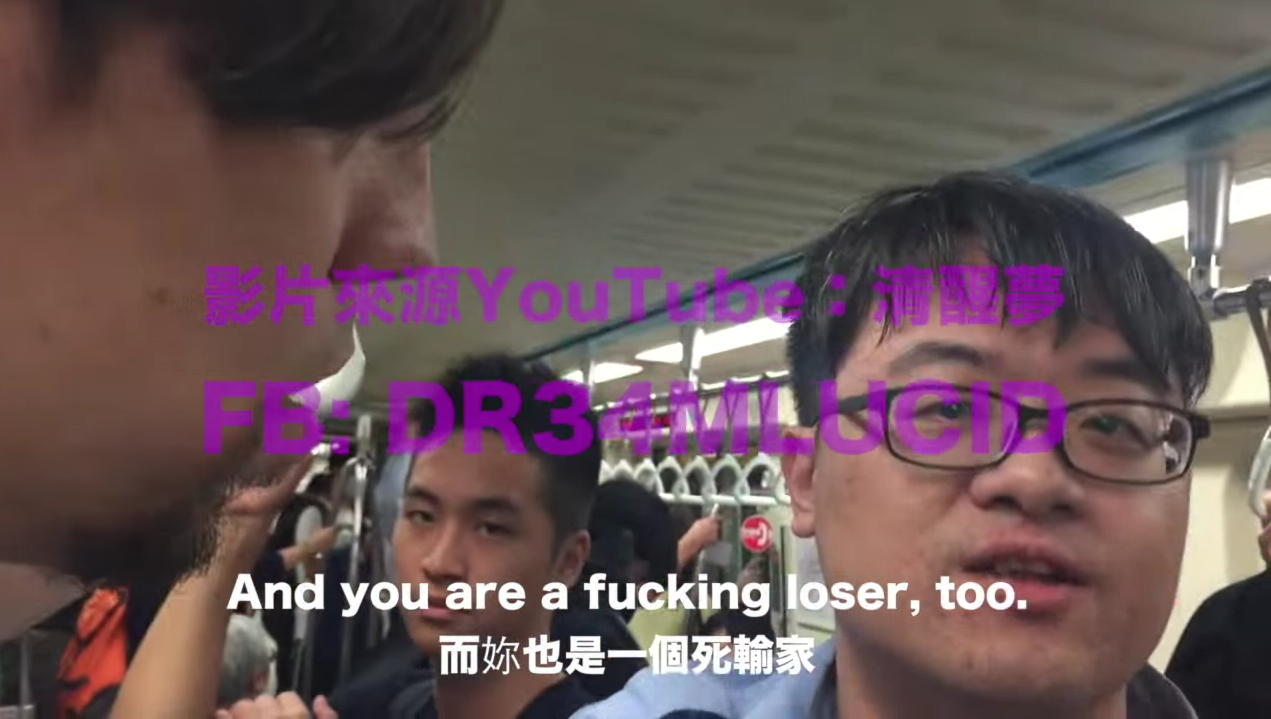 How might we look at the recent “subway racist’ viral video critically through the lens of race? We might focus on two aspects of the incident. First, the contradictory statements of the “subway racist” himself, are worthy of discussion. Second, we might discuss the responses to the event by the Taiwanese public, expats living in Taiwan, and international responses.
How might we look at the recent “subway racist’ viral video critically through the lens of race? We might focus on two aspects of the incident. First, the contradictory statements of the “subway racist” himself, are worthy of discussion. Second, we might discuss the responses to the event by the Taiwanese public, expats living in Taiwan, and international responses.
After the Ma-Xi Meeting, Do You Still Think Taiwan Is Under the ROC Framework?
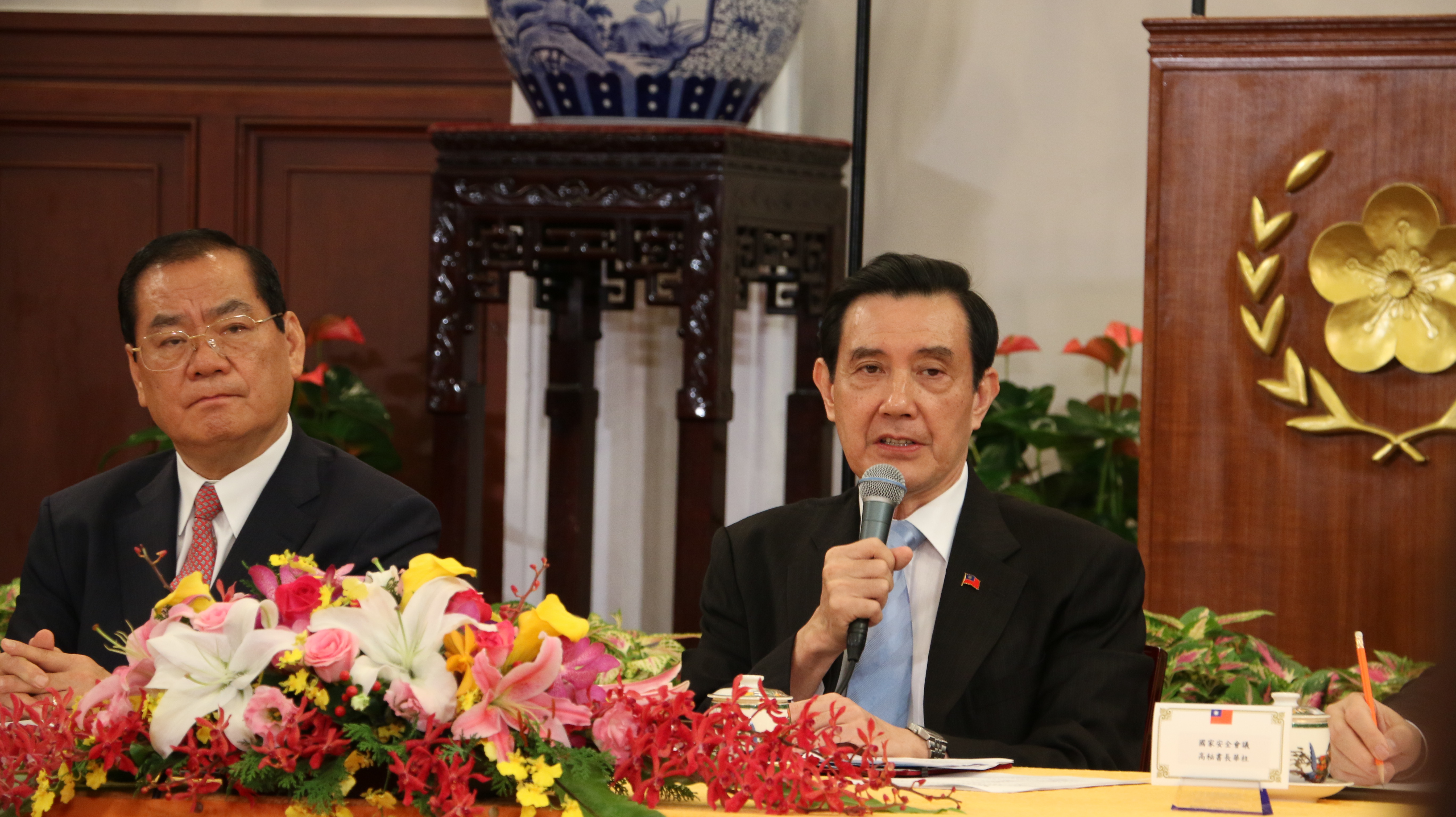 Many Taiwanese finally realize that they have been tricked into the frame of ROC. Let’s put the “1992 Consensus” or the upcoming “2015 Consensus” aside. Despite that Taiwanese has been fighting against KMT since 1945, when they shifted the ROC to Taiwan, Taiwanese ultimately accepted this regime till now.
Many Taiwanese finally realize that they have been tricked into the frame of ROC. Let’s put the “1992 Consensus” or the upcoming “2015 Consensus” aside. Despite that Taiwanese has been fighting against KMT since 1945, when they shifted the ROC to Taiwan, Taiwanese ultimately accepted this regime till now.
From Regional to National Movement: The Thailand Democracy Movement in Isan
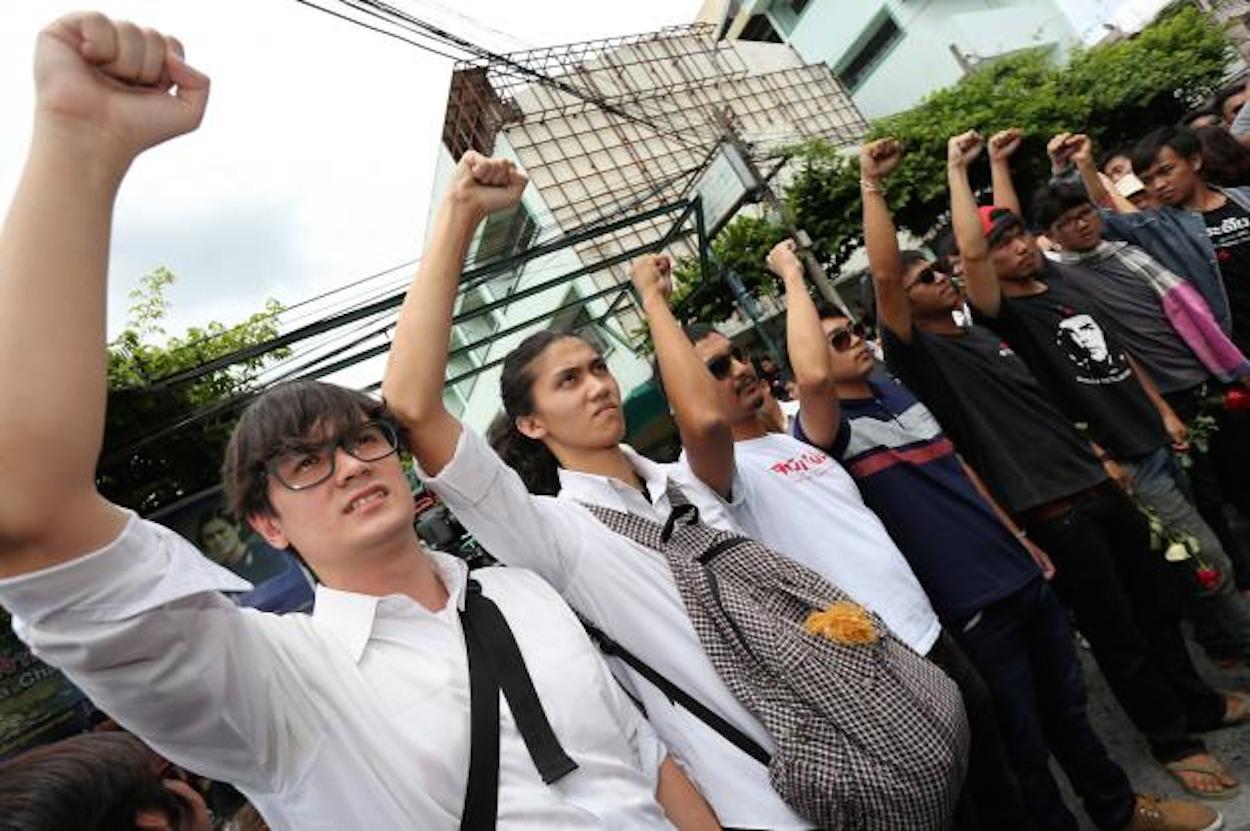 Though less discussed as other student movements of the past year in Asia as the Sunflower Movement and Umbrella Movement, we might look at the student activists of Thailand’s democracy movement. Dao Din is a circle of law students whose initial mission was to help locals protect the environment. Since then, Dao Din has expanded into demonstrating the military junta which seized power in the 2014 coup.
Though less discussed as other student movements of the past year in Asia as the Sunflower Movement and Umbrella Movement, we might look at the student activists of Thailand’s democracy movement. Dao Din is a circle of law students whose initial mission was to help locals protect the environment. Since then, Dao Din has expanded into demonstrating the military junta which seized power in the 2014 coup.
Singles’ Day and the Commercialization of Holidays
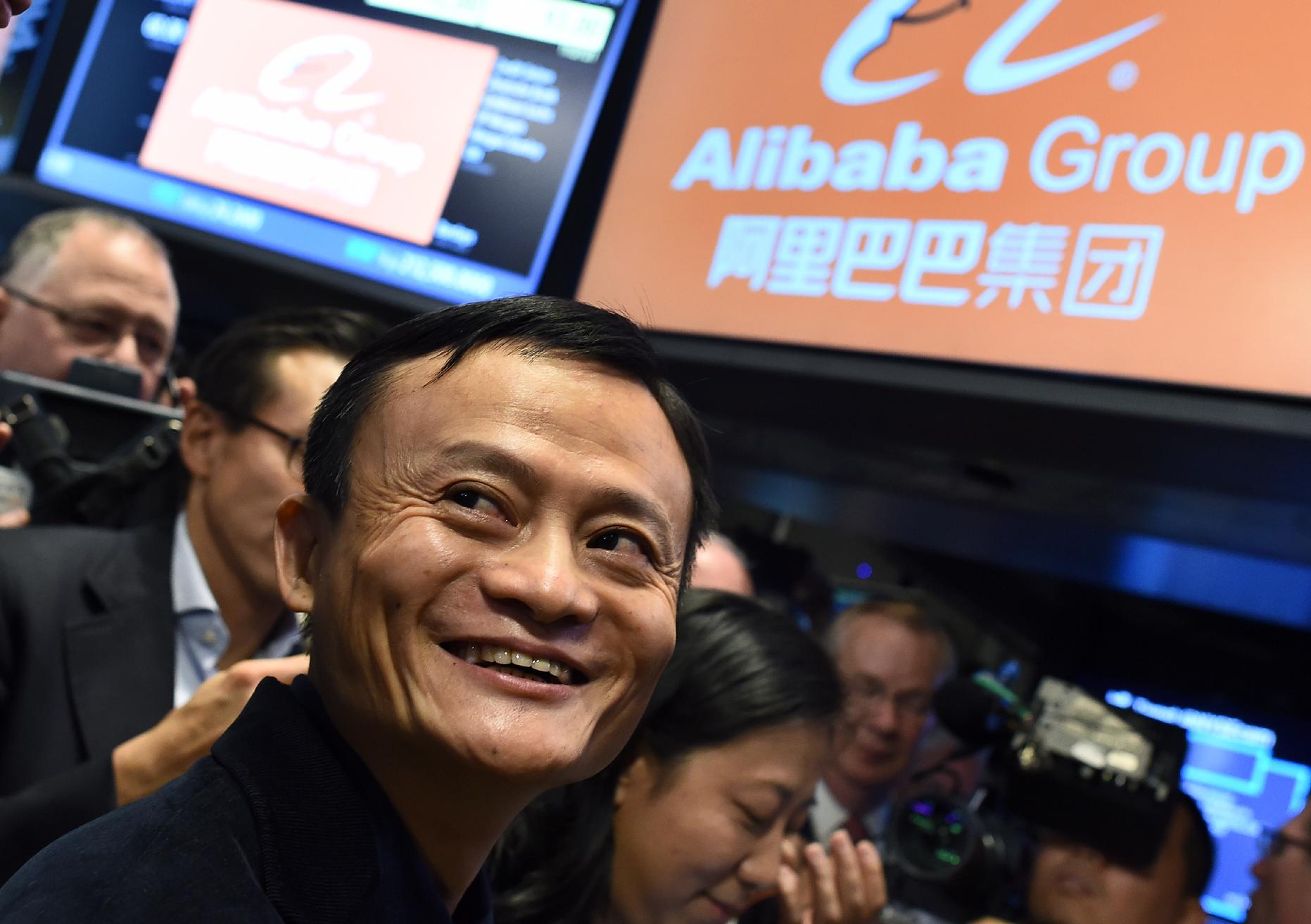 While we marvel at the rampancy of consumerism during Singles’ Day, it is useful for us to reflect on the reason for the existence of commercialized holidays as one of the warning signs of capitalism’s crisis of overproduction. Here, we might work with a starting point of the Marxist observation of overproduction of goods under capitalist mode of production, the need for creation of demand through a variety of means, and the invention of commercialized holidays as an advertising method.
While we marvel at the rampancy of consumerism during Singles’ Day, it is useful for us to reflect on the reason for the existence of commercialized holidays as one of the warning signs of capitalism’s crisis of overproduction. Here, we might work with a starting point of the Marxist observation of overproduction of goods under capitalist mode of production, the need for creation of demand through a variety of means, and the invention of commercialized holidays as an advertising method.
Is No News Good News?
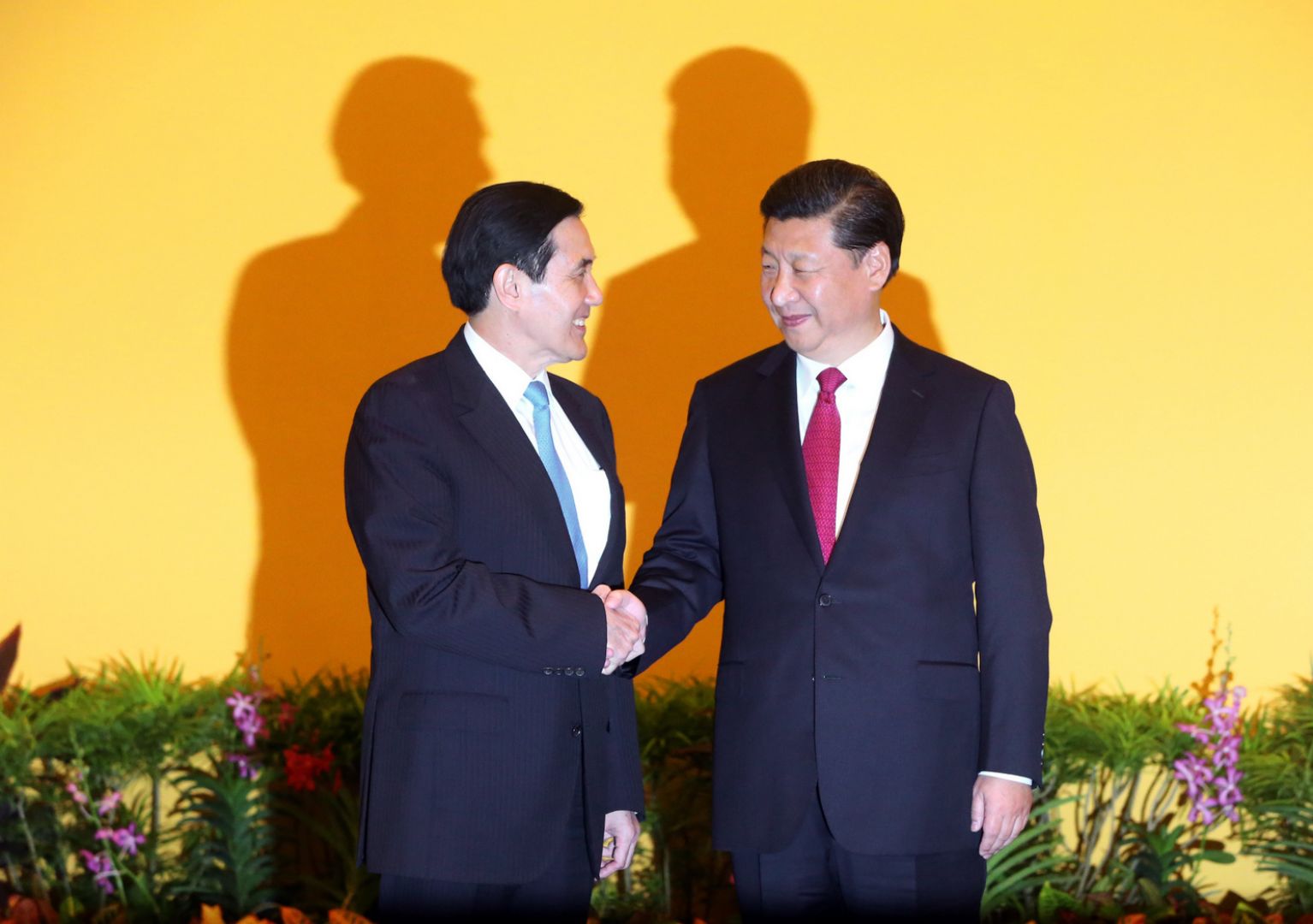 To what extent does the international media have a responsibility to report beyond the official line of the “progress” and “stability” and fairly represent the polarized and confrontational opinions finding expression within the debate amongst the political active elements of Taiwanese civil society?
To what extent does the international media have a responsibility to report beyond the official line of the “progress” and “stability” and fairly represent the polarized and confrontational opinions finding expression within the debate amongst the political active elements of Taiwanese civil society?
Facebook Suddenly Unblocked in China, Tsai Ing-Wen’s Facebook Page Flooded by ‘Fifty Cent Army’
 After sudden unblocking of Facebook in China for a day, DPP presidential candidate Tsai Ing-Wen’s Facebook page was flooded by posts attacking Tsai or claiming that Taiwan is part of China. In response, Tsai Ing-Wen released an image on her Facebook pointing to where such users were coming from and “welcoming” Chinese users to democracy. What does this reveal about politics and the Internet in the present?
After sudden unblocking of Facebook in China for a day, DPP presidential candidate Tsai Ing-Wen’s Facebook page was flooded by posts attacking Tsai or claiming that Taiwan is part of China. In response, Tsai Ing-Wen released an image on her Facebook pointing to where such users were coming from and “welcoming” Chinese users to democracy. What does this reveal about politics and the Internet in the present?
其實非關台灣,只和習近平有關
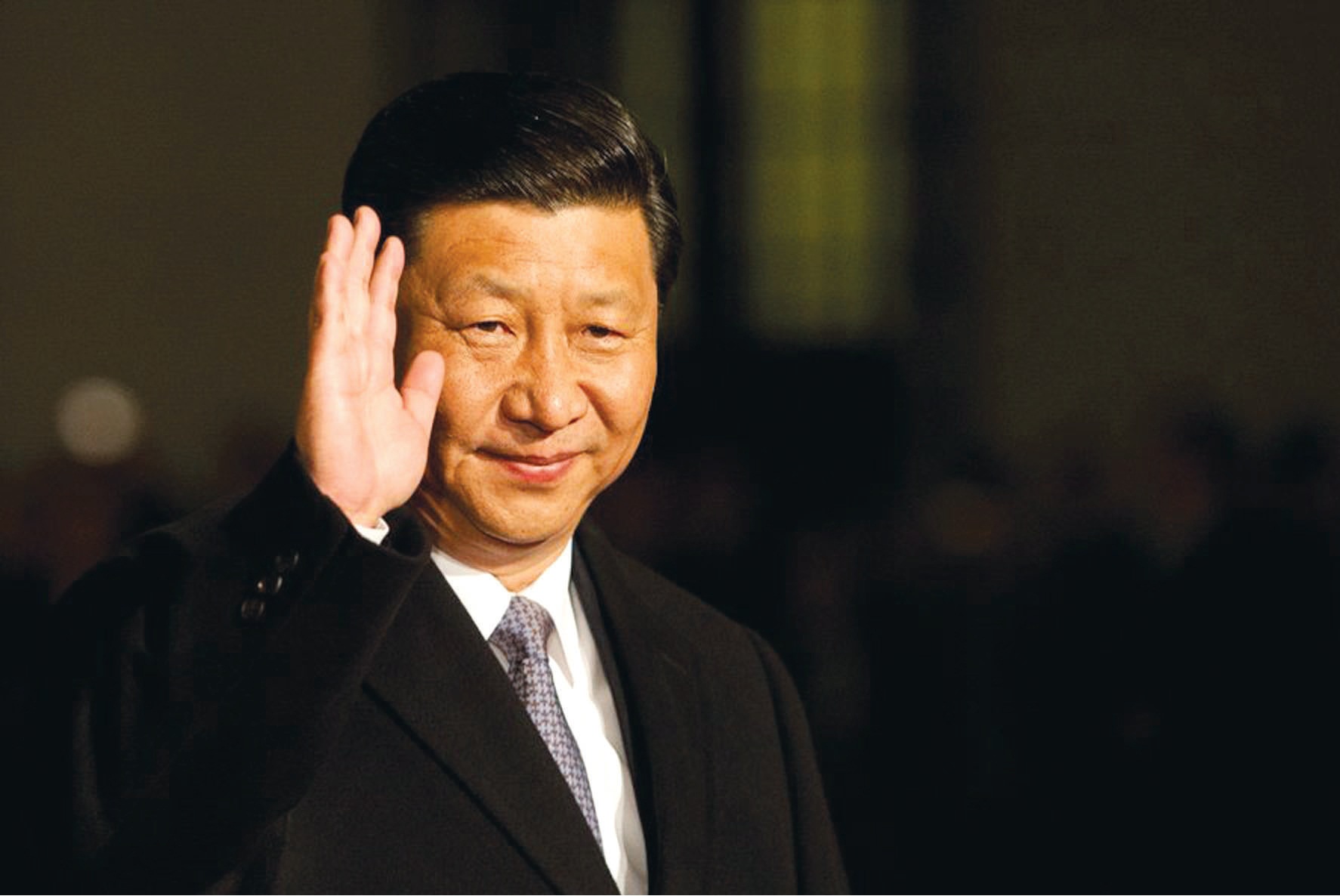 我們花了太多心思從台灣大選觀點探討馬習會了。倘若馬習會真是為了搶救國民黨選情,那麼兩人對談時至少應該提及朱立倫或是有所暗示,但根本沒人提到他。倘若這次會面是為了把蔡英文固定在專指一個中國的「現狀」之中,台灣人民卻也沒有要求她做出甚麼有力回應。因此,這場馬習會恐怕不是為了幫助馬英九和台灣的國民黨,它大概是為了幫助習近平確立他目前對中國和全世界的影響力,並且在國際社會進一步孤立台灣而舉行的。
我們花了太多心思從台灣大選觀點探討馬習會了。倘若馬習會真是為了搶救國民黨選情,那麼兩人對談時至少應該提及朱立倫或是有所暗示,但根本沒人提到他。倘若這次會面是為了把蔡英文固定在專指一個中國的「現狀」之中,台灣人民卻也沒有要求她做出甚麼有力回應。因此,這場馬習會恐怕不是為了幫助馬英九和台灣的國民黨,它大概是為了幫助習近平確立他目前對中國和全世界的影響力,並且在國際社會進一步孤立台灣而舉行的。
It’s Not About Taiwan, It’s All About Xi
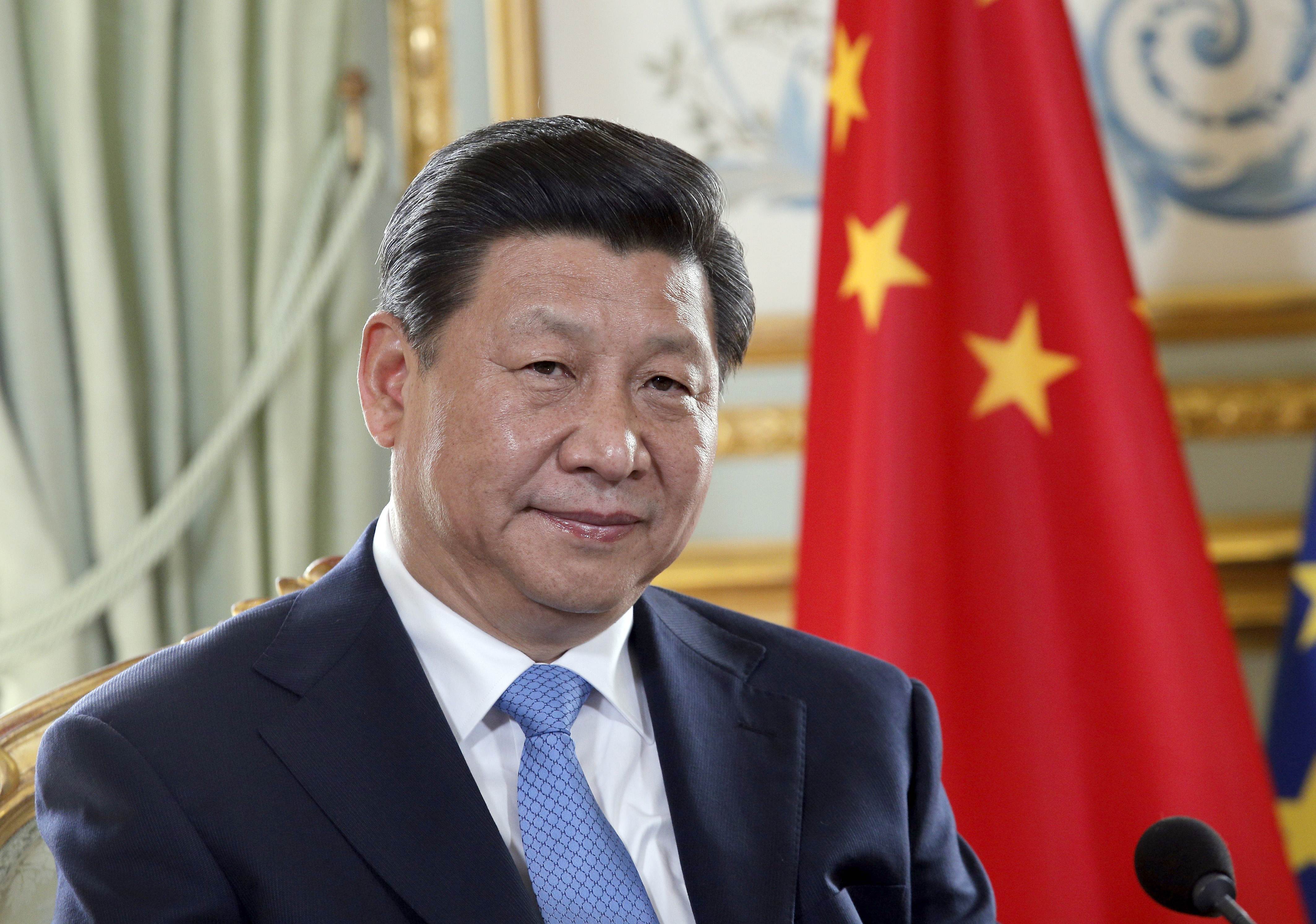 We analyze too much from the point of view of the elections. If this meeting meant to salvage the election, then Eric Chu at the very least should have been brought into the conversation or hinted at, but he was nowhere to be seen. If this meeting meant to lock Tsai Ing-wen into committing to a status quo referring to One China, Taiwanese did not demand much answers from her. Therefore, it might be that this meeting was not meant to help Ma and the KMT in Taiwan. Maybe it is meant to help Xi secure his present influence in both China and the world, and to further isolate Taiwan from the international community.
We analyze too much from the point of view of the elections. If this meeting meant to salvage the election, then Eric Chu at the very least should have been brought into the conversation or hinted at, but he was nowhere to be seen. If this meeting meant to lock Tsai Ing-wen into committing to a status quo referring to One China, Taiwanese did not demand much answers from her. Therefore, it might be that this meeting was not meant to help Ma and the KMT in Taiwan. Maybe it is meant to help Xi secure his present influence in both China and the world, and to further isolate Taiwan from the international community.
Article on Impeaching President before Ma-Xi Summit Censored
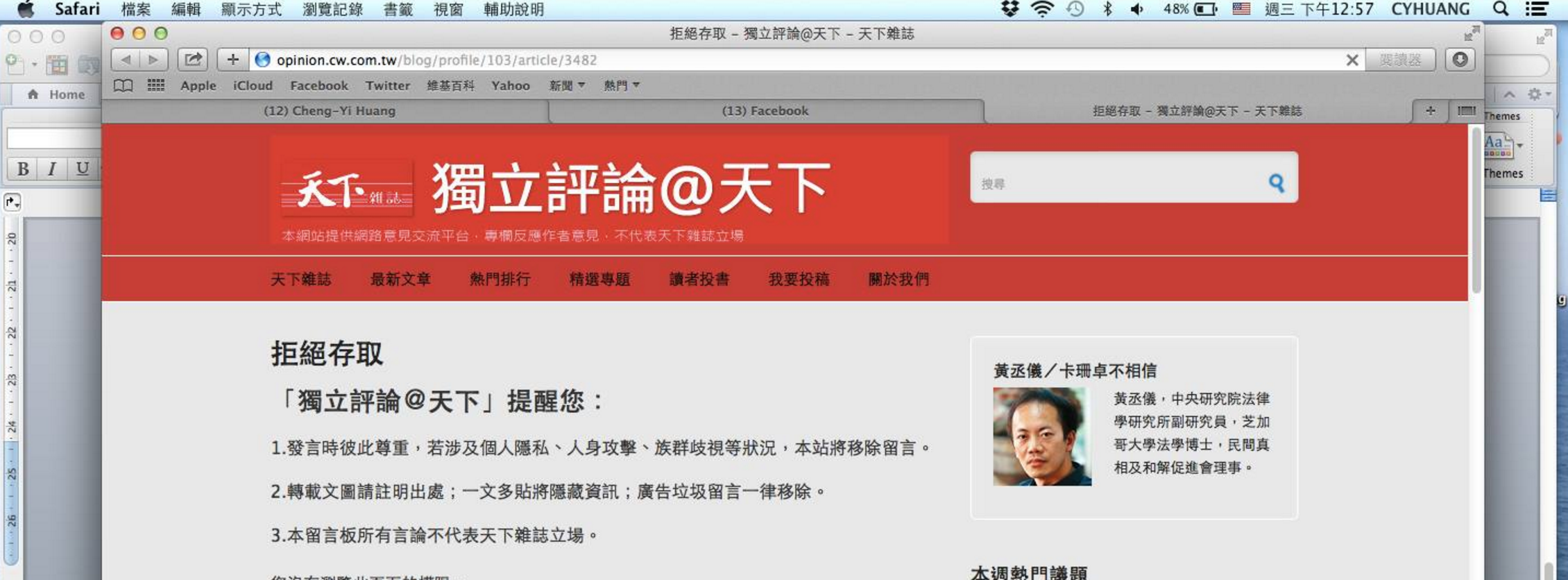 As news reports and analysis of the Ma-Xi meeting were flooding news networks around the world, a story about the loss of freedom of speech for one Taiwanese law scholar was being shared wildly on Taiwanese Facebook feeds. A column published on Taiwan’s Commonwealth Magazine’s Opinion web page written by Cheng-yi Huang was taken down by site administrators, citing a need for society to “strictly and fully understand the Ma-Xi meeting”. Huang’s article, titled “The Legislative Yuan should impeach the President immediately”, offered a scathing critique of Ma’s plan to meet with China President Xi Jinping without first briefing Taiwan’s Legislative Yuan about the matter and advised Taiwanese legislators to begin impeachment proceedings in order to stop Ma from going through with the meeting.
As news reports and analysis of the Ma-Xi meeting were flooding news networks around the world, a story about the loss of freedom of speech for one Taiwanese law scholar was being shared wildly on Taiwanese Facebook feeds. A column published on Taiwan’s Commonwealth Magazine’s Opinion web page written by Cheng-yi Huang was taken down by site administrators, citing a need for society to “strictly and fully understand the Ma-Xi meeting”. Huang’s article, titled “The Legislative Yuan should impeach the President immediately”, offered a scathing critique of Ma’s plan to meet with China President Xi Jinping without first briefing Taiwan’s Legislative Yuan about the matter and advised Taiwanese legislators to begin impeachment proceedings in order to stop Ma from going through with the meeting.
Before the Ma-Xi Summit, Did Commonwealth Magazine “Harmonize” my Article?
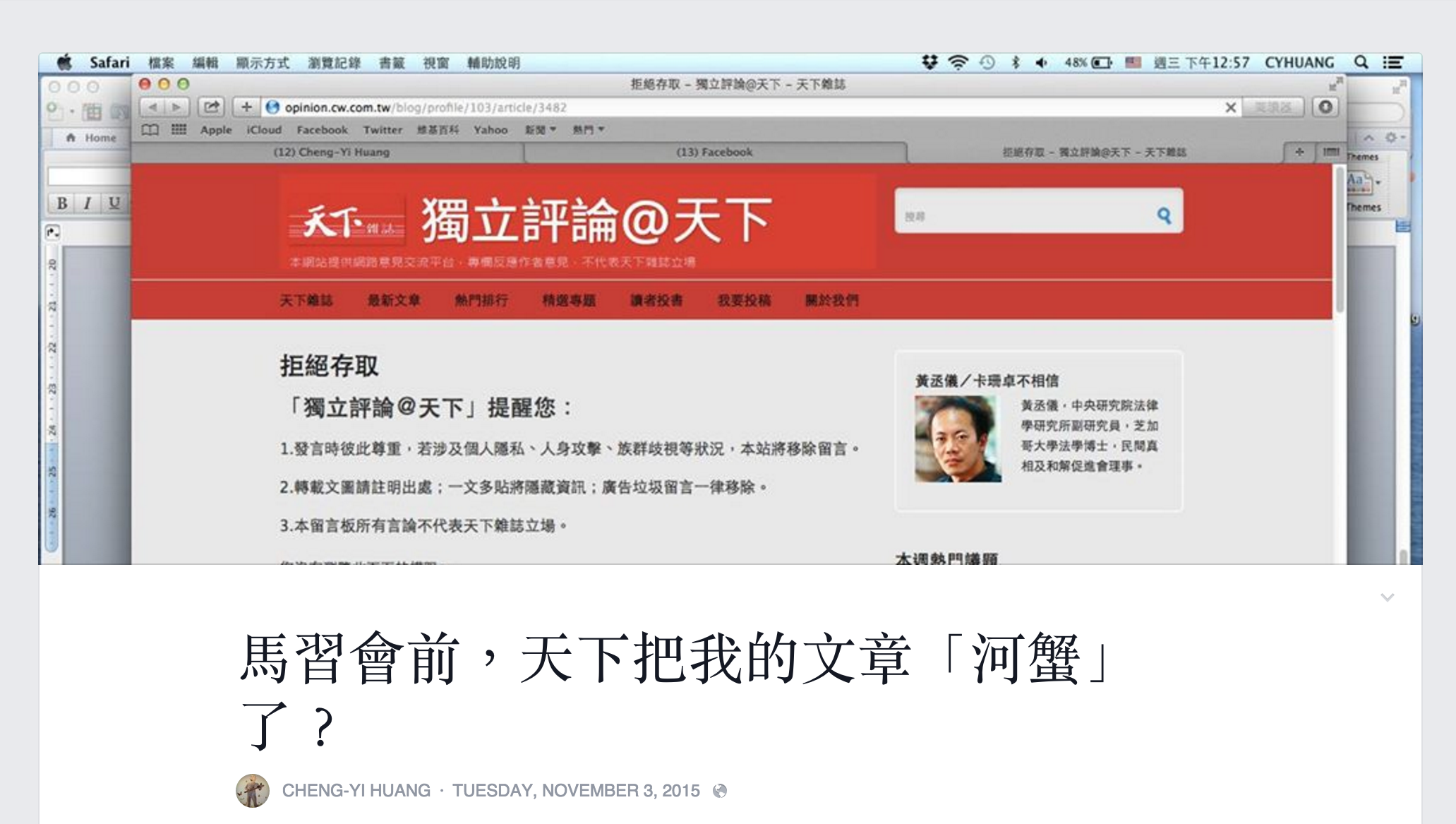 Because a lot of my friends have asked me, how come we can’t see your article “Should the Legislative Yuan promptly impeach Ma Ying-jeou?” on “Opinions@Commonwealth”, I simply had to make an explanation.
Because a lot of my friends have asked me, how come we can’t see your article “Should the Legislative Yuan promptly impeach Ma Ying-jeou?” on “Opinions@Commonwealth”, I simply had to make an explanation.
The Legislative Yuan Should Impeach President Ma Immediately
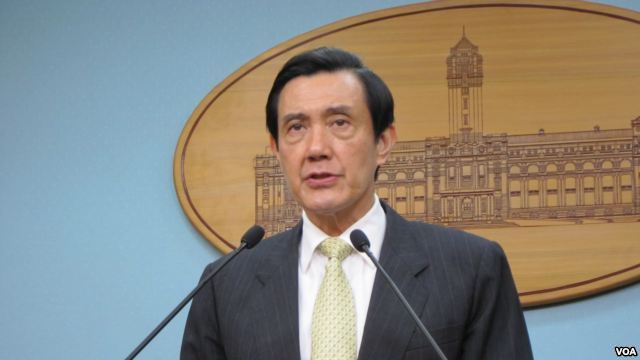 President Ma’s reckless political behavior has already violated his pledge of “observ[ing] the constitution [and] faithfully perform[ing] my duties”, and has reached the level where impeachment proceedings should take place.
President Ma’s reckless political behavior has already violated his pledge of “observ[ing] the constitution [and] faithfully perform[ing] my duties”, and has reached the level where impeachment proceedings should take place.
The Taipei Pride Parade: Not Yet a ‘Gay Utopia’?
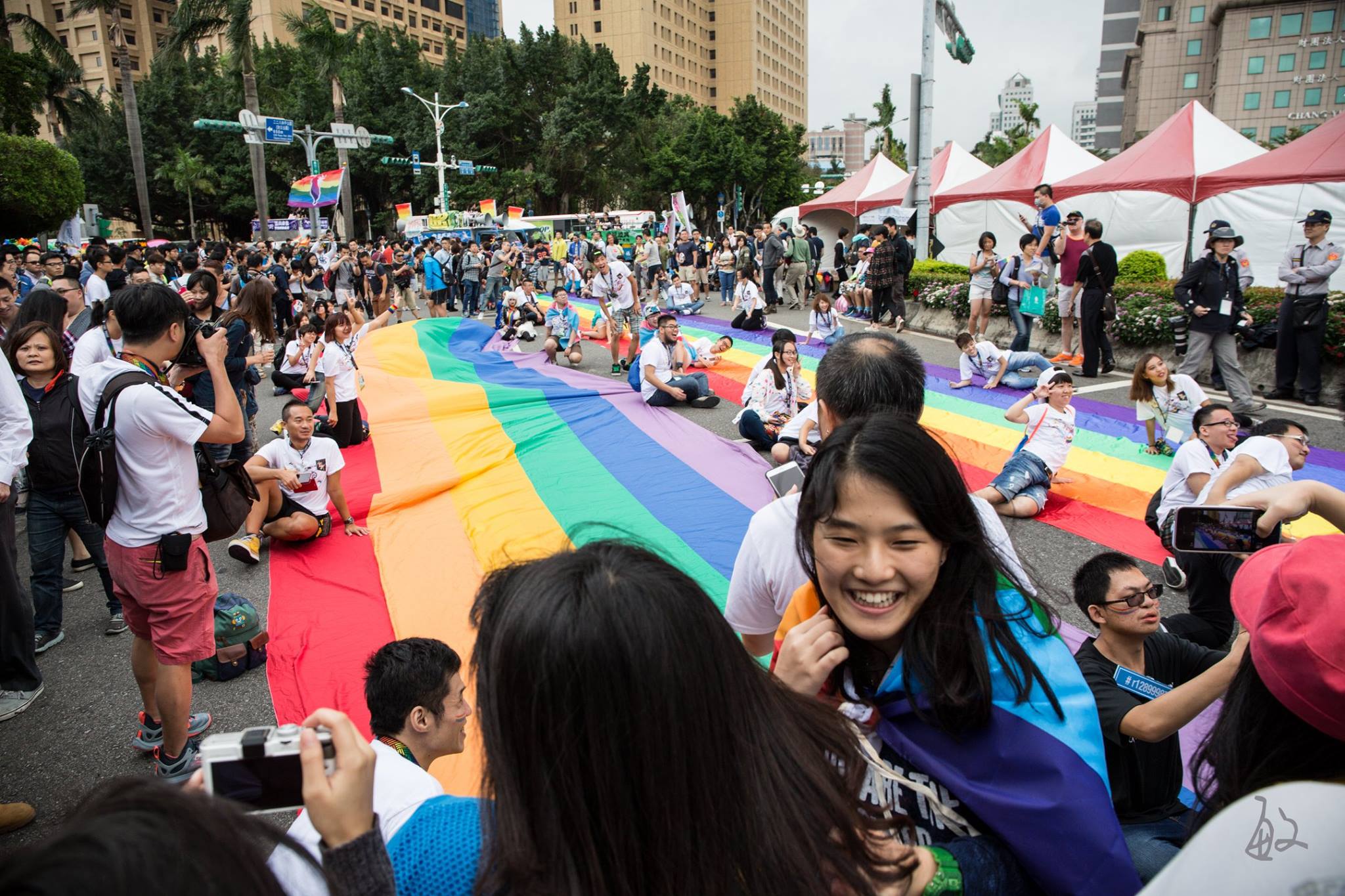 The gay pride parade which is held yearly in Taipei took place this past Saturday. We might use the occasion to more broadly look at the current state of LGBTQ politics in Taiwan. Perhaps it is that Taiwan is still far from being the “gay utopia” it is sometimes touted as being relative to other Asian countries.
The gay pride parade which is held yearly in Taipei took place this past Saturday. We might use the occasion to more broadly look at the current state of LGBTQ politics in Taiwan. Perhaps it is that Taiwan is still far from being the “gay utopia” it is sometimes touted as being relative to other Asian countries.
The Transformation of Modern Chinese Landscape Painting
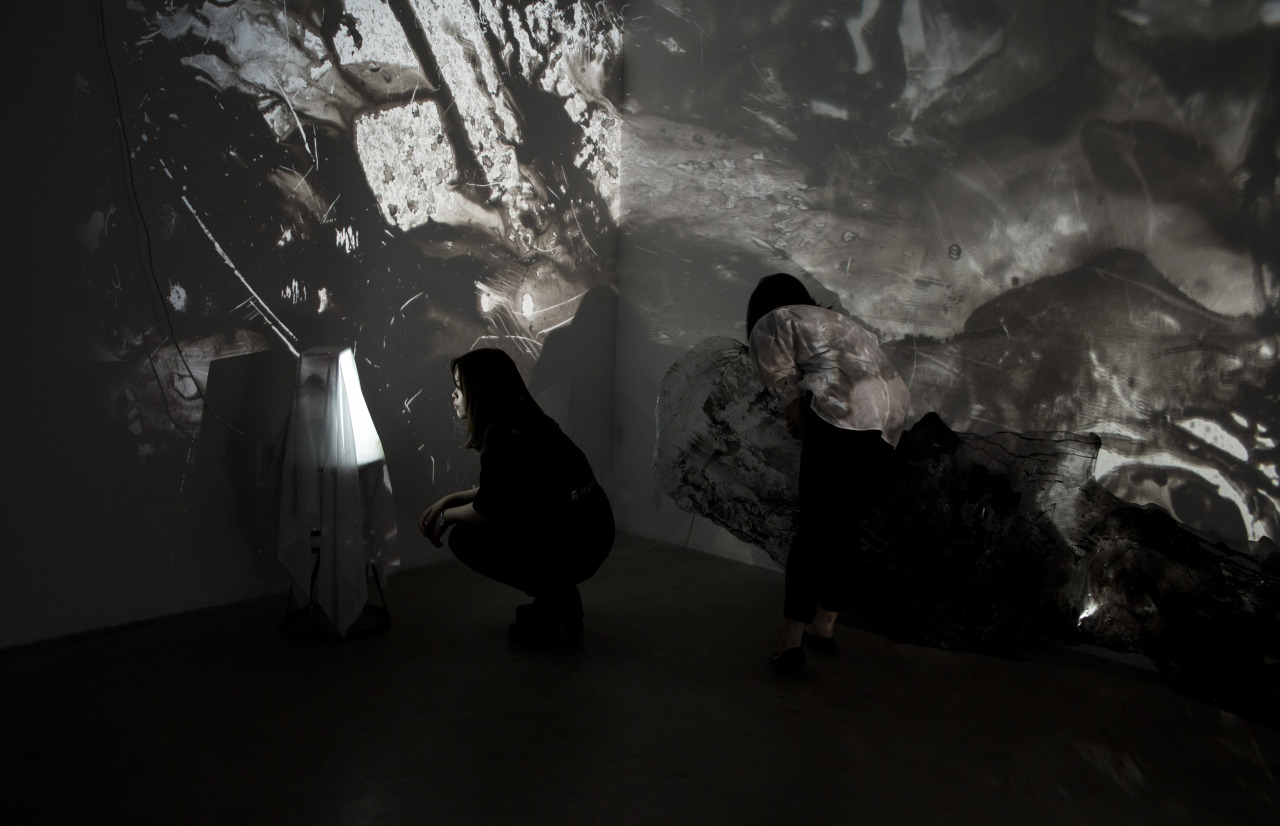 The transformation of Chinese landscape painting should not only can be seen as a history of incorporation with Western style, but also should be regarded as the psychological molding process of building a culture’s subjectivity, in which artists contribute to the construction of national nostalgia and a literature of tragedy.
The transformation of Chinese landscape painting should not only can be seen as a history of incorporation with Western style, but also should be regarded as the psychological molding process of building a culture’s subjectivity, in which artists contribute to the construction of national nostalgia and a literature of tragedy.
Ma Ying-Jeou’s Ghost
 As the saying goes: “The more things change, the more they stay the same.” So if it is that through Chu replacing Hung Hsiu-Chu would reflect that the KMT still retains the ability to adapt—to take emergency measures in order to save itself at a moment of crisis when it looks like the KMT may be on its way out of Taiwanese politics for good—it is that Hung was the exception to the rule as an outlier political candidate and Chu reflects a return to normalcy. In this sense, it may be that Eric Chu is little more than Ma Ying-Jeou’s ghost.
As the saying goes: “The more things change, the more they stay the same.” So if it is that through Chu replacing Hung Hsiu-Chu would reflect that the KMT still retains the ability to adapt—to take emergency measures in order to save itself at a moment of crisis when it looks like the KMT may be on its way out of Taiwanese politics for good—it is that Hung was the exception to the rule as an outlier political candidate and Chu reflects a return to normalcy. In this sense, it may be that Eric Chu is little more than Ma Ying-Jeou’s ghost.
Taiwan and the TPP
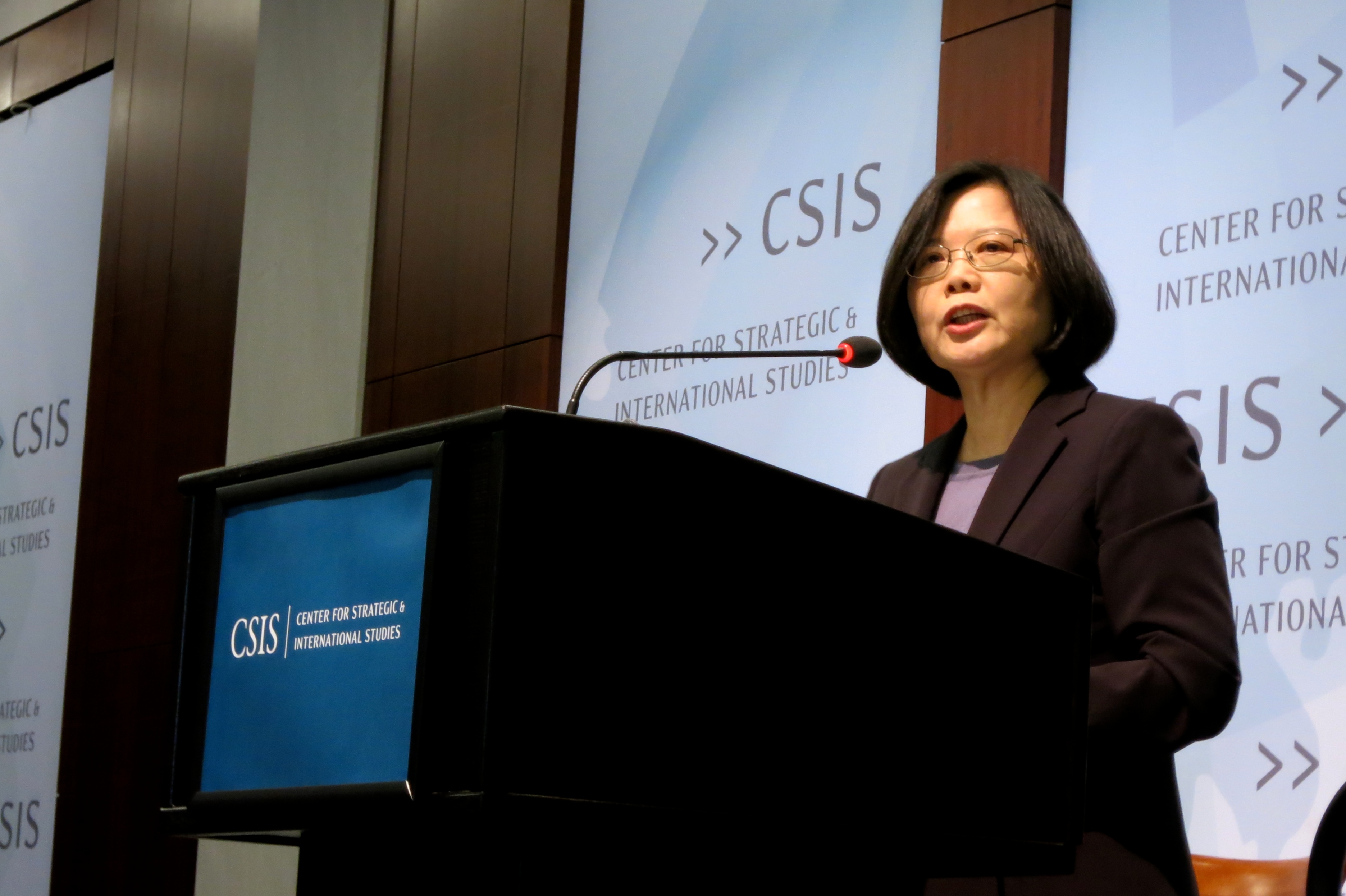 In recent weeks, with the conclusion of negotiations on the TPP, it has been a matter of much discussion as to the pros and cons of the trade agreement on member nations as now national legislatures of TPP member nations will discuss whether to ratify approval. Nonetheless, it may be the question we should be asking ourselves is regarding any future attempts by Taiwan to enter the TPP is this: In order to preserve Taiwan’s de facto independence and existing sovereignty, what do we risk in terms in terms of the democratic values we are willing to throw overboard?
In recent weeks, with the conclusion of negotiations on the TPP, it has been a matter of much discussion as to the pros and cons of the trade agreement on member nations as now national legislatures of TPP member nations will discuss whether to ratify approval. Nonetheless, it may be the question we should be asking ourselves is regarding any future attempts by Taiwan to enter the TPP is this: In order to preserve Taiwan’s de facto independence and existing sovereignty, what do we risk in terms in terms of the democratic values we are willing to throw overboard?
Sun Yat-Sen: Personification of China
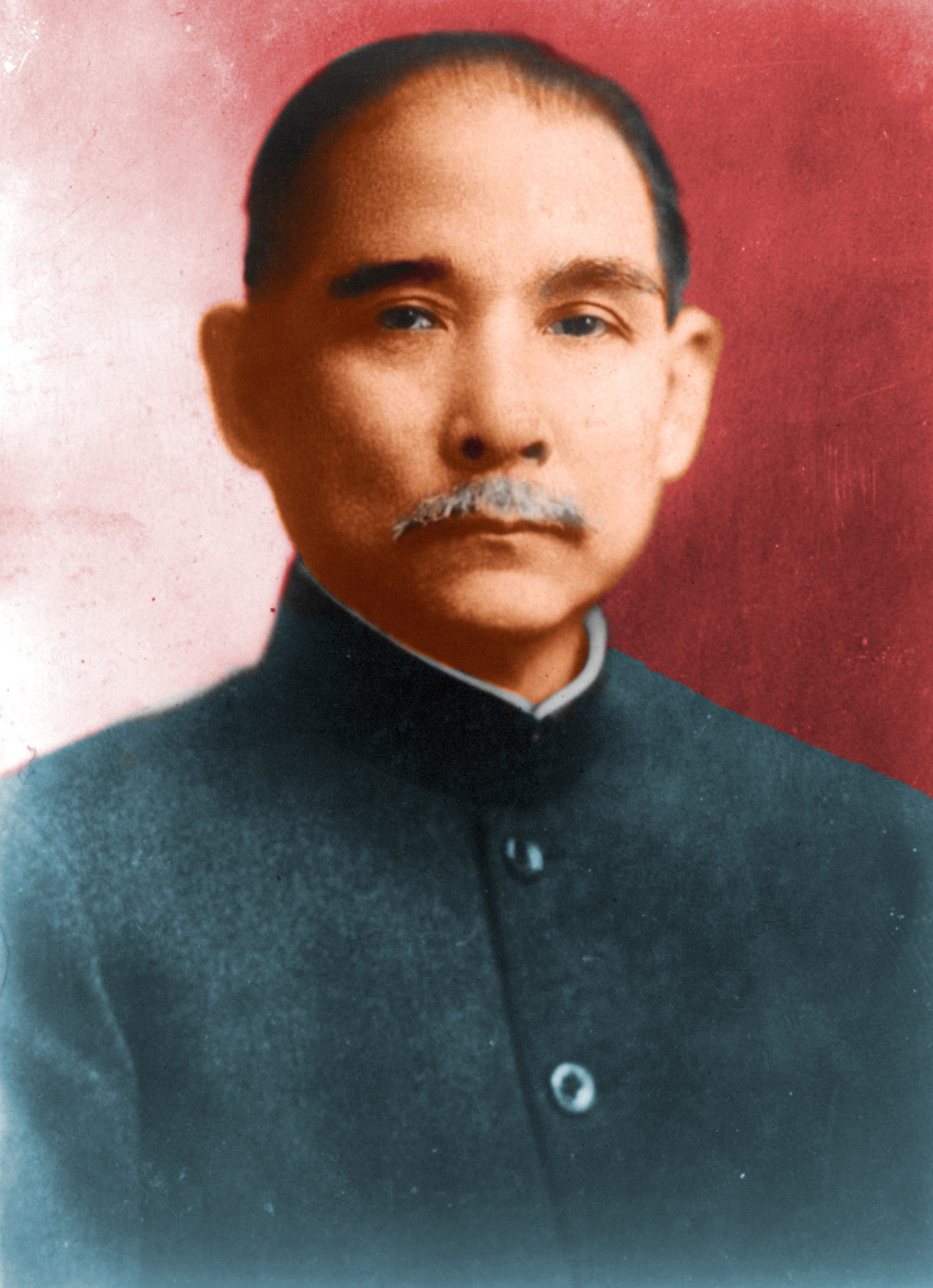 Telling of present ideological imperatives of the Chinese state may be recent depictions of Sun Yat-Sen in Chinese media. The deployment of Sun Yat-Sen is to serve as the personification of an ideal for today’s China—the internationally-oriented revolutionary founding father of a country whose gaze is increasingly set on the international world.
Telling of present ideological imperatives of the Chinese state may be recent depictions of Sun Yat-Sen in Chinese media. The deployment of Sun Yat-Sen is to serve as the personification of an ideal for today’s China—the internationally-oriented revolutionary founding father of a country whose gaze is increasingly set on the international world.
Is Fault For the KMT’s Debacle Not With Hung But the Leadership of the KMT’s “Non-Taiwanese” Leaders?
 What made Hung look weak as a presidential candidate was not only her pursuit of a radical hardline position regarding cross-strait relations, but the fact that she was pushed out into the limelight because nobody in the KMT wanted to shoulder the political responsibility. It was such that the presidential campaign fell to her. If Hung’s campaign highlighted the KMT’s failures, the KMT fails entirely as a party hardly because of a one woman’s doing. We might venture an examination.
What made Hung look weak as a presidential candidate was not only her pursuit of a radical hardline position regarding cross-strait relations, but the fact that she was pushed out into the limelight because nobody in the KMT wanted to shoulder the political responsibility. It was such that the presidential campaign fell to her. If Hung’s campaign highlighted the KMT’s failures, the KMT fails entirely as a party hardly because of a one woman’s doing. We might venture an examination.
Unwelcome Chinese and Southeast Asian Immigrants
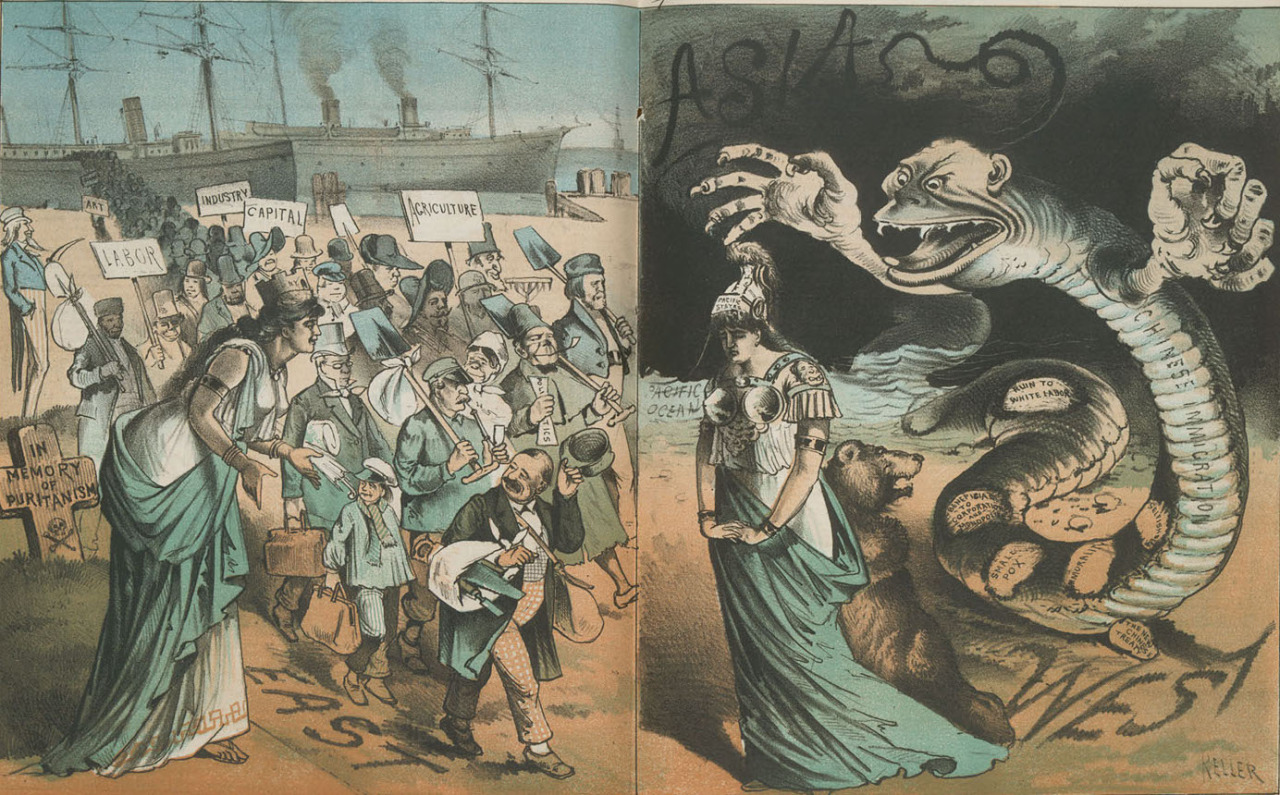 On October 5th, mainstream media outlets reported on a Chinese woman carrying her child who was defecating in front of Burberry on the streets of Oxford, England. The picture would become widely circulated on Twitter in the UK. Defecating in front of a branded boutique seems to contrast with the “rise of China” and economic prosperity; where even if the wealth accumulated in China has allowed the middle class to enjoy the life of luxury, within this discourse, it would be suggested they have not yet achieved the level of Western civilization. This is a means by which colonial discourse and discrimination against the Chinese finds new forms of expression in the age of globalization.
On October 5th, mainstream media outlets reported on a Chinese woman carrying her child who was defecating in front of Burberry on the streets of Oxford, England. The picture would become widely circulated on Twitter in the UK. Defecating in front of a branded boutique seems to contrast with the “rise of China” and economic prosperity; where even if the wealth accumulated in China has allowed the middle class to enjoy the life of luxury, within this discourse, it would be suggested they have not yet achieved the level of Western civilization. This is a means by which colonial discourse and discrimination against the Chinese finds new forms of expression in the age of globalization.
The Link Between Taiwan’s Third Party Forces and New Political Forces Around the World
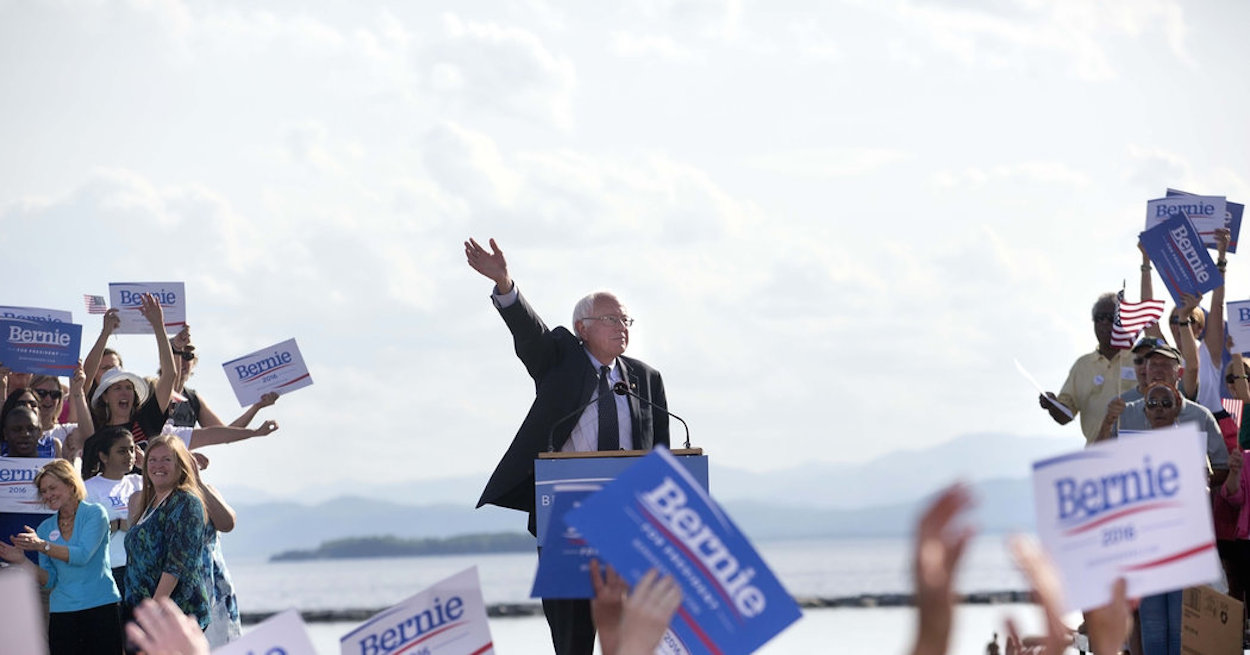 Many phenomena that would have been considered unimaginable in 2014 have unfolded in the past year, and the blossoming of Taiwan’s ’Third Political Force’ is no exception. While there are many analyses that insist on highlighting the difference, and therefore the disconnection between Taiwan’s unusual political tremors and those of the world’s, an important comparison must be made with a Marxist perspective in order to underline the plight that chains all of us—global capitalism—and the necessity for the international solidarity of the working class to overcome it together.
Many phenomena that would have been considered unimaginable in 2014 have unfolded in the past year, and the blossoming of Taiwan’s ’Third Political Force’ is no exception. While there are many analyses that insist on highlighting the difference, and therefore the disconnection between Taiwan’s unusual political tremors and those of the world’s, an important comparison must be made with a Marxist perspective in order to underline the plight that chains all of us—global capitalism—and the necessity for the international solidarity of the working class to overcome it together.
On the Significance of the Umbrella Movement
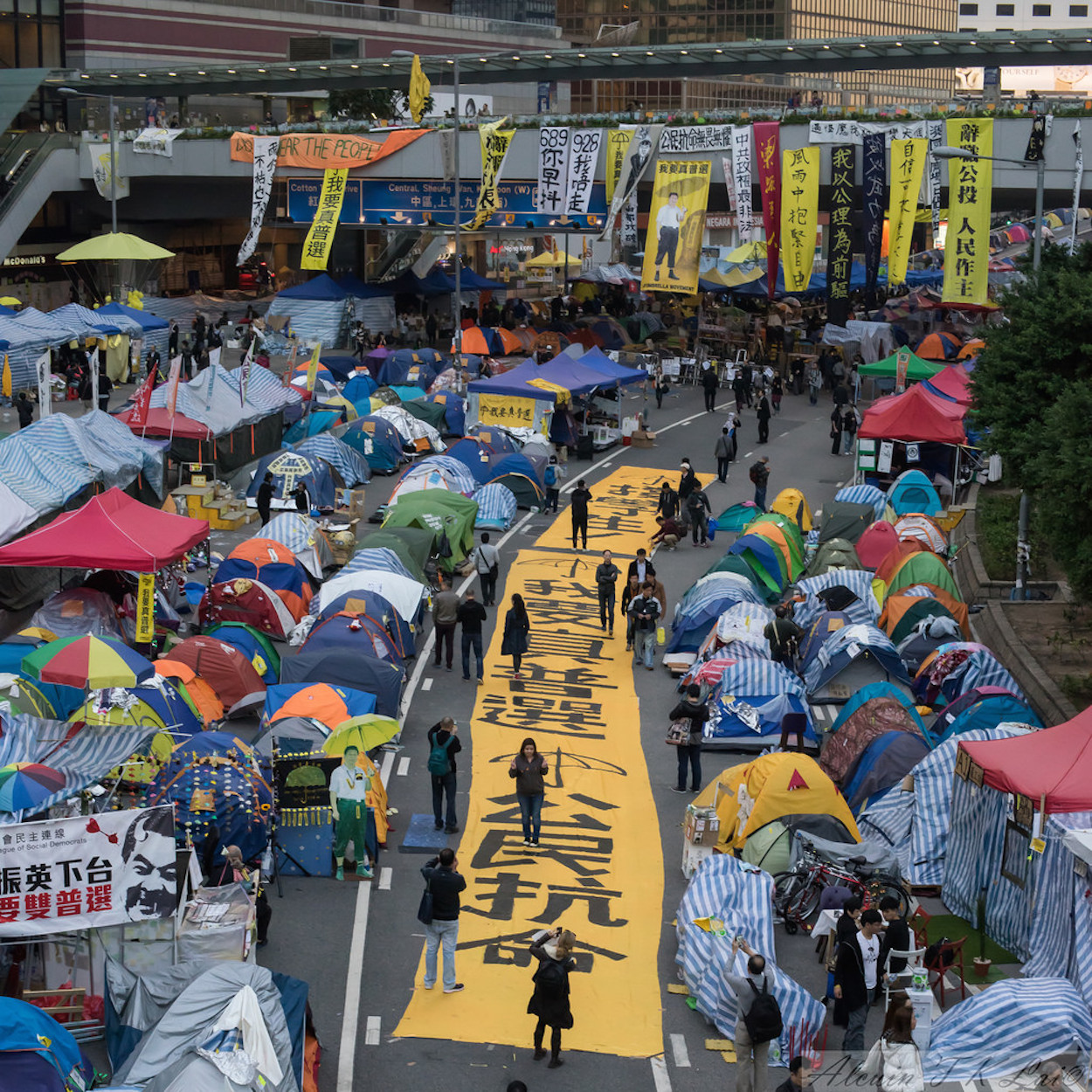 More than a year since the Umbrella Movement took the world by storm, the debate over its significance remains shrouded in a cloud of propaganda, censorship, or worse, a distorted form of leftist Orientalism. Instead of reducing the significance of the Umbrella Movement to a naive romanticism with liberal democracy, we could learn much more by understanding that each generation, nation, or civilization may need to learn their own lessons from their own concrete experiences, and through the creation of new theories and cultural symbols.
More than a year since the Umbrella Movement took the world by storm, the debate over its significance remains shrouded in a cloud of propaganda, censorship, or worse, a distorted form of leftist Orientalism. Instead of reducing the significance of the Umbrella Movement to a naive romanticism with liberal democracy, we could learn much more by understanding that each generation, nation, or civilization may need to learn their own lessons from their own concrete experiences, and through the creation of new theories and cultural symbols.
When Tsai Goes to Japan
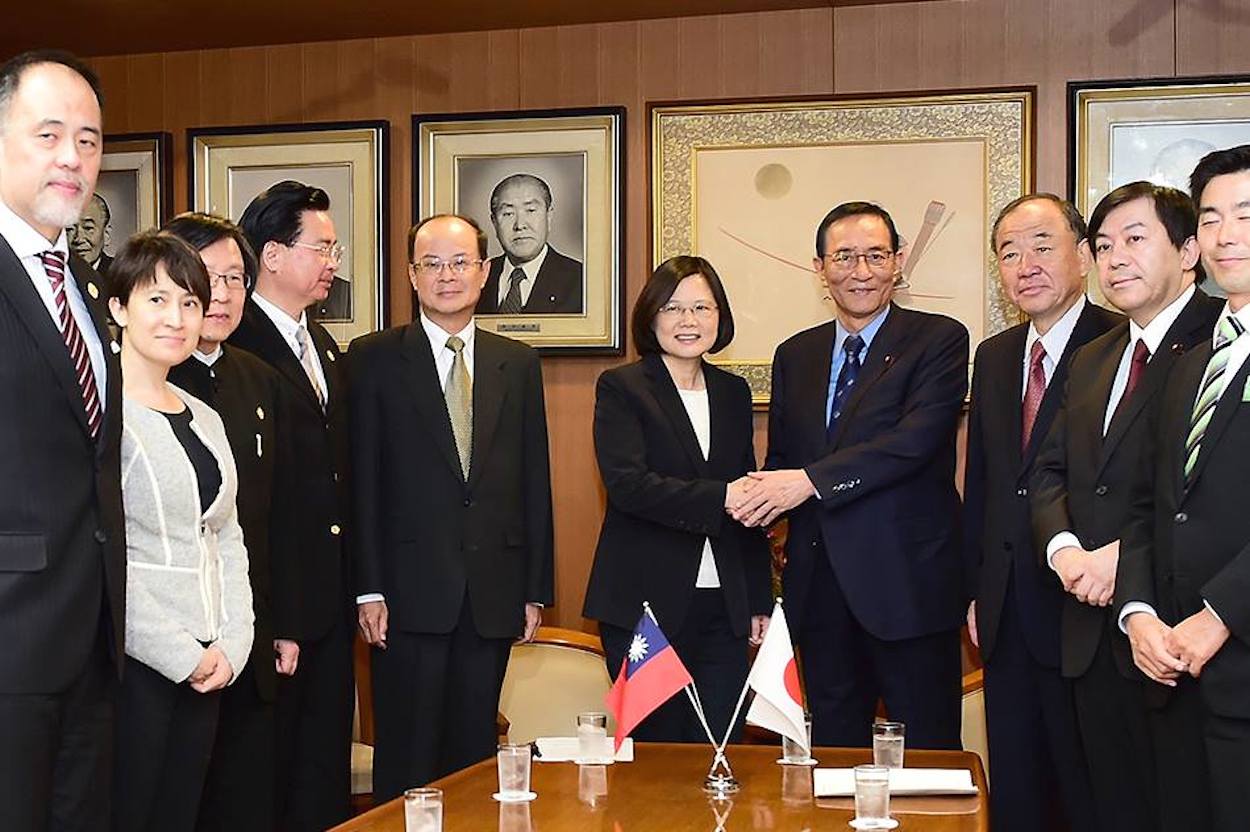 Tsai Ing-Wen’s recent trip to Japan would seem to mark the second of trips abroad by Tsai in the lead up to 2016 presidential elections. The first, of course, was Tsai’s visit to the United States in June. We can point to the obvious foreign policy implications of both trips. Tsai’s visit to the United States was aimed at building better ties with America in order to shore up relations with America in order to counter the threat of China. But what political forces would it be that Tsai is seeking to ally herself with in Japan?
Tsai Ing-Wen’s recent trip to Japan would seem to mark the second of trips abroad by Tsai in the lead up to 2016 presidential elections. The first, of course, was Tsai’s visit to the United States in June. We can point to the obvious foreign policy implications of both trips. Tsai’s visit to the United States was aimed at building better ties with America in order to shore up relations with America in order to counter the threat of China. But what political forces would it be that Tsai is seeking to ally herself with in Japan?
Interview: Huang Kuo-Chang (黃國昌)
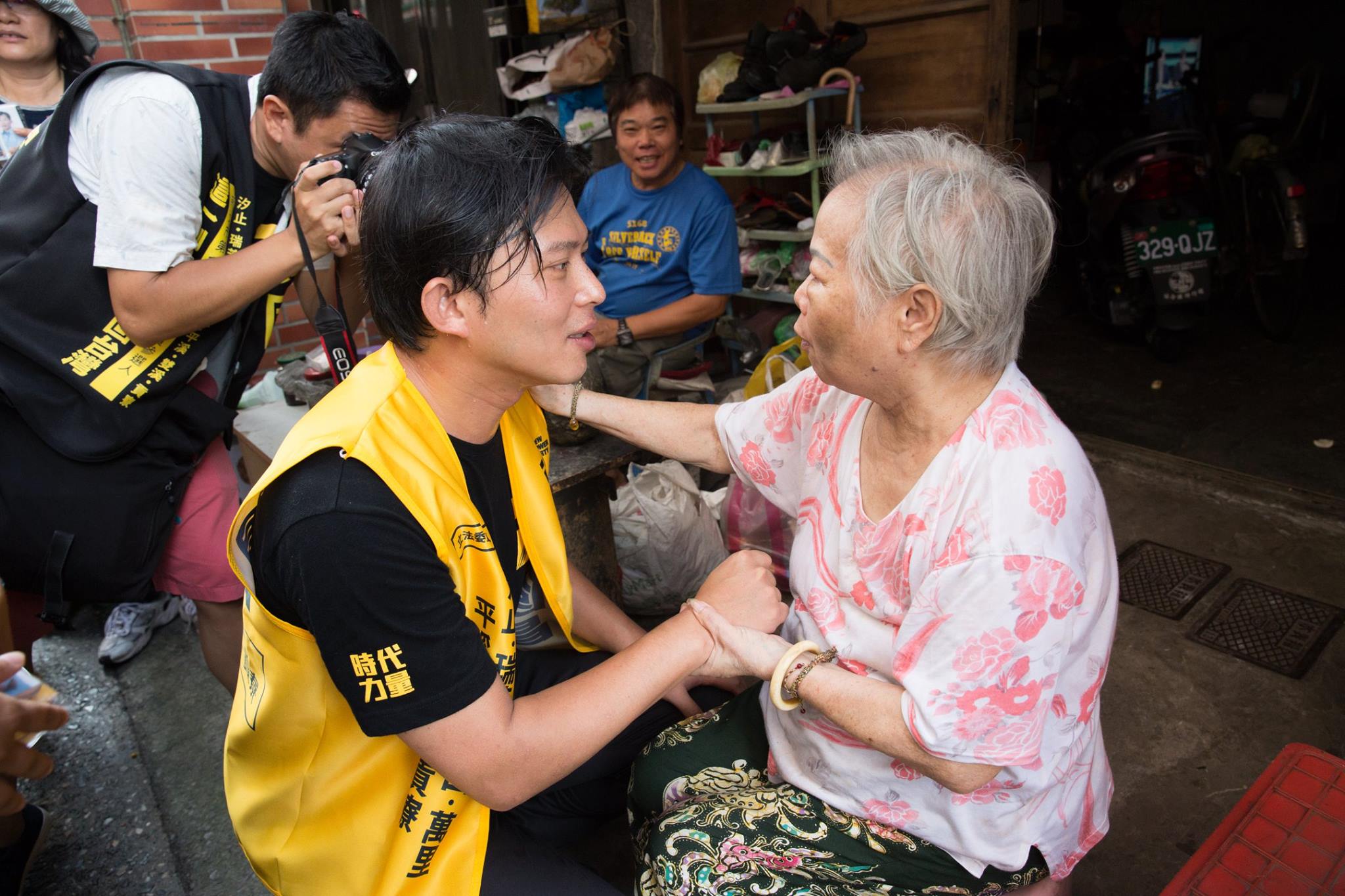 On August 6th, New Bloom’s Brian Hioe interviewed Huang Kuo-Chang of the New Power Party. Huang Kuo-Chang, formerly a professor at Academica Sinica, was one of the lead figures of the Sunflower Movement. In the year since, he has actively been involved in the formation of the New Power Party and will be running for legislator in Xizhi as a candidate of the New Power Party.
On August 6th, New Bloom’s Brian Hioe interviewed Huang Kuo-Chang of the New Power Party. Huang Kuo-Chang, formerly a professor at Academica Sinica, was one of the lead figures of the Sunflower Movement. In the year since, he has actively been involved in the formation of the New Power Party and will be running for legislator in Xizhi as a candidate of the New Power Party.
Is the KMT Devouring Itself?
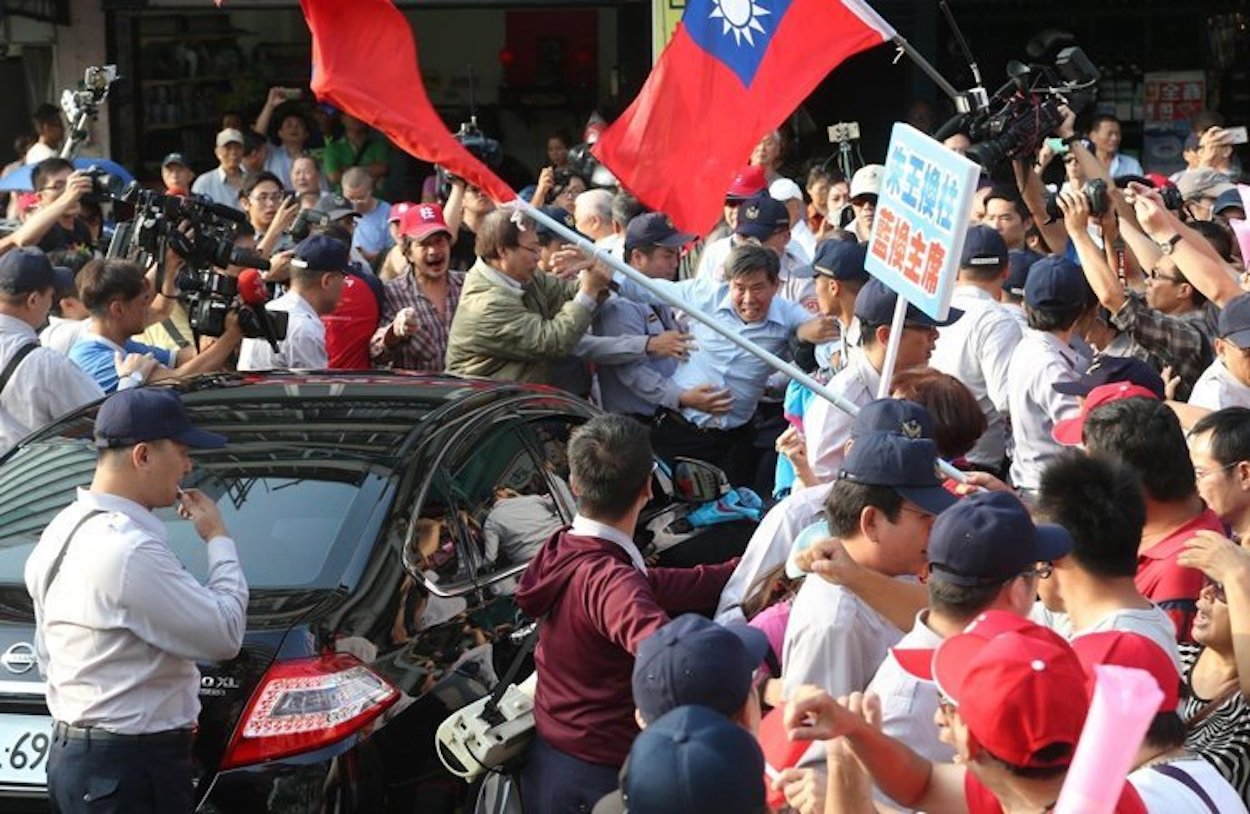 Is the bizarre spectacle of KMT members demonstrating in front of KMT headquarters this past Wednesday revealing of new and significant splits within the KMT? The demonstration was about current internal machinations within the KMT to replace current presidential candidate Hung Hsiu-Chu with current KMT chairman Eric Chu. This last minute turnabout would contravene the KMT constitution, thus requiring amendment of the constitution, and it is still a last minute upset that a plan to replace Hung would in fact be launched. This may be indicative of significant rupture within the KMT establishment if, as evidenced in the demonstration outside KMT headquarters, we are to judge by what forces have arrayed themselves behind Hung.
Is the bizarre spectacle of KMT members demonstrating in front of KMT headquarters this past Wednesday revealing of new and significant splits within the KMT? The demonstration was about current internal machinations within the KMT to replace current presidential candidate Hung Hsiu-Chu with current KMT chairman Eric Chu. This last minute turnabout would contravene the KMT constitution, thus requiring amendment of the constitution, and it is still a last minute upset that a plan to replace Hung would in fact be launched. This may be indicative of significant rupture within the KMT establishment if, as evidenced in the demonstration outside KMT headquarters, we are to judge by what forces have arrayed themselves behind Hung.
The Rise and Fall of Hung Hsiu-Chu
 With the possibility of Hung Hsiu-Chu’s replacement as KMT presidential candidate by Eric Chu in the near future, is it time to start speaking of Hung in past tense? We might look back on Hung’s meteoric rise and fall. Because if certainly one of the more colorful characters to make an appearance in Taiwanese politics in a long time, Hung also seems a figure vaguely emblematic of the times.
With the possibility of Hung Hsiu-Chu’s replacement as KMT presidential candidate by Eric Chu in the near future, is it time to start speaking of Hung in past tense? We might look back on Hung’s meteoric rise and fall. Because if certainly one of the more colorful characters to make an appearance in Taiwanese politics in a long time, Hung also seems a figure vaguely emblematic of the times.
A Changed Hong Kong and Taiwan One Year after the Umbrella and Sunflower Movement?
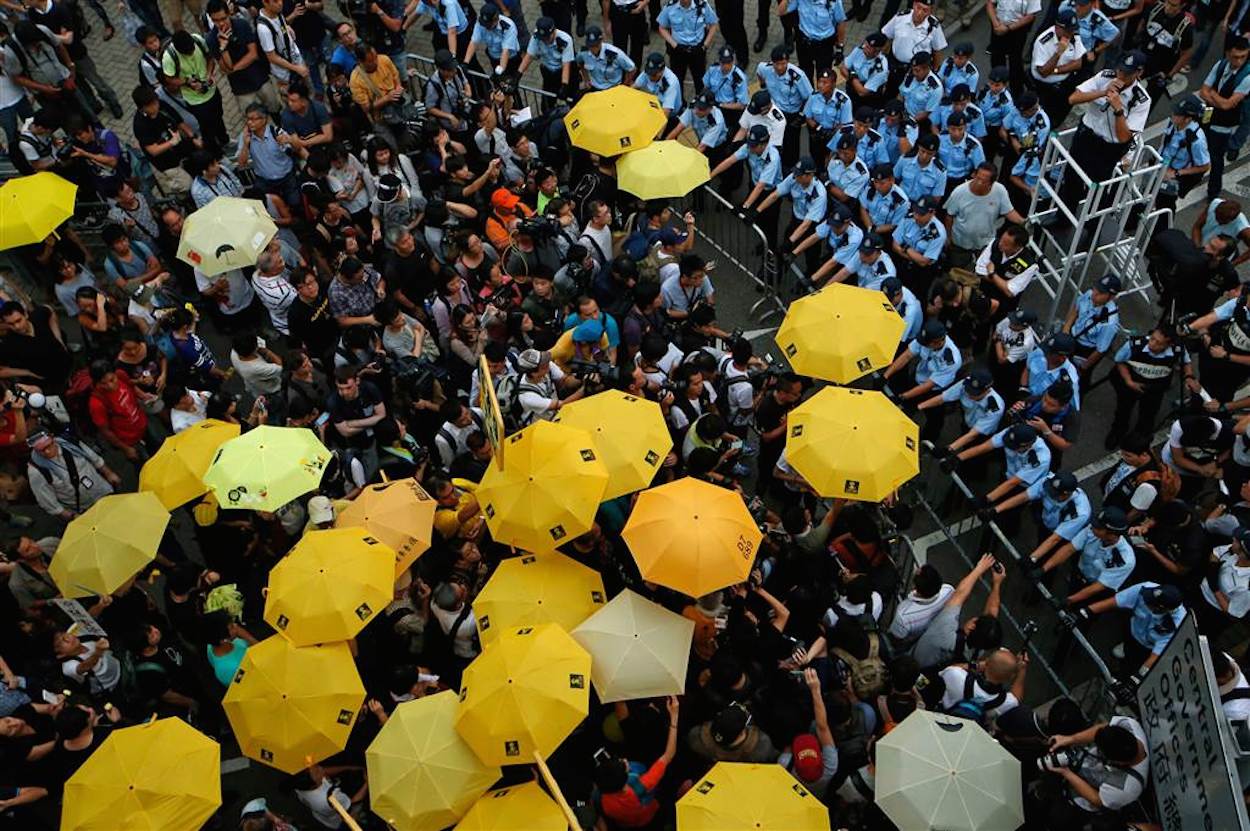 As part of recent moves at centralizing its authority and expanding regional power, China wishes to firmly consolidate its rule over Hong Kong, and at least in public rhetoric, seeks to resolve the longstanding Taiwan question as soon as possible. This will not be easy for China, especially after 2014 saw the outbreak of Hong Kong’s Umbrella Movement and Taiwan’s Sunflower Movement. As we reach the one year anniversary of the Umbrella Movement’s beginning, we might look back on Hong Kong and Taiwan after the year of the Umbrella Movement and Sunflower Movement.
As part of recent moves at centralizing its authority and expanding regional power, China wishes to firmly consolidate its rule over Hong Kong, and at least in public rhetoric, seeks to resolve the longstanding Taiwan question as soon as possible. This will not be easy for China, especially after 2014 saw the outbreak of Hong Kong’s Umbrella Movement and Taiwan’s Sunflower Movement. As we reach the one year anniversary of the Umbrella Movement’s beginning, we might look back on Hong Kong and Taiwan after the year of the Umbrella Movement and Sunflower Movement.
Interview: Wuer Kaixi (吾爾開希)
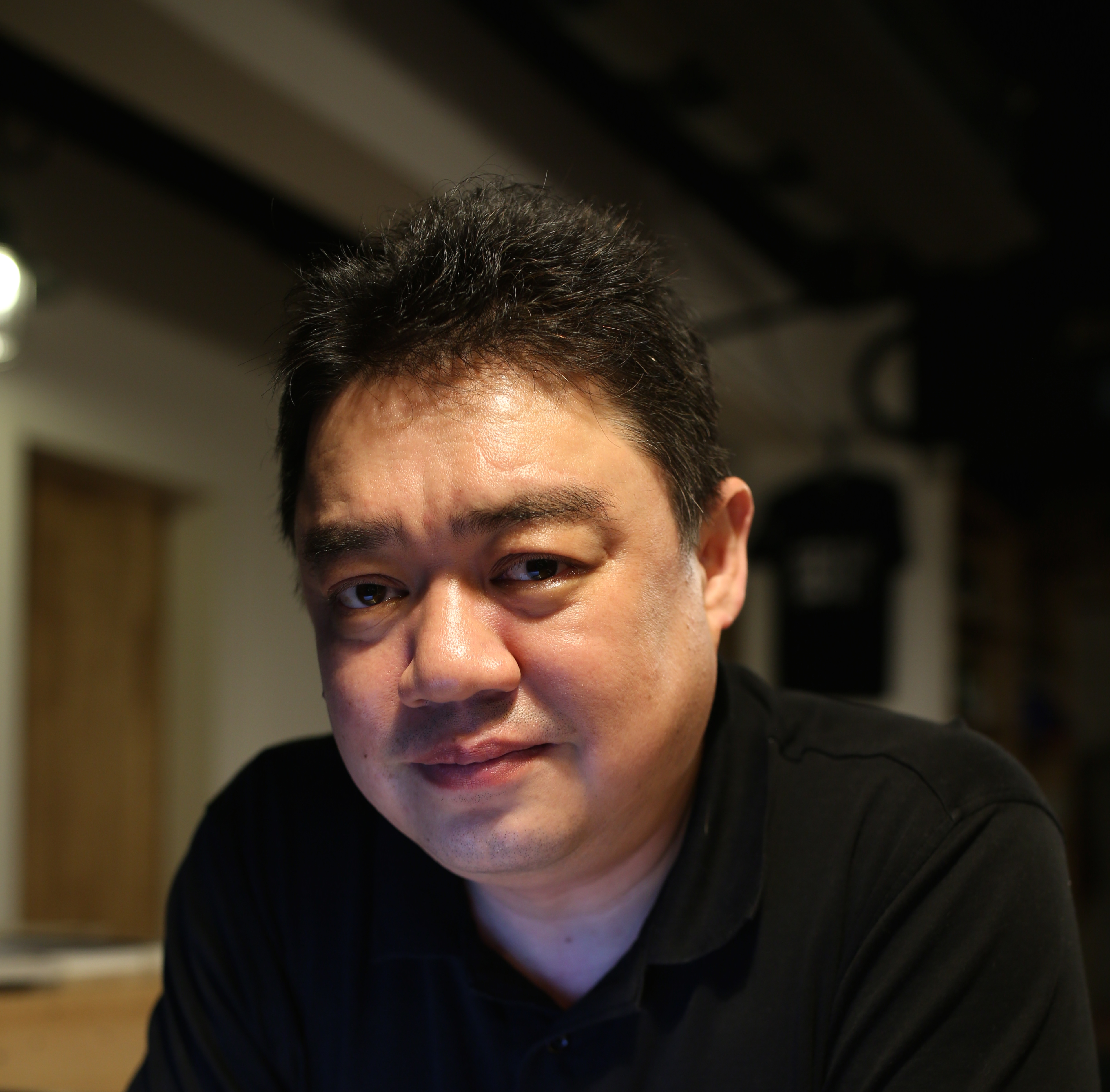 In early August in Taipei, New Bloom’s Brian Hioe interviewed Wuer Kaixi, longtime democracy activist and Chinese dissident known for his leadership in the 1989 Tiananmen Square protests. After studying in America, Wuer Kaixi later moved to Taiwan, where he became known as a political commentator. Wuer Kaixi recently announced that he would be running for legislator in Taichung as an independent.
In early August in Taipei, New Bloom’s Brian Hioe interviewed Wuer Kaixi, longtime democracy activist and Chinese dissident known for his leadership in the 1989 Tiananmen Square protests. After studying in America, Wuer Kaixi later moved to Taiwan, where he became known as a political commentator. Wuer Kaixi recently announced that he would be running for legislator in Taichung as an independent.
What’s In A Passport?
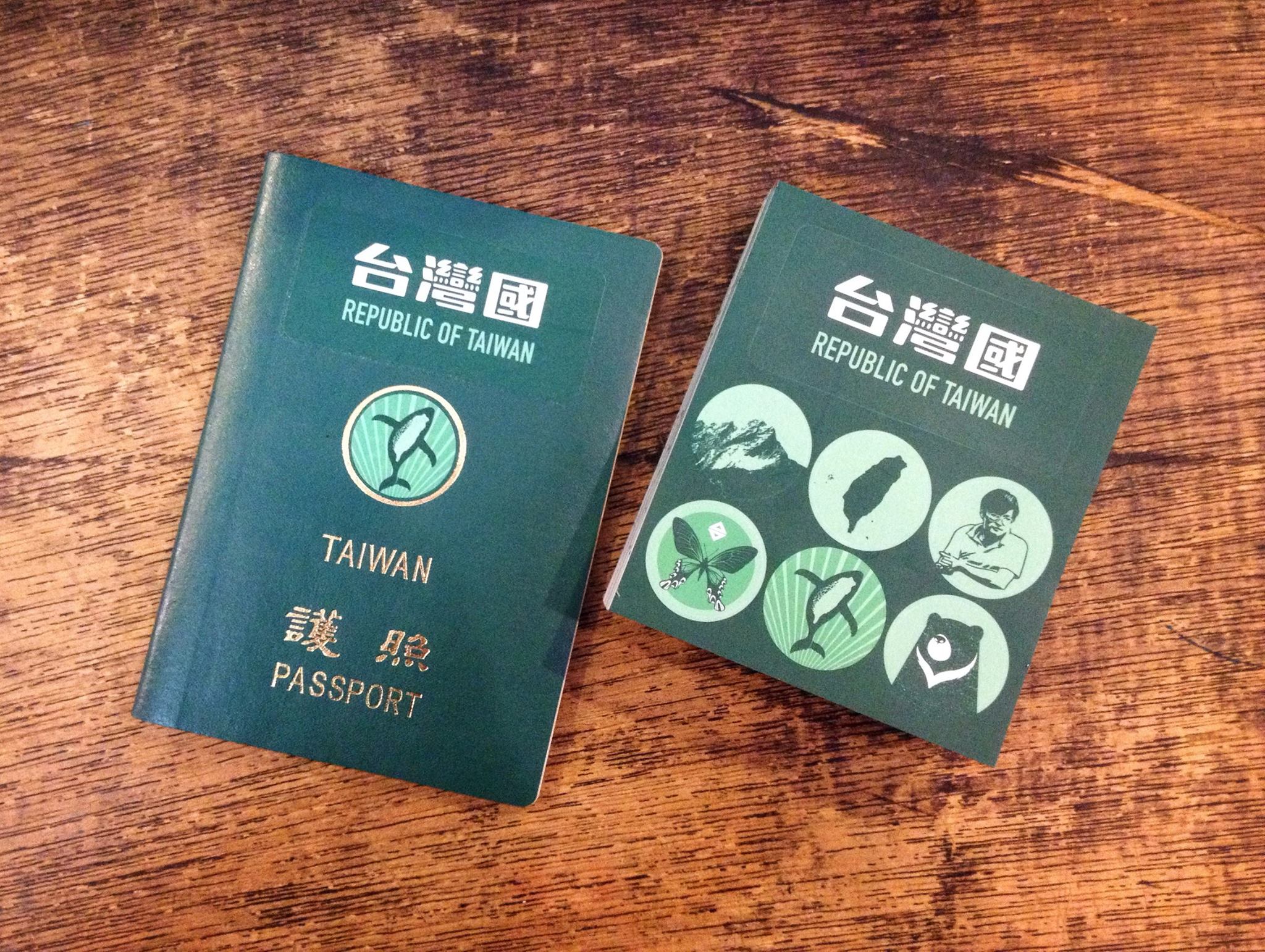 What’s in a passport? This would be seem to be a question up in the air for Taiwan lately. A recent incident involving a Taiwanese citizen being refused admittance to the UN office in Geneva using a Republic of China passport as proof of identity has only driven home the point of Taiwan’s exclusion from the international community. China, in the meantime, has announced the implementation of an electronic card system replacing the “Taiwan compatriot travel document” used previously. Months previously, a campaign to put stickers on the “Republic of China” passport to make it read “Republic of Taiwan” was started by artist Denis Chen. Subsequent attempts by the Bureau of Consular Affairs to crack down on usage of such stickers has led to protest by civil society groups in recent days.
What’s in a passport? This would be seem to be a question up in the air for Taiwan lately. A recent incident involving a Taiwanese citizen being refused admittance to the UN office in Geneva using a Republic of China passport as proof of identity has only driven home the point of Taiwan’s exclusion from the international community. China, in the meantime, has announced the implementation of an electronic card system replacing the “Taiwan compatriot travel document” used previously. Months previously, a campaign to put stickers on the “Republic of China” passport to make it read “Republic of Taiwan” was started by artist Denis Chen. Subsequent attempts by the Bureau of Consular Affairs to crack down on usage of such stickers has led to protest by civil society groups in recent days.
RCA Taiwan and Its Victims
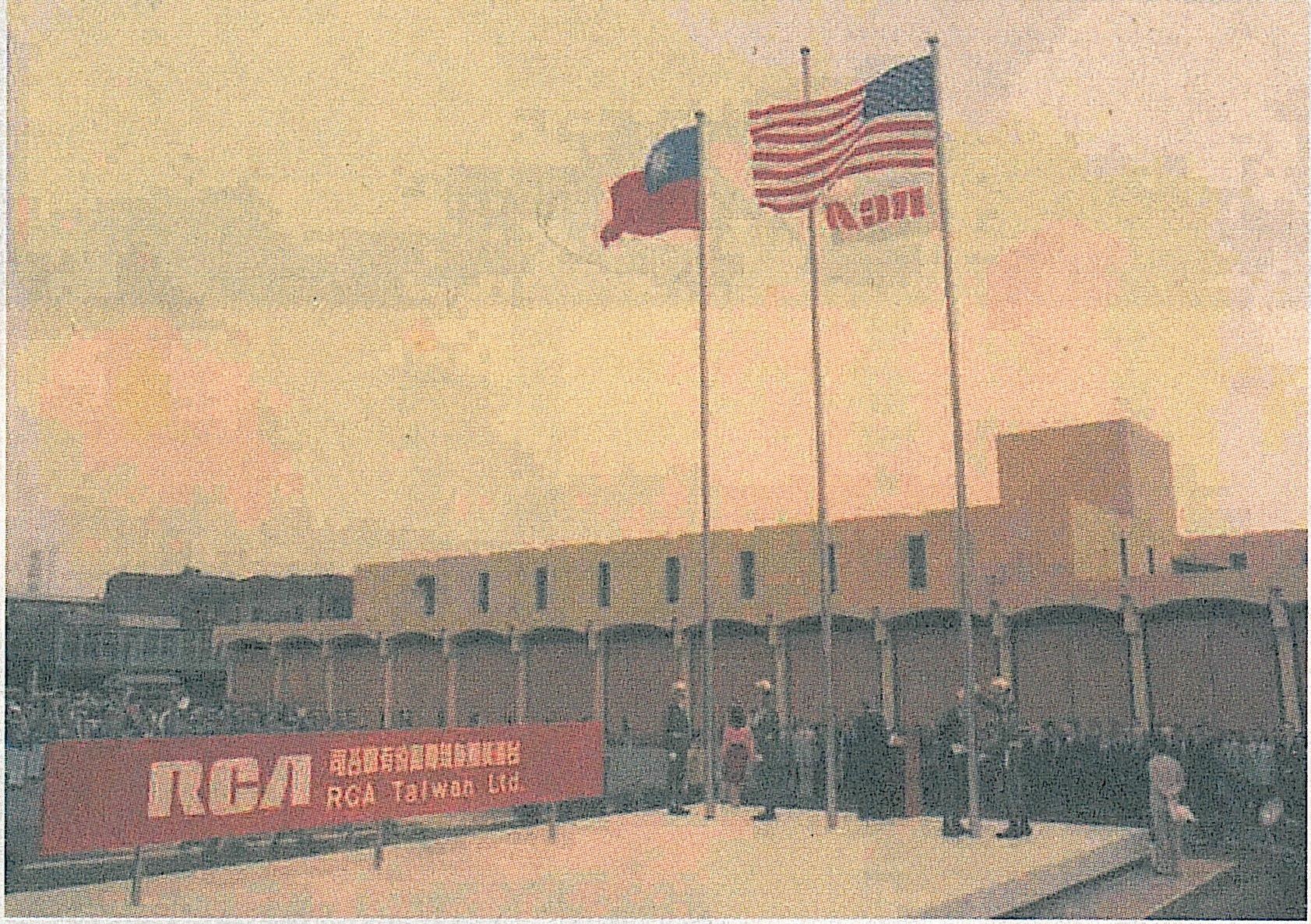 In 1969, the Radio Corporation of America, an international company from the developed world, chose Taiwan, a developing country which had lower wages but high quality labor, not to mention loose labor and environment regulations, to establish its new factory. Sadly, the famous company did not tell its employees that, during the process of manufacturing, large amount of dangerous chemical pollutants was used and later discharged into the air, water and ground of the RCA factory.
In 1969, the Radio Corporation of America, an international company from the developed world, chose Taiwan, a developing country which had lower wages but high quality labor, not to mention loose labor and environment regulations, to establish its new factory. Sadly, the famous company did not tell its employees that, during the process of manufacturing, large amount of dangerous chemical pollutants was used and later discharged into the air, water and ground of the RCA factory.
Mr. Xi Goes to Washington
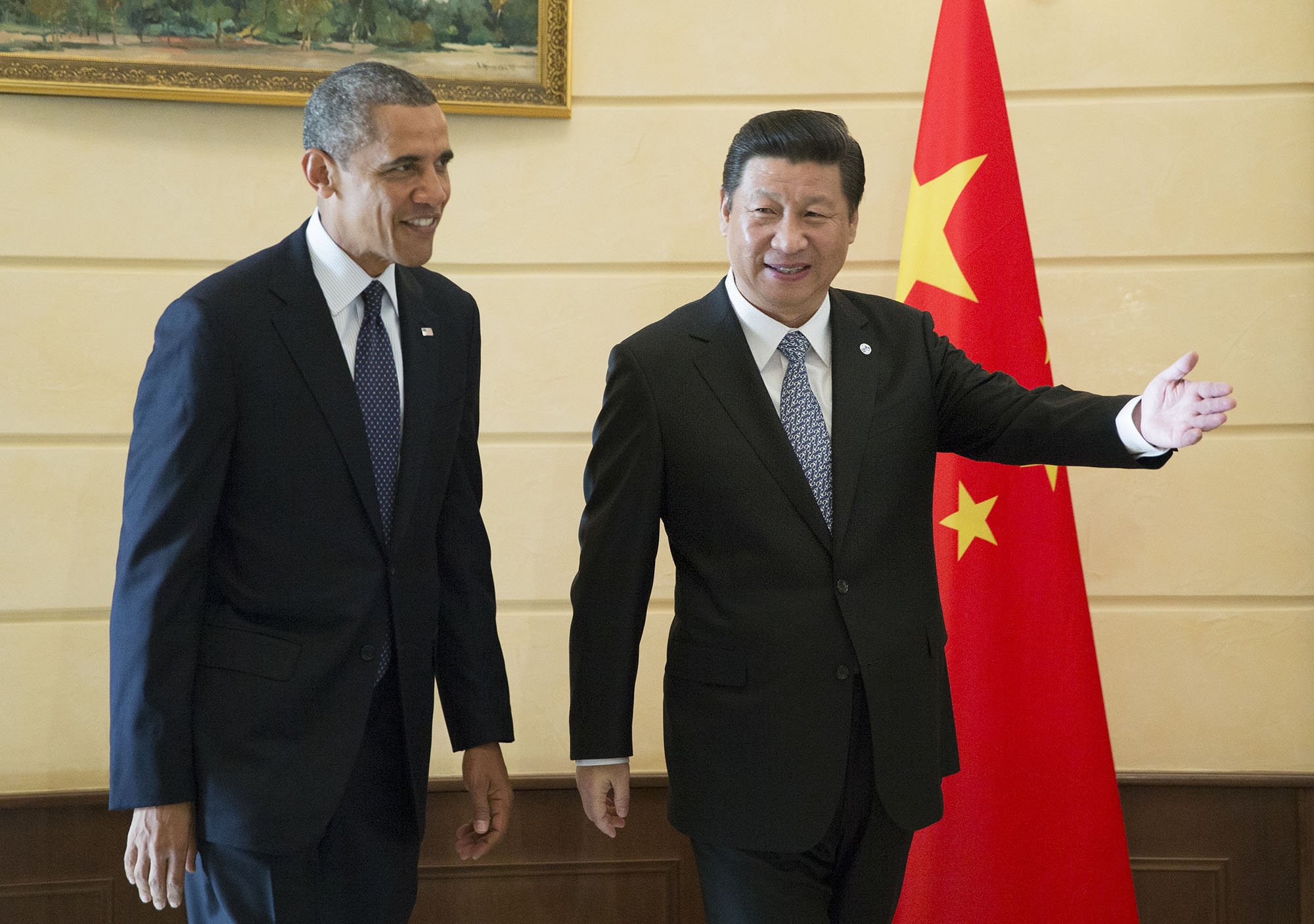 Several weeks after the largest military parade Asia has seen in probably decades put on by China in commemoration of the 70th anniversary of the Sino-Japanese War, Xi Jinping will arrive in America for a weeklong visit starting on September 22nd. Xi’s first visit to America in his capacity as Chinese president occurs in a time of increasing tensions. But even as China preaches peace, China seems compelled to assert its military strength and demonstrate that China is a military power which will not be bullied by western powers. What will this bode for Taiwan and other Asia-Pacific territories, caught as they are between America and China?
Several weeks after the largest military parade Asia has seen in probably decades put on by China in commemoration of the 70th anniversary of the Sino-Japanese War, Xi Jinping will arrive in America for a weeklong visit starting on September 22nd. Xi’s first visit to America in his capacity as Chinese president occurs in a time of increasing tensions. But even as China preaches peace, China seems compelled to assert its military strength and demonstrate that China is a military power which will not be bullied by western powers. What will this bode for Taiwan and other Asia-Pacific territories, caught as they are between America and China?
China and the Opiate of the Masses
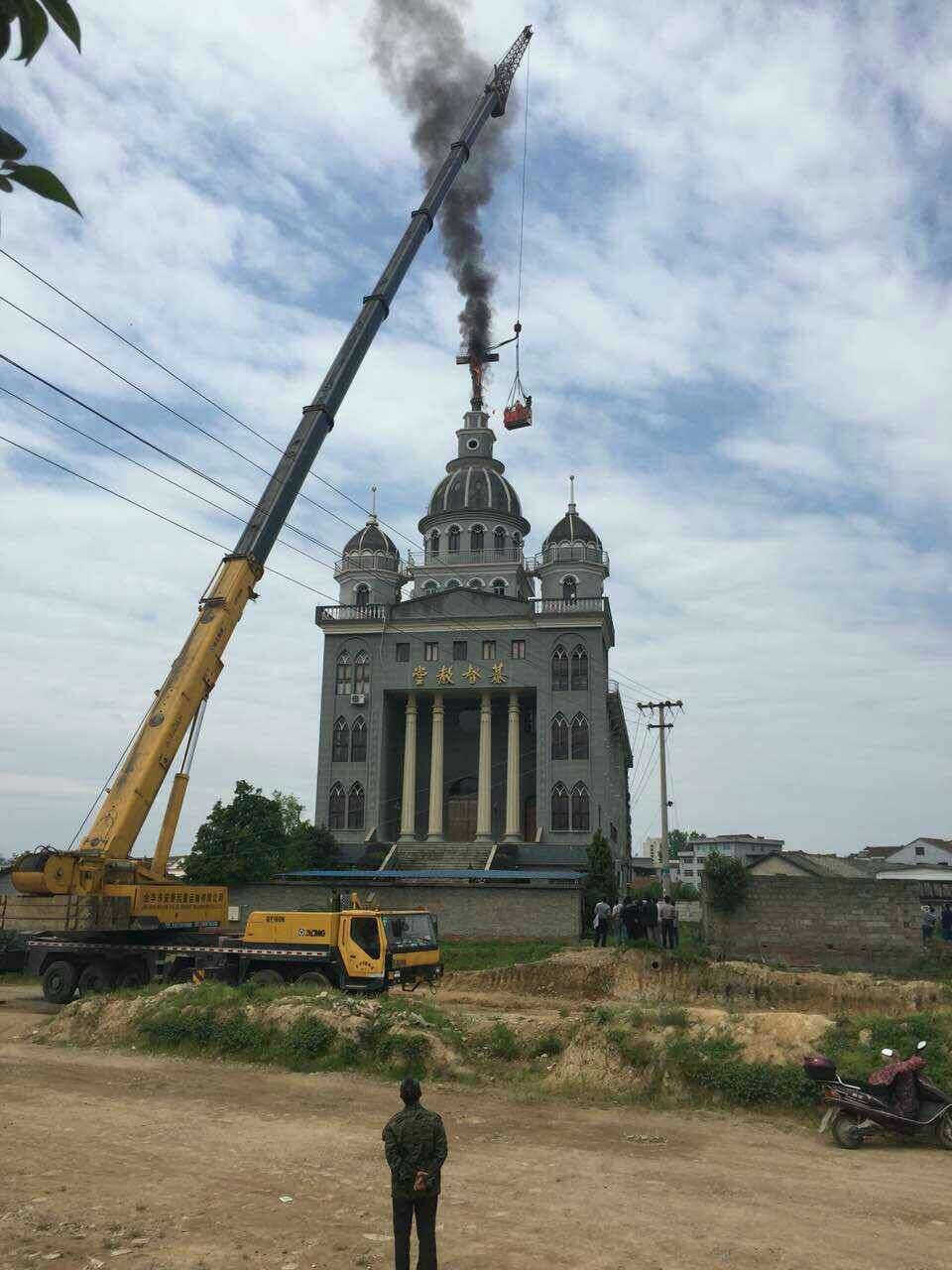 To date, instead of taking a step forward, China has tightened its political control. From the arrest of more than a hundred human rights activist and lawyers to the crackdown of the Christian communities, China has not improved at all. The recent crackdown at a Zhejiang village is an example of the Xi’s ideological control taking form. Rumors are that authorities in Zhejiang province are under a two-month deadline to remove crosses, the symbolism of Christianity, from the 4,000 or so churches of the region.
To date, instead of taking a step forward, China has tightened its political control. From the arrest of more than a hundred human rights activist and lawyers to the crackdown of the Christian communities, China has not improved at all. The recent crackdown at a Zhejiang village is an example of the Xi’s ideological control taking form. Rumors are that authorities in Zhejiang province are under a two-month deadline to remove crosses, the symbolism of Christianity, from the 4,000 or so churches of the region.
Marxist Basics with Parson: How Did Stalin and Mao Betray Marxism? Part II
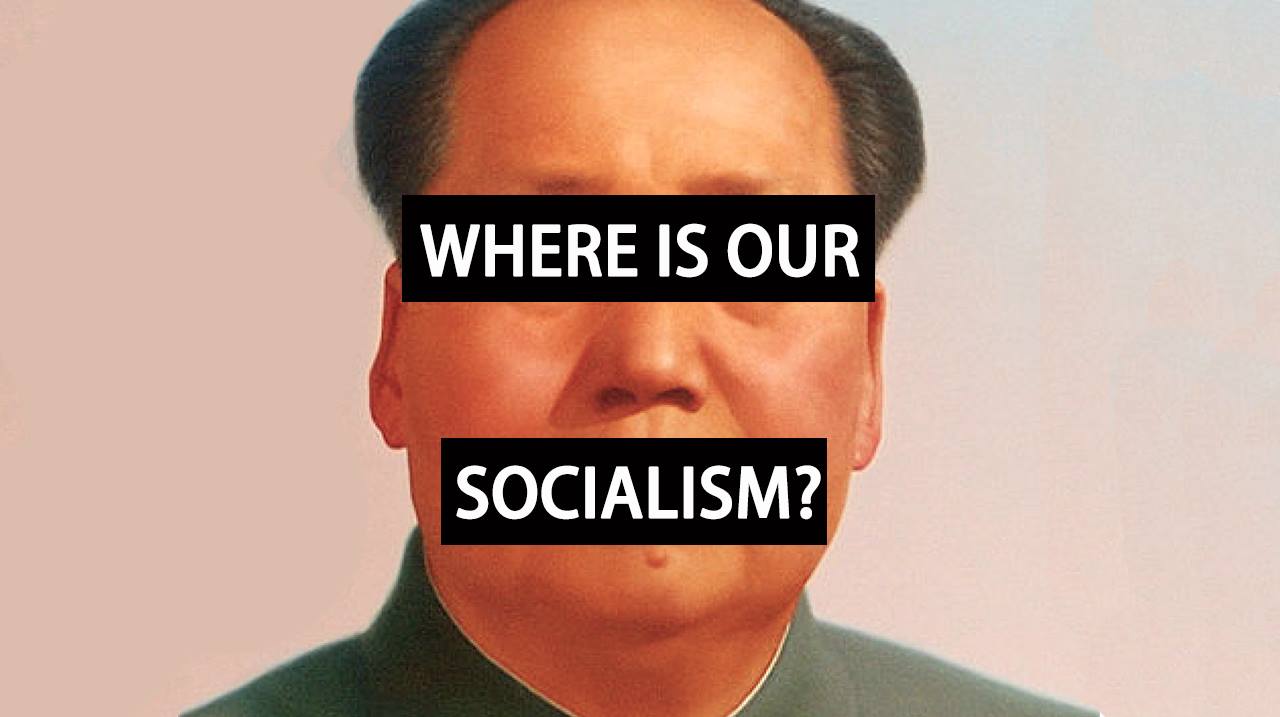 Mao not only betrays correct Marxism on a practical level, he also invented a number of “theories” which is now known as Marxism and considered by some to be a legitimate “branch” of Marxism. Today, we can find traces of obsessive followers of Maoism from within China to around the world, from academics, students, and even terrorist organizations. The readers of Taiwan usually are familiar with the horrors happening in China under Mao, but there is seldom an exploration of how Mao’s betrayal of Marxism resulted in these horrors.
Mao not only betrays correct Marxism on a practical level, he also invented a number of “theories” which is now known as Marxism and considered by some to be a legitimate “branch” of Marxism. Today, we can find traces of obsessive followers of Maoism from within China to around the world, from academics, students, and even terrorist organizations. The readers of Taiwan usually are familiar with the horrors happening in China under Mao, but there is seldom an exploration of how Mao’s betrayal of Marxism resulted in these horrors.
Interview: Lee Hsing-Chang (李幸長)
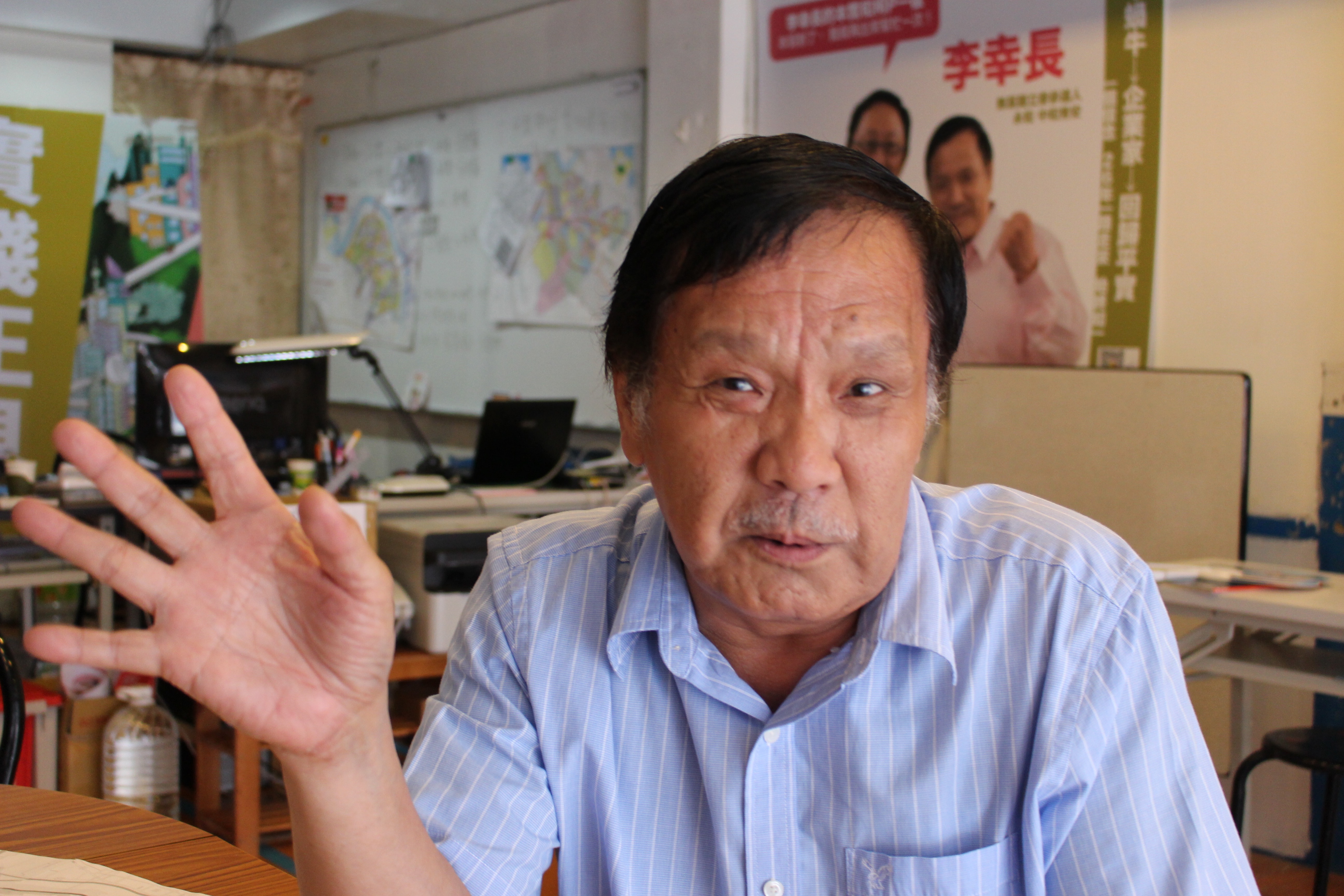 In late August, New Bloom interviewed social movement veteran Lee Hsing-Chang about his campaign for Taiwan’s Legislative Yuan. Lee is running as an independent candidate in New Taipei City District 9, a traditional stronghold for the KMT. Lee has fought for housing justice for over 25 years, and advocates for affordable housing as a basic human right.
In late August, New Bloom interviewed social movement veteran Lee Hsing-Chang about his campaign for Taiwan’s Legislative Yuan. Lee is running as an independent candidate in New Taipei City District 9, a traditional stronghold for the KMT. Lee has fought for housing justice for over 25 years, and advocates for affordable housing as a basic human right.
Can We Understand Article 9 Protests in Japan Alongside Other Asian Social Movements?
 Recently we have seen widespread protest in Japan against the reinterpretation of Article 9 of the Japanese constitution, traditionally understood as the “pacifist clause” of the Japanese constitution which forbid the waging of future war by Japan after the brutalities of World War II. With the mass participation of young people in recent protests, can we point to parallels between present events in Japan and other recent Asian social movements?
Recently we have seen widespread protest in Japan against the reinterpretation of Article 9 of the Japanese constitution, traditionally understood as the “pacifist clause” of the Japanese constitution which forbid the waging of future war by Japan after the brutalities of World War II. With the mass participation of young people in recent protests, can we point to parallels between present events in Japan and other recent Asian social movements?
Nostalgia for Lee Kuan Yew’s Singapore and Its Role in Upcoming Elections
![]() What is so interesting about 2015 elections in Singapore, which will happen on September 11th, is that it will be the first election held after the death of the nation’s founding father Lee Kuan Yew. Under Lee’s iron-fist and steadfast authoritative rule, the country has been a one-party state since its founding, not until 2011 when one of the opposition party won for one of the constituencies contested. But in spite of his death, use of the memory of the deceased Lee Kuan Yew may help the PAP secure its foothold for at least another five years.
What is so interesting about 2015 elections in Singapore, which will happen on September 11th, is that it will be the first election held after the death of the nation’s founding father Lee Kuan Yew. Under Lee’s iron-fist and steadfast authoritative rule, the country has been a one-party state since its founding, not until 2011 when one of the opposition party won for one of the constituencies contested. But in spite of his death, use of the memory of the deceased Lee Kuan Yew may help the PAP secure its foothold for at least another five years.
China’s Military Parade and the Specter of Historical Memory
 What was the mass spectacle of China’s recent military parade aimed at accomplishing in regards to invoking the past historical memory? Namely, the parade seems to be aimed at stirring up the nationalistic memory of war against Japan and aiming to intimidate a recently rearmed Japan.
What was the mass spectacle of China’s recent military parade aimed at accomplishing in regards to invoking the past historical memory? Namely, the parade seems to be aimed at stirring up the nationalistic memory of war against Japan and aiming to intimidate a recently rearmed Japan.
The Ministry of Education Occupation From Beginning to End
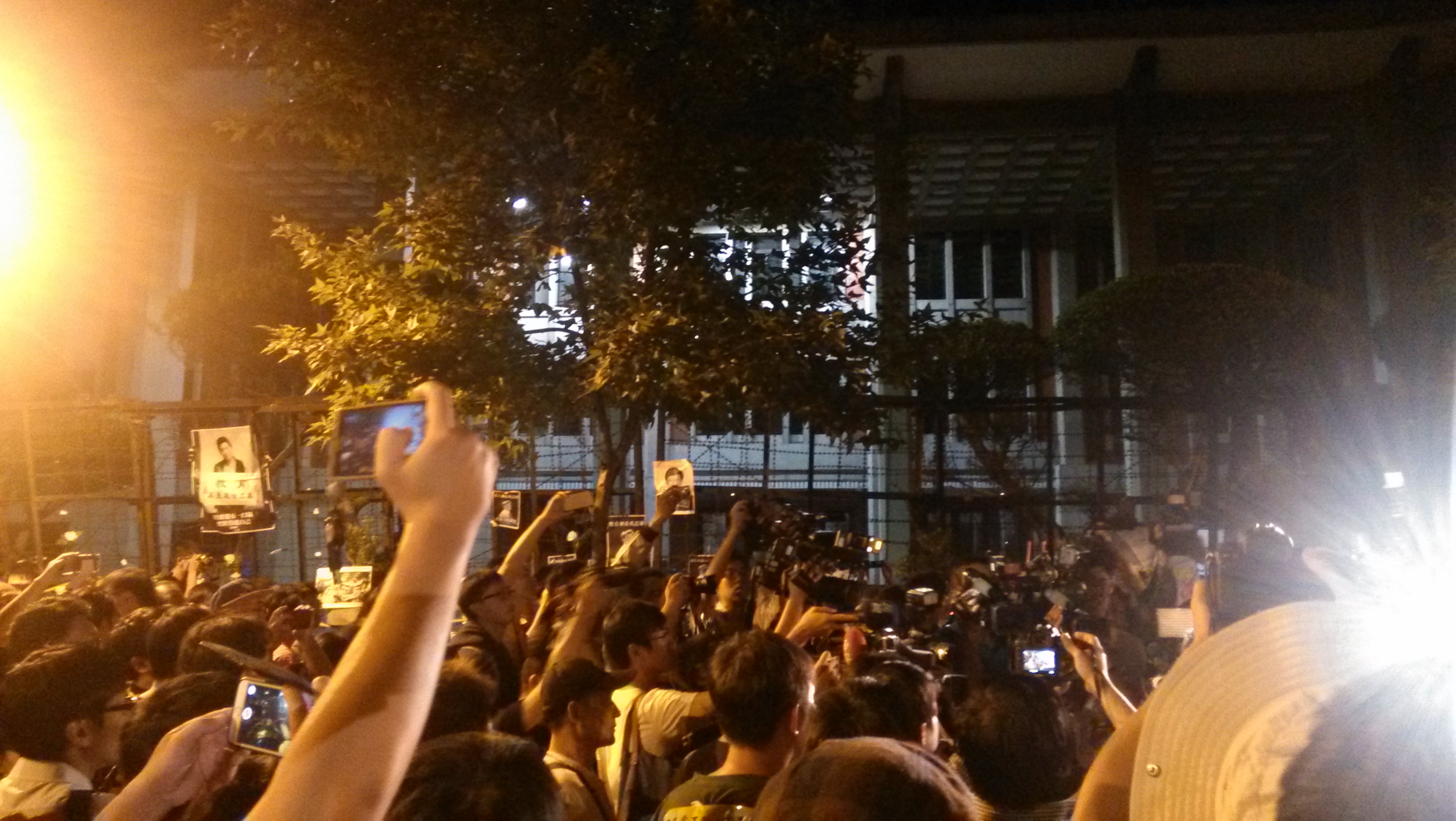 One month after the end of the Ministry of Education occupation which took place in August, we might look back on the series of events which took place during the past month. This is the complete account of last month’s Ministry of Education occupation from New Bloom editor Brian Hioe, who was present for most of the occupation from the beginning to end.
One month after the end of the Ministry of Education occupation which took place in August, we might look back on the series of events which took place during the past month. This is the complete account of last month’s Ministry of Education occupation from New Bloom editor Brian Hioe, who was present for most of the occupation from the beginning to end.
Interview: Jennifer Lu (呂欣潔)
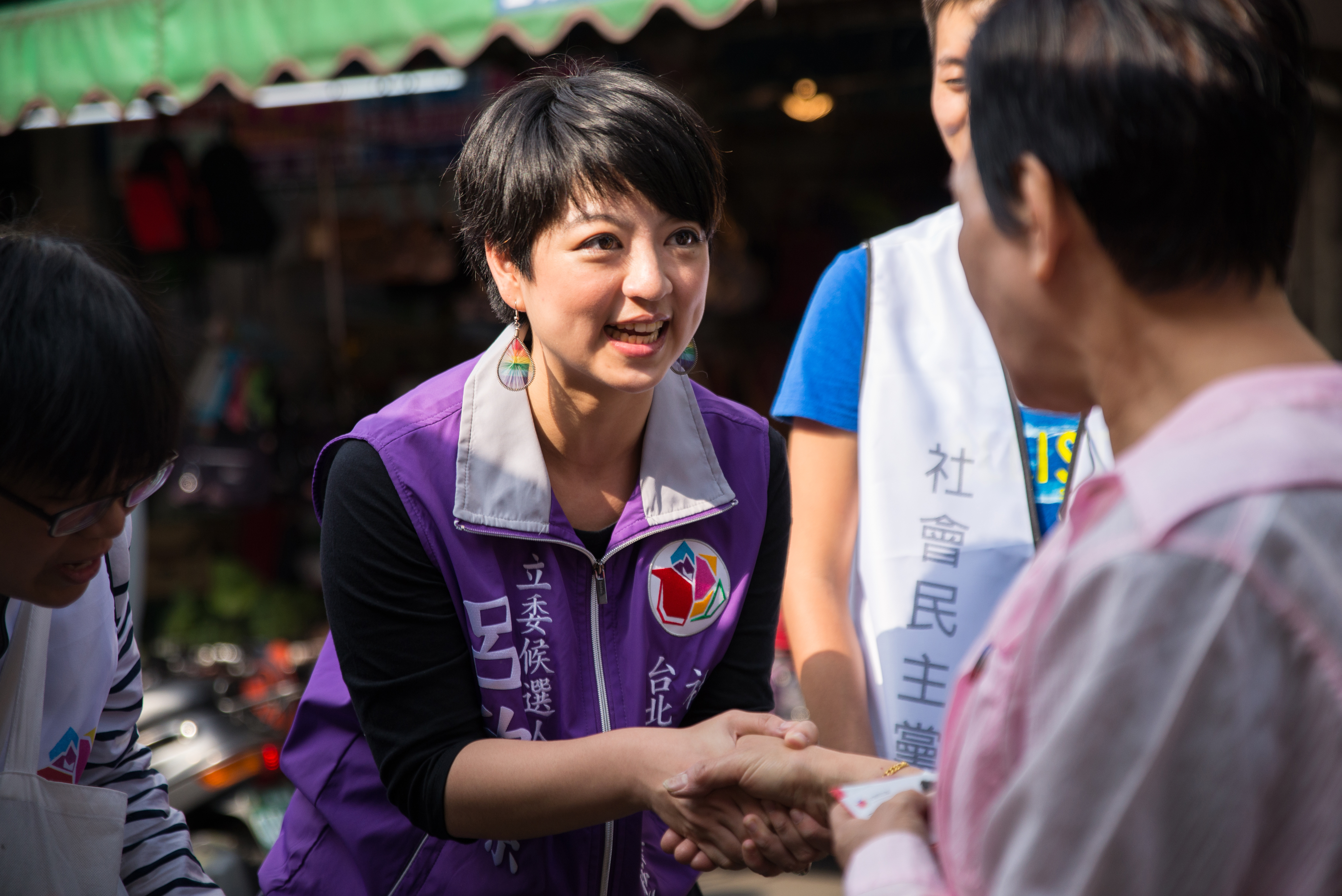 In early April, New Bloom’s Brian Hioe interviewed the Social Democratic Party’s Jennifer Lu by Skype.This was our second interview with Jennifer Lu, we first interviewed her in August of 2014.
In early April, New Bloom’s Brian Hioe interviewed the Social Democratic Party’s Jennifer Lu by Skype.This was our second interview with Jennifer Lu, we first interviewed her in August of 2014.
Will a Visit From Taiwan’s Former Vice President Lend Weight to China’s Revisionist WWII History?
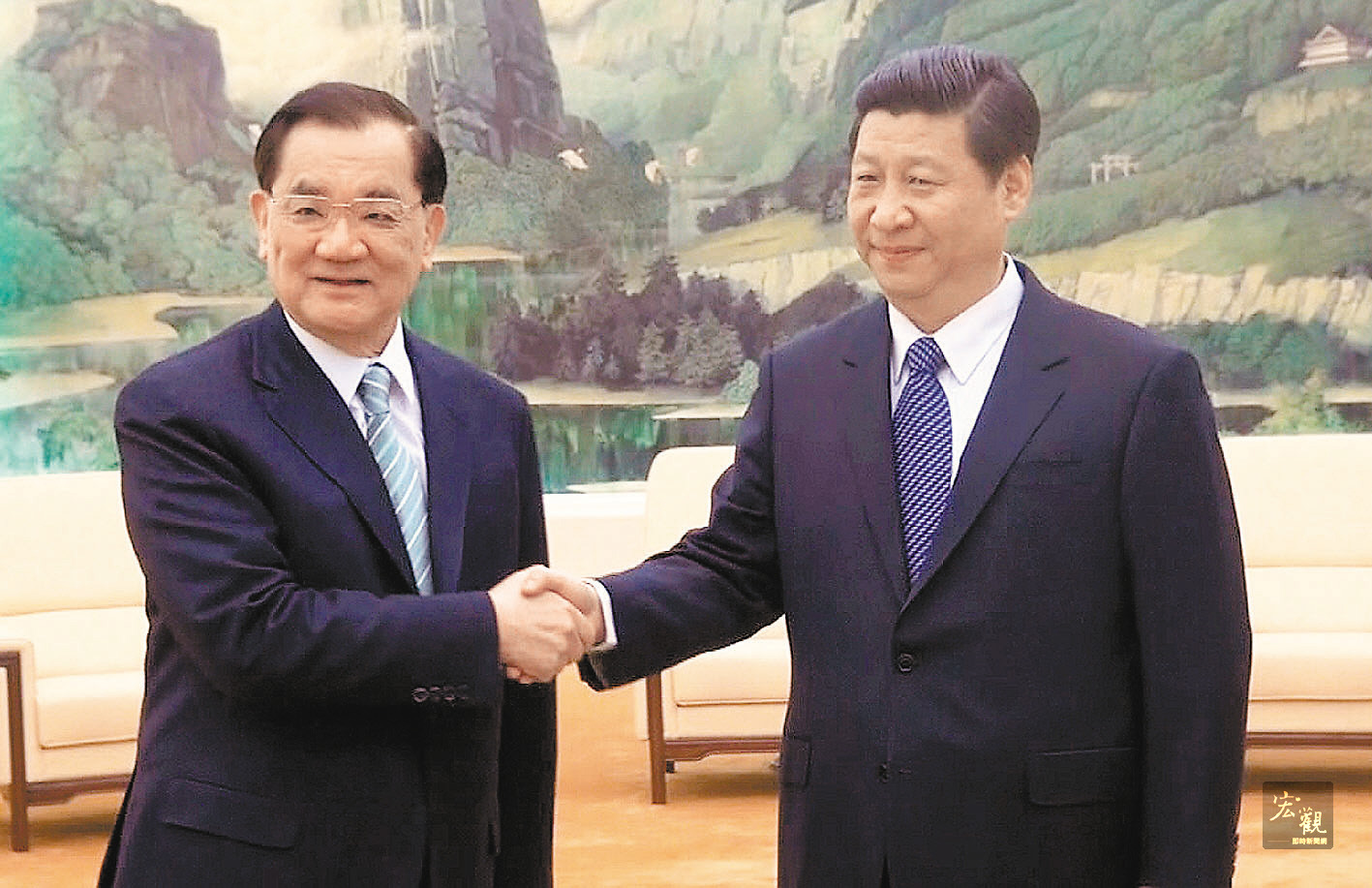 Lien Chan, who served as vice president of Taiwan (Republic of China) from 1996 to 2000, has departed Taipei to attend a World War II military parade to be held in neighboring People’s Republic of China on September 3, 2015. The news stirred a lot of controversy as Lien was a high-profile figure in Taiwan’s ruling political party Kuomintang and his presence is symbolic to the Chinese Communist Party’s military performance.
Lien Chan, who served as vice president of Taiwan (Republic of China) from 1996 to 2000, has departed Taipei to attend a World War II military parade to be held in neighboring People’s Republic of China on September 3, 2015. The news stirred a lot of controversy as Lien was a high-profile figure in Taiwan’s ruling political party Kuomintang and his presence is symbolic to the Chinese Communist Party’s military performance.
China, “Black Monday”, and Future Implications for Domestic and Foreign Policy
 If global financial markets have begun panicking, with “Black Monday” on Wall Street largely attributed to fears about China’s faltering economy, it seems likely this will mark an end to permanent confidence about China’s ability to continually grow economically as though the sky were the limit. But is it possible that China’s recent economic woes may lead to both increasingly aggressive foreign policy as well attempts to crack down on perceived domestic dissidence?
If global financial markets have begun panicking, with “Black Monday” on Wall Street largely attributed to fears about China’s faltering economy, it seems likely this will mark an end to permanent confidence about China’s ability to continually grow economically as though the sky were the limit. But is it possible that China’s recent economic woes may lead to both increasingly aggressive foreign policy as well attempts to crack down on perceived domestic dissidence?
Yearning for Home: An Internal or External Threat?
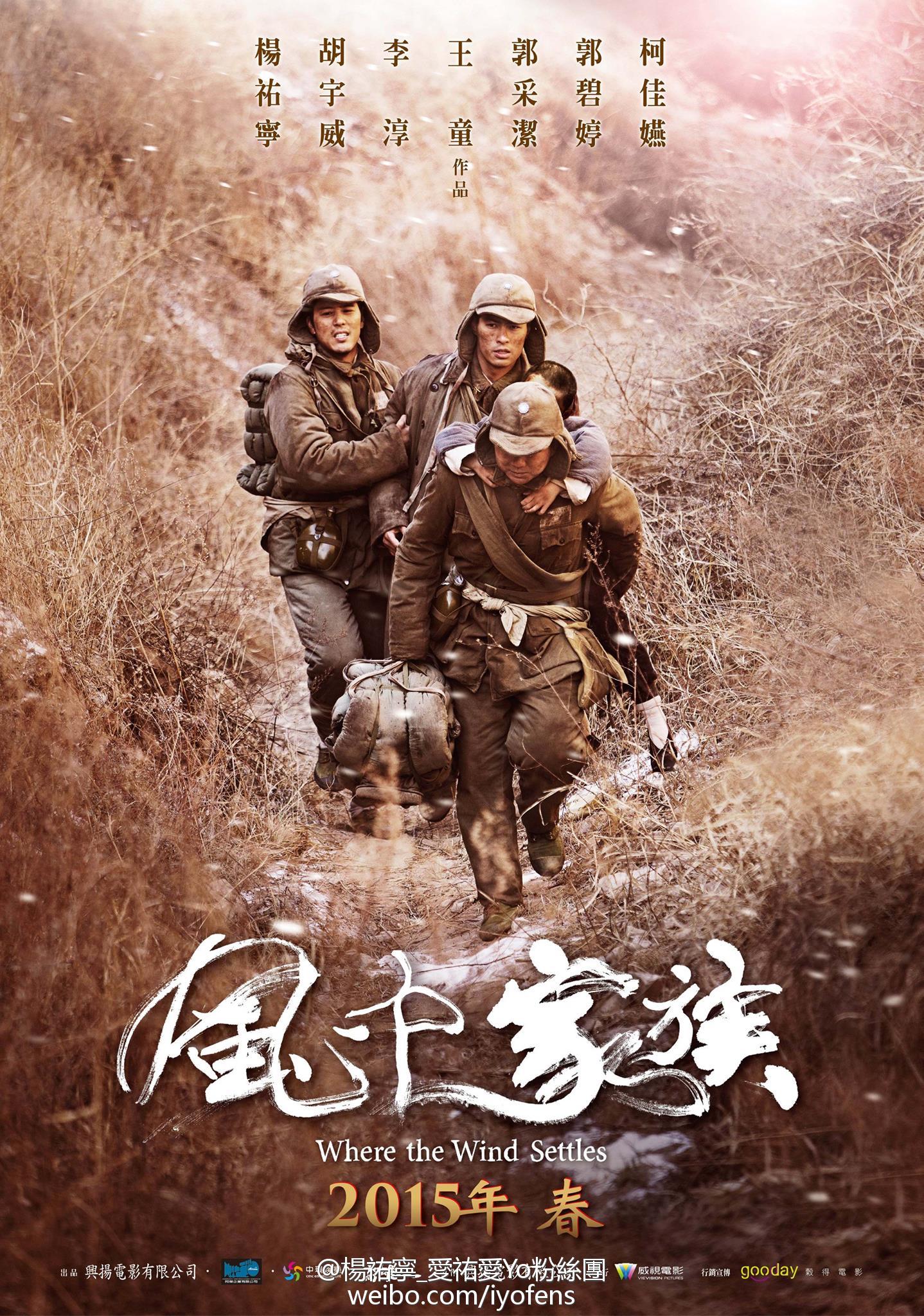 Since the Chinese economic miracle, the Taiwanese film industry has been awash with Chinese money. Such opportunistic investment in Taiwanese films may be view as a form of assistance, but underneath that surface, something darker lurks: soft power diplomacy. We might examine several examples found in recent films.
Since the Chinese economic miracle, the Taiwanese film industry has been awash with Chinese money. Such opportunistic investment in Taiwanese films may be view as a form of assistance, but underneath that surface, something darker lurks: soft power diplomacy. We might examine several examples found in recent films.
Interview: Tsay Ting-Kuei (蔡丁貴)
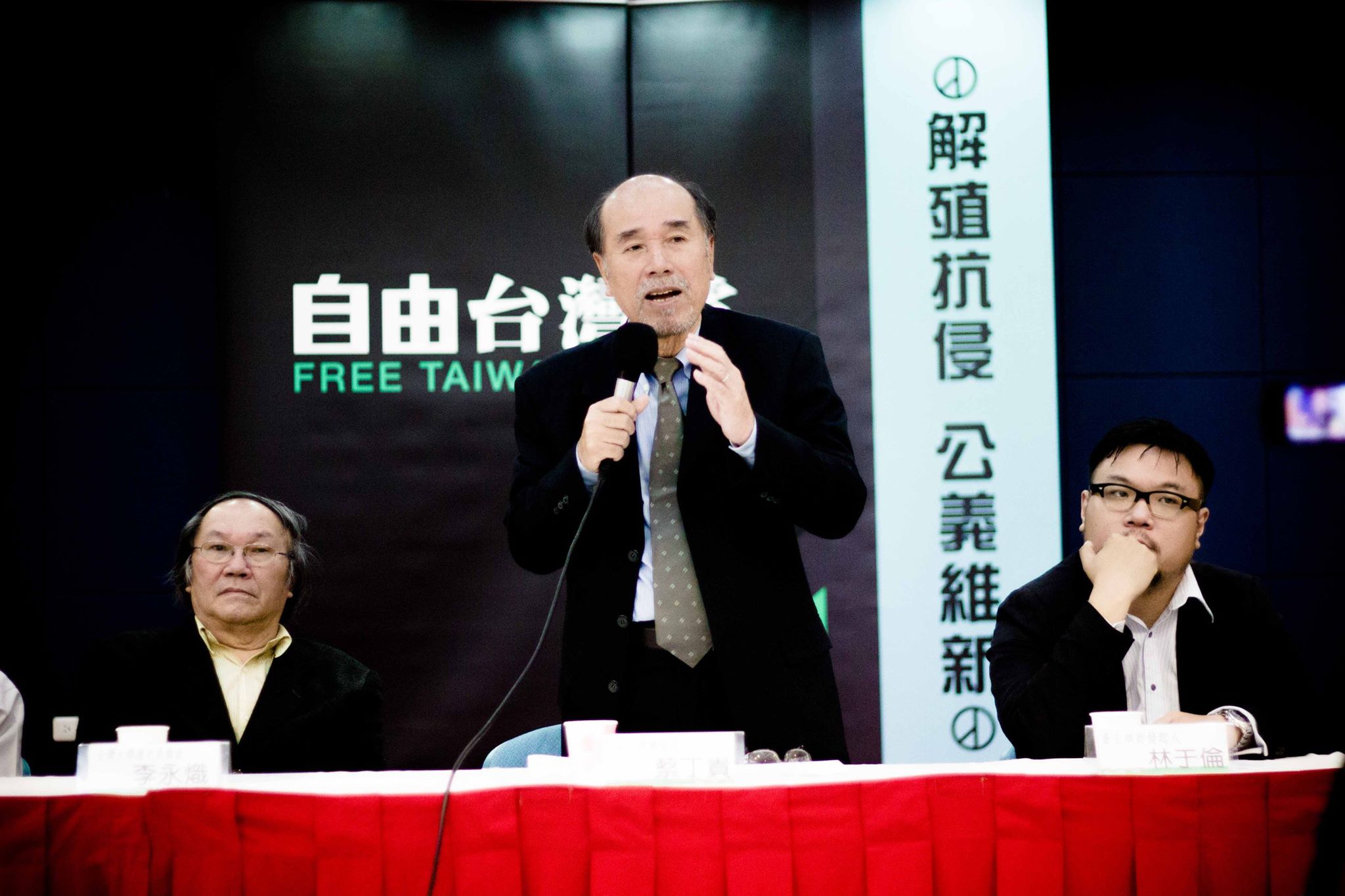 On May 2nd, New Bloom’s Brian Hioe sat down with Dr. Tsay Ting-Kuei in New York City, for an interview about the formation of the Free Taiwan Party. Hioe and Tsay then met up again in late July in Taipei, during the Ministry of Education occupation, for some follow-up questions. This was our second interview with Tsay, the first was conducted in December of last year, also in New York City.
On May 2nd, New Bloom’s Brian Hioe sat down with Dr. Tsay Ting-Kuei in New York City, for an interview about the formation of the Free Taiwan Party. Hioe and Tsay then met up again in late July in Taipei, during the Ministry of Education occupation, for some follow-up questions. This was our second interview with Tsay, the first was conducted in December of last year, also in New York City.
Singapura Mon Amour
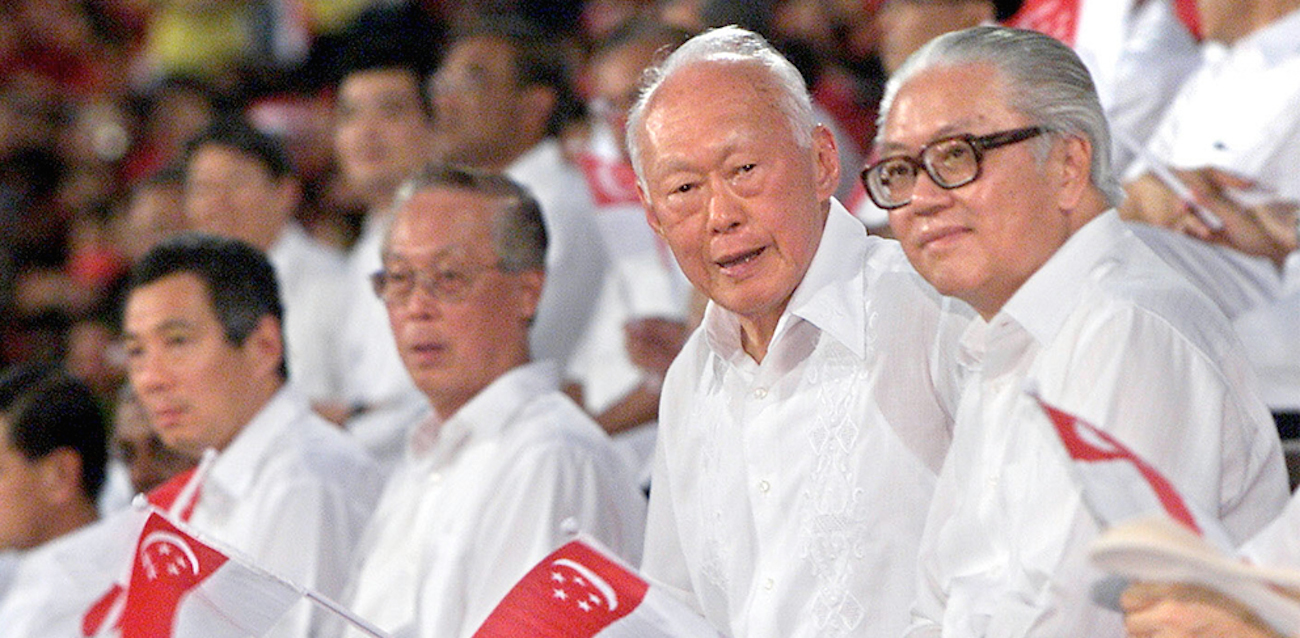 This year marks the first national day Singapore has held without Lee Kuan Yew. How has things changed for this small nation of 5 million people? Nearing close to half a year since Lee’s death, has Singapore political landscape, once under the iron fist of Lee, altered in any way? Has the controversy of the inherent lack of rights in Singapore shown in the curtail of liberties and libels charges used to target opposition, such as the arrest of 16 year old boy Amos Yee, send an awakening call to the public?
This year marks the first national day Singapore has held without Lee Kuan Yew. How has things changed for this small nation of 5 million people? Nearing close to half a year since Lee’s death, has Singapore political landscape, once under the iron fist of Lee, altered in any way? Has the controversy of the inherent lack of rights in Singapore shown in the curtail of liberties and libels charges used to target opposition, such as the arrest of 16 year old boy Amos Yee, send an awakening call to the public?
The Tianjin Explosion, Chinese Government Responses, and Media Spectacle
 We may note with dark irony the series of reactions to the Tianjin explosion across the media landscape both inside and outside of China. To begin with, the explosion had the makings of public spectacle, what with the numerous videos which were taken at the time of the explosion and which were circulated across social media. But why the Tianjin explosions in particular? Namely, the Tianjin explosions were the fifth chemical explosion in 4 months.
We may note with dark irony the series of reactions to the Tianjin explosion across the media landscape both inside and outside of China. To begin with, the explosion had the makings of public spectacle, what with the numerous videos which were taken at the time of the explosion and which were circulated across social media. But why the Tianjin explosions in particular? Namely, the Tianjin explosions were the fifth chemical explosion in 4 months.
Interview: Freddy Lim (林昶佐)
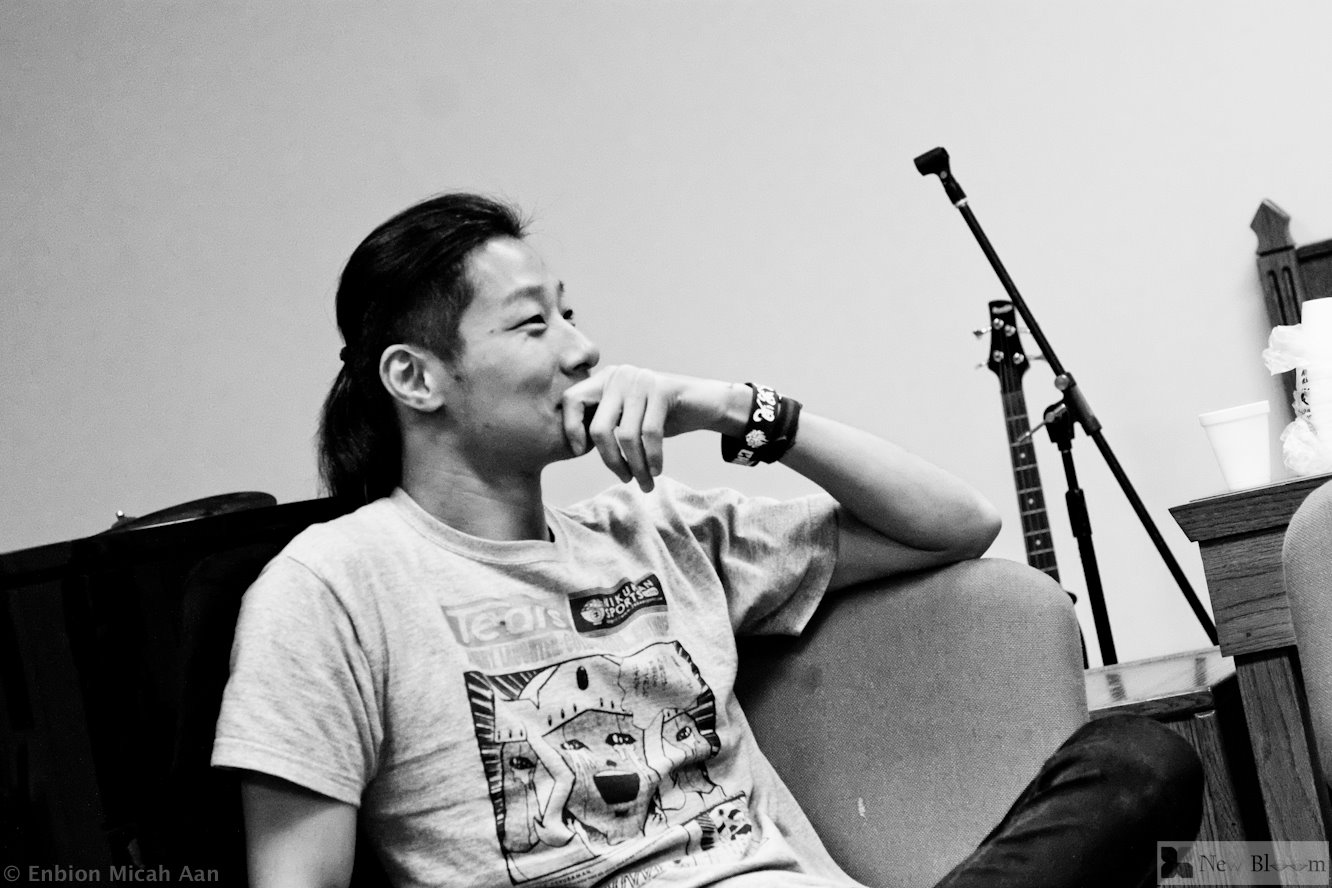 On July 9th, in New York City, New Bloom’s Parson Young interviewed Freddy Lim of the New Power Party and lead singer of the famed black metal band Chthonic. This is part of an upcoming series of interviews New Bloom is conducting with members of third parties in Taiwan.
On July 9th, in New York City, New Bloom’s Parson Young interviewed Freddy Lim of the New Power Party and lead singer of the famed black metal band Chthonic. This is part of an upcoming series of interviews New Bloom is conducting with members of third parties in Taiwan.
Revisiting Jackie Chan: Man of the Chinese Communist Party?
It is a question whether or not Jackie Chan is playing the role of the Chinese Communist Party’s spokesman in recent film. Indeed, during the Umbrella Movement in Hong Kong, Chan said “Hong Kong has become a city of protest […] People scold China’s leaders or anything else they like and protest against anything”. This is illustrative of how he significantly involves himself in China politics. More specifically, we might examine how the depiction of masculinity in the film 1911 sets forth certain ideals for its audience, in prescription with cultural values that the CCP would like to offer as ideals.
From the Sunflower Movement to the Anti-Textbook Revision Movement
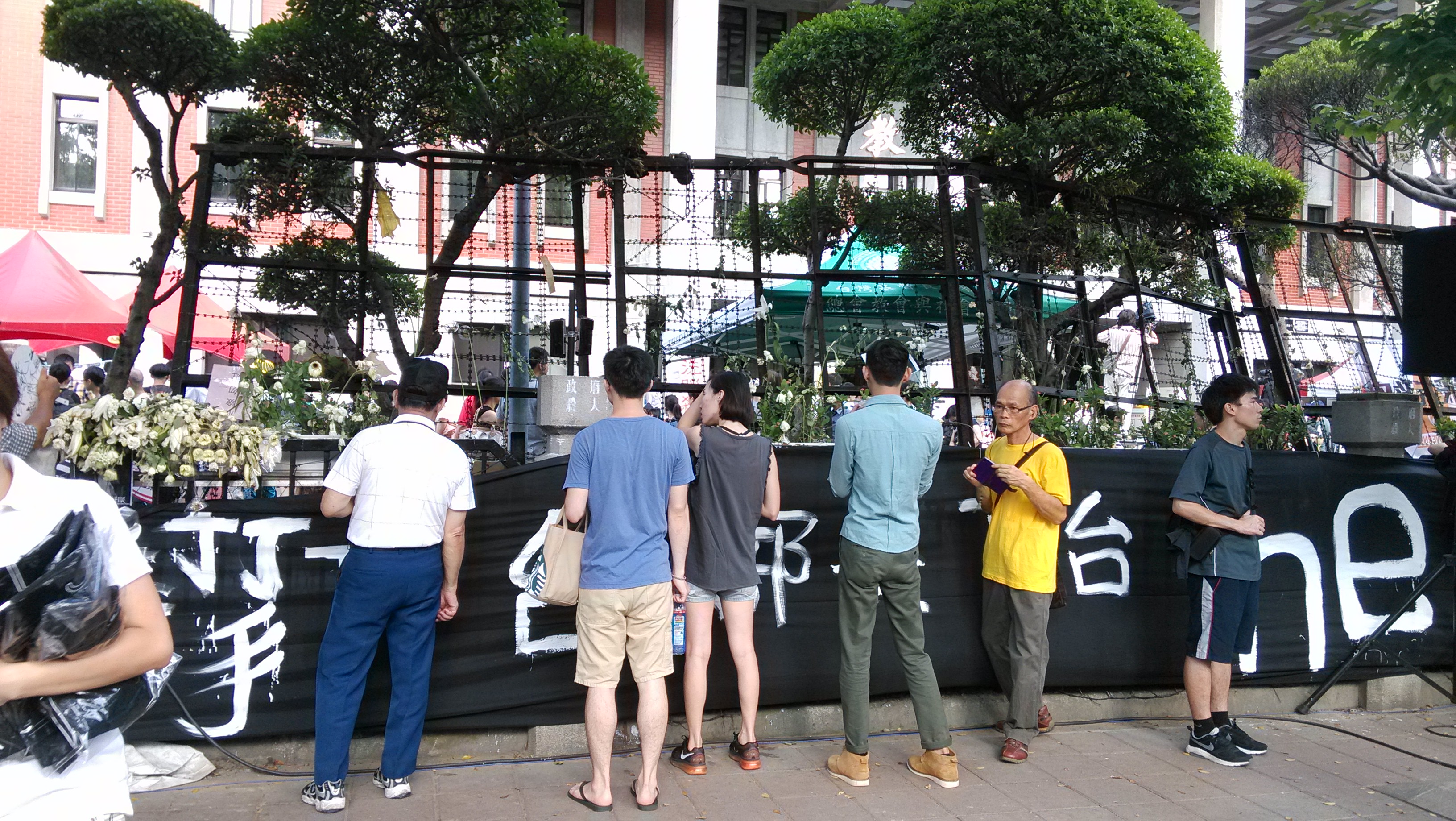 Looking back we can maybe say that in some way that the textbook protests which have rocked Taiwan in the past week occurred in the shadow of last year’s Sunflower Movement. Though I think it true to say that the movement eventually developed its own identity as distinct from the Sunflower Movement, this was true from the beginning, where the original plan to surround the Ministry of Education which was publicly announced by activists several months in advance was called a “Second Sunflower Movement.” With the end of the occupation, if we are to look back on the movement, was it really a second Sunflower Movement?
Looking back we can maybe say that in some way that the textbook protests which have rocked Taiwan in the past week occurred in the shadow of last year’s Sunflower Movement. Though I think it true to say that the movement eventually developed its own identity as distinct from the Sunflower Movement, this was true from the beginning, where the original plan to surround the Ministry of Education which was publicly announced by activists several months in advance was called a “Second Sunflower Movement.” With the end of the occupation, if we are to look back on the movement, was it really a second Sunflower Movement?
The Crisis of Taiwanese Politics as Expressed Through the Anti-Textbook Revision Movement?
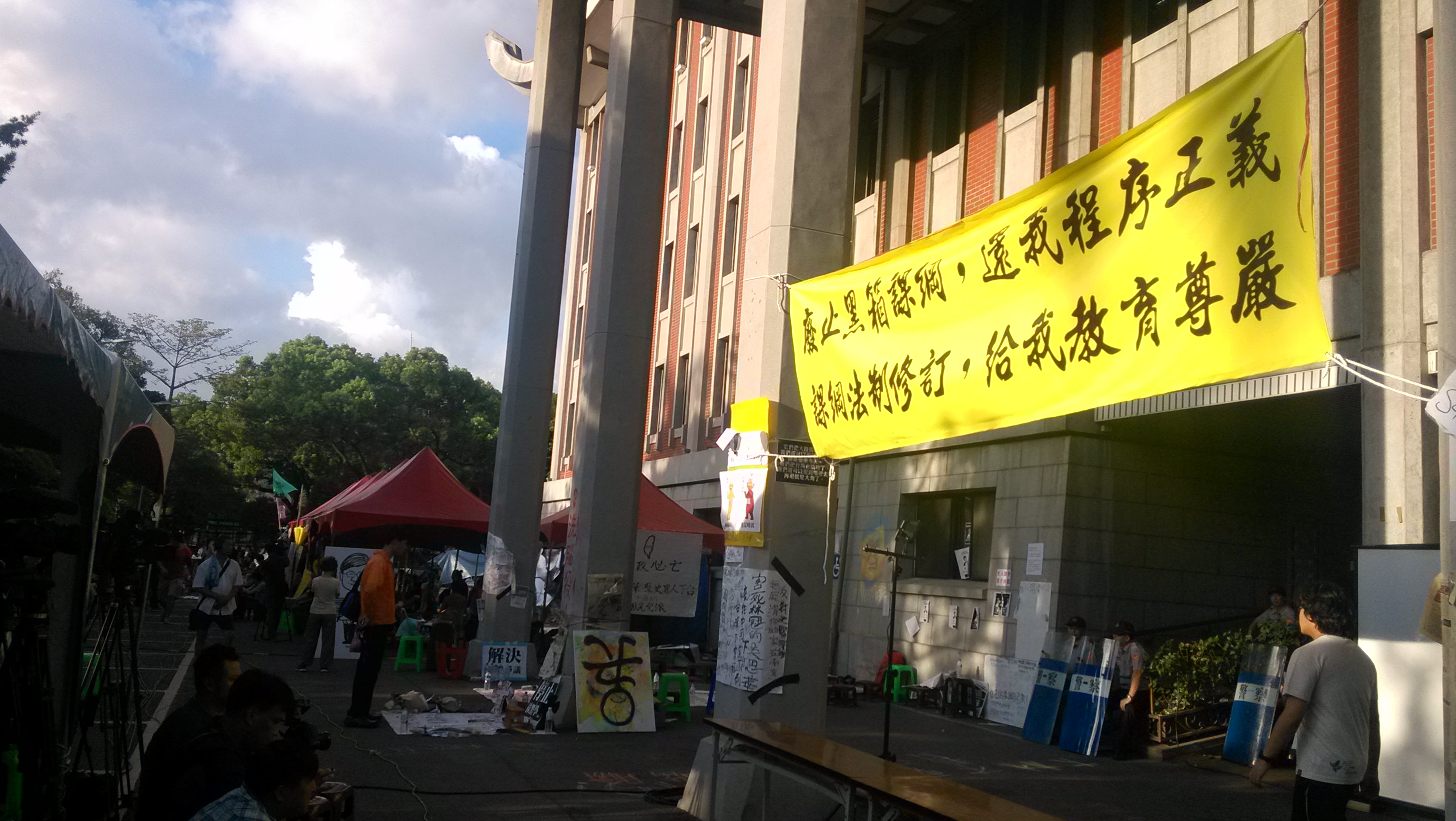 Political reactions to the occupation were revealing is in regards to the deep splits within the KMT which have been made quite evident in recent days. The strategy by which the DPP has positioned itself relative to the textbook controversy are also in some way revealing of its current stances relative to issues which have been raised since last year’s Sunflower Movement concerning KMT authoritarianism—and more broadly threats to maintaining Taiwan’s status of de facto independence relative to China. Lastly, the role of independent political forces within Taiwanese society at present can also be seen from how they engaged with the political crisis.
Political reactions to the occupation were revealing is in regards to the deep splits within the KMT which have been made quite evident in recent days. The strategy by which the DPP has positioned itself relative to the textbook controversy are also in some way revealing of its current stances relative to issues which have been raised since last year’s Sunflower Movement concerning KMT authoritarianism—and more broadly threats to maintaining Taiwan’s status of de facto independence relative to China. Lastly, the role of independent political forces within Taiwanese society at present can also be seen from how they engaged with the political crisis.
For Truly Democratic Education, Taiwanese Must Overthrow Capitalism!
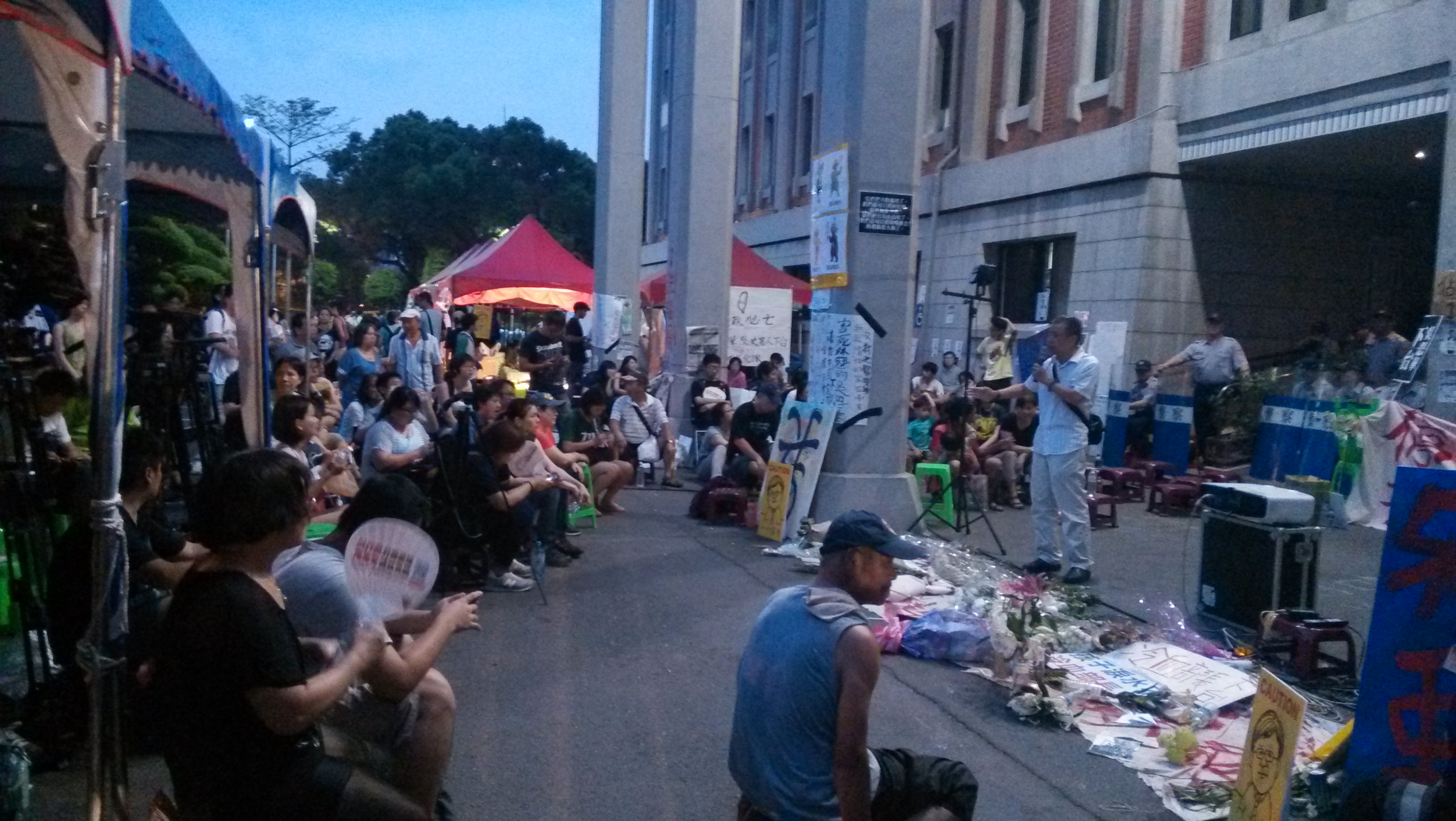 Taiwanese conservatives, “Left” unificationists, and ultra-left sectarians, all happen to understand the non-stop stream of student movement as the DPP’s manipulation of nationalism, or its buying of the agitation of young students of Taiwan. This kind of short-sighted and limited analysis, only reflects the lack of understanding of how society changes, but also lacks a recognition of the political and economic reasons for the growing anti-government demonstration
Taiwanese conservatives, “Left” unificationists, and ultra-left sectarians, all happen to understand the non-stop stream of student movement as the DPP’s manipulation of nationalism, or its buying of the agitation of young students of Taiwan. This kind of short-sighted and limited analysis, only reflects the lack of understanding of how society changes, but also lacks a recognition of the political and economic reasons for the growing anti-government demonstration
Why Are Self-Proclaimed Members of the Taiwanese Radical Left Afraid of the Anti-Textbook Revision Movement?
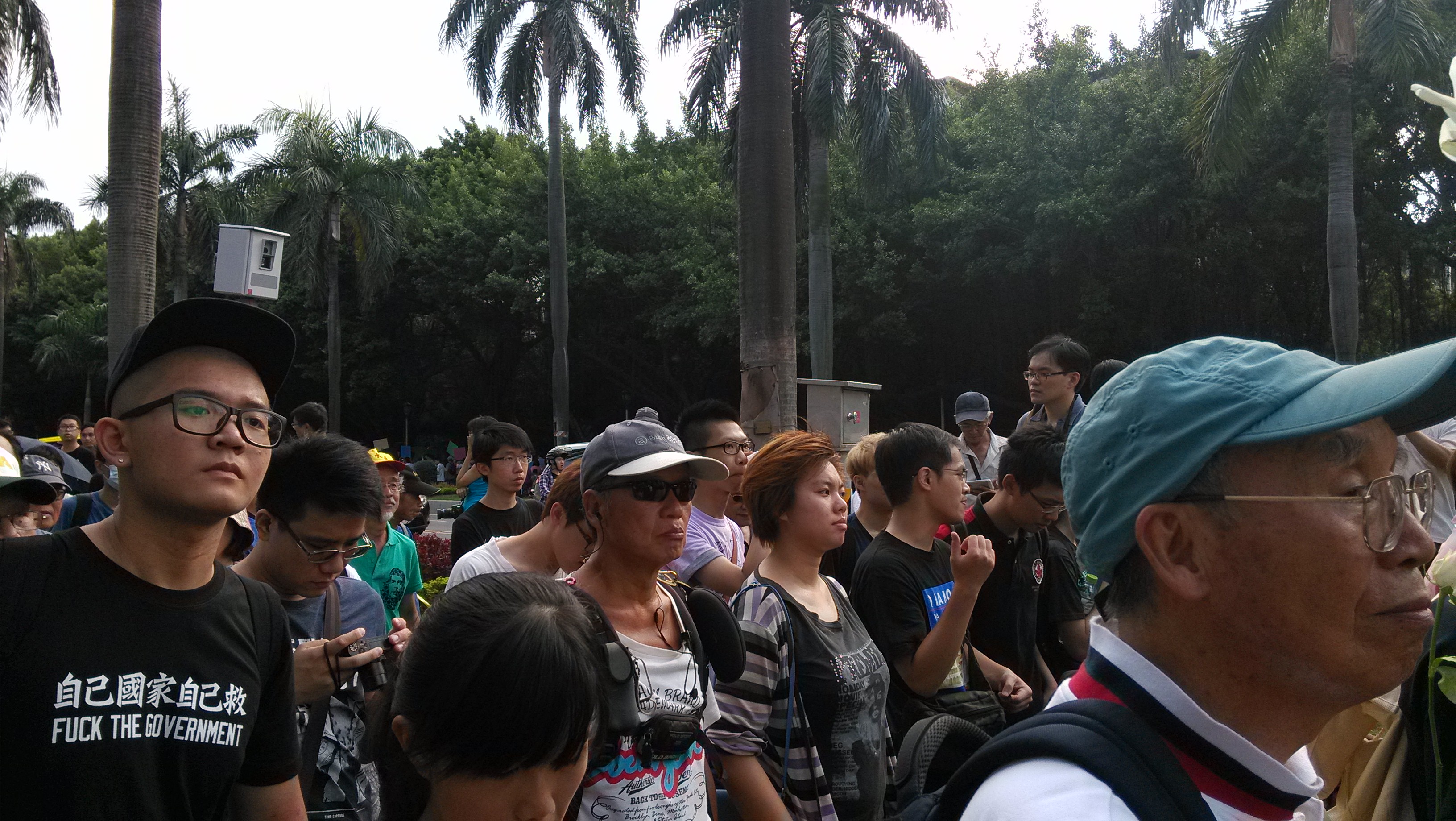 Why are certain self-proclaimed members of Taiwan’s radical Left so afraid of the current anti-textbook revision movement? And in this case, it would look like the political Left is afraid of a bunch of children—high schoolers, that is. So very radical that is. Going back to last year’s Sunflower Movement, once again we find ourselves in the situation where a small segment of the self-proclaimed Left backs away from a mass uprising of Taiwanese society, proclaiming it to be a mere expression of right-wing populism.
Why are certain self-proclaimed members of Taiwan’s radical Left so afraid of the current anti-textbook revision movement? And in this case, it would look like the political Left is afraid of a bunch of children—high schoolers, that is. So very radical that is. Going back to last year’s Sunflower Movement, once again we find ourselves in the situation where a small segment of the self-proclaimed Left backs away from a mass uprising of Taiwanese society, proclaiming it to be a mere expression of right-wing populism.
Five Days of Struggle Against Black Box Education In Taiwan
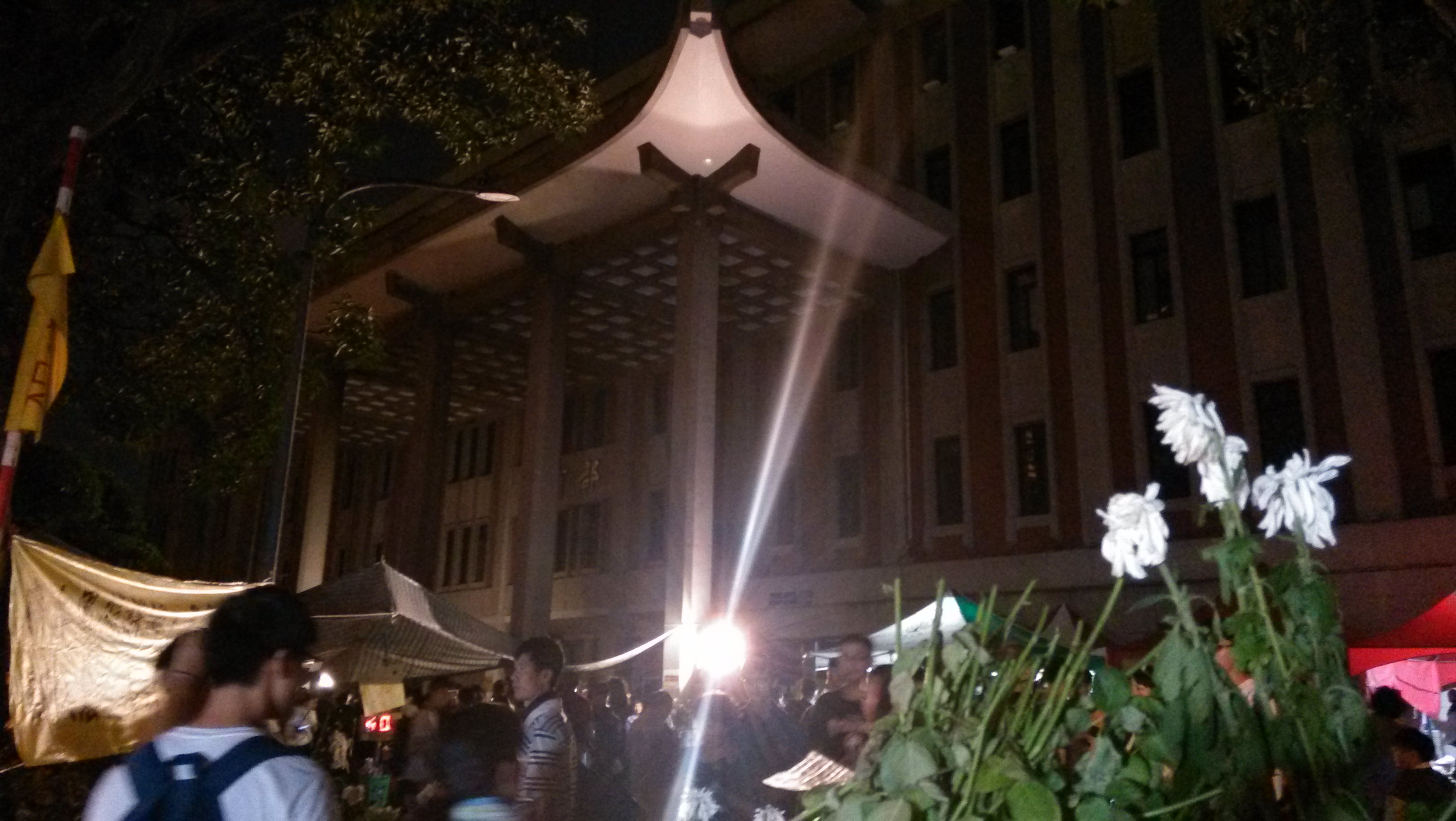 After an attempt to occupy the Ministry of Education on July 23rd in which student occupiers got as far as the office of the Minister of Education, since July 30th the Ministry of Education courtyard has been occupied after demonstrators forced down the razor wire barriers and pushed back the police the night of the 30th. The actions of July 30th had been motivated by the suicide of Lin Kuanhua, a student activist who was apparently the first of the student occupiers who was arrested in the Minister of Education’s office. Five days into the occupation we might note international responses to date and future prospects for the movement.
After an attempt to occupy the Ministry of Education on July 23rd in which student occupiers got as far as the office of the Minister of Education, since July 30th the Ministry of Education courtyard has been occupied after demonstrators forced down the razor wire barriers and pushed back the police the night of the 30th. The actions of July 30th had been motivated by the suicide of Lin Kuanhua, a student activist who was apparently the first of the student occupiers who was arrested in the Minister of Education’s office. Five days into the occupation we might note international responses to date and future prospects for the movement.
Lessons from the Greek Referendum for Referendum Reform in Taiwan?
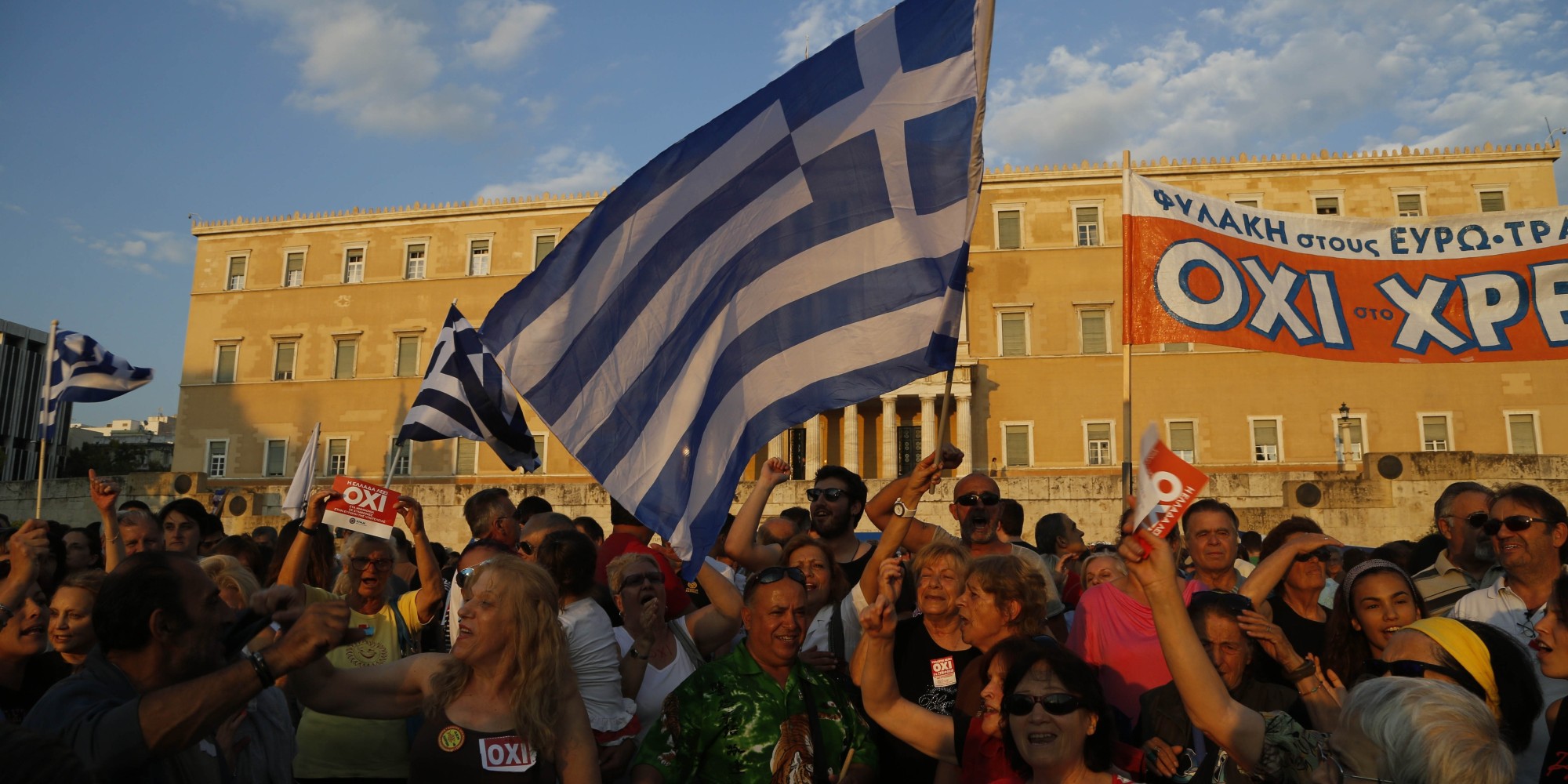 Even as Taiwan’s political Left has, like much of the international Left, been enraptured with the ongoing drama of SYRIZA and Greece, it seems the Taiwanese Left has largely not seen where lessons from current circumstances in Greece apply to Taiwan. Namely, a key part of the drama in Greece was a public referendum among the Greek public which took place on July 5th as to whether to accept the bailout conditions of the European Union or not. Like Greece and, for that matter, Scotland, Taiwan is one of the few countries in the world where large-scale public referendum is on the table as a political possibility. Yet there has been little commentary regarding what lessons the Greek and Scottish referendum can offer Taiwan in terms of lessons.
Even as Taiwan’s political Left has, like much of the international Left, been enraptured with the ongoing drama of SYRIZA and Greece, it seems the Taiwanese Left has largely not seen where lessons from current circumstances in Greece apply to Taiwan. Namely, a key part of the drama in Greece was a public referendum among the Greek public which took place on July 5th as to whether to accept the bailout conditions of the European Union or not. Like Greece and, for that matter, Scotland, Taiwan is one of the few countries in the world where large-scale public referendum is on the table as a political possibility. Yet there has been little commentary regarding what lessons the Greek and Scottish referendum can offer Taiwan in terms of lessons.
Neoliberalism and Queer Cinema
 Like Love is the first mainland Chinese LGBT-themed movie in mainstream cinema. But can we point to an underlying neoliberal ideology within the film? Westernized individuals serve as protagonists, and the environments they inhabit are also highly westernized. The movie represents its protagonists in a chic-Western fashion, noticeably in their clothes and haircuts. Such establishments as houses, dorms and airport are trendsetting; almost nothing is of local tone.
Like Love is the first mainland Chinese LGBT-themed movie in mainstream cinema. But can we point to an underlying neoliberal ideology within the film? Westernized individuals serve as protagonists, and the environments they inhabit are also highly westernized. The movie represents its protagonists in a chic-Western fashion, noticeably in their clothes and haircuts. Such establishments as houses, dorms and airport are trendsetting; almost nothing is of local tone.
Article 9 and Japan’s Democratic Crisis
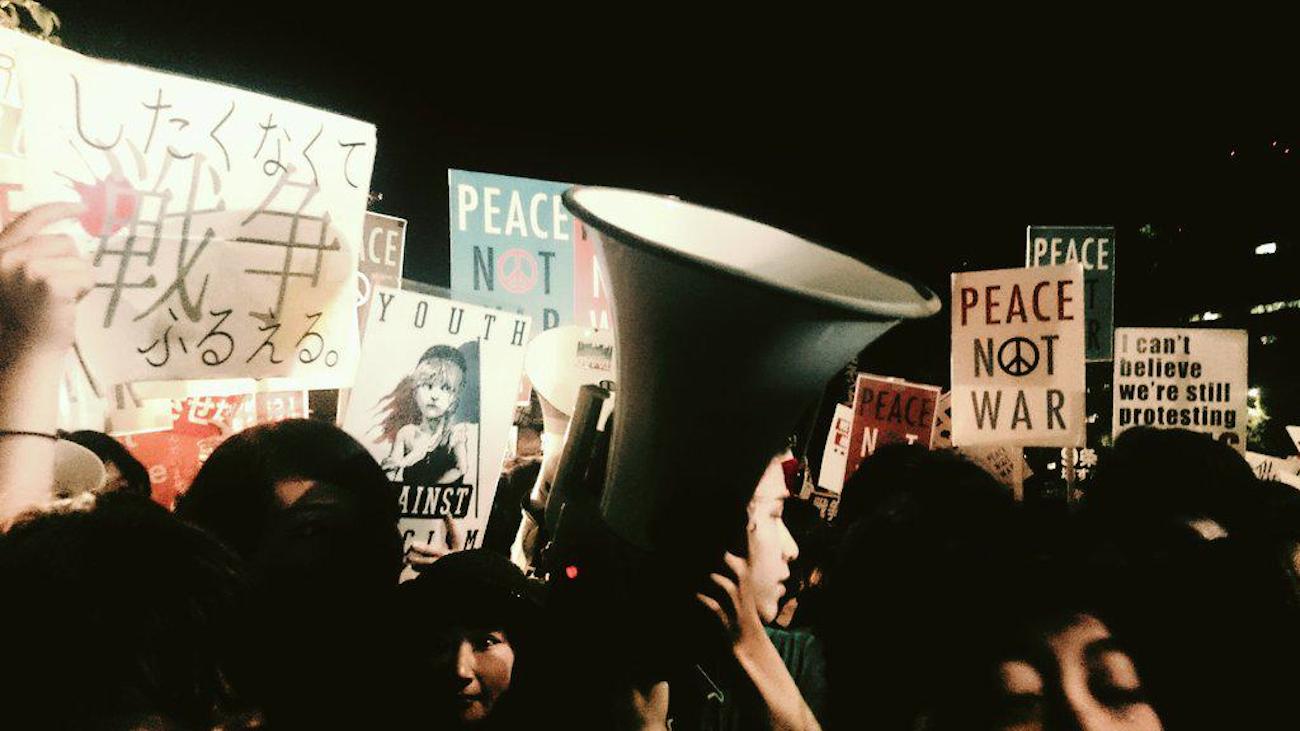 Once again, we find ourselves in the situation where tens of thousands of individuals gather on the streets in an Asian metropolitan area, but the situation is largely not reported globally. Today we find ourselves in Japan, where up to sixty thousand gathered last Wednesday in front of the Diet to protest the repeal of Japan’s Article 9 and one hundred thousand are expected to gather over the weekend against the planned repeal and in favor of that Article 9 remain as part of the Japanese constitution. Though the actual crowd count is unclear, over ten thousand gather daily.
Once again, we find ourselves in the situation where tens of thousands of individuals gather on the streets in an Asian metropolitan area, but the situation is largely not reported globally. Today we find ourselves in Japan, where up to sixty thousand gathered last Wednesday in front of the Diet to protest the repeal of Japan’s Article 9 and one hundred thousand are expected to gather over the weekend against the planned repeal and in favor of that Article 9 remain as part of the Japanese constitution. Though the actual crowd count is unclear, over ten thousand gather daily.
Profile: FoxCarn & the Betel Store
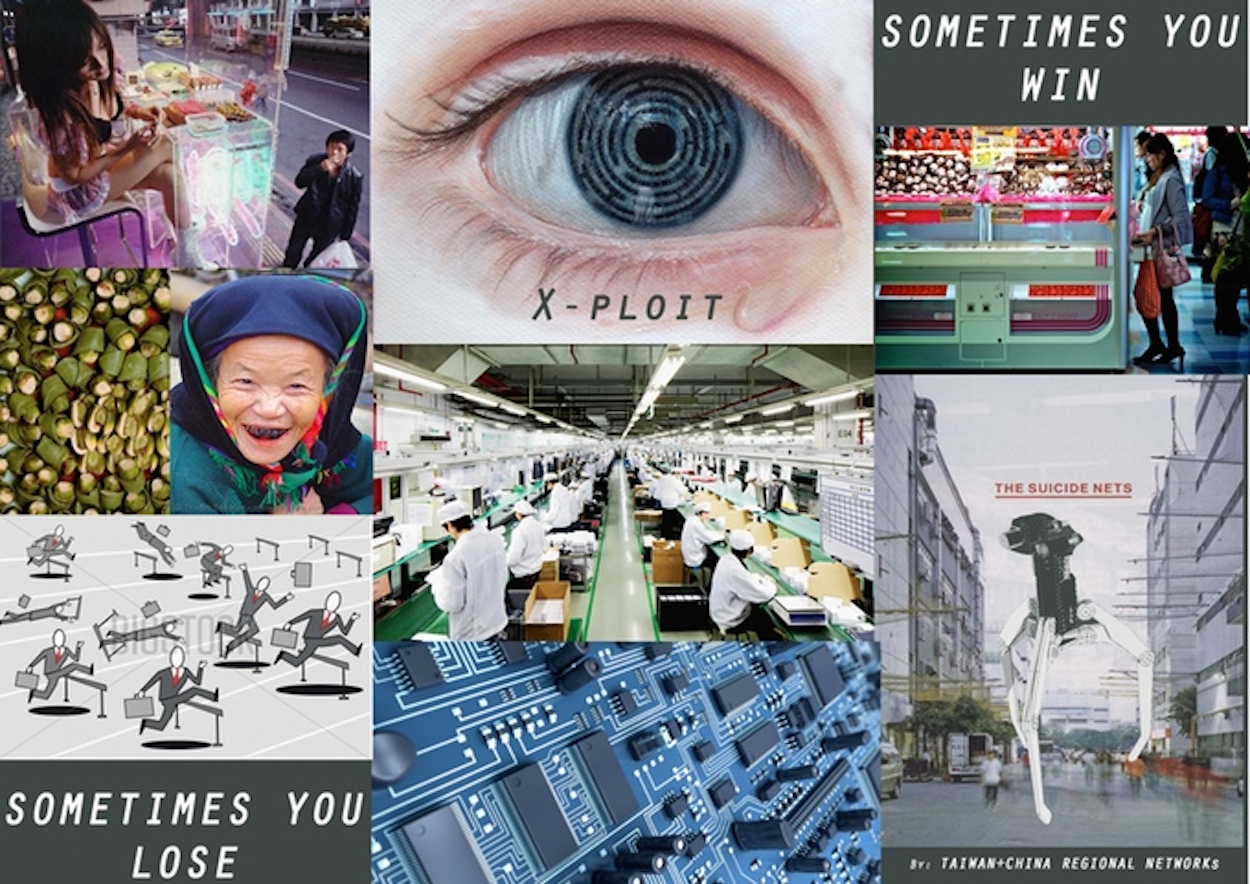 FoxCarn & the Betel Store will be the China and Taiwan regional project for Burning Man 2015. The project will feature “worker” participants drawn from Burning Man attendees, who will make Apple parody products as part of an interactive art installation in which participants will experience working in an electronics factory meant to draw parallel to the real-life Foxconn, complete with a robotic overseer arm overhead. New Bloom caught up by e-mail with Ian Rowen, whom we previously interviewed regarding his experiences as one of the few individuals to participate in both the Sunflower Movement and the Umbrella Movement regarding the project.
FoxCarn & the Betel Store will be the China and Taiwan regional project for Burning Man 2015. The project will feature “worker” participants drawn from Burning Man attendees, who will make Apple parody products as part of an interactive art installation in which participants will experience working in an electronics factory meant to draw parallel to the real-life Foxconn, complete with a robotic overseer arm overhead. New Bloom caught up by e-mail with Ian Rowen, whom we previously interviewed regarding his experiences as one of the few individuals to participate in both the Sunflower Movement and the Umbrella Movement regarding the project.
Marxist Basics with Parson: How Did Stalin and Mao Betray Marxism?
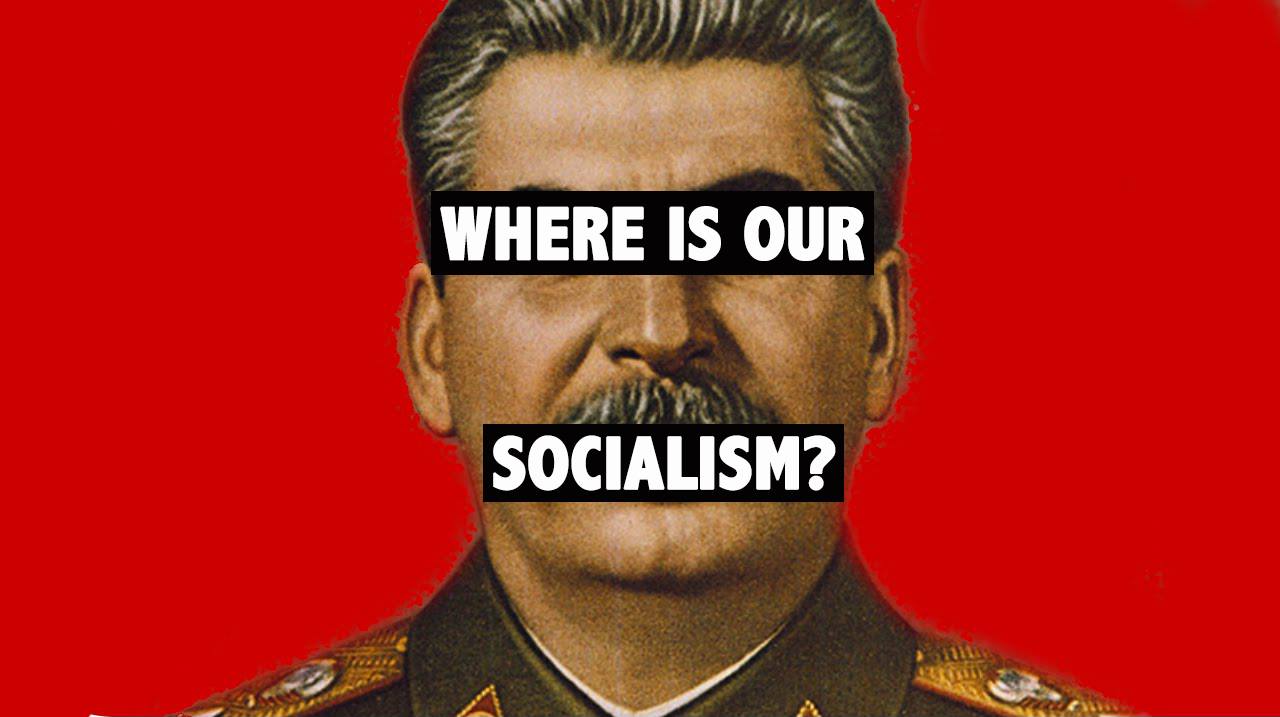 Nowadays most people would associate the word “Communism” with a twisted society plagued by poverty, totalitarianism, and a cult of personality. In the past century there certainly were politicians such as Joseph Stalin, Mao Zedong, and Kim Il-sung who shamelessly built such societies in the name of Marxism. However, can the formation and the eventual collapse of these governments really prove that Marxism is fundamentally wrong?
Nowadays most people would associate the word “Communism” with a twisted society plagued by poverty, totalitarianism, and a cult of personality. In the past century there certainly were politicians such as Joseph Stalin, Mao Zedong, and Kim Il-sung who shamelessly built such societies in the name of Marxism. However, can the formation and the eventual collapse of these governments really prove that Marxism is fundamentally wrong?
How Could A Demonstration of 50,000 in Shanghai Not Be Reported in International Media?
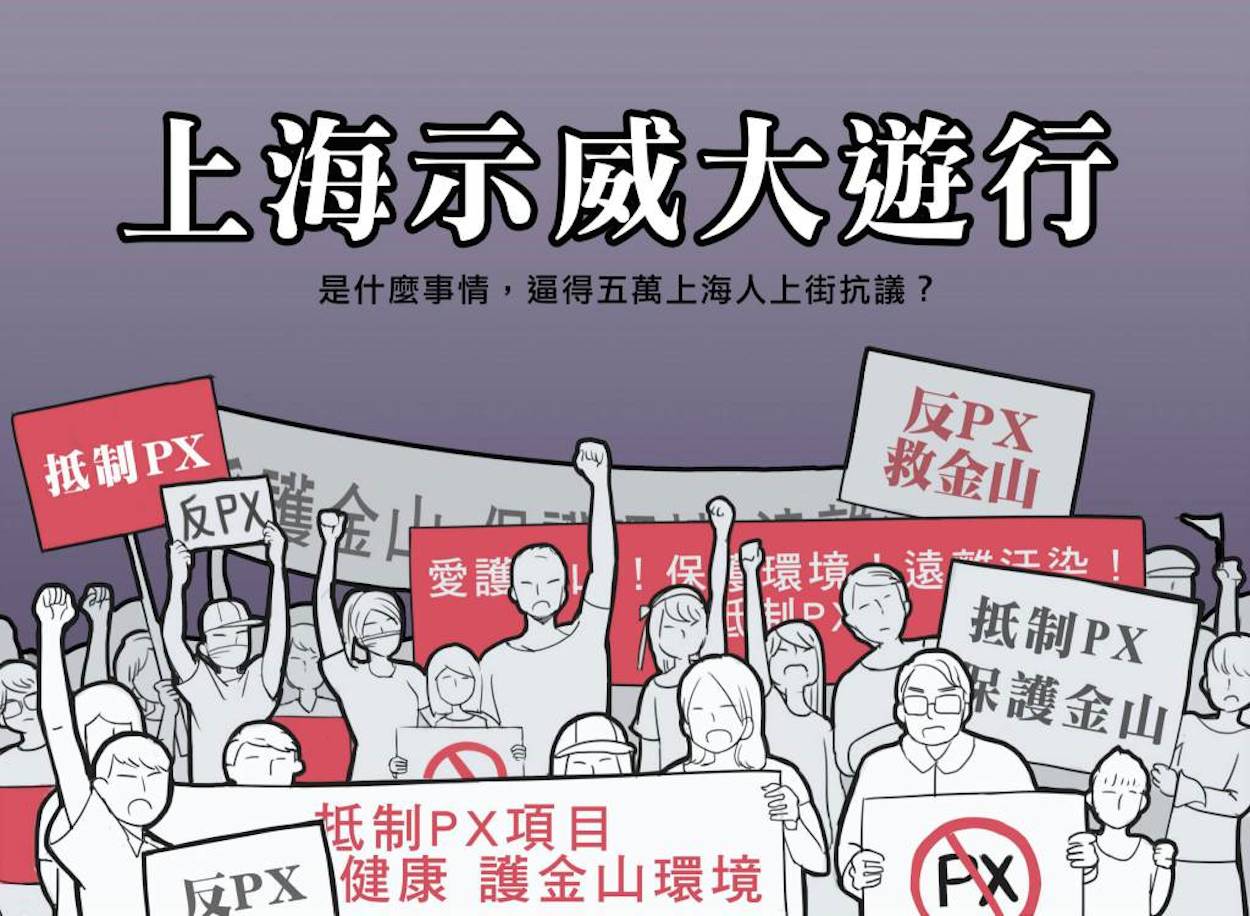 Shanghai in the last month has seen massive mobilizations, some reports of which claim that up to 50,000 participated in environmental demonstrations against the building of a chemical plant. This has not at all been reported upon in western media, although details in Sinophone media are also sparse. The past week of actions dates to June 22nd, when a demonstration in which protestors occupied the space outside the Jinshui District Government in the suburb of Jinshui, Shanghai. Protestors were demonstrating against the building of a PX chemical plant in Shanghai, despite government claims that such a plant was not being built.
Shanghai in the last month has seen massive mobilizations, some reports of which claim that up to 50,000 participated in environmental demonstrations against the building of a chemical plant. This has not at all been reported upon in western media, although details in Sinophone media are also sparse. The past week of actions dates to June 22nd, when a demonstration in which protestors occupied the space outside the Jinshui District Government in the suburb of Jinshui, Shanghai. Protestors were demonstrating against the building of a PX chemical plant in Shanghai, despite government claims that such a plant was not being built.
Taiwan’s Textbook Controversy and the Struggle Over Taiwanese History
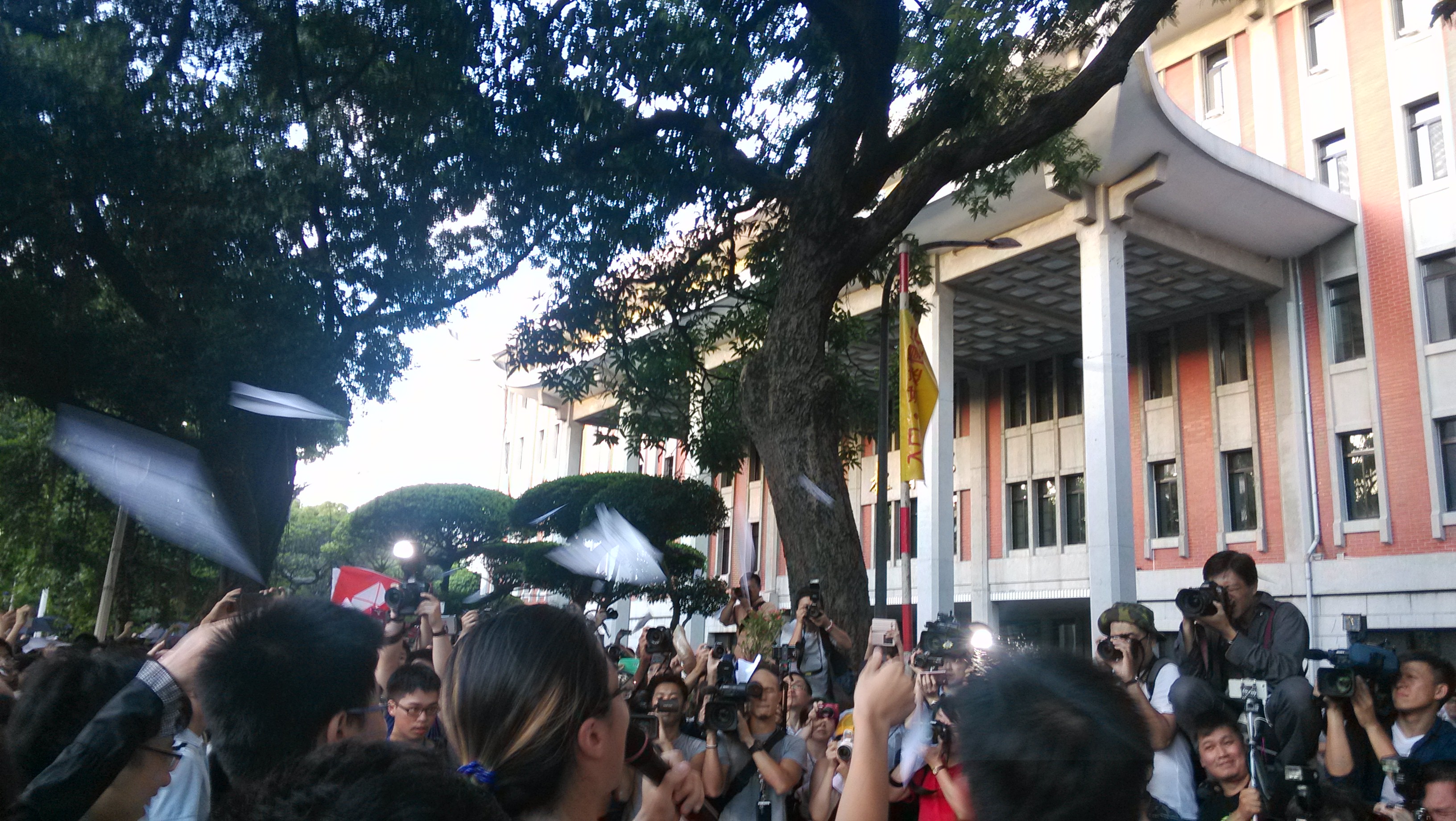 Yesterday afternoon, demonstrators gathered at a site near the Ministry of Education for an afternoon of speeches, before marching at just before 6 PM to the Ministry of Education to throw paper airplanes into the Ministry of Education courtyard. The paper airplanes were made from folded up letters written by students expressing their dissatisfaction with planned textbook revisions. These changes have been referred to as a “black box” in line with the CSSTA trade agreement that the Ma administration attempted to push through legislature last year, as well as a “second Sunflower Movement.”
Yesterday afternoon, demonstrators gathered at a site near the Ministry of Education for an afternoon of speeches, before marching at just before 6 PM to the Ministry of Education to throw paper airplanes into the Ministry of Education courtyard. The paper airplanes were made from folded up letters written by students expressing their dissatisfaction with planned textbook revisions. These changes have been referred to as a “black box” in line with the CSSTA trade agreement that the Ma administration attempted to push through legislature last year, as well as a “second Sunflower Movement.”
At Heart, What are the Fears of the Pro-Unification Left?
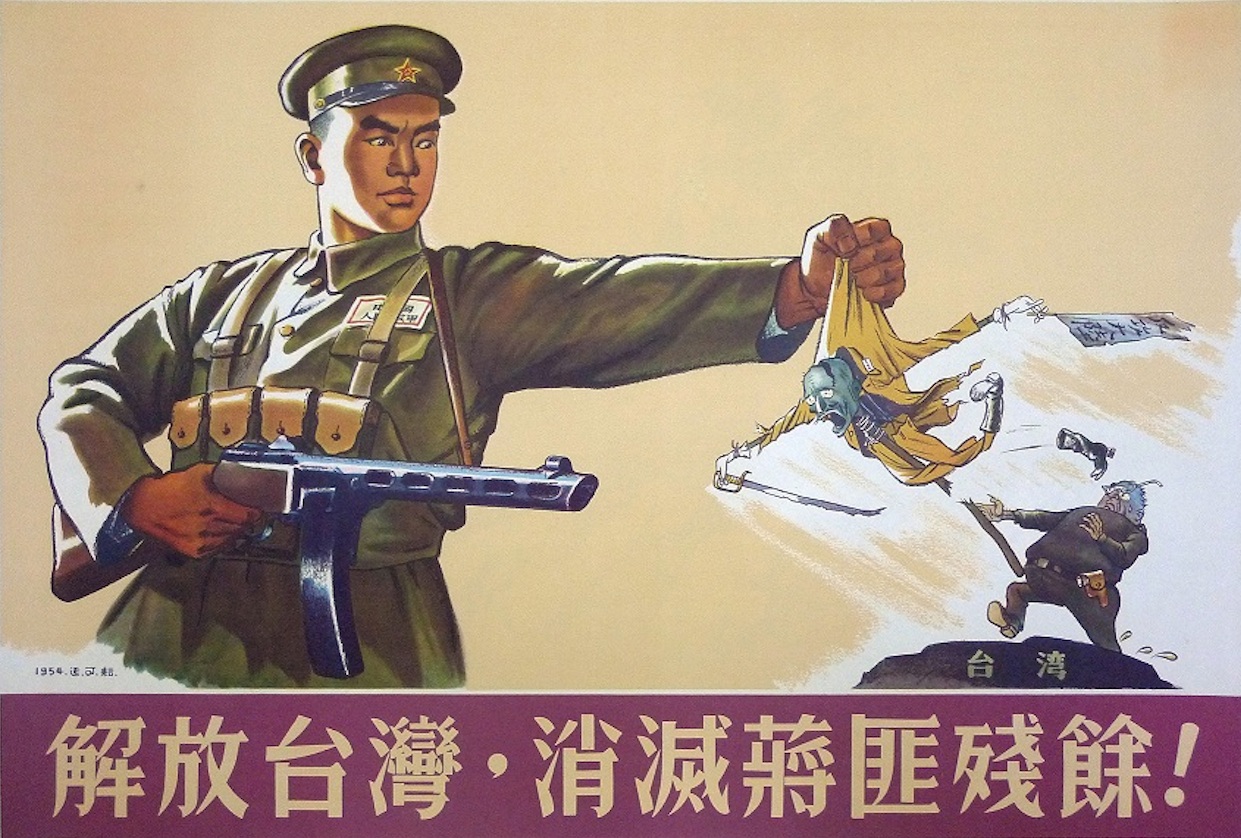 It would seem that there is something of a divide among the so-called pro-unification Left about the Sunflower Movement these days. Namely, there seems to be a divide between those who are in some way more sympathetic to the Sunflower Movement as an expression of Taiwanese society and those who would seek to dismiss the movement as a whole. This is perhaps how we can understand the divide within the Taiwanese pro-unification Left in regards to Joyce Liu’s recent article concerning the Sunflower Movement published in Ground Breaking and its critique of older, more traditional voices of the pro-unification Left as Zhao Gang.
It would seem that there is something of a divide among the so-called pro-unification Left about the Sunflower Movement these days. Namely, there seems to be a divide between those who are in some way more sympathetic to the Sunflower Movement as an expression of Taiwanese society and those who would seek to dismiss the movement as a whole. This is perhaps how we can understand the divide within the Taiwanese pro-unification Left in regards to Joyce Liu’s recent article concerning the Sunflower Movement published in Ground Breaking and its critique of older, more traditional voices of the pro-unification Left as Zhao Gang.
Seeds: James Lane
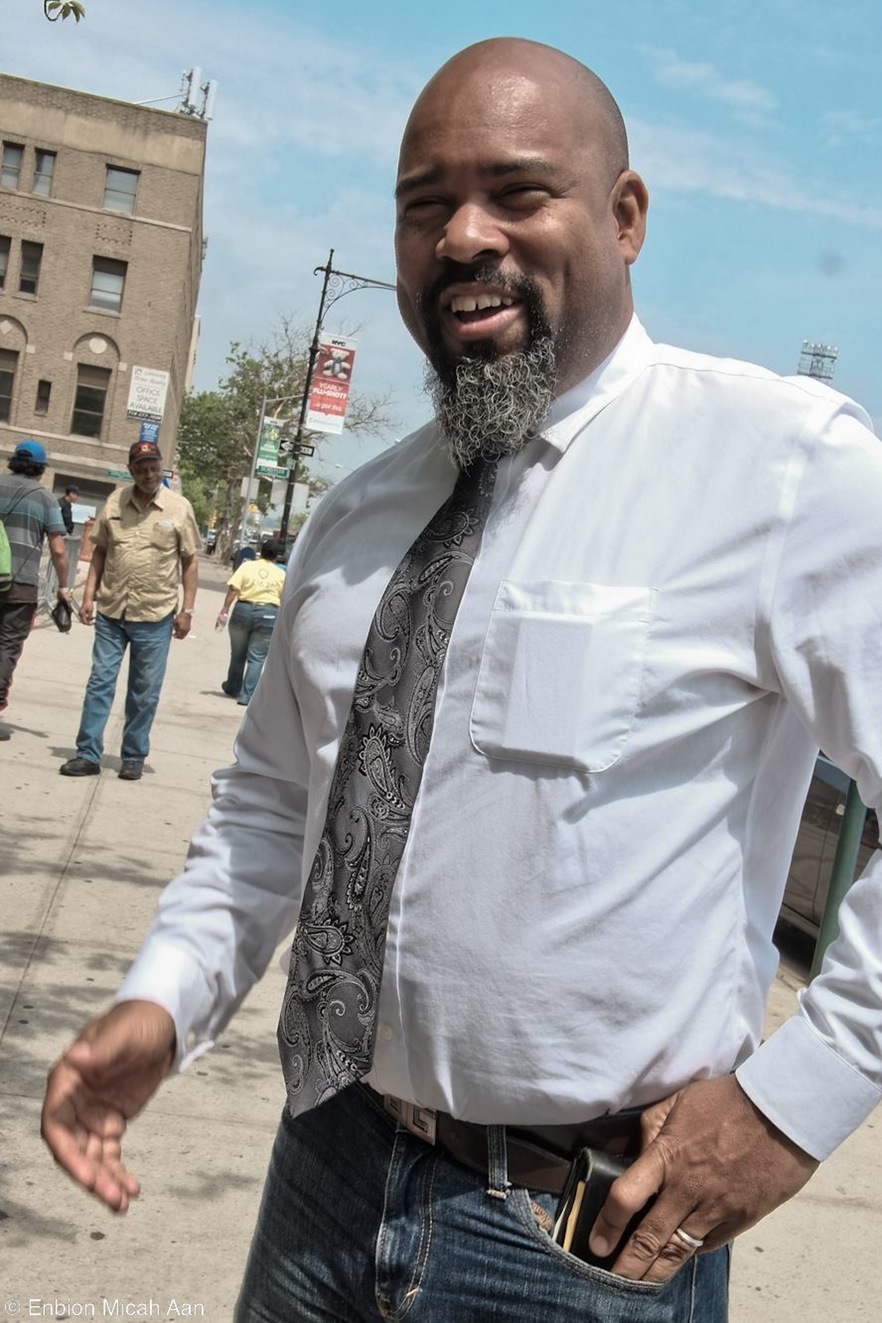 Mr. Lane is a political activist who has run for elections, so the title of “political activist” is a distinction he makes a point of emphasizing because he does not believe in “politicians”. I asked Mr. Lane what activism is, and he answered candidly, “Being an activist usually means planning protests and actions and hoping to get on TV. You finish one protest and then move on to the next one.” Mr. Lane finds this narrowly defined activism limiting and would like see more activists to take activism to a different battlefield – the ballot box. Mr. Lane understands why many activists stay away from electoral politics, as the election process has generally speaking, yielded very poor candidates and politicians who beg for votes during election and do not do anything for the community once elected. However, Mr. Lane questions the refusal to engage in the electoral process, as voting is the most concrete and direct way to effect policy changes in the system of representative democracy.
Mr. Lane is a political activist who has run for elections, so the title of “political activist” is a distinction he makes a point of emphasizing because he does not believe in “politicians”. I asked Mr. Lane what activism is, and he answered candidly, “Being an activist usually means planning protests and actions and hoping to get on TV. You finish one protest and then move on to the next one.” Mr. Lane finds this narrowly defined activism limiting and would like see more activists to take activism to a different battlefield – the ballot box. Mr. Lane understands why many activists stay away from electoral politics, as the election process has generally speaking, yielded very poor candidates and politicians who beg for votes during election and do not do anything for the community once elected. However, Mr. Lane questions the refusal to engage in the electoral process, as voting is the most concrete and direct way to effect policy changes in the system of representative democracy.
In Search of Lost Time
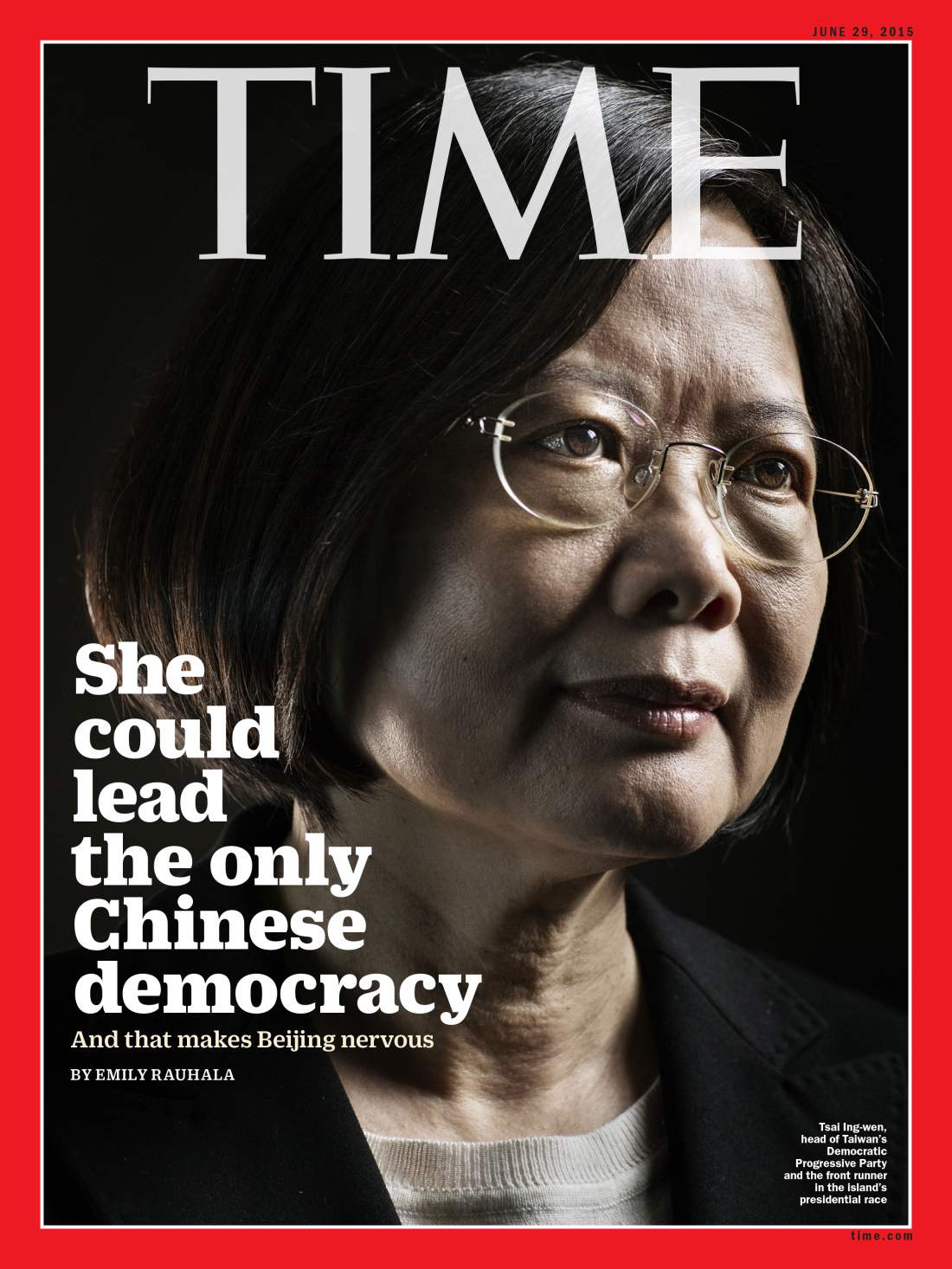 It is remarkable at times to note the electrifying effect of foreign media on public discourse in Taiwan. How could it not, given Taiwan’s state of existential obscurity? So it is no surprise that when DPP presidential candidate Tsai Ing-Wen was featured on the cover of Time Magazine’s Asia edition, an enormous amount of discussion broke out within Taiwan about the significance of this event. Where that the fundamental assumptions that the Time Magazine article based itself off of were pro-Beijing and the majority of sources quoted took KMT talking points has been well documented. Thus, here we might concern ourselves less with the content of the article itself, but the reception of the article and what that bodes for the future of 2016 elections.
It is remarkable at times to note the electrifying effect of foreign media on public discourse in Taiwan. How could it not, given Taiwan’s state of existential obscurity? So it is no surprise that when DPP presidential candidate Tsai Ing-Wen was featured on the cover of Time Magazine’s Asia edition, an enormous amount of discussion broke out within Taiwan about the significance of this event. Where that the fundamental assumptions that the Time Magazine article based itself off of were pro-Beijing and the majority of sources quoted took KMT talking points has been well documented. Thus, here we might concern ourselves less with the content of the article itself, but the reception of the article and what that bodes for the future of 2016 elections.
Beyond Targeting Hung Hsiu-Chu
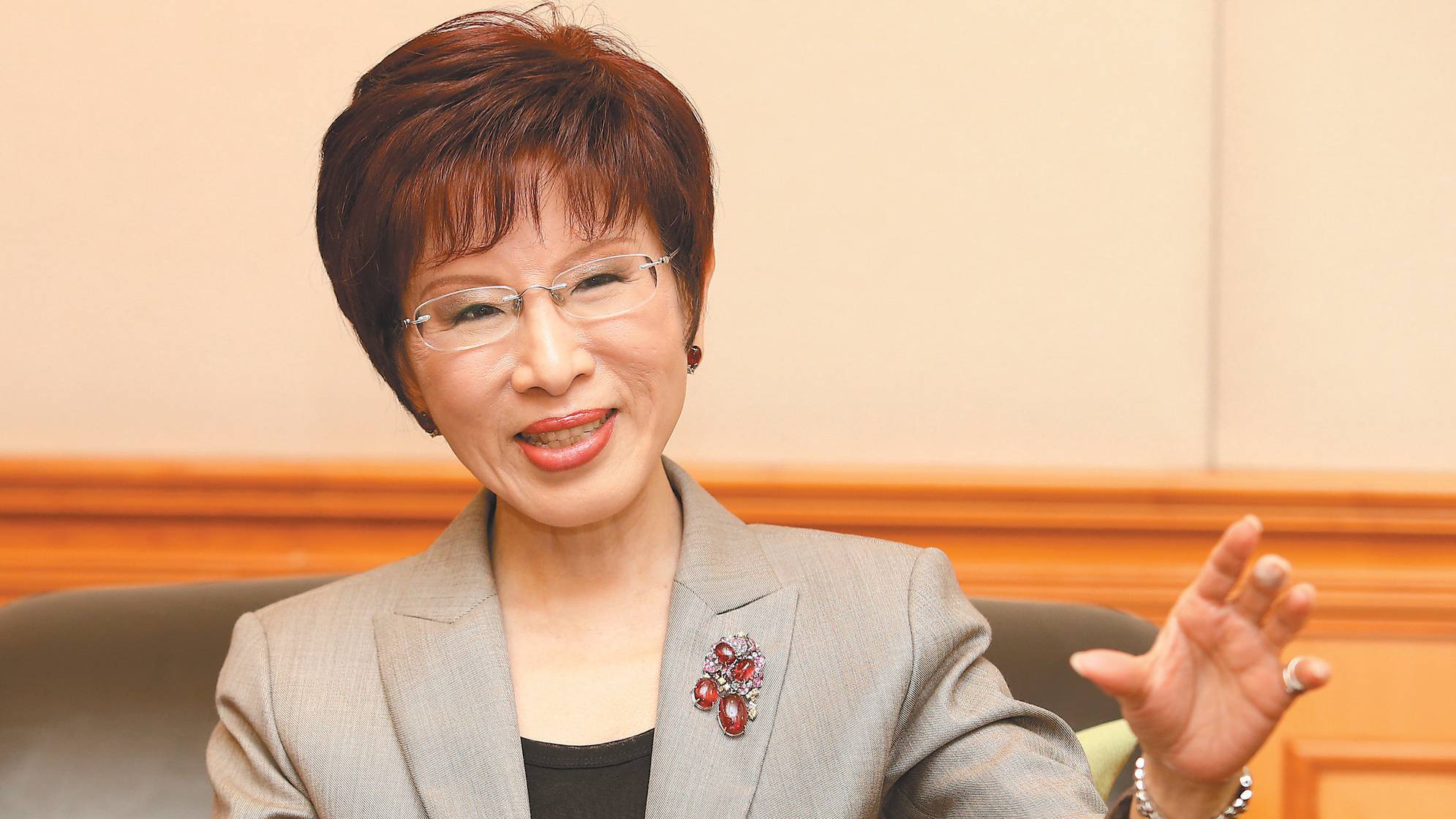 In the project of actively eliminating the KMT from Taiwan, civil society will have to take the leading role, but it will only be able to do so if it is able itself to arrive at the awareness of that the Hung Hsiu-Chu candidacy is reflective of the crisis of the KMT as a whole and that the Hung Hsiu-Chu candidacy is too valuable an opportunity to damage the KMT as a whole to pass up.
In the project of actively eliminating the KMT from Taiwan, civil society will have to take the leading role, but it will only be able to do so if it is able itself to arrive at the awareness of that the Hung Hsiu-Chu candidacy is reflective of the crisis of the KMT as a whole and that the Hung Hsiu-Chu candidacy is too valuable an opportunity to damage the KMT as a whole to pass up.
Predictable Emptiness
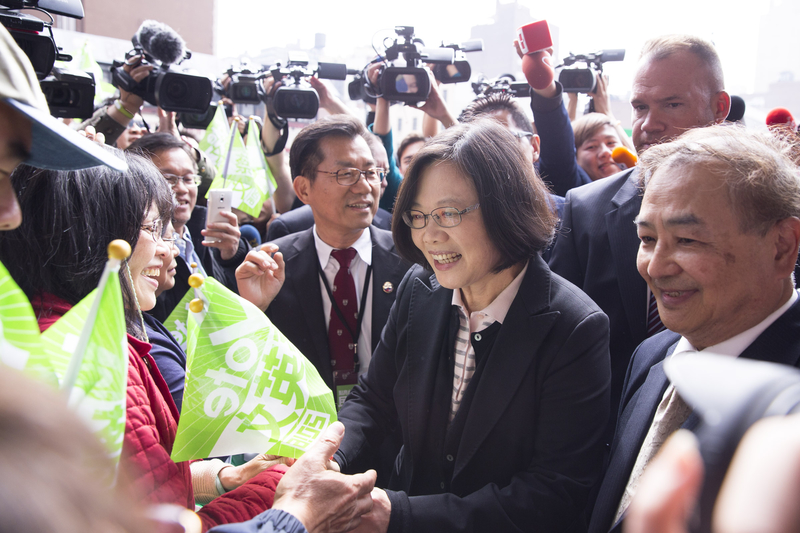 In her thirty minute long speech in New York City, which was attended by over a thousand, Tsai spoke of her admiration to New York City as a “city where dreams come true,” her willingness to work with the rising Third Party movements in Taiwan, and a growing “new Asian value of democracy” that is championed by Taiwan. Granted that this particular speech is not designed for a disposition of policies, Tsai’s speech still lacked any concrete substance into what makes her a suitable candidate for presidency.
In her thirty minute long speech in New York City, which was attended by over a thousand, Tsai spoke of her admiration to New York City as a “city where dreams come true,” her willingness to work with the rising Third Party movements in Taiwan, and a growing “new Asian value of democracy” that is championed by Taiwan. Granted that this particular speech is not designed for a disposition of policies, Tsai’s speech still lacked any concrete substance into what makes her a suitable candidate for presidency.
What was the Other Side of Tsai Ing-Wen’s Visit to the United States?
 DPP presidential candidate Tsai Ing-Wen’s recent twelve-day tour of the United States has been hailed as a success, not only by her supporters, but also by outside commentators. Certainly, while the purpose of Tsai’s visit was in part to raise the international profile of her campaign among overseas Taiwanese and Taiwanese-Americans, we might also point towards the integral importance of the meetings that took place between Tsai, American senators, and government officials. Namely, Tsai had a need to meet with American government officials and convince them that she would not be disruptive to regional stability.
DPP presidential candidate Tsai Ing-Wen’s recent twelve-day tour of the United States has been hailed as a success, not only by her supporters, but also by outside commentators. Certainly, while the purpose of Tsai’s visit was in part to raise the international profile of her campaign among overseas Taiwanese and Taiwanese-Americans, we might also point towards the integral importance of the meetings that took place between Tsai, American senators, and government officials. Namely, Tsai had a need to meet with American government officials and convince them that she would not be disruptive to regional stability.
The South Korean Hydis Workers and Taiwanese International Capitalism
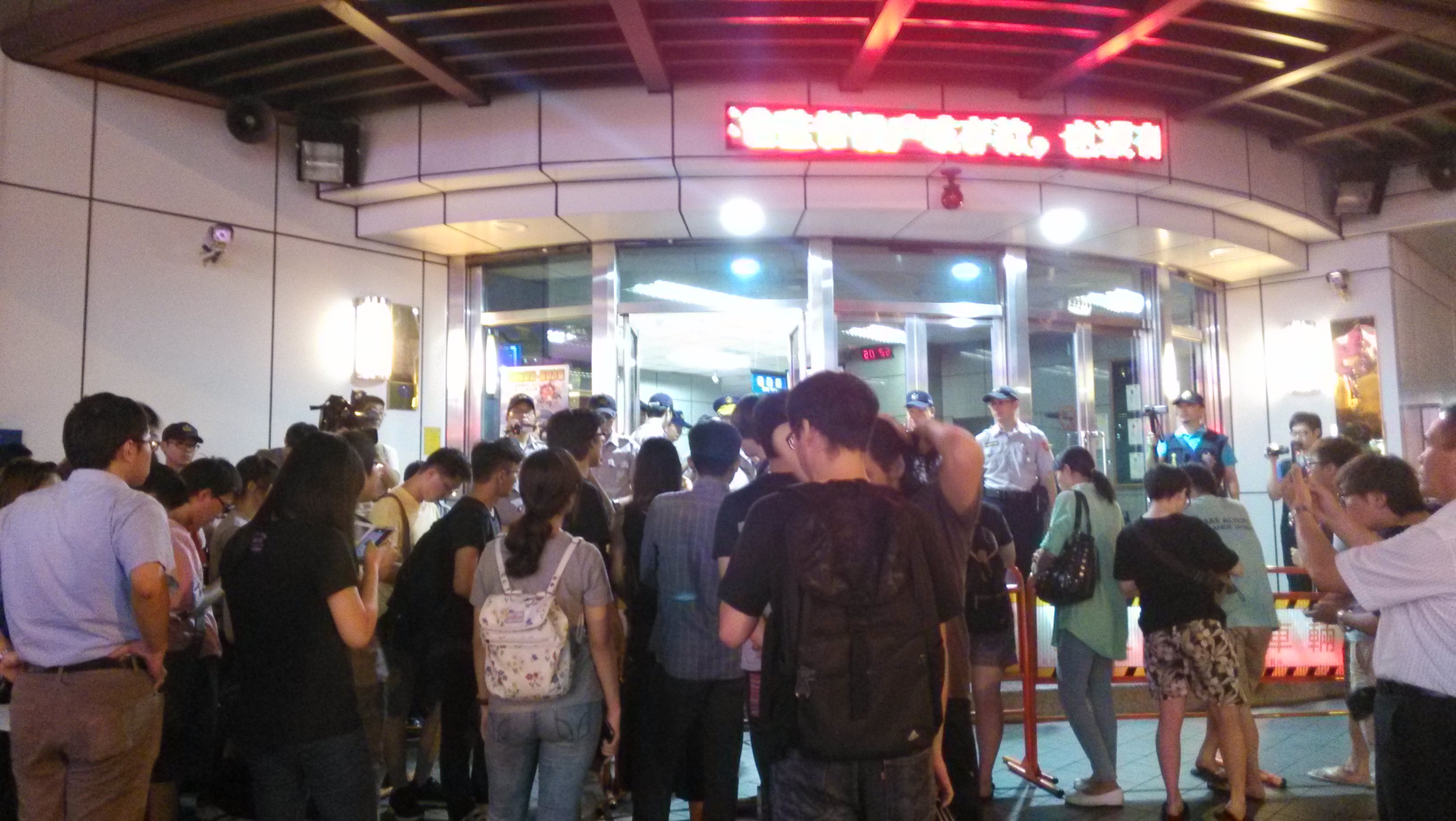 What the actions of the Taipei police in the last several days have demonstrated is not only racism, as can be seen in the how police treated South Korean Hydis workers demonstrating in Taiwan, but, as can be seen during the initial arrest of Hydis workers and the reaction to Taiwanese Hydis supporters who rallied afterwards, Taipei police has become prone to overreacting with overwhelming force to protests. But we can also point towards racism on the part of the Taipei police as a reason for why they would react so violently this time around? More generally, regarding the dilemma of Hydis workers, can we relate the dilemma of the Hydis workers to the broader question the role of Taiwanese companies who own factories in other parts of Asia, and are often responsible for exploitative conditions?
What the actions of the Taipei police in the last several days have demonstrated is not only racism, as can be seen in the how police treated South Korean Hydis workers demonstrating in Taiwan, but, as can be seen during the initial arrest of Hydis workers and the reaction to Taiwanese Hydis supporters who rallied afterwards, Taipei police has become prone to overreacting with overwhelming force to protests. But we can also point towards racism on the part of the Taipei police as a reason for why they would react so violently this time around? More generally, regarding the dilemma of Hydis workers, can we relate the dilemma of the Hydis workers to the broader question the role of Taiwanese companies who own factories in other parts of Asia, and are often responsible for exploitative conditions?
Fresh Off The Boat in Retrospect
 Despite having finished its first season’s run and having been renewed for a second season, the future of Fresh Off The Boat would seem to be up in the air. Though receiving no small amount of praise from Asian-Americans in the US early on, its run as a show depicting Asian-American experience through its portrayal of food personality Eddie Huang’s “Taiwanese-Chinese-American” experience, critical consensus is now divided.
Despite having finished its first season’s run and having been renewed for a second season, the future of Fresh Off The Boat would seem to be up in the air. Though receiving no small amount of praise from Asian-Americans in the US early on, its run as a show depicting Asian-American experience through its portrayal of food personality Eddie Huang’s “Taiwanese-Chinese-American” experience, critical consensus is now divided.
Marxist Basics with Parson
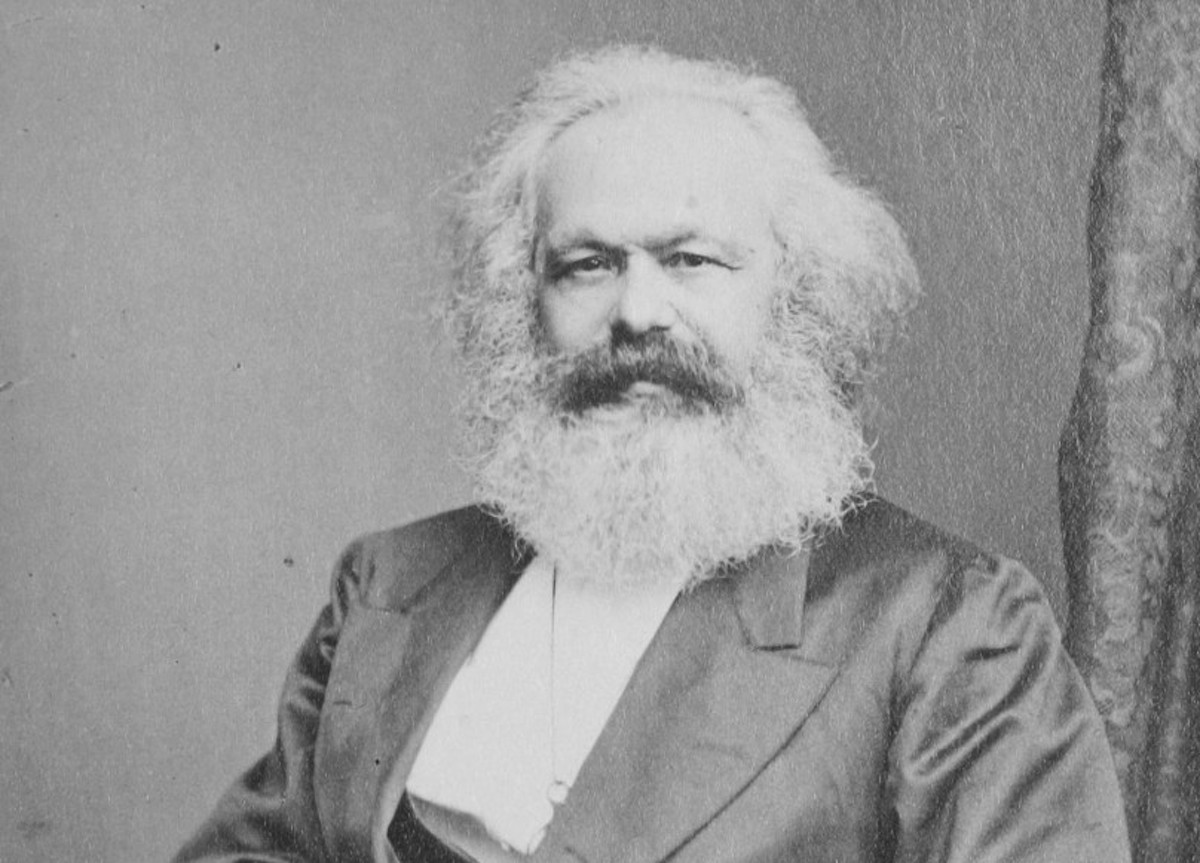 “Socialism” is a term that’s often conjured up in public discourse, yet seemingly amorphous in our political vocabulary. Taiwanese Social Democratic Party leader Fan Yun publicly discusses her approval of socialism. US politician Bernie Sanders, who is seeking the Democratic nomination for presidential candidate, calls himself a “Scandinavian socialist.” The President of France Francois Hollande’s political party is called the Socialist Party. On the other hand, the former USSR referred to itself as a “socialist country”—as does today’s China. This one single term seems to cover so many different political philosophies. What is the basic demand of socialism, then?
“Socialism” is a term that’s often conjured up in public discourse, yet seemingly amorphous in our political vocabulary. Taiwanese Social Democratic Party leader Fan Yun publicly discusses her approval of socialism. US politician Bernie Sanders, who is seeking the Democratic nomination for presidential candidate, calls himself a “Scandinavian socialist.” The President of France Francois Hollande’s political party is called the Socialist Party. On the other hand, the former USSR referred to itself as a “socialist country”—as does today’s China. This one single term seems to cover so many different political philosophies. What is the basic demand of socialism, then?
Electoral Politics for 2016 in the US and Taiwan
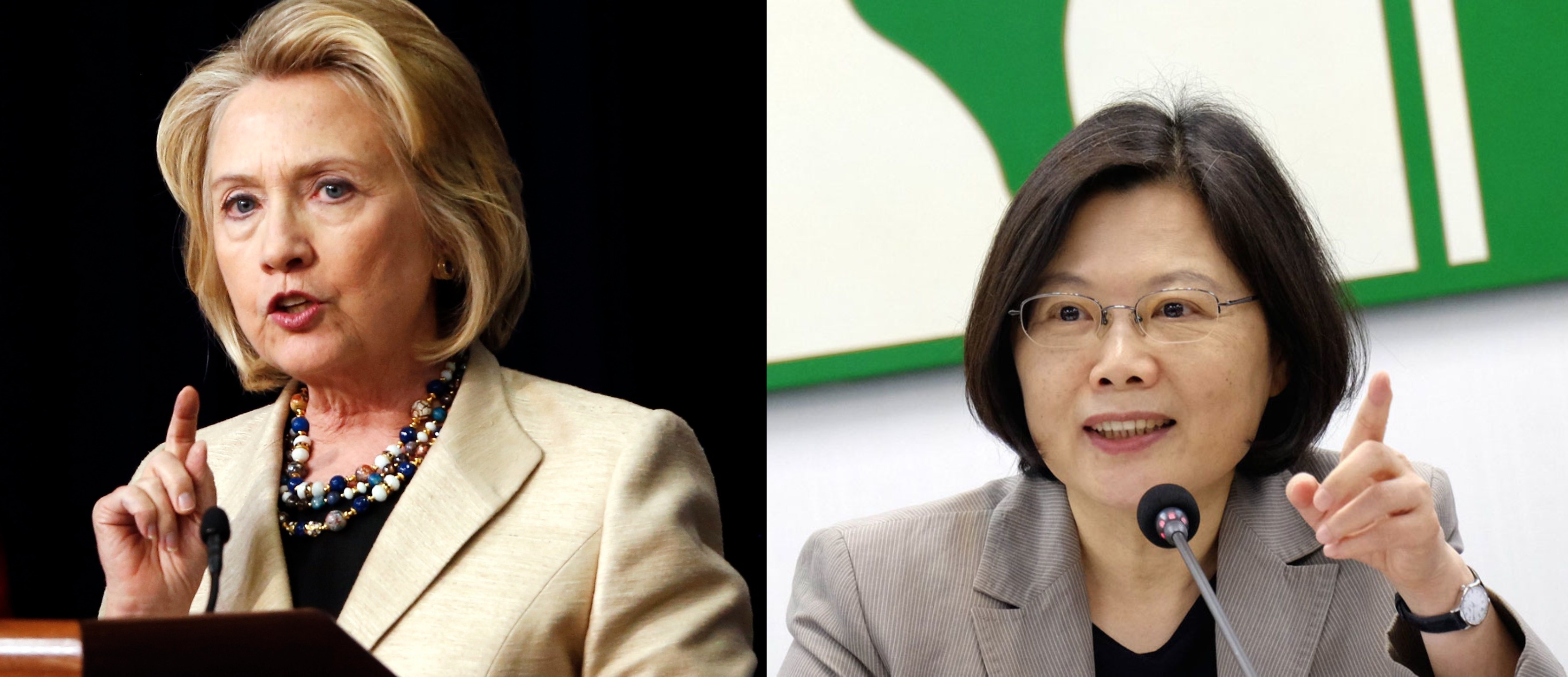 Though it proves too early to forecast the results of 2016 elections in either Taiwan or America, we might use this time to provide some sketches as to how elections are shaping up to be at this juncture. Namely, we might point towards a homology between the situation in America and in Taiwan. Broadly, we might point towards the structural condition between two-party liberal democracies that operate under a free market economic system as the reason for similarities between the situation in Taiwanese and American elections.
Though it proves too early to forecast the results of 2016 elections in either Taiwan or America, we might use this time to provide some sketches as to how elections are shaping up to be at this juncture. Namely, we might point towards a homology between the situation in America and in Taiwan. Broadly, we might point towards the structural condition between two-party liberal democracies that operate under a free market economic system as the reason for similarities between the situation in Taiwanese and American elections.
The Pro-Independence Left versus the Pro-Unification Left in the Sinophone World
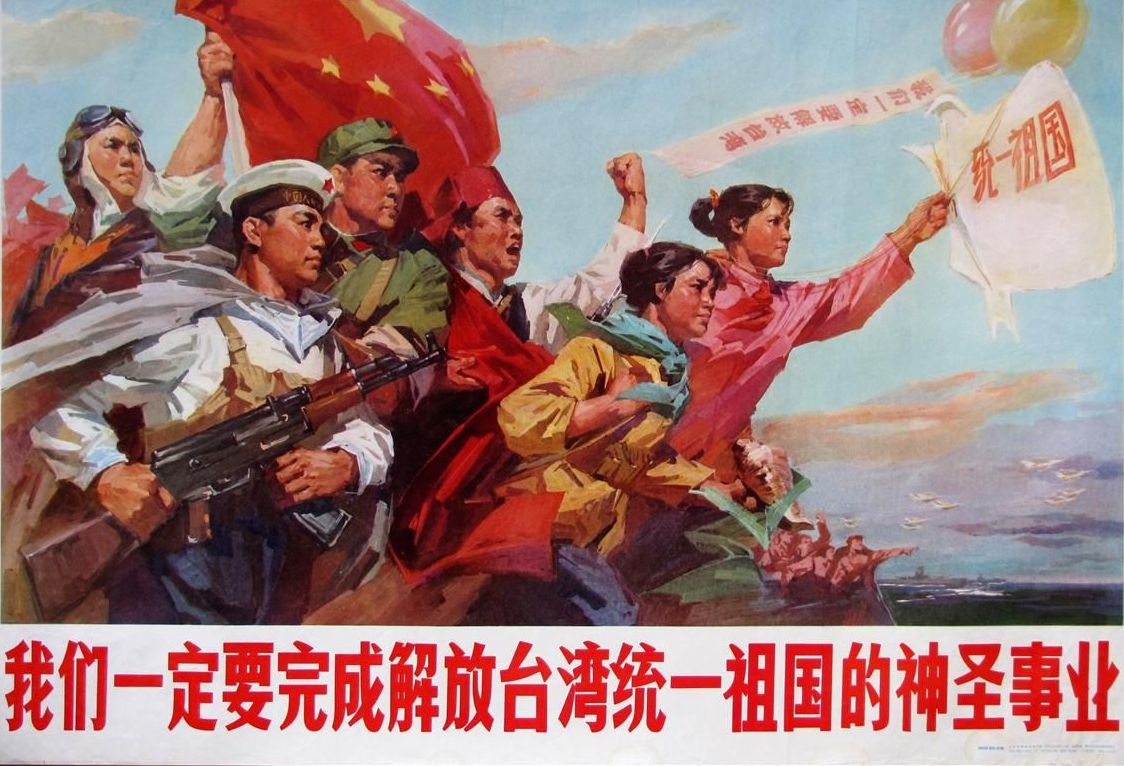 It would seem after the Sunflower Movement, the actions of the pro-unification Left in and outside Taiwan has become increasingly aggressive in its criticisms and attacks conducted on Taiwanese civil society. Namely, what is aimed for by these groups, mostly Marxist or socialist in orientation, is the establishment of a single socialist nation, inclusive of China, Hong Kong, and Taiwan. We might venture a criticism of our own.
It would seem after the Sunflower Movement, the actions of the pro-unification Left in and outside Taiwan has become increasingly aggressive in its criticisms and attacks conducted on Taiwanese civil society. Namely, what is aimed for by these groups, mostly Marxist or socialist in orientation, is the establishment of a single socialist nation, inclusive of China, Hong Kong, and Taiwan. We might venture a criticism of our own.
Film Notes: Don’t Think I’ve Forgotten
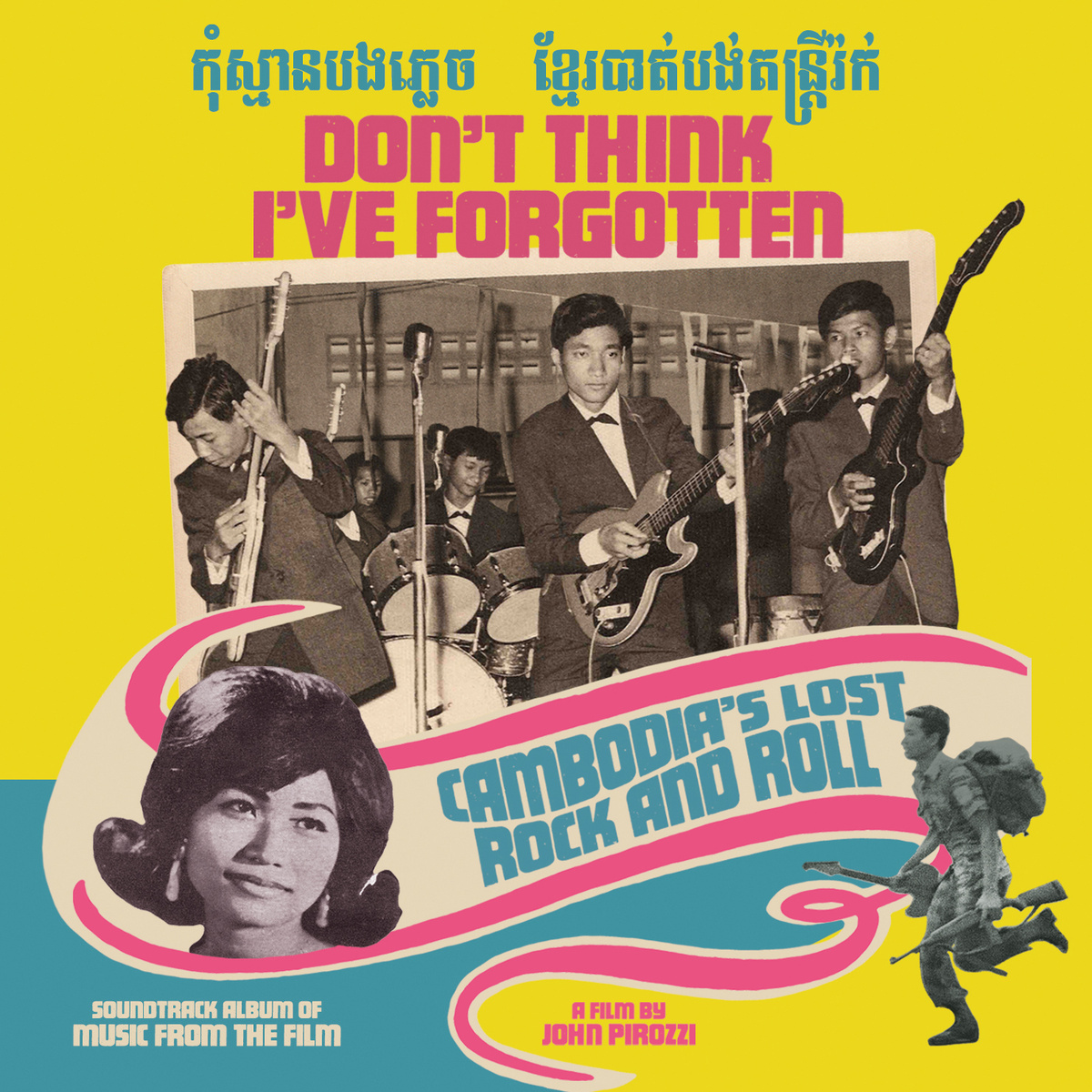 “Don’t Think I’ve Forgotten” is a film that celebrates pre-revolution Cambodian music culture. The film frames Cambodia’s ‘lost’ trove of rock and roll music in the obvious historical context of the Vietnam War and the rise of the Khmer Rouge. The film is a stock cultural-historical documentary looking at a kitsch cultural phenomenon in a foreign country. But is the film’s narrative of Cambodian rock and roll too simplistic?
“Don’t Think I’ve Forgotten” is a film that celebrates pre-revolution Cambodian music culture. The film frames Cambodia’s ‘lost’ trove of rock and roll music in the obvious historical context of the Vietnam War and the rise of the Khmer Rouge. The film is a stock cultural-historical documentary looking at a kitsch cultural phenomenon in a foreign country. But is the film’s narrative of Cambodian rock and roll too simplistic?
How is the KMT Still a Thing?
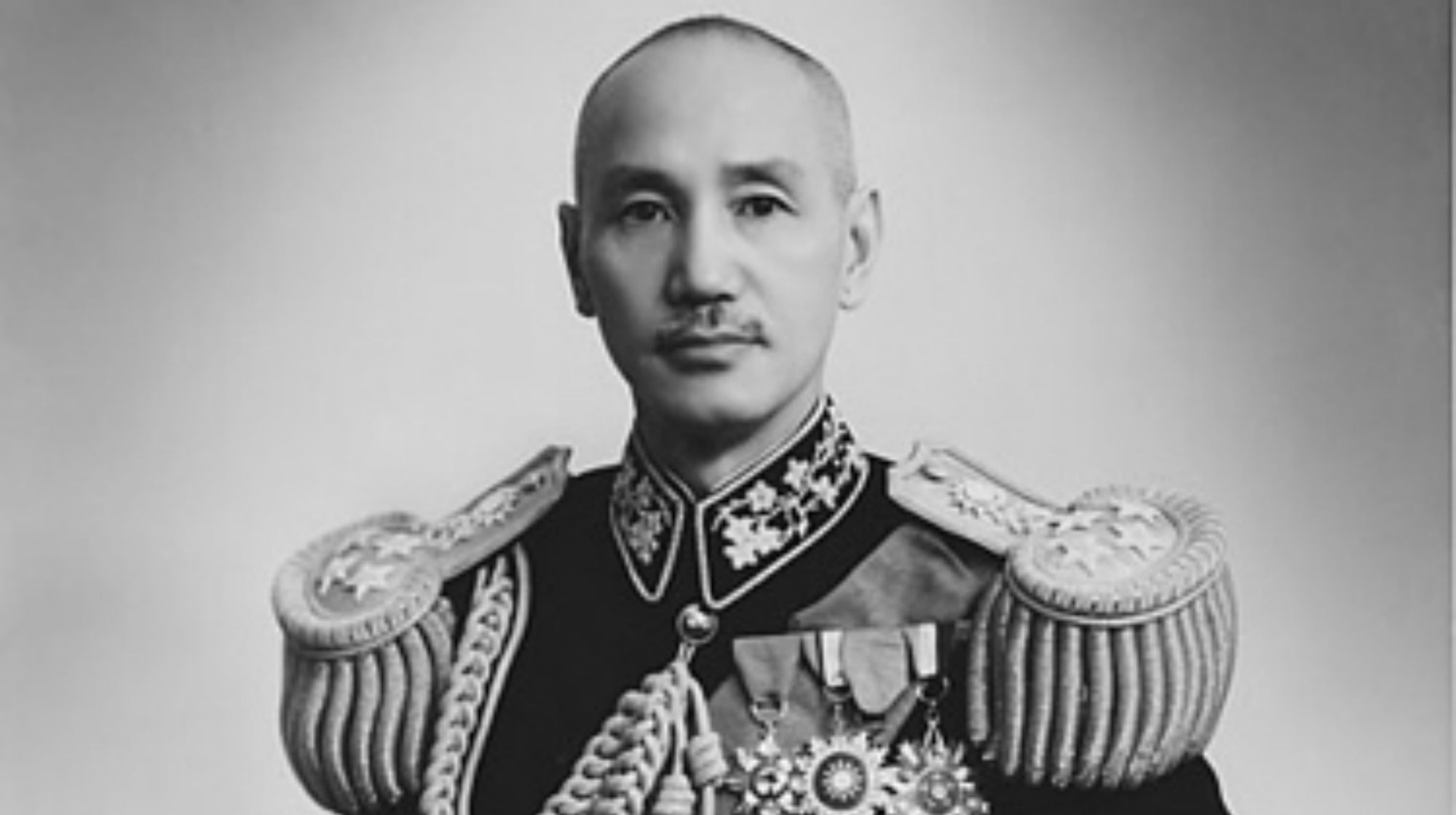 We can write mountains of books condemning the KMT and calling for its destruction, as we’ve done for decades. Yet, it remains not only a major political party, but also a democratically elected ruling party of our country of 8 years. There isn’t another authoritarian political party in the world that survives and adapts to liberal democracy as well as the KMT. We already know that the reason for their resilience certainly isn’t the righteousness of their ideology or moral integrity. It is then worthwhile to find a material, historical analysis on how KMT was able to adapt, morph, and remains in control of the Taiwanese society.
We can write mountains of books condemning the KMT and calling for its destruction, as we’ve done for decades. Yet, it remains not only a major political party, but also a democratically elected ruling party of our country of 8 years. There isn’t another authoritarian political party in the world that survives and adapts to liberal democracy as well as the KMT. We already know that the reason for their resilience certainly isn’t the righteousness of their ideology or moral integrity. It is then worthwhile to find a material, historical analysis on how KMT was able to adapt, morph, and remains in control of the Taiwanese society.
Looking Back on the Chu-Xi Debacle
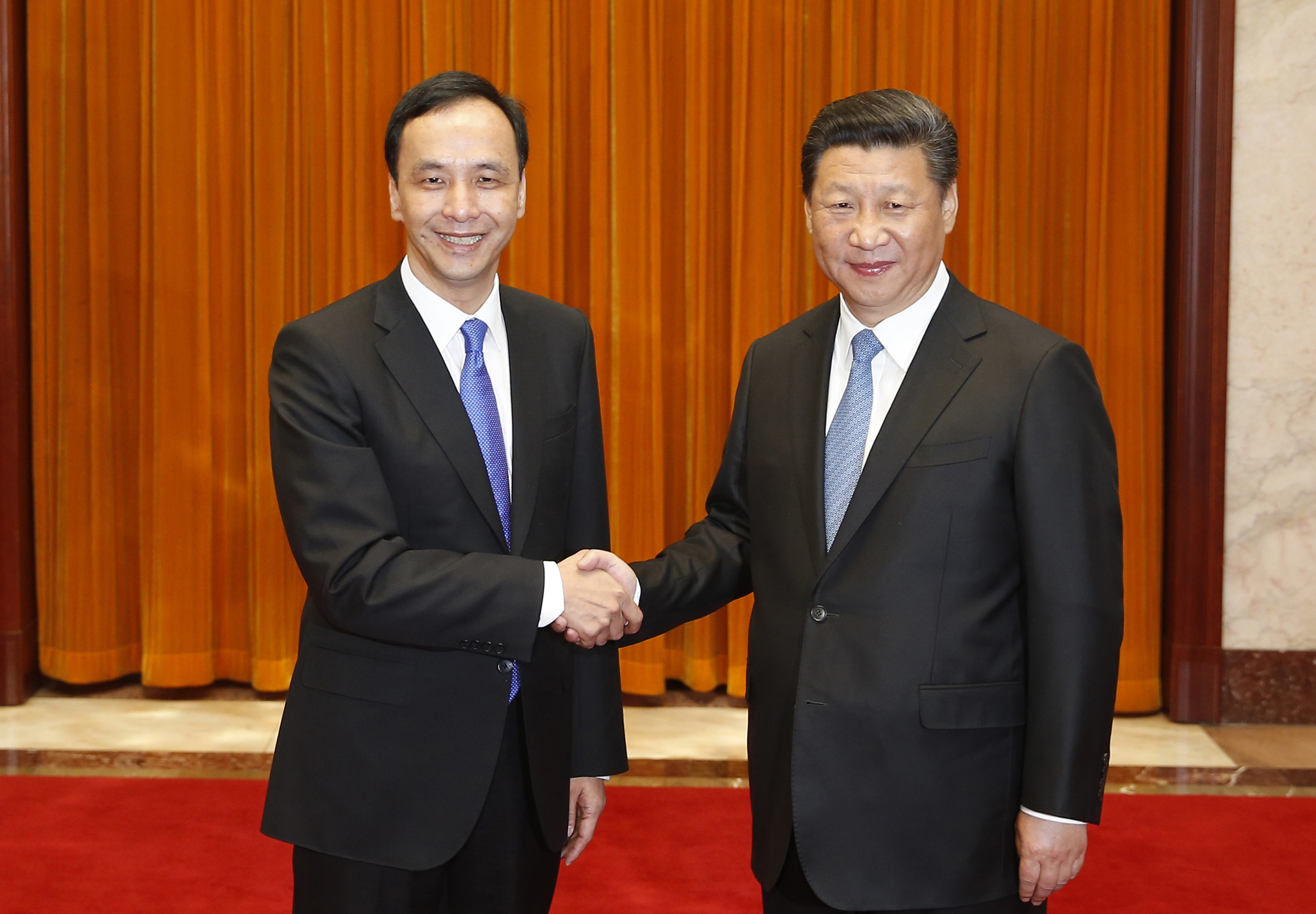 The talk of all Taiwan of late has, of course, been the meeting between KMT Chairman Eric Chu and Chinese President Xi Jinping on Monday. The meeting was from beginning to end an object of much speculation, drama, and hype, having been preceded for months by an elaborate amount of back and forth pageantry between the KMT and CCP about whether to not the meeting would take place. After the meeting finally happened, an enormous amount of commentary was produced speculating as to its broader implications. We might look back on the whole sordid affair.
The talk of all Taiwan of late has, of course, been the meeting between KMT Chairman Eric Chu and Chinese President Xi Jinping on Monday. The meeting was from beginning to end an object of much speculation, drama, and hype, having been preceded for months by an elaborate amount of back and forth pageantry between the KMT and CCP about whether to not the meeting would take place. After the meeting finally happened, an enormous amount of commentary was produced speculating as to its broader implications. We might look back on the whole sordid affair.
Seeds: Kiki L. Park
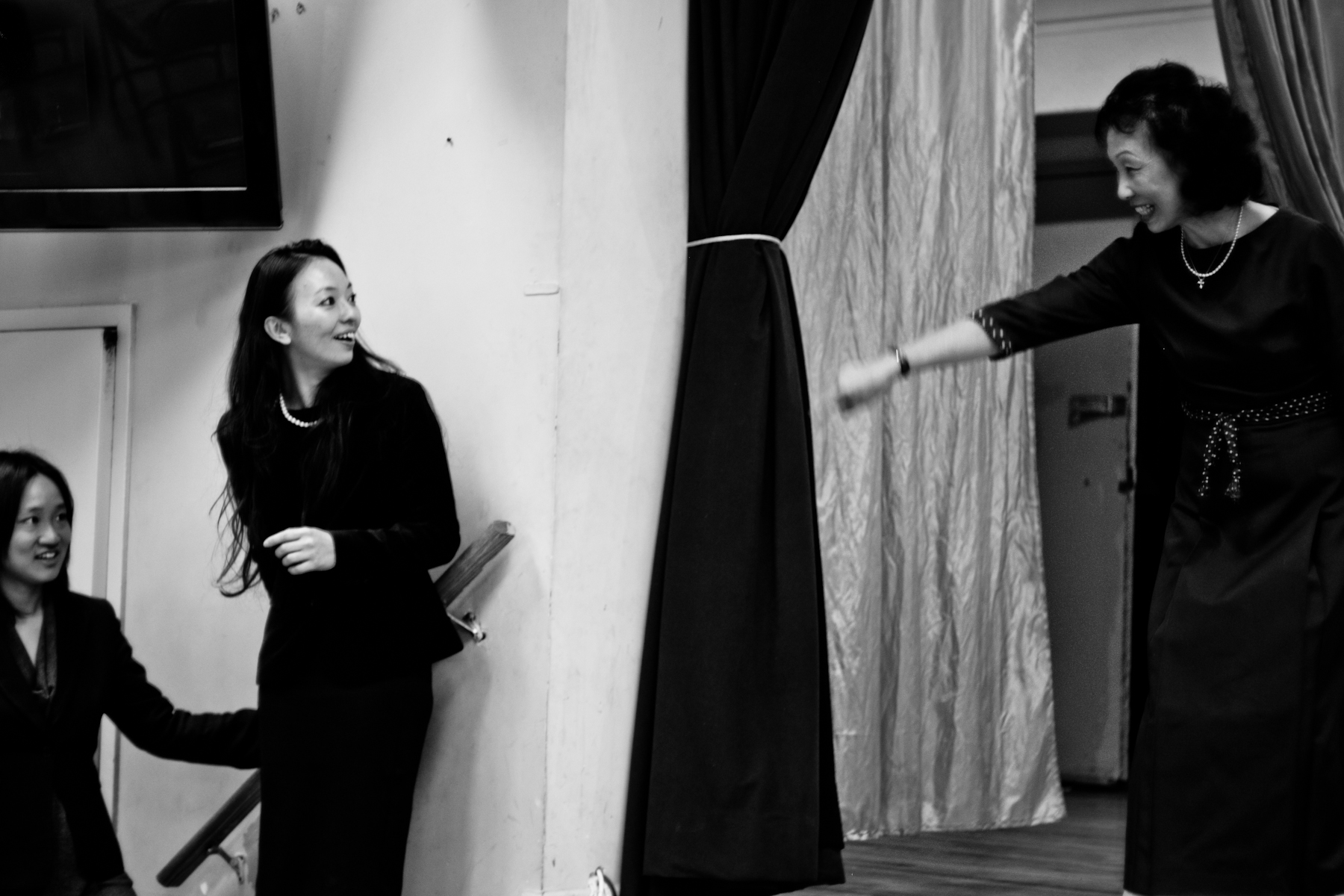 Kiki L. Park is an organizer for the Taiwanese community in New York City. She is involved in many organizations, such as Cafe Philo New York and Taiwanese American Association in New York. She also organized 330 Global Taiwan Solidarity to support the Sunflower movement in 2014, a vigil to support Lin Yi-Hsiung’s hunger strike against Gongliao Reactor #4, and many other events in New York City.
Kiki L. Park is an organizer for the Taiwanese community in New York City. She is involved in many organizations, such as Cafe Philo New York and Taiwanese American Association in New York. She also organized 330 Global Taiwan Solidarity to support the Sunflower movement in 2014, a vigil to support Lin Yi-Hsiung’s hunger strike against Gongliao Reactor #4, and many other events in New York City.
Neoliberalism, Ethnocentrism, and Taiwanese Independence
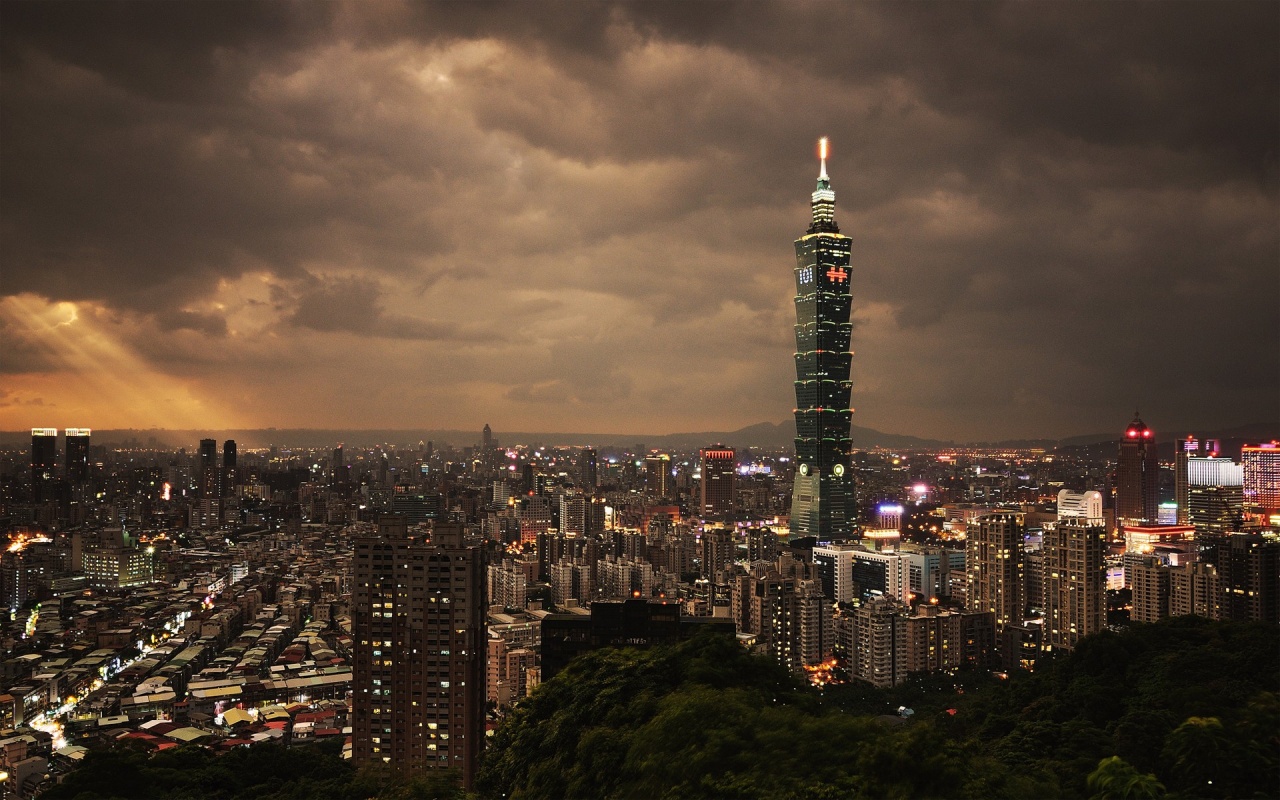 Imagine if during the Sunflower Movement, instead of rallying in support of student activists, the reaction of the overseas Taiwanese and Taiwanese-American community had been to remark skeptically as to the understanding of student activists’ understanding of complicated, economic manners, then to write them off as having been overly hasty in their actions. For the most part, overseas Taiwanese and Taiwanese-American groups, came forward in support of students and sought to call attention to Taiwan’s crisis of democracy during March of last year. Yet the response of some Taiwanese-American groups to the Ma administration’s recent unilateral decision for Taiwan to apply to the Chinese Asian Infrastructure Investment Bank may be surprising.
Imagine if during the Sunflower Movement, instead of rallying in support of student activists, the reaction of the overseas Taiwanese and Taiwanese-American community had been to remark skeptically as to the understanding of student activists’ understanding of complicated, economic manners, then to write them off as having been overly hasty in their actions. For the most part, overseas Taiwanese and Taiwanese-American groups, came forward in support of students and sought to call attention to Taiwan’s crisis of democracy during March of last year. Yet the response of some Taiwanese-American groups to the Ma administration’s recent unilateral decision for Taiwan to apply to the Chinese Asian Infrastructure Investment Bank may be surprising.
Why Socialism is Taiwan’s Only Hope for Independence
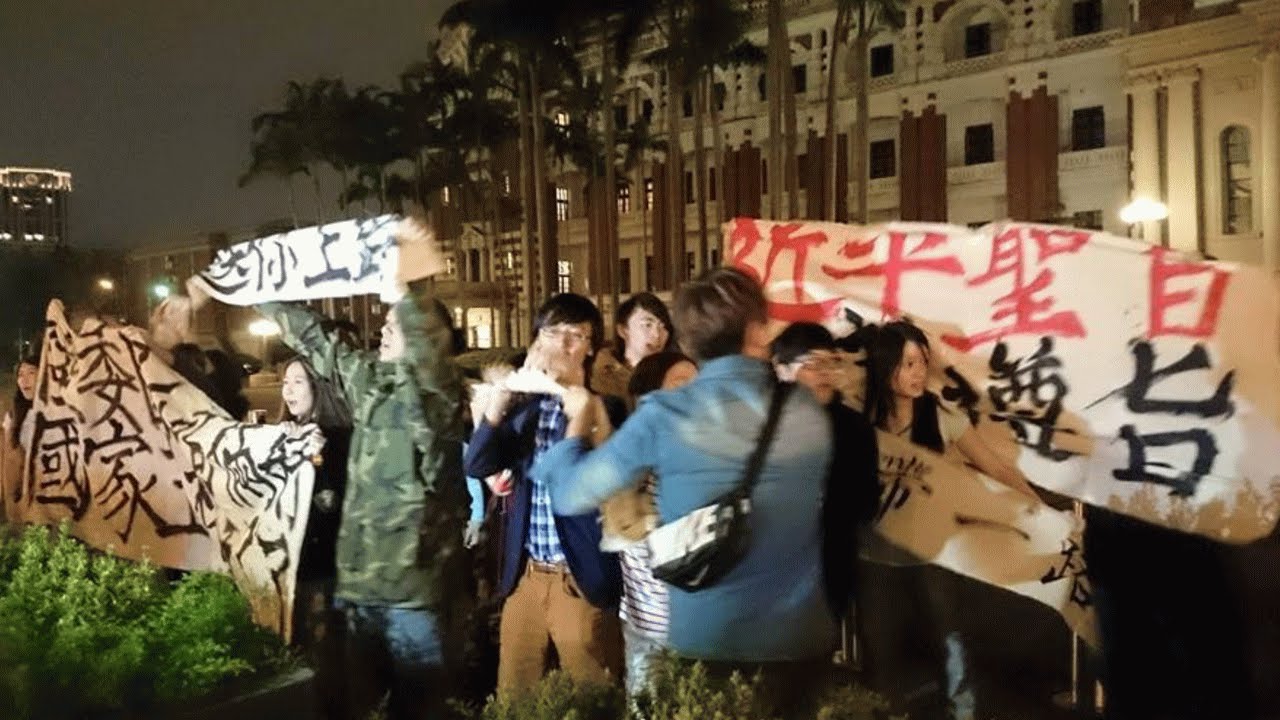 The chief reason why Taiwanese independence still resides in the margins of Taiwanese politics despite widespread support is because of Taiwan’s capitalist sociopolitical system. If the Taiwanese Left truly wants to realize an independent, sovereign Taiwan, it must recognize that our current political establishment needs to be replaced by one that truly reflects the majoritarian opinion, rather than a system that is controlled by the wealthy.
The chief reason why Taiwanese independence still resides in the margins of Taiwanese politics despite widespread support is because of Taiwan’s capitalist sociopolitical system. If the Taiwanese Left truly wants to realize an independent, sovereign Taiwan, it must recognize that our current political establishment needs to be replaced by one that truly reflects the majoritarian opinion, rather than a system that is controlled by the wealthy.
Film Notes: 太陽,不遠 Sunflower Occupation
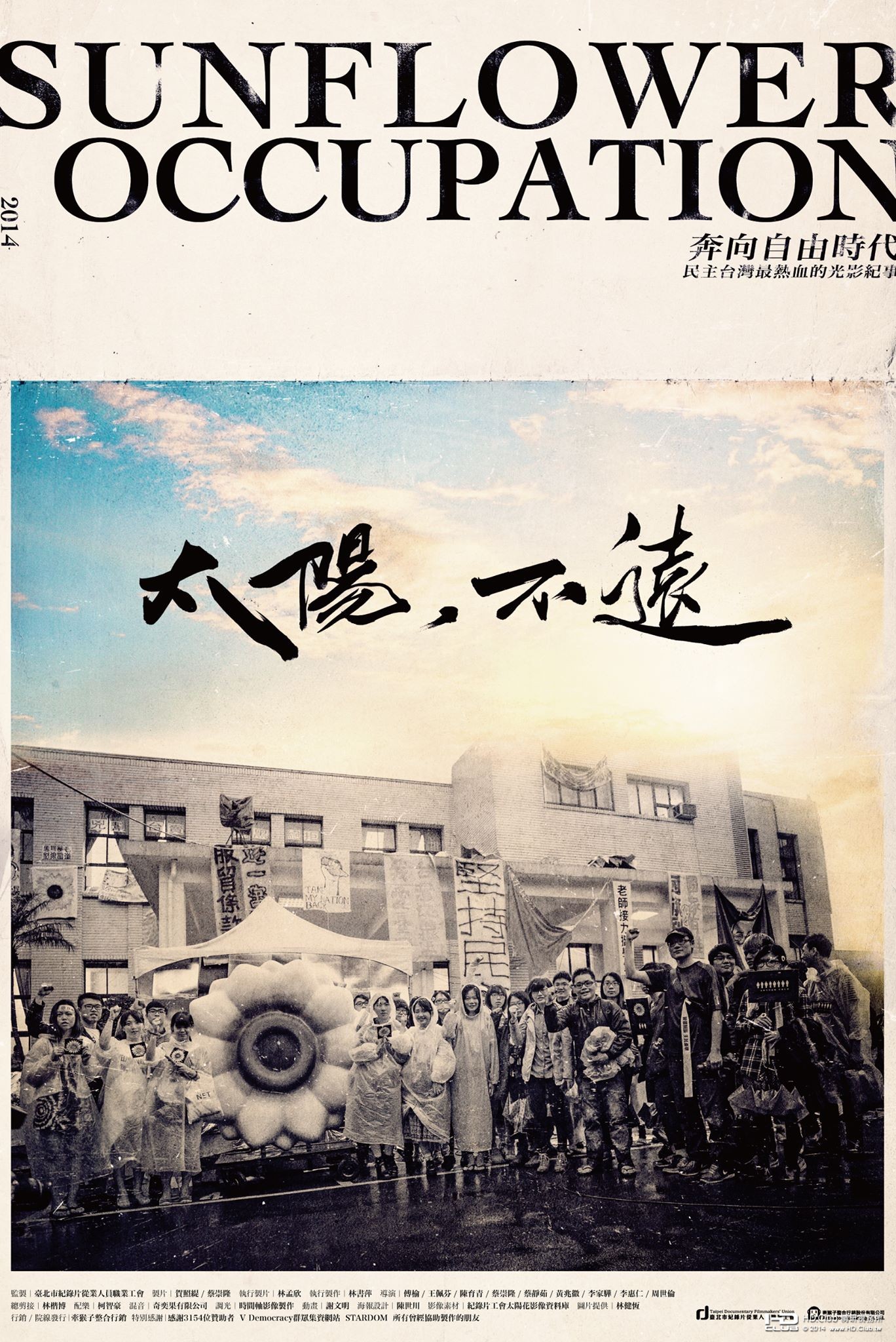 With social movements, it seems that once recognition of a movement’s historical significance sets in, so, too, does the impulse to document the movement for posterity. It is from this impulse that the documentary film about the Sunflower Movement, 太陽,不遠 Sunflower Occupation (“The Sun is Not Far”) came into being, produced by the Taipei Documentary Filmmakers’ Union. It is as such that directors and filmmakers were among those filming the Sunflower Movement and were allowed insider access to crucial events occurring inside the Legislative Yuan. But, ultimately, the documentary may be an uneven one.
With social movements, it seems that once recognition of a movement’s historical significance sets in, so, too, does the impulse to document the movement for posterity. It is from this impulse that the documentary film about the Sunflower Movement, 太陽,不遠 Sunflower Occupation (“The Sun is Not Far”) came into being, produced by the Taipei Documentary Filmmakers’ Union. It is as such that directors and filmmakers were among those filming the Sunflower Movement and were allowed insider access to crucial events occurring inside the Legislative Yuan. But, ultimately, the documentary may be an uneven one.
How to Become a Meaningful New Party in Taiwan?
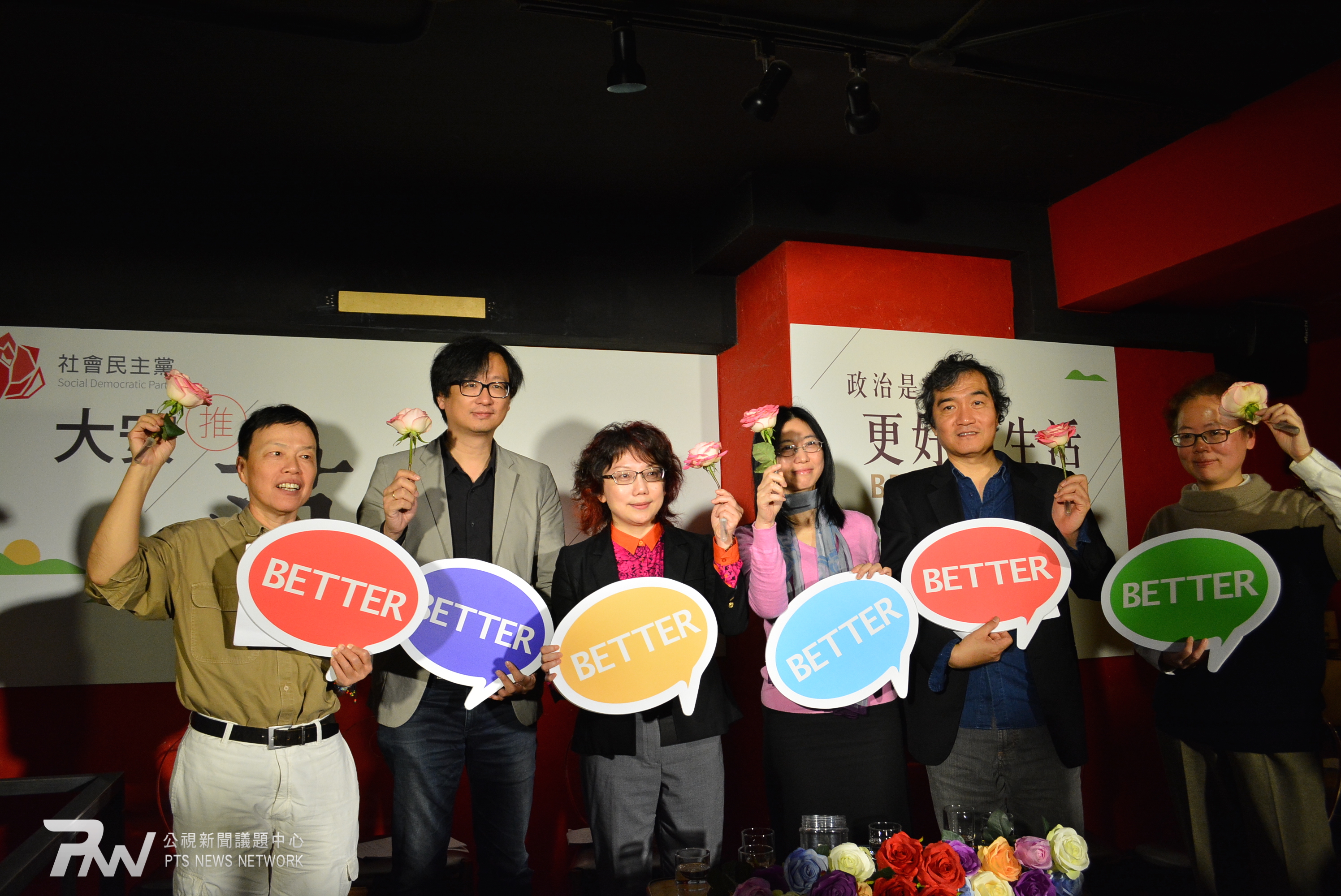 The spirit of Sunflower is at the gates of the Legislative Yuan again. This time, it aims to rescue Taiwan’s hard-earned democracy by challenging the bipartisan gridlock that has stymied the nation for far too long. How can Dr. Fan Yun’s Social Democratic Party and Freddy Lim’s New Power Party emerge as true Leftist alternatives for the Taiwanese people? Should they be elected, how can they avoid being bullied into the margin by the two parties of the ruling class? Which direction should they pursue to grow into a true force of change for Taiwan?
The spirit of Sunflower is at the gates of the Legislative Yuan again. This time, it aims to rescue Taiwan’s hard-earned democracy by challenging the bipartisan gridlock that has stymied the nation for far too long. How can Dr. Fan Yun’s Social Democratic Party and Freddy Lim’s New Power Party emerge as true Leftist alternatives for the Taiwanese people? Should they be elected, how can they avoid being bullied into the margin by the two parties of the ruling class? Which direction should they pursue to grow into a true force of change for Taiwan?
The Significance of 330 for Taiwan
 Despite the very transparent success of 330, another way of looking at it, 330 was a failed revolutionary situation. 500,000 had descended upon Taipei—some five percent of the Taiwanese population—but the opportunity had actually been missed where no demands were realized from the government that day. Though protest had taken place during 330 on a scale not seen in decades, the protest had just been a large-scale demonstration, much larger than any of the large-scale demonstrations in previous months or years, but not substantially different where it was a one-day act of protest. Yet how are the possibilities for Left politics in Taiwan changed after 330?
Despite the very transparent success of 330, another way of looking at it, 330 was a failed revolutionary situation. 500,000 had descended upon Taipei—some five percent of the Taiwanese population—but the opportunity had actually been missed where no demands were realized from the government that day. Though protest had taken place during 330 on a scale not seen in decades, the protest had just been a large-scale demonstration, much larger than any of the large-scale demonstrations in previous months or years, but not substantially different where it was a one-day act of protest. Yet how are the possibilities for Left politics in Taiwan changed after 330?
Using Global Jurisprudence to Decriminalize Adultery and Legalize Same-Sex Marriage
 As the purpose of the transnational network of judges is to spur the exchange of ideas, it is incumbent on Taiwan’s Constitutional Court not only to provide information, but also to fully and openly contemplate opinions by other constitutional courts and engage in active discourse. Today, there are two pressing issues in Taiwan on which the Constitutional Court could fully engage in transnational conversations: the criminalization of adultery and the prohibition of same-sex marriage.
As the purpose of the transnational network of judges is to spur the exchange of ideas, it is incumbent on Taiwan’s Constitutional Court not only to provide information, but also to fully and openly contemplate opinions by other constitutional courts and engage in active discourse. Today, there are two pressing issues in Taiwan on which the Constitutional Court could fully engage in transnational conversations: the criminalization of adultery and the prohibition of same-sex marriage.
Police Violence in the Sunflower Movement
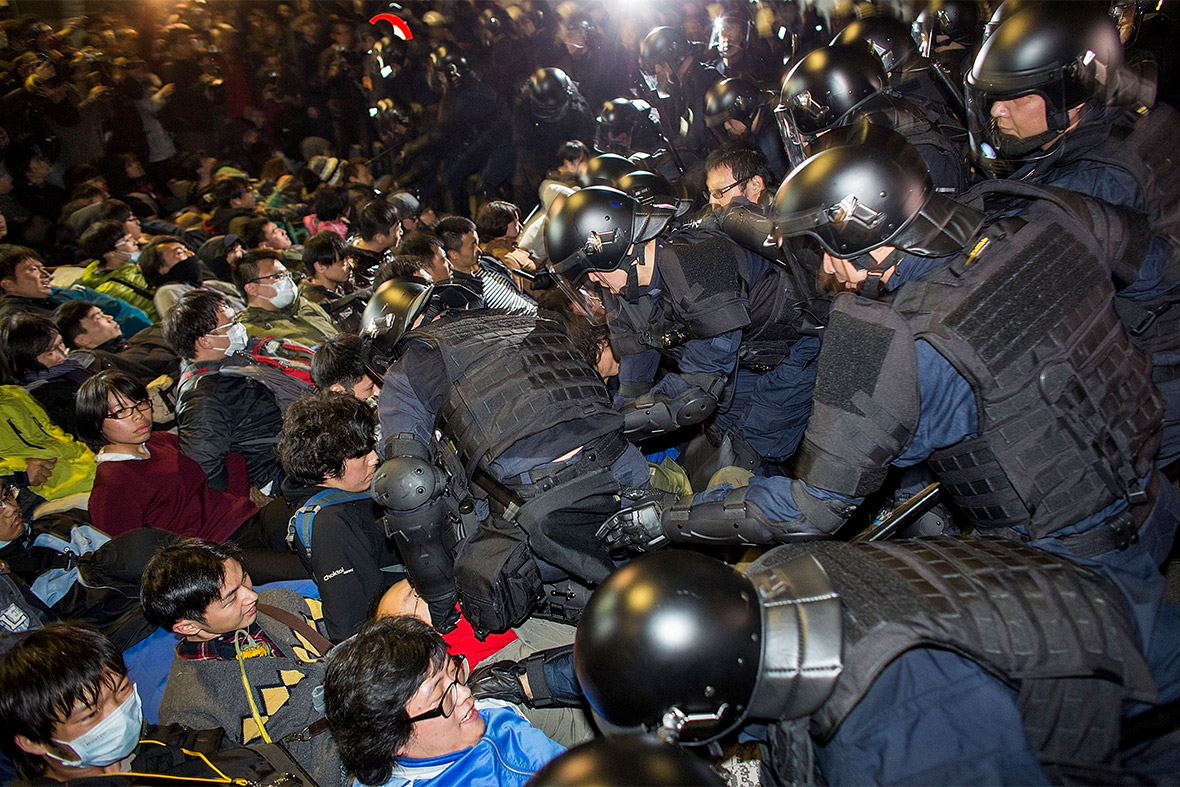 Police violence was intimately tied up with the history of the Sunflower Movement from the beginning. The initial occupation by students on the night of March 18th, 2014 was resisted by police from the get-go. Did anyone, after all, expect police to simply step aside as students forced their way into the Legislative Yuan chambers? But it is as a result that police violence has also been a controversial issue, with some pointing towards the brutality of police, still others offering that police were only doing their jobs, and some pointing towards the illegality of police actions altogether. We might take a look back at major incidents of police violence.
Police violence was intimately tied up with the history of the Sunflower Movement from the beginning. The initial occupation by students on the night of March 18th, 2014 was resisted by police from the get-go. Did anyone, after all, expect police to simply step aside as students forced their way into the Legislative Yuan chambers? But it is as a result that police violence has also been a controversial issue, with some pointing towards the brutality of police, still others offering that police were only doing their jobs, and some pointing towards the illegality of police actions altogether. We might take a look back at major incidents of police violence.
Seeds: Hertencia Petersen
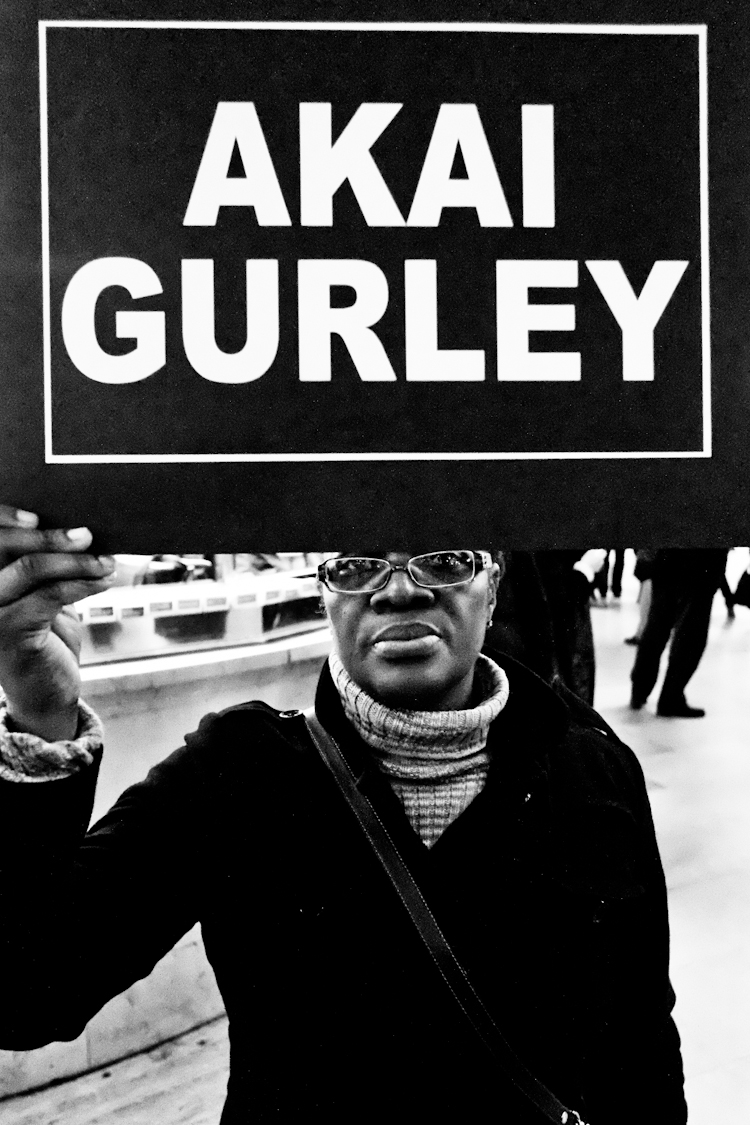 Hertencia Petersen is the aunt of Akai Gurley, who was murdered by NYPD officer, Peter Liang, on November 20th, 2014. This is a letter written by her to Taiwanese activists in solidarity and the second installment of Seeds, a column featuring activists and their causes.
Hertencia Petersen is the aunt of Akai Gurley, who was murdered by NYPD officer, Peter Liang, on November 20th, 2014. This is a letter written by her to Taiwanese activists in solidarity and the second installment of Seeds, a column featuring activists and their causes.
A Year of Sunflowers?
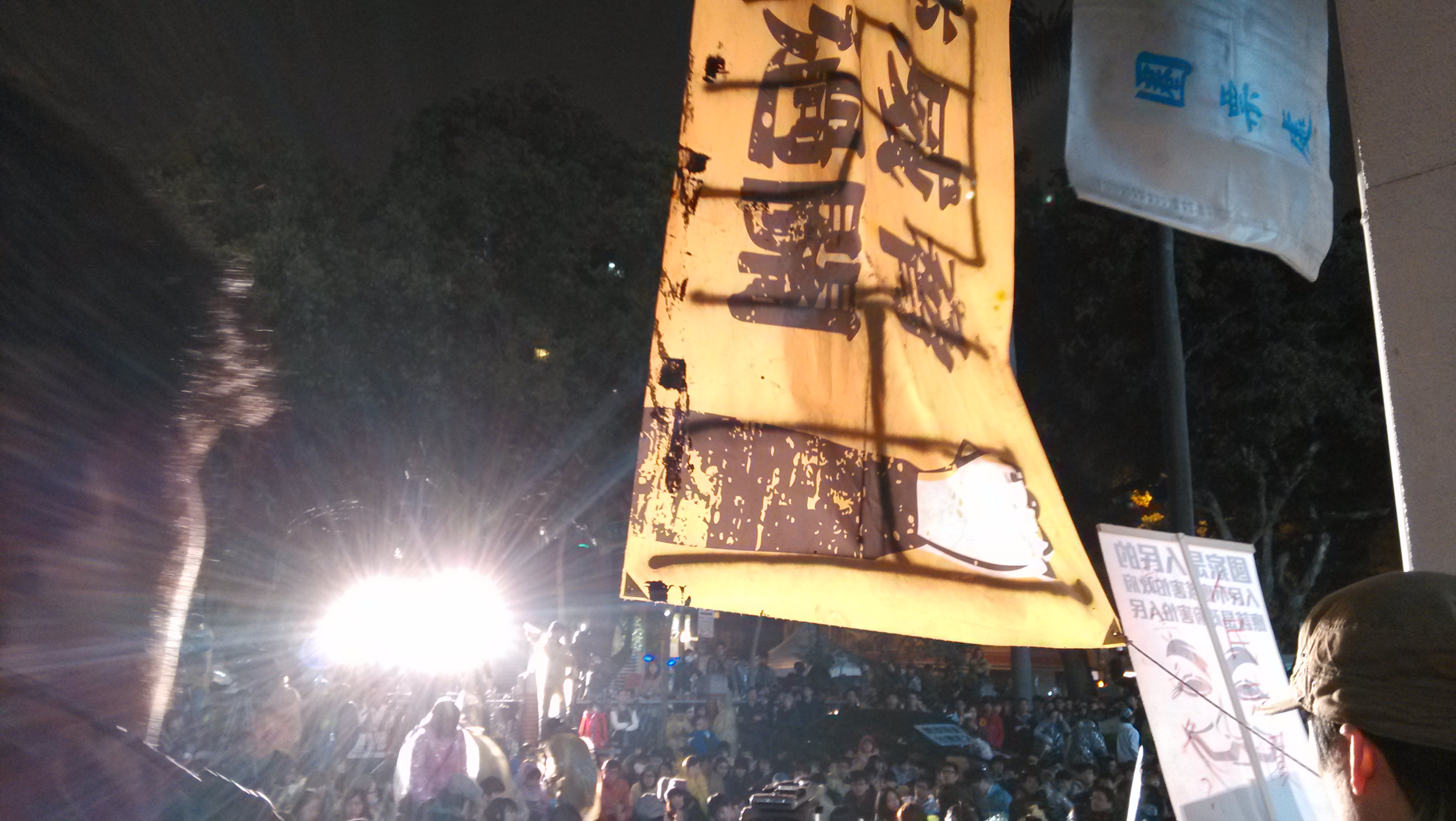 The Sunflower Movement began on March 18th, 2014, one year ago today. One year after the fact, for those of us who concern ourselves with Taiwan’s future, the verdict is clear: the Sunflower Movement made history. And now, the Sunflower Movement has passed into history. The Sunflower Movement will take its place alongside past struggles in the long journey of Taiwanese democracy as the Wild Lily Movement of 1990 and the Kaohsiung Incident of 1979. But less clear is what, in history, we will be able to point to as the concrete effects of the movement. In truth, it is still too early to tell. But we can examine the past year’s events as we can root them in the Sunflower Movement.
The Sunflower Movement began on March 18th, 2014, one year ago today. One year after the fact, for those of us who concern ourselves with Taiwan’s future, the verdict is clear: the Sunflower Movement made history. And now, the Sunflower Movement has passed into history. The Sunflower Movement will take its place alongside past struggles in the long journey of Taiwanese democracy as the Wild Lily Movement of 1990 and the Kaohsiung Incident of 1979. But less clear is what, in history, we will be able to point to as the concrete effects of the movement. In truth, it is still too early to tell. But we can examine the past year’s events as we can root them in the Sunflower Movement.
Fukushima Four Years on in Taiwan and Japan
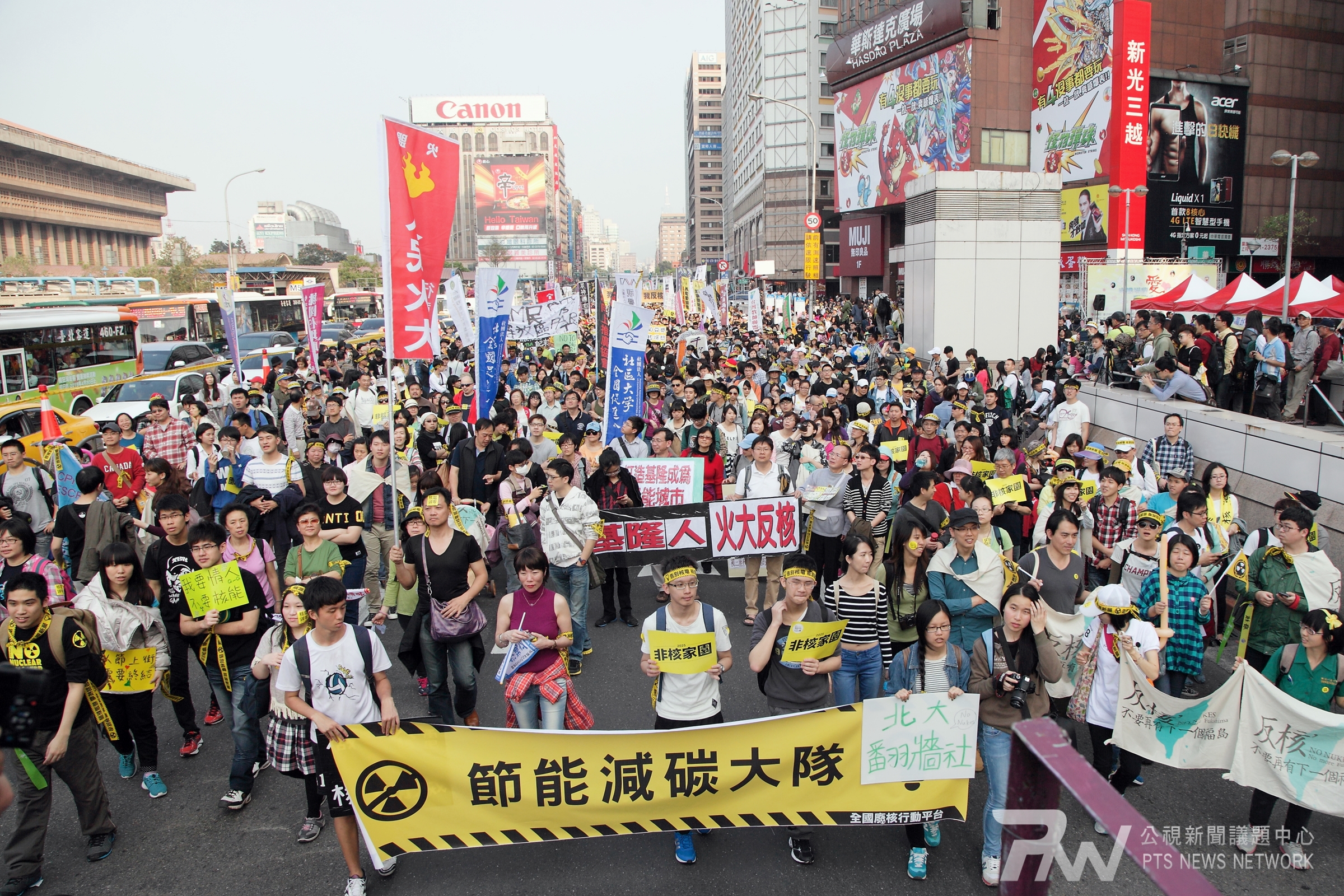 On March 14th, 60,000 Taiwanese took the streets across Taiwan in order to protest nuclear power. This was largely in Taiwan’s major metropolitan centers, Taipei, Kaohsiung, and Tainan. Taipei saw around 40,000, Kaohsiung 11,000, and Tainan 5,000. Smaller protests also took place in Taitung County and on the Penghu Islands, but the total amount of protestors is generally estimated to be between 40,000 and 60,000. How are to look at this in the broader context, four years after Fukushima?
On March 14th, 60,000 Taiwanese took the streets across Taiwan in order to protest nuclear power. This was largely in Taiwan’s major metropolitan centers, Taipei, Kaohsiung, and Tainan. Taipei saw around 40,000, Kaohsiung 11,000, and Tainan 5,000. Smaller protests also took place in Taitung County and on the Penghu Islands, but the total amount of protestors is generally estimated to be between 40,000 and 60,000. How are to look at this in the broader context, four years after Fukushima?
A Time for “High Vigilance” Against Taiwanese Independence? Or High Time for Taiwanese Independence?
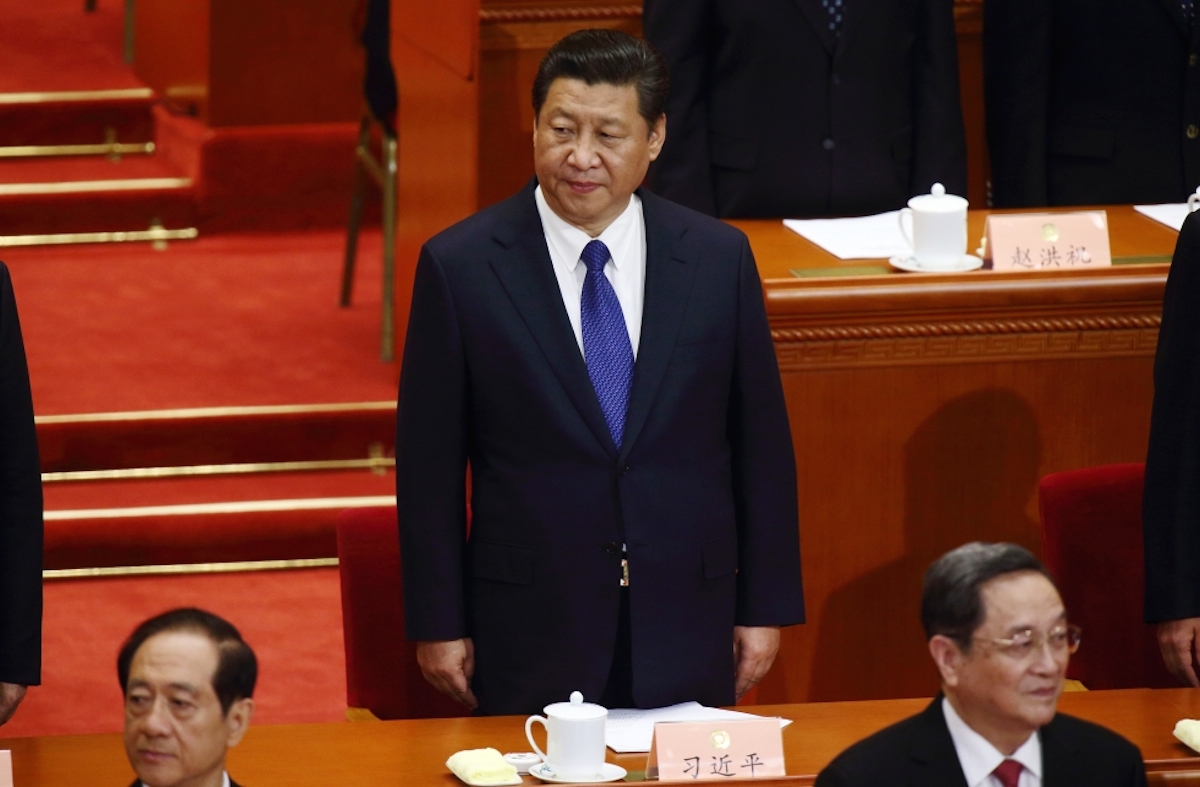 Is the safest move to not rock the boat where Taiwanese independence is concerned? Is the only winning move not to play? Even if it may mean playing a dangerous game of chicken with China through declaring independence? Xi Jinping has vowed the “reunification” of mainland China and Taiwan within his presidential term, which runs until 2020. And so, in the present, this is the question which we must ask ourselves.
Is the safest move to not rock the boat where Taiwanese independence is concerned? Is the only winning move not to play? Even if it may mean playing a dangerous game of chicken with China through declaring independence? Xi Jinping has vowed the “reunification” of mainland China and Taiwan within his presidential term, which runs until 2020. And so, in the present, this is the question which we must ask ourselves.
Twilight of the Idols?
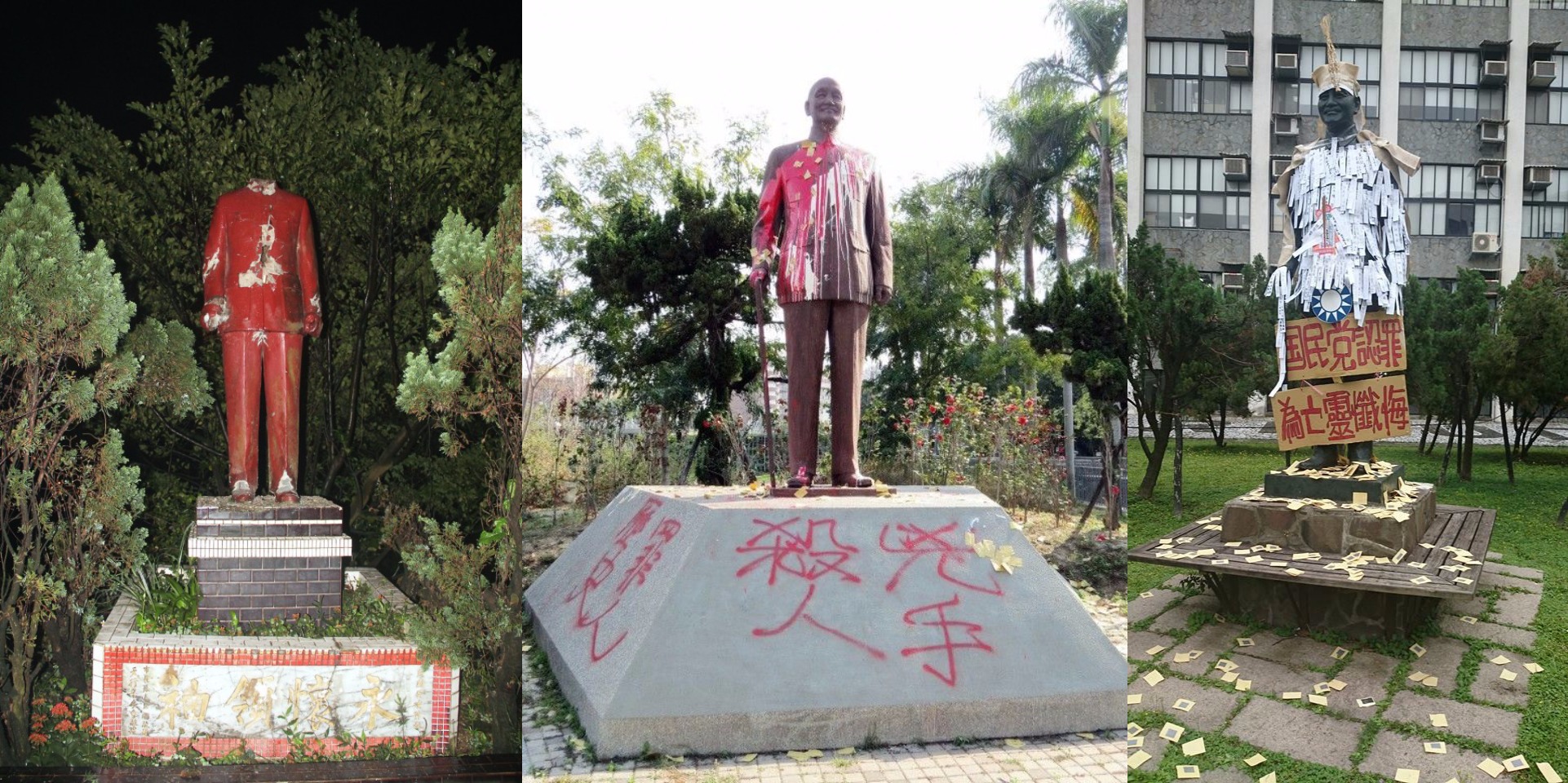 Recent weeks have seen defacements of Chiang Kai-Shek statues in Taipei, Taichung, Taoyuan, Keelung, Tainan, and other metropolitan areas.Namely, Chiang Kai-Shek statues are to be found all over Taiwan, so far as part of the “official history” of Taiwan mandated by state education, Chiang Kai-Shek is the heroic founder of the Republic of China whom Taiwanese citizenry should hail as an embodiment of patriotic and civic virtue. But what this flags for us is that the recent campaign of defacements of Chiang Kai-Shek statues across Taiwan, more or less in the period surrounding the yearly commemoration of the 228 Massacre in 1947, is a struggle over history.
Recent weeks have seen defacements of Chiang Kai-Shek statues in Taipei, Taichung, Taoyuan, Keelung, Tainan, and other metropolitan areas.Namely, Chiang Kai-Shek statues are to be found all over Taiwan, so far as part of the “official history” of Taiwan mandated by state education, Chiang Kai-Shek is the heroic founder of the Republic of China whom Taiwanese citizenry should hail as an embodiment of patriotic and civic virtue. But what this flags for us is that the recent campaign of defacements of Chiang Kai-Shek statues across Taiwan, more or less in the period surrounding the yearly commemoration of the 228 Massacre in 1947, is a struggle over history.
Film Notes: Red Sorgum (紅高粱)
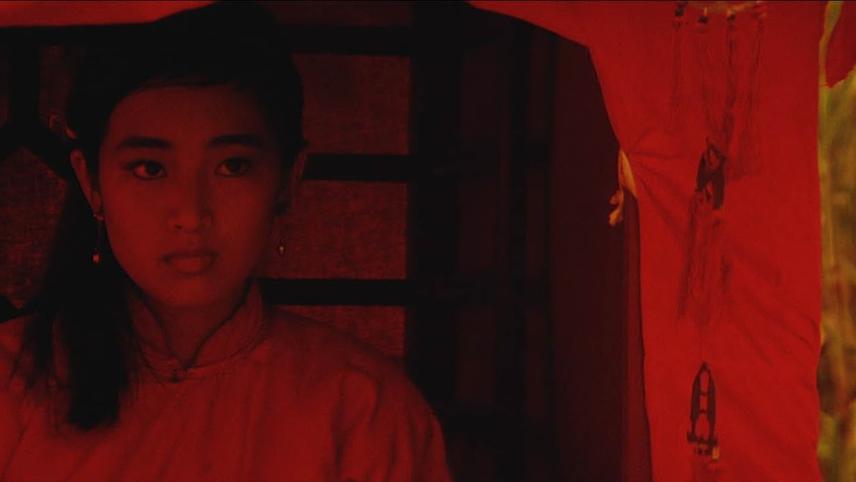 After a series of films studying rural areas and living in them, director Zhang Yimou was given permission by novelist Mo Yan to film a carte blanche adaptation of Red Sorghum. The result is a life-affirming film that functions as a shallow critique of contemporary Chinese life. Despite or because of its aesthetic value, the movie’s dissemination into Chinese popular culture and the ideology it professes makes it an interesting subject of critical reflection.
After a series of films studying rural areas and living in them, director Zhang Yimou was given permission by novelist Mo Yan to film a carte blanche adaptation of Red Sorghum. The result is a life-affirming film that functions as a shallow critique of contemporary Chinese life. Despite or because of its aesthetic value, the movie’s dissemination into Chinese popular culture and the ideology it professes makes it an interesting subject of critical reflection.
Interview: Ian Rowen
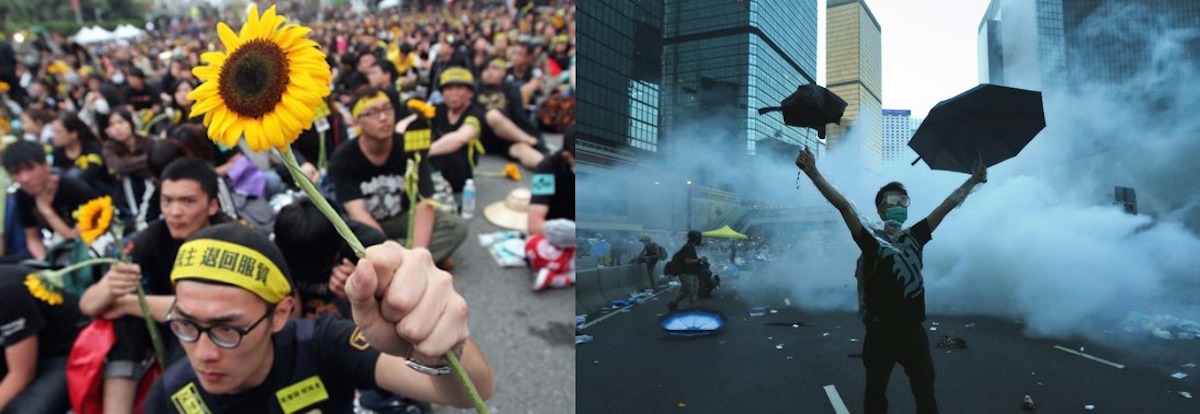 On January 19th, New Bloom’s Brian Hioe interviewed Ian Rowen, a Ph. D candidate at the University of Colorado who was present in Taiwan during the Sunflower movement and Hong Kong during the Umbrella movement, making him one of the few individuals to have experienced both movements in the past year. He has written on both movements in publications including The Guardian, the Journal of Asian Studies, The BBC (Chinese), Occupy.com, and Thinking Taiwan.
On January 19th, New Bloom’s Brian Hioe interviewed Ian Rowen, a Ph. D candidate at the University of Colorado who was present in Taiwan during the Sunflower movement and Hong Kong during the Umbrella movement, making him one of the few individuals to have experienced both movements in the past year. He has written on both movements in publications including The Guardian, the Journal of Asian Studies, The BBC (Chinese), Occupy.com, and Thinking Taiwan.
Against Both KMT and DPP?
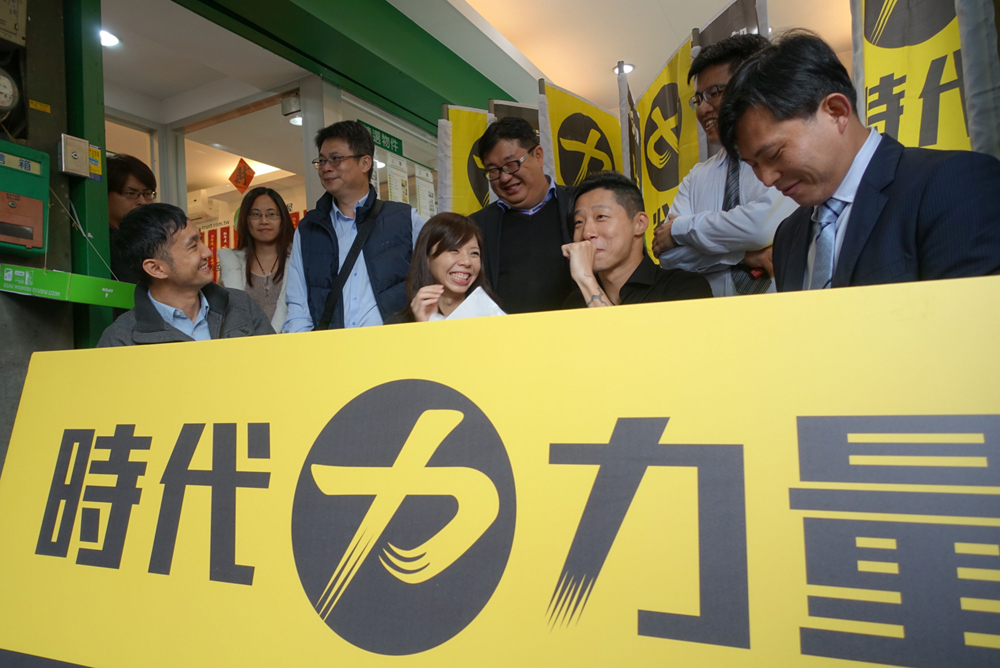 That on February 21, Chthonic frontman and longtime Taiwanese independence activist, Freddy Lim, declared his intent to run for legislator of his native Daan district in 2016 has been the latest development in Taiwanese electoral politics as we approach 2016 legislative and presidential elections. Lim plans on running as a candidate of the New Power Party, which was founded in late January. But more broadly, we can point to Lim’s candidacy as one of a series of developments which occur in the aftermath of the Sunflower Movement and the victory of Ko Wen-Je during nine-in-one elections of November of last year.
That on February 21, Chthonic frontman and longtime Taiwanese independence activist, Freddy Lim, declared his intent to run for legislator of his native Daan district in 2016 has been the latest development in Taiwanese electoral politics as we approach 2016 legislative and presidential elections. Lim plans on running as a candidate of the New Power Party, which was founded in late January. But more broadly, we can point to Lim’s candidacy as one of a series of developments which occur in the aftermath of the Sunflower Movement and the victory of Ko Wen-Je during nine-in-one elections of November of last year.
Interview: Tsay Ting-Kuei (蔡丁貴)
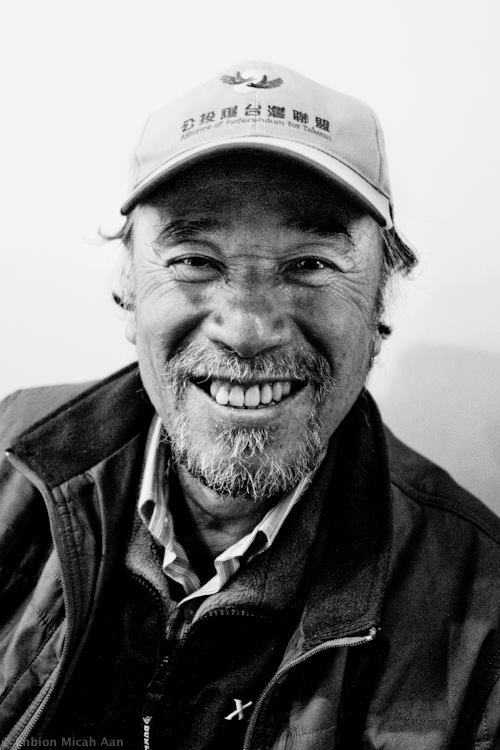 On December 17th, 2014, New Bloom’s Brian Hioe sat down with Dr. Tsay Ting-Kuei in New York City, for an extended interview. Tsay Ting-Kuei is a longtime Taiwanese independence activist, dating back to the Martial Law period, during which he was blacklisted from returning to Taiwan because of his political activities abroad while studying in America. As a result, he was only allowed to return to Taiwan after the end of martial law. As chairman of the Alliance of Referendum for Taiwan, he has continued activism on behalf of the cause of Taiwanese independence. AORFT actions have included an occupation outside of the Legislative Yuan which has lasted for over 2000 days, toppling the statue of Sun Yat-Sen in Tang De-jhang Memorial Park in Tainan in February 2014, and participation in the Sunflower Movement.
On December 17th, 2014, New Bloom’s Brian Hioe sat down with Dr. Tsay Ting-Kuei in New York City, for an extended interview. Tsay Ting-Kuei is a longtime Taiwanese independence activist, dating back to the Martial Law period, during which he was blacklisted from returning to Taiwan because of his political activities abroad while studying in America. As a result, he was only allowed to return to Taiwan after the end of martial law. As chairman of the Alliance of Referendum for Taiwan, he has continued activism on behalf of the cause of Taiwanese independence. AORFT actions have included an occupation outside of the Legislative Yuan which has lasted for over 2000 days, toppling the statue of Sun Yat-Sen in Tang De-jhang Memorial Park in Tainan in February 2014, and participation in the Sunflower Movement.
Interview: I Have It Maid (快跑三十六小時)
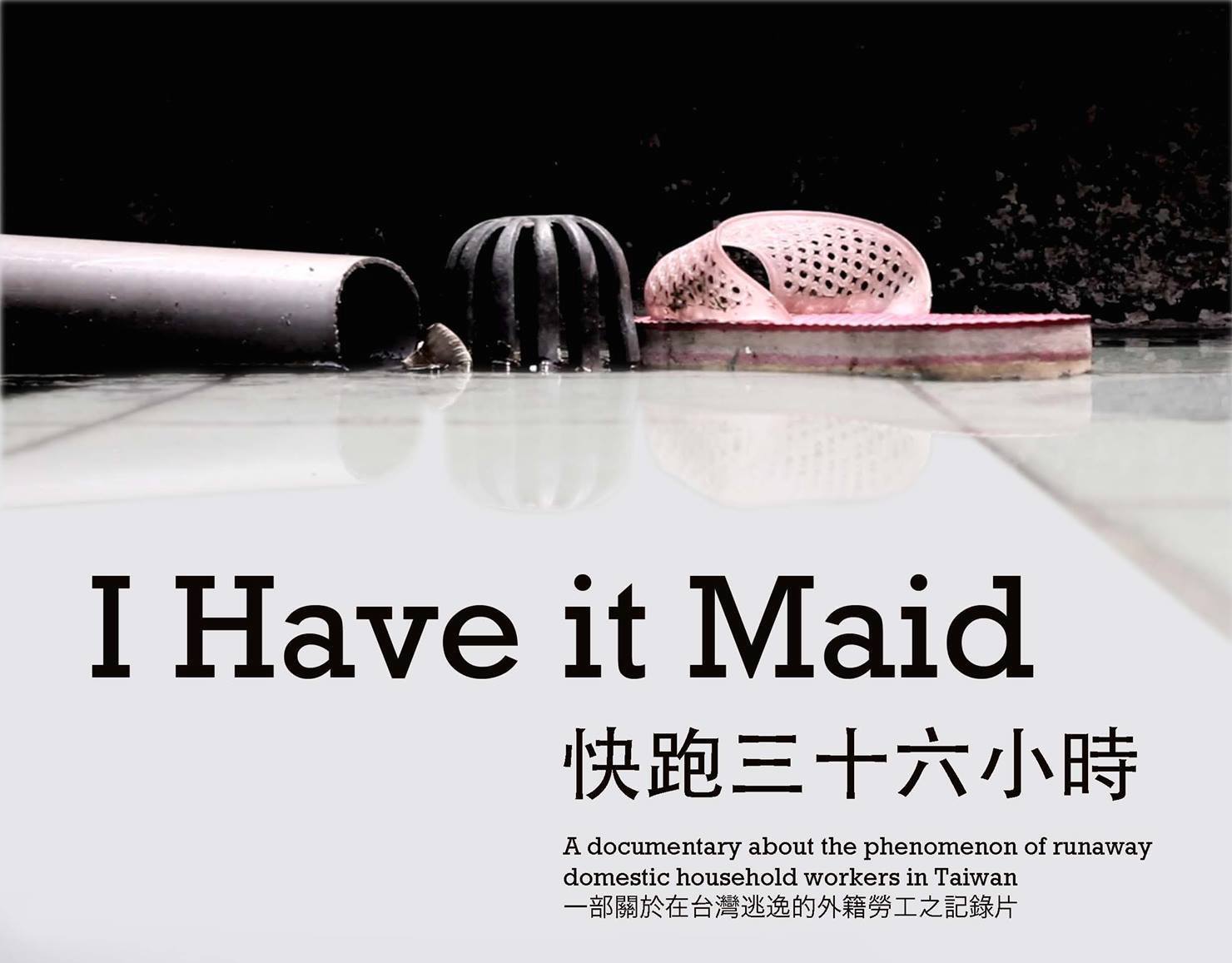 On January 7th, New Bloom’s Brian Hioe interviewed Alex Wolfgram, director of I Have It Maid, a documentary about runaway Filipino migrant workers in Taiwan. The documentary focuses the story of one migrant worker in particular, Vicky, but also more broadly details the process by which Filipino migrant workers come to Taiwan.
On January 7th, New Bloom’s Brian Hioe interviewed Alex Wolfgram, director of I Have It Maid, a documentary about runaway Filipino migrant workers in Taiwan. The documentary focuses the story of one migrant worker in particular, Vicky, but also more broadly details the process by which Filipino migrant workers come to Taiwan.
Seeds: Scott A. Hutchins
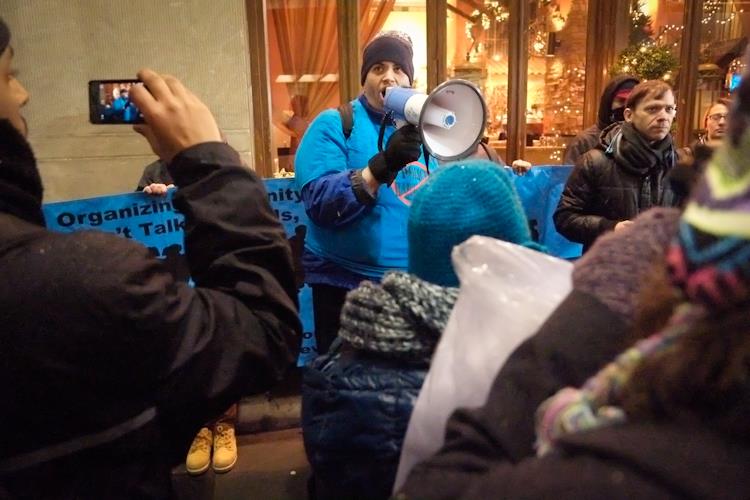 Mr. Hutchins is a NYC based activist. As an activist, he works as a researcher, spokesperson, and representative for Picture the Homeless, an organization that works around homeless people’s job, housing, and civil rights issues. Mr. Hutchins has done extensive research around civil rights and housing issues, spoken at protests and rallies, and met with government officials as a Picture the Homeless representative.
Mr. Hutchins is a NYC based activist. As an activist, he works as a researcher, spokesperson, and representative for Picture the Homeless, an organization that works around homeless people’s job, housing, and civil rights issues. Mr. Hutchins has done extensive research around civil rights and housing issues, spoken at protests and rallies, and met with government officials as a Picture the Homeless representative.
Fresh Off the Boat and the Limits of Cultural Representation
 Premiering in early February, Eddie Huang’s Fresh Off the Boat has been hailed as not only something for Asian-America, but for mainstream American television overall. Detailing a “Taiwanese-American” family after a move to Florida, the show follows the acculturation of an Asian family to the norms of America. Apart from being one of the first representations of Asian-Americans on mainstream American television, the show has been hailed as a historic victory for Asian-Americans who have struggled to find representation in the popular media. But can we be more critical?
Premiering in early February, Eddie Huang’s Fresh Off the Boat has been hailed as not only something for Asian-America, but for mainstream American television overall. Detailing a “Taiwanese-American” family after a move to Florida, the show follows the acculturation of an Asian family to the norms of America. Apart from being one of the first representations of Asian-Americans on mainstream American television, the show has been hailed as a historic victory for Asian-Americans who have struggled to find representation in the popular media. But can we be more critical?
The Search for General Tso
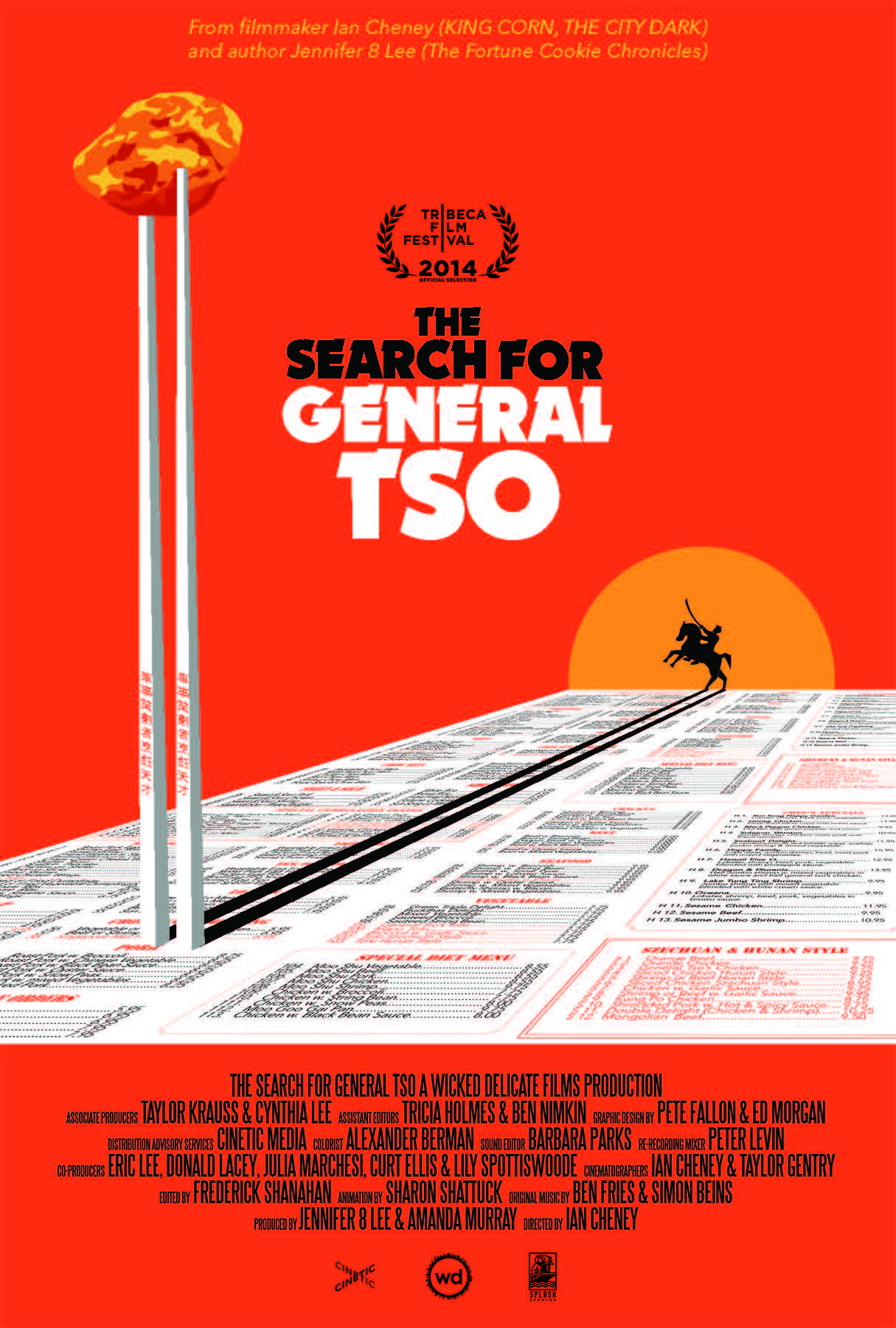 The Search for General Tso is the latest food documentary to use food as a symbol through which to explore a culture at once familiar and exoticized. Tso is the kind of film that will end up on Netflix queues and consumed by businessmen on United Flights to Asian Pacific countries. The film exceeds in utilizing the titular dish to introduce elementary historical topics to its viewers despite its lack of compelling footage to accompany its major ‘discoveries’. In this sense the documentary is a spoonful of sugar for the oft painful narratives that define Asian immigration to the United States.
The Search for General Tso is the latest food documentary to use food as a symbol through which to explore a culture at once familiar and exoticized. Tso is the kind of film that will end up on Netflix queues and consumed by businessmen on United Flights to Asian Pacific countries. The film exceeds in utilizing the titular dish to introduce elementary historical topics to its viewers despite its lack of compelling footage to accompany its major ‘discoveries’. In this sense the documentary is a spoonful of sugar for the oft painful narratives that define Asian immigration to the United States.
Profile: Gongsheng Music Festival (共生音樂節)
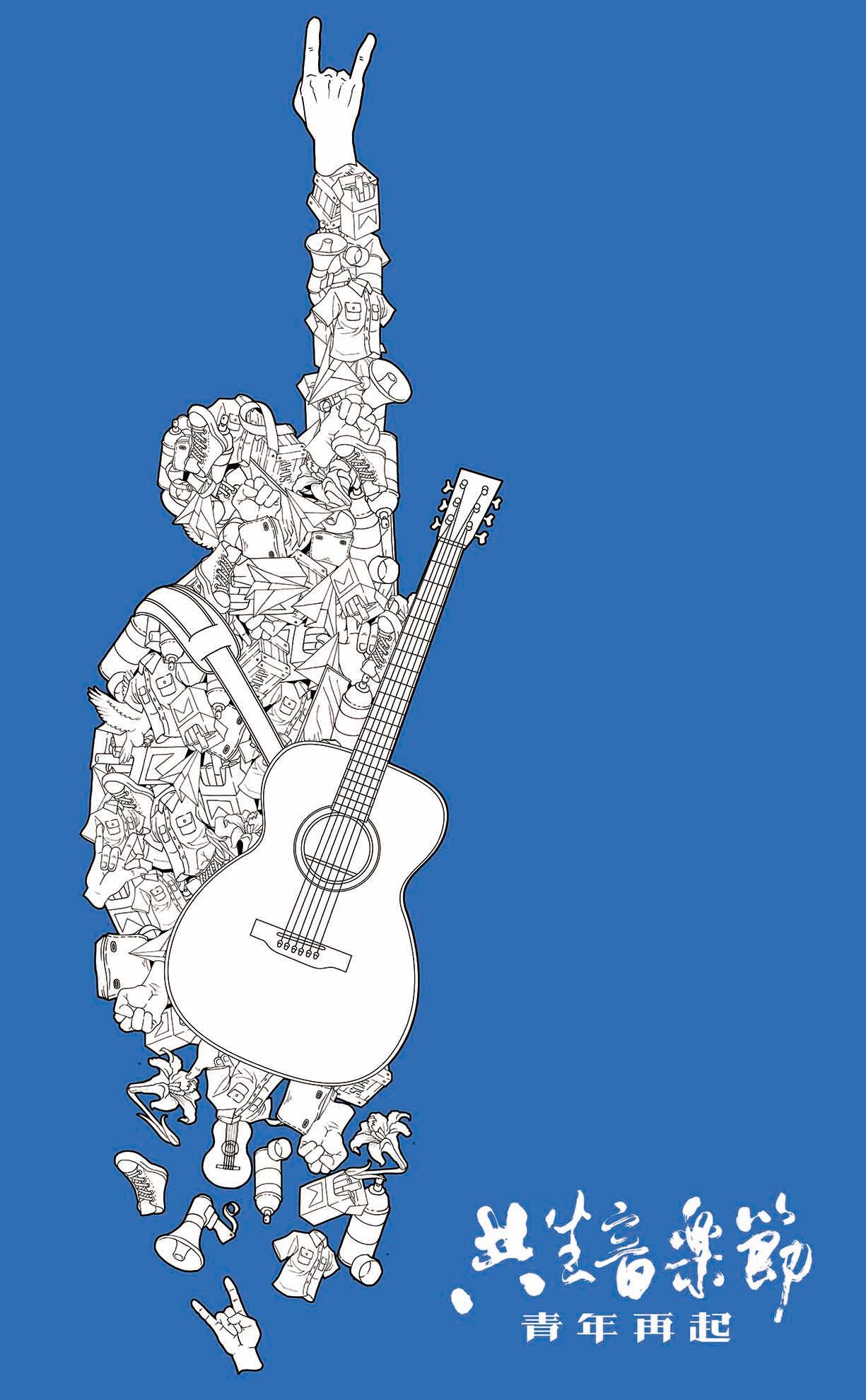 In early February, New Bloom interviewed Yeh Jiunn Tyng (葉俊廷) concerning the 2015 Gongsheng Music Festival (共生音樂節), a music festival held annually at Freedom Plaza in Taipei in order to commemorate the 228 Massacre Incident, which is currently the largest 228 commemoration event in Taiwan. Yeh Jiunn Tyng is one of the founders of the event, as well as one of the founding editors of New Bloom.
In early February, New Bloom interviewed Yeh Jiunn Tyng (葉俊廷) concerning the 2015 Gongsheng Music Festival (共生音樂節), a music festival held annually at Freedom Plaza in Taipei in order to commemorate the 228 Massacre Incident, which is currently the largest 228 commemoration event in Taiwan. Yeh Jiunn Tyng is one of the founders of the event, as well as one of the founding editors of New Bloom.
America and The History of Taiwanese Independence
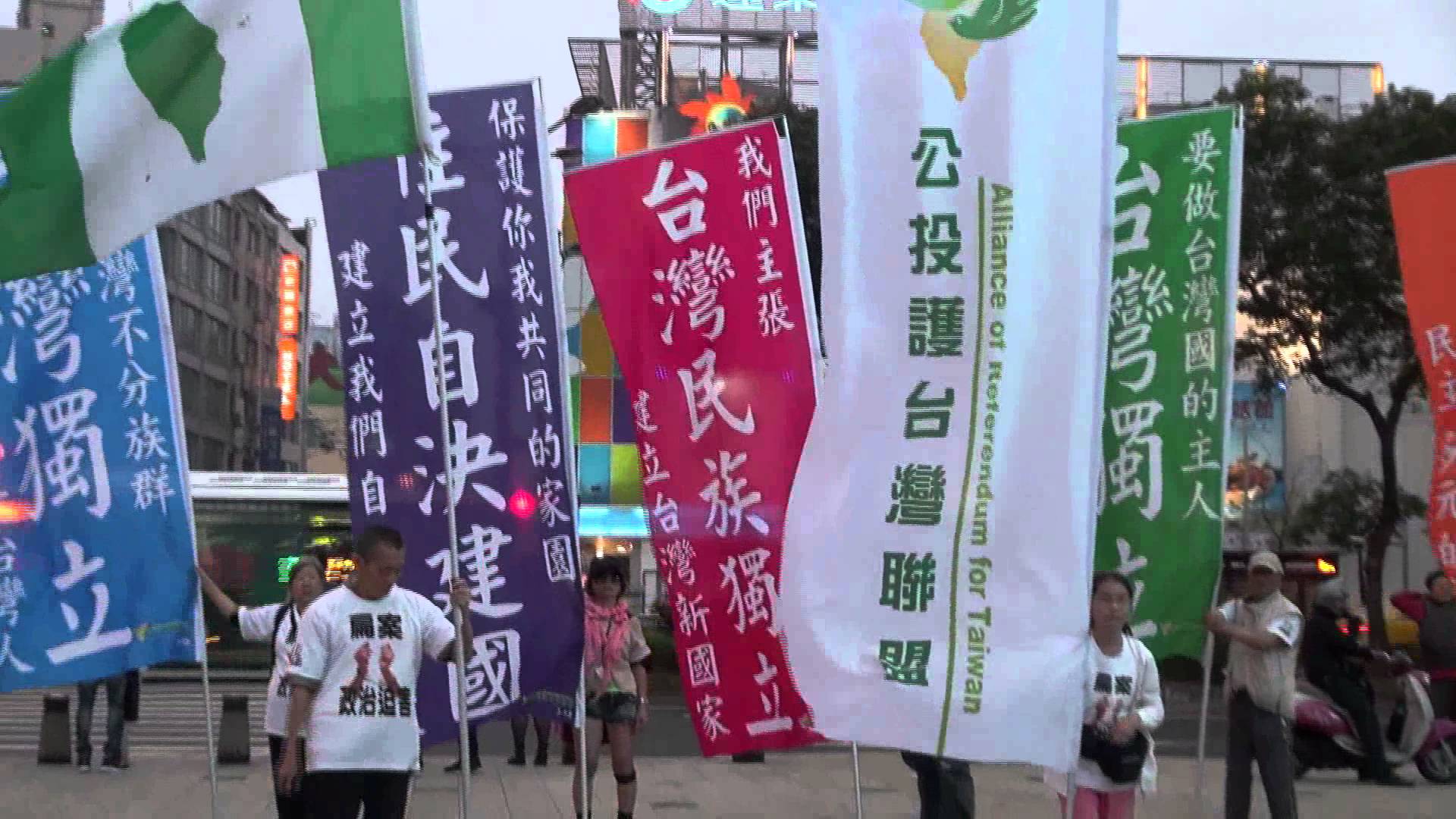 It may be ironic that Taiwanese independence, in necessitating the acknowledgement of Taiwan by other nation-states, has been heavily dependent upon acknowledgement of Taiwan by America. American foreign policy was what had led to Taiwan’s expulsion from the international community to begin with, as Taiwan’s loss of UN status came after and was as a result of the US establishing diplomatic relations with China and breaking off diplomatic relations with Taiwan. As such, it is because of American policy that Taiwan became unacknowledged as a political polity by the world community.
It may be ironic that Taiwanese independence, in necessitating the acknowledgement of Taiwan by other nation-states, has been heavily dependent upon acknowledgement of Taiwan by America. American foreign policy was what had led to Taiwan’s expulsion from the international community to begin with, as Taiwan’s loss of UN status came after and was as a result of the US establishing diplomatic relations with China and breaking off diplomatic relations with Taiwan. As such, it is because of American policy that Taiwan became unacknowledged as a political polity by the world community.
Who Betrayed Formosa?
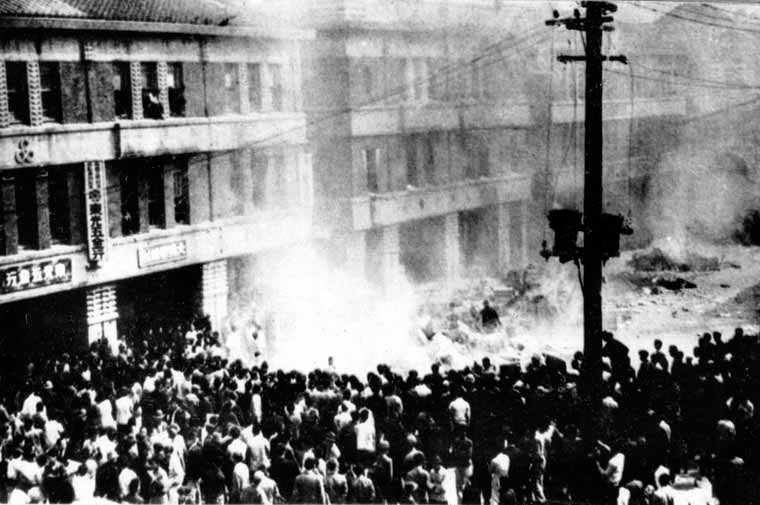 228 was the anti-colonial uprising in 1947 that occurred in reaction against KMT oppression of native Taiwanese after the KMT came to Taiwan from China which was set off by the shooting of a woman selling tobacco by KMT law enforcement. Kerr, an American diplomat in the American Foreign Service, was a witness to the 228 Massacre and wrote Formosa Betrayed in order to point towards what he saw as the moral failings of America in failing to act on behalf of Taiwanese. The work would later serve a valuable eyewitness account for Taiwanese learning of the history repressed by the KMT within Taiwan. But have Taiwanese today forgotten what Kerr’s original demand of responsibility to America was in their appeals to America?
228 was the anti-colonial uprising in 1947 that occurred in reaction against KMT oppression of native Taiwanese after the KMT came to Taiwan from China which was set off by the shooting of a woman selling tobacco by KMT law enforcement. Kerr, an American diplomat in the American Foreign Service, was a witness to the 228 Massacre and wrote Formosa Betrayed in order to point towards what he saw as the moral failings of America in failing to act on behalf of Taiwanese. The work would later serve a valuable eyewitness account for Taiwanese learning of the history repressed by the KMT within Taiwan. But have Taiwanese today forgotten what Kerr’s original demand of responsibility to America was in their appeals to America?
Anti-Nuclear Activism in Taiwan and Japan
 When we find ourselves in the situation of trying to point to lessons that social movements in one national context can offer to social movements in other contexts, the difficulty we rapidly encounter is that sometimes social movements are the product of particularities of their respective national contexts. But can a transnational comparison between the Taiwanese anti-nuclear movement in 2014 and the Japanese anti-nuclear movement in 2012 shed light upon future paths for anti-nuclear activism in Asia?
When we find ourselves in the situation of trying to point to lessons that social movements in one national context can offer to social movements in other contexts, the difficulty we rapidly encounter is that sometimes social movements are the product of particularities of their respective national contexts. But can a transnational comparison between the Taiwanese anti-nuclear movement in 2014 and the Japanese anti-nuclear movement in 2012 shed light upon future paths for anti-nuclear activism in Asia?
Chen Shui-Bian’s Release and the Question of Taiwanese Independence
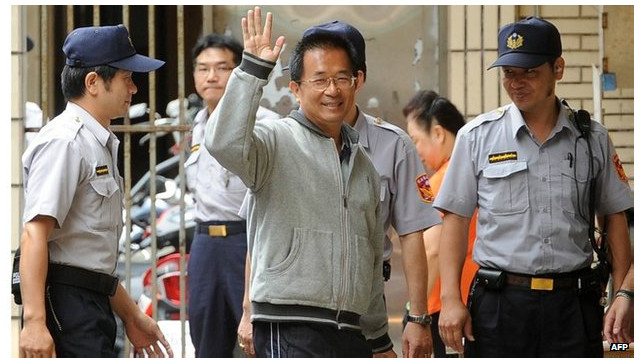 On Monday, former Taiwanese president Chen Shui-Bian was released on medical parole after six years of imprisonment on a 20-year sentence on charges of corruption. Medical parole will last for one month, after which his condition will be evaluated. Chen’s release comes after a series of campaigns calling for his release on grounds of human rights. But while release of former president Chen Shui-Bian on medical parole has been welcomed by many Taiwanese activists, but have reactions from society at large been so positive? And what does Chen’s release mean for the broader question of Taiwanese independence?
On Monday, former Taiwanese president Chen Shui-Bian was released on medical parole after six years of imprisonment on a 20-year sentence on charges of corruption. Medical parole will last for one month, after which his condition will be evaluated. Chen’s release comes after a series of campaigns calling for his release on grounds of human rights. But while release of former president Chen Shui-Bian on medical parole has been welcomed by many Taiwanese activists, but have reactions from society at large been so positive? And what does Chen’s release mean for the broader question of Taiwanese independence?
A Sexualized Movement Without Sexual Rights
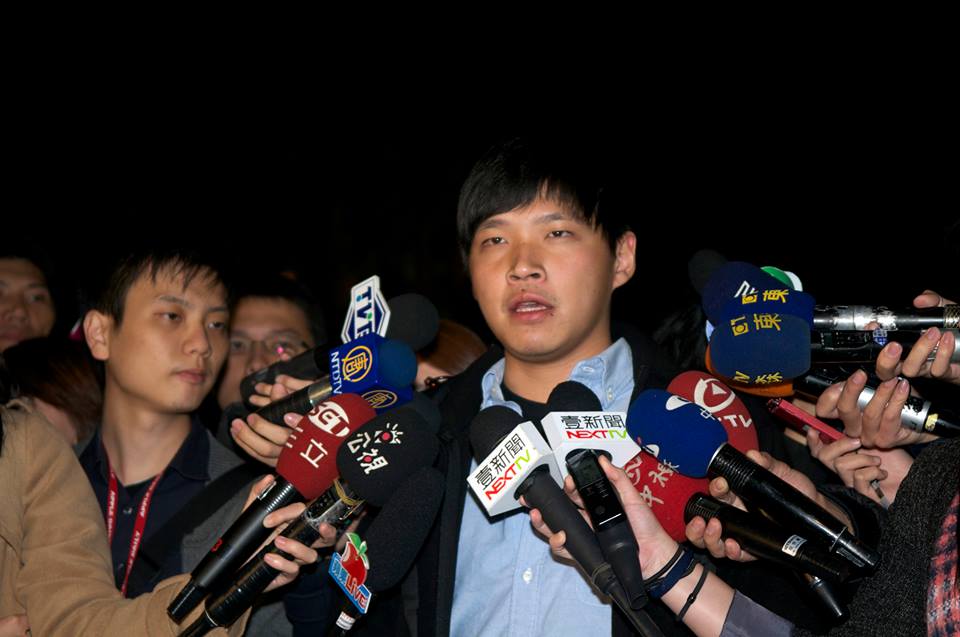 The scandal which has rocked Taiwanese activist circles in the past week has been Sunflower movement leader and Miaoli legislator hopeful Chen Wei-Ting’s admission of several sexual harassment incidents. Why the scandal over Chen Wei-Ting would become such a large incident was because the significance of Chen entering electoral politics was viewed in terms of Chen’s personal appeal as a political actor and individual rather than in terms of what Chen represented. In this way, the actual questions at hand in regards to deep-rooted issues of male sexism and chauvinism in Taiwanese activist politics and society end up buried.
The scandal which has rocked Taiwanese activist circles in the past week has been Sunflower movement leader and Miaoli legislator hopeful Chen Wei-Ting’s admission of several sexual harassment incidents. Why the scandal over Chen Wei-Ting would become such a large incident was because the significance of Chen entering electoral politics was viewed in terms of Chen’s personal appeal as a political actor and individual rather than in terms of what Chen represented. In this way, the actual questions at hand in regards to deep-rooted issues of male sexism and chauvinism in Taiwanese activist politics and society end up buried.
Storming the Legislature a Second Time?
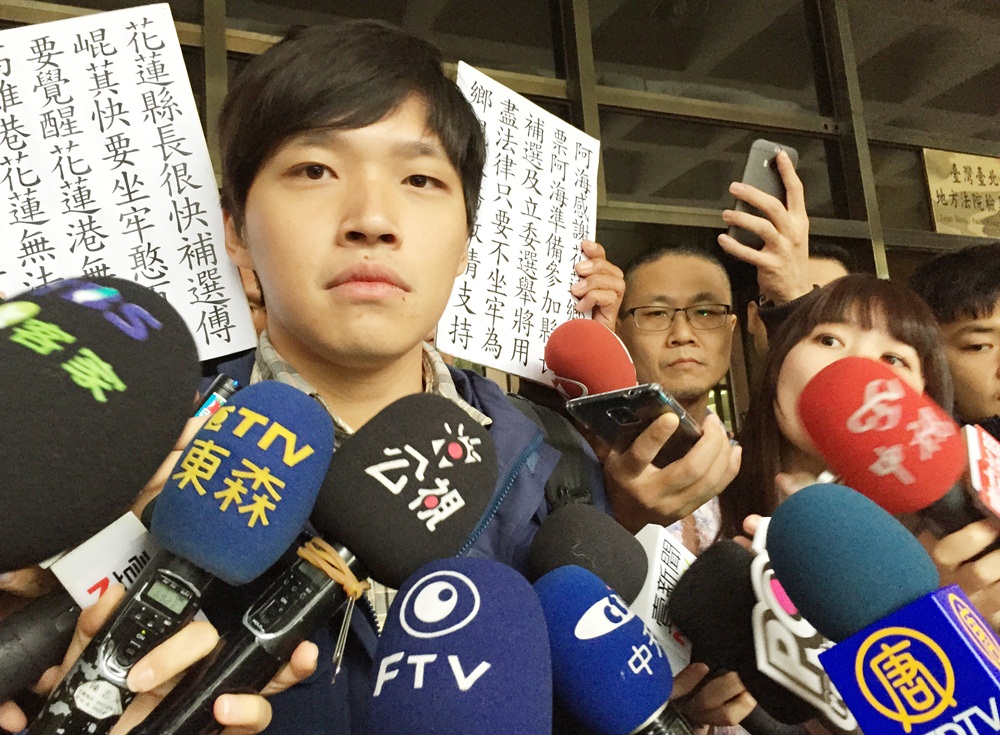 On December 9th, Chen Wei-Ting of Sunflower Movement fame announced his plans to run for legislator of his native Miaoli. A recent poll conducted by TVBS week suggests that Chen would be victorious in elections. But what are we to make of that Sunflower Movement activists are now running for electoral positions? What would Sunflower Movement activists accomplish through running as political candidates and by way of participation in electoral campaigns?
On December 9th, Chen Wei-Ting of Sunflower Movement fame announced his plans to run for legislator of his native Miaoli. A recent poll conducted by TVBS week suggests that Chen would be victorious in elections. But what are we to make of that Sunflower Movement activists are now running for electoral positions? What would Sunflower Movement activists accomplish through running as political candidates and by way of participation in electoral campaigns?
How Involved was Ko in the Chinese Organ Trade?
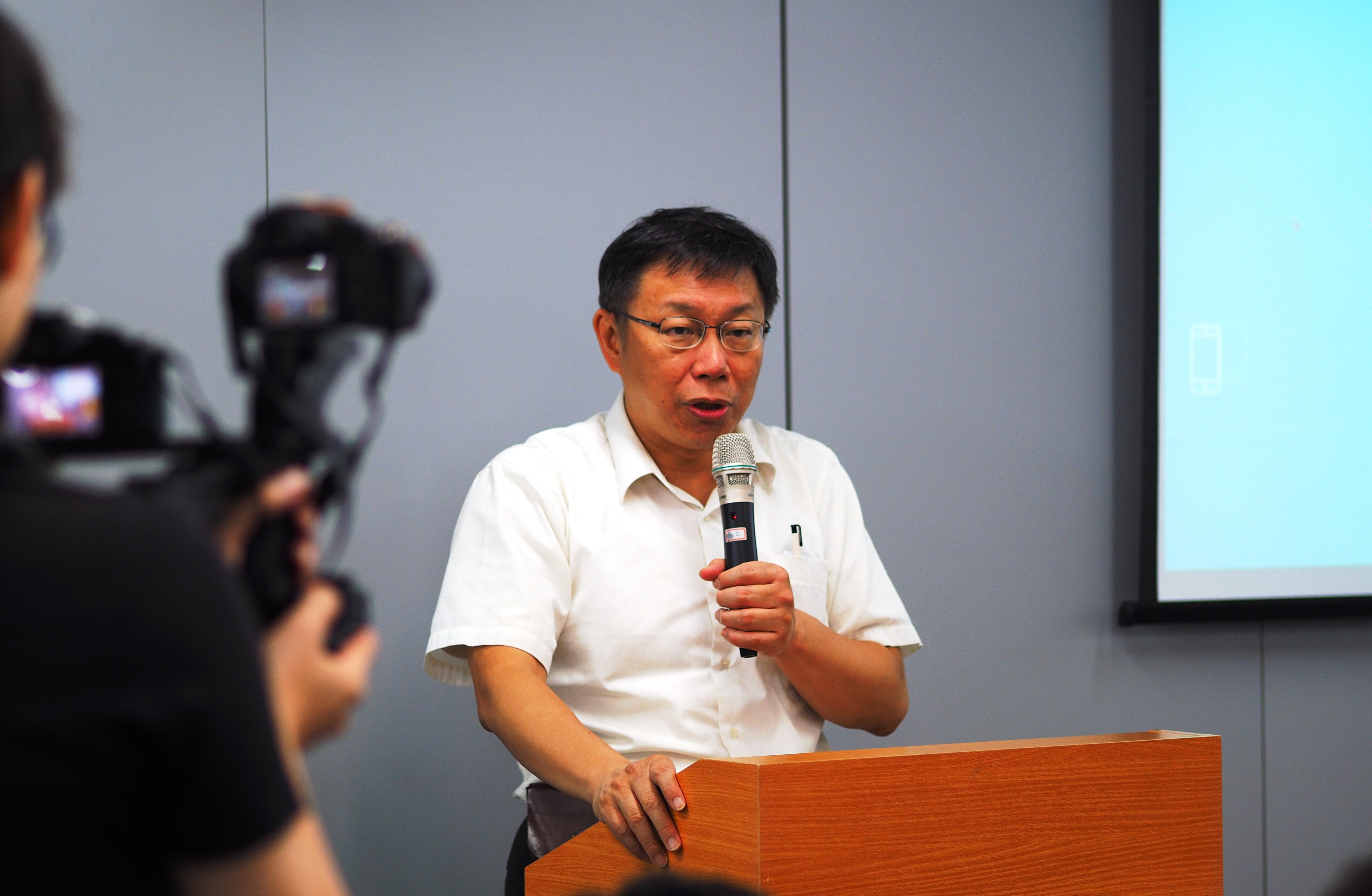 Dr. Ko Wen-je ran a generally clean and honourable campaign that resulted in his defeating Sean Lien in the November 29 election to be the first non-KMT mayor of Taipei in 16 years. Nonetheless, there was one major issue that arose during his campaign that he needs to address in order to start off his administration on the right foot. Namely, what role did he play, if any, in helping Taiwanese patients obtain organ transplants harvested from Chinese Falun Gong prisoners?
Dr. Ko Wen-je ran a generally clean and honourable campaign that resulted in his defeating Sean Lien in the November 29 election to be the first non-KMT mayor of Taipei in 16 years. Nonetheless, there was one major issue that arose during his campaign that he needs to address in order to start off his administration on the right foot. Namely, what role did he play, if any, in helping Taiwanese patients obtain organ transplants harvested from Chinese Falun Gong prisoners?
A Month of Labor Demonstrations in Taiwan
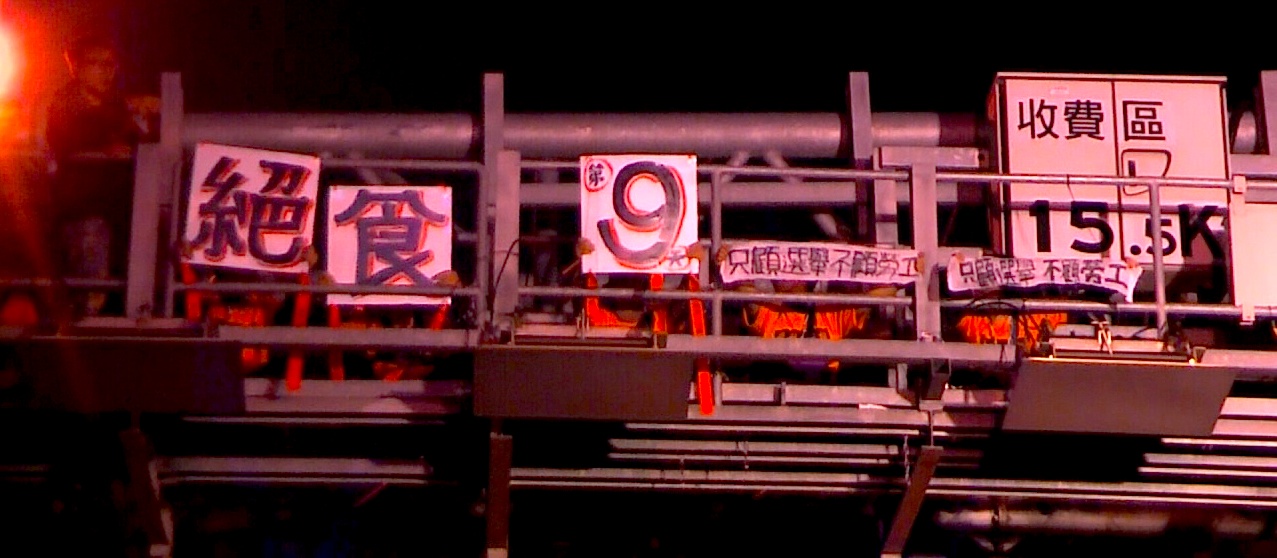 Although as was to be expected, media was mostly preoccupied with nine-in-one elections, the past month in Taiwan has been one marked by no shortage of activity by organized labor. In particular, this was driven on by two groups: the Former Toll Collectors’ Self-Help Organization and employees of Hualon Group. But if the past nine-in-one elections represent something new for Taiwanese politics, can new avenues of possibility be forced open for Taiwanese organized labor?
Although as was to be expected, media was mostly preoccupied with nine-in-one elections, the past month in Taiwan has been one marked by no shortage of activity by organized labor. In particular, this was driven on by two groups: the Former Toll Collectors’ Self-Help Organization and employees of Hualon Group. But if the past nine-in-one elections represent something new for Taiwanese politics, can new avenues of possibility be forced open for Taiwanese organized labor?
Hong Kong’s “New Normal”
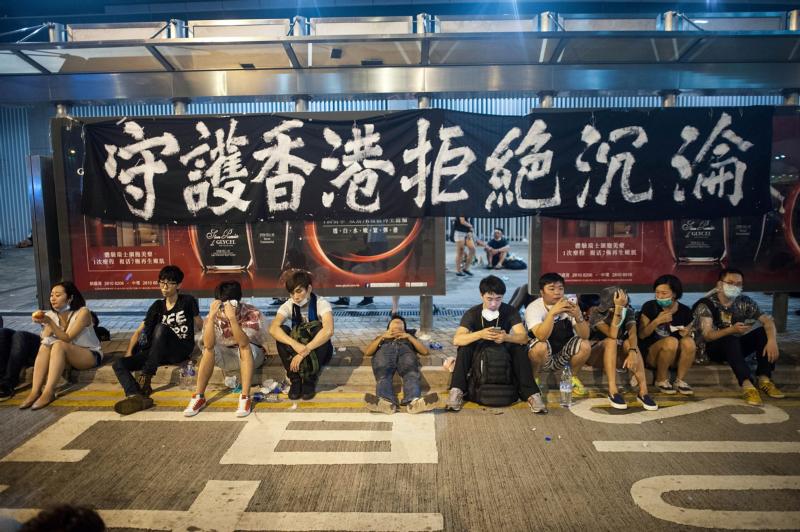 Is Hong Kong’s Umbrella Revolution over? This has been the question that many have asked themselves over the past month, both in Hong Kong and outside of it. As the Umbrella Revolution stretched on past one month, then over two months, the international news coverage which drew the world’s attention to the movement has slowly dwindled. The fact that people both in and outside of Hong Kong have been continually asking themselves whether the Umbrella Revolution is over is, in fact, proof enough that it is not over. Yet if the Umbrella Revolution has already succeeded in transforming Hong Kong, it remains a salient question as to how it will end.
Is Hong Kong’s Umbrella Revolution over? This has been the question that many have asked themselves over the past month, both in Hong Kong and outside of it. As the Umbrella Revolution stretched on past one month, then over two months, the international news coverage which drew the world’s attention to the movement has slowly dwindled. The fact that people both in and outside of Hong Kong have been continually asking themselves whether the Umbrella Revolution is over is, in fact, proof enough that it is not over. Yet if the Umbrella Revolution has already succeeded in transforming Hong Kong, it remains a salient question as to how it will end.
Sunflower Seeds in Bloom?
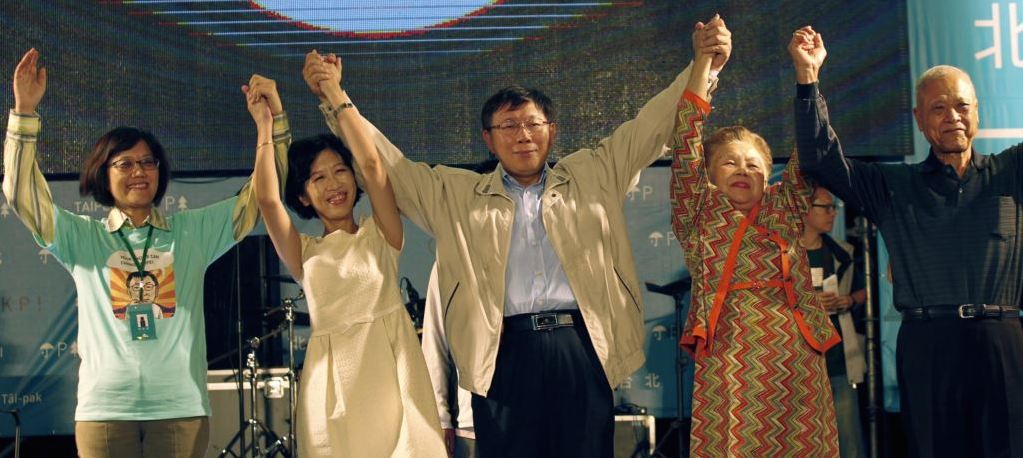 It would seem the tides of Taiwanese electoral politics are turning, or are they? The past victory of opposition forces over the KMT in the nine-in-one elections held last Saturday came as a surprise, with independent candidate Ko Wen-Je triumphing over KMT candidate Sean Lien in vying for the position of Taipei mayor. But if past elections have been a victory, what remains is to demand more from all quarters. It is not merely enough to be satisfied with current set of circumstances. Only then will the demands of the Sunflower Movement stand any chance of realization.
It would seem the tides of Taiwanese electoral politics are turning, or are they? The past victory of opposition forces over the KMT in the nine-in-one elections held last Saturday came as a surprise, with independent candidate Ko Wen-Je triumphing over KMT candidate Sean Lien in vying for the position of Taipei mayor. But if past elections have been a victory, what remains is to demand more from all quarters. It is not merely enough to be satisfied with current set of circumstances. Only then will the demands of the Sunflower Movement stand any chance of realization.
Seizing the Election Momentum to Place Human Rights at the Top of the Agenda in Taiwan
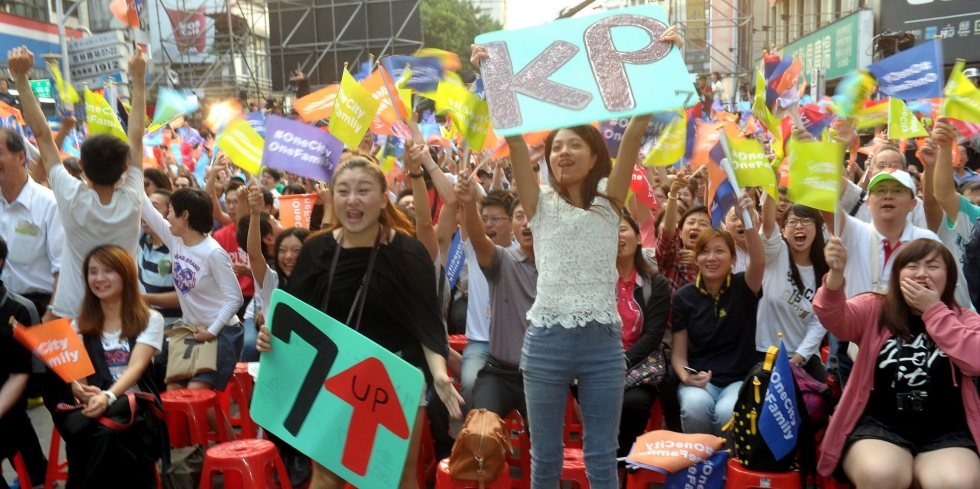 On Saturday, Taiwan held its first nine-in-one elections in which nine different types of positions were up for election throughout the country. While the election results show that the KMT is losing influence on local politics, this is only the opening act to the much more important election in 2016 for the presidency and the national legislature. Regardless of who runs in the elections in the end, the opposition must seize this momentum to place human rights at the top of the agenda in Taiwan again.
On Saturday, Taiwan held its first nine-in-one elections in which nine different types of positions were up for election throughout the country. While the election results show that the KMT is losing influence on local politics, this is only the opening act to the much more important election in 2016 for the presidency and the national legislature. Regardless of who runs in the elections in the end, the opposition must seize this momentum to place human rights at the top of the agenda in Taiwan again.
When We Talk About Beyond “Blue” and “Green”, Is this Moving Forward or Marching in Place?
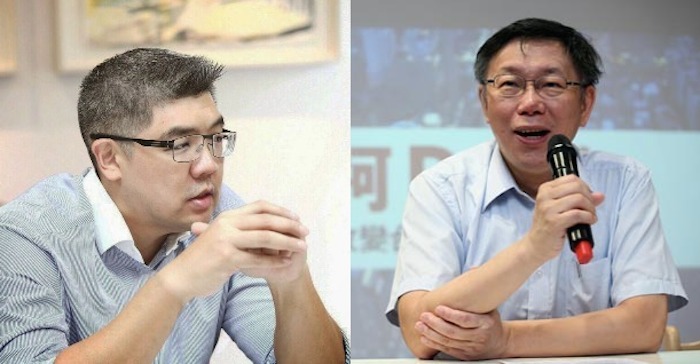 Moving beyond blue and green can be a positive political transformation: living on the same piece of land with a group of people should be the peaceful and rational discussion of political ideas on the basis of common vision. On the other hand, the claim to move beyond blue and green can be a confused battle of hypocrisy, sidelining important political questions, in the belief that this is reconciliation between blue and green in a communal manner. But will the voters of the general public be so conscious?
Moving beyond blue and green can be a positive political transformation: living on the same piece of land with a group of people should be the peaceful and rational discussion of political ideas on the basis of common vision. On the other hand, the claim to move beyond blue and green can be a confused battle of hypocrisy, sidelining important political questions, in the belief that this is reconciliation between blue and green in a communal manner. But will the voters of the general public be so conscious?
Profile: Taiwan Alliance for Victims of Urban Renewal
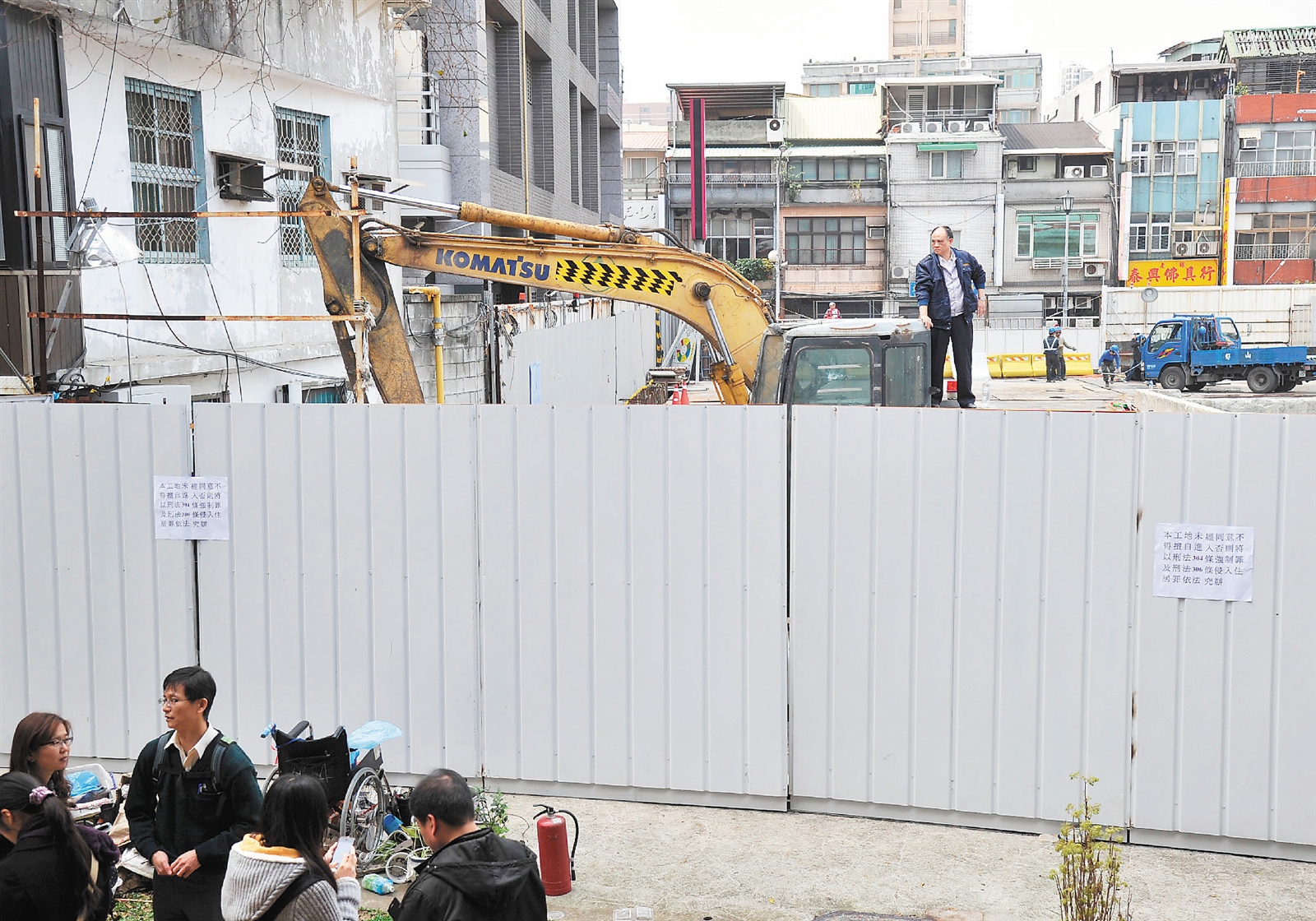 On August 27th, New Bloom’s Brian Hioe interviewed Chen Hung-Ying and Long San-Peng from Taiwan Alliance for Victims of Urban Renewal concerning Taiwan Alliance for Victims of Urban Renewal’s work concerning urban renewal and forced eviction in cities in Taiwan. This is the fourth of a series of interview profiles that New Bloom will be doing with Taiwanese NGOs and civil society organizations, in an effort to present a picture of Taiwanese civil society to an international audience.
On August 27th, New Bloom’s Brian Hioe interviewed Chen Hung-Ying and Long San-Peng from Taiwan Alliance for Victims of Urban Renewal concerning Taiwan Alliance for Victims of Urban Renewal’s work concerning urban renewal and forced eviction in cities in Taiwan. This is the fourth of a series of interview profiles that New Bloom will be doing with Taiwanese NGOs and civil society organizations, in an effort to present a picture of Taiwanese civil society to an international audience.
Profile: Taiwan LGBT Family Rights Advocacy
 On October 27th, New Bloom’s Brian Hioe interviewed Lupy Li from Taiwan LGBT Family Rights Advocacy concerning Taiwan LGBT Family Rights Advocacy’s work concerning tongzhi (LGBTQ) families in Taiwan. This is the third of a series of interview profiles that New Bloom will be doing with Taiwanese NGOs and civil society organizations, in an effort to present a picture of Taiwanese civil society to an international audience.
On October 27th, New Bloom’s Brian Hioe interviewed Lupy Li from Taiwan LGBT Family Rights Advocacy concerning Taiwan LGBT Family Rights Advocacy’s work concerning tongzhi (LGBTQ) families in Taiwan. This is the third of a series of interview profiles that New Bloom will be doing with Taiwanese NGOs and civil society organizations, in an effort to present a picture of Taiwanese civil society to an international audience.
Have the Rules of the Game Changed?
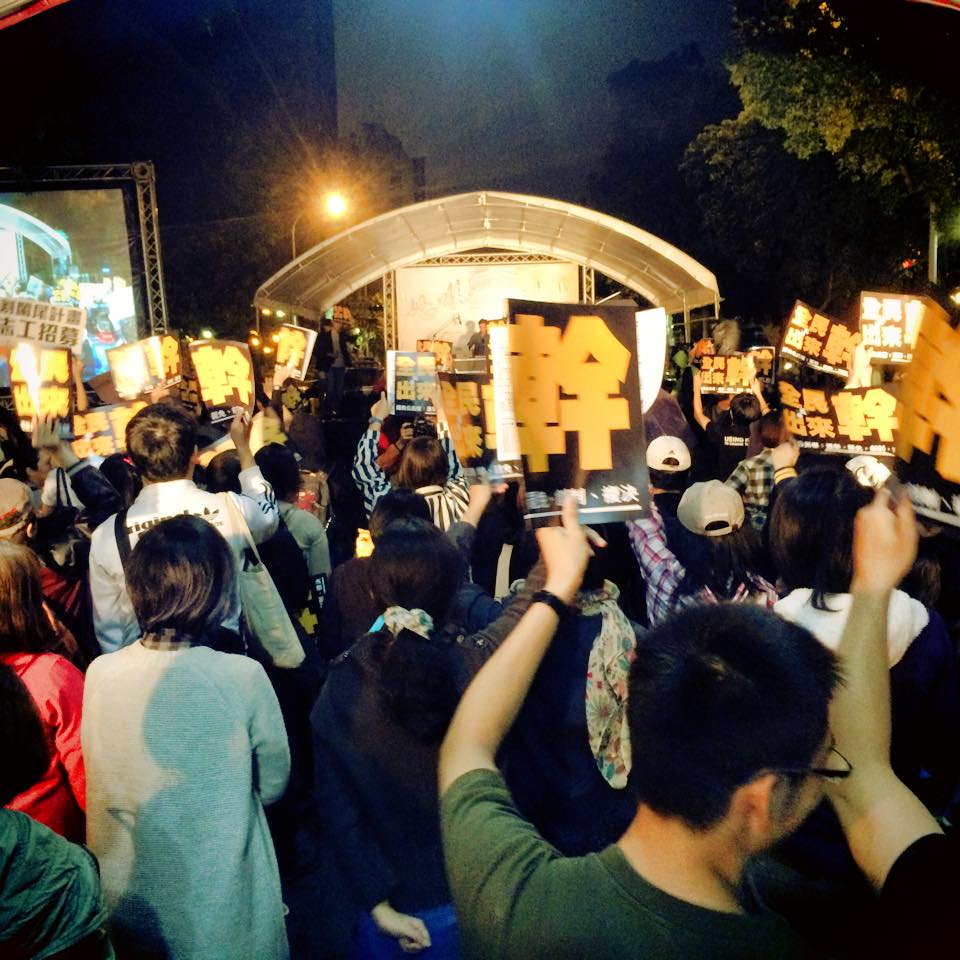 With less than a month left until Taiwan’s “nine-in-one” elections, the stakes of the political game are high. With candidates competing for offices at all levels of government, all the way from mayoral positions in Taiwan’s special municipalities down to village and borough warden positions, and an unprecedented 11,130 candidates competing for nine categories of office, the “nine-in-one” elections come as quite possibly the most significant event for Taiwanese electoral politics outside of presidential elections. Yet have the rules of the game changed after the Sunflower Movement?
With less than a month left until Taiwan’s “nine-in-one” elections, the stakes of the political game are high. With candidates competing for offices at all levels of government, all the way from mayoral positions in Taiwan’s special municipalities down to village and borough warden positions, and an unprecedented 11,130 candidates competing for nine categories of office, the “nine-in-one” elections come as quite possibly the most significant event for Taiwanese electoral politics outside of presidential elections. Yet have the rules of the game changed after the Sunflower Movement?
Profile: Green Citizens’ Action Alliance
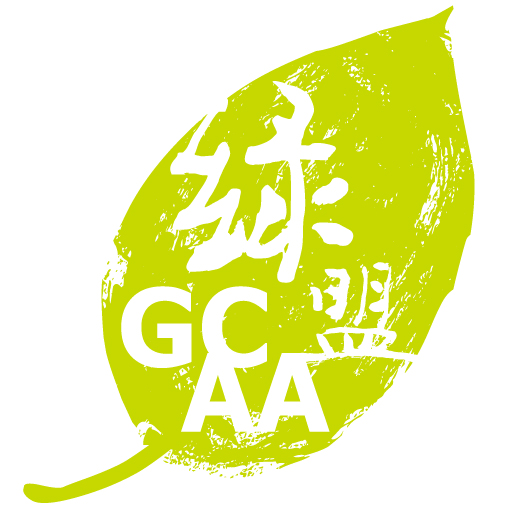 On August 28th, New Bloom’s Brian Hioe interviewed Liu Hui-Min from the Green Citizen’s Action Alliance (綠色公民行動聯盟) regarding environmentalism, the anti-nuclear movement in Taiwan, and Taiwanese activism writ large. This is the second of a series of interview profiles that New Bloom will be doing with Taiwanese NGOs and civil society organizations, in an effort to present a picture of Taiwanese civil society to an international audience.
On August 28th, New Bloom’s Brian Hioe interviewed Liu Hui-Min from the Green Citizen’s Action Alliance (綠色公民行動聯盟) regarding environmentalism, the anti-nuclear movement in Taiwan, and Taiwanese activism writ large. This is the second of a series of interview profiles that New Bloom will be doing with Taiwanese NGOs and civil society organizations, in an effort to present a picture of Taiwanese civil society to an international audience.
Occupying Identity?
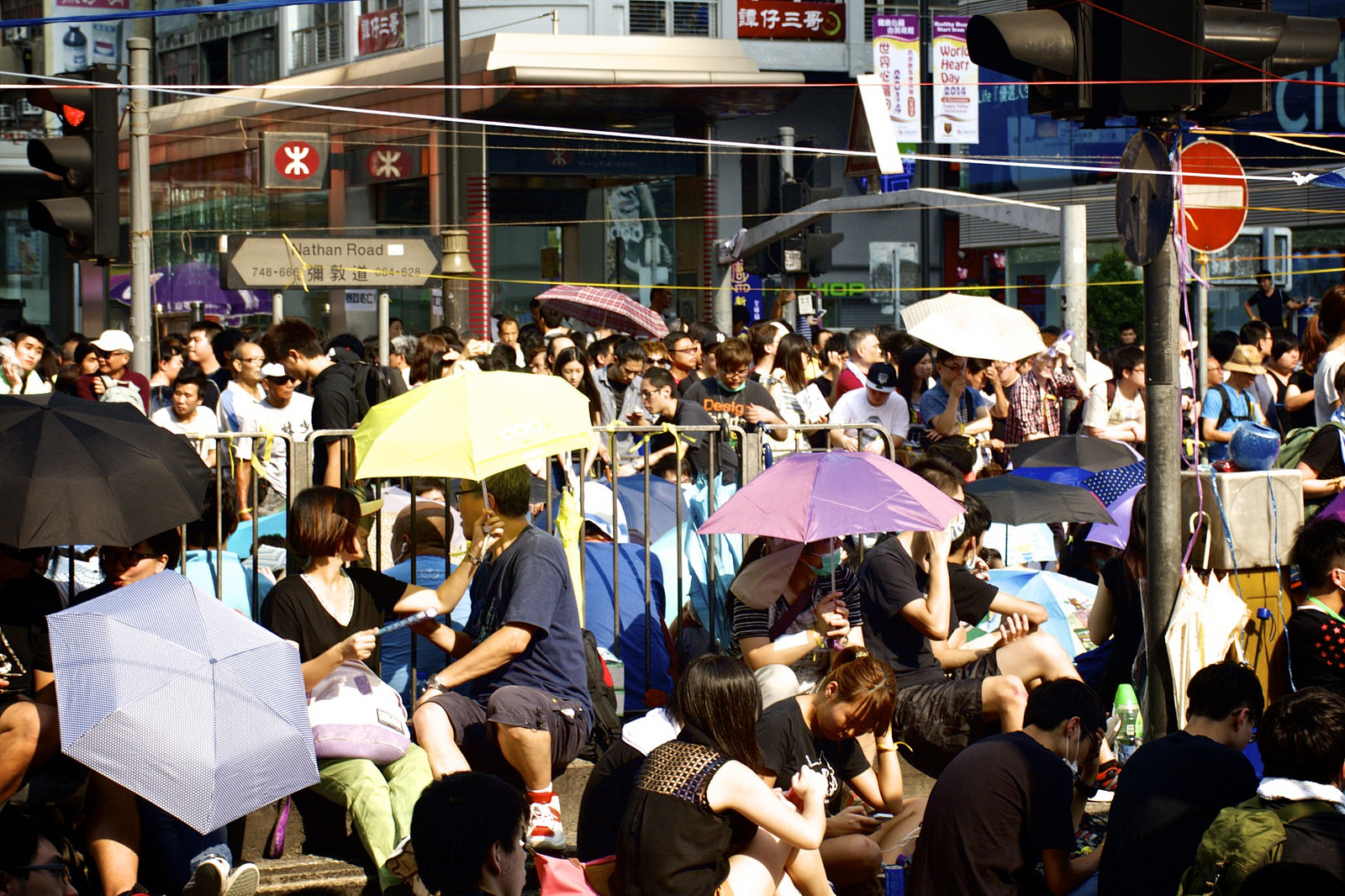 New Bloom UK Editor Sam Sussman sat down with Hong Kong social movements researcher Larry Au to chat about the specifically Hong Kongese political experiences and traditions from which the movement developed its organizational and rhetorical strength. Larry is an M.Sc in Global Governance and Diplomacy at the University of Oxford, and previously researched Hong Kong social movements at Brown.
New Bloom UK Editor Sam Sussman sat down with Hong Kong social movements researcher Larry Au to chat about the specifically Hong Kongese political experiences and traditions from which the movement developed its organizational and rhetorical strength. Larry is an M.Sc in Global Governance and Diplomacy at the University of Oxford, and previously researched Hong Kong social movements at Brown.
An end to Hong Kong’s “Umbrella Revolution”?
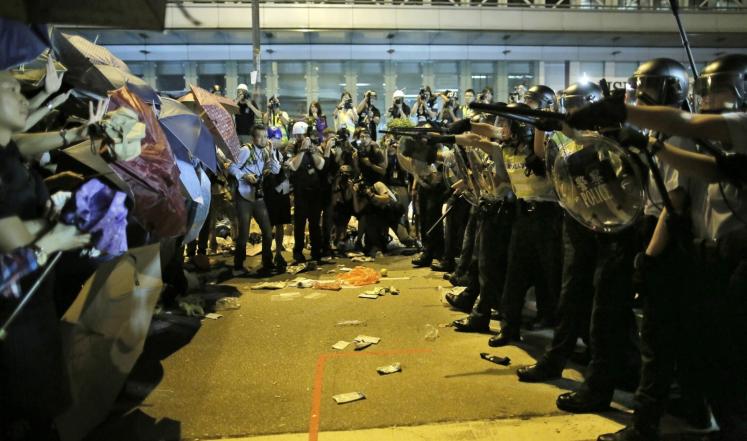 Now approaching a month’s duration, the series of protests which have rocked Hong Kong since late September have seen a series of events in the past week including attempts at negotiation between students and government, the breakdown of negotiations, continued police violence, and growing public sentiment against occupiers. But have we seen this before?
Now approaching a month’s duration, the series of protests which have rocked Hong Kong since late September have seen a series of events in the past week including attempts at negotiation between students and government, the breakdown of negotiations, continued police violence, and growing public sentiment against occupiers. But have we seen this before?
Eye of the Storm: Dian Dian
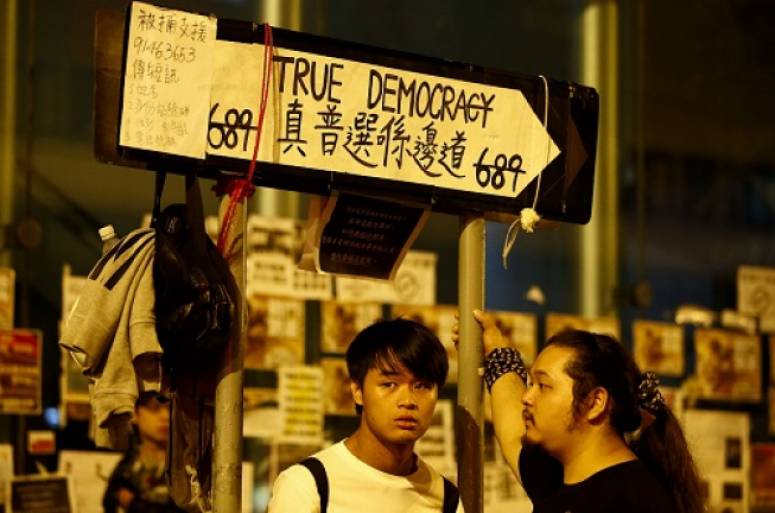 As part of our continuing Eye of the Storm: Voices from the Hong Kong Occupation series of interviews conducted by New Bloom with participants, organizers, and observers of the Hong Kong democracy movement, we interviewed Dian Dian, editor of the Queer Lala Times (酷拉時報) on October 9th.
As part of our continuing Eye of the Storm: Voices from the Hong Kong Occupation series of interviews conducted by New Bloom with participants, organizers, and observers of the Hong Kong democracy movement, we interviewed Dian Dian, editor of the Queer Lala Times (酷拉時報) on October 9th.
Profile: Taiwan Tongzhi Hotline Association
 On August 2nd, the Taiwan Tongzhi (LGBT) Hotline Association held its Taipei Hotline Evening Party, a fundraiser party event which it holds annually. Following the Taipei Hotline Evening Party, New Bloom’s Brian Hioe sat down with Jennifer Lu from the Taiwan Tongzhi Hotline Association to discuss the history, current activity, and outlook of the organization.
On August 2nd, the Taiwan Tongzhi (LGBT) Hotline Association held its Taipei Hotline Evening Party, a fundraiser party event which it holds annually. Following the Taipei Hotline Evening Party, New Bloom’s Brian Hioe sat down with Jennifer Lu from the Taiwan Tongzhi Hotline Association to discuss the history, current activity, and outlook of the organization.
Film and Interview: Bait / 誘餌
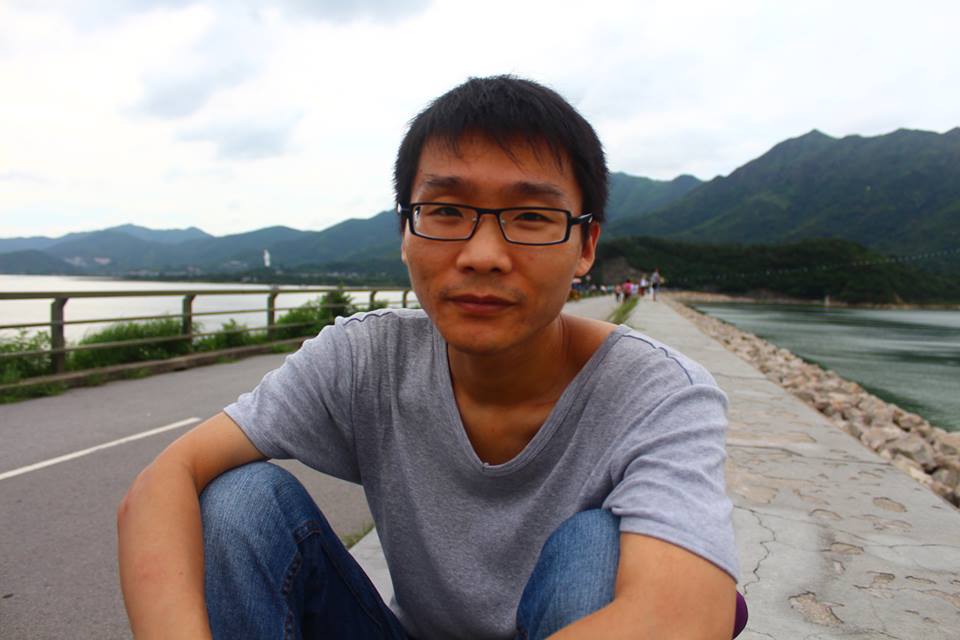 This interview came about because of the karma of being acquainted with Zhang Young-Pan, who studies film at Hong Kong Baptist University. In the past, he filmed documentaries, but after the “Jasmine Revolution” incident in 2011 in cities across China, he was held in detention for approximately a month. During his time in prison, he thought about a lot of things, and decided to use film as a way to allow the world to know China’s present and future. As he is currently studying in Hong Kong, his next film will concern Occupy Central.
This interview came about because of the karma of being acquainted with Zhang Young-Pan, who studies film at Hong Kong Baptist University. In the past, he filmed documentaries, but after the “Jasmine Revolution” incident in 2011 in cities across China, he was held in detention for approximately a month. During his time in prison, he thought about a lot of things, and decided to use film as a way to allow the world to know China’s present and future. As he is currently studying in Hong Kong, his next film will concern Occupy Central.
Interview: Ian Thomas Ash
 On August 9th in Tokyo, Japan, New Bloom’s Brian Hioe sat down with documentary filmmaker Ian Thomas Ash for a conversation. Ian Thomas Ash is the award-winning filmmaker of documentaries including A2-B-C and In the Grey Zone, both about children living in Fukushima after the nuclear meltdown. -1287, Ian’s latest documentary, will begin screening in the autumn of 2014. The Asian Premier will be at the Taiwan International Documentary Film Festival running from October 9 to 19.
On August 9th in Tokyo, Japan, New Bloom’s Brian Hioe sat down with documentary filmmaker Ian Thomas Ash for a conversation. Ian Thomas Ash is the award-winning filmmaker of documentaries including A2-B-C and In the Grey Zone, both about children living in Fukushima after the nuclear meltdown. -1287, Ian’s latest documentary, will begin screening in the autumn of 2014. The Asian Premier will be at the Taiwan International Documentary Film Festival running from October 9 to 19.
Storm Clouds over Hong Kong
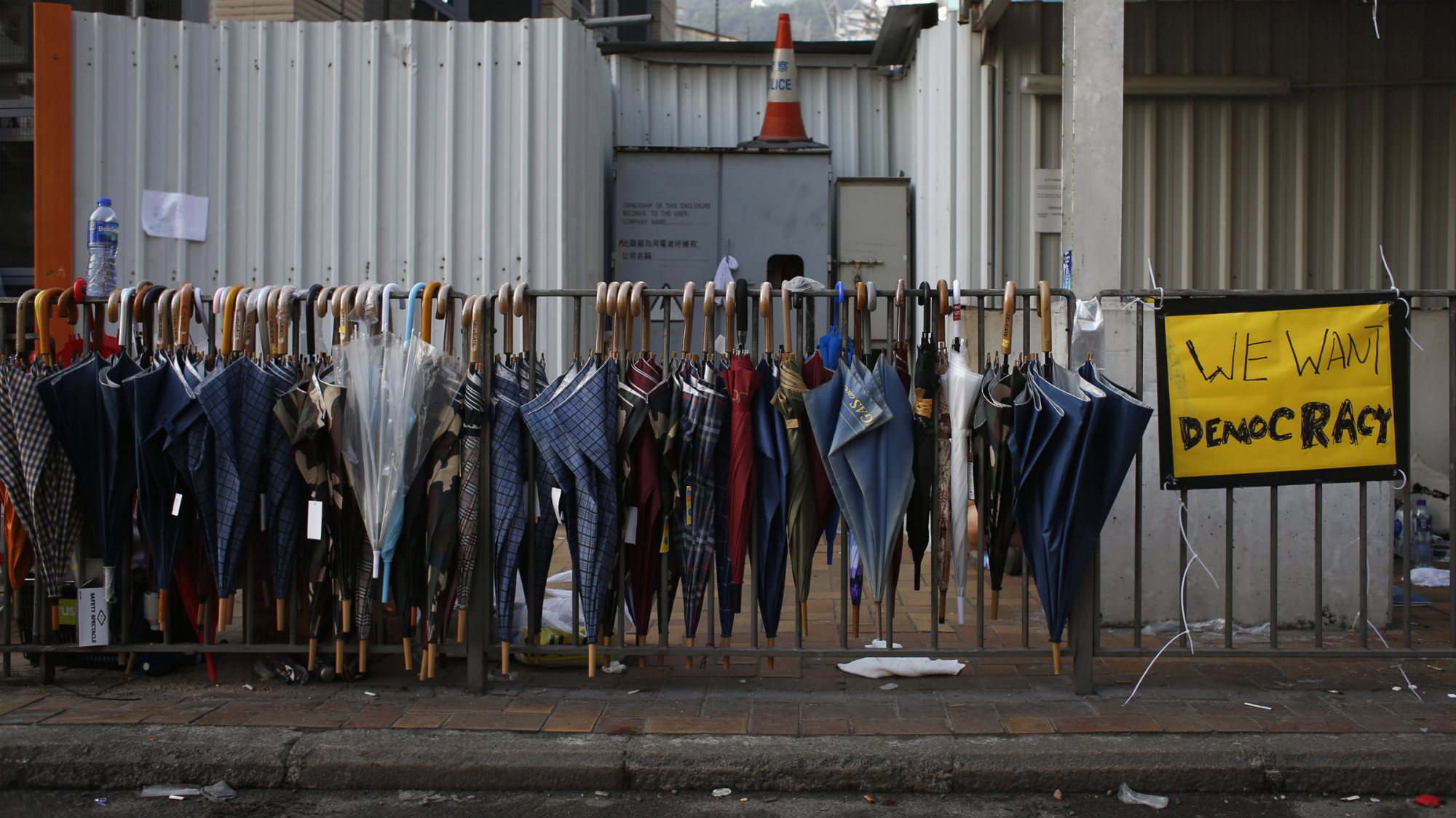 In the face of the suspension of negotiations to protest police inaction against the assault of pro-Beijing mobs, Hong Kong Chief Executive Leung Chung-Ying now declares that protestors have until the early morning hours of Monday to withdraw. As protestors refused, the coming hours will prove decisive for Hong Kong, with the threat of violence once more on the table. Will Hong Kong’s democracy movement be able to weather the coming storm?
In the face of the suspension of negotiations to protest police inaction against the assault of pro-Beijing mobs, Hong Kong Chief Executive Leung Chung-Ying now declares that protestors have until the early morning hours of Monday to withdraw. As protestors refused, the coming hours will prove decisive for Hong Kong, with the threat of violence once more on the table. Will Hong Kong’s democracy movement be able to weather the coming storm?
Eye of the Storm: Lucetta Kam
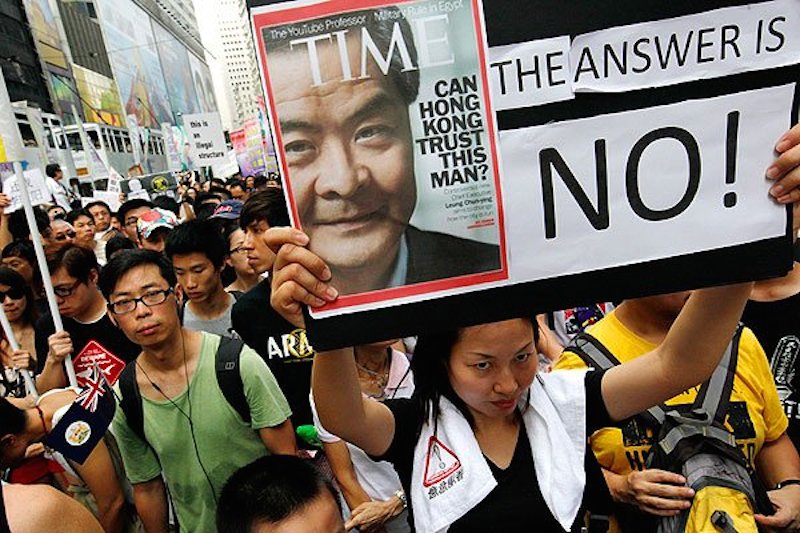 This is the first of an upcoming series of interviews conducted by New Bloom with participants, organizers, and observers of the Hong Kong democracy movement entitled “Eye of the Storm: Voices from the Hong Kong Occupation”. We interviewed Dr. Lucetta Kam, who is a professor at Hong Kong Baptist University and an organizer of Hong Kong Scholars Alliance for Sexual and Gender Diversity, on September 29th.
This is the first of an upcoming series of interviews conducted by New Bloom with participants, organizers, and observers of the Hong Kong democracy movement entitled “Eye of the Storm: Voices from the Hong Kong Occupation”. We interviewed Dr. Lucetta Kam, who is a professor at Hong Kong Baptist University and an organizer of Hong Kong Scholars Alliance for Sexual and Gender Diversity, on September 29th.
Hong Kong in Crisis
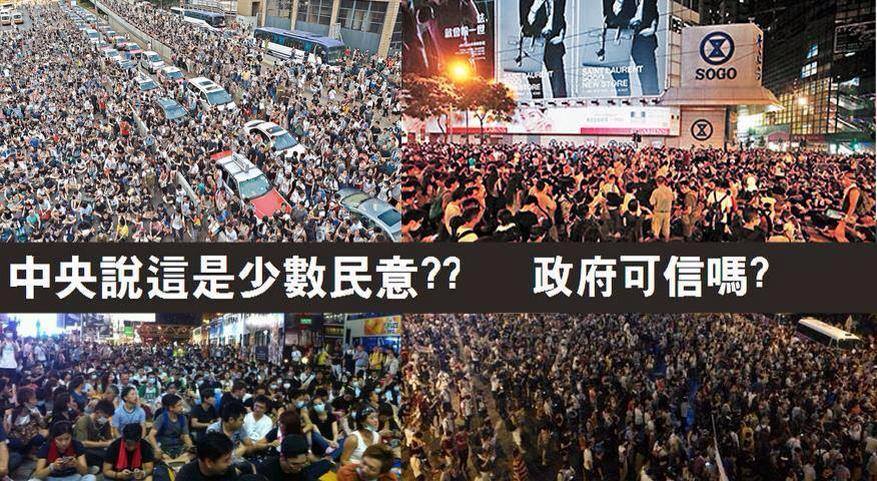 Where just a month ago, it seemed as though Occupy Central was on the decline, that Hong Kong would see no mass protest over China’s refusal to permit free elections, Hong Kong’s student activists have seized the day.
Where just a month ago, it seemed as though Occupy Central was on the decline, that Hong Kong would see no mass protest over China’s refusal to permit free elections, Hong Kong’s student activists have seized the day.
Interview: Chen Guangsheng (陳光誠)
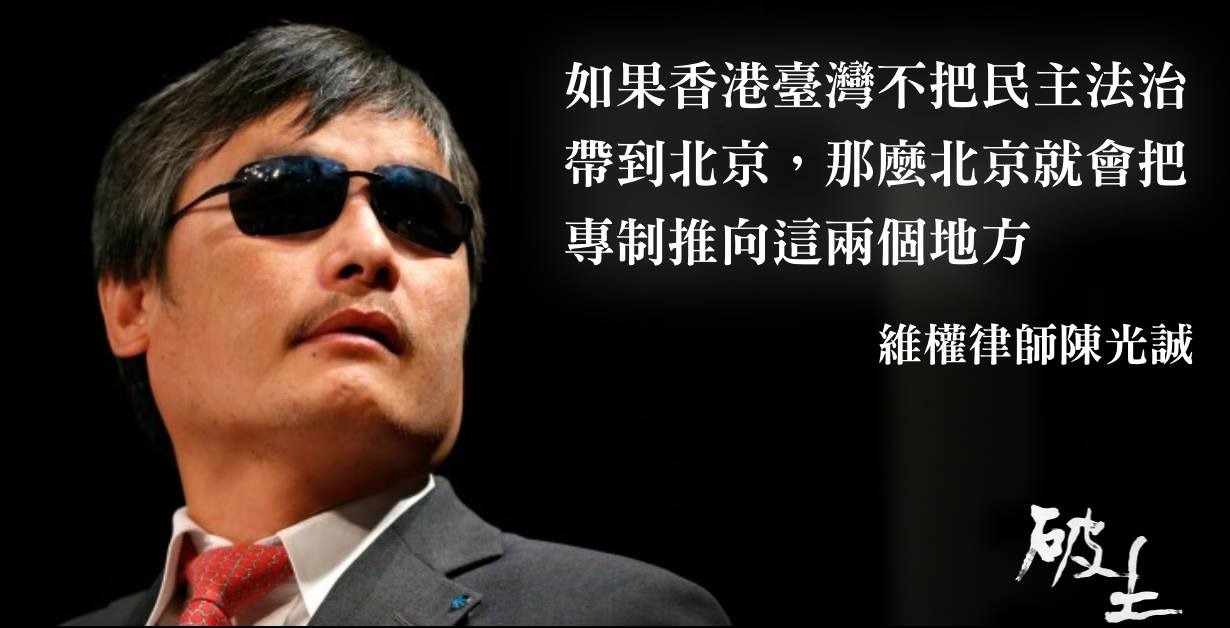 On Saturday, September 27th, New Bloom’s Brian Hioe caught up with noted Chinese dissident Chen Guangcheng at a solidarity action for Hong Kong in Times Square, New York City, organized by 全球聲援香港爭取真普選 United for Democracy: Global Solidarity with Hong Kong.
On Saturday, September 27th, New Bloom’s Brian Hioe caught up with noted Chinese dissident Chen Guangcheng at a solidarity action for Hong Kong in Times Square, New York City, organized by 全球聲援香港爭取真普選 United for Democracy: Global Solidarity with Hong Kong.
Crisis and Resurgence
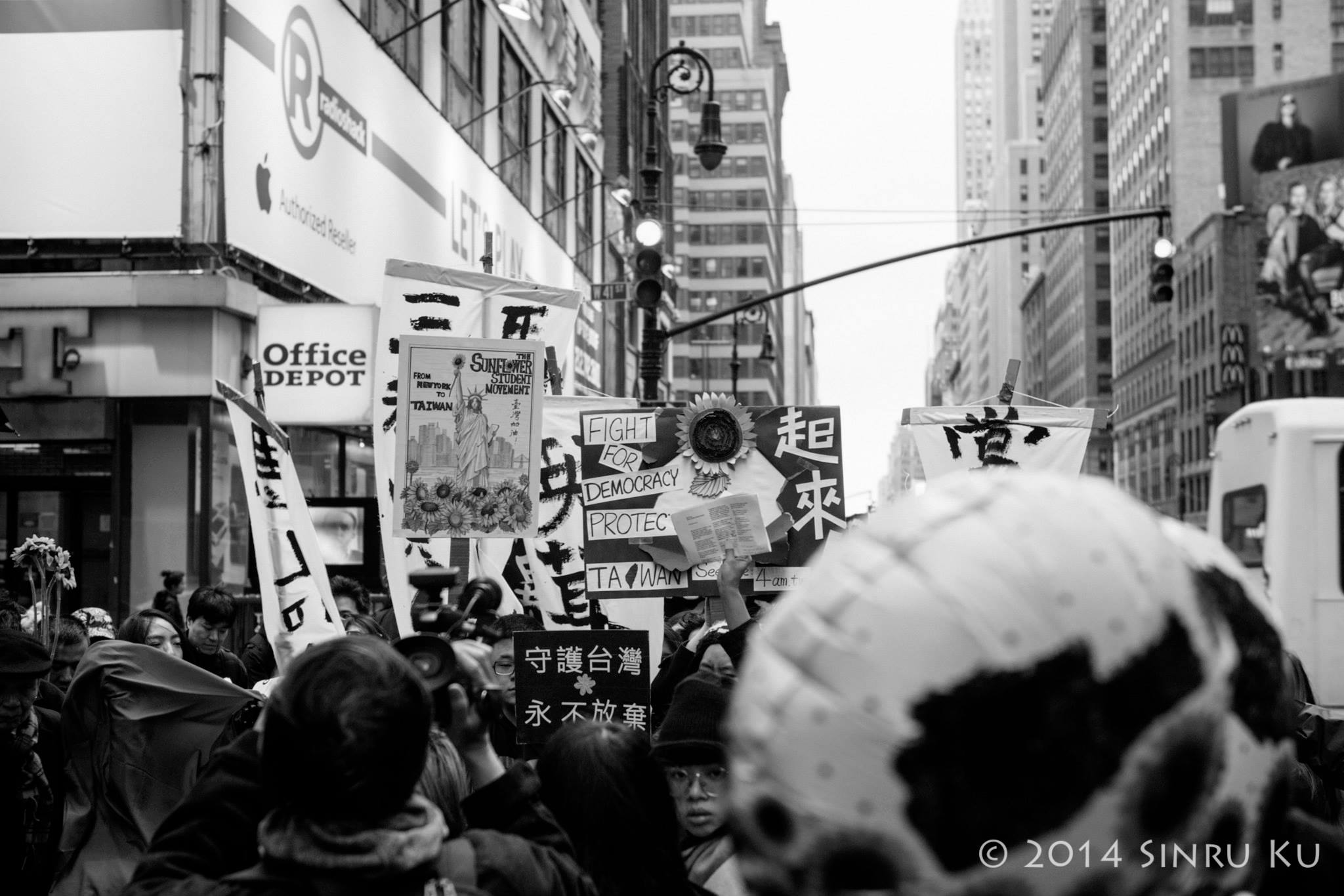 The Sunflower Movement has inspired a new wave of overseas Taiwanese student movement. The March 30th global mobilization against the undemocratic procedure of the Cross-Strait Services Trade Agreement with China that the Ma’s Administration pushed the Congress to sign behind backdoor organized overseas Taiwanese people across 16 countries and 49 cities.
The Sunflower Movement has inspired a new wave of overseas Taiwanese student movement. The March 30th global mobilization against the undemocratic procedure of the Cross-Strait Services Trade Agreement with China that the Ma’s Administration pushed the Congress to sign behind backdoor organized overseas Taiwanese people across 16 countries and 49 cities.
Interview: Hung Chun-Hsiu (洪淳修)
 Hung Chun-Hsiu (洪淳修) is a documentary filmmaker and, most recently, the director of The Lost Sea (刪海經). His other films include Fishermen in the City (河口人),《城市農民曆》and《船長要抓狂》. On August 21st, he was interviewed by New Bloom’s Brian Hioe. The following is the English language translation of the interview.
Hung Chun-Hsiu (洪淳修) is a documentary filmmaker and, most recently, the director of The Lost Sea (刪海經). His other films include Fishermen in the City (河口人),《城市農民曆》and《船長要抓狂》. On August 21st, he was interviewed by New Bloom’s Brian Hioe. The following is the English language translation of the interview.
Looking Back on 323
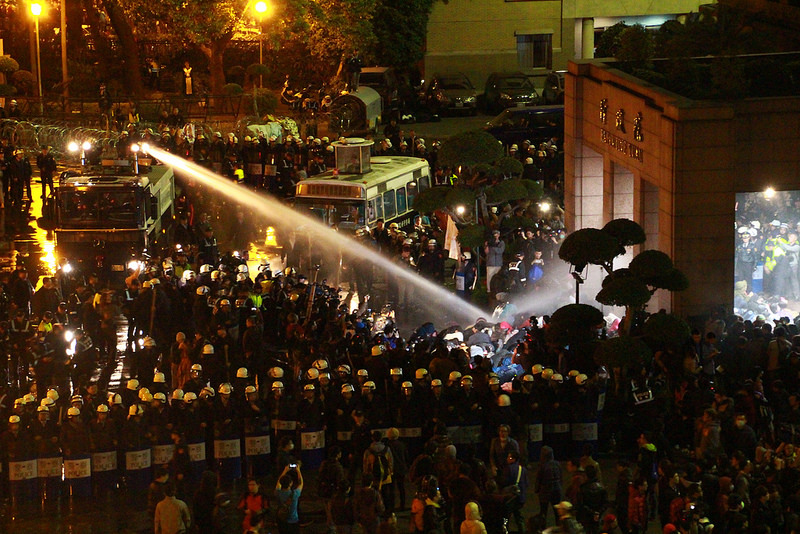 Bolao (伯勞) is the pseudonym of an American of Taiwanese descent living in Taipei. Through a strange set of circumstances, though an American by birth and upbringing, he was involved in the attempt invade and occupy the Executive Yuan, Taiwan’s executive branch of government. The following is his investigation into and personal account of the Executive Yuan and Legislative Yuan occupation, both of which he was a participant in.
Bolao (伯勞) is the pseudonym of an American of Taiwanese descent living in Taipei. Through a strange set of circumstances, though an American by birth and upbringing, he was involved in the attempt invade and occupy the Executive Yuan, Taiwan’s executive branch of government. The following is his investigation into and personal account of the Executive Yuan and Legislative Yuan occupation, both of which he was a participant in.
Class Mobility and Status Groups in Taiwan
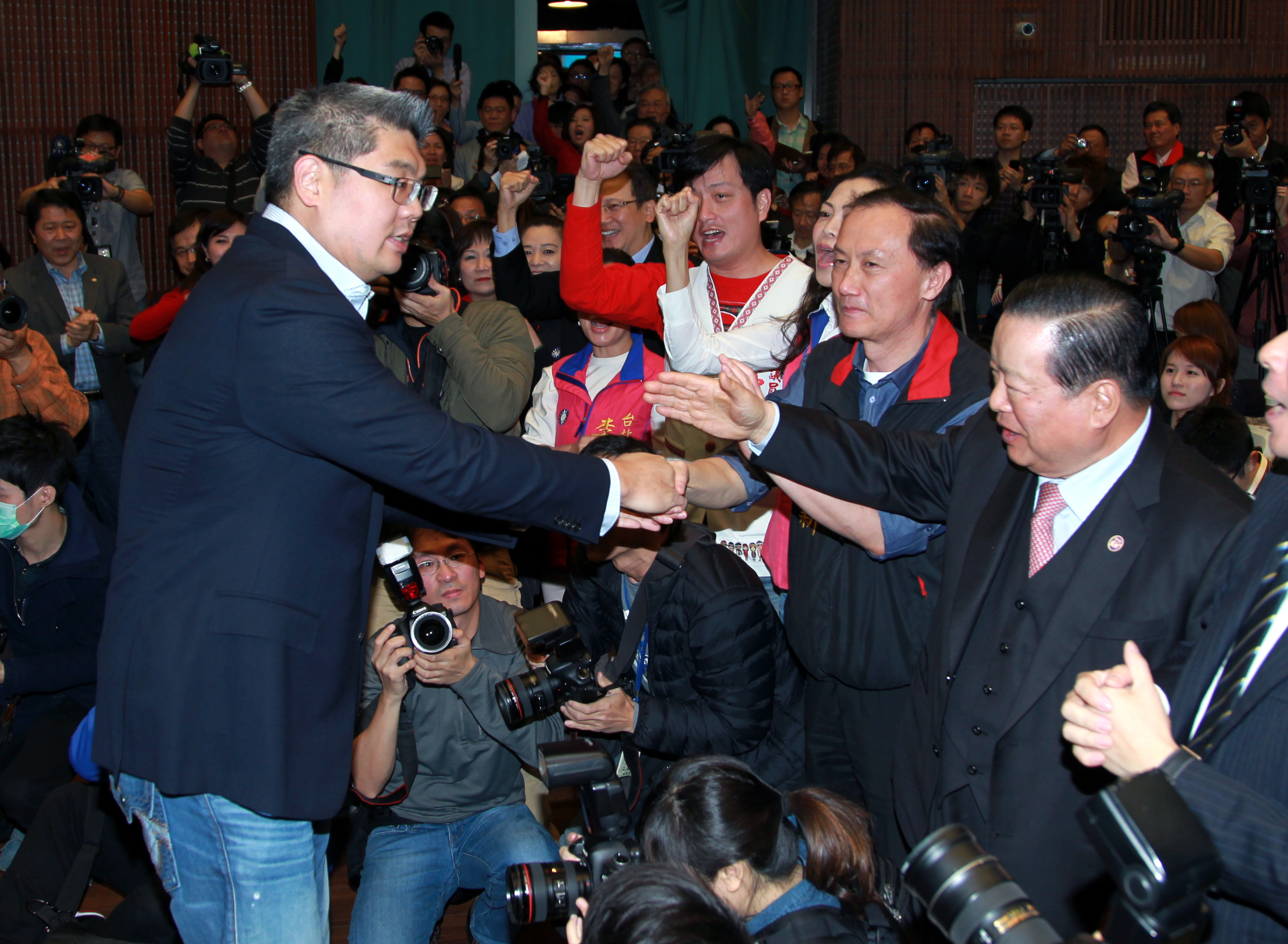 The possibility of social mobility has been a well-argued topic in advanced countries. The U.S. was once considered the place of the “American dream”, in which people could move upward as long as he/she worked hard enough because America was a place with plenty of opportunities. But class differentiation and stratification are not a unique phenomenon to the U.S. If we look at today’s Taiwan, stagnated mobility can be considered the most pressing issue for the younger generations.
The possibility of social mobility has been a well-argued topic in advanced countries. The U.S. was once considered the place of the “American dream”, in which people could move upward as long as he/she worked hard enough because America was a place with plenty of opportunities. But class differentiation and stratification are not a unique phenomenon to the U.S. If we look at today’s Taiwan, stagnated mobility can be considered the most pressing issue for the younger generations.
The Impossibility of Democracy in Hong Kong?
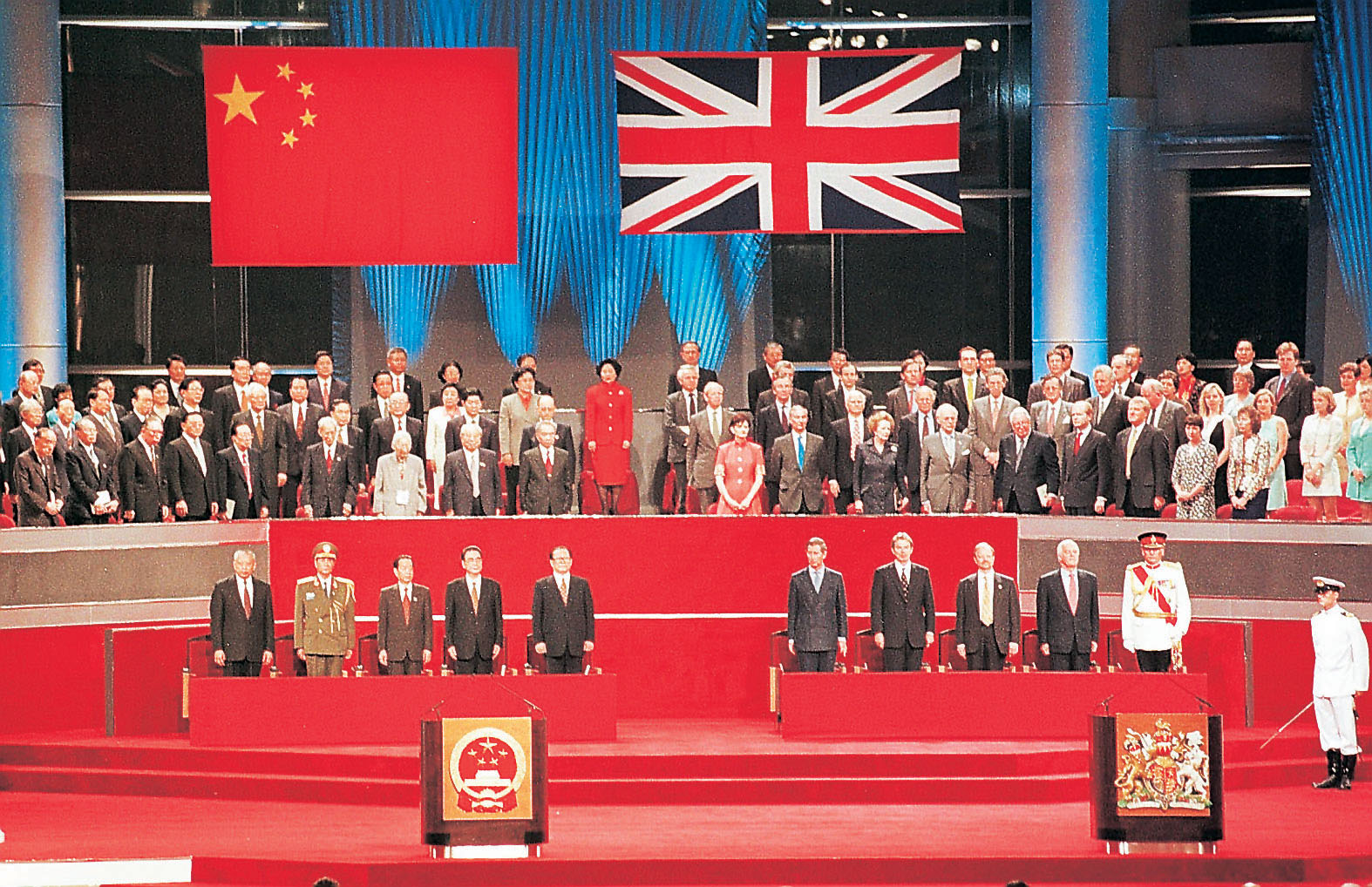 Does the possibility exist for Hong Kong to attain democracy? This question has yet to be settled. In the face of China’s refusal to allow non-vetted candidates to run for Hong Kong’s Chief Executive, the highest political position in the Hong Kong government, the stage is set for Occupy Central to once again seize control of Hong Kong’s Central district, the city’s financial and economic heart.
Does the possibility exist for Hong Kong to attain democracy? This question has yet to be settled. In the face of China’s refusal to allow non-vetted candidates to run for Hong Kong’s Chief Executive, the highest political position in the Hong Kong government, the stage is set for Occupy Central to once again seize control of Hong Kong’s Central district, the city’s financial and economic heart.
The 121st Day of the Songyan Occupation
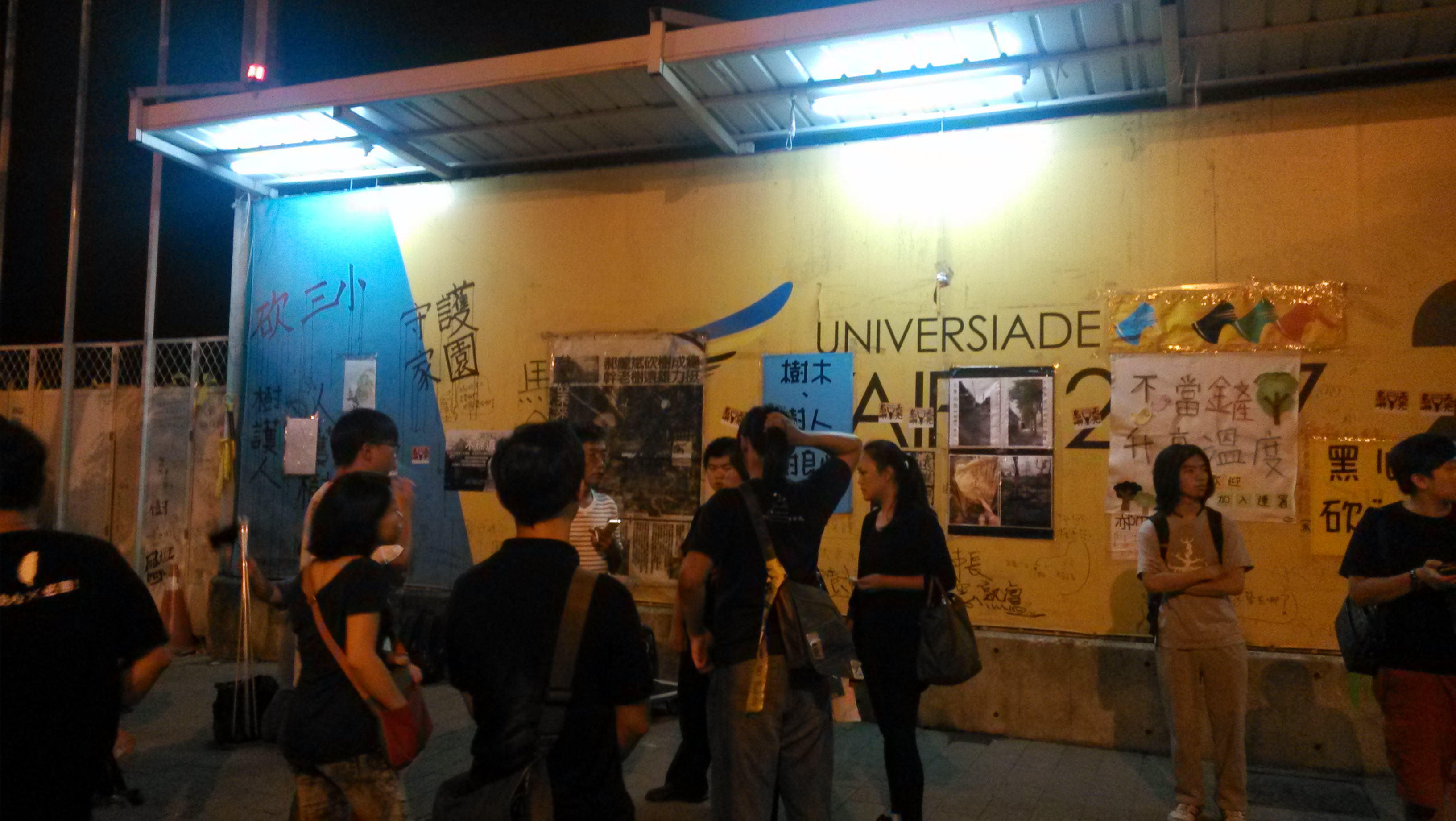 On its 121st day, the longstanding Songyan occupation, protesting the unlawful cutting down of trees in the area outside the site of the future Taipei Dome, near Songshan Cultural and Creative Park, faced its greatest tribulation to date. A police raid upon the occupation encampment was conducted at 2 AM which, according to those present, brought in approximately forty to fifty police officers.
On its 121st day, the longstanding Songyan occupation, protesting the unlawful cutting down of trees in the area outside the site of the future Taipei Dome, near Songshan Cultural and Creative Park, faced its greatest tribulation to date. A police raid upon the occupation encampment was conducted at 2 AM which, according to those present, brought in approximately forty to fifty police officers.
Review: Homeland: Edge of Desolation
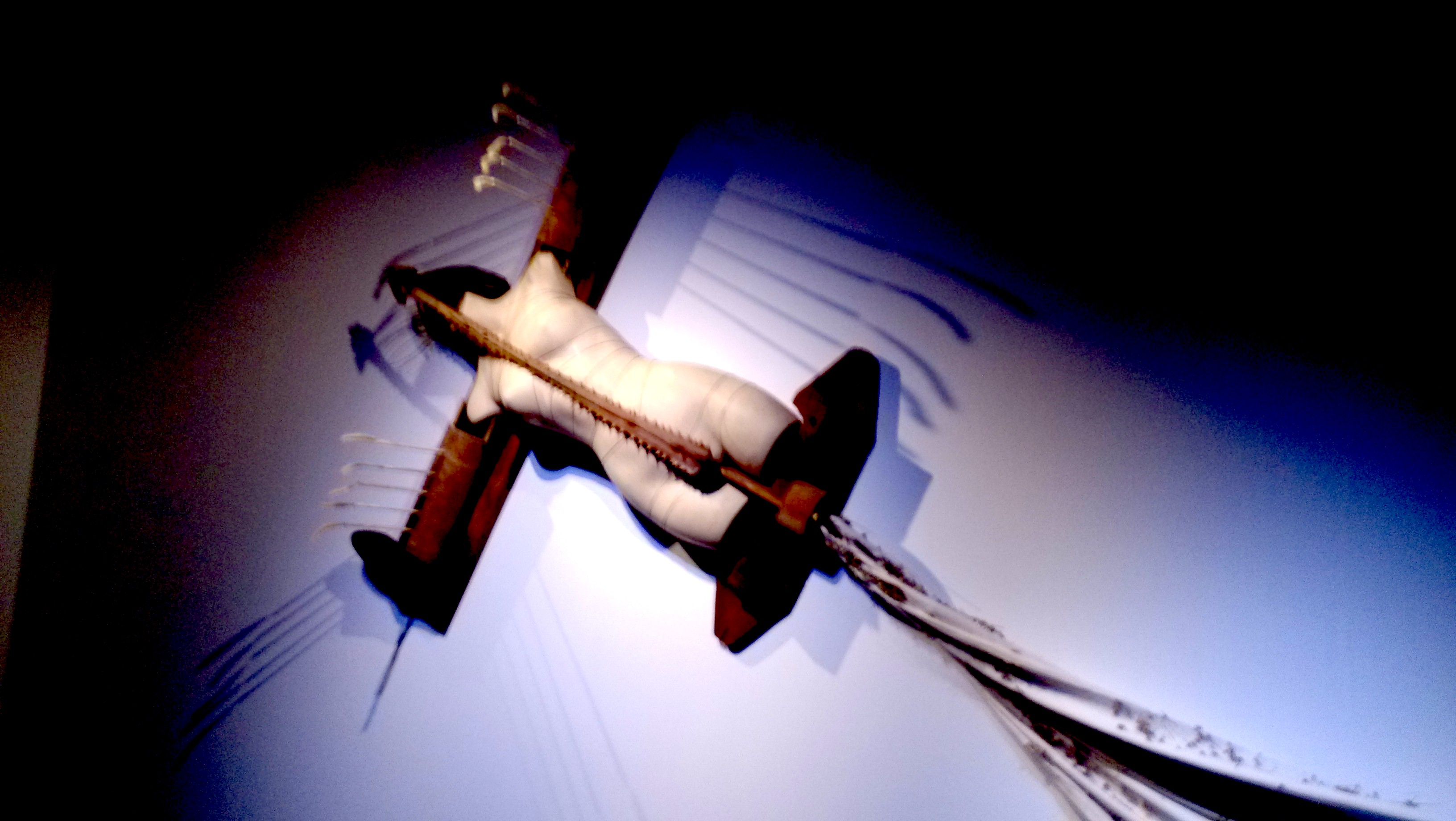 If the artwork of Hwang Buh-Ching can be said to be concerned with the artistic representation of “homeland,” as his current exhibition “Homeland: Edge of Desolation” at the Museum of Contemporary Art, Taipei suggests in representing Taiwan, Hwang points to both falsity and authenticity.
If the artwork of Hwang Buh-Ching can be said to be concerned with the artistic representation of “homeland,” as his current exhibition “Homeland: Edge of Desolation” at the Museum of Contemporary Art, Taipei suggests in representing Taiwan, Hwang points to both falsity and authenticity.
Review: Wanted: Dean I-Mei: A Retrospective
 The specter of Taiwanese politics is everywhere in the artwork of Dean I-Mei. While, certainly, the artist himself poses his recent exhibition in light of a search for personal identity in the title “Wanted Dean I-Mei,” his search for individual identity is one deeply bound up with Taiwan’s state of unbelonging in the world.
The specter of Taiwanese politics is everywhere in the artwork of Dean I-Mei. While, certainly, the artist himself poses his recent exhibition in light of a search for personal identity in the title “Wanted Dean I-Mei,” his search for individual identity is one deeply bound up with Taiwan’s state of unbelonging in the world.
From Out of KMT Party Education, Towards the Path of Justice
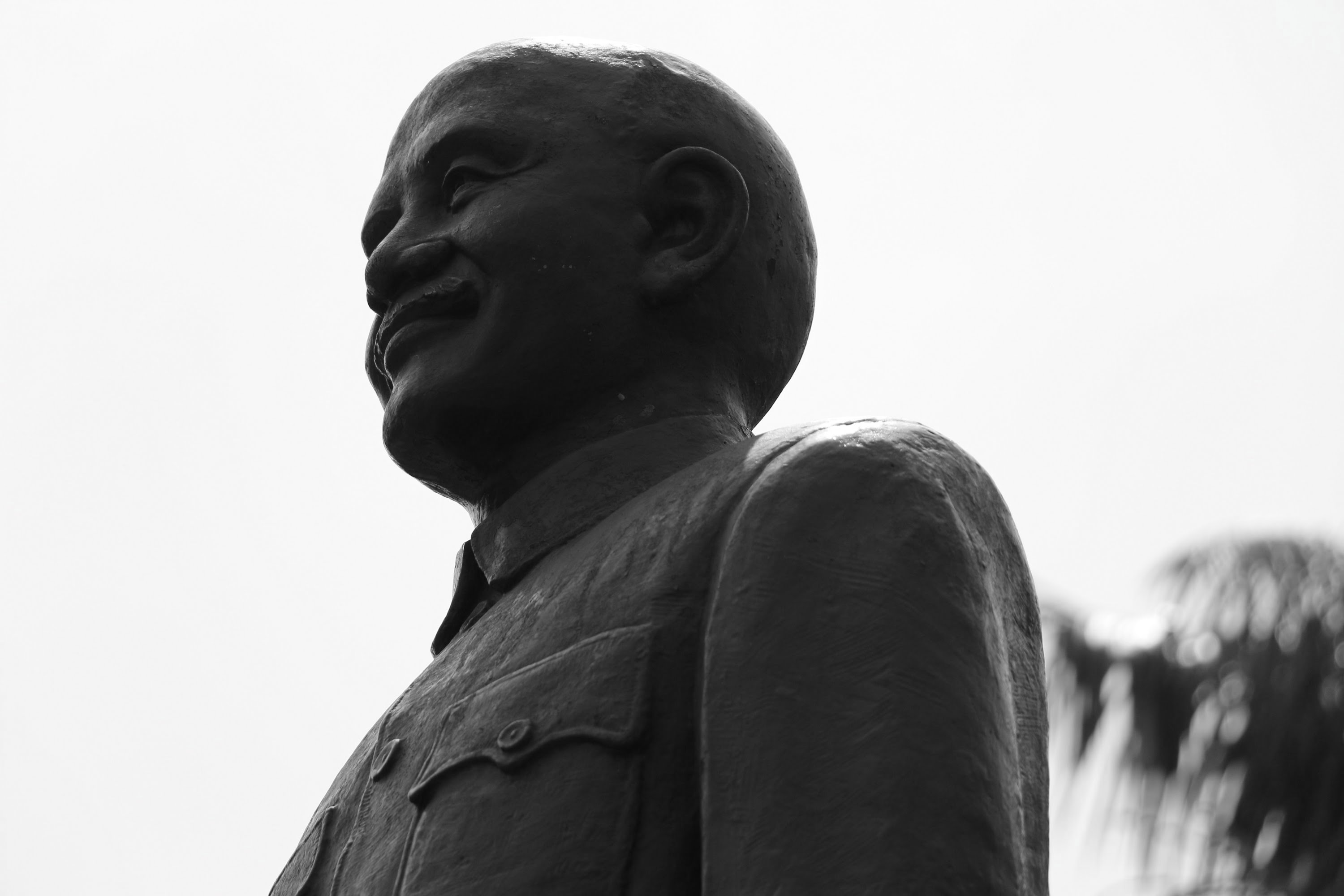 I was once a supporter of the KMT. When I was young I worshipped President Chiang Kai-shek’s heroic deeds in the war against Japan, appreciated his opposition to Communism, and was grateful for him founding Taiwan.
I was once a supporter of the KMT. When I was young I worshipped President Chiang Kai-shek’s heroic deeds in the war against Japan, appreciated his opposition to Communism, and was grateful for him founding Taiwan.
Interview: J. Michael Cole, Part II
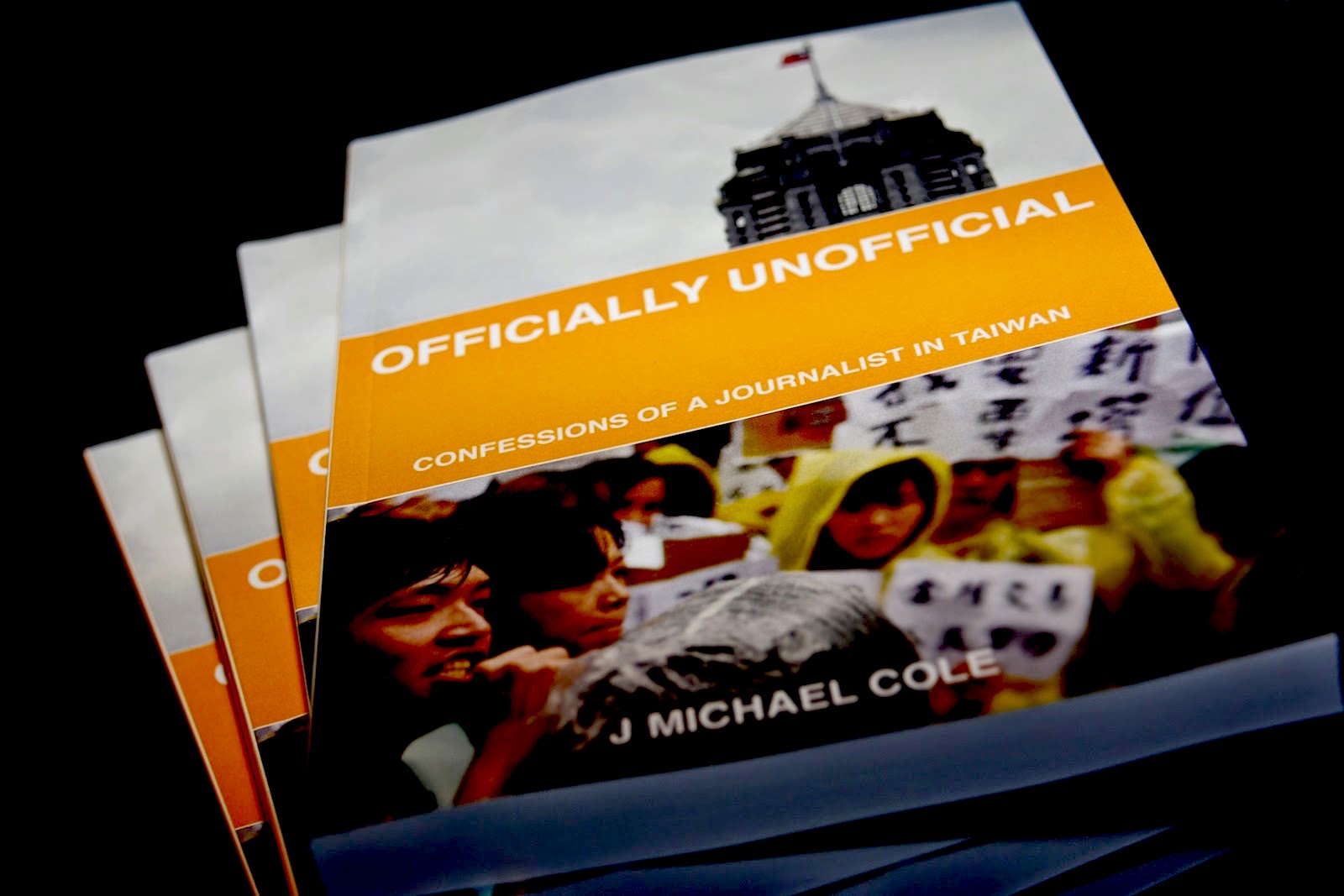 This is the second installment of the two-part interview with J. Michael Cole conducted by Brian Hioe regarding his editorship of Thinking Taiwan, the relation of journalism and activism, and his recently released book, Officially Unofficial: Confessions of a journalist in Taiwan.
This is the second installment of the two-part interview with J. Michael Cole conducted by Brian Hioe regarding his editorship of Thinking Taiwan, the relation of journalism and activism, and his recently released book, Officially Unofficial: Confessions of a journalist in Taiwan.
Imperialist Violence
 With conflict raging in Gaza, many of us concerned with Taiwan have grasped around the back of our minds for a connection and possible lesson. For while the situation on the ground share little resemblance, both contexts share one indisputable quality: both the Taiwanese and Palestinians lack an internationally recognized state.
With conflict raging in Gaza, many of us concerned with Taiwan have grasped around the back of our minds for a connection and possible lesson. For while the situation on the ground share little resemblance, both contexts share one indisputable quality: both the Taiwanese and Palestinians lack an internationally recognized state.
Interview: J. Michael Cole, Part I
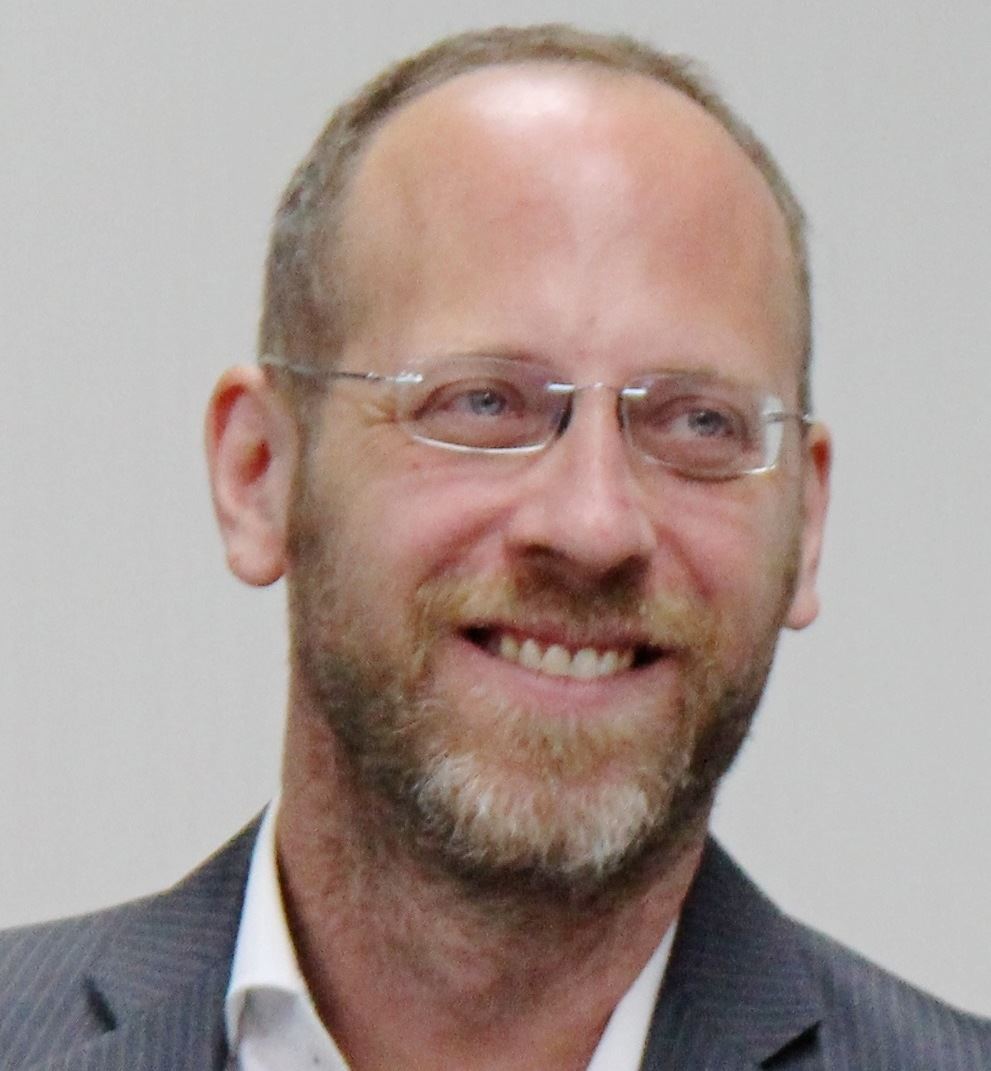 The first installment of the two-part interview with J. Michael Cole conducted by Brian Hioe regarding the nature of journalism, his own career path as one of the prominent voices in English-language journalism about Taiwan, and the contemporary state of journalism in Taiwan.
The first installment of the two-part interview with J. Michael Cole conducted by Brian Hioe regarding the nature of journalism, his own career path as one of the prominent voices in English-language journalism about Taiwan, and the contemporary state of journalism in Taiwan.
Social Movements from an International Perspective
 I have participated in social movements for close to two years, thanks to the Ma administration, but this year, Taiwan social movements surged up with a raising of people’s consciousness of social issues. But while these can be called “movements,” these usually address domestic issues such as urban renewal, land development, labor disputes, and conservation. Issues which are not domestic such as cross-strait relations, the military, and discussions of foreign affairs are not usually talked about.
I have participated in social movements for close to two years, thanks to the Ma administration, but this year, Taiwan social movements surged up with a raising of people’s consciousness of social issues. But while these can be called “movements,” these usually address domestic issues such as urban renewal, land development, labor disputes, and conservation. Issues which are not domestic such as cross-strait relations, the military, and discussions of foreign affairs are not usually talked about.
Civil Revolt in Miaoli County?
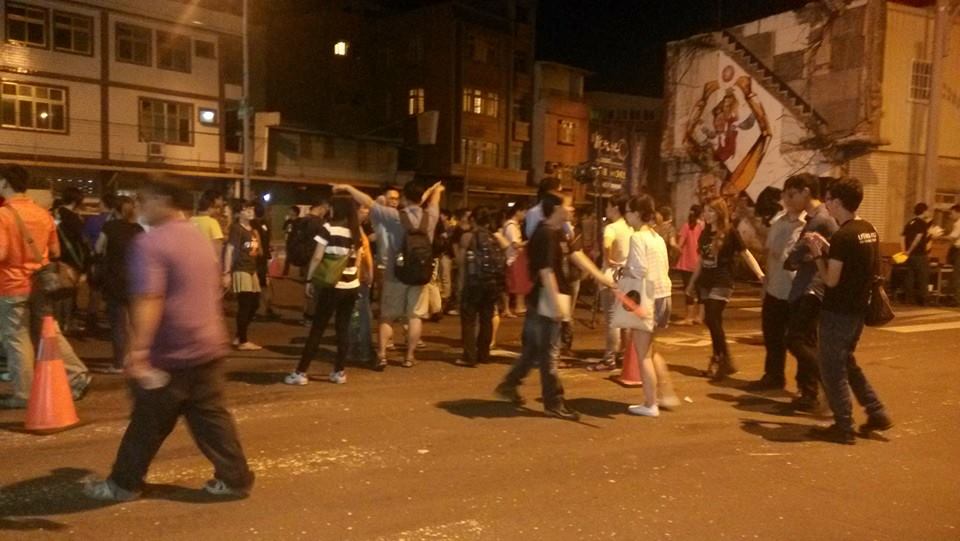 This past Friday, approximately 200 protestors gathered outside of the former site of Chang Pharmacy in Dapu, Miaoli. One year ago on July 18th, 2013, the family-owned pharmacy was forcibly demolished in order to make way for commercial development. In September, owner Chang Sen-wen (張森文) was found dead under a bridge. The death was ruled a suicide by police, but there are those who remain suspicious, including Chang’s son.
This past Friday, approximately 200 protestors gathered outside of the former site of Chang Pharmacy in Dapu, Miaoli. One year ago on July 18th, 2013, the family-owned pharmacy was forcibly demolished in order to make way for commercial development. In September, owner Chang Sen-wen (張森文) was found dead under a bridge. The death was ruled a suicide by police, but there are those who remain suspicious, including Chang’s son.
Review: Meeting Dr. Sun (行動代號孫中山)
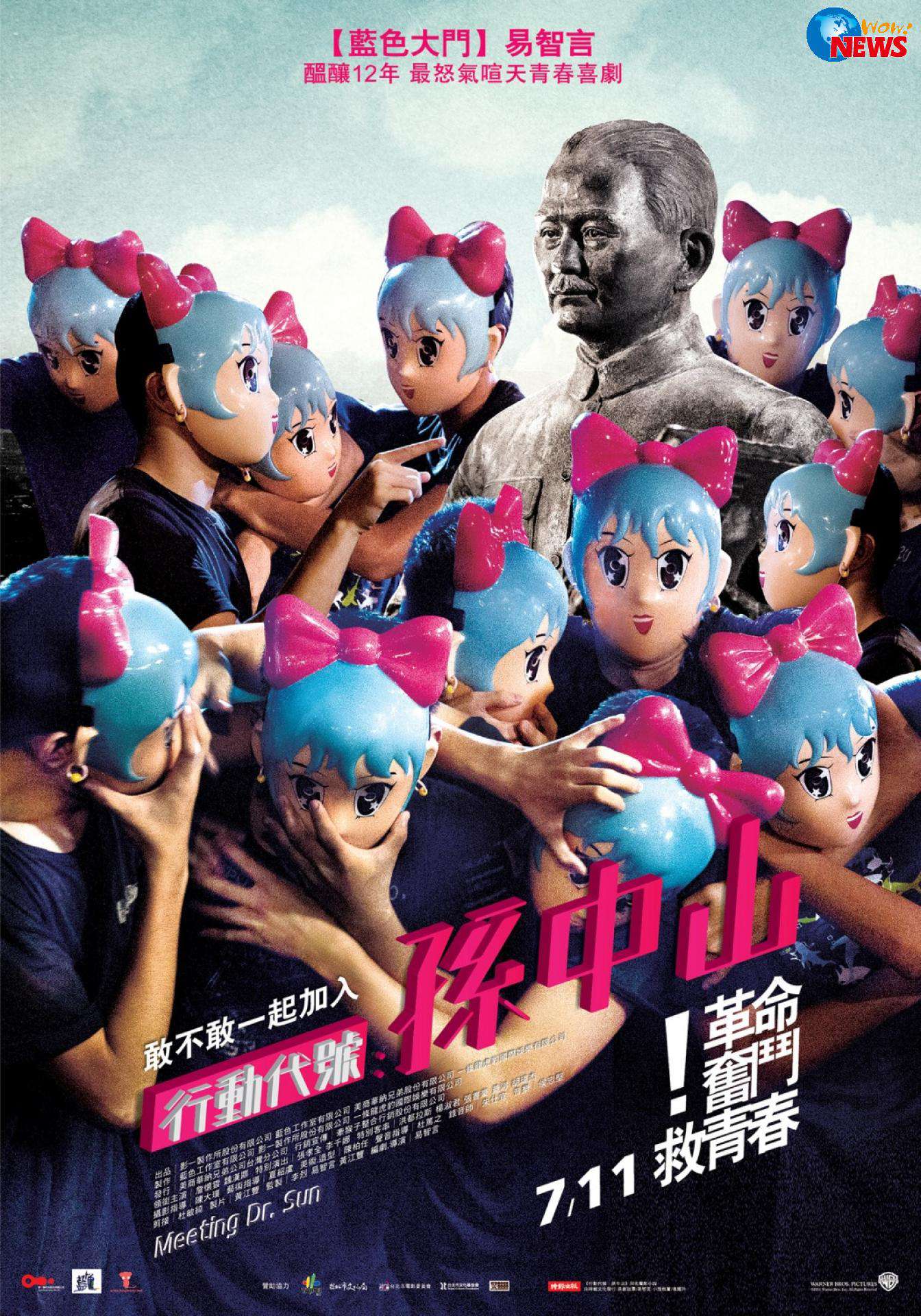 Meeting Dr. Sun (行動代號孫中山) tells of a group of poor Taiwanese high school students’elaborate plot to steal an unused Sun Yat-Sen (孫中山) statue from their high school and sell it for scrap metal.
Meeting Dr. Sun (行動代號孫中山) tells of a group of poor Taiwanese high school students’elaborate plot to steal an unused Sun Yat-Sen (孫中山) statue from their high school and sell it for scrap metal.
Music Video: 灰色地帶 / Grey Area
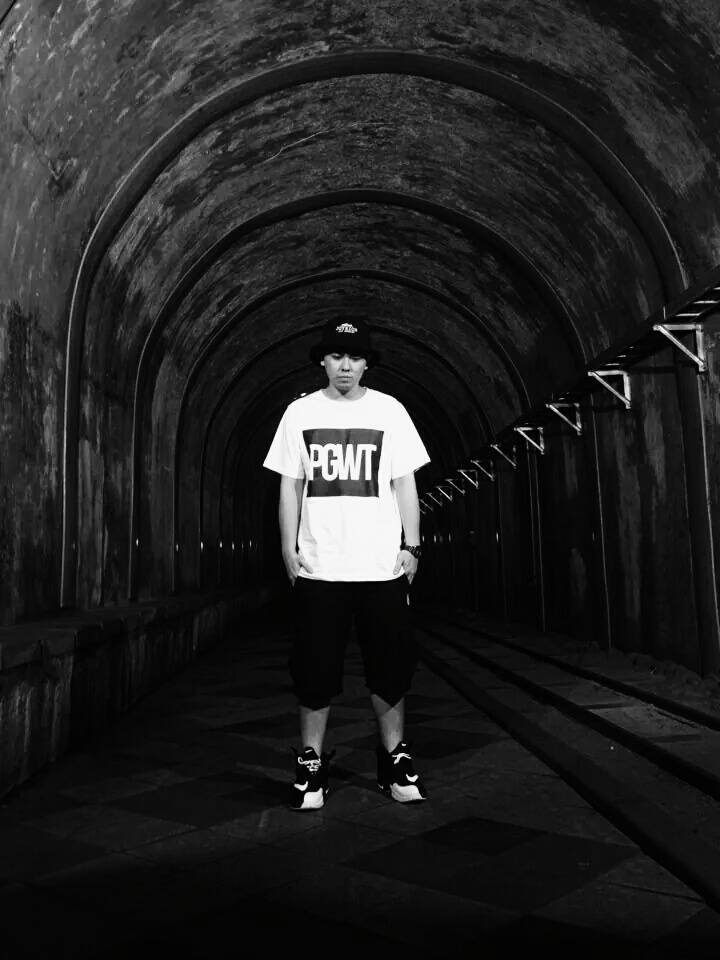 音樂是我第一個真的能認真坐下來學習的東西,我常跟朋友說如果我用作音樂的態度去讀書,我一定能上哈佛,因為到目前為止沒有專精任何樂器的我,已經可以製作一首完整的歌,我的初衷就是想幫助那些像我一樣不會樂器但也想玩音樂的人,證明給他們看其實這都是可以的。
音樂是我第一個真的能認真坐下來學習的東西,我常跟朋友說如果我用作音樂的態度去讀書,我一定能上哈佛,因為到目前為止沒有專精任何樂器的我,已經可以製作一首完整的歌,我的初衷就是想幫助那些像我一樣不會樂器但也想玩音樂的人,證明給他們看其實這都是可以的。
Taiwan Minus the KMT?
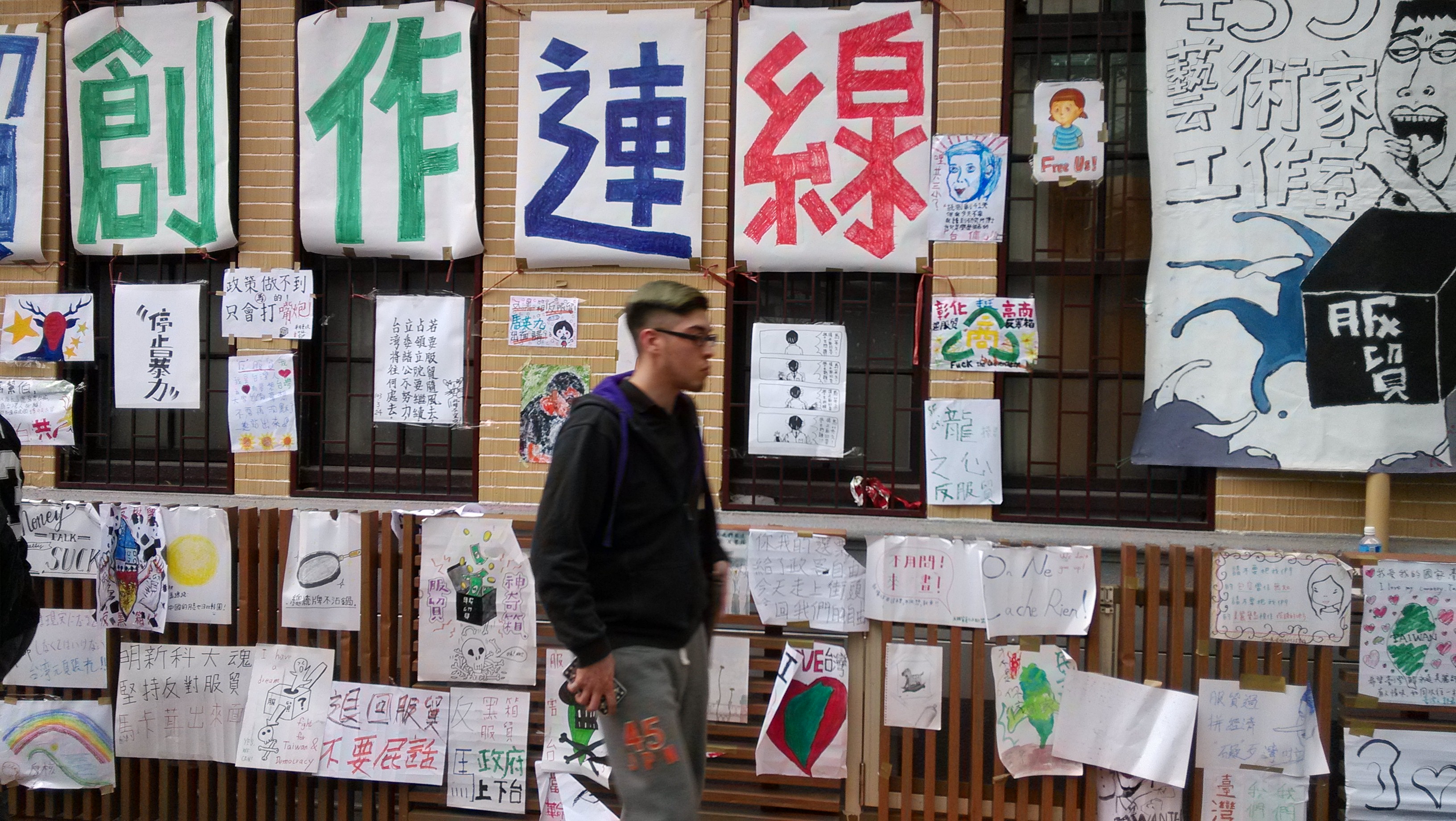 Following the Sunflower Movement, there have been voices have now begun to speak of eliminating the KMT. And it must be wondered what exactly a Taiwanese political spectrum devoid of the KMT would look like. After all, having existed for the entire duration of what we can speak of as “Taiwanese politics,” it is hard to imagine what Taiwanese politics, period, would look like minus the KMT.
Following the Sunflower Movement, there have been voices have now begun to speak of eliminating the KMT. And it must be wondered what exactly a Taiwanese political spectrum devoid of the KMT would look like. After all, having existed for the entire duration of what we can speak of as “Taiwanese politics,” it is hard to imagine what Taiwanese politics, period, would look like minus the KMT.
Japan, the Jadeite Cabbage and the KMT’s Regime of Truth
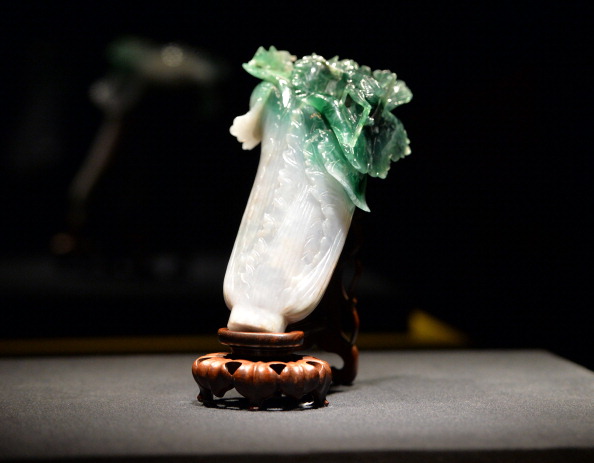 Last week, a rare row arose between Taiwan and Japan over the Jadeite Cabbage. The artifact, originally crafted for one of the Qing emperor Guangxu’s notable concubines, is a prized possession and tourist favorite at the National Palace Museum (國立故宮博物院) in Taipei.
Last week, a rare row arose between Taiwan and Japan over the Jadeite Cabbage. The artifact, originally crafted for one of the Qing emperor Guangxu’s notable concubines, is a prized possession and tourist favorite at the National Palace Museum (國立故宮博物院) in Taipei.
Film: 戒不了癮 / Can’t Quit You
 “Can’t Quit You” is an autobiographical short film about Zico, a hair stylist based in Hsinchu, Taiwan. It’s the story of his first love, a relationship with a man called Yin that blossomed when Zico began his career as a hairstyling assistant in Hsinchu.
“Can’t Quit You” is an autobiographical short film about Zico, a hair stylist based in Hsinchu, Taiwan. It’s the story of his first love, a relationship with a man called Yin that blossomed when Zico began his career as a hairstyling assistant in Hsinchu.
Photos: Sunflower Retrospective by Justim Pam
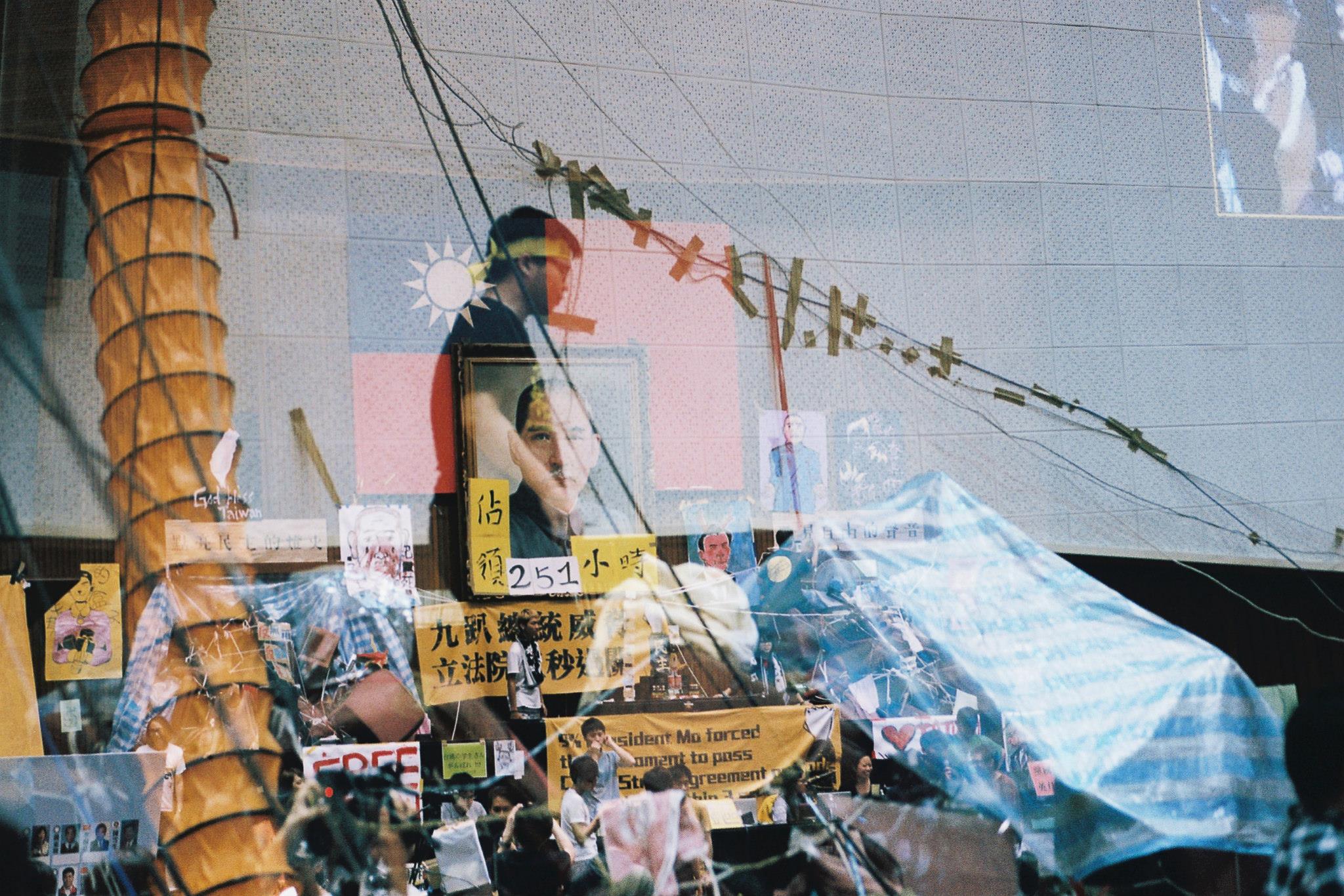 This photo series shows the lead singer of the Taiwanese band Fire EX (滅火器), Sam Yang (楊大正), when he visited to the Legislative Yuan chamber to support the students and teach them how to sing one of his songs.
This photo series shows the lead singer of the Taiwanese band Fire EX (滅火器), Sam Yang (楊大正), when he visited to the Legislative Yuan chamber to support the students and teach them how to sing one of his songs.
Power and Discourse
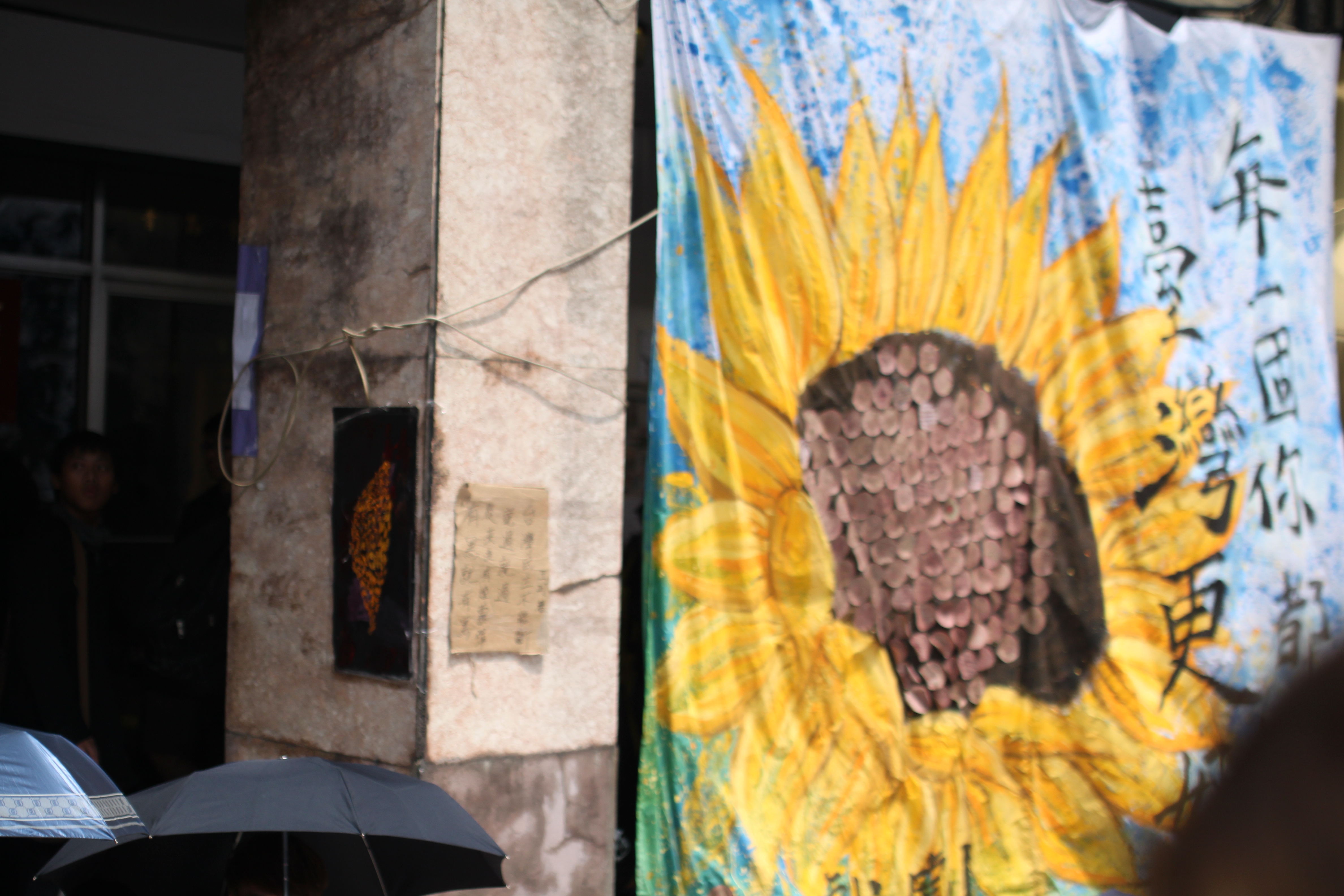 Over the last thirty years, there’s been a slowly manifesting trend in regard to Taiwan’s international position, a series of processes that amount collectively to a single linear motion, and which offers no small indication of the future of Taiwanese democracy. I speak, of course, of Taiwan’s growing isolation in the international arena.
Over the last thirty years, there’s been a slowly manifesting trend in regard to Taiwan’s international position, a series of processes that amount collectively to a single linear motion, and which offers no small indication of the future of Taiwanese democracy. I speak, of course, of Taiwan’s growing isolation in the international arena.
TPE→HKG→TYO?
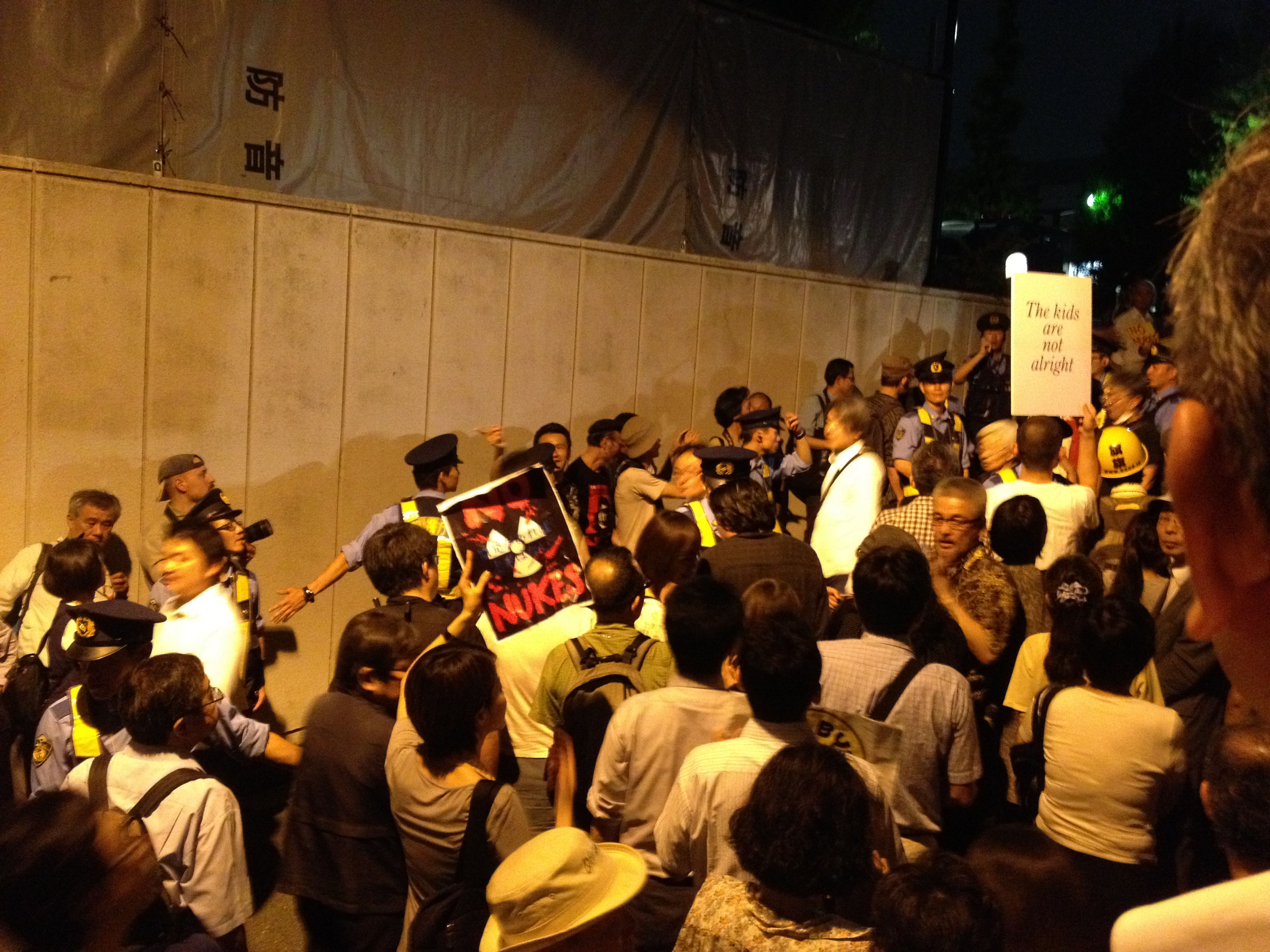 It would seem that Asia is in the streets these days. Three months have passed since Taiwan’s Sunflower movement. With the revival of Hong Kong’s Occupy Central in new form, sovereignty issues regarding mainland China and questions of democracy have generally taken center stage whereas Chinese speaking countries and territories on China’s periphery are concerned.
It would seem that Asia is in the streets these days. Three months have passed since Taiwan’s Sunflower movement. With the revival of Hong Kong’s Occupy Central in new form, sovereignty issues regarding mainland China and questions of democracy have generally taken center stage whereas Chinese speaking countries and territories on China’s periphery are concerned.
Where Have All the Sunflowers Gone?
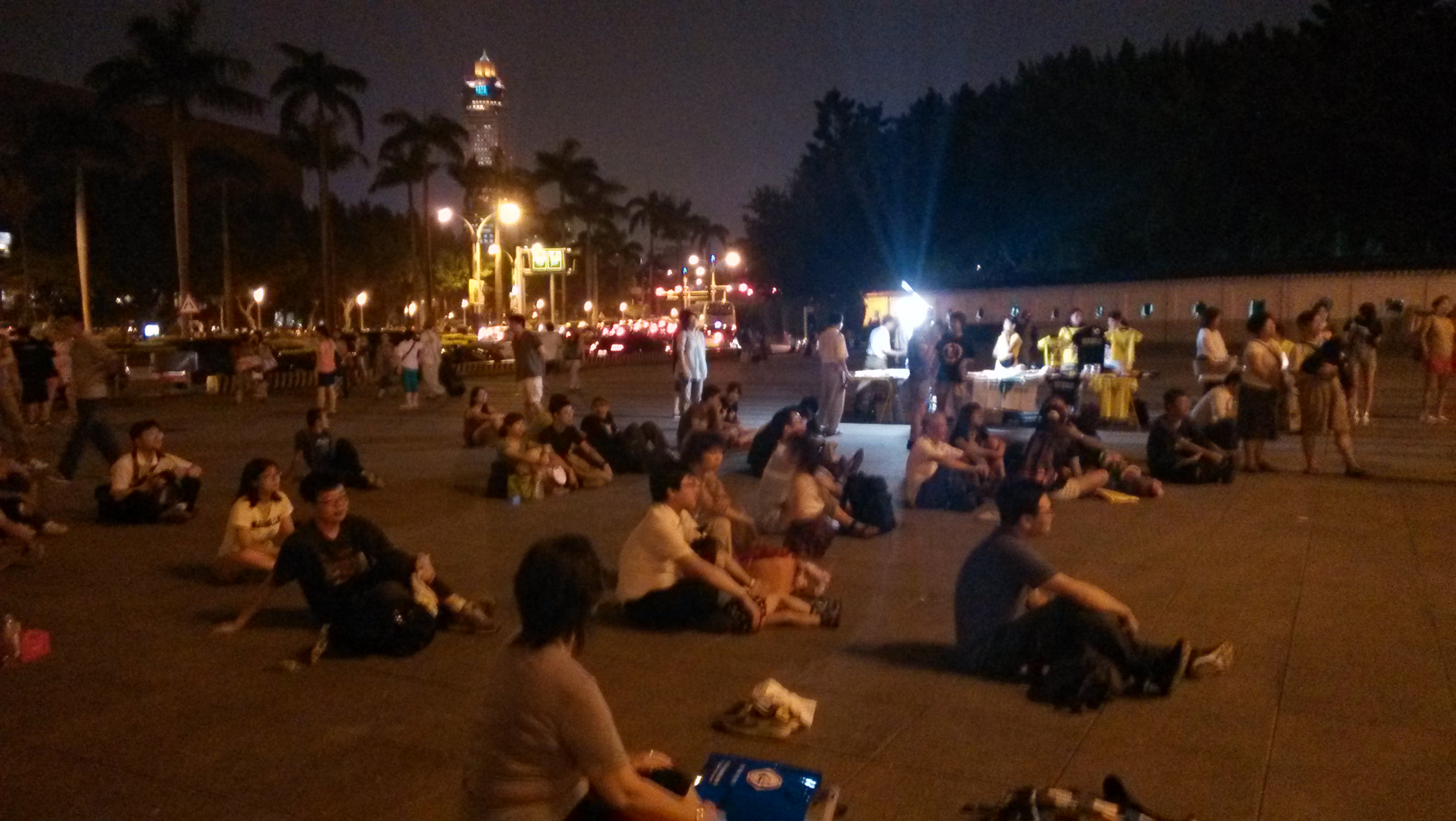 During one of the initial planning meetings for New Bloom approximately a month after the end of the Legislative Yuan occupation, one editor wryly pointed out that during the height of the Sunflower movement, it was very hard to find sunflowers in flower shops—but now it was easy to do so again.
During one of the initial planning meetings for New Bloom approximately a month after the end of the Legislative Yuan occupation, one editor wryly pointed out that during the height of the Sunflower movement, it was very hard to find sunflowers in flower shops—but now it was easy to do so again.
Gendered Politicians
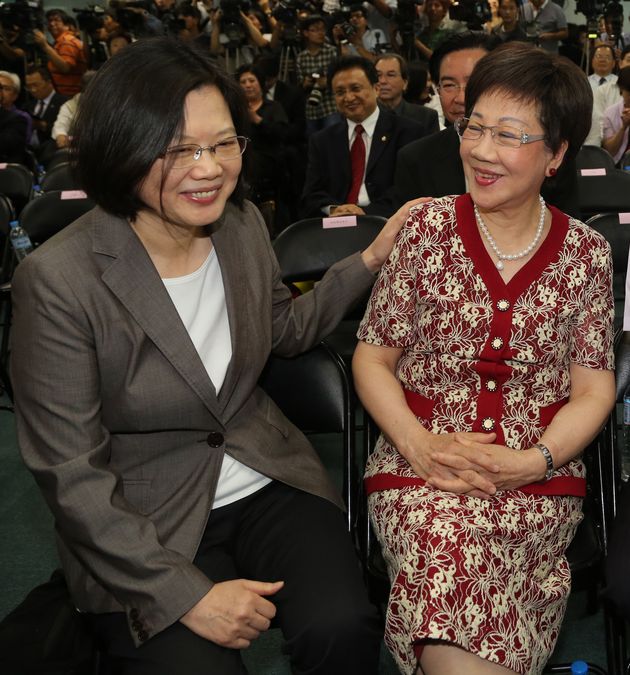 When it comes to politicians, what is the first image that comes to mind? I would presume it is a man with an assertive attitude, high self-esteem and confidence, and who might occasionally talk aggressively. However, recently more and more women are participating in politics. What if I were to ask you to imagine a female politician? I bet the characteristics associated with this image of a female politician will be similar to the first image of the male politician.
When it comes to politicians, what is the first image that comes to mind? I would presume it is a man with an assertive attitude, high self-esteem and confidence, and who might occasionally talk aggressively. However, recently more and more women are participating in politics. What if I were to ask you to imagine a female politician? I bet the characteristics associated with this image of a female politician will be similar to the first image of the male politician.
What the Sunflower Movement unveiled for Taiwan
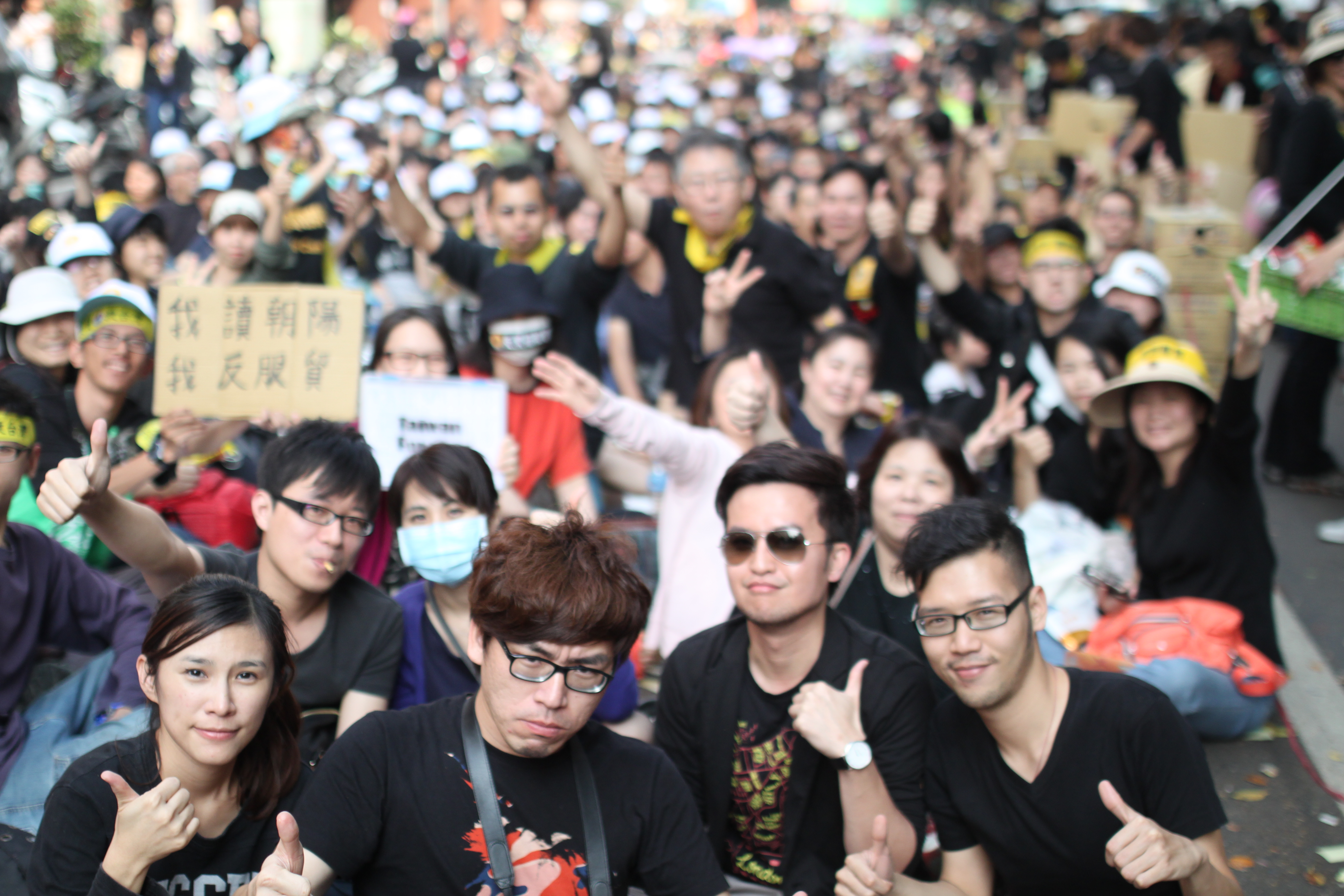 ON THE NIGHT OF March 18th 2014, a number of Taiwanese young people rushed into the Legislative Yuan, and began an occupation of the legislative chamber that lasted over 20 days in protest of the Cross-Strait Agreement on Trade in Services (CSSTA) which had been passed by legislators without detailed examination.
ON THE NIGHT OF March 18th 2014, a number of Taiwanese young people rushed into the Legislative Yuan, and began an occupation of the legislative chamber that lasted over 20 days in protest of the Cross-Strait Agreement on Trade in Services (CSSTA) which had been passed by legislators without detailed examination.


